Commander Masters Release Notes
Compiled by Eric Levine
Document last modified June 16, 2023
PDF Download Links:
English | 中国话,汉语;中文 | Français | Deutsch
Italiano | Português | Español | 日本語
The Release Notes include information concerning the release of a new Magic: The Gathering set, as well as a collection of clarifications and rulings involving that set's cards. It's intended to make playing with the new cards more fun by clearing up the common misconceptions and confusion inevitably caused by new mechanics and interactions. As future sets are released, updates to the Magic rules may cause some of this information to become outdated. Go to Magic.Wizards.com/Rules to find the most up-to-date rules.
The "General Notes" section includes information about card legality and explains some of the mechanics and concepts in the set.
The "Card-Specific Notes" sections contain answers to the most important, most common, and most confusing questions players might ask about cards in the set. Items in the "Card-Specific Notes" sections include full card text for your reference. Not all cards in the set are listed.
GENERAL NOTES
Card Legality
New Commander Masters cards with the CMM set code are permitted in the Commander, Legacy, and Vintage formats. Reprinted cards with the CMM set code are legal for play in any format where a card with the same name is permitted.
Go to Magic.Wizards.com/Formats for a complete list of formats and their permitted card sets and banned lists.
Go to Magic.Wizards.com/Commander for more information on the Commander variant.
Go to Locator.Wizards.com to find an event or store near you.
Game Variant: Commander
Created and popularized by fans, Commander is a casual format in which each player's deck is led by that player's commander—traditionally a legendary creature, although some noncreature cards can also be a deck's commander.
Commander is usually played in casual, Free-for-All multiplayer games, although two-player games are also popular. Each player starts at 40 life. Each deck contains exactly 100 cards, including its commander. Commander is also a "singleton" format: other than basic lands, each card must have a different English name.
See the "Game Variant: Commander Draft" section below for modified rules that apply while drafting Commander Masters.
Go to Magic.Wizards.com/Commander for more information on the Commander variant.
The legendary card chosen as your deck's commander plays a prominent role in games, often appearing on the battlefield multiple times.
- Your commander is normally a legendary creature, but a very small number of legendary cards have the ability "[This card] can be your commander." A legendary noncreature card can't be chosen as your deck's commander unless it has that ability.
- Your commander begins the game in a separate game area called the command zone. The other cards in your deck are shuffled and become your library.
- While in the command zone, your commander's abilities don't affect the game unless those abilities specifically say they do.
- You may cast your commander from the command zone. Each time you do, it costs {2} more to cast for each time you've previously cast it from the command zone during the game. This additional cost is informally known as the "commander tax."
- If you cast your commander from the command zone for an alternative cost or "without paying its mana cost," the commander tax still applies.
- If your commander would be put into your hand or library from anywhere, you may choose to put it into the command zone instead.
- If your commander would be put into your graveyard or exile, it goes there as normal. The next time state-based actions are performed, if your commander is still in that zone, you may choose to put it into the command zone.
Your commander's color identity determines the other cards that can be in your deck. A card's color identity includes its colors (taking into account its color indicator if it has one), plus the colors of any colored mana symbols in its rules text.
- Color identity is established before the game begins and doesn't change during the game, even if your commander becomes a different color or is in a hidden zone.
- Color words in a card's text don't add to a card's color identity.
- A card can be in your deck if its color identity is part of your commander's color identity. For example, if your commander's color identity is white and blue, your deck may include cards whose color identities are white, blue, or white and blue. It may also include cards with no colors in their color identities.
- A land with a basic land type can't be included in your deck if that basic land type's intrinsic mana ability generates a color of mana outside of your commander's color identity.
In addition to the normal rules regarding winning and losing the game, the Commander format has one other rule: a player who has been dealt 21 or more combat damage by the same commander over the course of the game loses the game.
- Players should keep track of combat damage dealt to them by each commander over the course of the game.
- This rule includes a player's own commander, which can deal combat damage to its owner if it is controlled by another player or if its combat damage gets redirected to its owner.
Unlike two-player games, multiplayer games can continue after a player loses and leaves the game.
- When a player leaves the game, all permanents, spells, and other cards owned by that player also leave the game.
- If that player controlled any abilities or copies of spells that were waiting to resolve, they cease to exist.
- If that player controlled any permanents owned by another player, the effects that gave control of them to the player who left end. If this doesn't give control of those permanents to a different player (most likely because they entered the battlefield under the control of the player who left), they're exiled.
Game Variant: Commander Draft
Commander Draft combines aspects of Booster Draft and Commander. Rather than build a deck beforehand, players draft and build a Commander Draft deck as part of the experience. Each player needs three booster packs to draft. All players should sit around the table in a random order. To begin, each player opens one booster pack. Each player chooses two cards from the pack and puts them face down in front of them, then passes the remaining cards to the player on their left. Each player takes two cards from the pack they were passed and places those cards face down in front of them, forming a single face-down pile of drafted cards. Each player passes the remaining cards to their left, repeating this process until all cards from the first round of booster packs have been drafted. Then players open their second pack, repeating the above procedure, except this time passing cards to the right. For the third booster pack, players once again pass to the left.
The sixty cards each player has drafted form their "card pool." Using those cards (and as many basic lands as desired), each player builds a deck of at least 60 cards, including their commander. As with constructed Commander decks, the deck can include only cards allowed by the color identity of its commander. However, unlike constructed Commander decks, decks in Commander Draft can include more than one copy of any card, so don't be afraid to draft multiples.
Commander Masters includes plenty of possible commanders, and we wanted to make it easier for you to play your favorites. In Commander Draft events using Commander Masters boosters, you can treat any eligible commander that has one or fewer colors in its color identity and doesn't already have partner as though it has partner. (See "Partner," below.) This opens up some never-before-seen partner pairs for you to try. Balan and Daretti! Thryx and Goreclaw! Yargle and Ulamog! Mix, match, and find your favorite pairing.
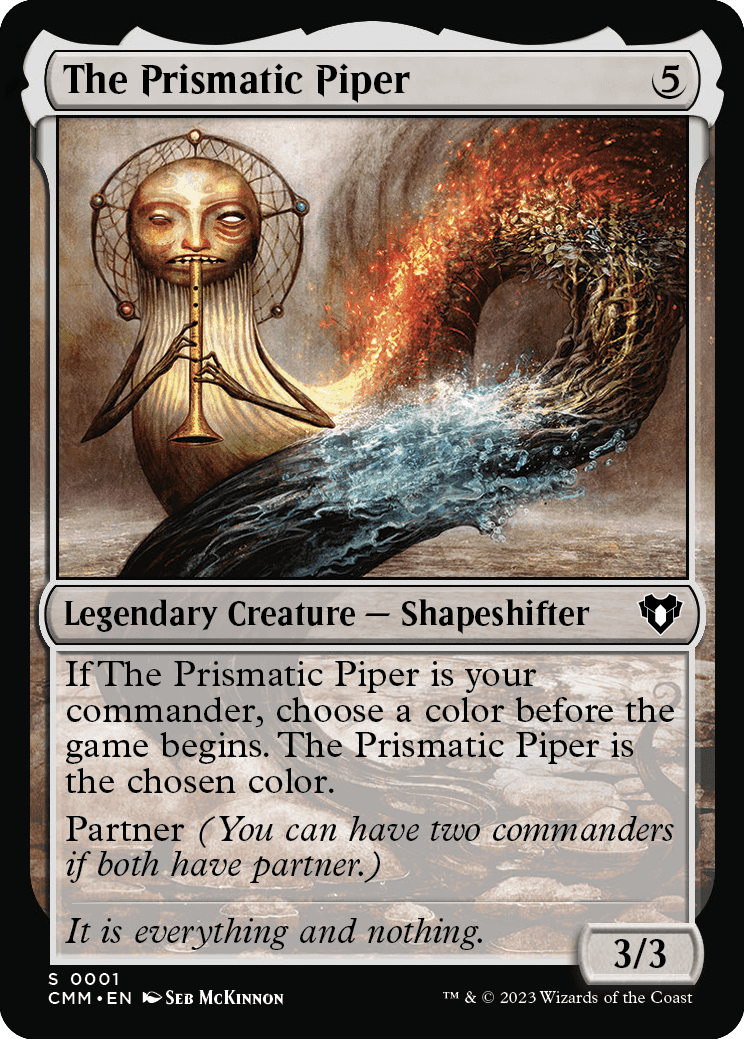
The Prismatic Piper
{5}
Legendary Creature — Shapeshifter
3/3
If The Prismatic Piper is your commander, choose a color before the game begins. The Prismatic Piper is the chosen color.
Partner (You can have two commanders if both have partner.)
Although there are a large number of legendary creatures in Commander Masters, you might get to the end of the draft and realize you don't have the right one to lead your deck. Never fear—The Prismatic Piper is here to help. The Prismatic Piper appears in place of a common in about one-sixth of Commander Masters Draft Boosters. After the draft you can add up to two copies of The Prismatic Piper to your card pool to serve as your deck's commanders. (See "Partner," below.) This means you don't have to draft The Prismatic Piper to play with it. If you need it as your commander, you can borrow unused copies from other players in the draft, your own collection, or anywhere else.
The color you choose for The Prismatic Piper during deckbuilding will determine its color identity. For example, if you draft red and green cards but don't have a red-green legendary creature, you can use one Prismatic Piper choosing red and another choosing green. If you drafted a green legendary creature, you can use that creature and a Prismatic Piper choosing red.
Once each player has their deck, they play a traditional Commander game. This draft format is optimized for eight players drafting and then splitting into two games of four players, but there's no wrong way to play!
Returning Mechanics
Over 50 keyword abilities, keyword actions, ability words, and unnamed mechanics return in Commander Masters. Some cards with these mechanics have individual notes in the "Card-Specific Notes" section as appropriate. The rules for these mechanics are unchanged in this release.
In this section, you will find notes for some of the mechanics with the most appearances and greatest complexity.
Keyword Ability: Partner
As mentioned above, partner is back in Commander Masters. Partner is a keyword ability that allows your Commander or Commander Draft deck to have two commanders, provided both of them have partner.
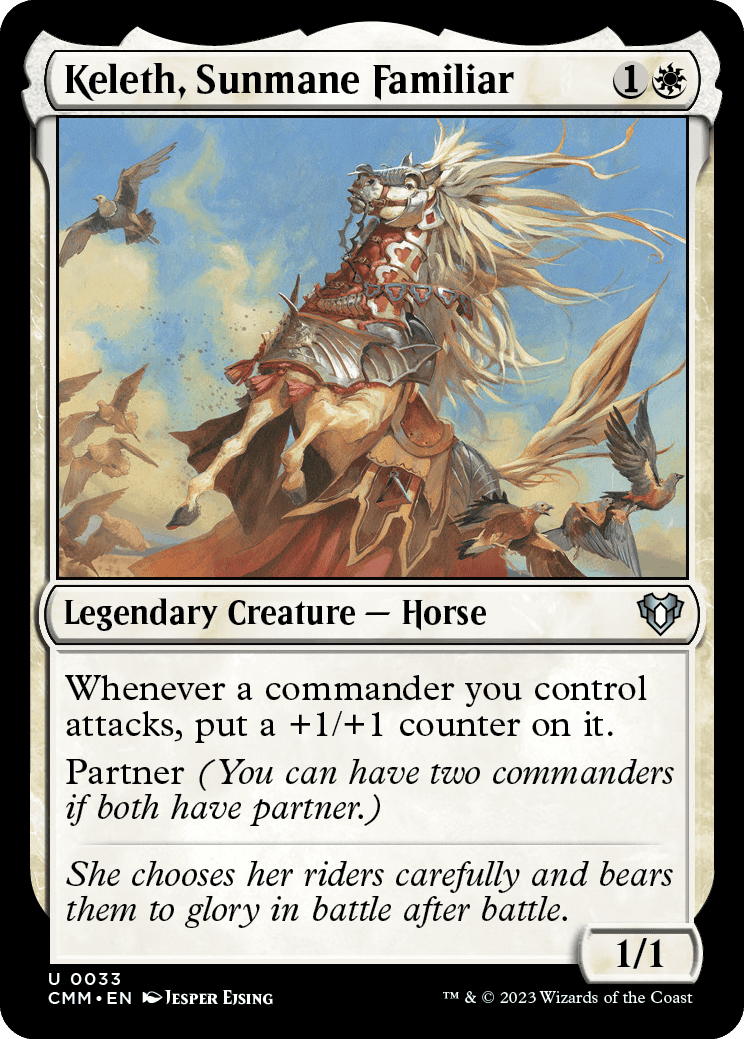
Keleth, Sunmane Familiar
{1}{W}
Legendary Creature — Horse
1/1
Whenever a commander you control attacks, put a +1/+1 counter on it.
Partner (You can have two commanders if both have partner.)
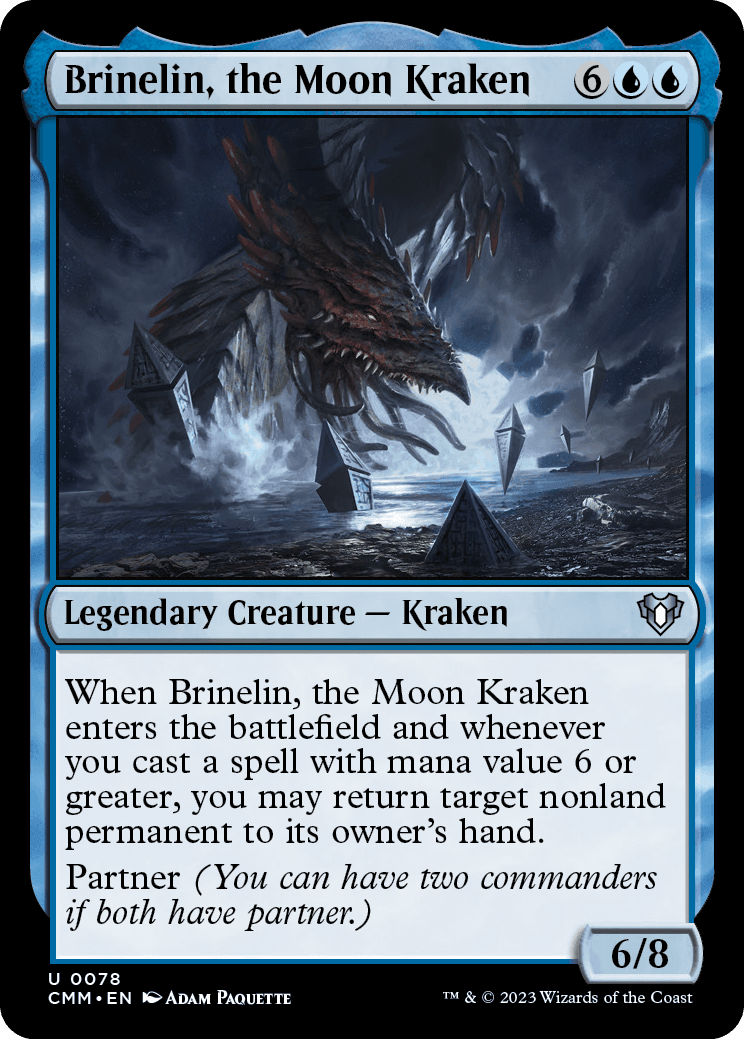
Brinelin, the Moon Kraken
{6}{U}{U}
Legendary Creature — Kraken
6/8
When Brinelin, the Moon Kraken enters the battlefield and whenever you cast a spell with mana value 6 or greater, you may return target nonland permanent to its owner's hand.
Partner (You can have two commanders if both have partner.)
- Other than the partner exception for Commander Draft events that use Commander Masters Draft Boosters (see above), the rules for partner haven't changed since partner's last appearance.
- If your Commander deck has two commanders, you can only include cards whose own color identities are also found in your commanders' combined color identities. If Keleth and Brinelin are your commanders, your deck may contain cards with white and/or blue in their color identity, but not cards with black, red, or green.
- Both commanders start in the command zone, and the remaining 98 cards (or 58 cards in a Commander Draft game) of your deck are shuffled to become your library.
- To have two commanders, both must have the partner ability as the game begins. Losing the ability during the game doesn't cause either to cease to be your commander. (In a Commander Masters Commander Draft, if you're treating an eligible creature as though it has partner, the same principle applies; no changes to its characteristics will cause it to stop being your commander.)
- Once the game begins, your two commanders are tracked separately. If you cast one, you won't have to pay an additional {2} the first time you cast the other. A player loses the game after having been dealt 21 damage from any one of them, not from both of them combined.
- If something refers to your commander while you have two commanders, it refers to one of them of your choice. If you are instructed to perform an action on your commander (e.g. put it from the command zone into your hand due to Command Beacon), you choose one of your commanders at the time the effect happens.
- An effect that checks whether you control your commander is satisfied if you control one or both of your two commanders.
- You can choose two commanders with partner that are the same color or colors. In Commander Draft, you can even choose two of the same commander with partner if you drafted them. If you do this, make sure you keep the number of times you've cast each from the command zone clear for "commander tax" purposes.
Mechanic: The Monarch
The monarch is a designation a player may have. The crown comes with benefits, like an extra card each turn, but it also attracts unwanted attention from other players. Will your rule stand the test of time, or will another player take the crown?
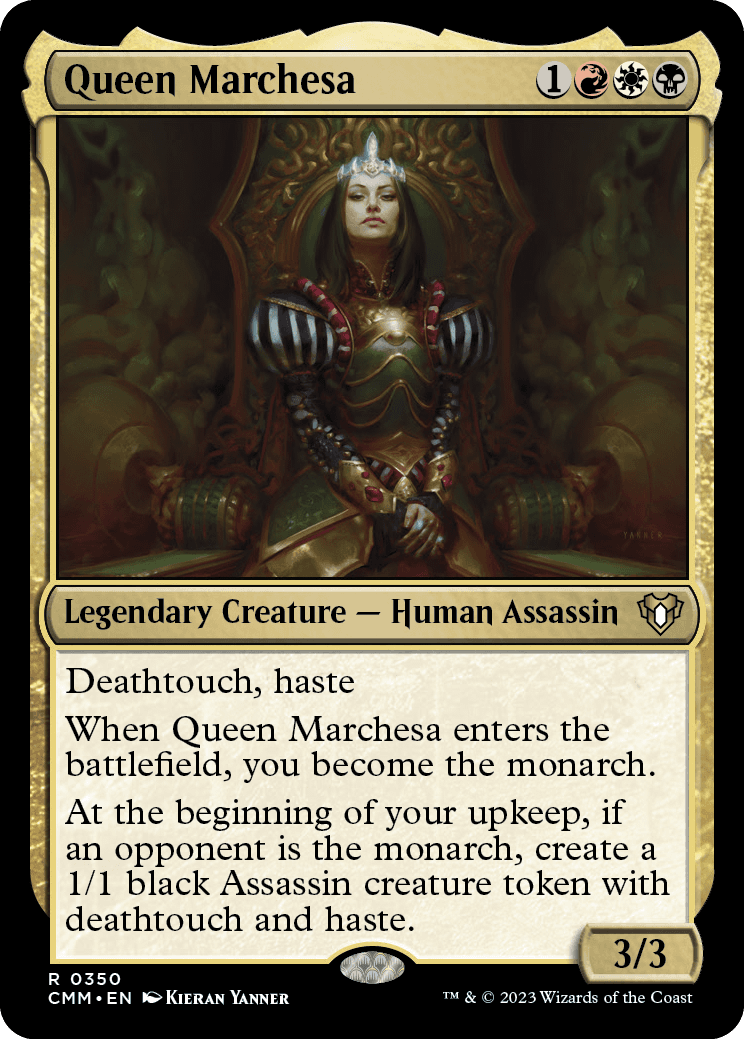
Queen Marchesa
{1}{R}{W}{B}
Legendary Creature — Human Assassin
3/3
Deathtouch, haste
When Queen Marchesa enters the battlefield, you become the monarch.
At the beginning of your upkeep, if an opponent is the monarch, create a 1/1 black Assassin creature token with deathtouch and haste.
- The game starts with no monarch. Once an effect makes one player the monarch, the game will have exactly one monarch from that point forward. As a player becomes the monarch, the current monarch (if any) ceases being the monarch.
- There are two inherent triggered abilities associated with being the monarch. These triggered abilities have no source and are controlled by the player who was the monarch at the time the abilities triggered. The full texts of these abilities are "At the beginning of the monarch's end step, that player draws a card" and "Whenever a creature deals combat damage to the monarch, its controller becomes the monarch."
- If the triggered ability that causes the monarch to draw a card goes on the stack and a different player becomes the monarch before that ability resolves, the first player will still draw the card.
- If the monarch leaves the game during another player's turn, that player becomes the monarch. If the monarch leaves the game during their turn, the next player in turn order becomes the monarch.
- If combat damage dealt to the monarch causes that player to lose the game, the triggered ability that causes the controller of the attacking creature to become the monarch doesn't resolve. In most cases, the controller of the attacking creature will still become the monarch as it is likely their turn.
Ability Word: Lieutenant
Lieutenant is an ability word that appears in italics on some creatures that become more powerful if you control your commander. An ability word has no rules meaning.
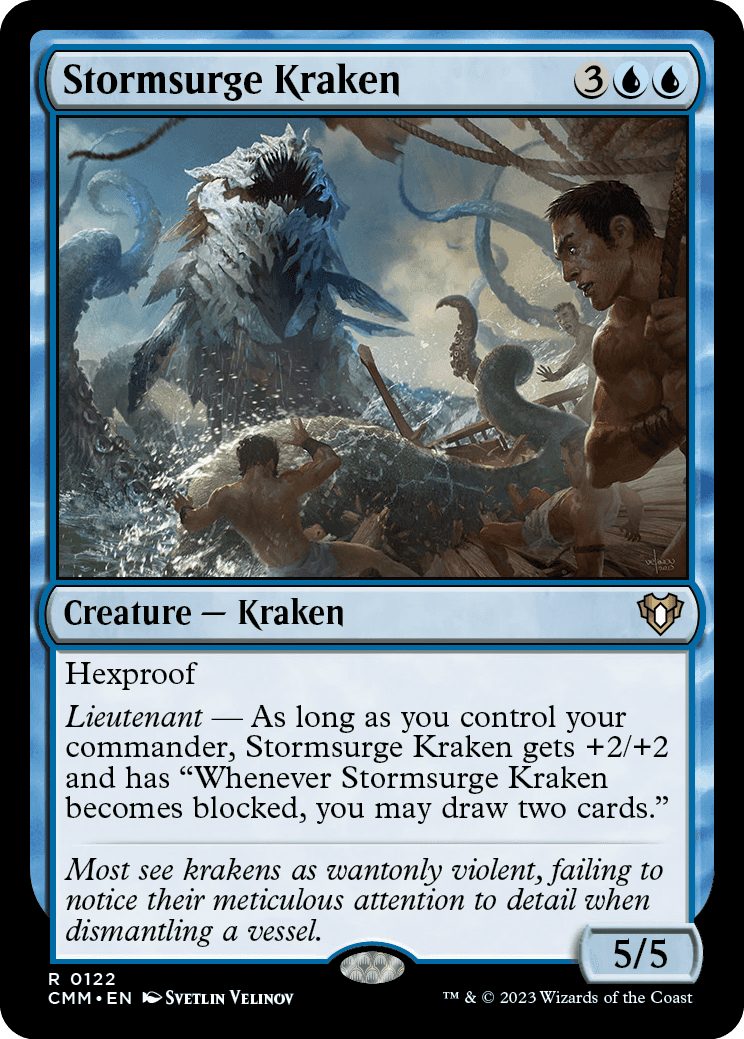
Stormsurge Kraken
{3}{U}{U}
Creature — Kraken
5/5
Hexproof
Lieutenant — As long as you control your commander, Stormsurge Kraken gets +2/+2 and has "Whenever Stormsurge Kraken becomes blocked, you may draw two cards."
- Lieutenant abilities apply only if your commander is on the battlefield and under your control. If you have two commanders, you just need to control one of them. Lieutenant abilities apply just once, even if you control multiple commanders.
- Lieutenant abilities refer only to whether you control your commander, not any other player's commander.
- If you gain control of a creature with a lieutenant ability owned by another player, that ability will check to see if you control your commander and will apply if you do. It won't check whether its owner controls their commander.
- If you lose control of your commander, lieutenant abilities of creatures you control will immediately stop applying. If this causes a creature's toughness to become less than or equal to the amount of damage marked on it, the creature will be destroyed.
- If a triggered ability granted by a lieutenant ability triggers, and in response to that trigger you lose control of your commander (causing the lieutenant to lose that ability), that triggered ability will still resolve.
Keyword Ability: Flashback
Flashback is a returning mechanic that gives instants and sorcery cards a second chance to have an impact.
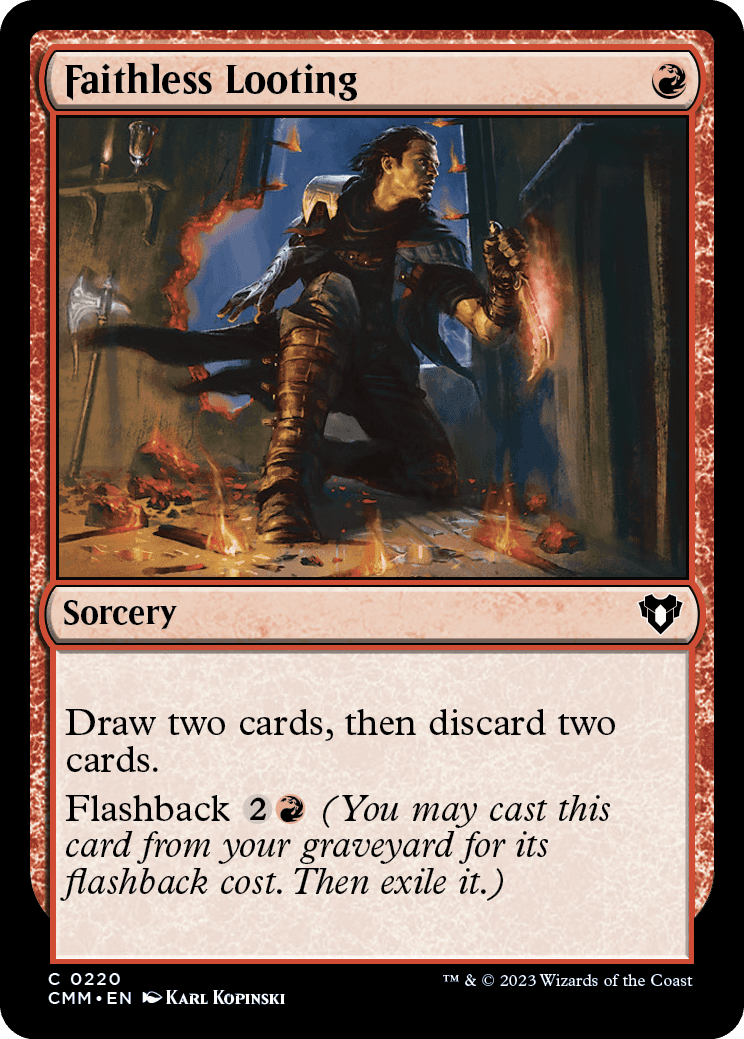
Faithless Looting
{R}
Sorcery
Draw two cards, then discard two cards.
Flashback {2}{R} (You may cast this card from your graveyard for its flashback cost. Then exile it.)
- "Flashback [cost]" means "You may cast this card from your graveyard by paying [cost] rather than paying its mana cost" and "If the flashback cost was paid, exile this card instead of putting it anywhere else any time it would leave the stack."
- You must still follow any timing restrictions and permissions, including those based on the card's type. For instance, you can cast a sorcery using flashback only when you could normally cast a sorcery.
- To determine the total cost of a spell, start with the mana cost or alternative cost (such as a flashback cost) you're paying, add any cost increases, then apply any cost reductions. The mana value of the spell is determined only by its mana cost, no matter what the total cost to cast the spell was.
- A spell cast using flashback will always be exiled afterward, whether it resolves, is countered, or leaves the stack in some other way.
- You can cast a spell using flashback even if it was somehow put into your graveyard without having been cast.
- If a card with flashback is put into your graveyard during your turn, you can cast it if it's legal to do so before any other player can take any actions.
Keyword Ability: Cycling
Cycling returns, giving you the option to trade off a spell's full potential for a card draw—and sometimes a little extra when you cycle it.
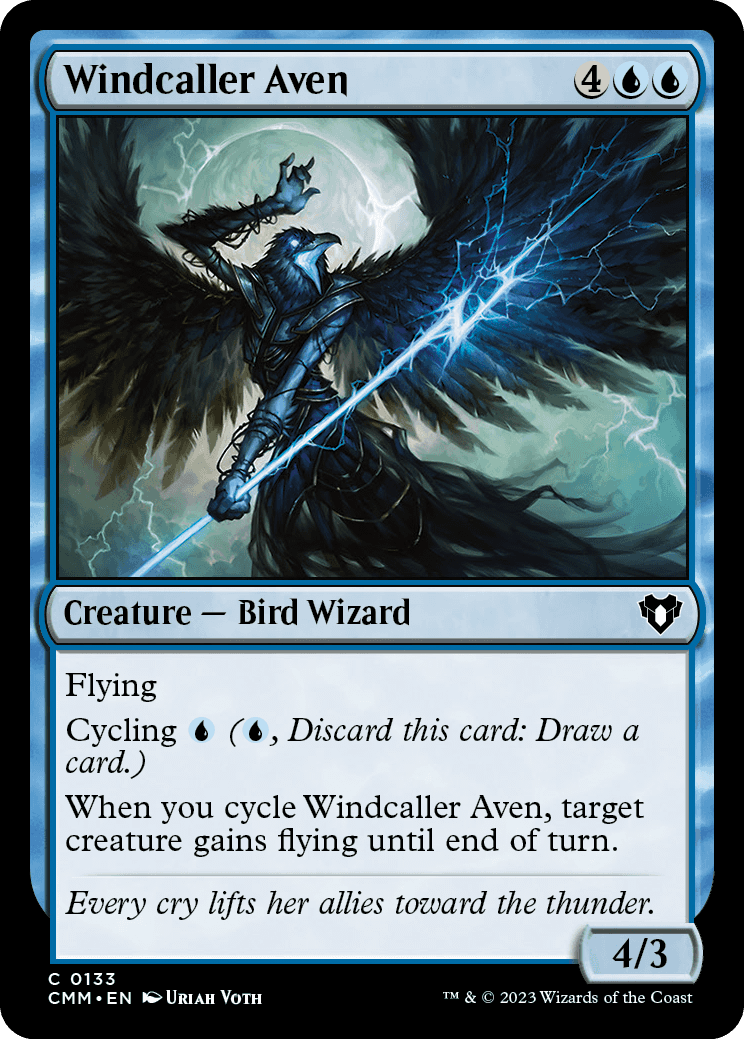
Windcaller Aven
{4}{U}{U}
Creature — Bird Wizard
4/3
Flying
Cycling {U} ({U}, Discard this card: Draw a card.)
When you cycle Windcaller Aven, target creature gains flying until end of turn.
- Some cards with cycling have an ability that triggers when you cycle them, and some cards have an ability that triggers whenever you cycle any card. These triggered abilities resolve before you draw from the cycling ability.
- Triggered abilities from cycling a card and the cycling ability itself aren't spells. Effects that interact with spells (such as that of Counterspell) won't affect them.
- You can cycle a card even if it has a triggered ability from cycling that won't have a legal target. This is because the cycling ability and the triggered ability are separate. This also means that if either ability is countered, the other ability will still resolve.
Keyword Action: Proliferate
Proliferate is a returning mechanic that can increase the number of counters on permanents and players.
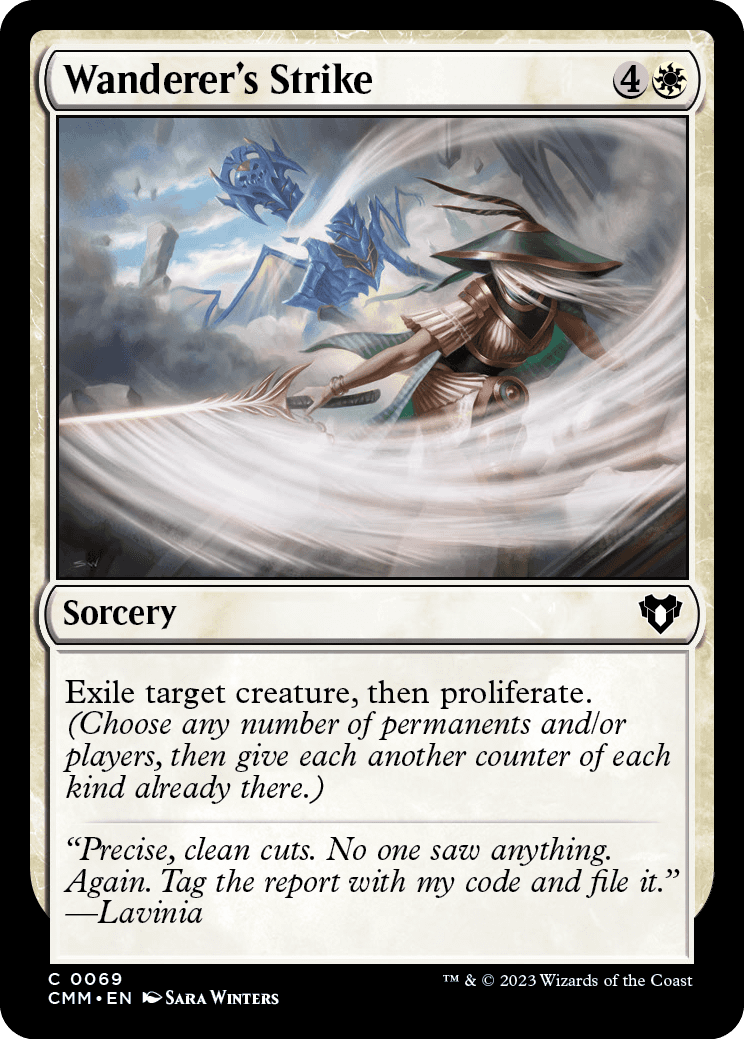
Wanderer's Strike
{4}{W}
Sorcery
Exile target creature, then proliferate. (Choose any number of permanents and/or players, then give each another counter of each kind already there.)
- To proliferate, you can choose any permanent that has a counter, including ones controlled by opponents. You can choose any player who has a counter, including opponents. You can't choose cards in any zone other than the battlefield, even if they have counters on them.
- You don't have to choose every permanent or player that has a counter, only the ones you want to add another counter to. Since "any number" includes zero, you don't have to choose any permanents at all, and you don't have to choose any players at all.
- If a player or permanent has more than one kind of counter on it, and you choose for it to get additional counters, it must get one of each kind of counter it already has. You can't have it get just one kind of counter it already has and not the others.
- An ability that triggers "Whenever you proliferate" triggers even if you chose no permanents or players while doing so.
- Players can respond to a spell or ability whose effect includes proliferating. Once that spell or ability starts to resolve, however, and its controller chooses which permanents and players will get new counters, it's too late for anyone to respond.
- If a permanent ever has both +1/+1 counters and -1/-1 counters on it at the same time, they're removed in pairs as a state-based action so that the permanent has only one of those kinds of counters on it.
Card Cycle: Commander Free Spells
These five cards returning from the Ikoria Commander Decks represent some of those decks' legendary creatures doing what they like best. If you control a commander, you can cast these spells for free.
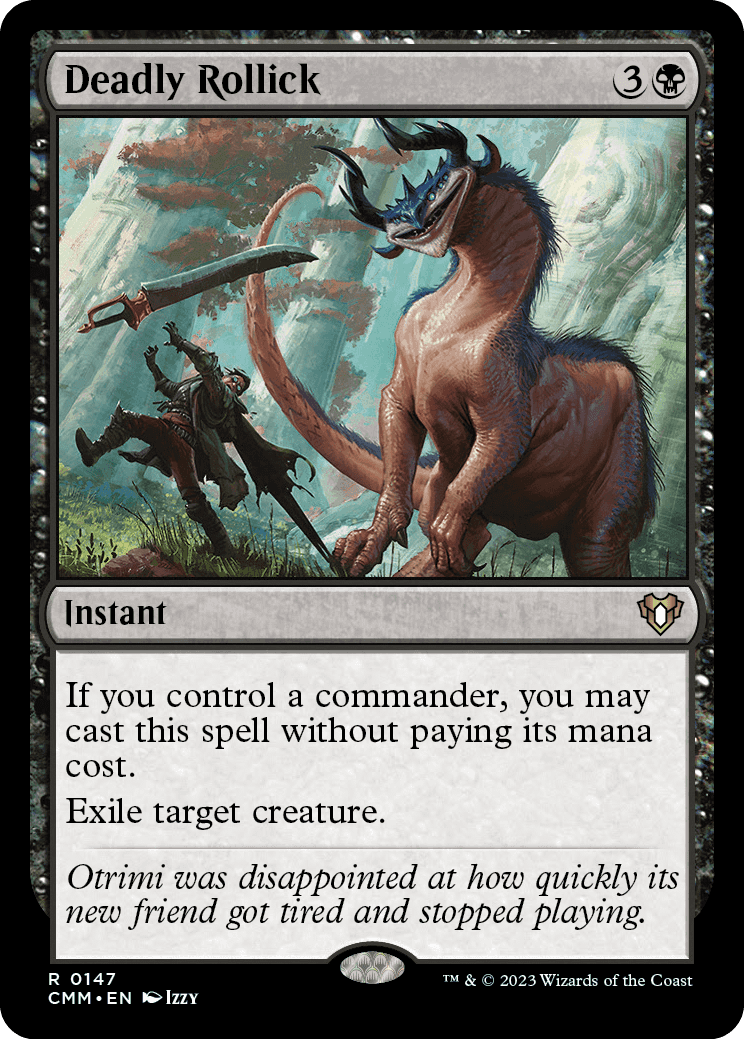
Deadly Rollick
{3}{B}
Instant
If you control a commander, you may cast this spell without paying its mana cost.
Exile target creature.
- Once you begin casting this spell, players can't take any other actions until you're done casting it. Notably, they can't try to remove the commander you control to make you pay its cost.
- It doesn't matter whose commander you control. Any one will do. If you have two commanders, you just need to control one of them.
Card Cycle: Confluences
The Confluences, initially seen in Commander 2015, are modal spells that allow you to choose the same mode more than once.
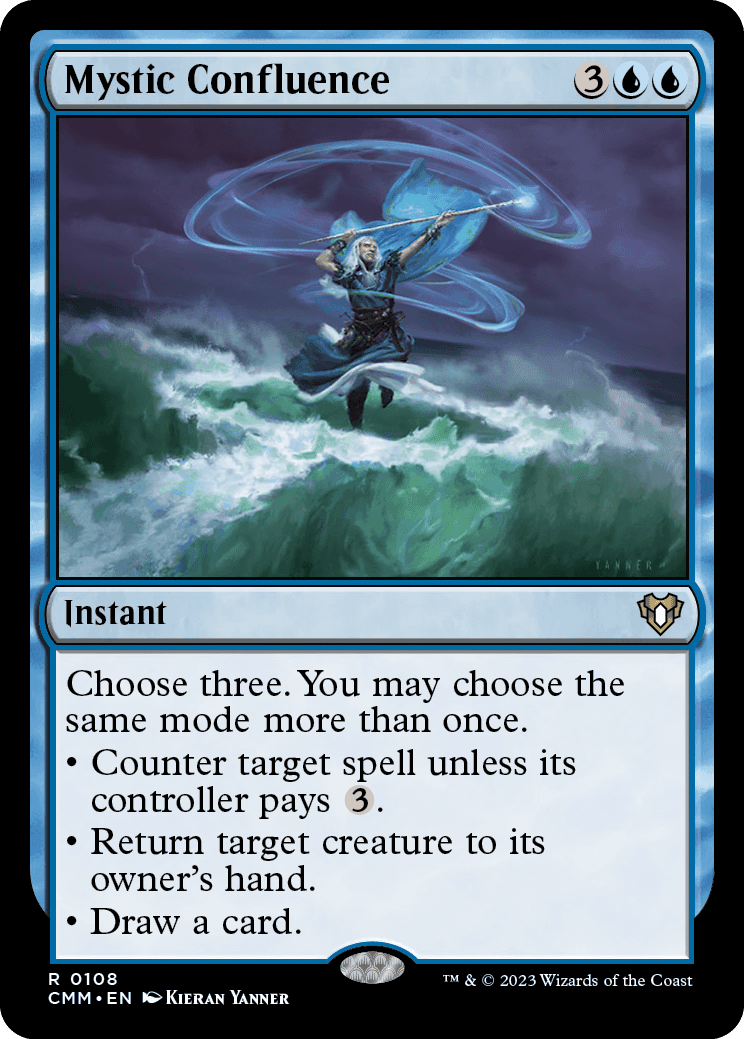
Mystic Confluence
{3}{U}{U}
Instant
Choose three. You may choose the same mode more than once.
• Counter target spell unless its controller pays {3}.
• Return target creature to its owner's hand.
• Draw a card.
- You choose the modes as you cast the spell. Once modes are chosen, they can't be changed.
- If a mode requires a target, you can select that mode only if there's a legal target available. Ignore the targeting requirements for modes you don't choose. Each time you select that mode, you can choose a different target, or you can choose the same target.
- No matter which combination of modes you choose, you always follow the instructions in the order they are written.
- If the same mode is chosen more than once, you choose their relative order as you cast the spell. For example, if you choose the middle mode of Mystic Confluence more than once, you choose the relative order to return the target creatures.
- No player can cast spells or activate abilities in between the modes of a resolving spell. Any abilities that trigger won't be put onto the stack until a spell is done resolving.
- If a Confluence is copied, the effect that creates the copy will usually allow you to choose new targets, but you can't choose new modes.
- If all targets for the chosen modes become illegal before a Confluence resolves, the spell won't resolve and none of its effects will happen. If at least one target is still legal, the spell will resolve but will have no effect on any illegal targets.
Card Cycle: Medallions
Originally from Tempest, the cycle of Medallions reduces the cost of spells you cast in their associated colors.
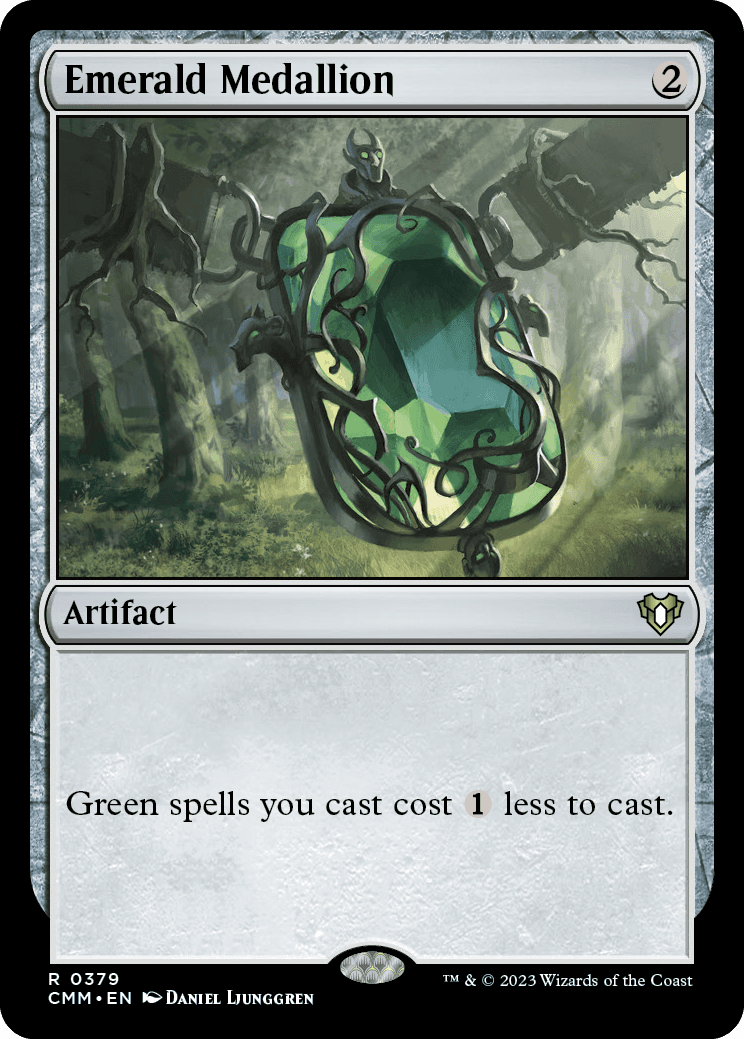
Emerald Medallion
{2}
Artifact
Green spells you cast cost {1} less to cast.
- The ability doesn't change the mana cost or mana value of any spell. It changes only the total cost you pay.
- The ability can't reduce the amount of colored mana you pay for a spell. It reduces only the generic mana component of that cost.
- If there are additional costs to cast a spell, or if the cost to cast a spell is increased by an effect (such as the one created by Thalia, Guardian of Thraben's ability), apply those increases before applying cost reductions.
- The cost reduction can apply to alternative costs such as flashback costs.
- If a spell you cast has {X} in its mana cost, you choose the value of X before calculating the spell's total cost.
Card Cycle: Dual Lands
The five multiplayer-focused dual lands from Commander Legends are back to make your manabase a little stronger.
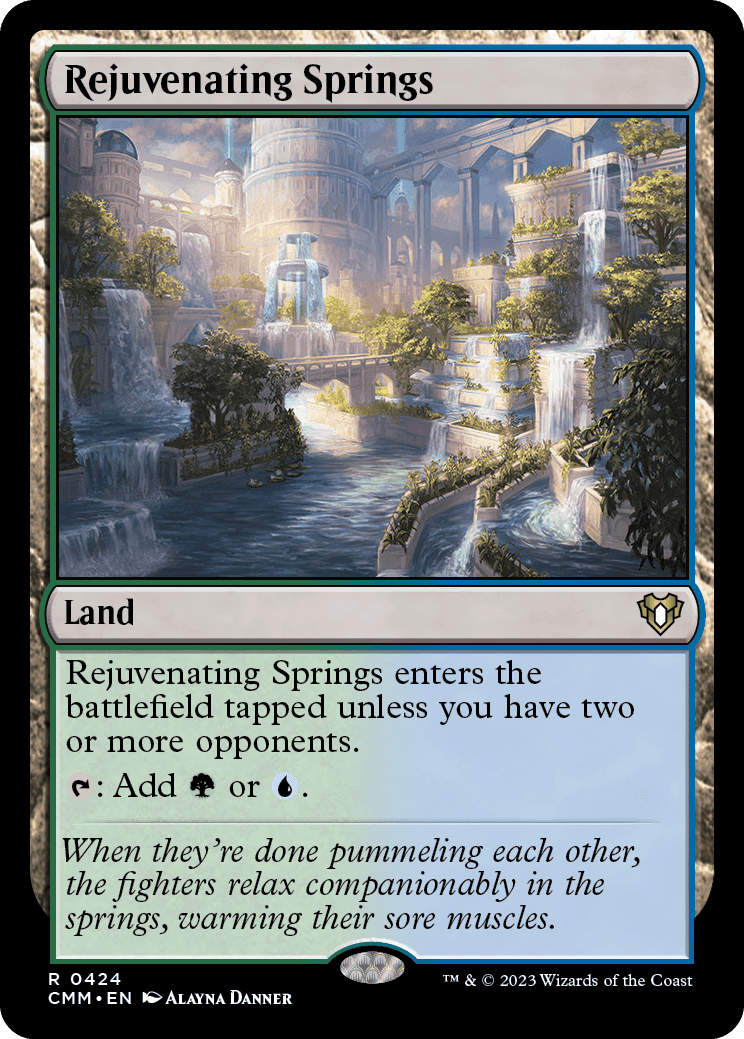
Rejuvenating Springs
Land
Rejuvenating Springs enters the battlefield tapped unless you have two or more opponents.
{T}: Add {G} or {U}.
- Count the number of opponents you currently have, not how many you started with. If your four-player game is down to you and a single opponent, the land enters the battlefield tapped.
- If an effect puts the land onto the battlefield tapped, having two or more opponents won't untap it.
COMMANDER MASTERS MAIN SET CARD-SPECIFIC NOTES
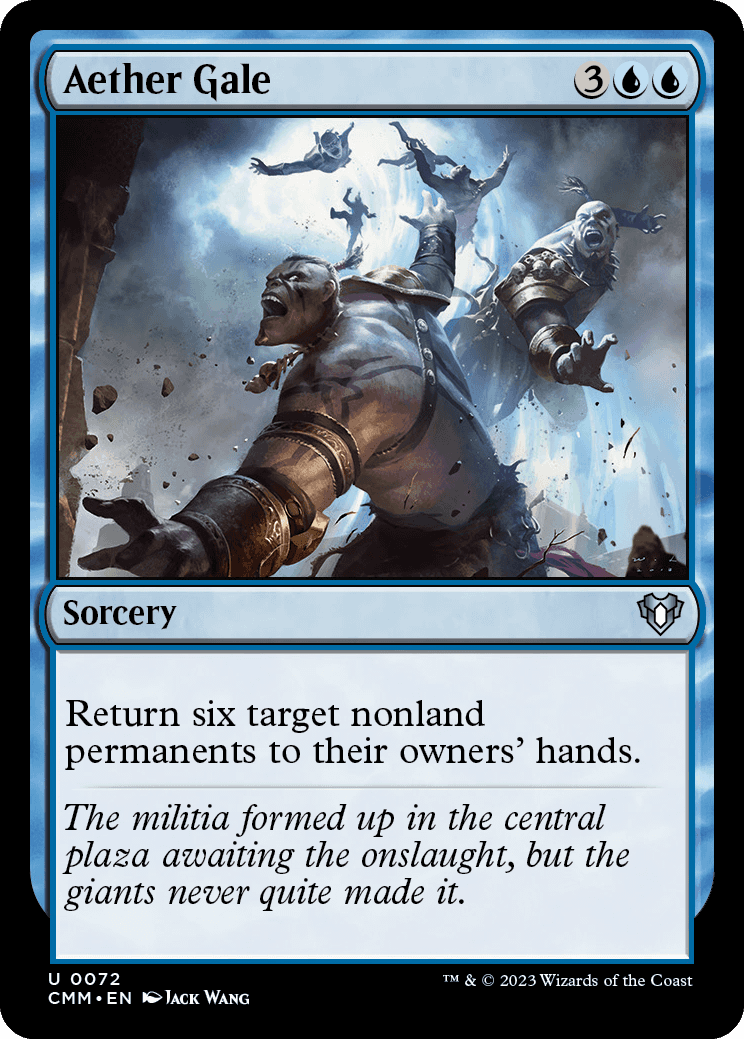
Aether Gale
{3}{U}{U}
Sorcery
Return six target nonland permanents to their owners' hands.
- You must choose six different legal targets in order to cast Aether Gale. If some, but not all, of those targets become illegal before Aether Gale resolves, the remaining legal targets will be put into their owners' hands.
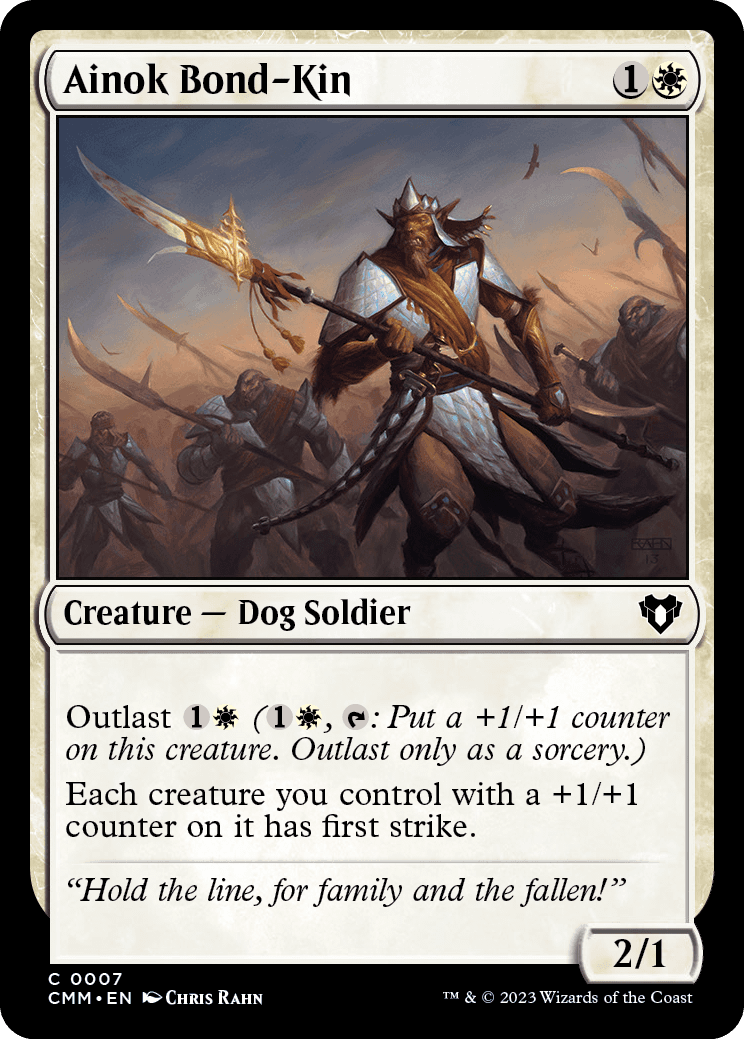
Ainok Bond-Kin
{1}{W}
Creature — Dog Soldier
2/1
Outlast {1}{W} ({1}{W}, {T}: Put a +1/+1 counter on this creature. Outlast only as a sorcery.)
Each creature you control with a +1/+1 counter on it has first strike.
- The cost to activate a creature's outlast ability includes the tap symbol ({T}). A creature's outlast ability can't be activated unless that creature has been under your control continuously since the beginning of your turn.
- Several creatures with outlast also grant an ability to creatures you control with +1/+1 counters on them, including themselves. These counters could come from an outlast ability, but any +1/+1 counter on the creature will count.
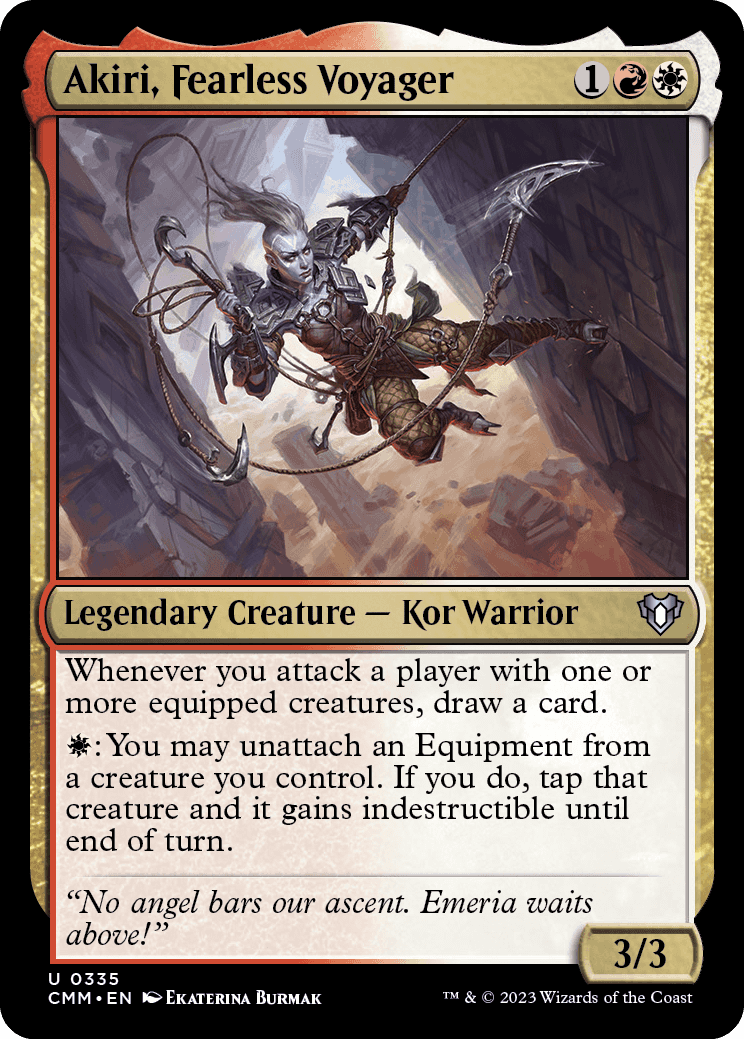
Akiri, Fearless Voyager
{1}{R}{W}
Legendary Creature — Kor Warrior
3/3
Whenever you attack a player with one or more equipped creatures, draw a card.
{W}: You may unattach an Equipment from a creature you control. If you do, tap that creature and it gains indestructible until end of turn.
- Akiri's first ability has you draw just one card per player you attack with an equipped creature, no matter how many equipped creatures you attack them with beyond the first and no matter how many Equipment that creature's carrying beyond the first.
- Equipped creatures attacking a planeswalker or battle won't cause Akiri's first ability to trigger.
- The Equipment that's unattached remains on the battlefield.
- You choose which Equipment to unattach as Akiri's second ability resolves. Unattaching an Equipment from a creature won't affect other Equipment attached to that creature. No player can take actions between the time you unattach that Equipment and the time that the creature becomes tapped and gains indestructible.
- If the creature is already tapped, it just gains indestructible until end of turn.
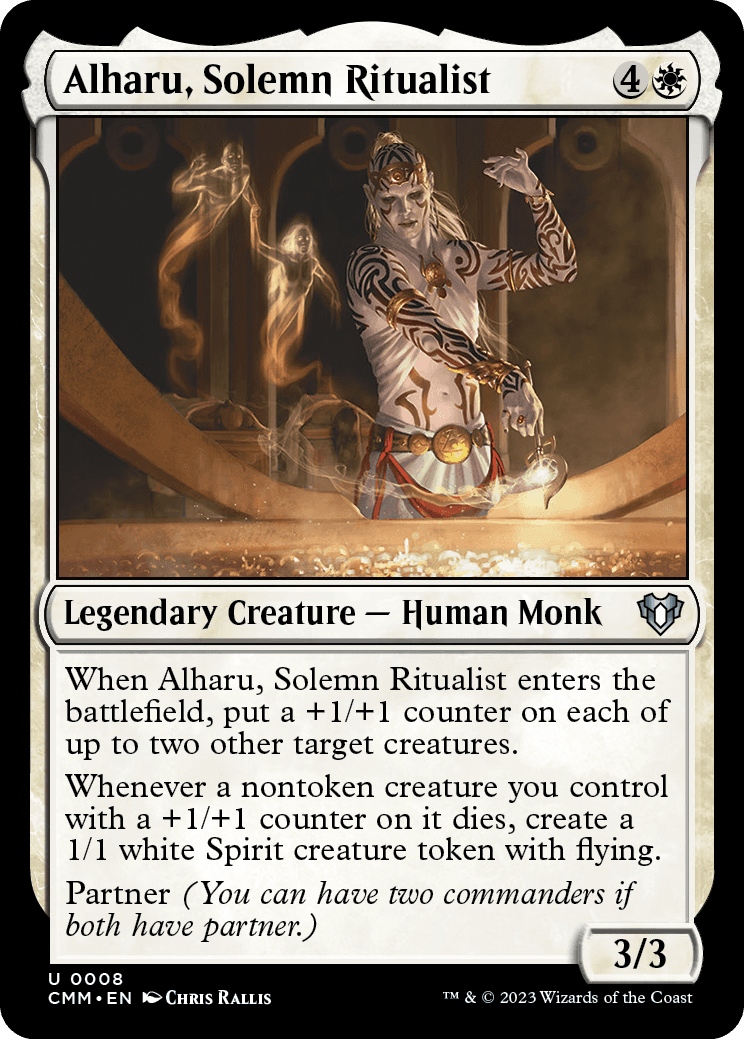
Alharu, Solemn Ritualist
{4}{W}
Legendary Creature — Human Monk
3/3
When Alharu, Solemn Ritualist enters the battlefield, put a +1/+1 counter on each of up to two other target creatures.
Whenever a nontoken creature you control with a +1/+1 counter on it dies, create a 1/1 white Spirit creature token with flying.
Partner (You can have two commanders if both have partner.)
- You create just one Spirit token, not one for each +1/+1 counter that was on the creature that died.
- If a creature you control with a +1/+1 counter on it dies at the same time as Alharu, Alharu's ability triggers for that creature.
- If Alharu has a +1/+1 counter on it and dies, its ability triggers for itself.
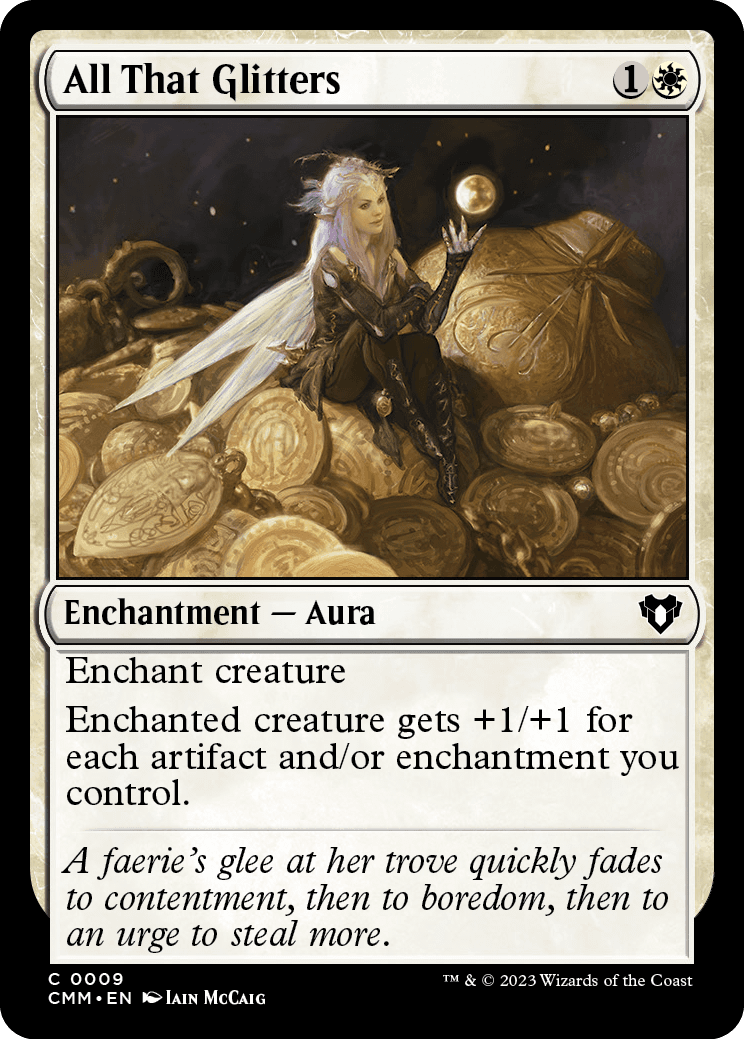
All That Glitters
{1}{W}
Enchantment — Aura
Enchant creature
Enchanted creature gets +1/+1 for each artifact and/or enchantment you control.
- Because All That Glitters is an enchantment, the enchanted creature usually gets at least +1/+1.
- A permanent that's both an artifact and an enchantment is counted only once.
- You still control Auras that you put onto the battlefield attached to a permanent you don't control.
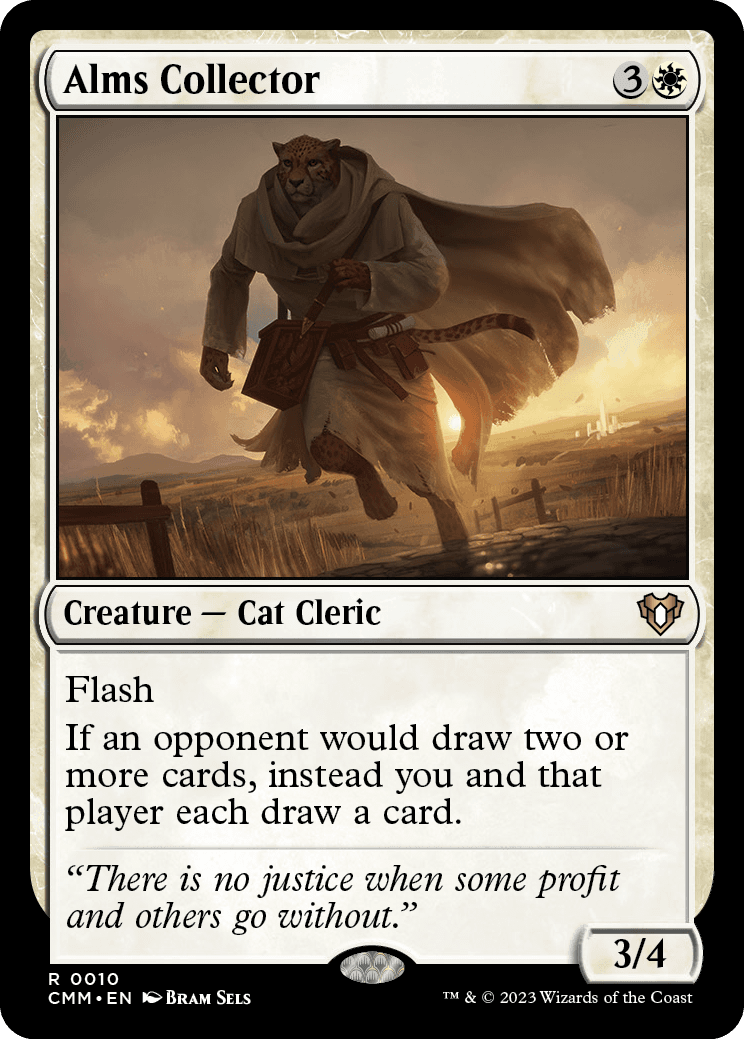
Alms Collector
{3}{W}
Creature — Cat Cleric
3/4
Flash
If an opponent would draw two or more cards, instead you and that player each draw a card.
- Alms Collector's replacement effect applies to an instruction to draw more than one card before any replacement effects apply to individual cards drawn. For example, if you have a card with dredge in your graveyard, you can't dredge it before the effect of Divination is modified by Alms Collector's replacement effect.
- Once a replacement effect has been applied to an event, it can't be applied again to the resulting events. For example, once Alms Collector's replacement effect has modified the effect of a player's Divination, Thought Reflection can double that player's resulting card draw without Alms Collector's replacement effect applying again.
- To determine whether a player is instructed to draw multiple once or instructed multiple times to draw one card, count how many times the word "draw" is used. Alms Collector's replacement effect watches for one "draw" that instructs a player to draw multiple cards (including instructions to "draw a card for each. . .").
- If an effect puts cards into a player's hand without using the word "draw" at all, Alms Collector's replacement effect doesn't apply.
- If two players each control an Alms Collector and an effect instructs them to each draw two or more cards, the replacement effect of each Alms Collector is applied and both players end up drawing two cards.
- If two players each control an Alms Collector and a third player would draw two or more cards, the third player chooses which Alms Collector's replacement effect will apply, and therefore which of the first two players draws a card.
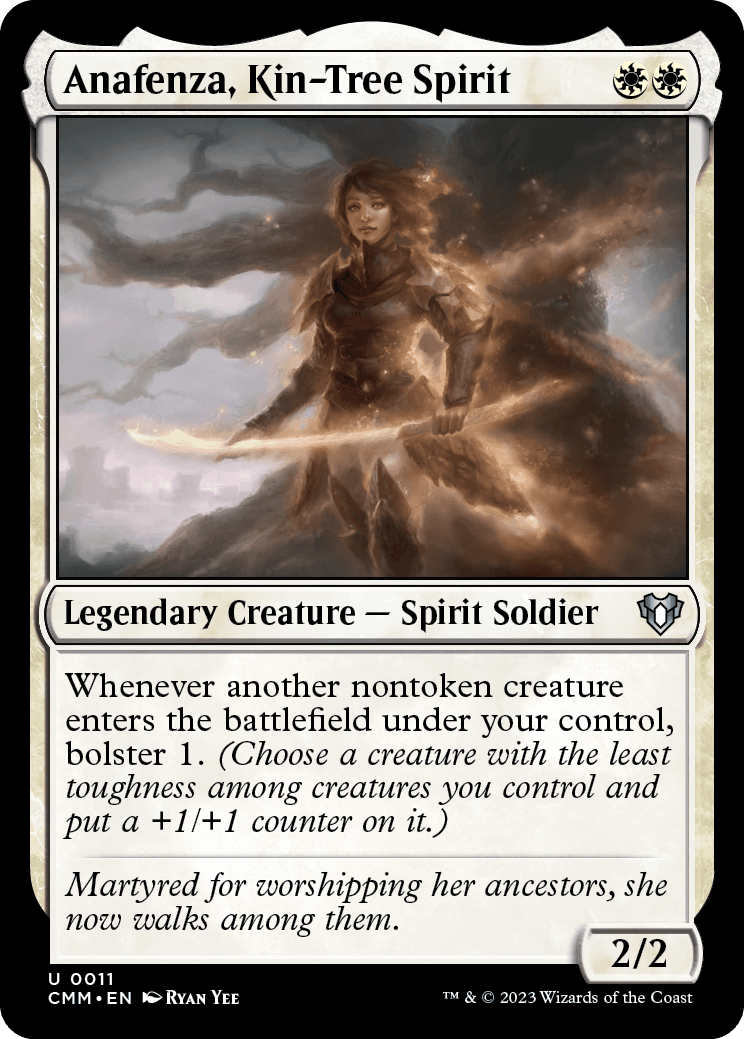
Anafenza, Kin-Tree Spirit
{W}{W}
Legendary Creature — Spirit Soldier
2/2
Whenever another nontoken creature enters the battlefield under your control, bolster 1. (Choose a creature with the least toughness among creatures you control and put a +1/+1 counter on it.)
- Bolster itself doesn't target any creature, though some spells and abilities that bolster may have other effects that target creatures. For example, you could put counters on a creature with protection from white with Anafenza, Kin-Tree Spirit's bolster ability.
- You determine which creature to put counters on as the spell or ability that instructs you to bolster resolves. That could be the creature with the bolster ability, if it's still under your control and has the least toughness.
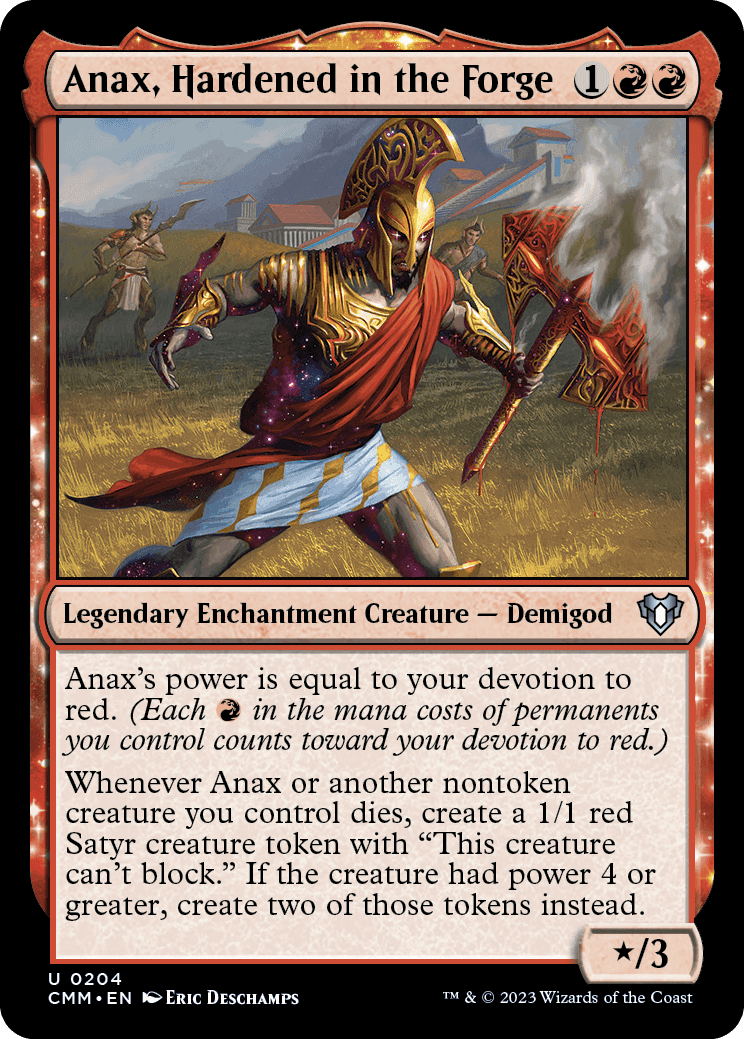
Anax, Hardened in the Forge
{1}{R}{R}
Legendary Enchantment Creature — Demigod
*/3
Anax's power is equal to your devotion to red. (Each {R} in the mana costs of permanents you control counts toward your devotion to red.)
Whenever Anax or another nontoken creature you control dies, create a 1/1 red Satyr creature token with "This creature can't block." If the creature had power 4 or greater, create two of those tokens instead.
- The ability that defines Anax's power works in all zones, not just the battlefield.
- If Anax dies at the same time as another nontoken creature you control, its ability triggers for each of them.
- To determine whether you create two tokens, check the power of the creature that died immediately before it died.
- If you create a token that's a copy of Anax, its last ability triggers when it dies.
- Colorless and generic mana symbols ({C}, {0}, {1}, {2}, {X}, and so on) in mana costs of permanents you control don't count toward your devotion to any color.
- Mana symbols in the text boxes of permanents you control don't count toward your devotion to any color.
- Hybrid mana symbols, monocolored hybrid mana symbols, and Phyrexian mana symbols do count toward your devotion to their color(s).
- If an activated ability or triggered ability has an effect that depends on your devotion to a color, you count the number of mana symbols of that color among the mana costs of permanents you control as the ability resolves. The permanent with that ability will be counted if it's still on the battlefield at that time.
- If you put an Aura on an opponent's permanent, you still control the Aura, and mana symbols in its mana cost count towards your devotion.
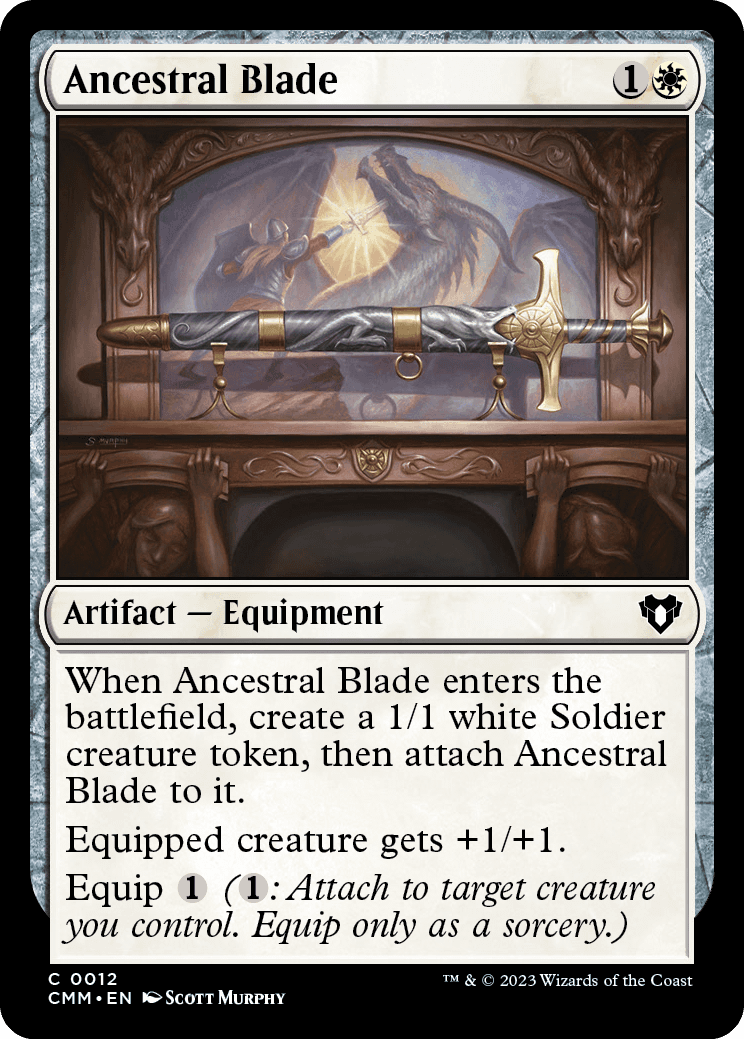
Ancestral Blade
{1}{W}
Artifact — Equipment
When Ancestral Blade enters the battlefield, create a 1/1 white Soldier creature token, then attach Ancestral Blade to it.
Equipped creature gets +1/+1.
Equip {1} ({1}: Attach to target creature you control. Equip only as a sorcery.)
- The Soldier token that you create enters the battlefield as a 1/1 creature. Any abilities that trigger when a creature with a certain power enters the battlefield will see the token enter as a 1/1 creature. Static abilities that affect the Soldier's power and toughness may change this, but Ancestral Blade will be attached to the Soldier before the game checks to see if it has toughness 0 or less. For example, if Illness in the Ranks ("Creature tokens get -1/-1") is on the battlefield, the Soldier will enter as a 0/0 creature, but then Ancestral Blade will make it a 1/1 and the token will survive.
- No player may take any actions between the time you create the Soldier token and the time Ancestral Blade becomes attached to it.
- If the triggered ability causes two Soldiers to be created (due to an effect such as that of Doubling Season), Ancestral Blade becomes attached to one of them.
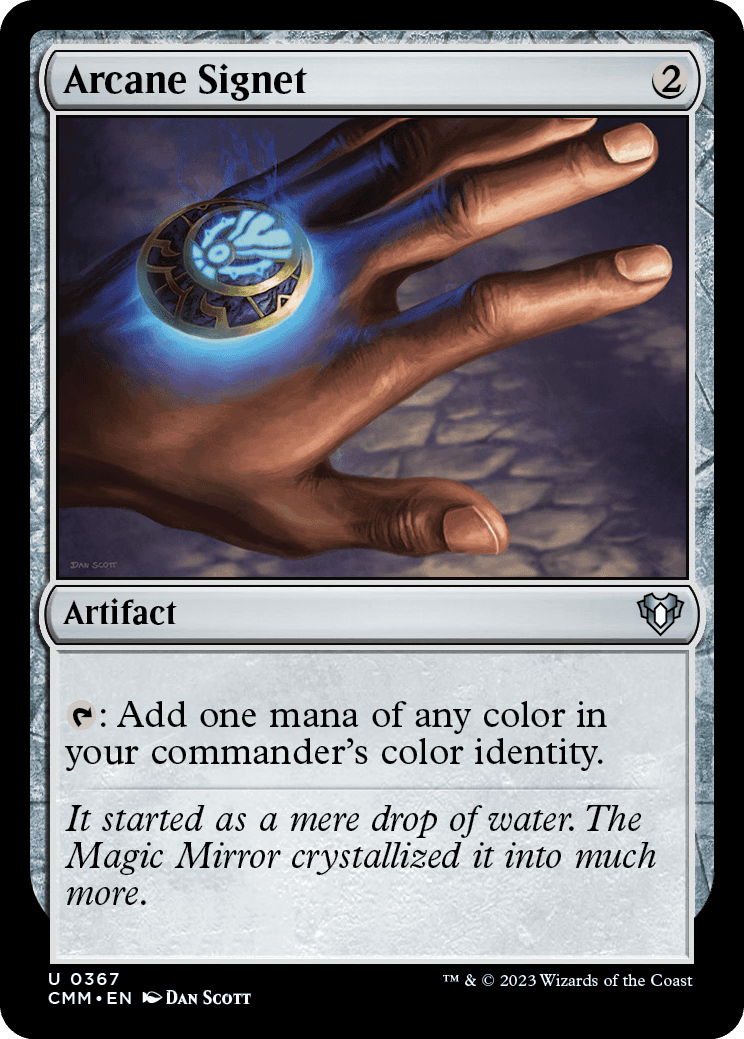
Arcane Signet
{2}
Artifact
{T}: Add one mana of any color in your commander's color identity.
- If you have two commanders, the ability adds one mana of any color in their combined color identities.
- If your commander is a card that has no colors in its color identity, Arcane Signet's ability produces no mana. It doesn't produce {C}.
- If you don't have a commander, Arcane Signet's ability produces no mana.
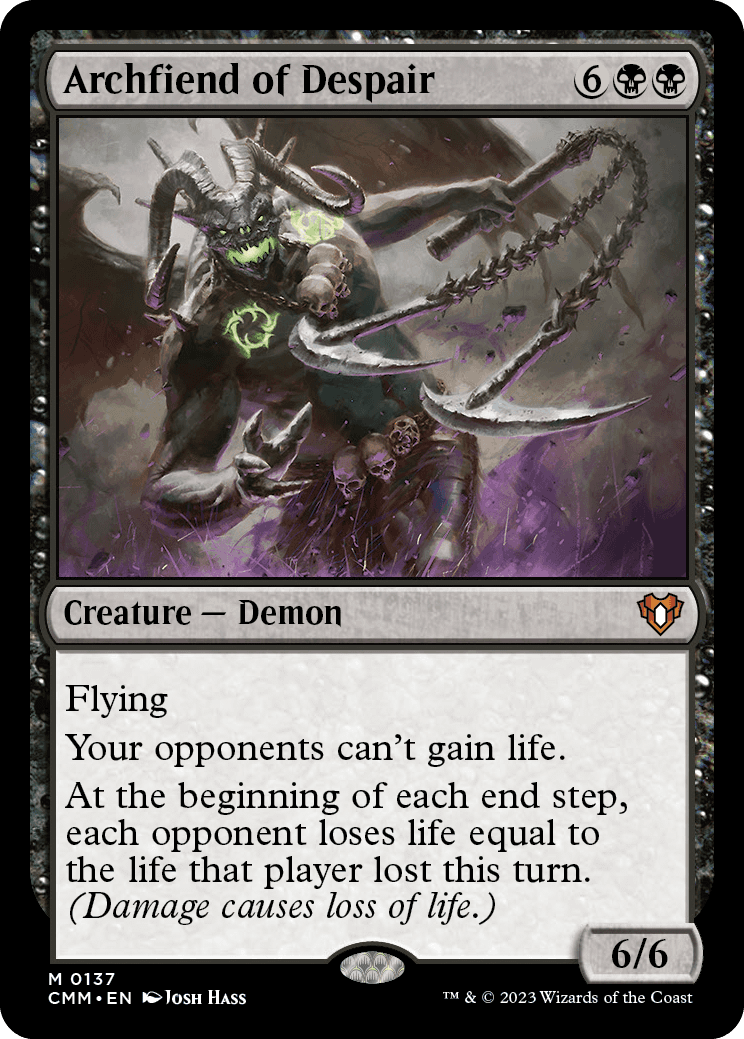
Archfiend of Despair
{6}{B}{B}
Creature — Demon
6/6
Flying
Your opponents can't gain life.
At the beginning of each end step, each opponent loses life equal to the life that player lost this turn. (Damage causes loss of life.)
- Archfiend of Despair's last ability counts only how much life was lost. It doesn't care whether a player also gained life.
- The amount of life to lose is determined only as Archfiend of Despair's triggered ability resolves. For example, if you control two of them and an opponent lost 3 life earlier in the turn, the first ability to resolve would have that player lose 3 life, and the second would have that player lose 6 life.
- In a Two-Headed Giant game, damage and life loss happen to each player individually. If each player on a team is dealt 2 damage, each of those players loses 2 life and the team's life total goes down by 4. When Archfiend of Despair's ability resolves, each of those players again loses 2 life and the team's life total goes down again by 4; they don't each lose 4 life.
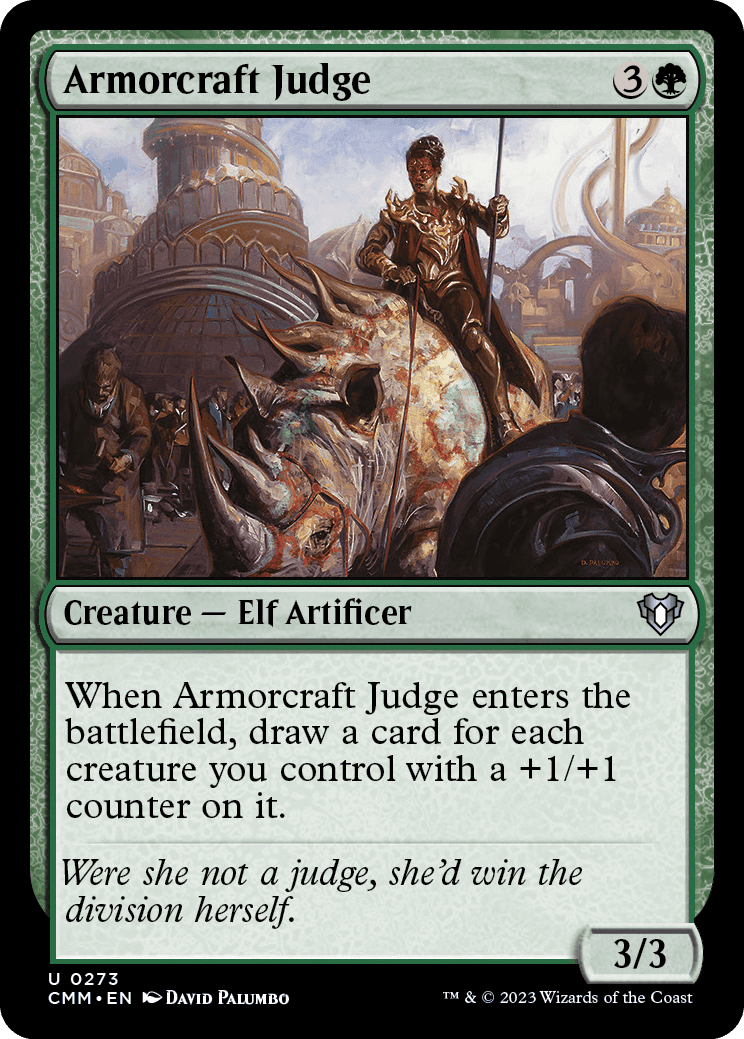
Armorcraft Judge
{3}{G}
Creature — Elf Artificer
3/3
When Armorcraft Judge enters the battlefield, draw a card for each creature you control with a +1/+1 counter on it.
- The number of creatures you control with +1/+1 counters on them is counted only as Armorcraft Judge's triggered ability resolves. Players may respond to the triggered ability by trying to change that number.
- Armorcraft Judge's ability counts the number of creatures, not the number of counters. A creature with more than one +1/+1 counter won't cause you to draw more than one card.
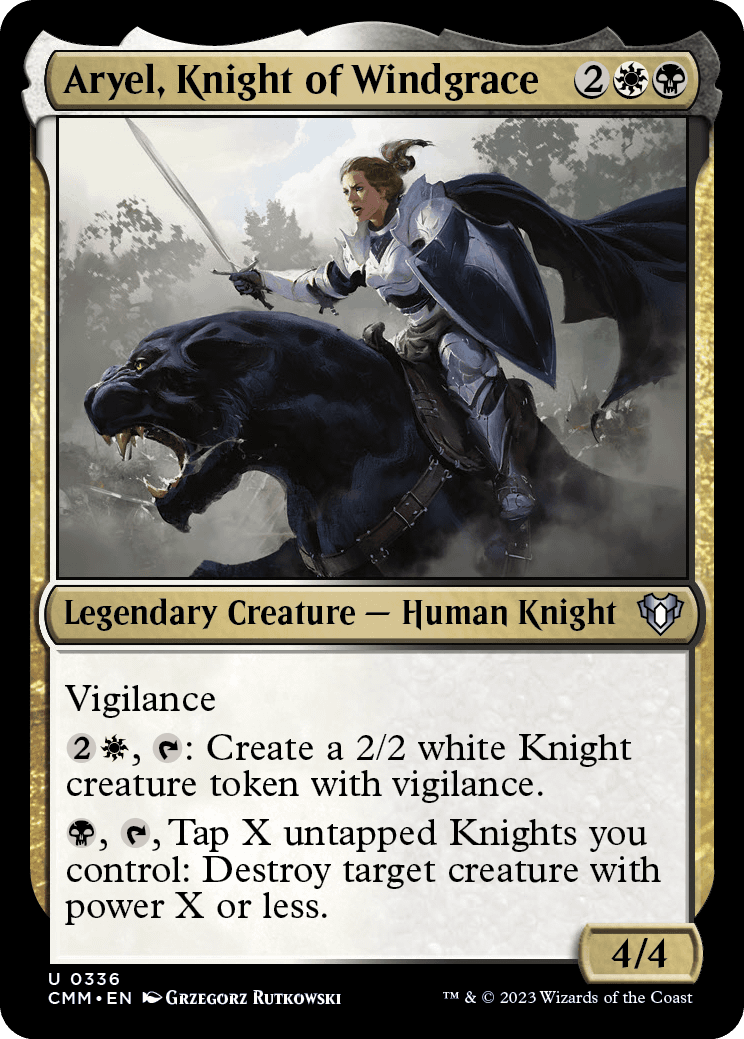
Aryel, Knight of Windgrace
{2}{W}{B}
Legendary Creature — Human Knight
4/4
Vigilance
{2}{W}, {T}: Create a 2/2 white Knight creature token with vigilance.
{B}, {T}, Tap X untapped Knights you control: Destroy target creature with power X or less.
- Tapping Aryel to activate either of its abilities while it's attacking doesn't remove it from combat.
- You can tap any untapped Knights you control, including ones you haven't controlled continuously since the beginning of your most recent turn, to pay the cost of Aryel's last ability. However, you must have controlled Aryel continuously since the beginning of your most recent turn in order to use either of its activated abilities.
- Once you announce that you're activating Aryel's last ability, no player may take other actions until the ability's been paid for. Notably, players can't try to make the value of X invalid by removing or tapping your Knights.
- If the target creature's power is greater than X as Aryel's last ability tries to resolve, the ability doesn't resolve. You can't tap extra Knights once the ability has been activated.
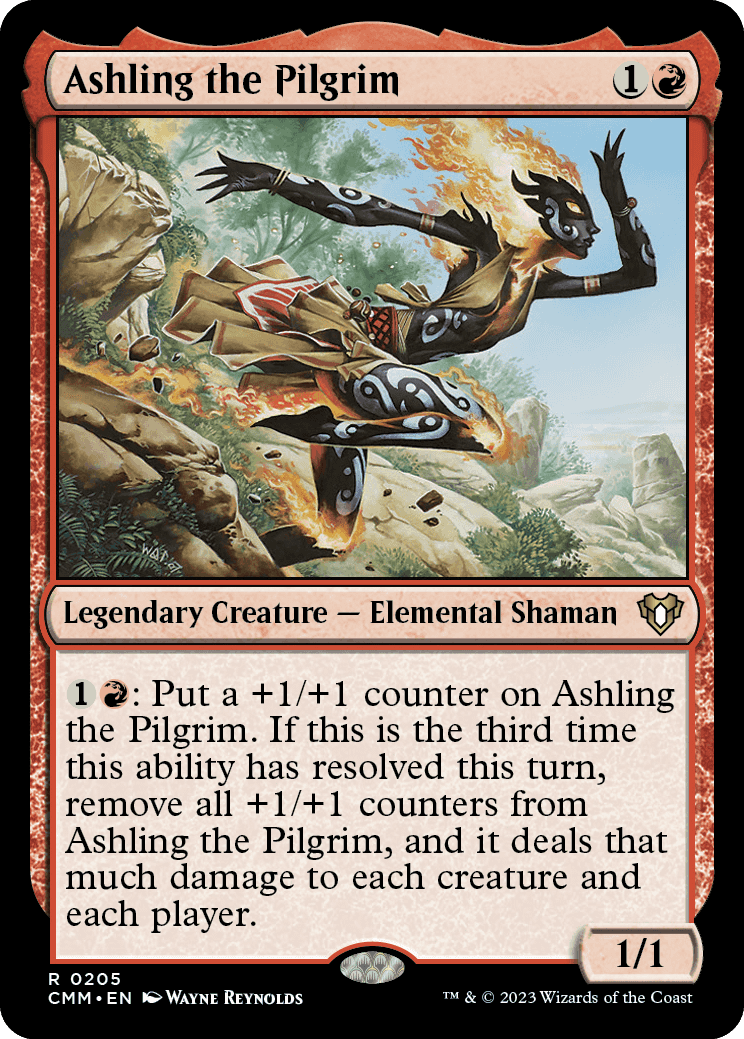
Ashling the Pilgrim
{1}{R}
Legendary Creature — Elemental Shaman
1/1
{1}{R}: Put a +1/+1 counter on Ashling the Pilgrim. If this is the third time this ability has resolved this turn, remove all +1/+1 counters from Ashling the Pilgrim, and it deals that much damage to each creature and each player.
- "That much damage" refers to the number of +1/+1 counters removed from Ashling the Pilgrim. Since the counters are removed, it's likely that the damage will kill Ashling the Pilgrim.
- Ashling the Pilgrim's activated ability counts resolutions, not activations. Any such abilities that are still on the stack won't count toward the total.
- When the ability resolves, it counts the number of times that same ability from this creature has already resolved that turn. It doesn't matter who controlled the creature or the previous abilities when they resolved. A copy of this ability (created by Rings of Brighthearth, for example) will count toward the total. Abilities from other creatures with the same name don't count towards the total. Neither does an ability that's been countered.
- You get the bonus only the third time the ability resolves. You won't get the bonus the fourth, fifth, sixth, or any subsequent times.
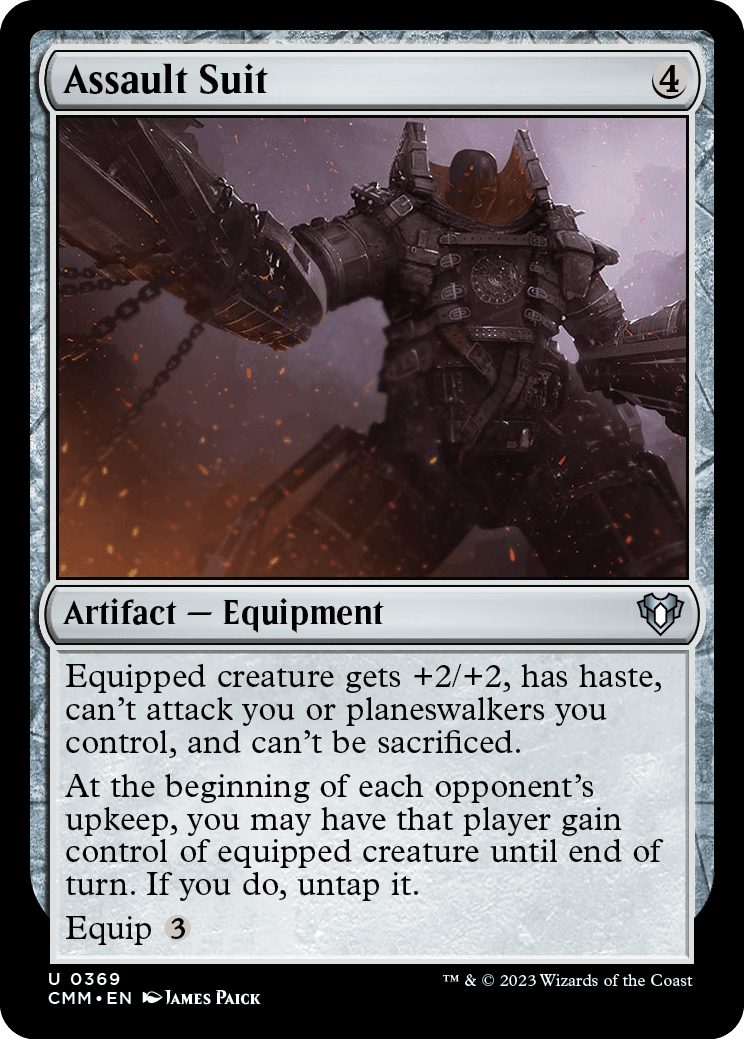
Assault Suit
{4}
Artifact — Equipment
Equipped creature gets +2/+2, has haste, can't attack you or planeswalkers you control, and can't be sacrificed.
At the beginning of each opponent's upkeep, you may have that player gain control of equipped creature until end of turn. If you do, untap it.
Equip {3}
- The equipped creature can't be sacrificed for any reason. If an effect instructs you to sacrifice it, you can't and it remains on the battlefield. You also can't sacrifice it to pay a cost that requires you to sacrifice a creature.
- If an effect instructs you to sacrifice a creature, and you control any creatures other than the creature equipped with Assault Suit, you must sacrifice one of them. You can't try to sacrifice the equipped creature, fail, and therefore ignore the effect.
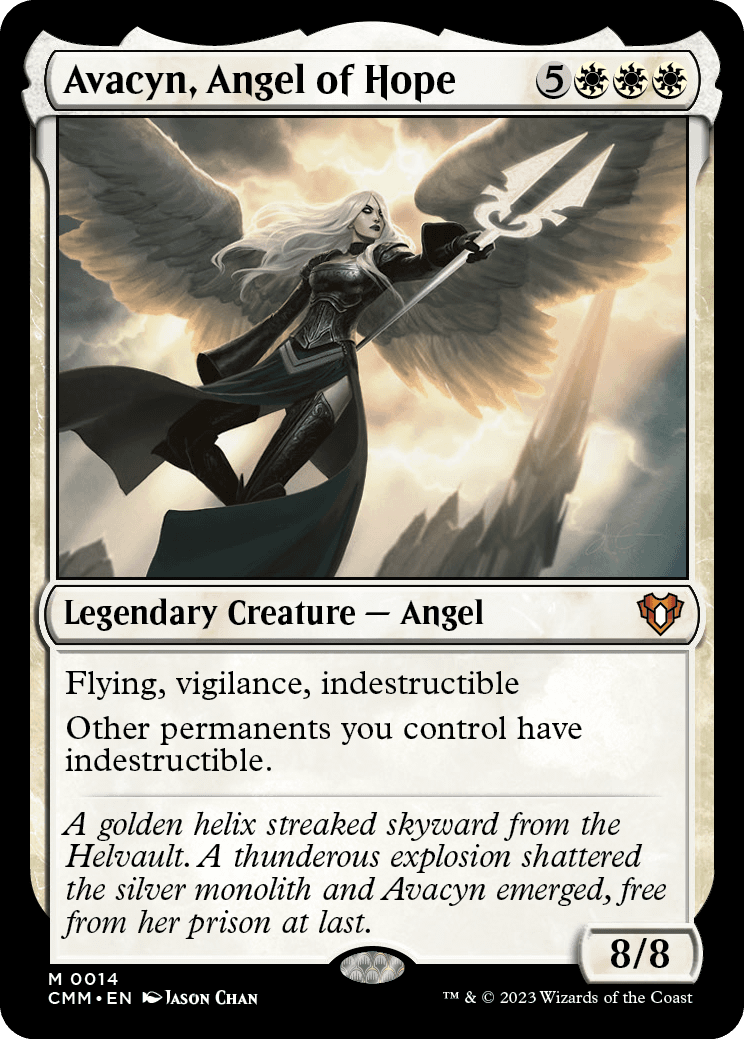
Avacyn, Angel of Hope
{5}{W}{W}{W}
Legendary Creature — Angel
8/8
Flying, vigilance, indestructible
Other permanents you control have indestructible.
- Because damage remains marked on a creature until the damage is removed as the turn ends, nonlethal damage dealt to a creature you control may become lethal if Avacyn leaves the battlefield during that turn.
- A planeswalker with indestructible still loses loyalty as it's dealt damage. It is put into its owner's graveyard if its loyalty becomes 0.
- A battle with indestructible still loses defense counters as it's dealt damage. If it's a Siege, it will still be exiled when the last defense counter is removed from it, and its controller may still cast it transformed without paying its mana cost.
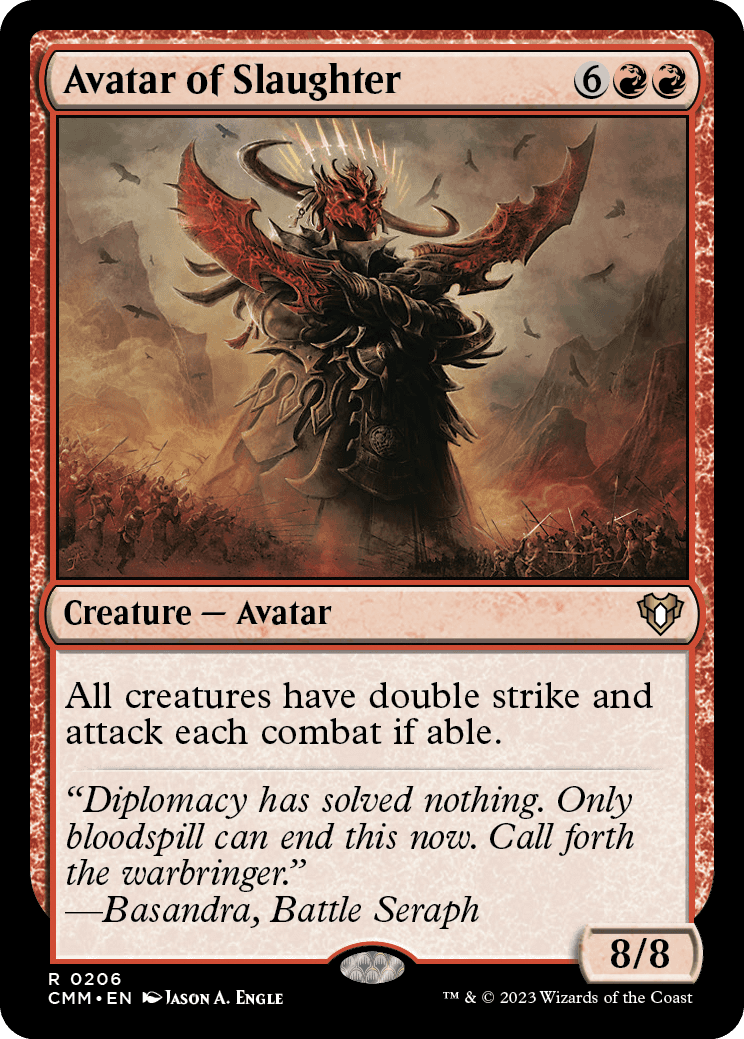
Avatar of Slaughter
{6}{R}{R}
Creature — Avatar
8/8
All creatures have double strike and attack each combat if able.
- If, during a player's declare attackers step, a creature is tapped, is affected by a spell or ability that says it can't attack, or hasn't been under that player's control continuously since the turn began (and doesn't have haste), then it doesn't attack. If there's a cost associated with having a creature attack, the player isn't forced to pay that cost, so it doesn't have to attack in that case either.
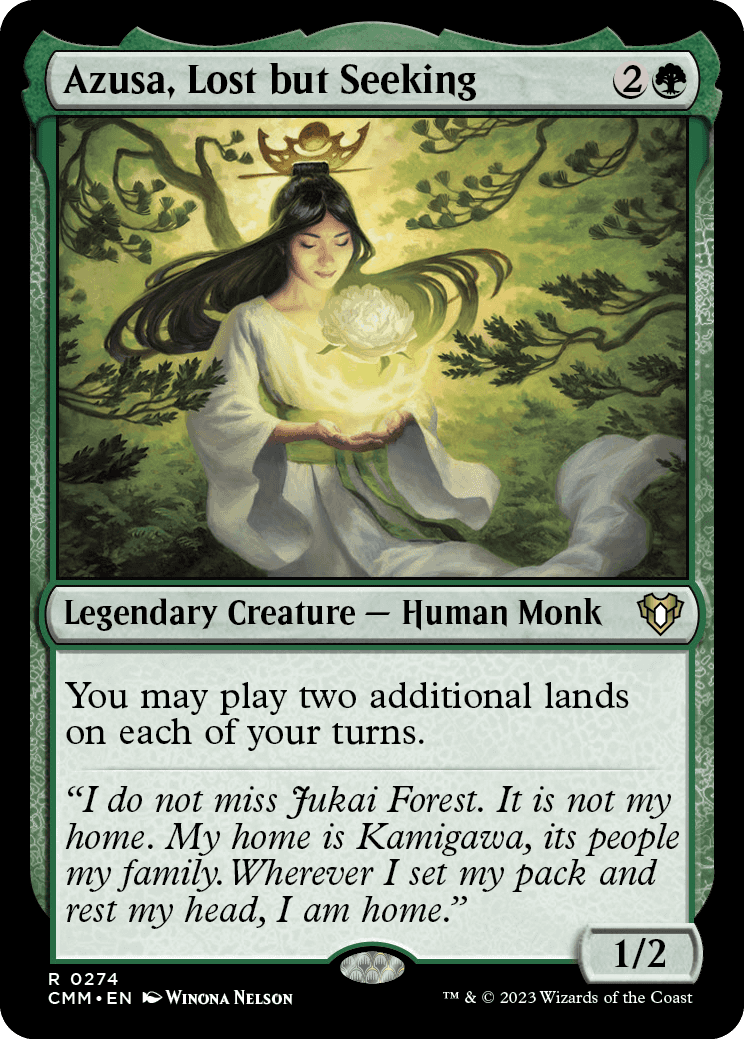
Azusa, Lost but Seeking
{2}{G}
Legendary Creature — Human Monk
1/2
You may play two additional lands on each of your turns.
- Azusa's ability is cumulative with other effects that allow you to play additional lands, such as that of Wayward Swordtooth.
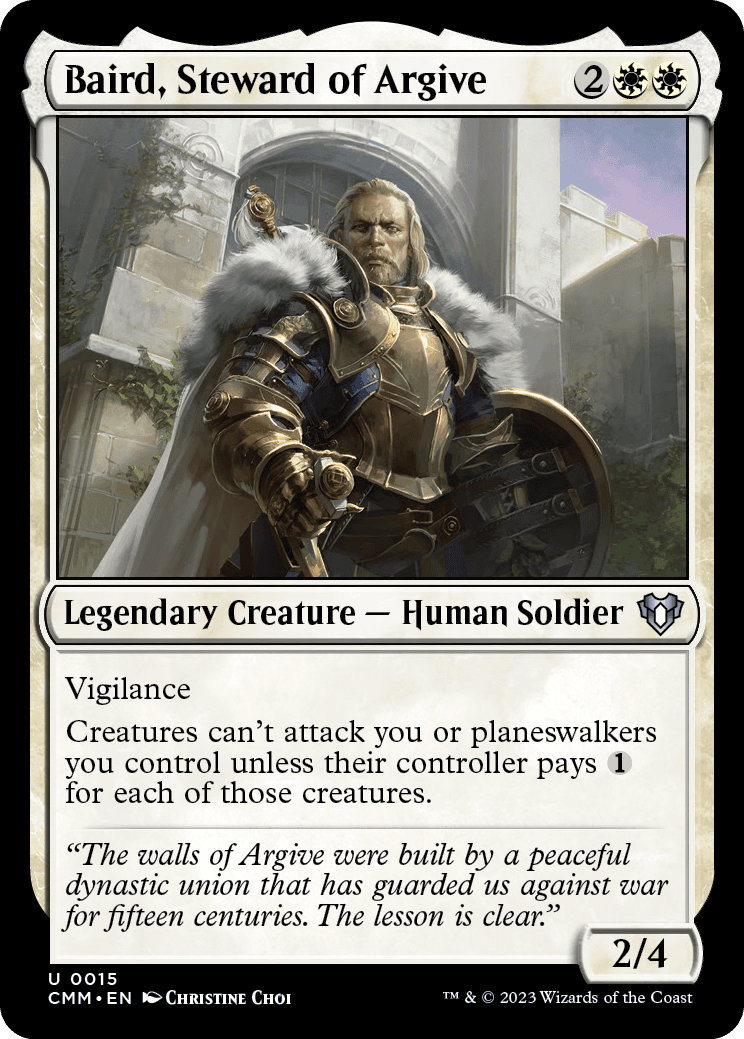
Baird, Steward of Argive
{2}{W}{W}
Legendary Creature — Human Soldier
2/4
Vigilance
Creatures can't attack you or planeswalkers you control unless their controller pays {1} for each of those creatures.
- If you control Baird, your opponents can choose not to pay to attack with a creature that attacks "if able." If there's no other player, planeswalker, or battle to attack, that creature simply doesn't attack.
- In a Two-Headed Giant game, creatures can attack your teammate and planeswalkers your teammate controls without requiring a mana payment.
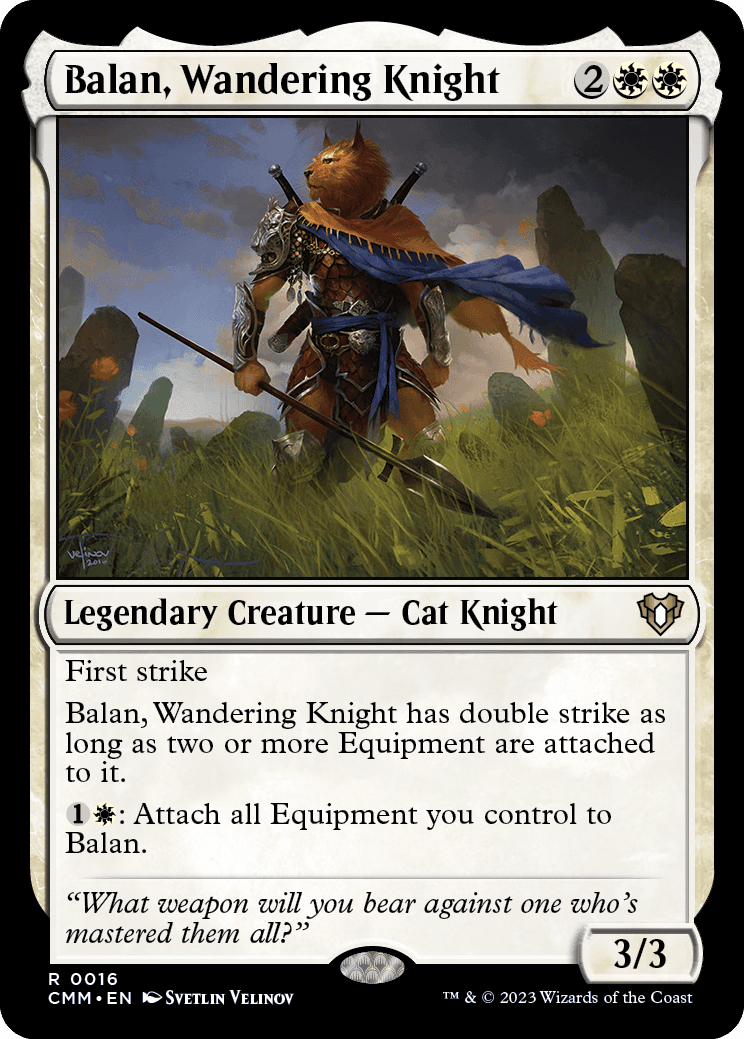
Balan, Wandering Knight
{2}{W}{W}
Legendary Creature — Cat Knight
3/3
First strike
Balan, Wandering Knight has double strike as long as two or more Equipment are attached to it.
{1}{W}: Attach all Equipment you control to Balan.
- Balan's activated ability has no timing restriction. You can activate it any time you have priority.
- If Balan deals first-strike damage and then gains double strike (most likely because it picked up some Equipment with its activated ability after first-strike damage was dealt), it will also deal regular combat damage.
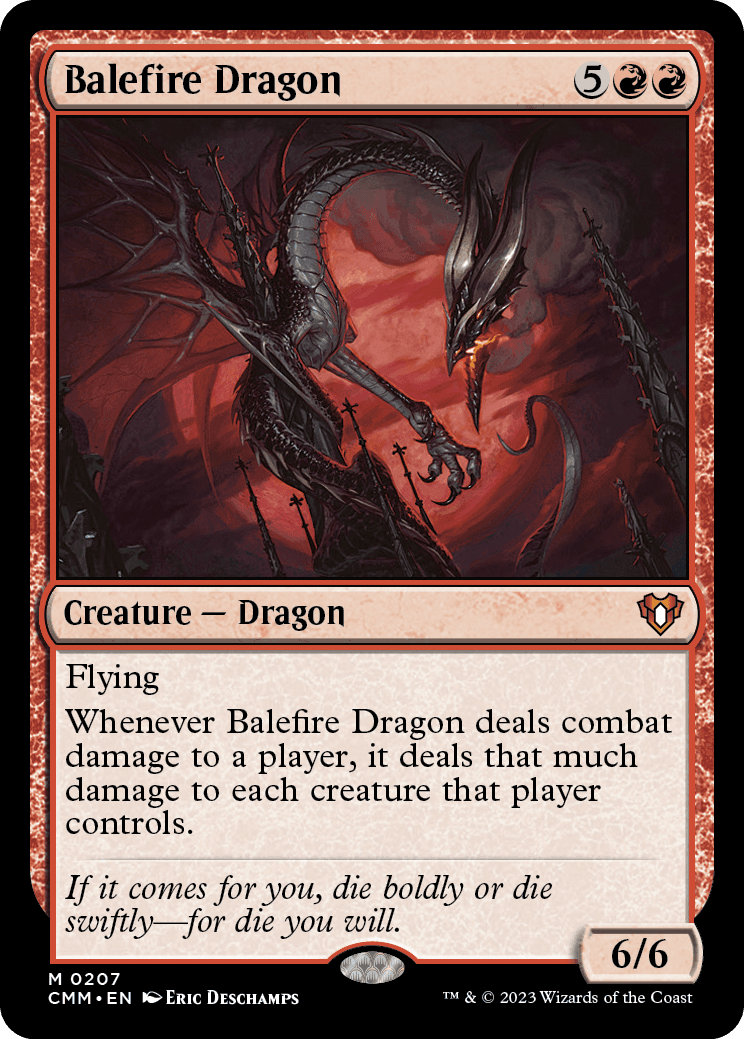
Balefire Dragon
{5}{R}{R}
Creature — Dragon
6/6
Flying
Whenever Balefire Dragon deals combat damage to a player, it deals that much damage to each creature that player controls.
- The damage dealt by Balefire Dragon's triggered ability isn't combat damage.
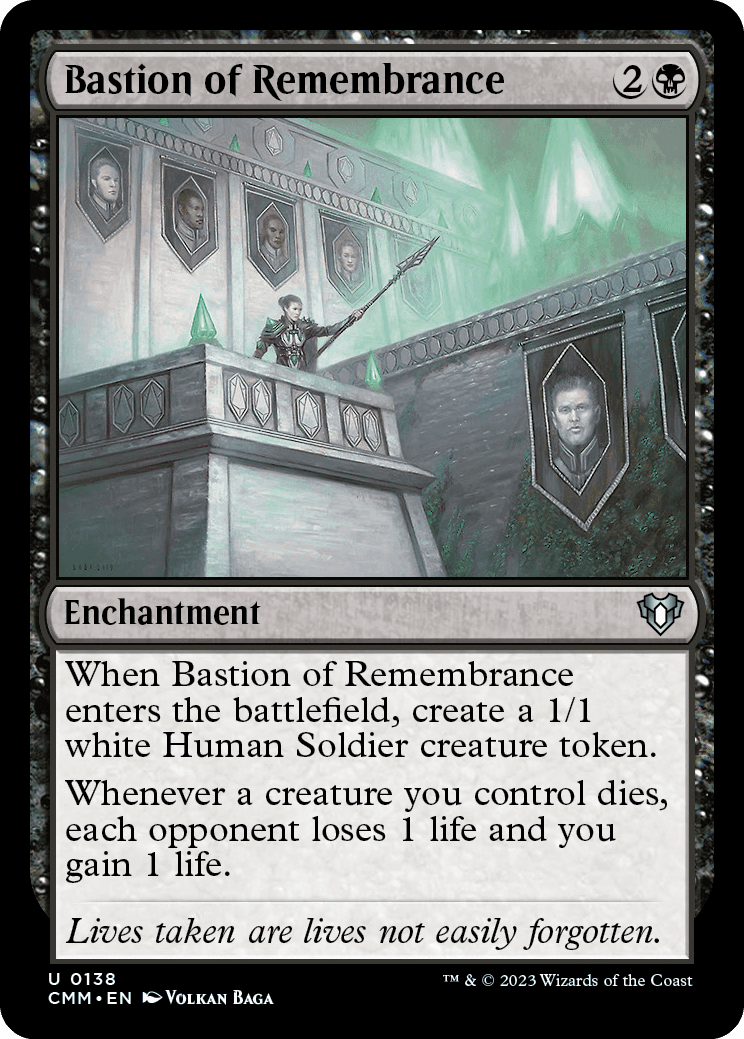
Bastion of Remembrance
{2}{B}
Enchantment
When Bastion of Remembrance enters the battlefield, create a 1/1 white Human Soldier creature token.
Whenever a creature you control dies, each opponent loses 1 life and you gain 1 life.
- If one or more creatures you control die at the same time that Bastion of Remembrance leaves the battlefield, its last ability triggers for each of those creatures.
- If your life total is brought to 0 or less at the same time that creatures you control are dealt lethal damage, you lose the game before the last ability goes on the stack.
- In a Two-Headed Giant game, Bastion of Remembrance's last ability causes the opposing team to lose 2 life and you to gain 1 life.
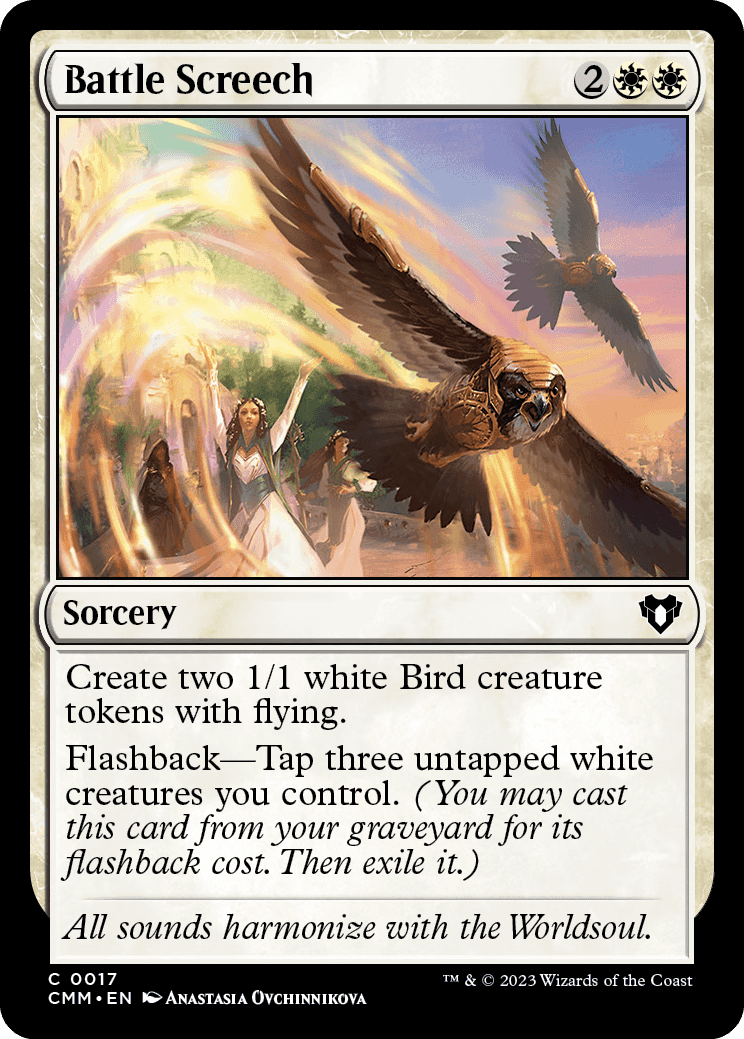
Battle Screech
{2}{W}{W}
Sorcery
Create two 1/1 white Bird creature tokens with flying.
Flashback—Tap three untapped white creatures you control. (You may cast this card from your graveyard for its flashback cost. Then exile it.)
- You can tap any untapped white creatures you control to pay for Battle Screech's flashback cost, even ones you haven't controlled continuously since the beginning of your most recent turn.
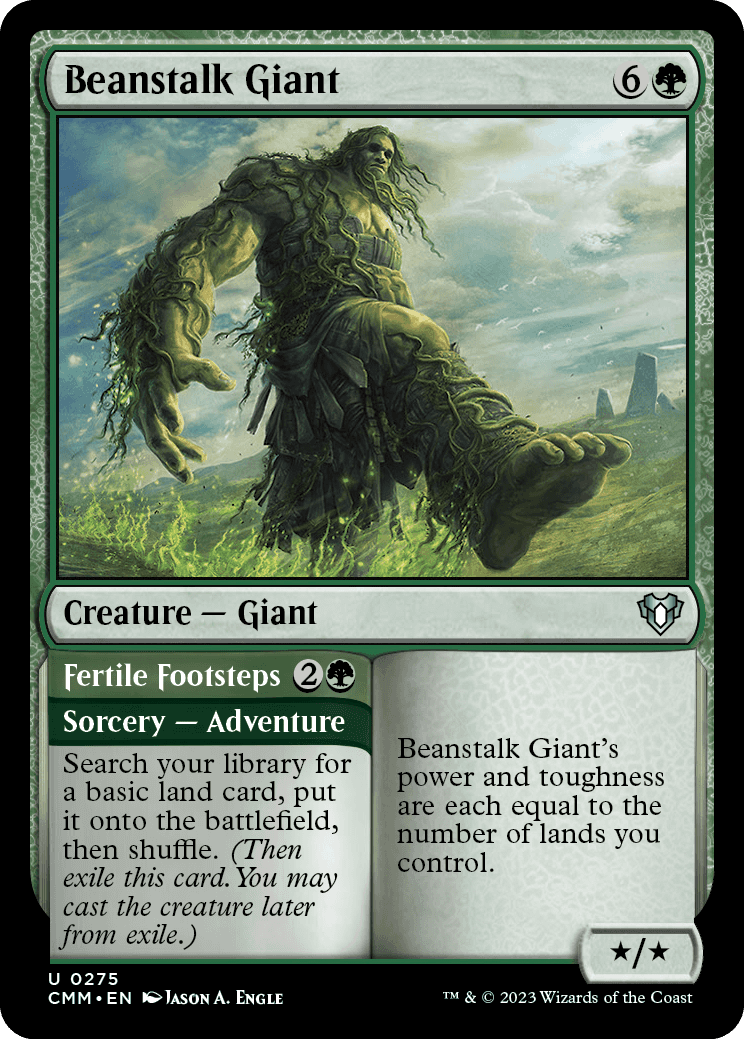
Beanstalk Giant
{6}{G}
Creature — Giant
*/*
Beanstalk Giant's power and toughness are each equal to the number of lands you control.
//ADV//
Fertile Footsteps
{2}{G}
Sorcery — Adventure
Search your library for a basic land card, put it onto the battlefield, then shuffle. (Then exile this card. You may cast the creature later from exile.)
- The ability that defines Beanstalk Giant's power and toughness works in all zones, not just the battlefield.
- An adventurer card is a creature card in every zone except the stack, as well as while on the stack if not cast as an Adventure. Ignore its alternative characteristics in those cases. For example, while it's in your graveyard, Beanstalk Giant is a green creature card whose mana value is 7. It can't be the target of the triggered ability of Shipwreck Dowser.
- When casting a spell as an Adventure, use the alternative characteristics and ignore all of the card's normal characteristics. The spell's color, mana cost, mana value, and so on are determined by only those alternative characteristics. If the spell leaves the stack, it immediately resumes using its normal characteristics.
- If you cast an adventurer card as an Adventure, use only its alternative characteristics to determine whether it's legal to cast that spell. For example, if you control Karador, Ghost Chieftain and Beanstalk Giant is in your graveyard, you can't cast it as Fertile Footsteps.
- If a spell is cast as an Adventure, its controller exiles it instead of putting it into its owner's graveyard as it resolves. For as long as it remains exiled, that player may cast it as a creature spell. If an Adventure spell leaves the stack in any way other than resolving (most likely by being countered or by failing to resolve because its targets have all become illegal), that card won't be exiled and the spell's controller won't be able to cast it as a creature later.
- If an adventurer card ends up in exile for any other reason than by exiling itself while resolving, it won't give you permission to cast it as a creature spell.
- You must still follow any timing restrictions and permissions for the creature spell you cast from exile. Normally, you'll be able to cast it only during your main phase while the stack is empty.
- If an effect copies an Adventure spell, that copy is exiled as it resolves. It ceases to exist as a state-based action; it's not possible to cast the copy as a creature.
- If an object becomes a copy of an object that has an Adventure, the copy also has an Adventure. If it changes zones, it will either cease to exist (if it's a token) or cease to be a copy (if it's a nontoken permanent), and so you won't be able to cast it as an Adventure.
- If an effect instructs you to choose a card name, you may choose the alternative Adventure name. Consider only the alternative characteristics to determine whether that is an appropriate name to choose.
- Casting a card as an Adventure isn't casting it for an alternative cost. Effects that allow you to cast a spell for an alternative cost or without paying its mana cost may allow you to apply those to the Adventure.
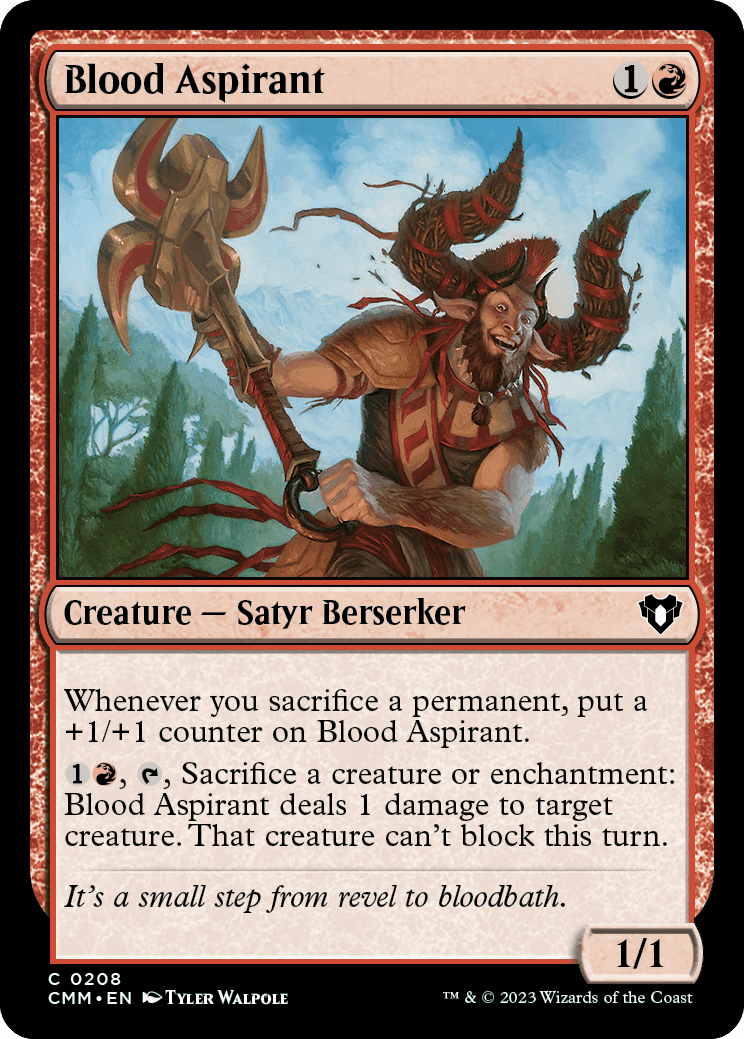
Blood Aspirant
{1}{R}
Creature — Satyr Berserker
1/1
Whenever you sacrifice a permanent, put a +1/+1 counter on Blood Aspirant.
{1}{R}, {T}, Sacrifice a creature or enchantment: Blood Aspirant deals 1 damage to target creature. That creature can't block this turn.
- Blood Aspirant's first ability is a triggered ability, not an activated ability. It doesn't allow you to sacrifice a permanent whenever you want; rather, you need some other way of sacrificing permanents, such as its second ability.
- If you sacrifice a permanent as part of casting a spell or activating an ability, Blood Aspirant's first ability will resolve before that spell or ability.
- Blood Aspirant can be sacrificed to pay for the cost of its own last ability.
- If the target creature is an illegal target by the time Blood Aspirant's last ability tries to resolve, the ability won't resolve. The creature can block as normal. If the target is legal but not dealt damage (most likely because of a prevention effect), it can't block this turn.
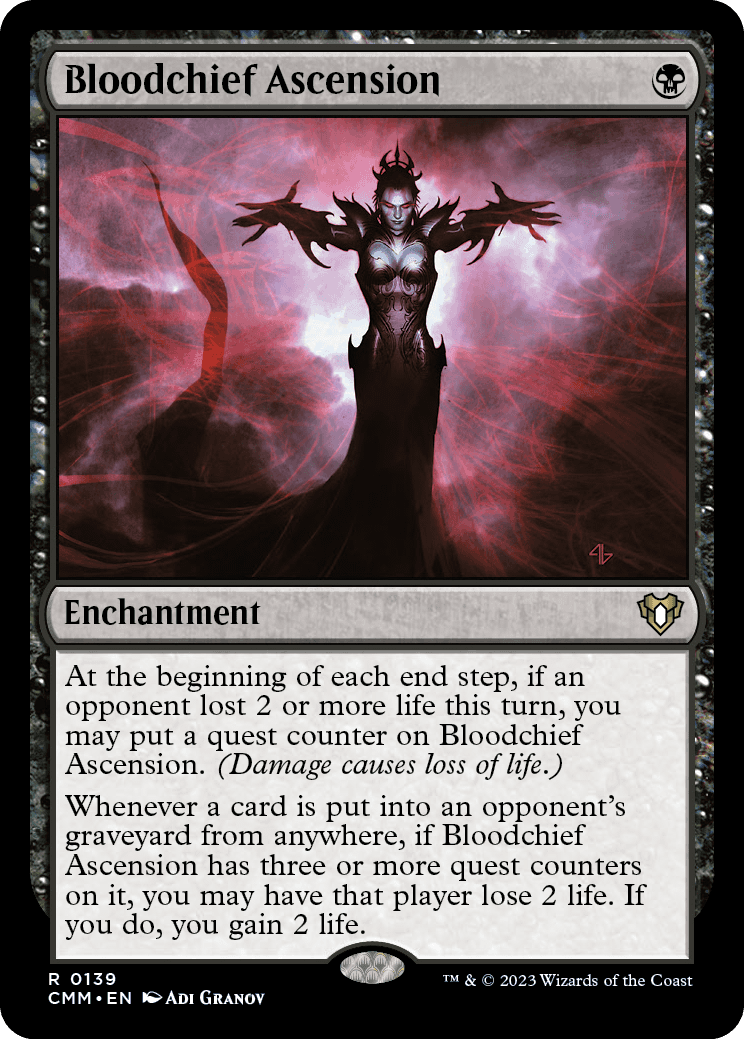
Bloodchief Ascension
{B}
Enchantment
At the beginning of each end step, if an opponent lost 2 or more life this turn, you may put a quest counter on Bloodchief Ascension. (Damage causes loss of life.)
Whenever a card is put into an opponent's graveyard from anywhere, if Bloodchief Ascension has three or more quest counters on it, you may have that player lose 2 life. If you do, you gain 2 life.
- Bloodchief Ascension's first ability has an "intervening 'if' clause." It won't trigger at all unless an opponent has already lost 2 or more life by the time the end step begins.
- Bloodchief Ascension's first ability checks how much life was lost by each opponent over the course of the entire turn, even if Bloodchief Ascension wasn't on the battlefield the whole time.
- For the first ability to trigger, a single opponent must have lost 2 life. Two opponents each losing 1 life won't cause it to trigger. It will trigger a maximum of once per turn, no matter how many opponents have lost 2 or more life.
- Bloodchief Ascension's first ability checks only whether life was lost. It doesn't care whether life was also gained. For example, if an opponent lost 4 life and gained 6 life during the turn, that player will have a higher life total than they started the turn with — but Bloodchief Ascension's first ability will still trigger.
- Bloodchief Ascension's second ability doesn't behave like a leaves-the-battlefield triggered ability, since the card put into an opponent's graveyard may come from anywhere. If a Bloodchief Ascension with three quest counters on it and a permanent an opponent owns are destroyed at the same time, for example, the game will not "look back in time" at the game state, and Bloodchief Ascension's second ability won't trigger.
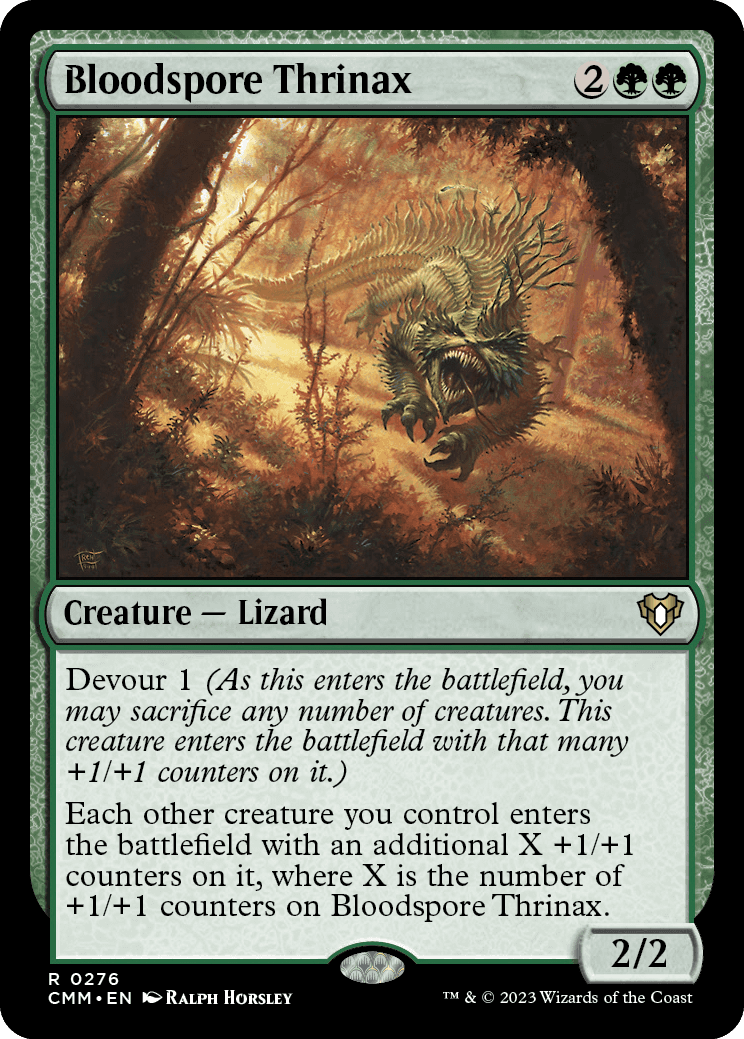
Bloodspore Thrinax
{2}{G}{G}
Creature — Lizard
2/2
Devour 1 (As this enters the battlefield, you may sacrifice any number of creatures. This creature enters the battlefield with that many +1/+1 counters on it.)
Each other creature you control enters the battlefield with an additional X +1/+1 counters on it, where X is the number of +1/+1 counters on Bloodspore Thrinax.
- If Bloodspore Thrinax enters the battlefield at the same time as other creatures you control, those creatures won't get additional +1/+1 counters from Bloodspore Thrinax's last ability. Those creatures also can't be devoured by Bloodspore Thrinax.
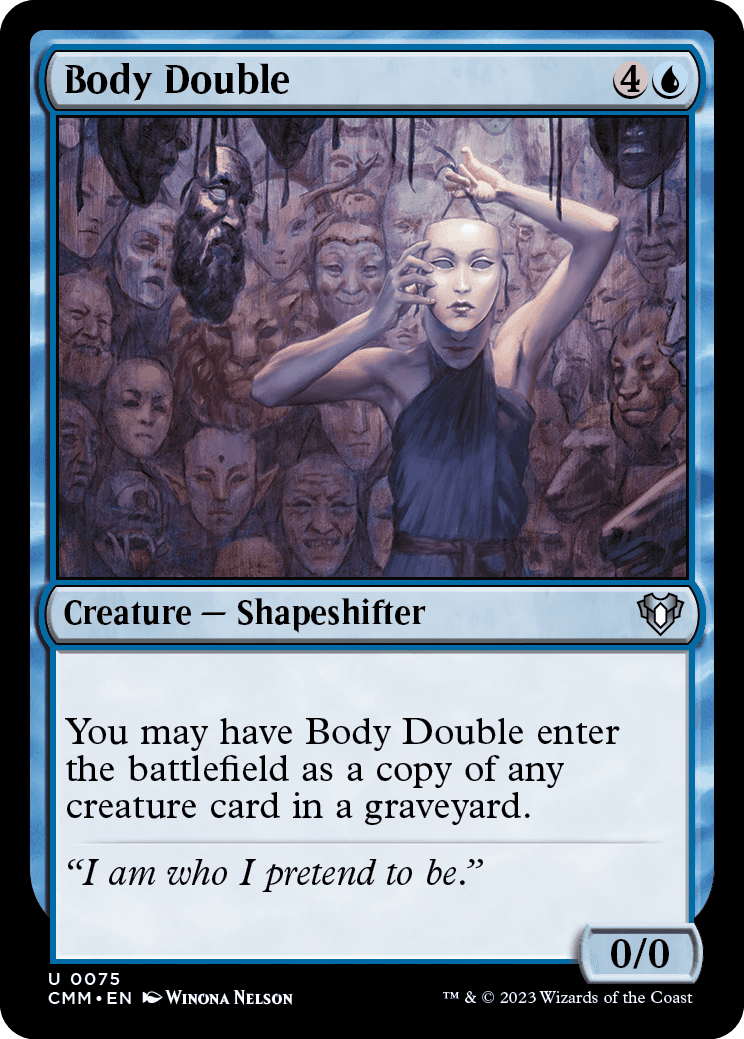
Body Double
{4}{U}
Creature — Shapeshifter
0/0
You may have Body Double enter the battlefield as a copy of any creature card in a graveyard.
- Treat Body Double as though it were the chosen card entering the battlefield. Any "As this card enters the battlefield," "This card enters the battlefield with," and "When this card enters the battlefield" abilities of the chosen card will work.
- You don't have to choose a card to copy. If you don't, Body Double enters the battlefield as a 0/0 creature and is probably put into your graveyard immediately, unless something is increasing its toughness to keep it alive.
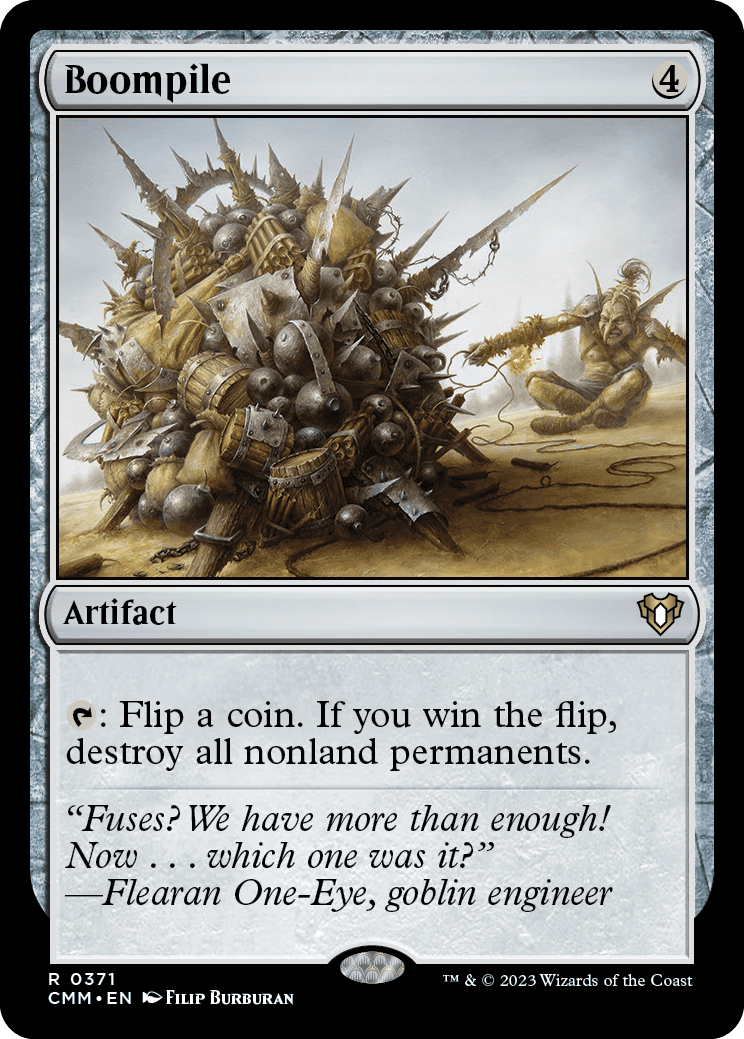
Boompile
{4}
Artifact
{T}: Flip a coin. If you win the flip, destroy all nonland permanents.
- You flip a coin as Boompile's ability resolves. No player may take actions between seeing the result of the flip and all nonland permanents being destroyed.
- If you win the flip, Boompile is destroyed along with all the other nonland permanents (unless it has indestructible.)
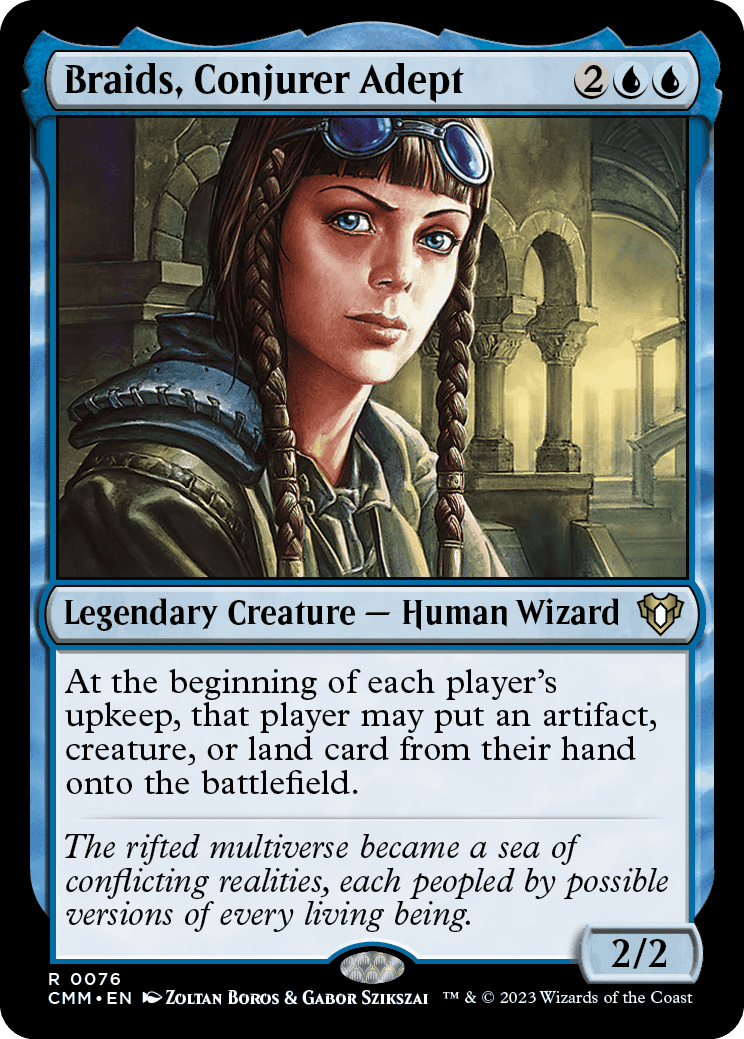
Braids, Conjurer Adept
{2}{U}{U}
Legendary Creature — Human Wizard
2/2
At the beginning of each player's upkeep, that player may put an artifact, creature, or land card from their hand onto the battlefield.
- Braids's effect doesn't count as playing a land if you put one onto the battlefield with it. You can still play a land for the turn during your main phase.
- If the permanent you put onto the battlefield has an ability that triggers at the beginning of your upkeep, it won't trigger during that upkeep.
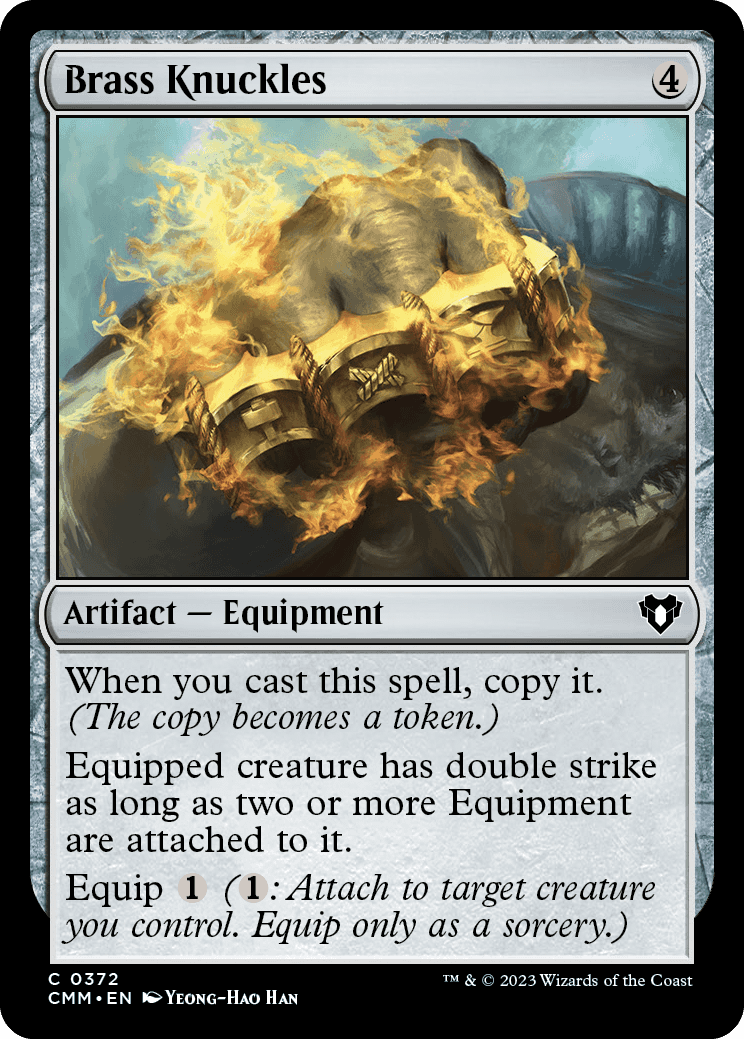
Brass Knuckles
{4}
Artifact — Equipment
When you cast this spell, copy it. (The copy becomes a token.)
Equipped creature has double strike as long as two or more Equipment are attached to it.
Equip {1} ({1}: Attach to target creature you control. Equip only as a sorcery.)
- Multiple instances of double strike do not increase the number of strikes. That creature still only gets to deal combat damage twice.
- A copy of a permanent spell enters the battlefield as a token. This is not the same as an effect that creates a token, and any effect that refers to creating a token does not apply to copies of permanent spells.
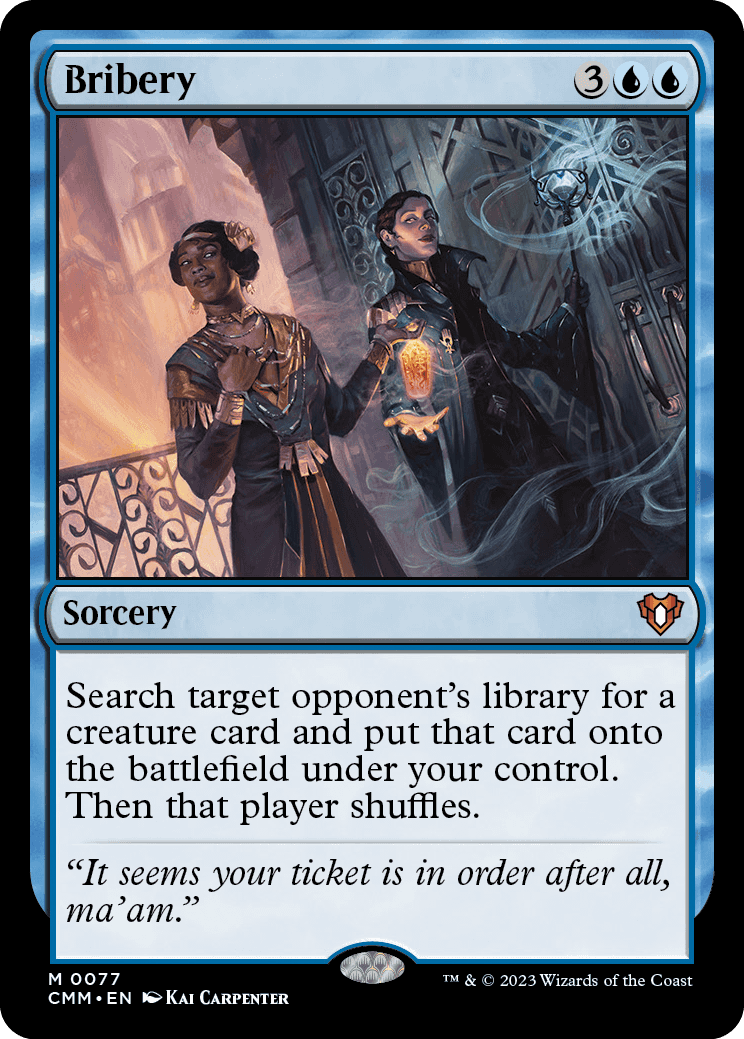
Bribery
{3}{U}{U}
Sorcery
Search target opponent's library for a creature card and put that card onto the battlefield under your control. Then that player shuffles.
- You put the creature onto the battlefield, so you control it and any "enters the battlefield" abilities it has.
- Because the "search" requires you to find a card with certain characteristics, you don't have to find the card if you don't want to.

Brinelin, the Moon Kraken
{6}{U}{U}
Legendary Creature — Kraken
6/8
When Brinelin, the Moon Kraken enters the battlefield and whenever you cast a spell with mana value 6 or greater, you may return target nonland permanent to its owner's hand.
Partner (You can have two commanders if both have partner.)
- For spells with {X} in their mana costs, use the value chosen for X to determine the spell's mana value.
- An ability that triggers when a player casts a spell resolves before the spell that caused it to trigger. It resolves even if that spell is countered.
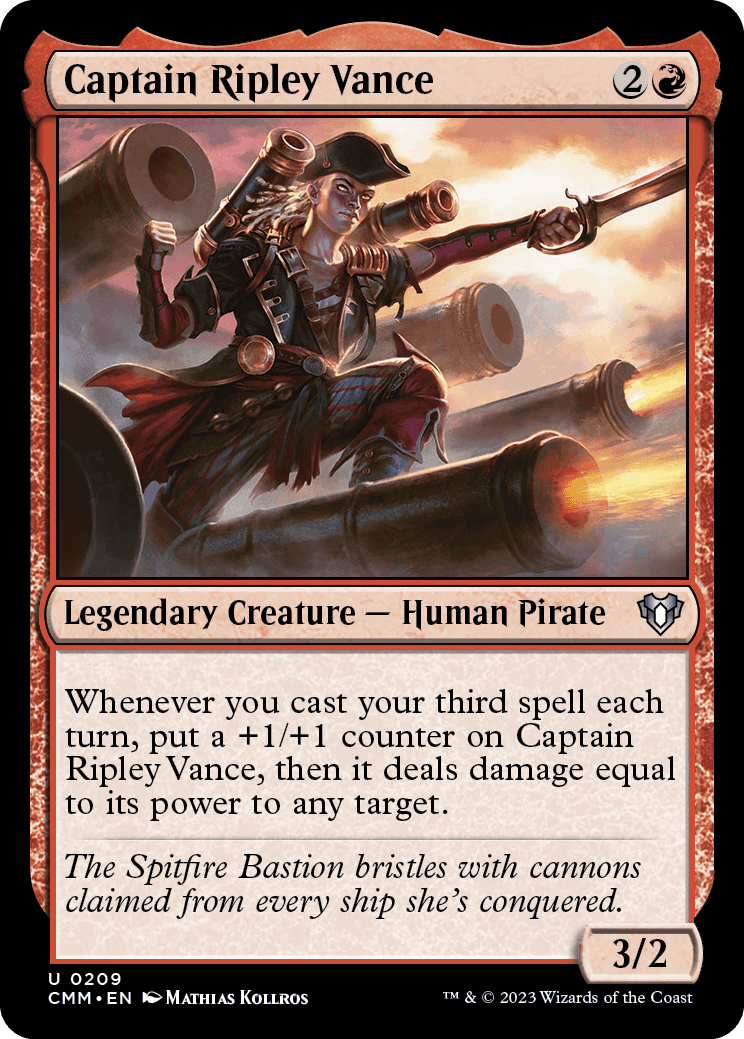
Captain Ripley Vance
{2}{R}
Legendary Creature — Human Pirate
3/2
Whenever you cast your third spell each turn, put a +1/+1 counter on Captain Ripley Vance, then it deals damage equal to its power to any target.
- Captain Ripley Vance need not be on the battlefield to witness the first two spells being cast. As long as it's already on the battlefield when you cast the third spell of a turn, its ability triggers.
- Believe it or not, Ripley counts spells that were cast even if they didn't resolve. This means it still counts spells that were countered.
- Copying a spell is not the same as casting a spell.
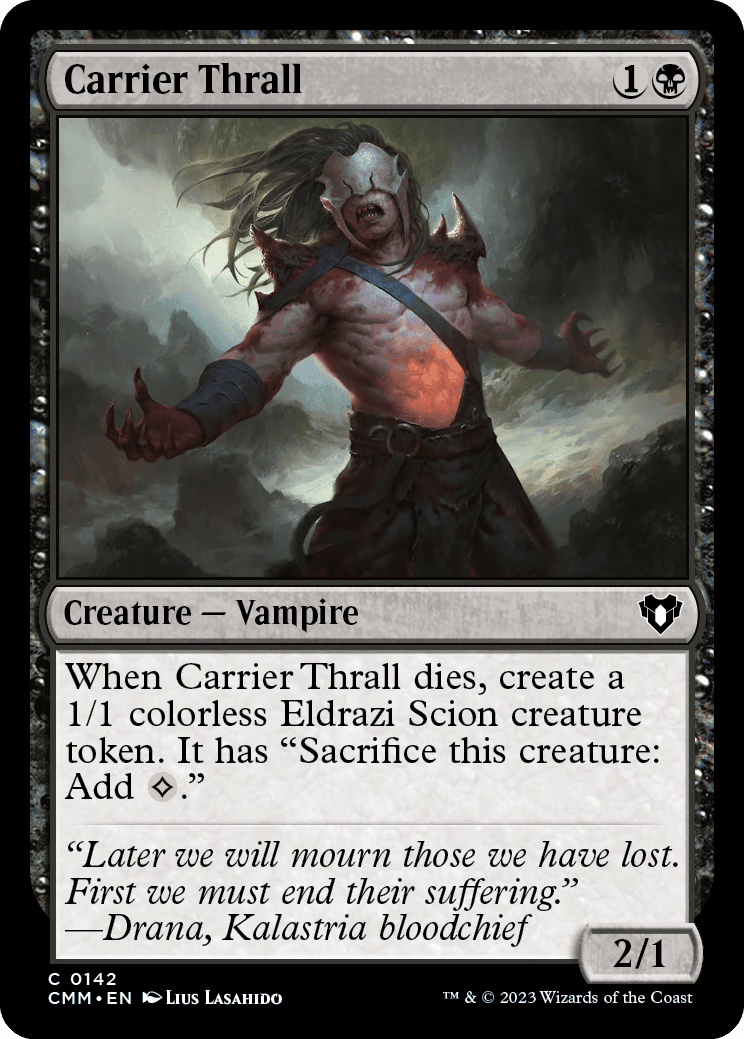
Carrier Thrall
{1}{B}
Creature — Vampire
2/1
When Carrier Thrall dies, create a 1/1 colorless Eldrazi Scion creature token. It has "Sacrifice this creature: Add {C}."
- Eldrazi Scions are similar to Eldrazi Spawn, seen in the Zendikar block. Note that Eldrazi Scions are 1/1, not 0/1.
- Eldrazi and Scion are each separate creature types. Anything that affects Eldrazi will affect these tokens, for example.
- Sacrificing an Eldrazi Scion creature token to add {C} to your mana pool is a mana ability. It doesn't use the stack and can't be responded to.
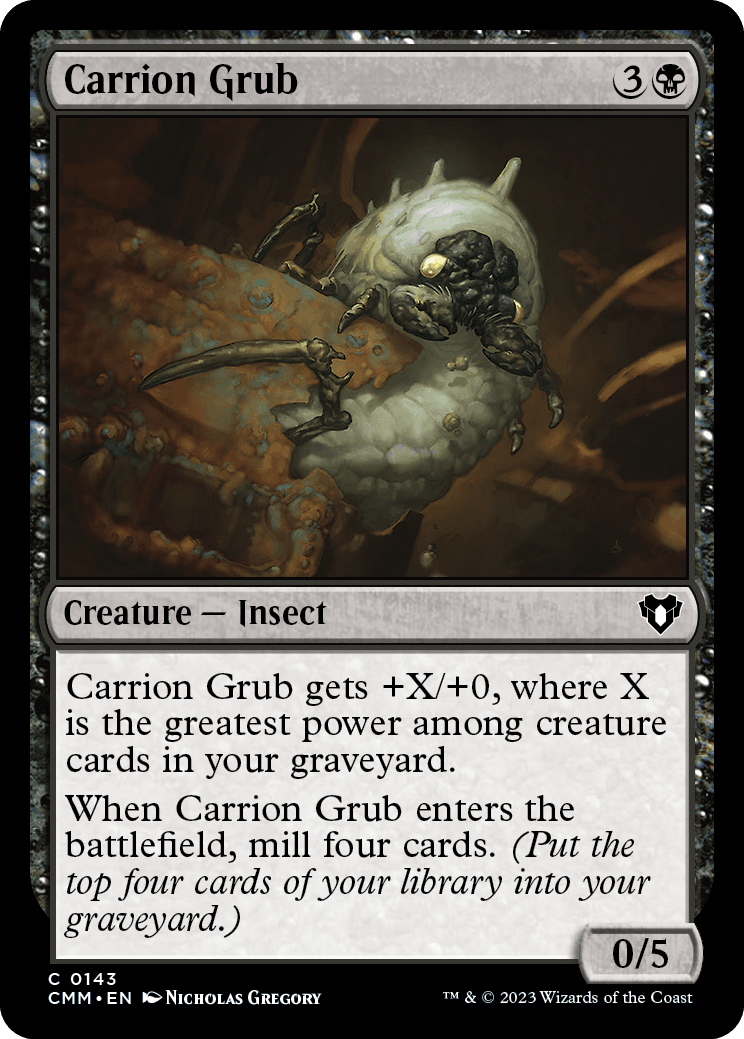
Carrion Grub
{3}{B}
Creature — Insect
0/5
Carrion Grub gets +X/+0, where X is the greatest power among creature cards in your graveyard.
When Carrion Grub enters the battlefield, mill four cards. (Put the top four cards of your library into your graveyard.)
- Carrion Grub's first ability applies only while it is on the battlefield. In all other zones, its power is 0.
- Any counters on creatures that die or effects that affect them until end of turn won't apply to those cards in their owner's graveyard.
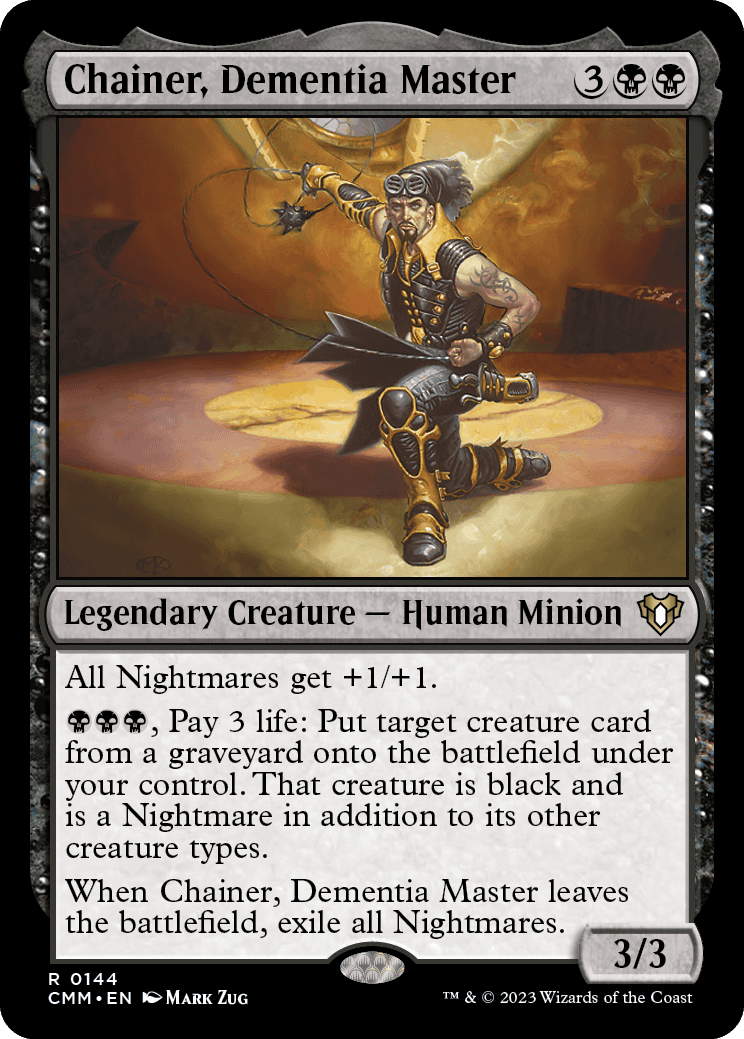
Chainer, Dementia Master
{3}{B}{B}
Legendary Creature — Human Minion
3/3
All Nightmares get +1/+1.
{B}{B}{B}, Pay 3 life: Put target creature card from a graveyard onto the battlefield under your control. That creature is black and is a Nightmare in addition to its other creature types.
When Chainer, Dementia Master leaves the battlefield, exile all Nightmares.
- The creature put onto the battlefield by Chainer's activated ability is black only, not black in addition to its other colors. It is, however, a Nightmare in addition to its other creature types. As it enters the battlefield, it is already a black Nightmare (and perhaps some other creature types); it doesn't enter and then become a black Nightmare.
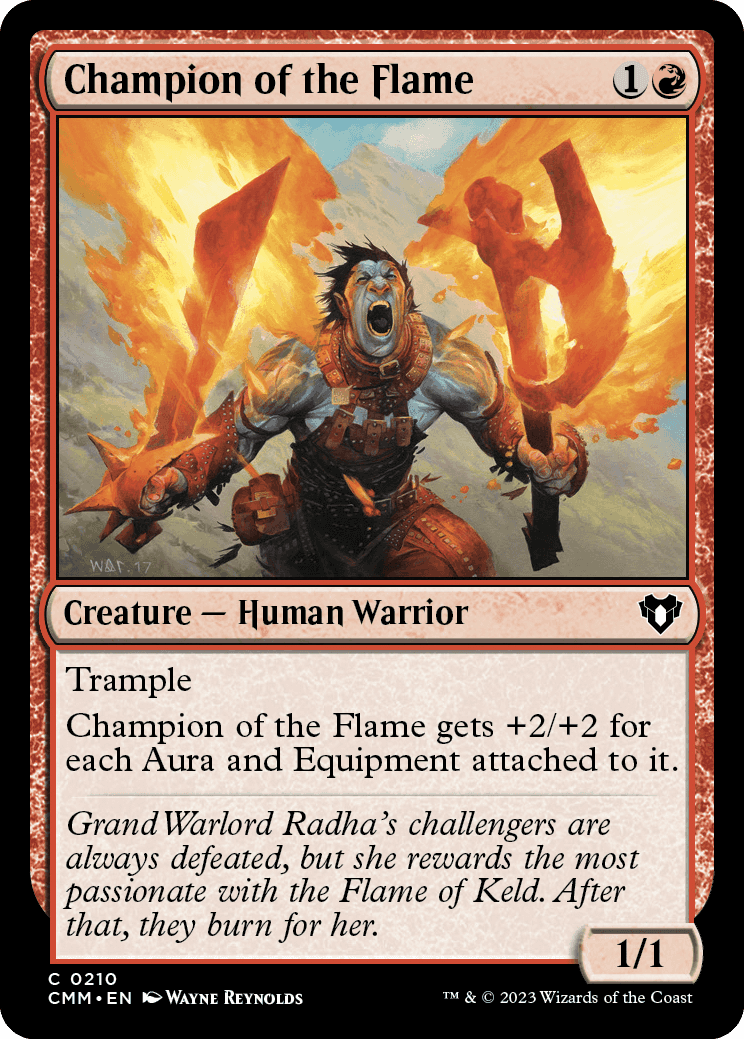
Champion of the Flame
{1}{R}
Creature — Human Warrior
1/1
Trample
Champion of the Flame gets +2/+2 for each Aura and Equipment attached to it.
- Because damage remains marked on a creature until the damage is removed as the turn ends, nonlethal damage dealt to Champion of the Flame may become lethal if an Aura or Equipment attached to it leaves the battlefield or becomes attached to another creature during that turn.
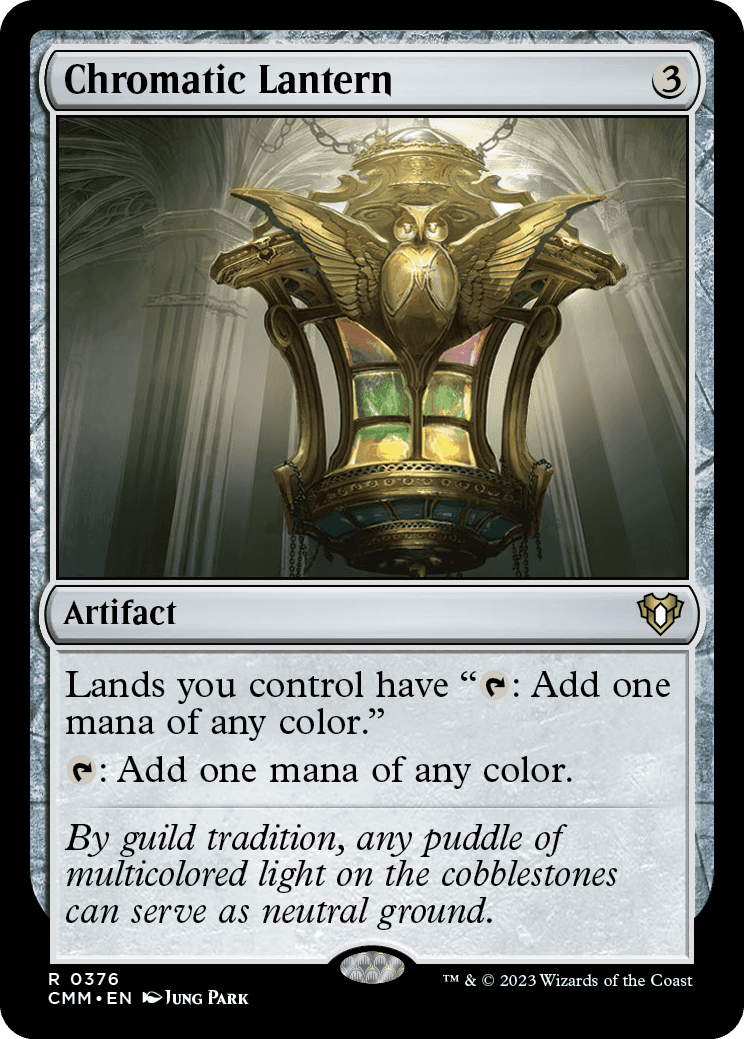
Chromatic Lantern
{3}
Artifact
Lands you control have "{T}: Add one mana of any color."
{T}: Add one mana of any color.
- Lands you control won't lose any other abilities they had. They also won't gain or lose any land types.
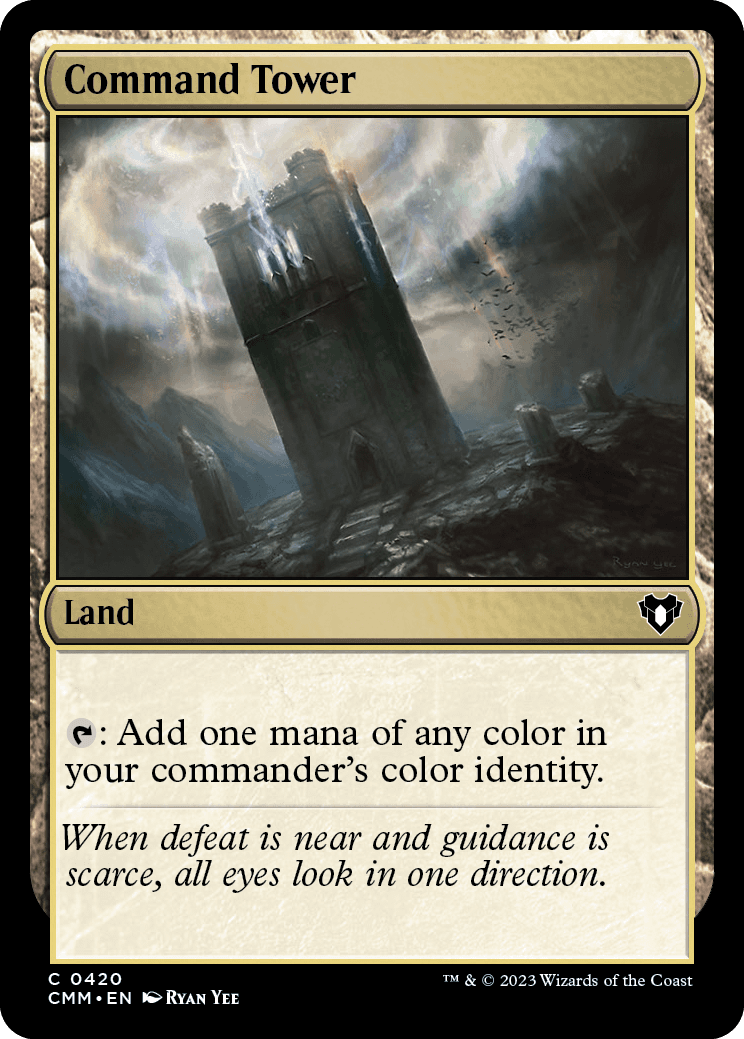
Command Tower
Land
{T}: Add one mana of any color in your commander's color identity.
- If you have two commanders, the ability adds one mana of any color in their combined color identities.
- If your commander is a card that has no colors in its color identity, Command Tower's ability produces no mana. It doesn't produce {C}.
- If you don't have a commander, Command Tower's ability produces no mana.
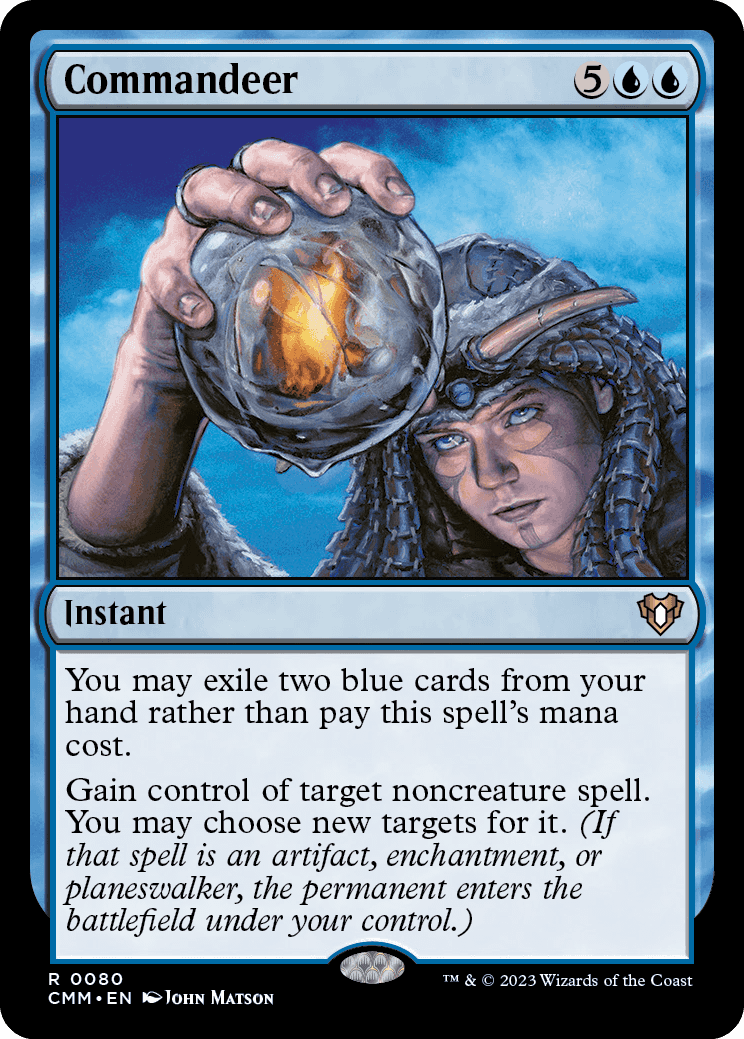
Commandeer
{5}{U}{U}
Instant
You may exile two blue cards from your hand rather than pay this spell's mana cost.
Gain control of target noncreature spell. You may choose new targets for it. (If that spell is an artifact, enchantment, or planeswalker, the permanent enters the battlefield under your control.)
- If you gain control of an instant or sorcery spell with Commandeer, it will still be put into its owner's graveyard when it resolves.
- After Commandeer resolves, you control the targeted spell. Any instance of "you" in that spell's text now refers to you, "an opponent" refers to one of your opponents, and so on. The change of control happens before new targets are chosen, so any targeting restrictions such as "target opponent" or "target creature you control" are now made in reference to you, not the spell's original controller. You may either change those targets to be legal in reference to you, or, if those are the spell's only targets, the spell doesn't resolve for having illegal targets. When the spell resolves, any illegal targets are unaffected by it and you make all decisions the spell's effect calls for.
- You may change any of the targeted spell's targets. If you change a target, you must choose a legal target for the spell. If you can't, you must leave the target the same (even if that target is now illegal).
- If the targeted spell has a triggered ability that copies it (for example, replicate or storm), the copies will be controlled by the player who cast that spell.
- You may pay the alternative cost rather than the card's mana cost. Any additional costs are paid as normal.
- If you don't have two cards of the right color in your hand, you can't choose to cast the spell using the alternative cost.
- You can't exile a card from your hand to pay for itself. At the time you would pay costs, that card is on the stack, not in your hand.
- If you gain control of a spell with Commandeer for which buyback has been paid, the card returns to its owner's hand.
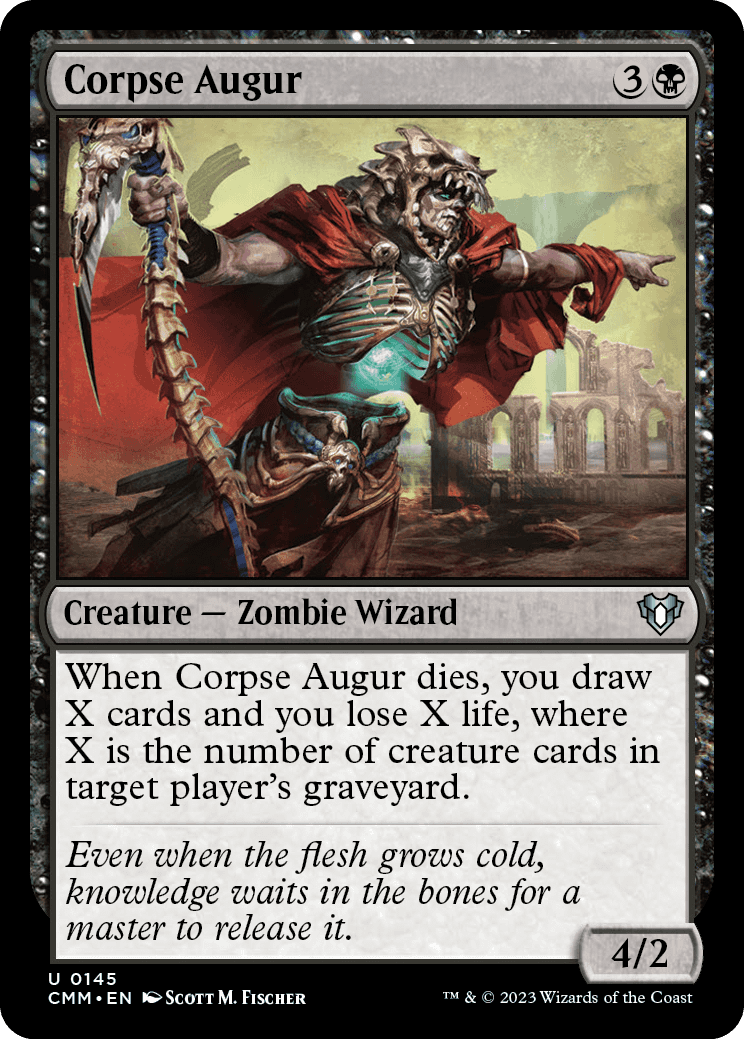
Corpse Augur
{3}{B}
Creature — Zombie Wizard
4/2
When Corpse Augur dies, you draw X cards and you lose X life, where X is the number of creature cards in target player's graveyard.
- You choose the target player as the ability goes on the stack, but you determine the value of X as that ability resolves. If you target yourself and Corpse Augur is still in the graveyard, its ability will count itself.
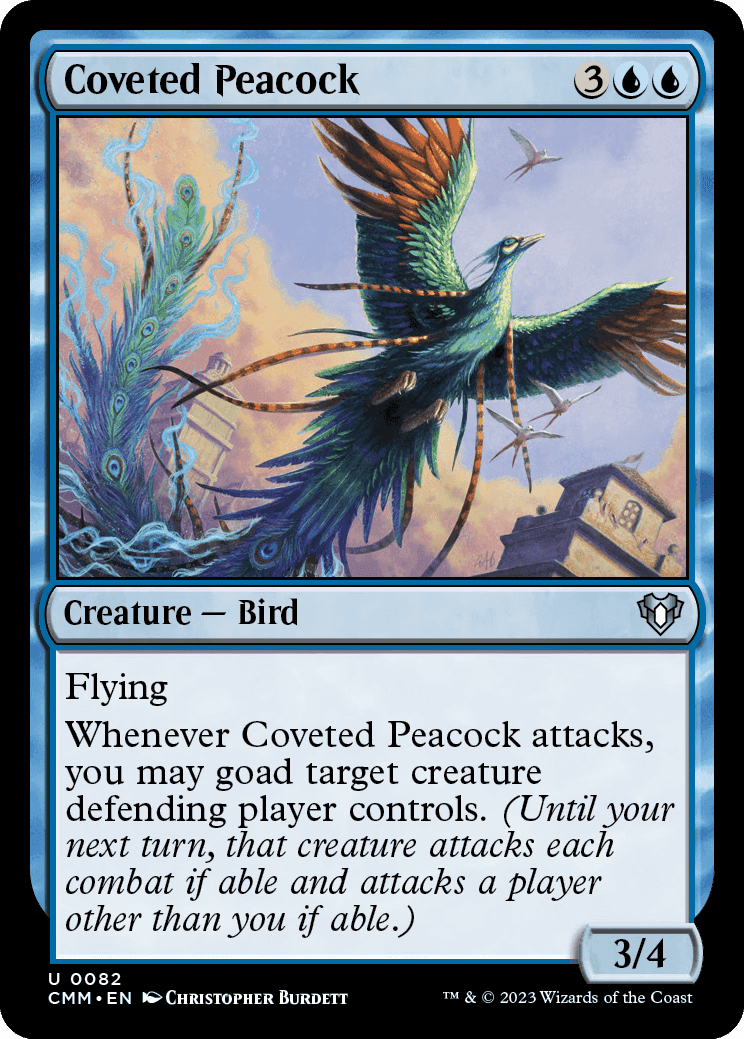
Coveted Peacock
{3}{U}{U}
Creature — Bird
3/4
Flying
Whenever Coveted Peacock attacks, you may goad target creature defending player controls. (Until your next turn, that creature attacks each combat if able and attacks a player other than you if able.)
- If, during a player's declare attackers step, a creature that player controls that's been goaded is tapped, is affected by a spell or ability that says it can't attack, or hasn't been under that player's control continuously since the turn began (and doesn't have haste), then it doesn't attack. If there's a cost associated with having a creature attack a player, its controller isn't forced to pay that cost, so it doesn't have to attack that player.
- If the creature doesn't meet any of the above exceptions and can attack, it must attack a player other than the controller of the spell or ability that goaded it if able. If the creature can't attack any of those players but could otherwise attack, it must attack a planeswalker an opponent controls, a battle an opponent controls, or a player who goaded it.
- Being goaded isn't an ability the creature has. Once it's been goaded, it must attack as detailed above even if it loses all abilities.
- Attacking with a goaded creature doesn't cause it to stop being goaded. If there is an additional combat phase that turn, or if another player gains control of it before it stops being goaded, it must attack again if able.
- If a creature you control has been goaded by multiple opponents, it must attack one of your opponents that hasn't goaded it, as that fulfills the maximum number of goad requirements. If a creature you control has been goaded by each of your opponents, the creature must attack an opponent (rather than a planeswalker or battle), but you choose which opponent it attacks.
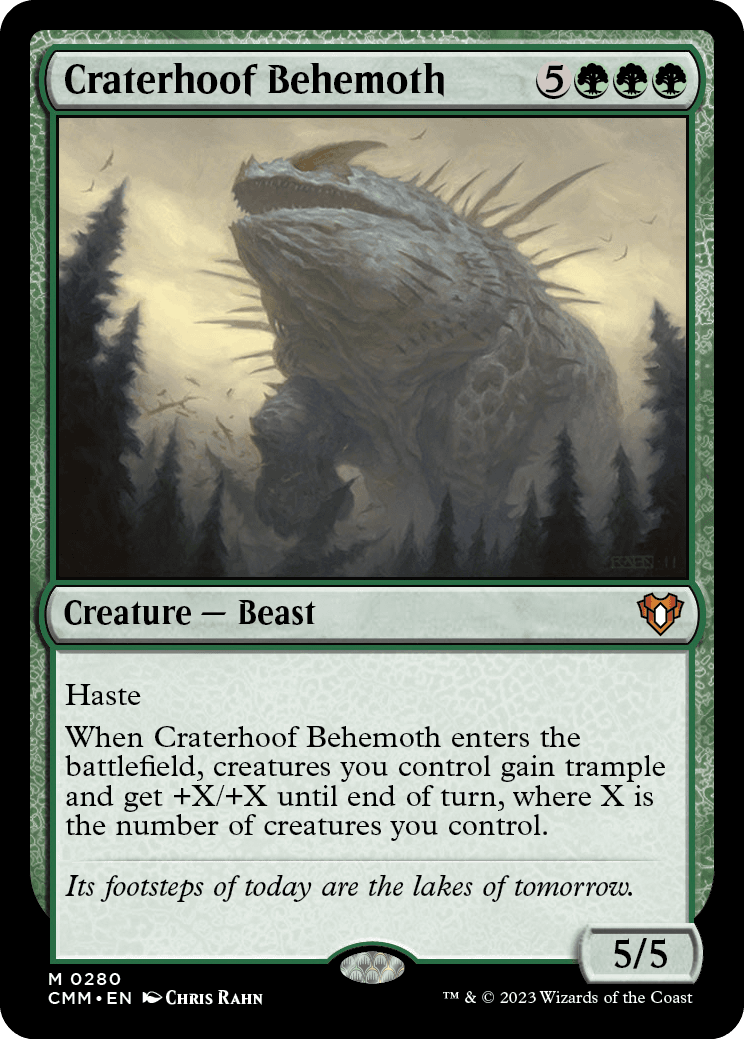
Craterhoof Behemoth
{5}{G}{G}{G}
Creature — Beast
5/5
Haste
When Craterhoof Behemoth enters the battlefield, creatures you control gain trample and get +X/+X until end of turn, where X is the number of creatures you control.
- The value of X is determined only as Craterhoof Behemoth's triggered ability resolves, potentially including Craterhoof Behemoth itself. It won't change later in the turn if the number of creatures you control changes.
- Craterhoof Behemoth's triggered ability affects only creatures you control at the time it resolves. It won't affect creatures that come under your control later in the turn.
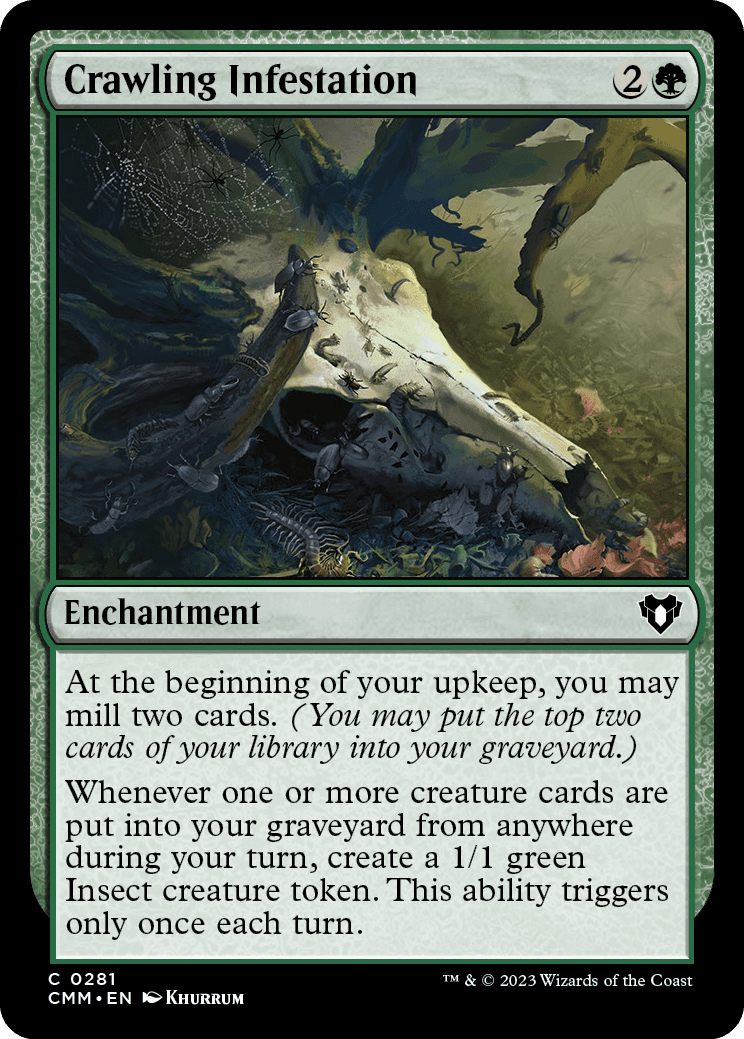
Crawling Infestation
{2}{G}
Enchantment
At the beginning of your upkeep, you may mill two cards. (You may put the top two cards of your library into your graveyard.)
Whenever one or more creature cards are put into your graveyard from anywhere during your turn, create a 1/1 green Insect creature token. This ability triggers only once each turn.
- Crawling Infestation must be on the battlefield for its ability to trigger. If it's destroyed at the same time as one or more creatures you own, its ability won't trigger.
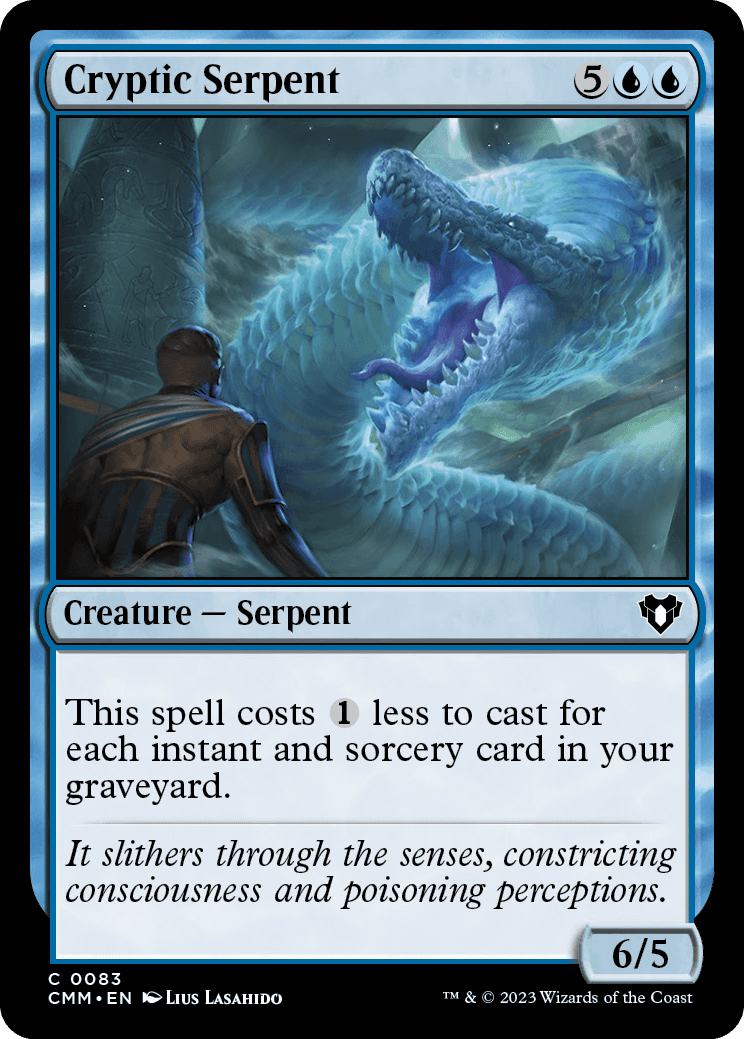
Cryptic Serpent
{5}{U}{U}
Creature — Serpent
6/5
This spell costs {1} less to cast for each instant and sorcery card in your graveyard.
- Cryptic Serpent's ability doesn't change its mana cost or mana value. It just reduces the cost to cast the spell.
- A split card only counts once for Cryptic Serpent's ability, even if it's both an instant and a sorcery.
- Cryptic Serpent's ability can't reduce its cost to less than {U}{U}.
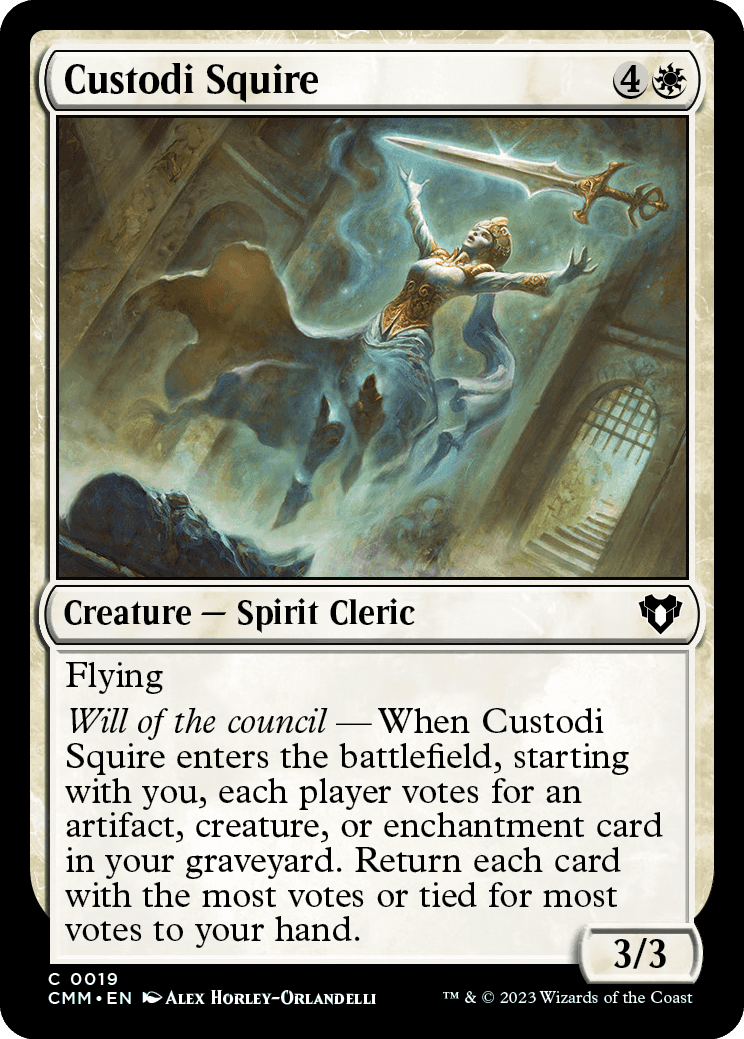
Custodi Squire
{4}{W}
Creature — Spirit Cleric
3/3
Flying
Will of the council — When Custodi Squire enters the battlefield, starting with you, each player votes for an artifact, creature, or enchantment card in your graveyard. Return each card with the most votes or tied for most votes to your hand.
- If Custodi Squire is not on the battlefield when its ability resolves, the vote will still take place and the card(s) that had the most votes will still be returned to your hand.
- Because the votes are cast in turn order, each player will know the votes of players who voted beforehand.
- You must vote for one of the available options. You can't abstain.
- No player votes until the spell or ability resolves. Any responses to that spell or ability must be made without knowing the outcome of the vote.
- Players can't do anything after they finishing voting but before the spell or ability that included the vote finishes resolving.
- The phrase "the vote is tied" refers only to when there is more than one choice that received the most votes. For example, if a 5-player vote from among three different choices ends 3 votes to 1 vote to 1 vote, the vote isn't tied.
- If a choice has no votes, it can't have the most votes. If all choices have zero votes, the voting ability has no effect.
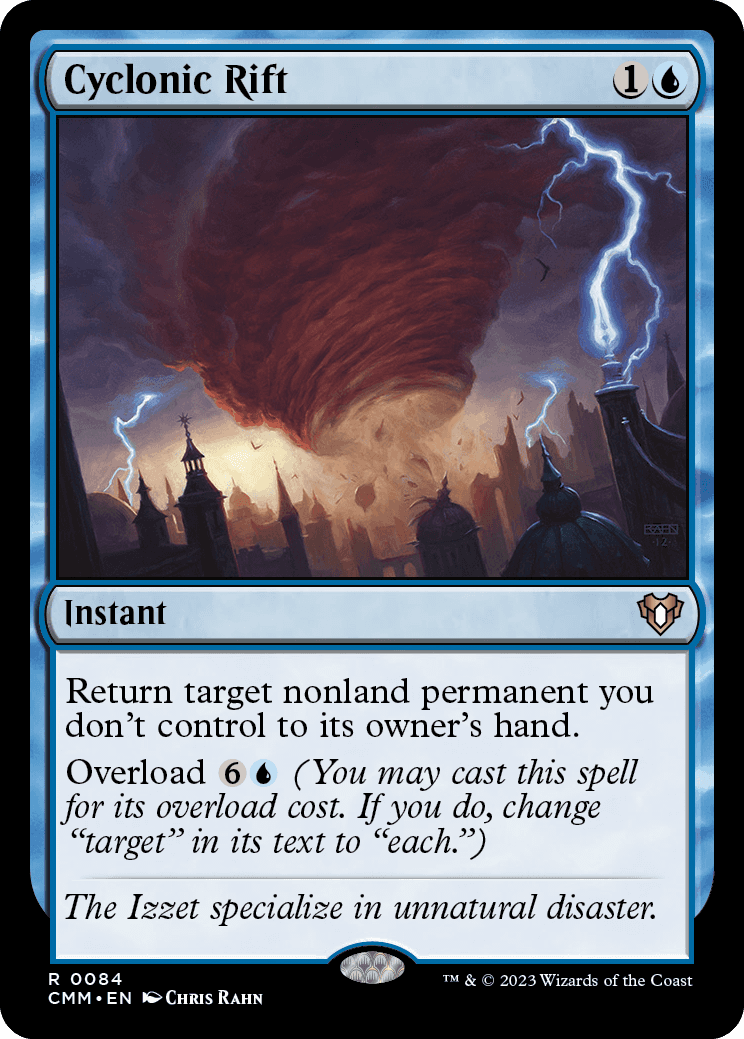
Cyclonic Rift
{1}{U}
Instant
Return target nonland permanent you don't control to its owner's hand.
Overload {6}{U} (You may cast this spell for its overload cost. If you do, change "target" in its text to "each.")
- If you don't pay the overload cost of Cyclonic Rift, that spell will have a single target. If you pay the overload cost, the spell won't have any targets.
- Because a spell with overload doesn't target when its overload cost is paid, it may affect permanents with hexproof or with protection from the appropriate color.
- To determine the total cost of a spell, start with the mana cost or alternative cost you're paying (such as an overload cost), add any cost increases, then apply any cost reductions. The mana value of the spell remains unchanged, no matter what the total cost to cast it was.
- If you are instructed to cast a spell with overload "without paying its mana cost," you can't choose to pay its overload cost instead.
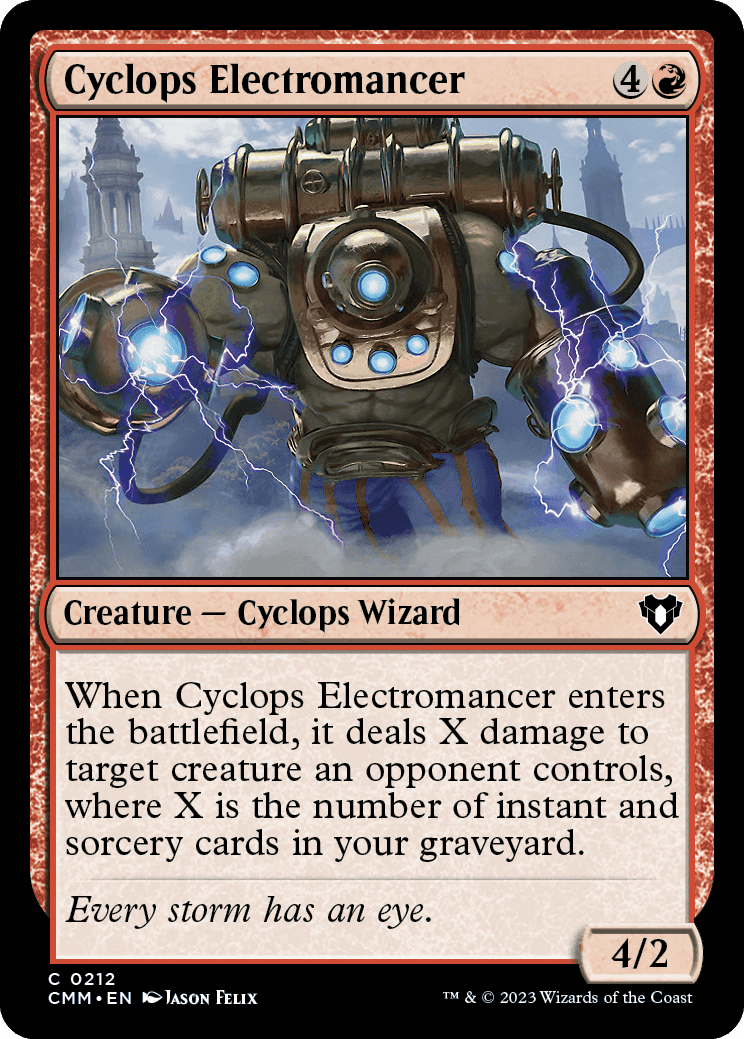
Cyclops Electromancer
{4}{R}
Creature — Cyclops Wizard
4/2
When Cyclops Electromancer enters the battlefield, it deals X damage to target creature an opponent controls, where X is the number of instant and sorcery cards in your graveyard.
- The number of instant and sorcery cards in your graveyard is counted only as Cyclops Electromancer's ability resolves.
- A split card that's both an instant and a sorcery is counted only once for Cyclops Electromancer's ability.
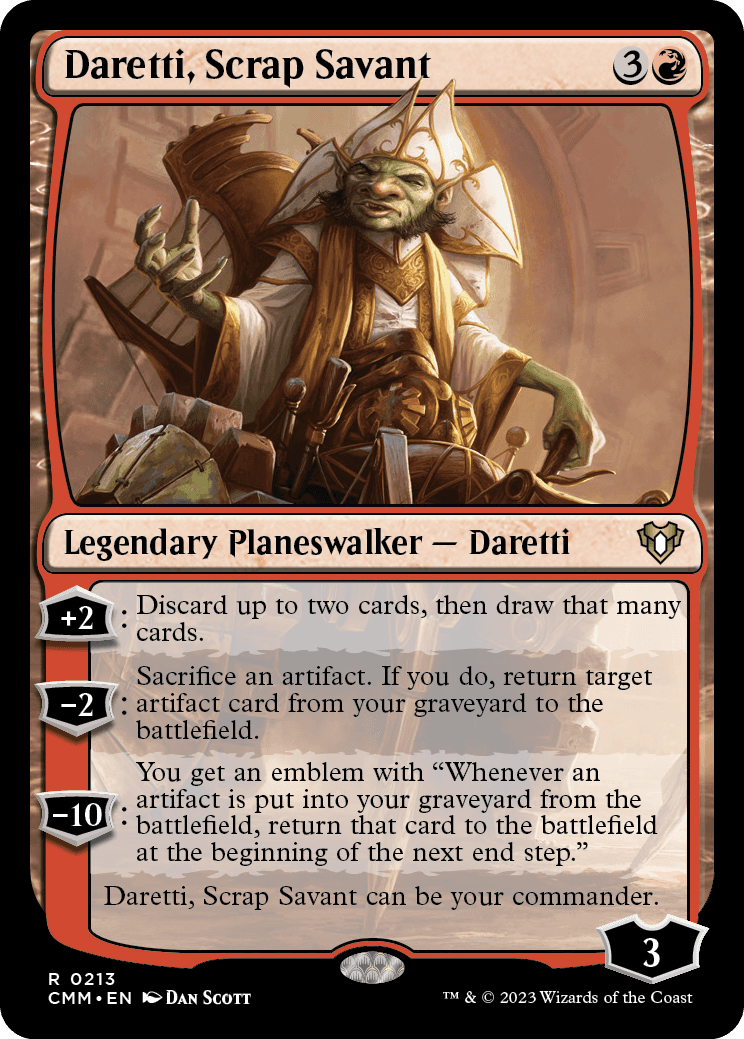
Daretti, Scrap Savant
{3}{R}
Legendary Planeswalker — Daretti
3
+2: Discard up to two cards, then draw that many cards.
−2: Sacrifice an artifact. If you do, return target artifact card from your graveyard to the battlefield.
−10: You get an emblem with "Whenever an artifact is put into your graveyard from the battlefield, return that card to the battlefield at the beginning of the next end step."
Daretti, Scrap Savant can be your commander.
- You may choose to discard zero cards as the first ability resolves. In that case, you won't draw any cards.
- You choose which artifact to sacrifice as the second ability resolves. You must sacrifice an artifact if you control at least one at that time. For example, if you control two artifacts when you activate the second ability, but the artifact you intended to sacrifice is destroyed in response, you must sacrifice the other artifact as the ability resolves.
- The ability of Daretti's emblem will return the artifact card only if it's still in your graveyard when the delayed triggered ability resolves at the beginning of the next end step. If the artifact card left your graveyard before that point (even if it was put back into your graveyard), the ability won't return it to the battlefield.
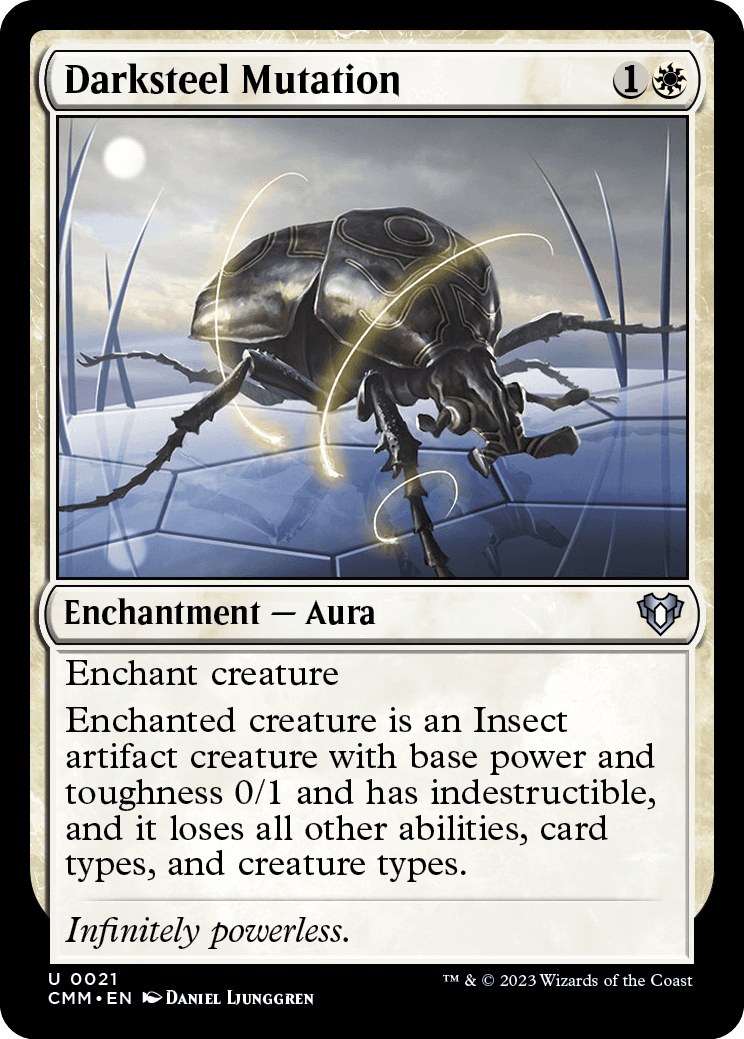
Darksteel Mutation
{1}{W}
Enchantment — Aura
Enchant creature
Enchanted creature is an Insect artifact creature with base power and toughness 0/1 and has indestructible, and it loses all other abilities, card types, and creature types.
- Darksteel Mutation overwrites the printed power and toughness of the enchanted creature, as well as any characteristic-defining abilities that define power and/or toughness.
- Darksteel Mutation overwrites any previous effects that set the enchanted creature's power or toughness to a specific value. Any such effects that start to apply after Darksteel Mutation entered the battlefield will work normally.
- However, Darksteel Mutation does not overwrite effects that change the enchanted creature's power or toughness without setting it to a specific value (such as the ones created by Giant Growth or Glorious Anthem). It also won't overwrite the effect of counters.
- The enchanted creature will be only an artifact and a creature, not any other card types. It will be only an Insect, not any other creature types.
- In some rare cases, the creature may have subtypes other than creature types before becoming enchanted with Darksteel Mutation. If it had any other artifact subtypes (such as Equipment), it will retain those. If it had any subtypes other than artifact types and creature types (such as Shrine), it won't retain those.
- The creature will keep any supertypes it previously had. Notably, if Darksteel Mutation is enchanting a legendary creature, that creature will continue to be legendary. Also, if it's enchanting a commander, that creature will continue to be a commander.
- Darksteel Mutation doesn't affect the enchanted creature's colors, if any. It will continue to be whatever color or colors it was before Darksteel Mutation entered the battlefield.
- Darksteel Mutation causes the enchanted creature to lose all abilities except indestructible at the time it becomes enchanted. Any abilities the creature gains after that point will work normally.
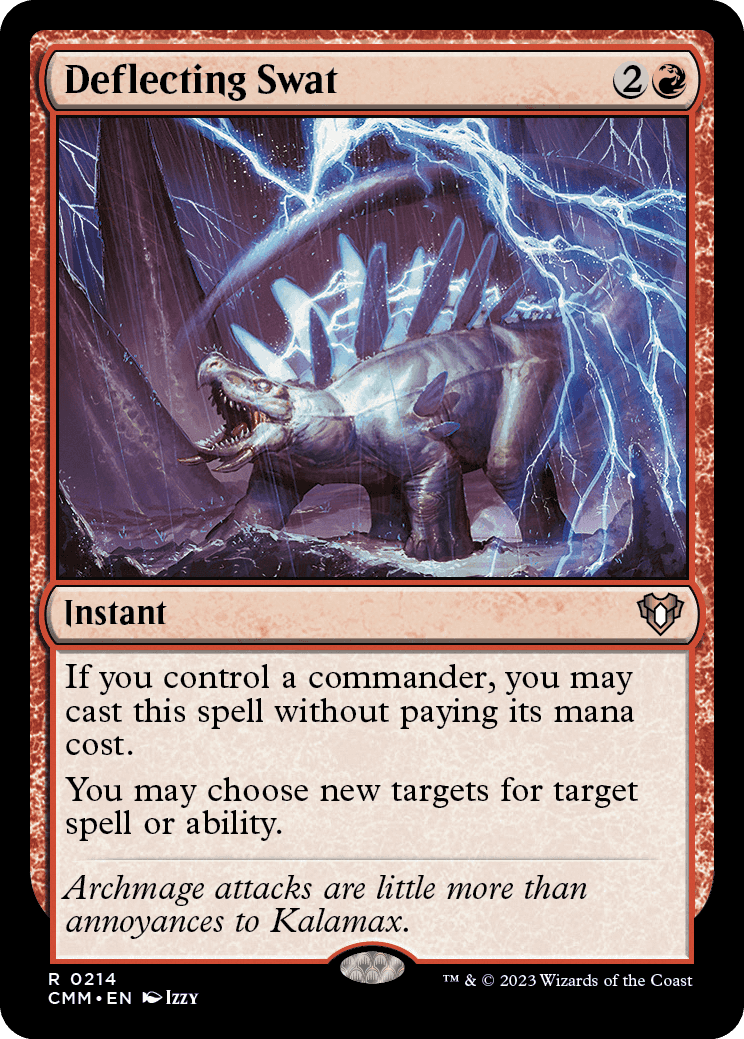
Deflecting Swat
{2}{R}
Instant
If you control a commander, you may cast this spell without paying its mana cost.
You may choose new targets for target spell or ability.
- If you choose new targets for the target spell or ability, the new targets must be legal.
- If the target spell or ability has a variable number of targets, you can't change how many targets it has.
- If the target spell or ability has damage divided as it was put on the stack, the division can't be changed although the targets receiving that damage still can. The same is true of spells that distribute counters.
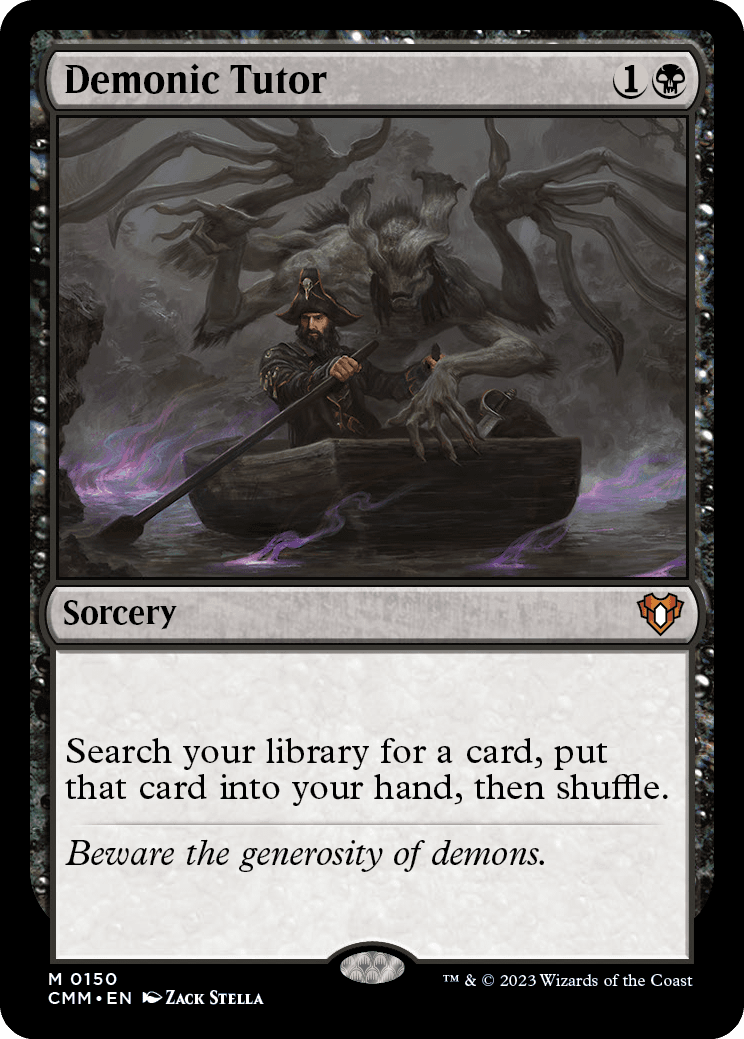
Demonic Tutor
{1}{B}
Sorcery
Search your library for a card, put that card into your hand, then shuffle.
- You pick a card on resolution.
- You don't reveal the card to your opponent.
- This card is put directly into your hand. It is not drawn.
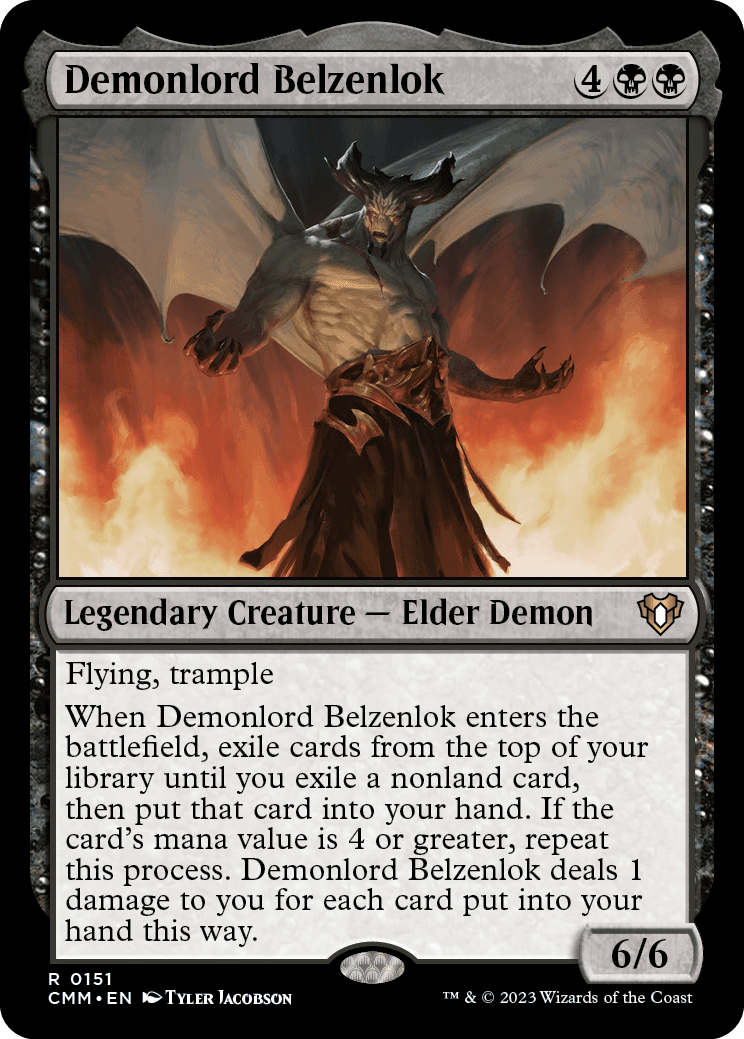
Demonlord Belzenlok
{4}{B}{B}
Legendary Creature — Elder Demon
6/6
Flying, trample
When Demonlord Belzenlok enters the battlefield, exile cards from the top of your library until you exile a nonland card, then put that card into your hand. If the card's mana value is 4 or greater, repeat this process. Demonlord Belzenlok deals 1 damage to you for each card put into your hand this way.
- Once the triggered ability resolves, the ability will continue until you either exile a nonland card with mana value 3 or less or fail to exile any nonland cards while performing the process. You can't choose to stop receiving the blessings of Demonlord Belzenlok any sooner.
- Land cards exiled this way remain exiled.
- Demonlord Belzenlok's ability causes it to deal an amount of damage to you all at once; it doesn't deal 1 damage multiple times.
- If the mana cost of the nonland card includes {X}, X is considered to be 0.
- If the nonland card doesn't have a mana cost, its mana value is 0.
- The mana value of a split card, such as a card with aftermath from the Amonkhet block, is equal to the combined mana value of its two halves.
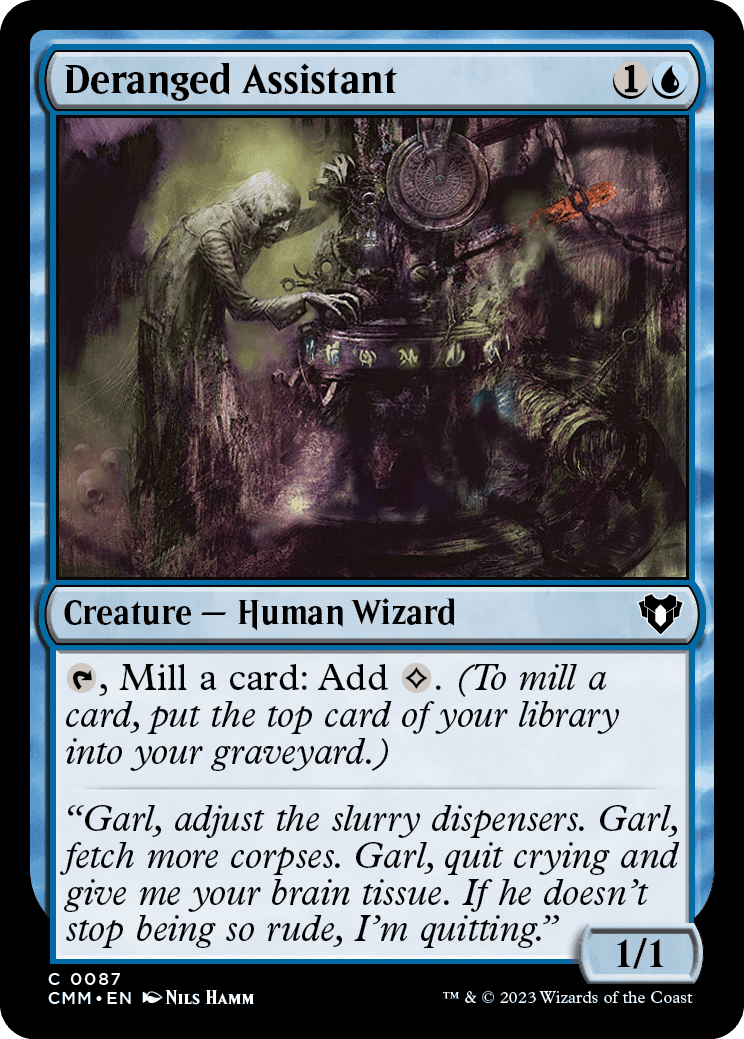
Deranged Assistant
{1}{U}
Creature — Human Wizard
1/1
{T}, Mill a card: Add {C}. (To mill a card, put the top card of your library into your graveyard.)
- If you activate Deranged Assistant's ability while casting a spell, you can't choose to rewind the ability once you see the card that was put into your graveyard.
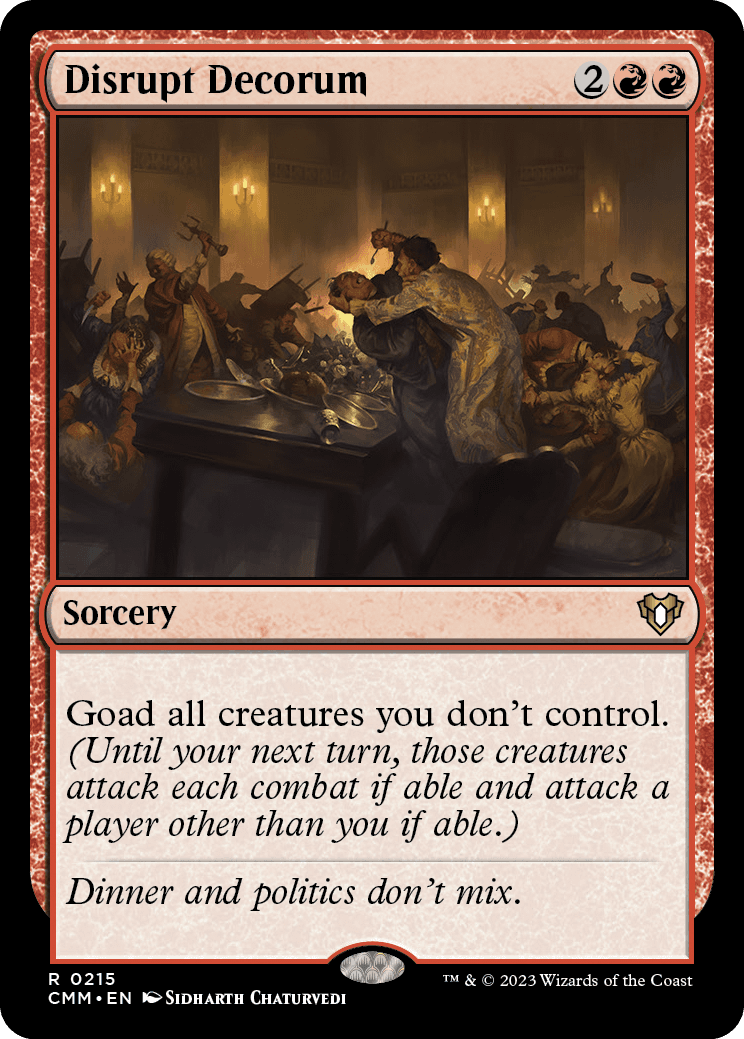
Disrupt Decorum
{2}{R}{R}
Sorcery
Goad all creatures you don't control. (Until your next turn, those creatures attack each combat if able and attack a player other than you if able.)
- Creatures that enter the battlefield after Disrupt Decorum resolves won't be goaded.
- If, during a player's declare attackers step, a creature that player controls that's been goaded is tapped, is affected by a spell or ability that says it can't attack, or hasn't been under that player's control continuously since the turn began (and doesn't have haste), then it doesn't attack. If there's a cost associated with having a creature attack a player, its controller isn't forced to pay that cost, so it doesn't have to attack that player.
- If the creature doesn't meet any of the above exceptions and can attack, it must attack a player other than the controller of the spell or ability that goaded it if able. If the creature can't attack any of those players but could otherwise attack, it must attack a planeswalker an opponent controls, a battle an opponent protects, or a player who goaded it.
- Being goaded isn't an ability the creature has. Once it's been goaded, it must attack as detailed above even if it loses all abilities.
- Attacking with a goaded creature doesn't cause it to stop being goaded. If there is an additional combat phase that turn, or if another player gains control of it before it stops being goaded, it must attack again if able.
- If a creature you control has been goaded by multiple opponents, it must attack one of your opponents that hasn't goaded it, as that fulfills the maximum number of goad requirements. If a creature you control has been goaded by each of your opponents, the creature must attack an opponent (rather than a planeswalker or battle), but you choose which opponent it attacks.
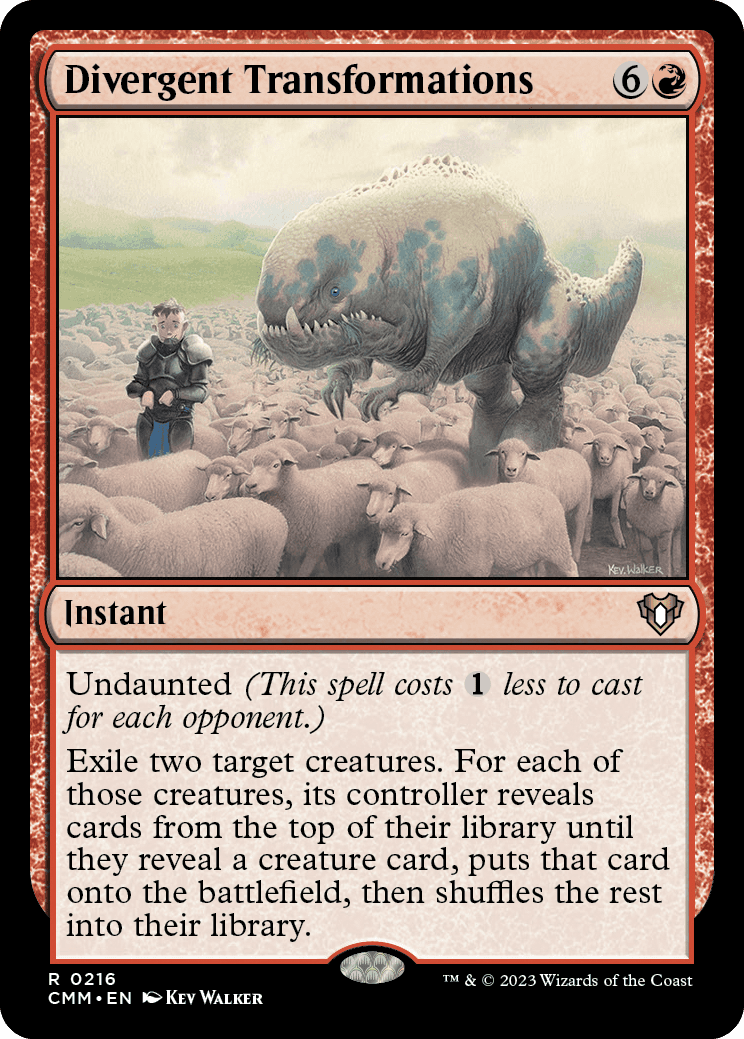
Divergent Transformations
{6}{R}
Instant
Undaunted (This spell costs {1} less to cast for each opponent.)
Exile two target creatures. For each of those creatures, its controller reveals cards from the top of their library until they reveal a creature card, puts that card onto the battlefield, then shuffles the rest into their library.
- You can't cast Divergent Transformations without two target creatures. If a targeted creature becomes an illegal target for Divergent Transformations after it's been cast, its controller won't exile or replace that creature, but the other creature is still affected.
- If two players' creatures are exiled this way, start with the player whose turn it is. If that player controlled a creature exiled this way, that player follows the process on Divergent Transformations to replace it. If not, proceed to the next player in turn order. Repeat until the players who controlled the exiled creatures have each replaced those creatures.
- If one player's creatures are exiled this way, that player repeats this process twice.
- The two creatures that are put onto the battlefield are put onto the battlefield sequentially. Triggered abilities of the second won't see the first enter the battlefield.
- Any abilities that trigger during the resolution of Divergent Transformations will wait to be put onto the stack until Divergent Transformations finishes resolving. An ability that triggers on the first creature entering the battlefield may target the second creature and vice versa.
- If the controller of a creature exiled this way has no creature cards left in their library, that player reveals the cards in their library, then shuffles it.
- Causing an opponent to lose the game after you've announced that you're casting a spell with undaunted and determined its total cost won't cause you to have to pay more mana.
- Effects that reduce what you pay to cast a spell don't affect its mana value.
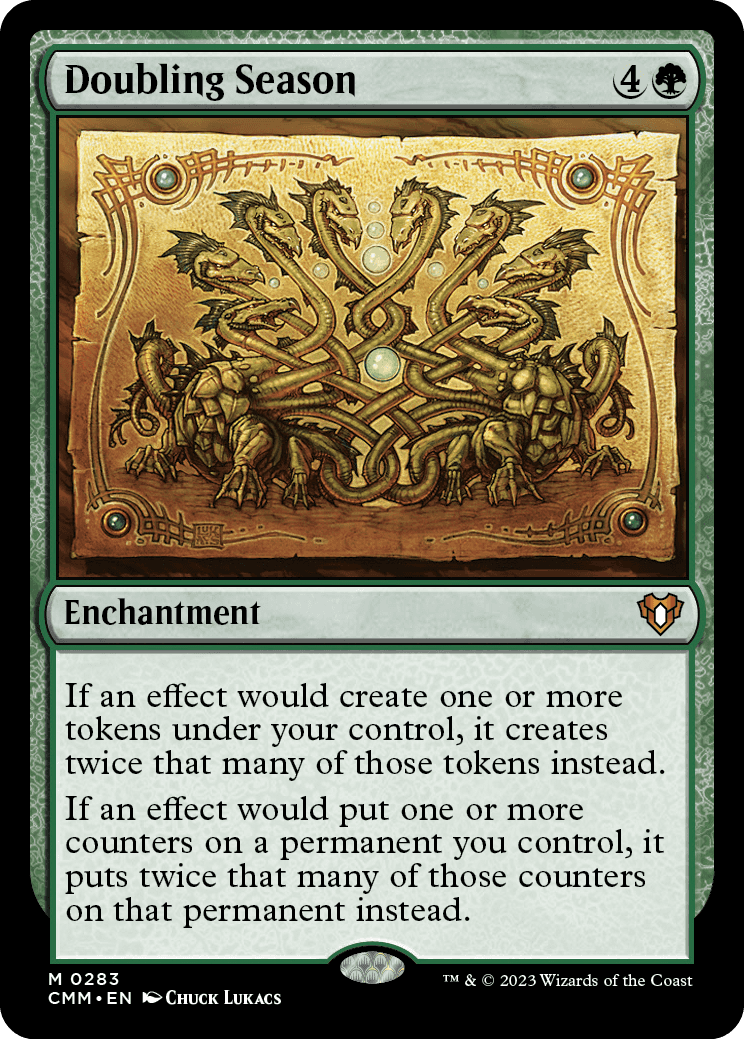
Doubling Season
{4}{G}
Enchantment
If an effect would create one or more tokens under your control, it creates twice that many of those tokens instead.
If an effect would put one or more counters on a permanent you control, it puts twice that many of those counters on that permanent instead.
- Doubling Season affects permanents that enter the battlefield with a certain number of counters.
- Planeswalkers will enter the battlefield with double the normal number of loyalty counters. However, if you activate an ability whose cost has you put loyalty counters on a planeswalker, the number you put on isn't doubled. This is because those counters are put on as a cost, not as an effect.
- Battles will enter the battlefield with double the normal number of defense counters.
- If there are two Doubling Seasons on the battlefield, then the number of tokens or counters is four times the original number. If there are three on the battlefield, then the number of tokens or counters is eight times the original number, and so on.
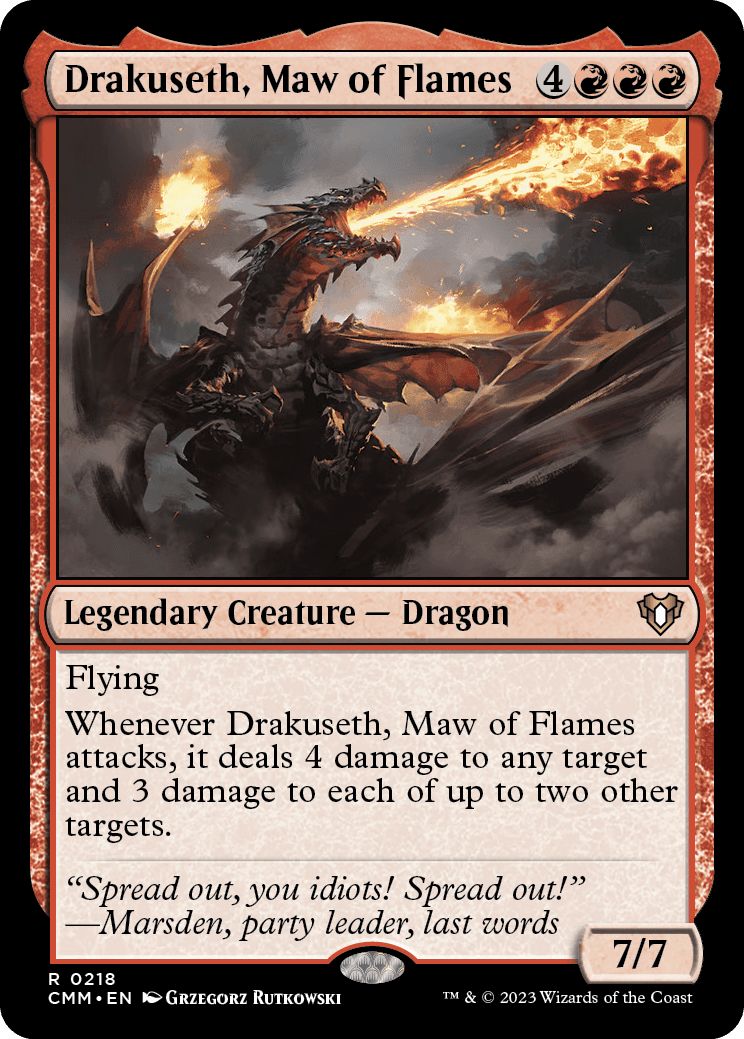
Drakuseth, Maw of Flames
{4}{R}{R}{R}
Legendary Creature — Dragon
7/7
Flying
Whenever Drakuseth, Maw of Flames attacks, it deals 4 damage to any target and 3 damage to each of up to two other targets.
- You can't choose the same target multiple times to have it be dealt 6, 7, or 10 damage.
- If Drakuseth attacks a planeswalker and that planeswalker is reduced to 0 loyalty from the damage caused by Drakuseth's ability, Drakuseth continues to attack. It can be blocked, and it won't deal any combat damage if it's not blocked. The same is true if Drakuseth attacks a battle and that battle is reduced to 0 defense from the damage caused by Drakuseth's ability.
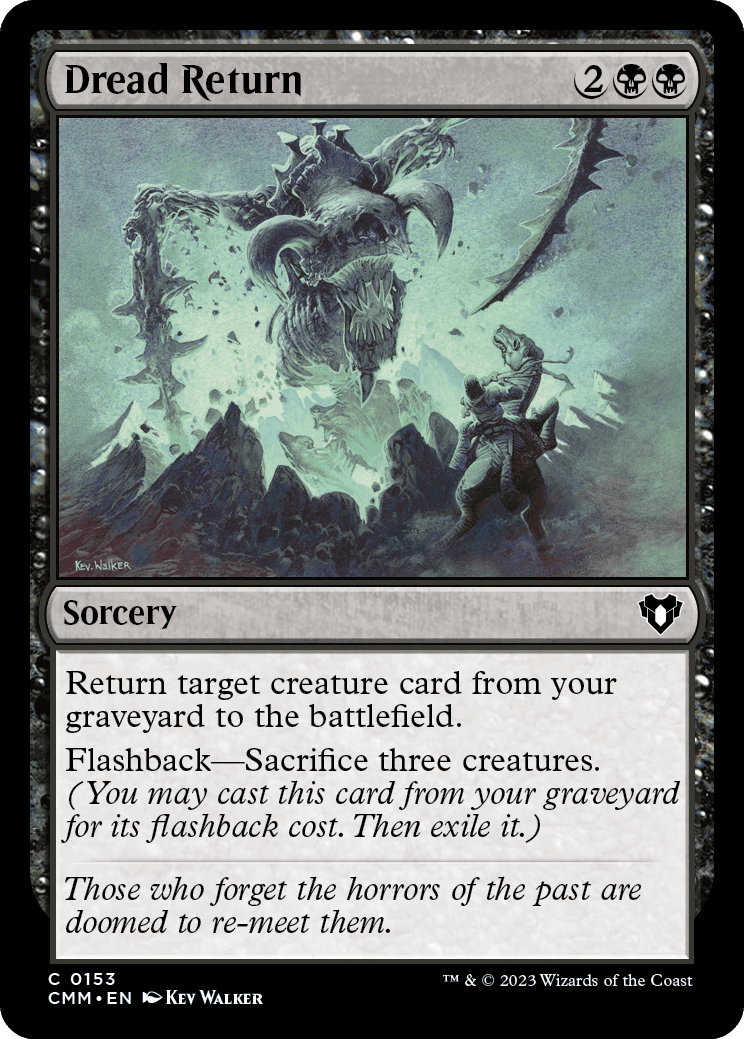
Dread Return
{2}{B}{B}
Sorcery
Return target creature card from your graveyard to the battlefield.
Flashback—Sacrifice three creatures. (You may cast this card from your graveyard for its flashback cost. Then exile it.)
- You choose the target for Dread Return before paying any of its costs, so it's not possible to cast it using flashback and bring back one of the creatures you sacrifice.
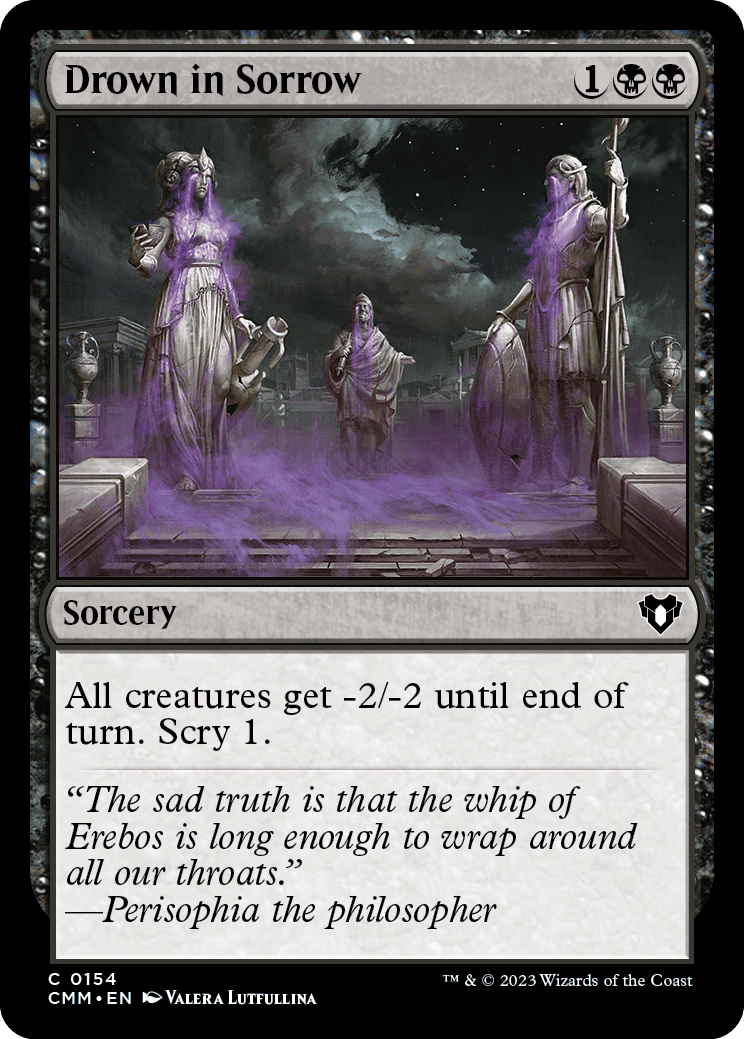
Drown in Sorrow
{1}{B}{B}
Sorcery
All creatures get -2/-2 until end of turn. Scry 1.
- Drown in Sorrow affects only creatures on the battlefield at the time it resolves. Creatures that enter the battlefield or become creatures later in the turn won't get -2/-2.
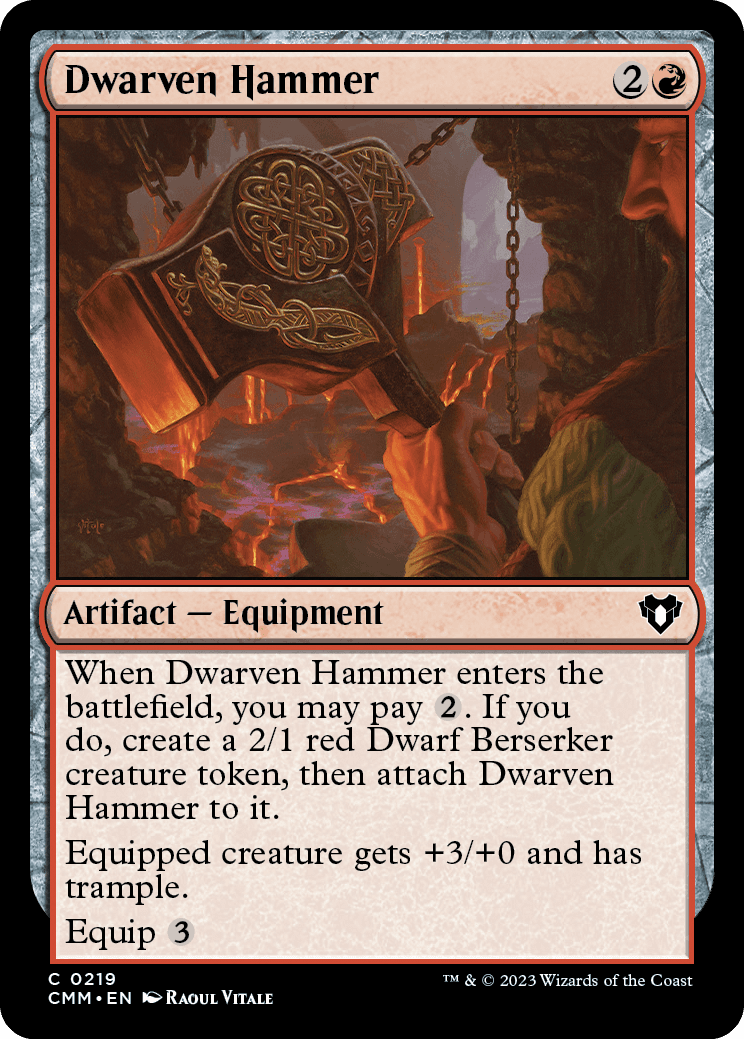
Dwarven Hammer
{2}{R}
Artifact — Equipment
When Dwarven Hammer enters the battlefield, you may pay {2}. If you do, create a 2/1 red Dwarf Berserker creature token, then attach Dwarven Hammer to it.
Equipped creature gets +3/+0 and has trample.
Equip {3}
- You decide whether to pay {2} as the enters-the-battlefield ability resolves. If you do, you immediately create the Dwarf Berserker creature token and attach Dwarven Hammer to it. No players may respond to your decision to pay or not, and no player may take actions during this process.
- The Dwarf Berserker creature token enters the battlefield as a 2/1 creature. Any abilities that trigger when a creature with a certain power enters the battlefield will see the token enter as a 2/1 creature.
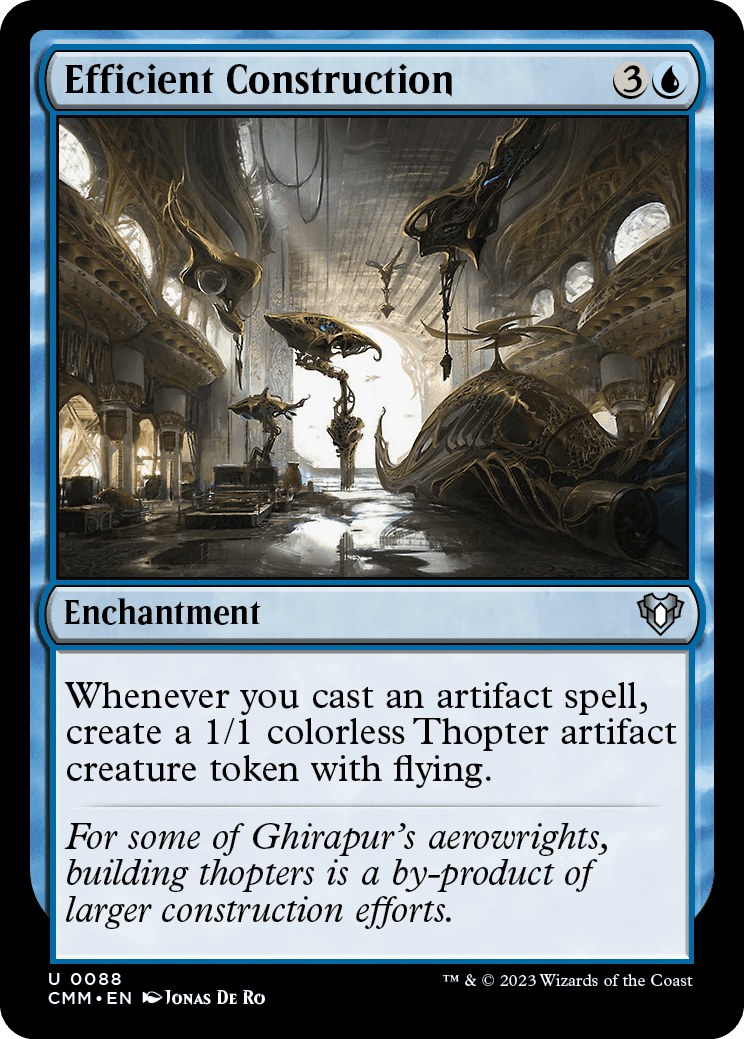
Efficient Construction
{3}{U}
Enchantment
Whenever you cast an artifact spell, create a 1/1 colorless Thopter artifact creature token with flying.
- Efficient Construction's triggered ability resolves before the spell that caused it to trigger. The ability will resolve even if that spell is countered.
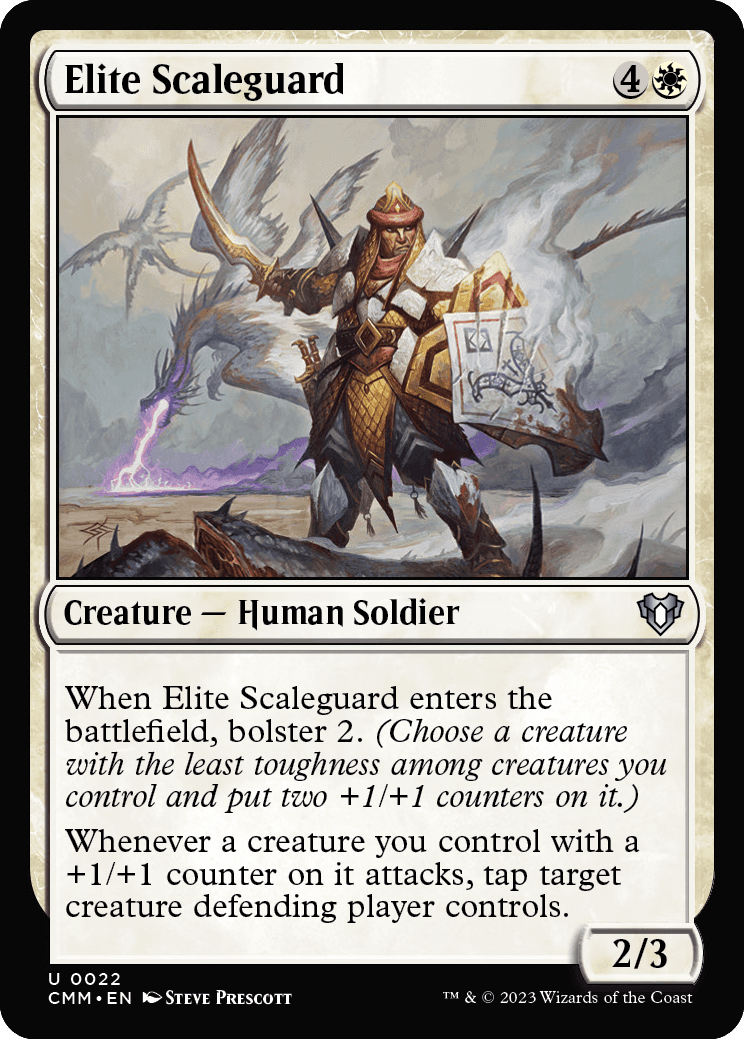
Elite Scaleguard
{4}{W}
Creature — Human Soldier
2/3
When Elite Scaleguard enters the battlefield, bolster 2. (Choose a creature with the least toughness among creatures you control and put two +1/+1 counters on it.)
Whenever a creature you control with a +1/+1 counter on it attacks, tap target creature defending player controls.
- Bolster itself doesn't target any creature, though some spells and abilities that bolster may have other effects that target creatures. For example, you could put counters on a creature with protection from white with Elite Scaleguard's bolster ability.
- You determine which creature to put counters on as the spell or ability that instructs you to bolster resolves.
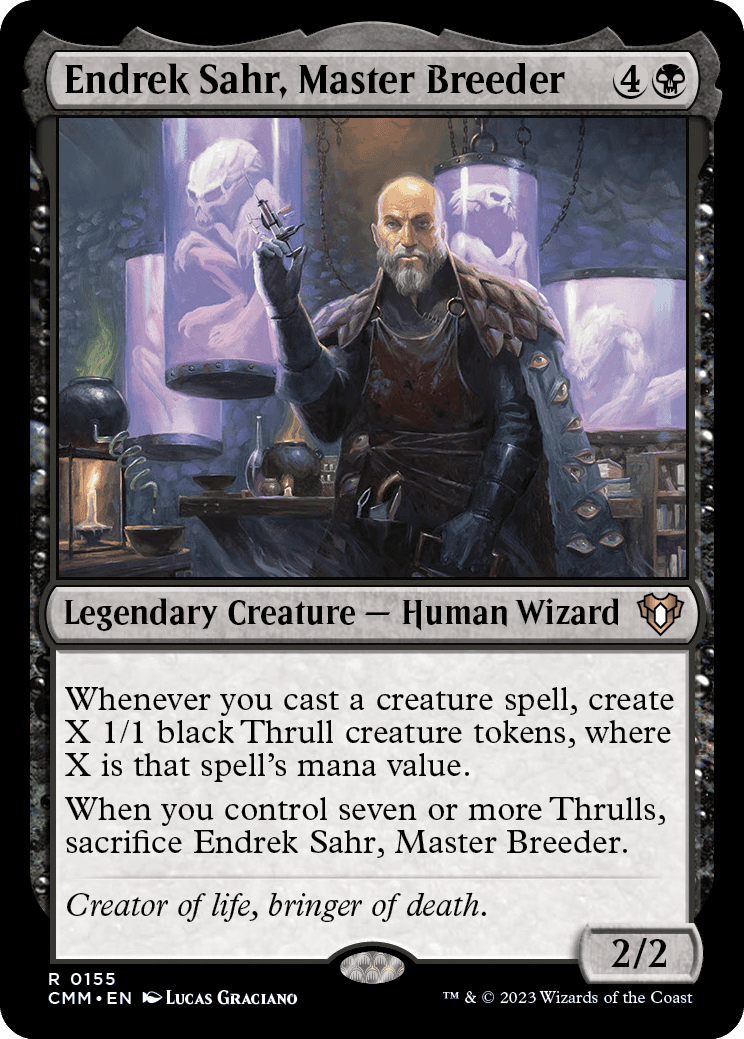
Endrek Sahr, Master Breeder
{4}{B}
Legendary Creature — Human Wizard
2/2
Whenever you cast a creature spell, create X 1/1 black Thrull creature tokens, where X is that spell's mana value.
When you control seven or more Thrulls, sacrifice Endrek Sahr, Master Breeder.
- The second ability is a state trigger. Once it triggers, it won't trigger again as long as the ability is on the stack. If the ability is countered and the trigger condition is still true, it will immediately trigger again.
- When the second ability resolves, Endrek Sahr will be sacrificed regardless of how many Thrulls you control at that time, even if it's less than seven.
- Face-down spells are creature spells, but they have mana value 0.
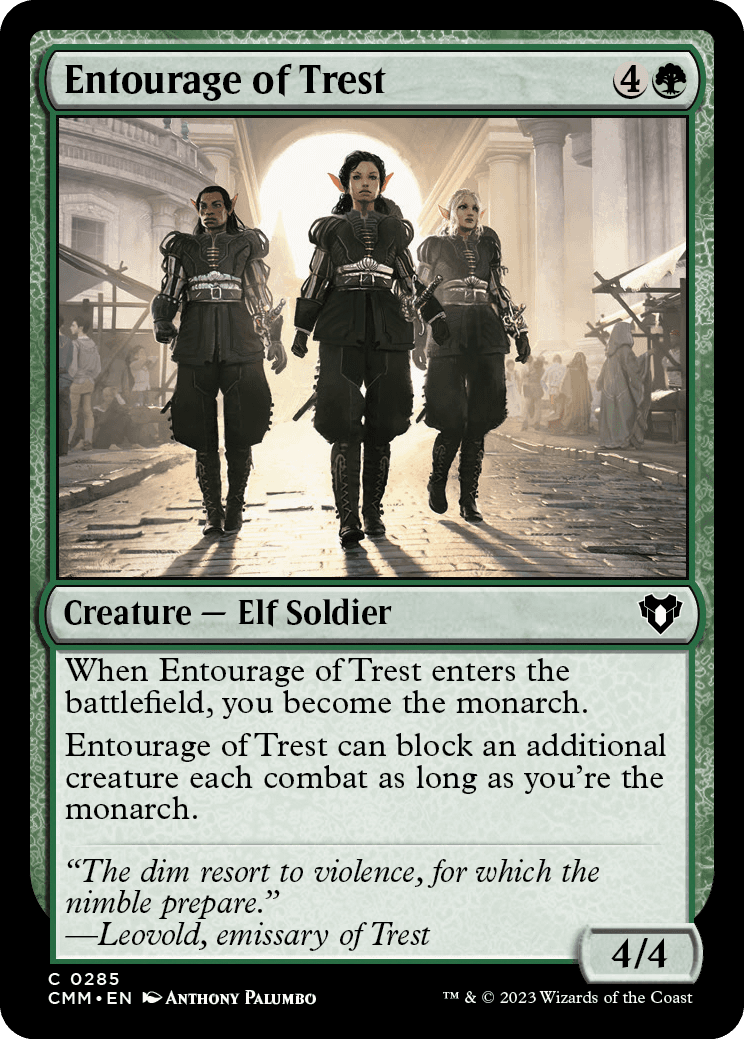
Entourage of Trest
{4}{G}
Creature — Elf Soldier
4/4
When Entourage of Trest enters the battlefield, you become the monarch.
Entourage of Trest can block an additional creature each combat as long as you're the monarch.
- Entourage of Trest checks if you're the monarch only as blockers are declared. If it blocks two attacking creatures, another player becoming the monarch won't change or undo that block.
- If a creature blocks two creatures, its combat damage is assigned to those creatures and vice versa using the same rules as if one creature were blocked by two creatures.
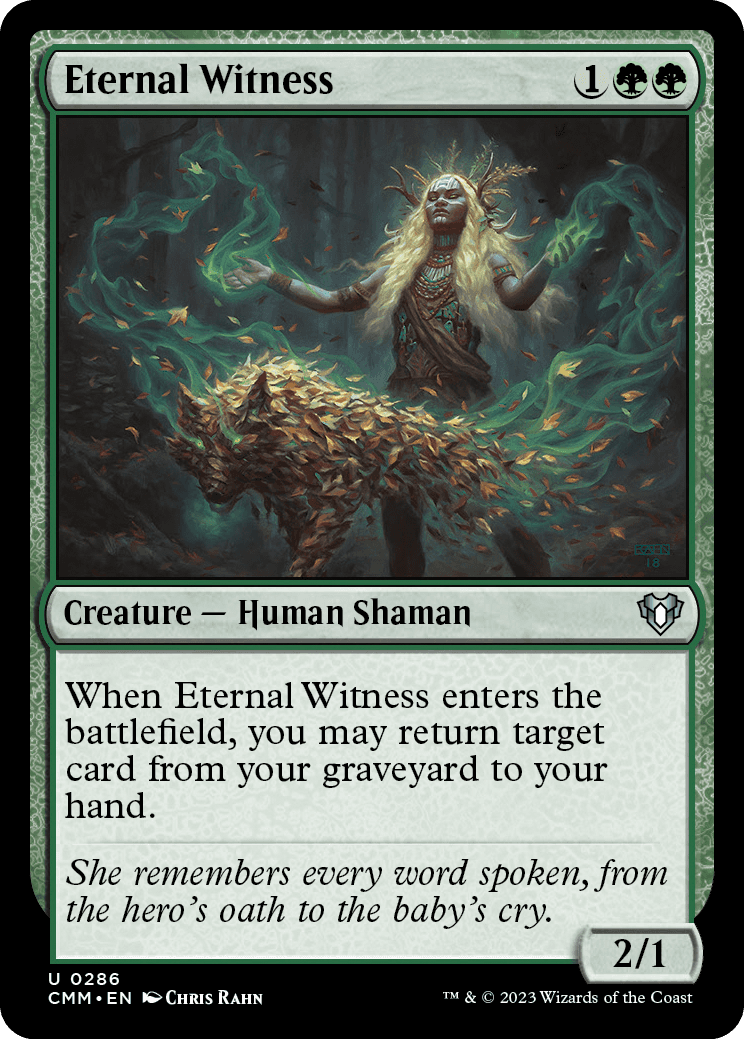
Eternal Witness
{1}{G}{G}
Creature — Human Shaman
2/1
When Eternal Witness enters the battlefield, you may return target card from your graveyard to your hand.
- If a resolving spell puts Eternal Witness onto the battlefield, Eternal Witness's ability can target that card if it's put into your graveyard as it resolves.
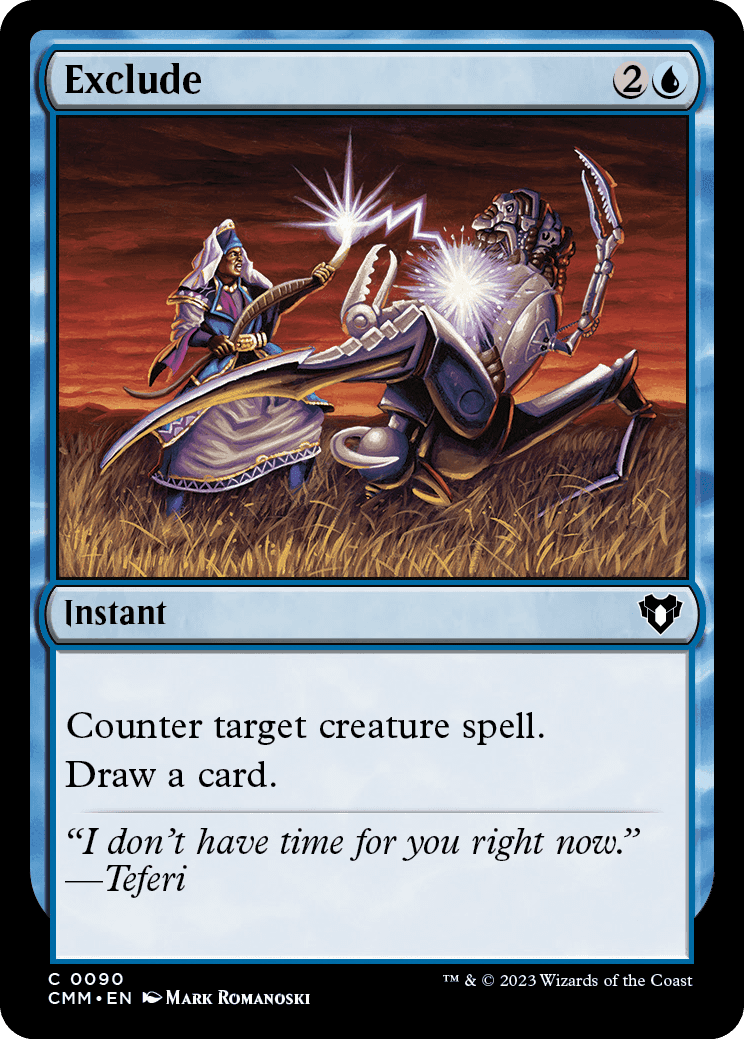
Exclude
{2}{U}
Instant
Counter target creature spell.
Draw a card.
- Exclude can target a creature spell that can't be countered. When Exclude resolves, that spell won't be countered, but you'll still draw a card.
- If the target spell is an illegal target as Exclude tries to resolve, it won't resolve and none of its effects will happen. You won't draw a card.
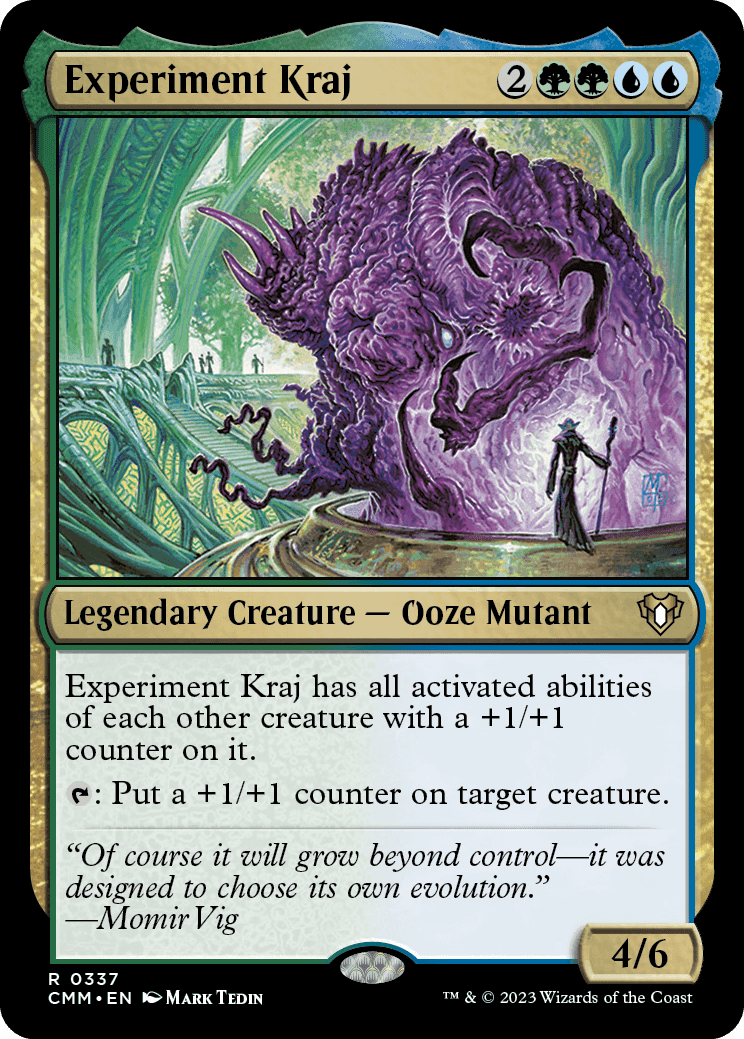
Experiment Kraj
{2}{G}{G}{U}{U}
Legendary Creature — Ooze Mutant
4/6
Experiment Kraj has all activated abilities of each other creature with a +1/+1 counter on it.
{T}: Put a +1/+1 counter on target creature.
- Unlike with cards like Quicksilver Elemental, the costs of the activated abilities Experiment Kraj gains must be paid with the correct colors of mana.
- Activated abilities contain a colon. They're generally written "[Cost]: [Effect]." Some keywords are activated abilities and will have colons in their reminder text.
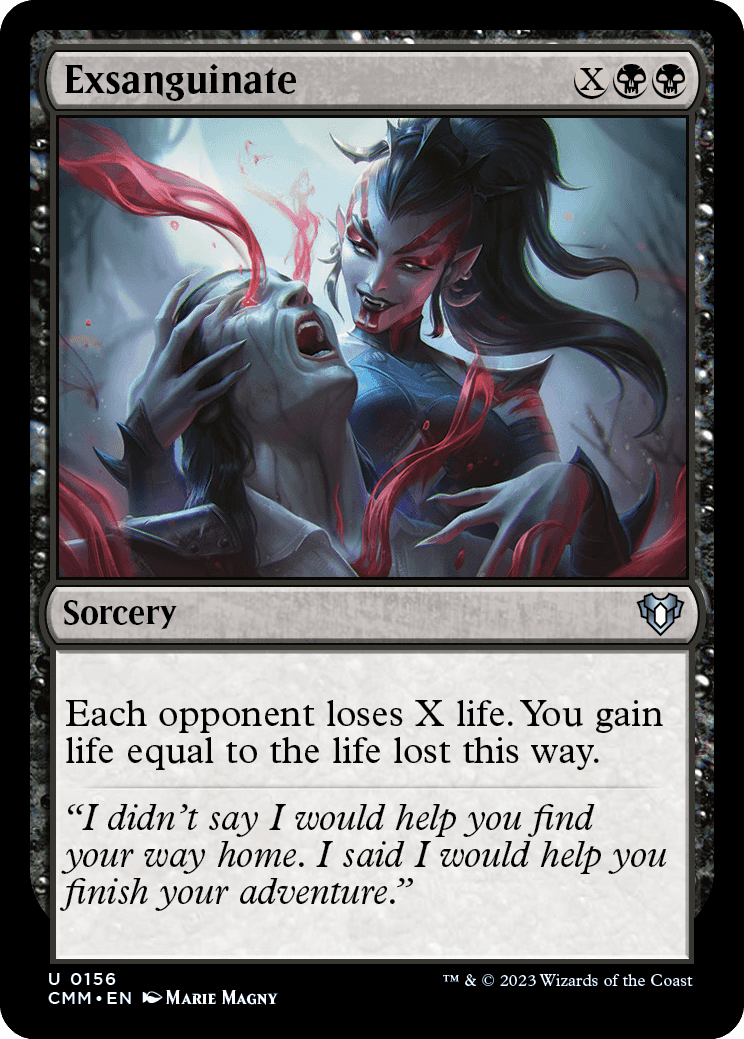
Exsanguinate
{X}{B}{B}
Sorcery
Each opponent loses X life. You gain life equal to the life lost this way.
- Players can lose more life than they have. For example, say you're playing a multiplayer game in which one of your opponents has 3 life and your other opponent has 10 life. If you cast Exsanguinate with X of 4, your opponents will wind up at -1 life and 6 life, respectively. You'll gain 8 life.
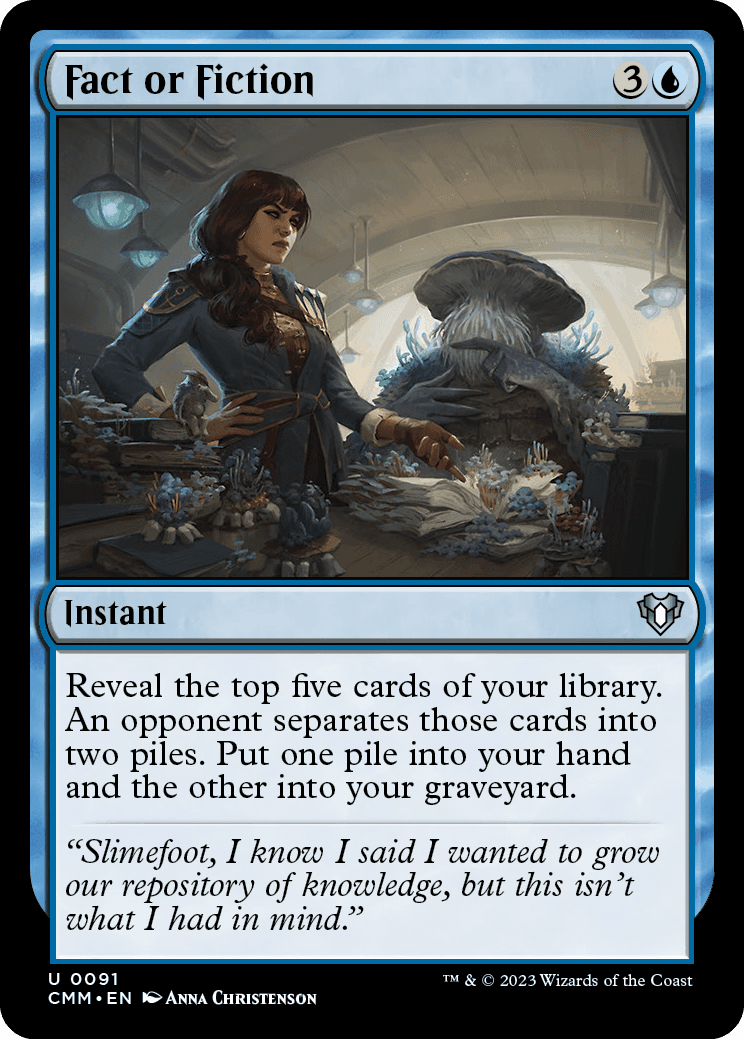
Fact or Fiction
{3}{U}
Instant
Reveal the top five cards of your library. An opponent separates those cards into two piles. Put one pile into your hand and the other into your graveyard.
- Piles may be empty.
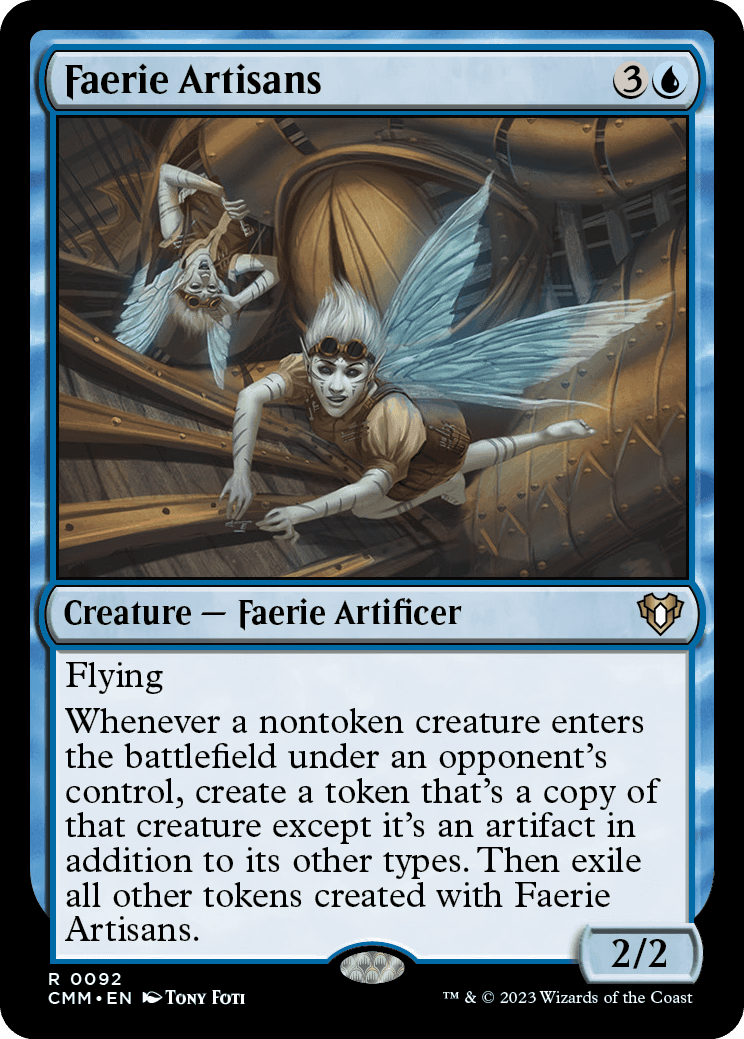
Faerie Artisans
{3}{U}
Creature — Faerie Artificer
2/2
Flying
Whenever a nontoken creature enters the battlefield under an opponent's control, create a token that's a copy of that creature except it's an artifact in addition to its other types. Then exile all other tokens created with Faerie Artisans.
- If you control multiple Faerie Artisans, each one's ability only exiles tokens created with the ability of that specific Faerie Artisans.
- The token copies exactly what was printed on the original permanent and nothing else (unless that permanent is copying something else; see below). It doesn't copy whether that permanent is tapped or untapped, whether it has any counters on it or Auras and Equipment attached to it, or any non-copy effects that have changed its power, toughness, types, color, or so on.
- The token is an artifact in addition to its other types. This is a copiable value of the token that other effects may copy.
- If the copied permanent has {X} in its mana cost, X is considered to be 0.
- If the copied permanent is copying something else (for example, if the copied creature is a Clone), then the token enters the battlefield as whatever that permanent copied.
- If the permanent copied by the token had any "when [this permanent] enters the battlefield" abilities, then the token also has those abilities and will trigger them when it's created. Similarly, any "as [this permanent] enters the battlefield" or "[this permanent] enters the battlefield with" abilities that the token has copied will also work.
- A token creature that's a copy of a player's commander isn't a commander.

Faithless Looting
{R}
Sorcery
Draw two cards, then discard two cards.
Flashback {2}{R} (You may cast this card from your graveyard for its flashback cost. Then exile it.)
- You draw two cards and discard two cards all while Faithless Looting is resolving. Nothing can happen between the two, and no player may choose to take actions.
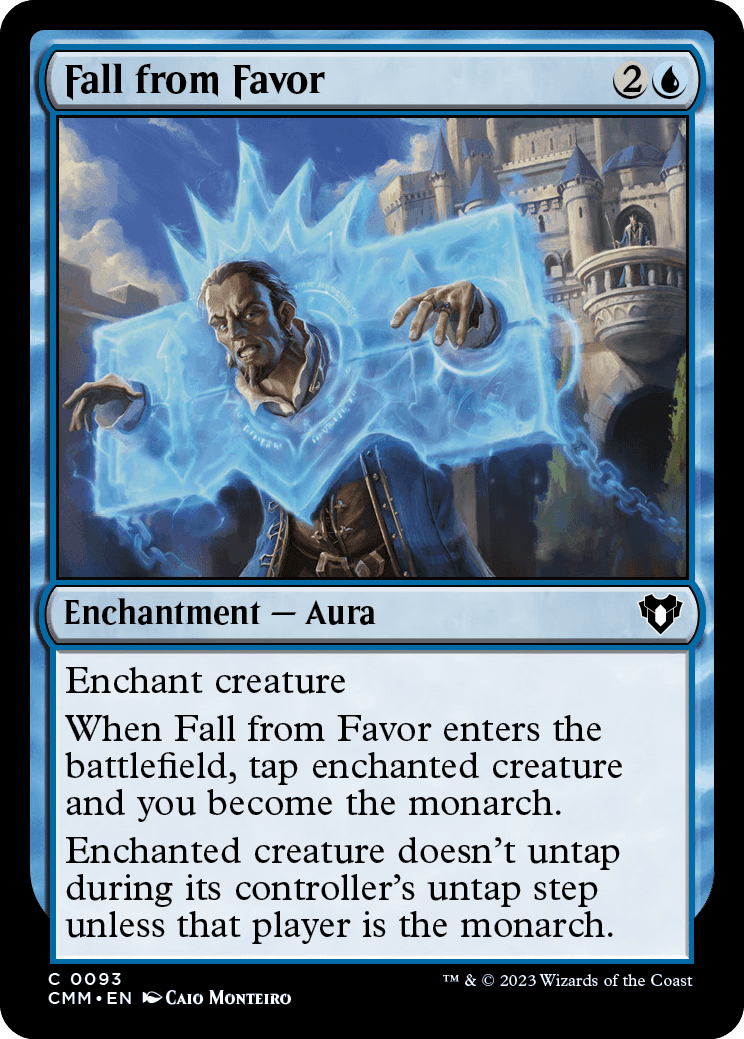
Fall from Favor
{2}{U}
Enchantment — Aura
Enchant creature
When Fall from Favor enters the battlefield, tap enchanted creature and you become the monarch.
Enchanted creature doesn't untap during its controller's untap step unless that player is the monarch.
- If the target creature is an illegal target by the time Fall from Favor tries to resolve, it doesn't resolve. It won't enter the battlefield, so its enters-the-battlefield ability won't trigger.
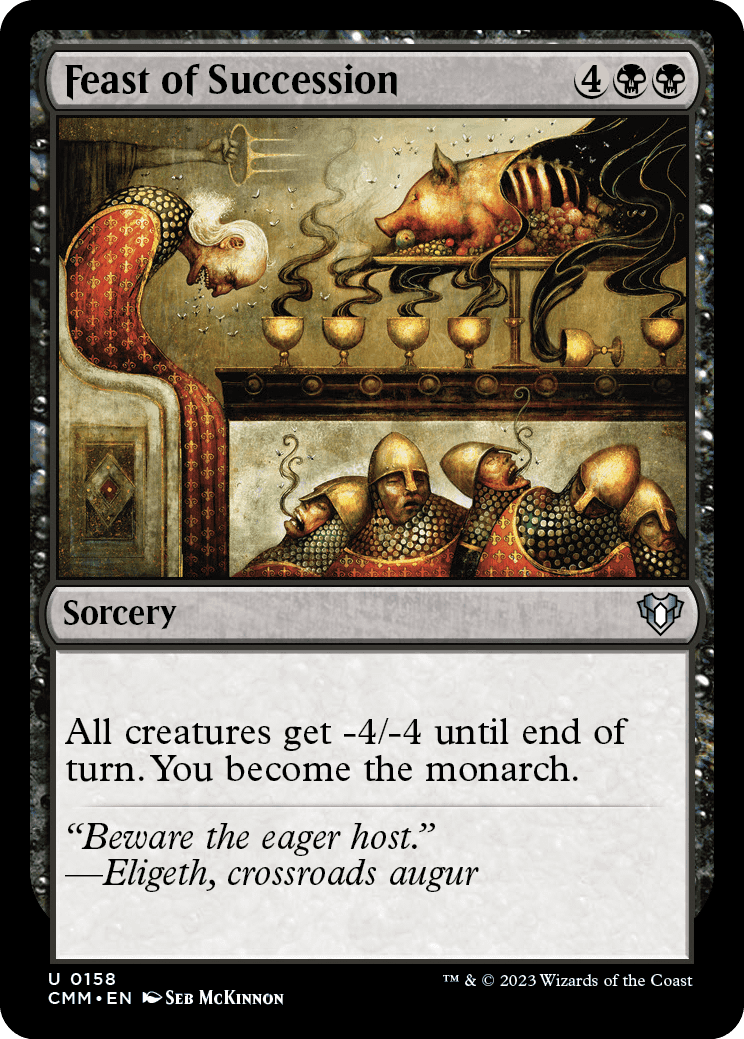
Feast of Succession
{4}{B}{B}
Sorcery
All creatures get -4/-4 until end of turn. You become the monarch.
- You can cast Feast of Succession to become the monarch while no creatures are on the battlefield.
- Feast of Succession affects only creatures on the battlefield at the time it resolves. Creatures that enter the battlefield later in the turn won't get -4/-4.
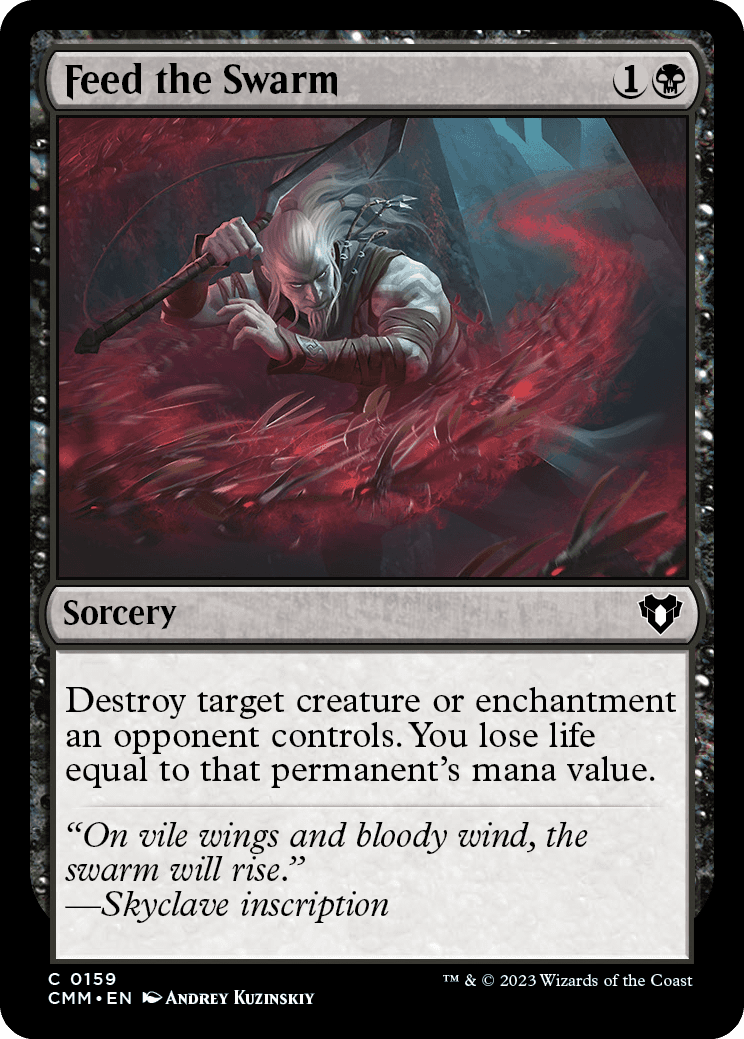
Feed the Swarm
{1}{B}
Sorcery
Destroy target creature or enchantment an opponent controls. You lose life equal to that permanent's mana value.
- If the target permanent is an illegal target by the time Feed the Swarm tries to resolve, the spell doesn't resolve. You don't lose any life. If the target is legal but not destroyed (most likely because it has indestructible), you do lose life.
- The amount of life you lose is determined by the permanent's mana value as it last existed on the battlefield.
- If a permanent on the battlefield has {X} in its mana cost, X is considered to be 0.
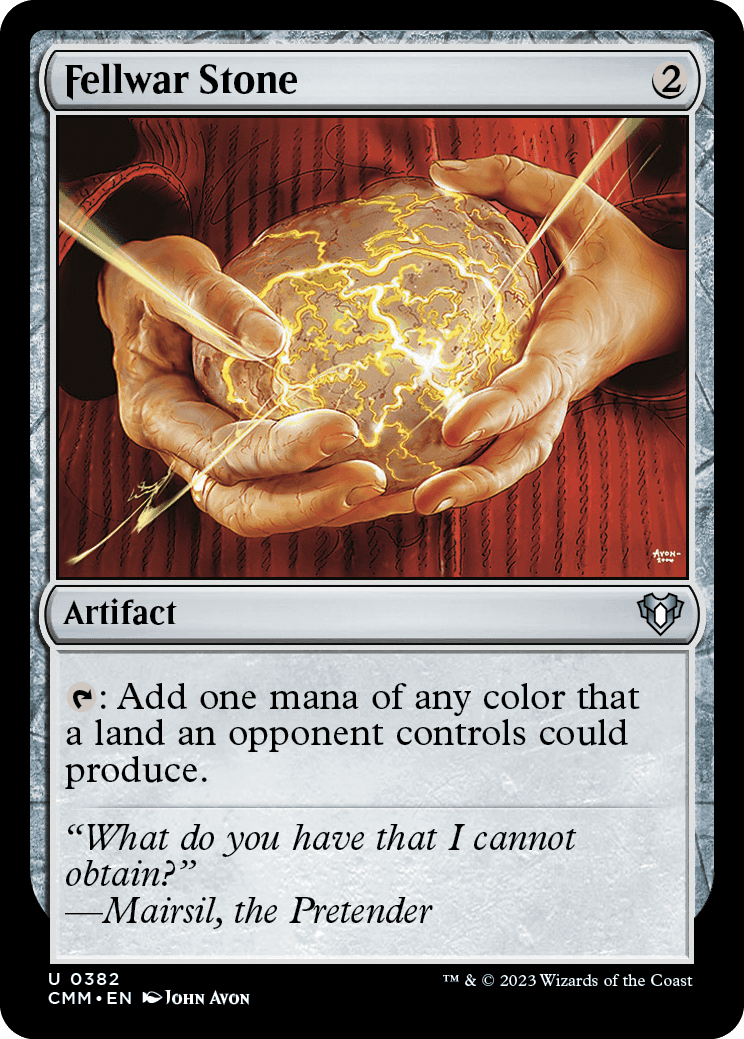
Fellwar Stone
{2}
Artifact
{T}: Add one mana of any color that a land an opponent controls could produce.
- It only produces one mana even if the land can produce more than one.
- This works even if the opponent's lands are tapped. It only checks what kinds of mana can be produced, not if the abilities that produce them are usable right now.
- The ability can be activated if the opponent has no lands that produce mana, but the effect will not be able to generate any mana.
- The colors of mana are white, blue, black, red, and green. Fellwar Stone can't be tapped for colorless mana, even if a land an opponent controls could produce colorless mana.
- Fellwar Stone checks the effects of all mana-producing abilities of lands your opponents control, but it doesn't check their costs. For example, Vivid Crag has the ability "{T}, Remove a charge counter from Vivid Crag: Add one mana of any color." If an opponent controls Vivid Crag and you control Fellwar Stone, you can tap Fellwar Stone for any color of mana. It doesn't matter whether Vivid Crag has a charge counter on it, and it doesn't matter whether it's untapped.
- When determining what colors of mana your opponents' lands could produce, take into account any applicable replacement effects that would apply to those lands' mana abilities (such as Contamination's effect, for example). If there is more than one, consider them in any possible order.
- Fellwar Stone doesn't care about any restrictions or riders your opponents' lands (such as Ancient Ziggurat or Hall of the Bandit Lord) put on the mana they produce. It just cares about colors of mana.
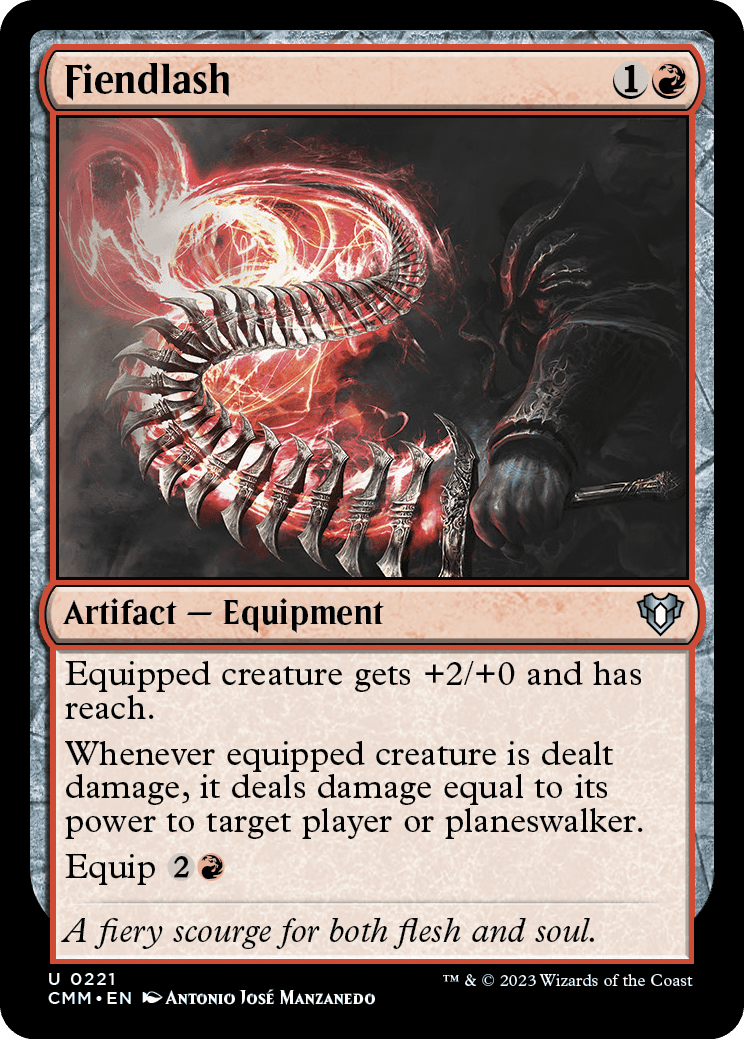
Fiendlash
{1}{R}
Artifact — Equipment
Equipped creature gets +2/+0 and has reach.
Whenever equipped creature is dealt damage, it deals damage equal to its power to target player or planeswalker.
Equip {2}{R}
- Use the equipped creature's power as the triggered ability resolves to determine how much damage is dealt. If the equipped creature is no longer on the battlefield at that time, use its power as it last existed on the battlefield.
- If the equipped creature isn't on the battlefield as the triggered ability resolves but it had lifelink when it left the battlefield, you will gain life.
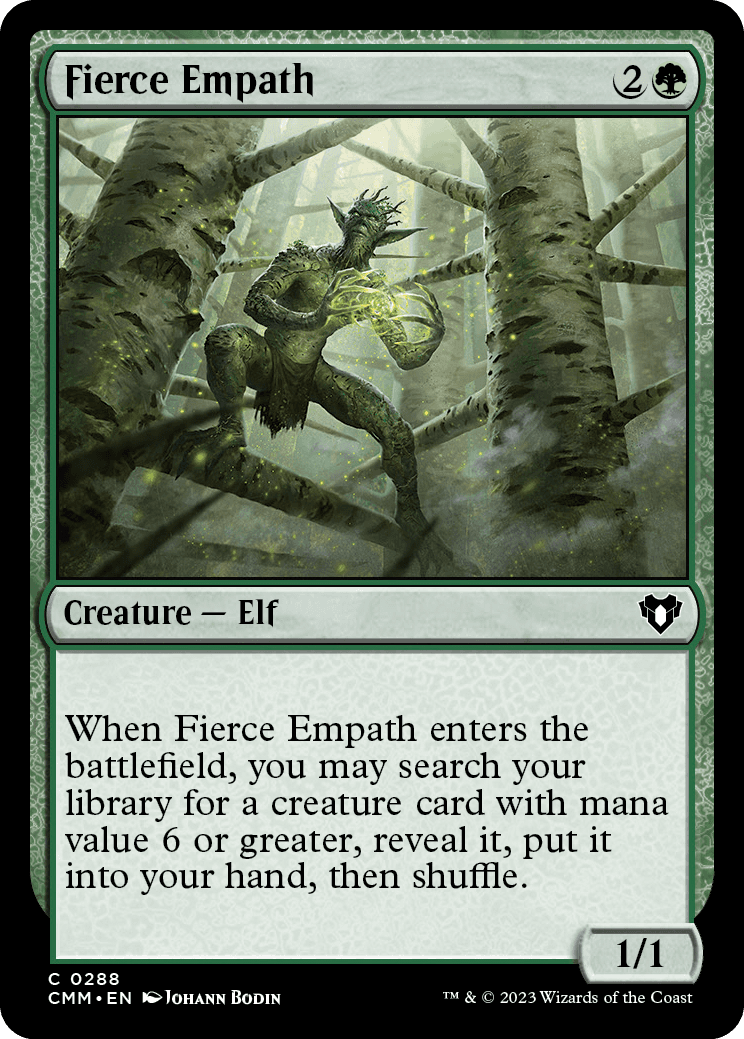
Fierce Empath
{2}{G}
Creature — Elf
1/1
When Fierce Empath enters the battlefield, you may search your library for a creature card with mana value 6 or greater, reveal it, put it into your hand, then shuffle.
- If a card in a player's library has {X} in its mana cost, X is considered to be 0.
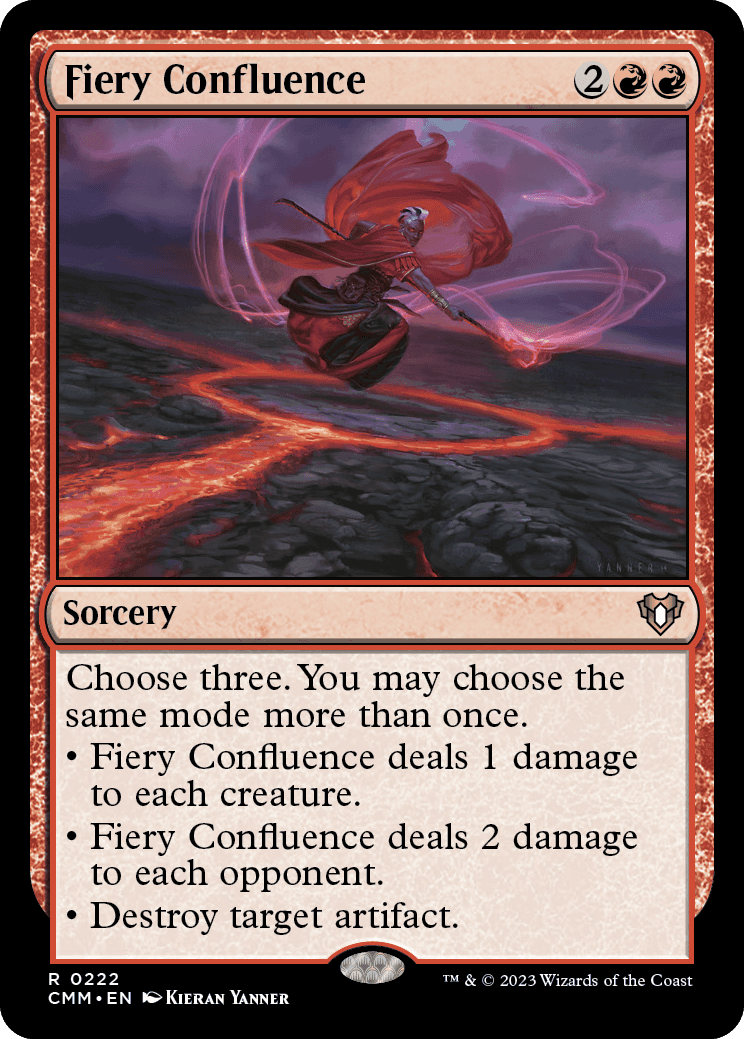
Fiery Confluence
{2}{R}{R}
Sorcery
Choose three. You may choose the same mode more than once.
• Fiery Confluence deals 1 damage to each creature.
• Fiery Confluence deals 2 damage to each opponent.
• Destroy target artifact.
- If the first or second modes are chosen multiple times, each of those modes represents a separate damage-dealing event. For example, if your opponent casts Fiery Confluence choosing the second mode three times, and you control Guardian Seraph (a creature with the ability "If a source an opponent controls would deal damage to you, prevent 1 of that damage"), you'll be dealt a total of 3 damage.
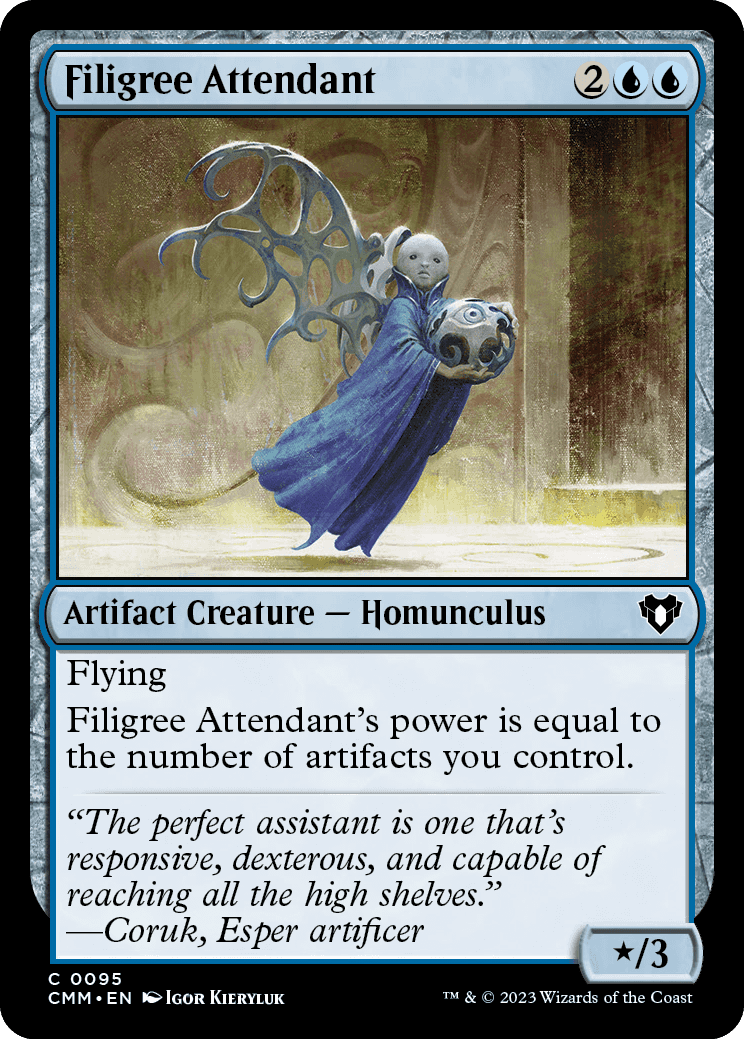
Filigree Attendant
{2}{U}{U}
Artifact Creature — Homunculus
*/3
Flying
Filigree Attendant's power is equal to the number of artifacts you control.
- The ability that defines Filigree Attendant's power works in all zones, not just the battlefield.
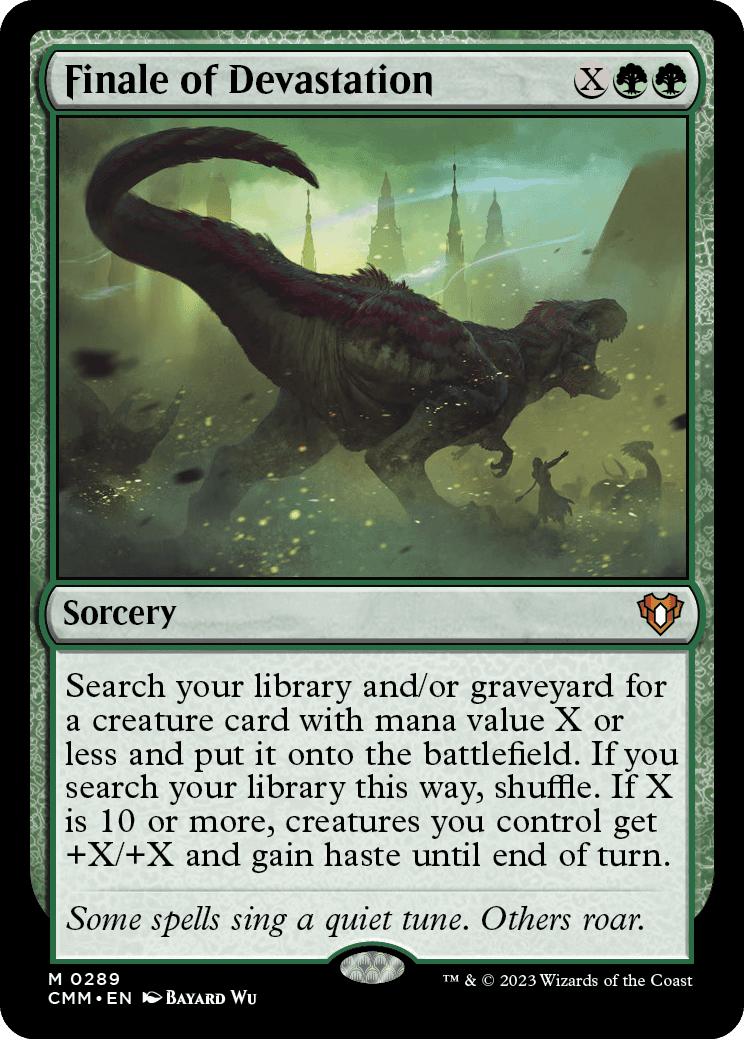
Finale of Devastation
{X}{G}{G}
Sorcery
Search your library and/or graveyard for a creature card with mana value X or less and put it onto the battlefield. If you search your library this way, shuffle. If X is 10 or more, creatures you control get +X/+X and gain haste until end of turn.
- If a creature card in your library or graveyard has {X} in its mana cost, X is considered to be 0.
- If X is 10 or more, the creature card you just put onto the battlefield will get +X/+X and haste.
- No player may take action between the time you reveal which creature card you'll put onto the battlefield and the time it gets +X/+X and haste if X is 10 or more. Any abilities that trigger as it enters the battlefield will be put onto the stack after your creatures get +X/+X and haste.
- If you don't find a creature card with mana value X or less, creatures you control still get +X/+X and gain haste if X is 10 or more.
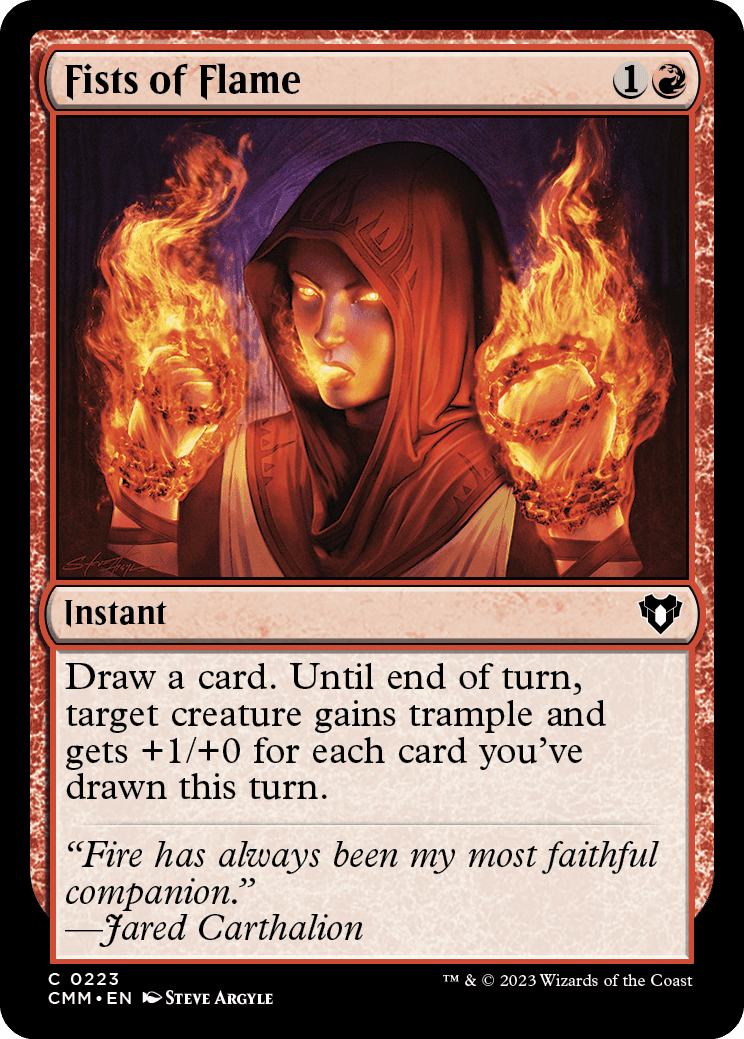
Fists of Flame
{1}{R}
Instant
Draw a card. Until end of turn, target creature gains trample and gets +1/+0 for each card you've drawn this turn.
- If the target creature is an illegal target by the time Fists of Flame tries to resolve, the spell doesn't resolve. You won't draw a card.
- The bonus that the target creature receives is locked in as Fists of Flame resolves, counting the card drawn during its first effect. The creature won't get an additional +1/+0 if you draw another card later in the turn.
- If a spell or ability causes you to put cards into your hand without specifically using the word "draw," Fists of Flame's effect doesn't count them.
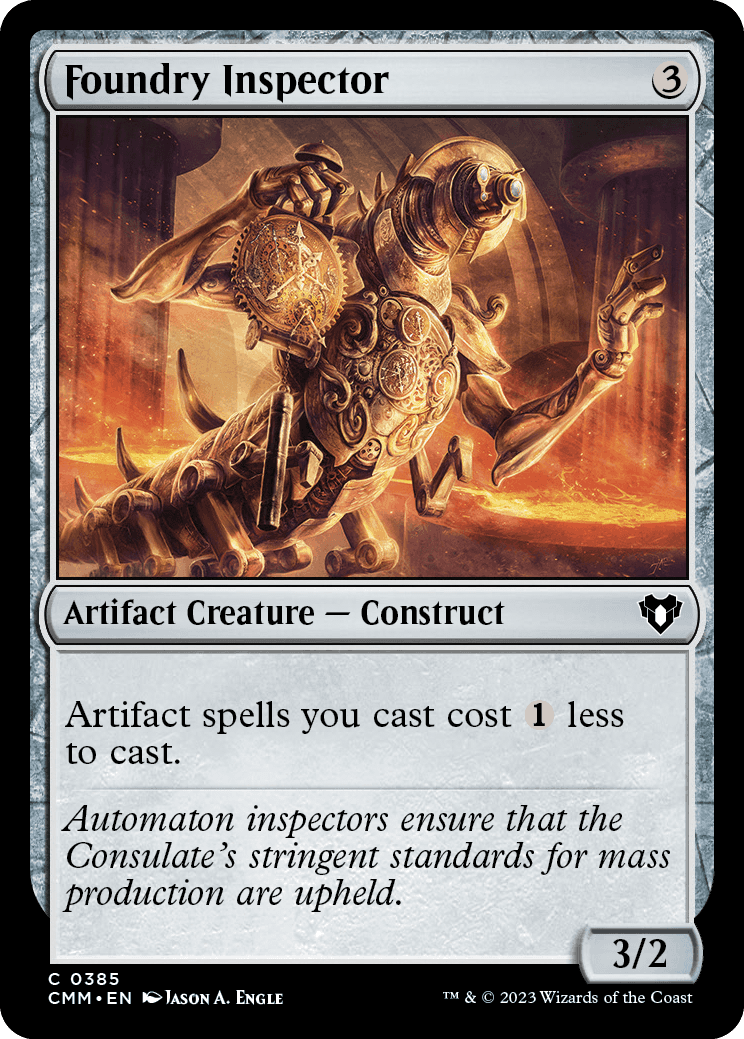
Foundry Inspector
{3}
Artifact Creature — Construct
3/2
Artifact spells you cast cost {1} less to cast.
- If an artifact spell has {X} in its mana cost, choose the value for X first, and then reduce the cost by {1}. For example, an artifact that costs {X} with X chosen as 4 costs {3} to cast if you control Foundry Inspector.
- Once a player has announced an artifact spell, no player may take actions to try to remove Foundry Inspector from the battlefield before that spell's cost is locked in.
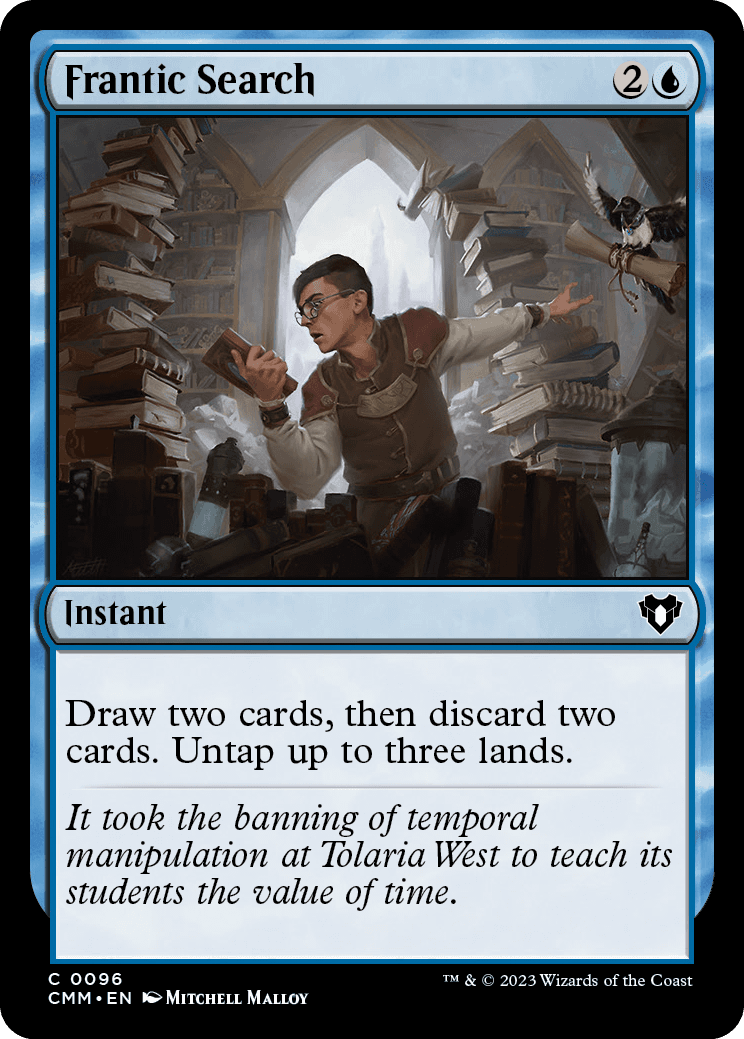
Frantic Search
{2}{U}
Instant
Draw two cards, then discard two cards. Untap up to three lands.
- You draw two cards and discard two cards all while Frantic Search is resolving. Nothing can happen between the two, and no player may choose to take actions.
- You choose which lands to untap as the spell resolves. They aren't targeted, and they don't have to be lands that you control.
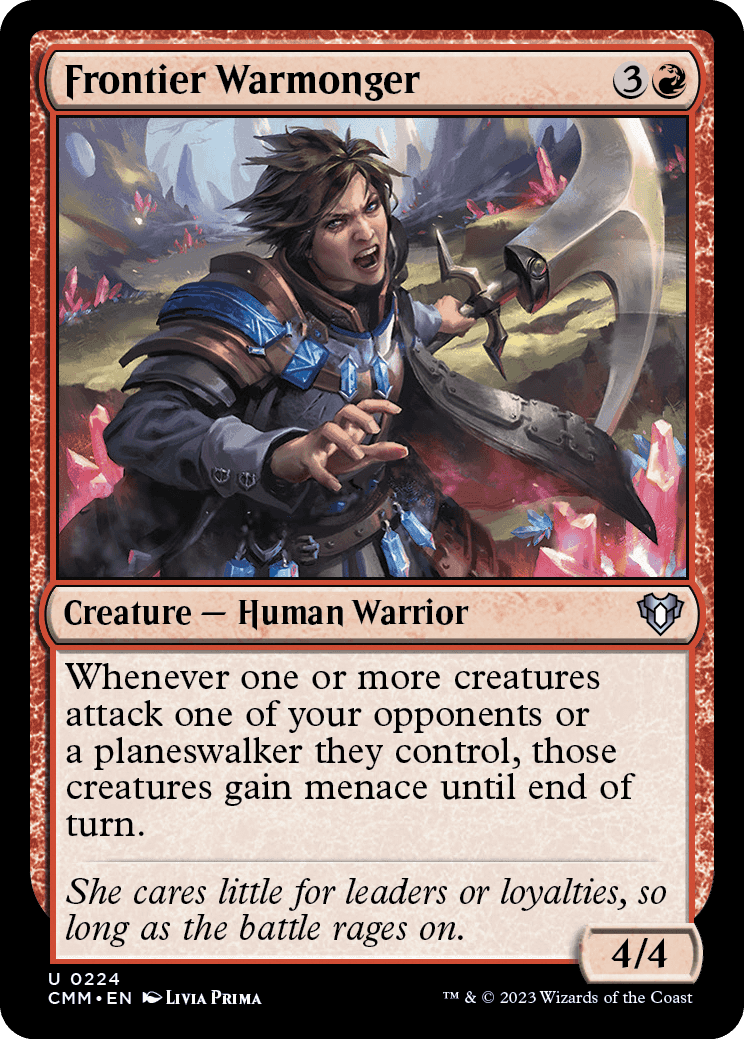
Frontier Warmonger
{3}{R}
Creature — Human Warrior
4/4
Whenever one or more creatures attack one of your opponents or a planeswalker they control, those creatures gain menace until end of turn.
- Creatures your opponents control attacking one of your opponents will cause Frontier Warmonger's ability to trigger.
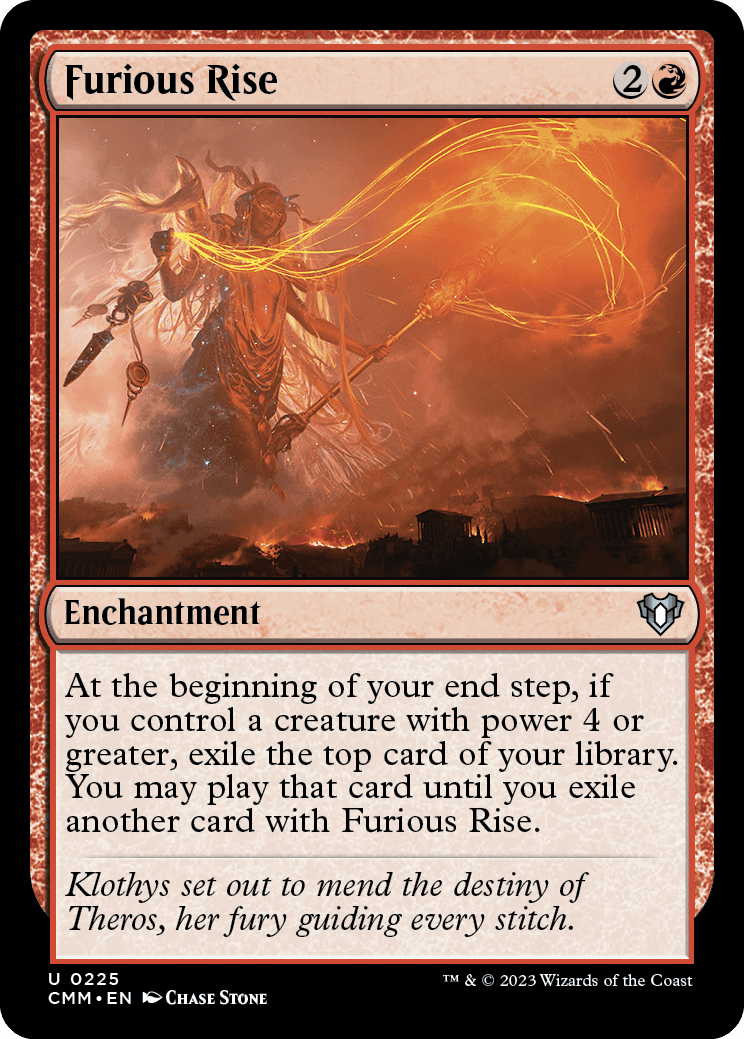
Furious Rise
{2}{R}
Enchantment
At the beginning of your end step, if you control a creature with power 4 or greater, exile the top card of your library. You may play that card until you exile another card with Furious Rise.
- If you don't control a creature with power 4 or greater as your end step begins, Furious Rise's ability doesn't trigger. If you don't control one as the ability resolves, it has no effect. It doesn't have to be the same creature at both times, however.
- Furious Rise's ability has you exile only one card, no matter how many creatures with power 4 or greater you control beyond the first.
- Furious Rise's effect doesn't change when you can play the exiled card. For example, if you exile a sorcery card, you can cast it only during your main phase when the stack is empty. If you exile a land card, you can't play it unless you have land plays available.
- Playing an exiled card causes it to leave exile. You can't play it multiple times.
- If Furious Rise leaves the battlefield before you play the most recently exiled card, you can play that card for as long as it remains exiled.
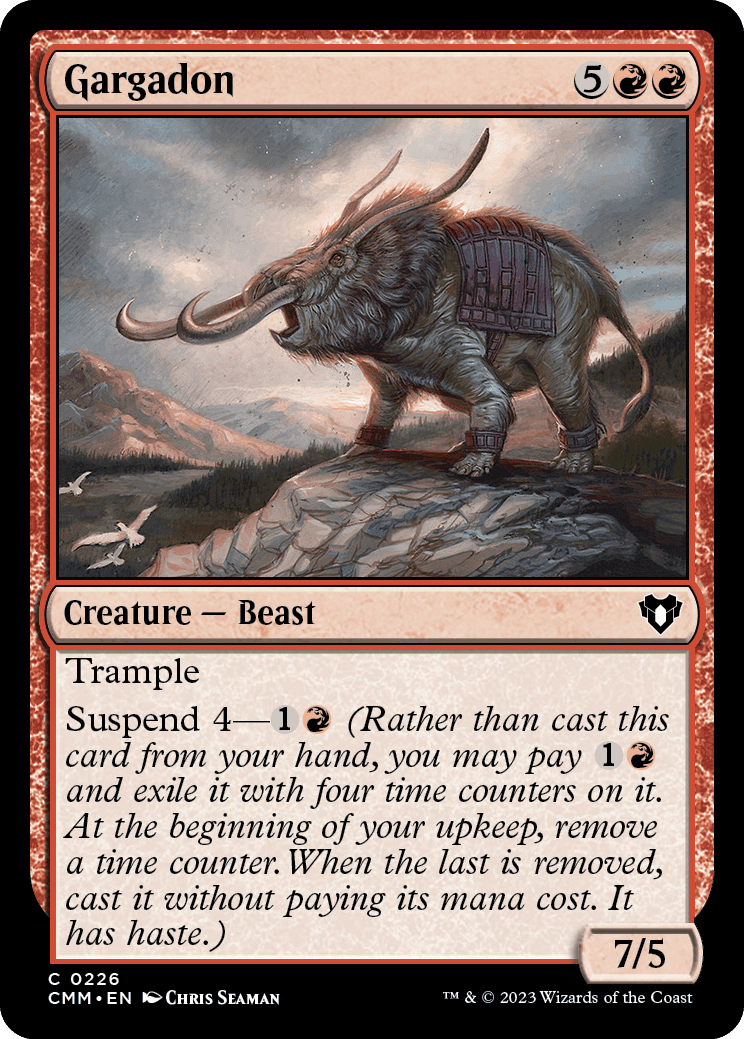
Gargadon
{5}{R}{R}
Creature — Beast
7/5
Trample
Suspend 4—{1}{R} (Rather than cast this card from your hand, you may pay {1}{R} and exile it with four time counters on it. At the beginning of your upkeep, remove a time counter. When the last is removed, cast it without paying its mana cost. It has haste.)
- Suspend is a keyword that represents three abilities. The first is a static ability that allows you to exile the card from your hand with the specified number of time counters (the number before the dash) on it by paying its suspend cost (listed after the dash). The second is a triggered ability that removes a time counter from the suspended card at the beginning of each of your upkeeps. The third is a triggered ability that causes you to cast the card when the last time counter is removed. If you cast a creature spell this way, it gains haste until you lose control of that creature (or, in rare cases, you lose control of the creature spell while it's on the stack).
- You can exile a card in your hand using suspend any time you could cast that card. Consider its card type, any effects that modify when you could cast it (such as flash) and any other effects that stop you from casting it (such as from Meddling Mage's ability) to determine if and when you can do this. Whether you could actually complete all steps in casting the card is irrelevant. For example, you can exile a card with suspend that has no mana cost or that requires a target even if no legal targets are available at that time.
- Cards exiled with suspend are exiled face up.
- Exiling a card with suspend isn't casting that card. This action doesn't use the stack and can't be responded to.
- If the spell requires any targets, those targets are chosen when the spell is finally cast, not when it's exiled.
- If an effect refers to a "suspended card," that means a card that (1) has suspend, (2) is in exile, and (3) has one or more time counters on it.
- If the first triggered ability of suspend (the one that removes time counters) is countered, no time counter is removed. The ability will trigger again at the beginning of the card's owner's next upkeep.
- When the last time counter is removed, the second triggered ability of suspend (the one that lets you cast the card) triggers. It doesn't matter why the last time counter was removed or what effect removed it.
- If the second triggered ability is countered, the card can't be cast. It remains exiled with no time counters on it, and it's no longer suspended.
- As the second triggered ability resolves, you must cast the card if able. You must do so even if it requires targets and the only legal targets are ones that you really don't want to target. Timing permissions based on the card's type are ignored.
- If you can't cast the card, perhaps because there are no legal targets available, it remains exiled with no time counters on it, and it's no longer suspended.
- If you cast a card "without paying its mana cost," such as with suspend, you can't choose to cast it for any alternative costs. You can, however, pay additional costs. If the card has any mandatory additional costs, you must pay those if you want to cast the card.
- You are never forced to activate mana abilities to pay costs, so if there is a mandatory additional mana cost (such as from Thalia, Guardian of Thraben), you can decline to activate mana abilities to pay for it and hence fail to cast the suspended card, leaving it in exile.
- If the card has {X} in its mana cost, you must choose 0 as the value of X when casting it without paying its mana cost.
- The mana value of a spell cast without paying its mana cost is determined by its mana cost, even though that cost wasn't paid.
- A creature cast using suspend will enter the battlefield with haste. It will have haste until another player gains control of it. (In some rare cases, another player may gain control of the creature spell itself. If this happens, the creature won't enter the battlefield with haste.)
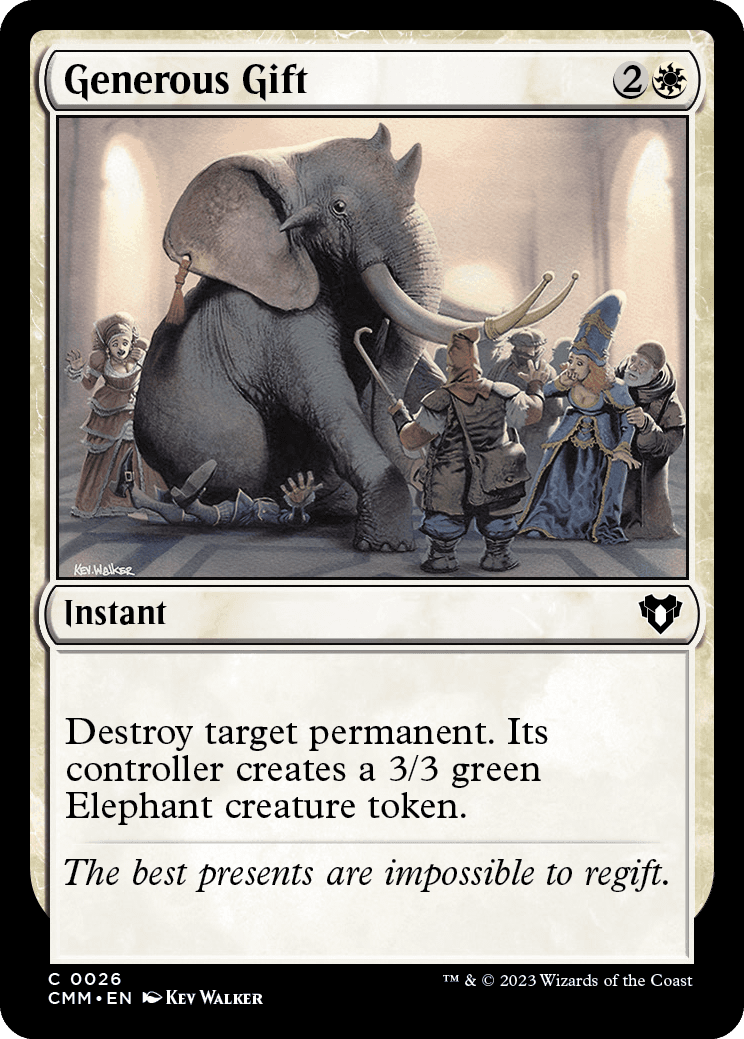
Generous Gift
{2}{W}
Instant
Destroy target permanent. Its controller creates a 3/3 green Elephant creature token.
- If the target permanent is an illegal target by the time Generous Gift tries to resolve, the spell doesn't resolve. No player creates an Elephant. If the target is legal but not destroyed (most likely because it has indestructible), its controller does create an Elephant.
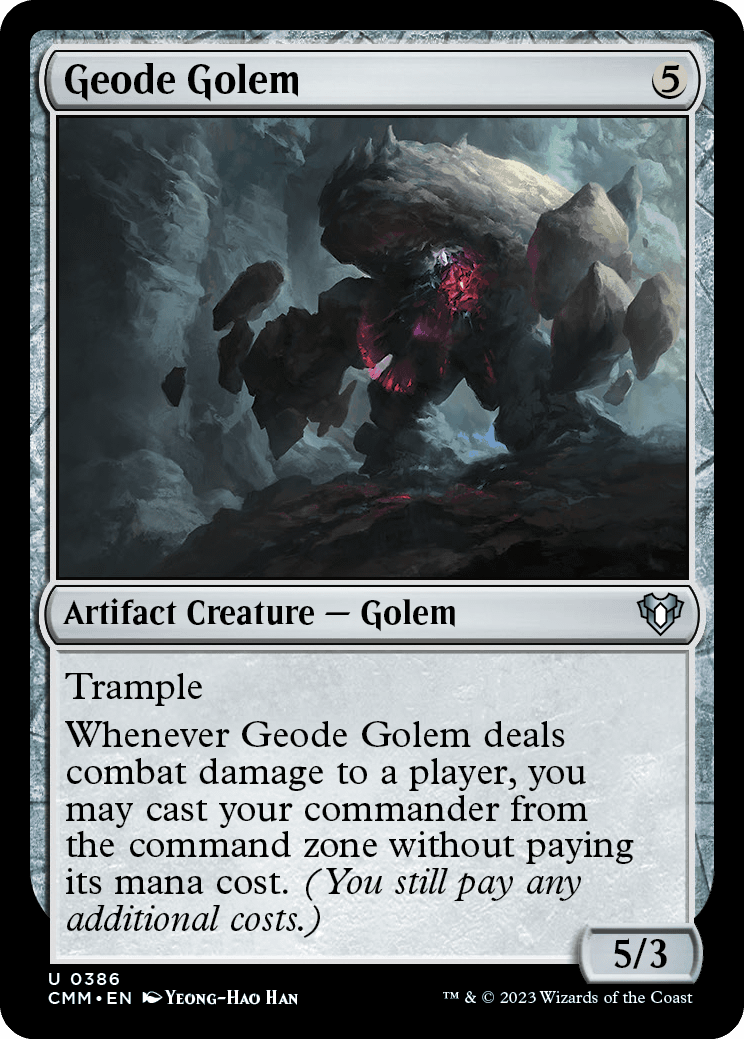
Geode Golem
{5}
Artifact Creature — Golem
5/3
Trample
Whenever Geode Golem deals combat damage to a player, you may cast your commander from the command zone without paying its mana cost. (You still pay any additional costs.)
- If you wish to cast your commander without paying its mana cost, you must cast it while the triggered ability of Geode Golem is resolving. You can't cast for free it later in the turn. It may be cast at a time you normally wouldn't be able to cast a creature spell, but other restrictions (such as "Cast this card only from your graveyard") are enforced.
- If you cast a card "without paying its mana cost," you can't choose to cast it for any alternative costs, such as bestow costs. You can, however, pay additional costs. If the card has any mandatory additional costs, such as the commander tax, those must be paid to cast the card.
- If a spell has {X} in its mana cost, you must choose 0 as the value of X when casting it without paying its mana cost.
- Geode Golem's triggered ability triggers even if your commander isn't in the command zone at the time Geode Golem deals combat damage to a player. If your commander finds its way there before the trigger resolves, you can cast it.
- Geode Golem's triggered ability triggers even if it's dealt lethal damage at the same time it deals combat damage to a player.
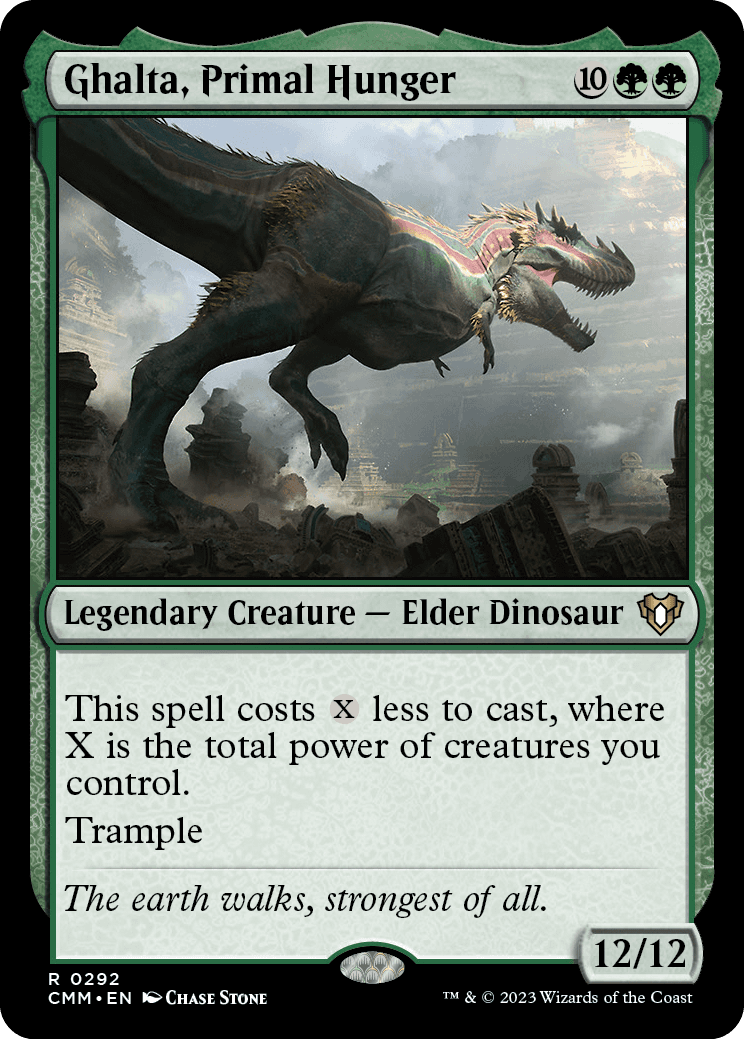
Ghalta, Primal Hunger
{10}{G}{G}
Legendary Creature — Elder Dinosaur
12/12
This spell costs {X} less to cast, where X is the total power of creatures you control.
Trample
- To determine Ghalta's total cost, start with the mana cost (or an alternative cost if another card's effect allows you to pay one instead), add any cost increases, then apply any cost reductions. Ghalta's mana value remains unchanged, no matter what the total cost to cast it was.
- The total cost to cast Ghalta is locked in before you pay that cost. For example, if you control three 2/2 creatures, including one you can sacrifice to add {C} to your mana pool, the total cost of Ghalta is {4}{G}{G}. Then you can sacrifice the creature when you activate mana abilities just before paying the cost.
- If a creature's power is somehow less than 0, it subtracts from the total power of your other creatures. If the total power of your creatures is 0 or less, Ghalta's cost remains {10}{G}{G}.
- Ghalta's first ability can't reduce its cost below {G}{G}.
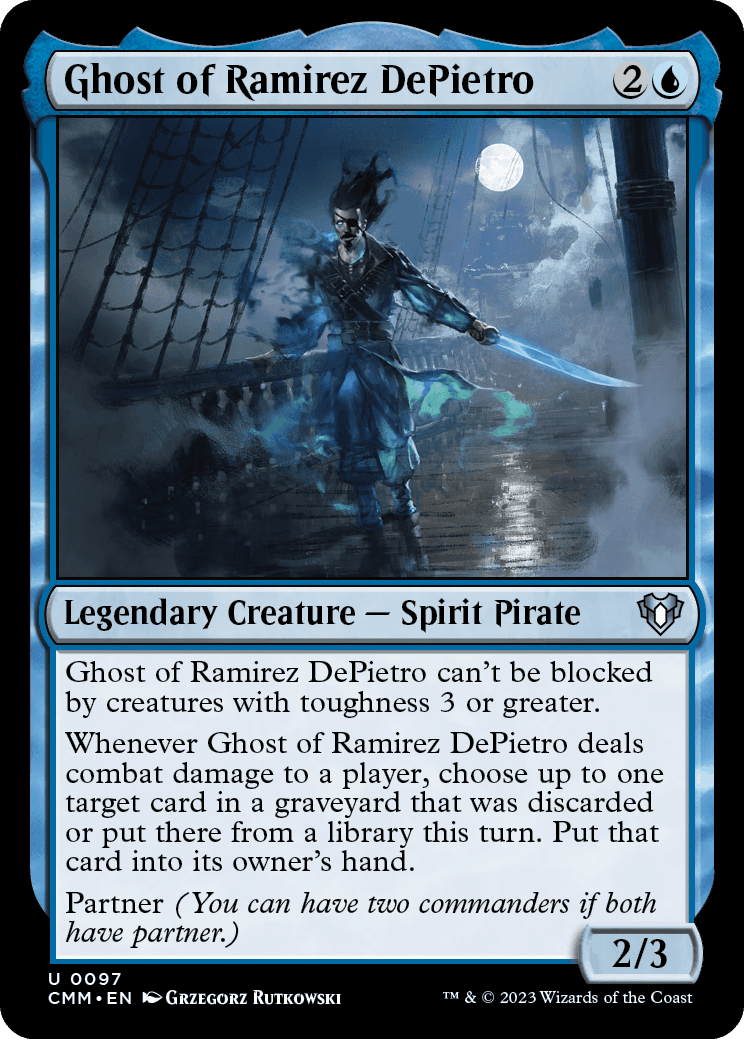
Ghost of Ramirez DePietro
{2}{U}
Legendary Creature — Spirit Pirate
2/3
Ghost of Ramirez DePietro can't be blocked by creatures with toughness 3 or greater.
Whenever Ghost of Ramirez DePietro deals combat damage to a player, choose up to one target card in a graveyard that was discarded or put there from a library this turn. Put that card into its owner's hand.
Partner (You can have two commanders if both have partner.)
- Once a creature with toughness 2 or less has blocked this creature, changing the toughness of the blocking creature won't cause this creature to become unblocked.
- The middle ability can't target cards that were discarded on previous turns or put into the graveyard from a library on previous turns.
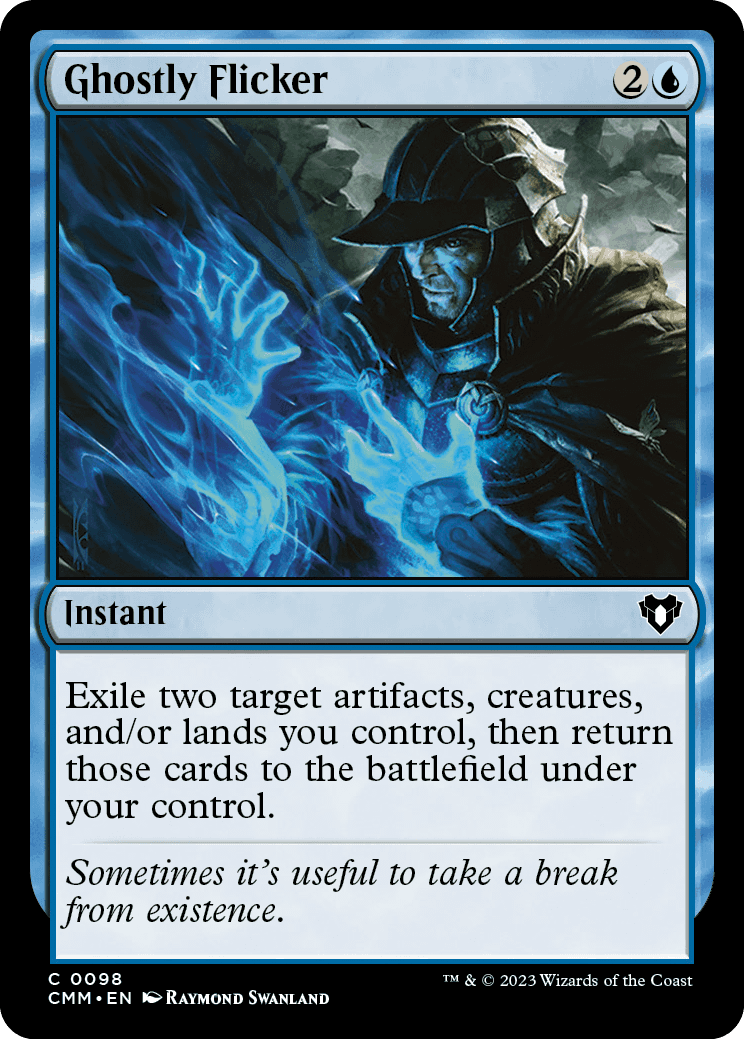
Ghostly Flicker
{2}{U}
Instant
Exile two target artifacts, creatures, and/or lands you control, then return those cards to the battlefield under your control.
- The two targets can have different card types. For example, you can target one artifact and one creature with Ghostly Flicker.
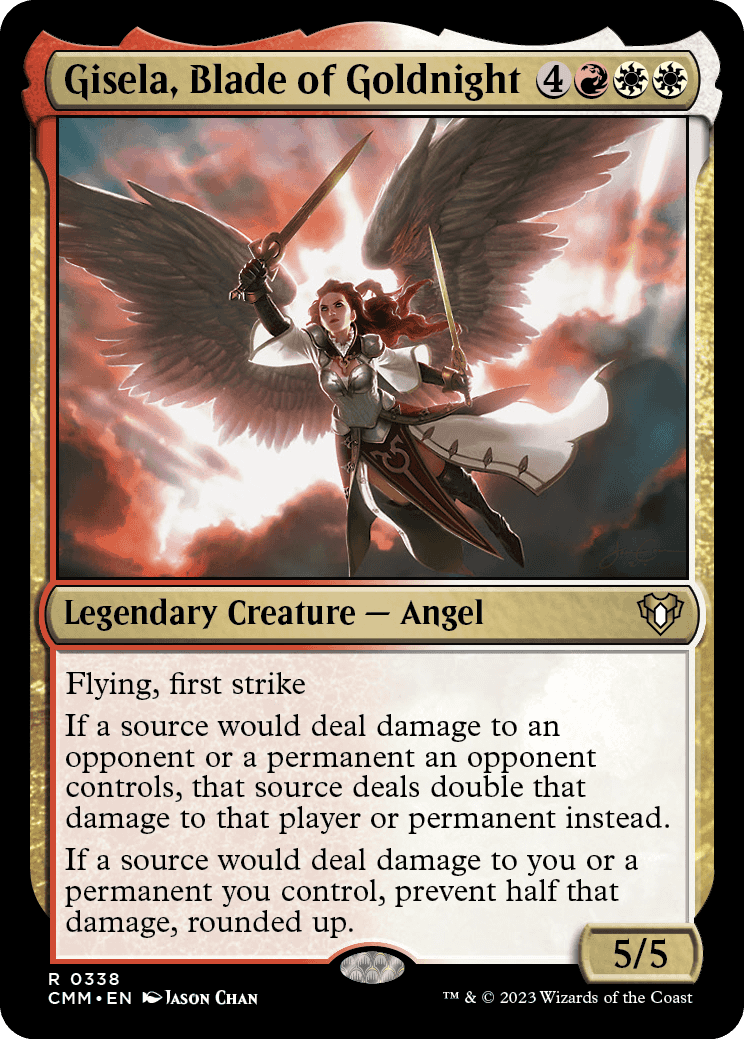
Gisela, Blade of Goldnight
{4}{R}{W}{W}
Legendary Creature — Angel
5/5
Flying, first strike
If a source would deal damage to an opponent or a permanent an opponent controls, that source deals double that damage to that player or permanent instead.
If a source would deal damage to you or a permanent you control, prevent half that damage, rounded up.
- Gisela doubles damage dealt to opponents and permanents your opponents control from any source, including sources controlled by those opponents.
- If multiple replacement effects would modify how damage would be dealt, the player being dealt damage (or the controller of the permanent being dealt damage) chooses the order in which to apply those effects.
- If damage dealt by a source you control is being divided or assigned among multiple permanents an opponent controls or among an opponent and one or more permanents they control simultaneously, divide the original amount and double the results. For example, if you attack with a 5/5 creature with trample and your opponent blocks with a 2/2 creature, you can assign 2 damage to the blocker and 3 damage to the defending player. These amounts are then doubled to 4 and 6 damage, respectively. You can't double the damage to 10 first and then assign 2 to the creature and 8 to the player.
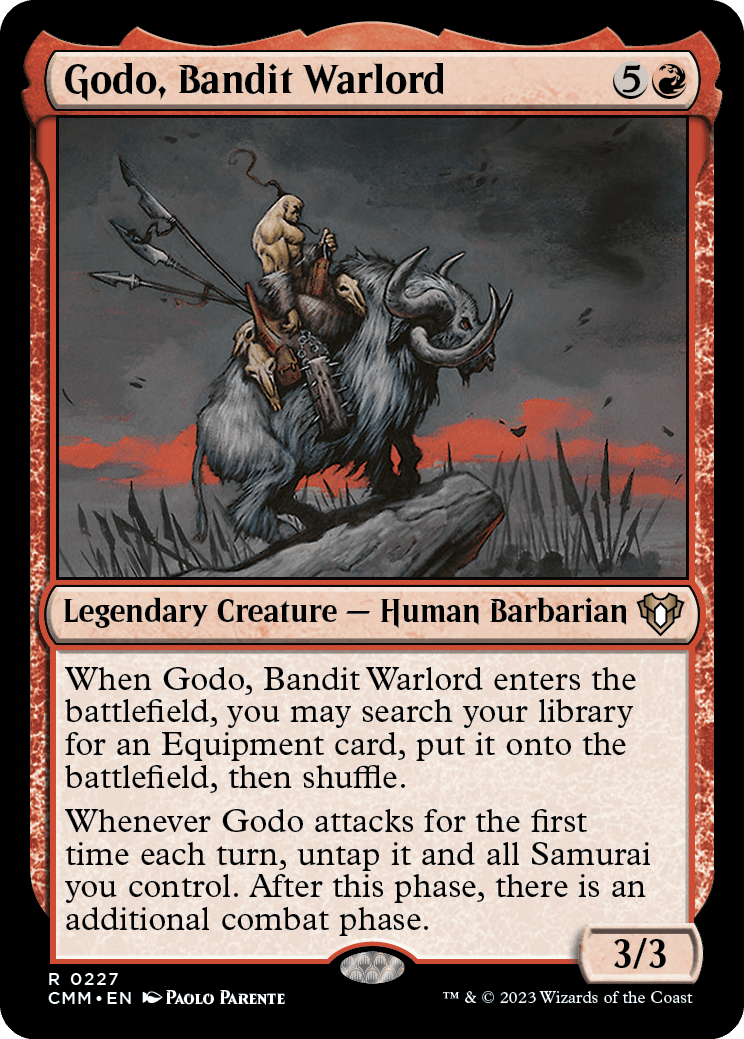
Godo, Bandit Warlord
{5}{R}
Legendary Creature — Human Barbarian
3/3
When Godo, Bandit Warlord enters the battlefield, you may search your library for an Equipment card, put it onto the battlefield, then shuffle.
Whenever Godo attacks for the first time each turn, untap it and all Samurai you control. After this phase, there is an additional combat phase.
- You don't get an additional main phase with Godo, Bandit Warlord's ability. The additional combat phase happens immediately after the first combat phase.
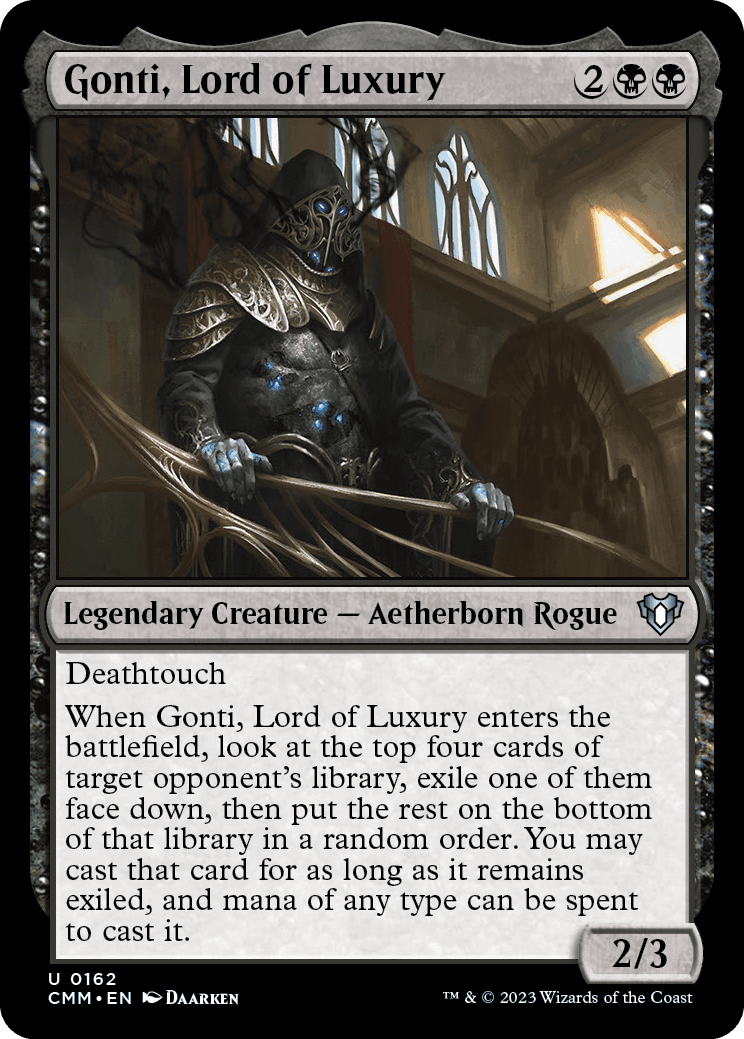
Gonti, Lord of Luxury
{2}{B}{B}
Legendary Creature — Aetherborn Rogue
2/3
Deathtouch
When Gonti, Lord of Luxury enters the battlefield, look at the top four cards of target opponent's library, exile one of them face down, then put the rest on the bottom of that library in a random order. You may cast that card for as long as it remains exiled, and mana of any type can be spent to cast it.
- You may look at and cast that card (and spend mana as though it were mana of any type to do so) even if Gonti leaves the battlefield. If another player gains control of Gonti, that player can't look at or cast the card, and you still can.
- An effect that instructs you to "cast" a card doesn't allow you to play lands.
- You pay the costs for the exiled card if you cast it. You may pay alternative costs such as emerge rather than the card's mana cost.
- Gonti doesn't change when you can cast the exiled card. For example, if you exile a creature card without flash, you can cast it only during your main phase when the stack is empty.
- Casting the card causes it to leave exile. You can't cast it multiple times.
- If you leave the game, the card remains exiled face down indefinitely. No player may look at it.
- The six types of mana are white, blue, black, red, green, and colorless. Snow mana is not a type of mana. Gonti, Lord of Luxury won't let you pay a snow cost using mana produced by a nonsnow source.
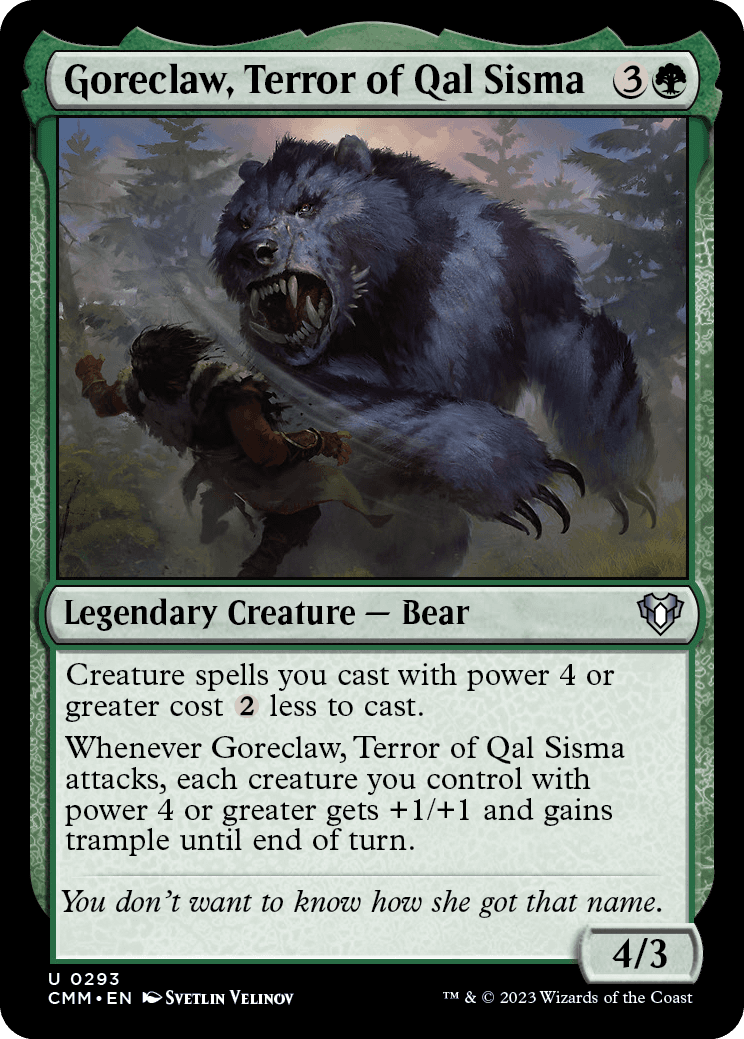
Goreclaw, Terror of Qal Sisma
{3}{G}
Legendary Creature — Bear
4/3
Creature spells you cast with power 4 or greater cost {2} less to cast.
Whenever Goreclaw, Terror of Qal Sisma attacks, each creature you control with power 4 or greater gets +1/+1 and gains trample until end of turn.
- If you cast a creature spell that will enter the battlefield with a number of +1/+1 counters, such as Wildwood Scourge, those counters aren't considered when determining whether Goreclaw reduces that spell's cost. Similarly, effects that will raise the creature's power once it has entered the battlefield won't apply.
- If another creature has an ability that changes its power when it attacks, such as Rampaging Brontodon, you may have that ability resolve before Goreclaw's last ability.
- Goreclaw's last ability affects only creatures you control with the appropriate power at the time it resolves. Creatures you begin to control later in the turn won't get either bonus, and a creature you control whose power decreases later in the turn won't lose either bonus.
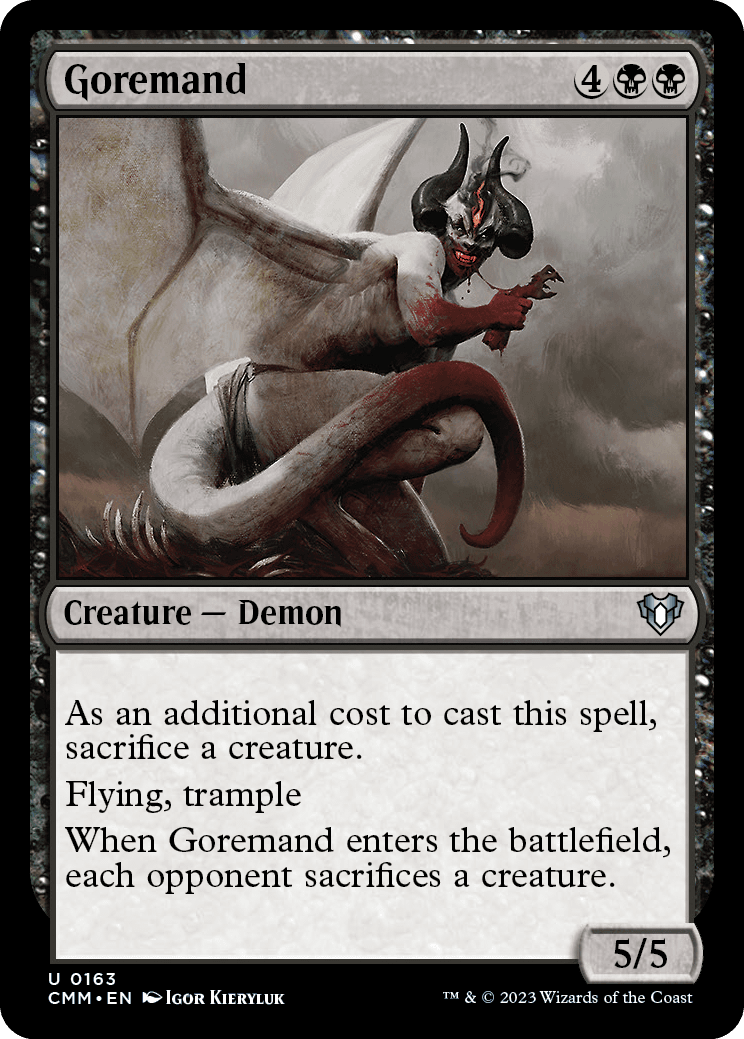
Goremand
{4}{B}{B}
Creature — Demon
5/5
As an additional cost to cast this spell, sacrifice a creature.
Flying, trample
When Goremand enters the battlefield, each opponent sacrifices a creature.
- As Goremand's triggered ability resolves, first the next opponent in turn order (or, if it's an opponent's turn, the opponent whose turn it is) chooses a creature they control, then each other opponent in turn order does the same knowing the choices made before them. Then all the chosen creatures are sacrificed at the same time.
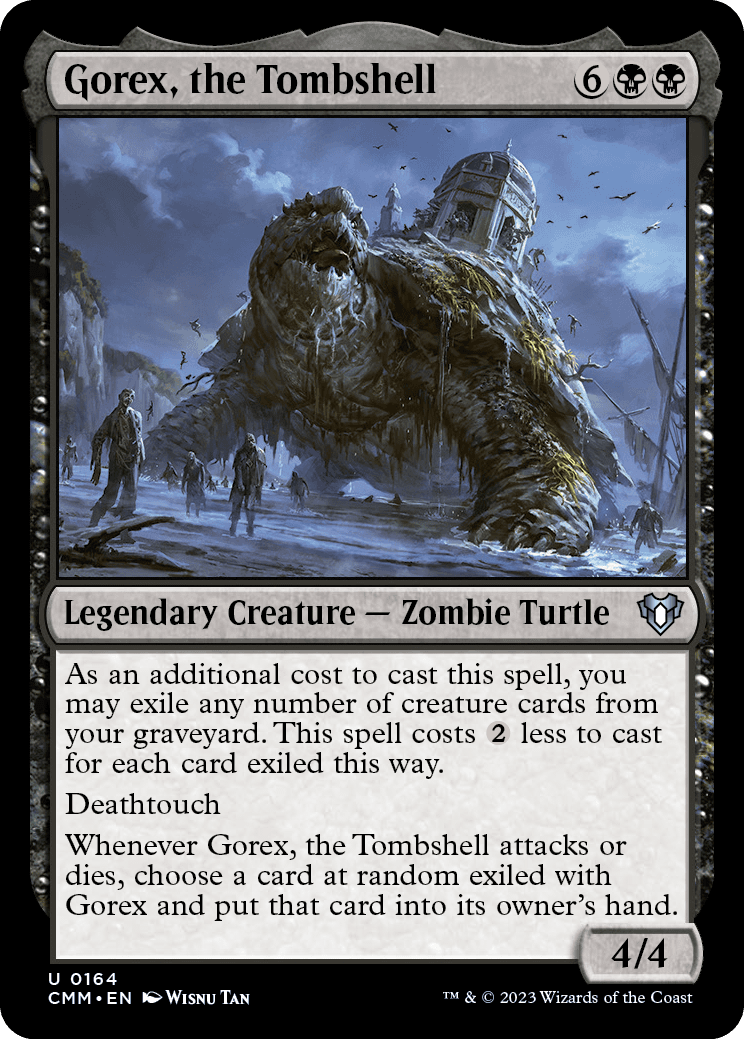
Gorex, the Tombshell
{6}{B}{B}
Legendary Creature — Zombie Turtle
4/4
As an additional cost to cast this spell, you may exile any number of creature cards from your graveyard. This spell costs {2} less to cast for each card exiled this way.
Deathtouch
Whenever Gorex, the Tombshell attacks or dies, choose a card at random exiled with Gorex and put that card into its owner's hand.
- Gorex's first ability can't reduce its cost below {B}{B}. You can exile any number of creature cards from your graveyard, even if they won't reduce Gorex's cost any further.
- Include any additional costs to cast Gorex before applying its own cost reduction. For example, if Gorex is your commander and an additional cost of {6} applies from the "commander tax," you may cast Gorex by exiling four creature cards from your graveyard and paying {4}{B}{B}.
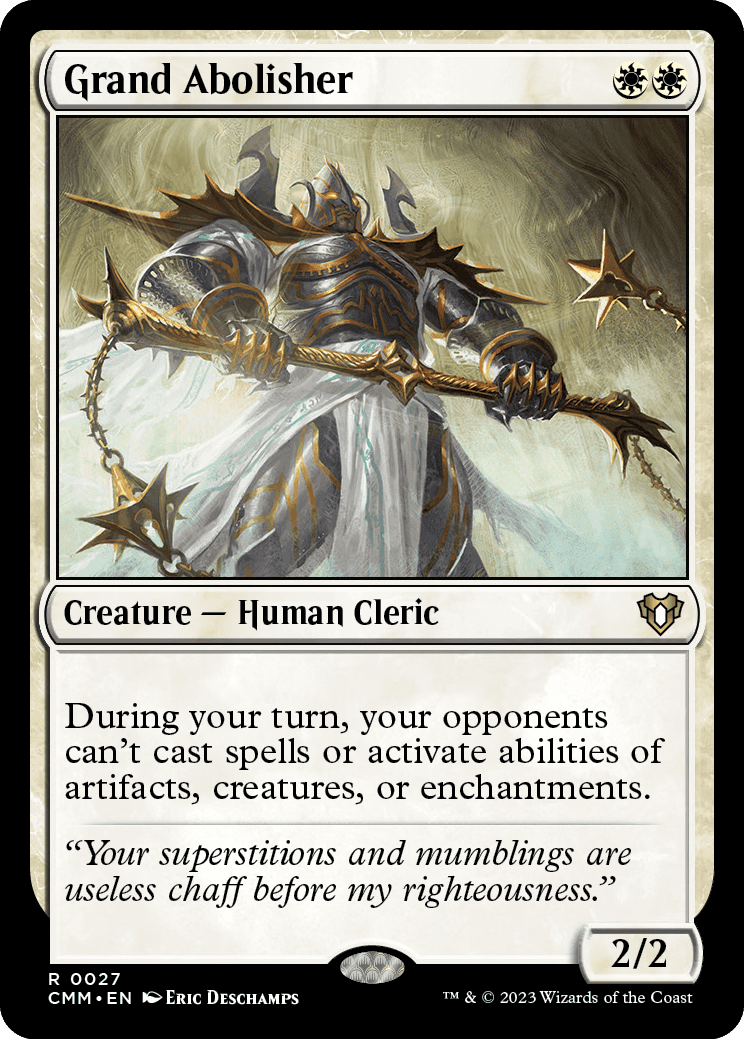
Grand Abolisher
{W}{W}
Creature — Human Cleric
2/2
During your turn, your opponents can't cast spells or activate abilities of artifacts, creatures, or enchantments.
- Grand Abolisher doesn't stop your opponents from activating abilities of artifact, creature, or enchantment cards in zones other than the battlefield (like cycling abilities, for example).
- Grand Abolisher doesn't affect triggered abilities or static abilities.
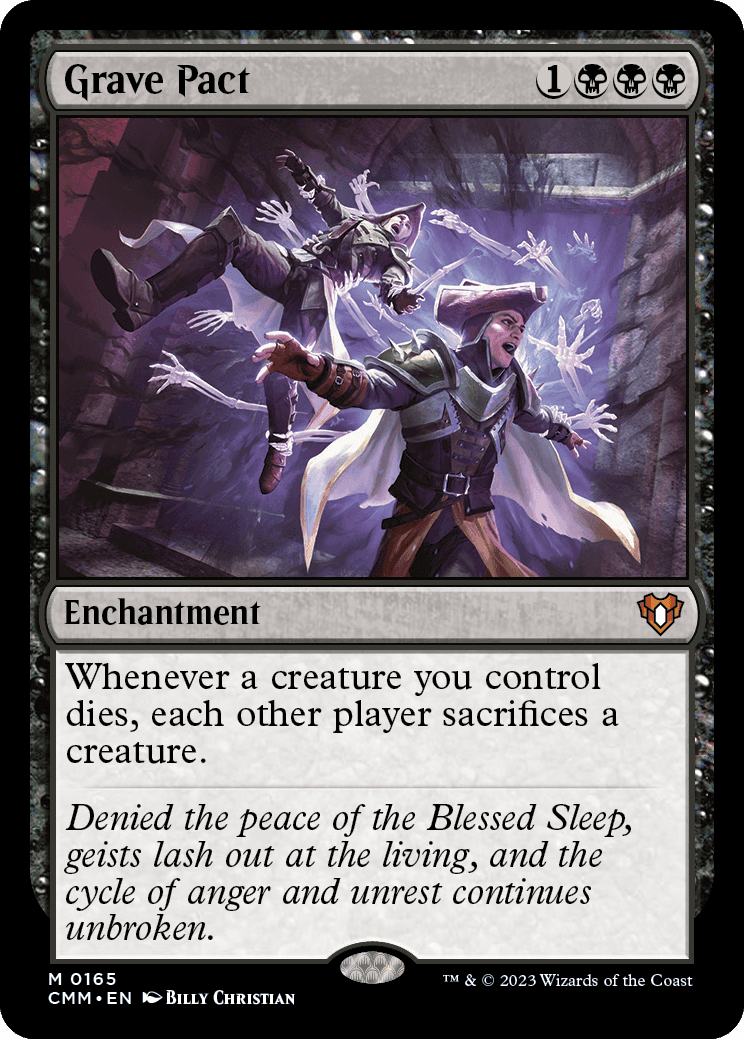
Grave Pact
{1}{B}{B}{B}
Enchantment
Whenever a creature you control dies, each other player sacrifices a creature.
- Each other player sacrifices a creature for each creature you control that goes to a graveyard.
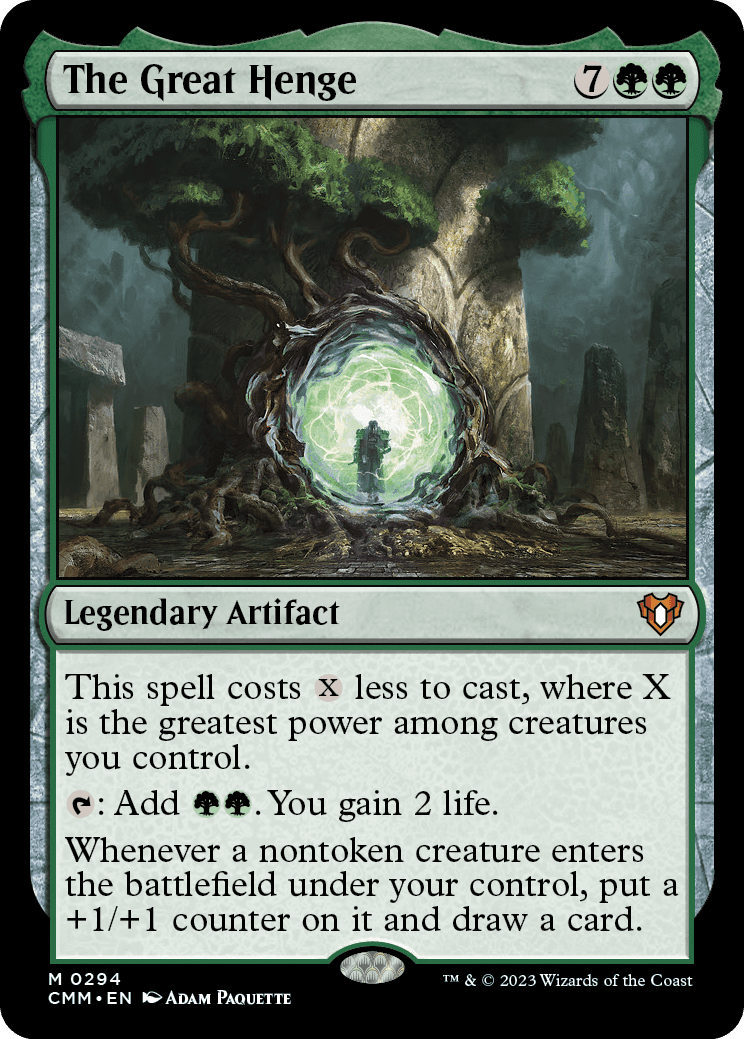
The Great Henge
{7}{G}{G}
Legendary Artifact
This spell costs {X} less to cast, where X is the greatest power among creatures you control.
{T}: Add {G}{G}. You gain 2 life.
Whenever a nontoken creature enters the battlefield under your control, put a +1/+1 counter on it and draw a card.
- The first step of casting a spell is to move it to the stack. If this causes the greatest power among creatures you control to change, that new power will be used to determine the cost reduction.
- Once you determine the cost to cast The Great Henge, you may activate mana abilities to pay that cost. If the greatest power among creatures you control changes while activating mana abilities, the cost to cast The Great Henge remains what you previously determined.
- To determine the total cost of a spell, start with the mana cost or alternative cost you're paying, add any cost increases, then apply any cost reductions. The mana value of the spell remains unchanged, no matter what the total cost to cast it was.
- The cost reduction ability reduces only the generic mana in The Great Henge's cost. The colored mana must still be paid.
- Once The Great Henge's last ability has triggered, you'll draw a card even if you can't put a +1/+1 counter on the creature for some reason (most likely because it has left the battlefield).
- Once you announce that you're casting a spell, no player may take actions until the spell has been paid for. Notably, opponents can't try to change by how much The Great Henge's cost is reduced.
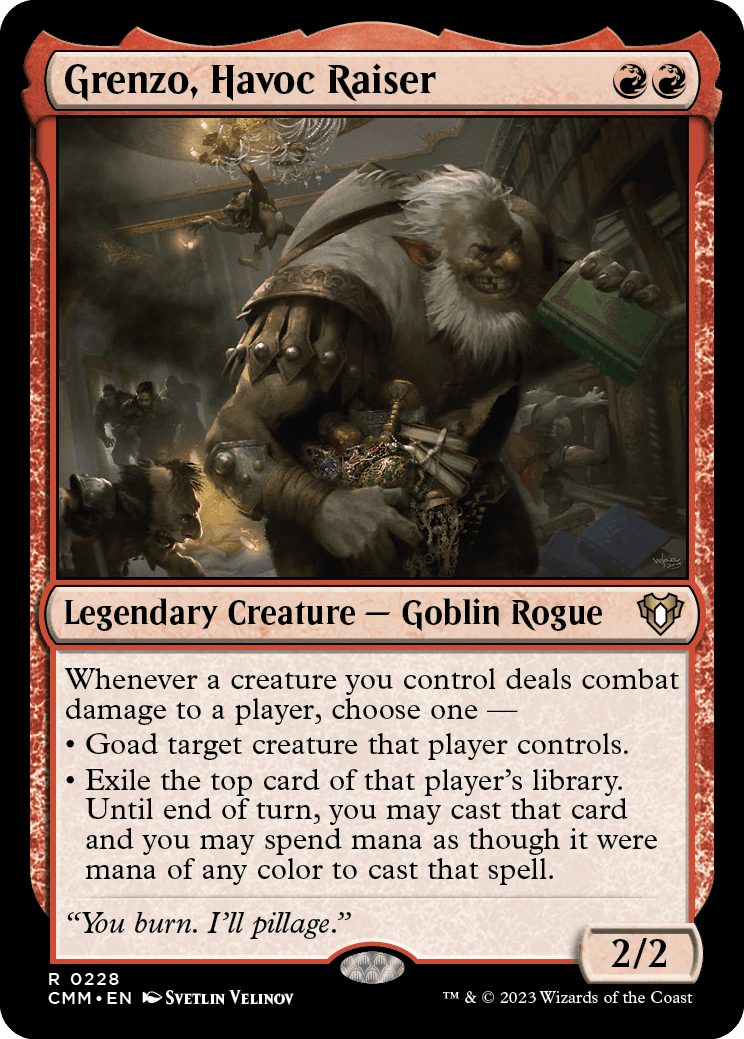
Grenzo, Havoc Raiser
{R}{R}
Legendary Creature — Goblin Rogue
2/2
Whenever a creature you control deals combat damage to a player, choose one —
• Goad target creature that player controls.
• Exile the top card of that player's library. Until end of turn, you may cast that card and you may spend mana as though it were mana of any color to cast that spell.
- The card exiled by the second mode is exiled face up.
- If you exile a land card this way, you can't play it.
- Casting the exiled card follows the normal rules for casting that card. You must pay its costs, and you must follow all applicable timing rules. For example, if you exile a creature card this way, you must wait until your main phase to cast it.
- If you don't cast the card, it will remain in exile.
- If, during a player's declare attackers step, a creature that player controls that's been goaded is tapped, is affected by a spell or ability that says it can't attack, or hasn't been under that player's control continuously since the turn began (and doesn't have haste), then it doesn't attack. If there's a cost associated with having a creature attack a player, its controller isn't forced to pay that cost, so it doesn't have to attack that player.
- If the creature doesn't meet any of the above exceptions and can attack, it must attack a player other than the controller of the spell or ability that goaded it if able. If the creature can't attack any of those players but could otherwise attack, it must attack a planeswalker an opponent controls, a battle an opponent protects, or a player who goaded it.
- Being goaded isn't an ability the creature has. Once it's been goaded, it must attack as detailed above even if it loses all abilities.
- Attacking with a goaded creature doesn't cause it to stop being goaded. If there is an additional combat phase that turn, or if another player gains control of it before it stops being goaded, it must attack again if able.
- If a creature you control has been goaded by multiple opponents, it must attack one of your opponents that hasn't goaded it, as that fulfills the maximum number of goad requirements. If a creature you control has been goaded by each of your opponents, the creature must attack an opponent (rather than a planeswalker or battle), but you choose which opponent it attacks.
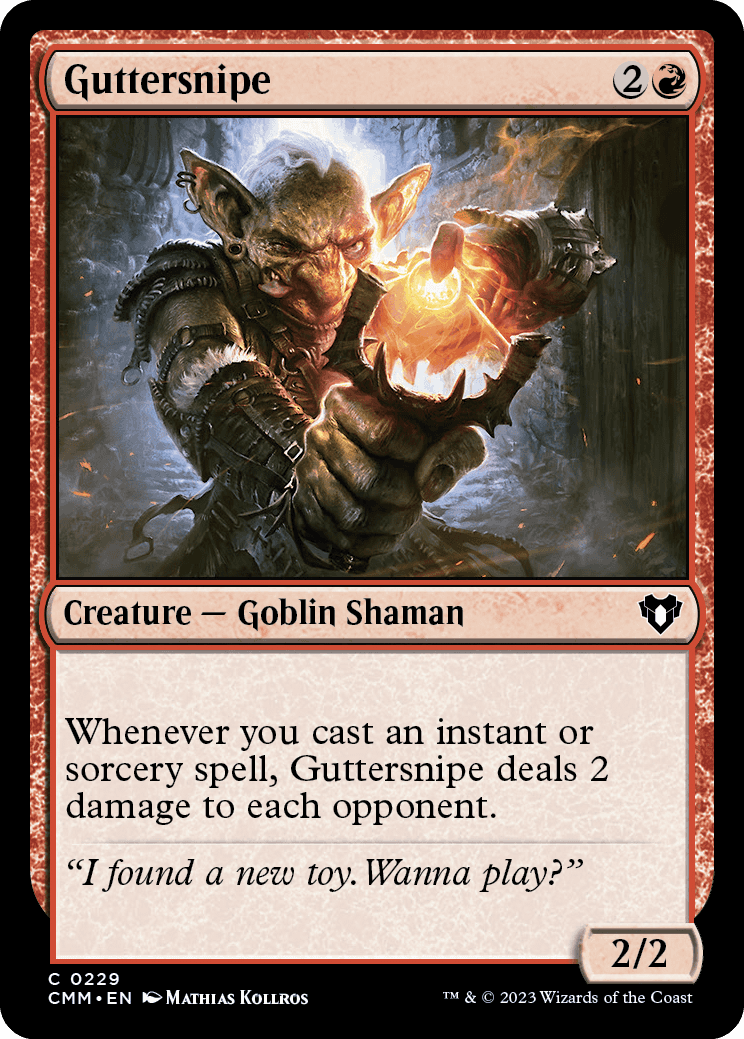
Guttersnipe
{2}{R}
Creature — Goblin Shaman
2/2
Whenever you cast an instant or sorcery spell, Guttersnipe deals 2 damage to each opponent.
- Guttersnipe's triggered ability resolves before the spell that caused it to trigger. It resolves even if that spell is countered.
- In a Two-Headed Giant game, Guttersnipe's ability causes the opposing team to lose 4 life.
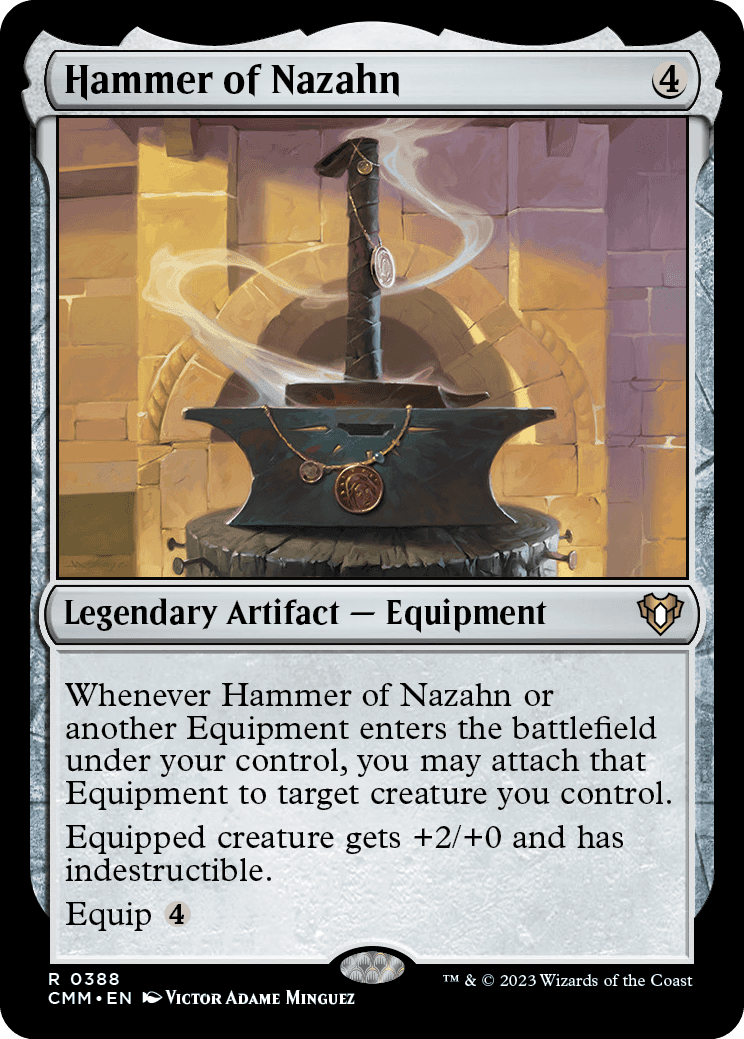
Hammer of Nazahn
{4}
Legendary Artifact — Equipment
Whenever Hammer of Nazahn or another Equipment enters the battlefield under your control, you may attach that Equipment to target creature you control.
Equipped creature gets +2/+0 and has indestructible.
Equip {4}
- If Hammer of Nazahn enters the battlefield at the same time as other Equipment you control, its ability will trigger for each of those Equipment.
- Because damage remains marked on a creature until the damage is removed as the turn ends, nonlethal damage dealt to the equipped creature may become lethal if you attach Hammer of Nazahn to a different creature during that turn.
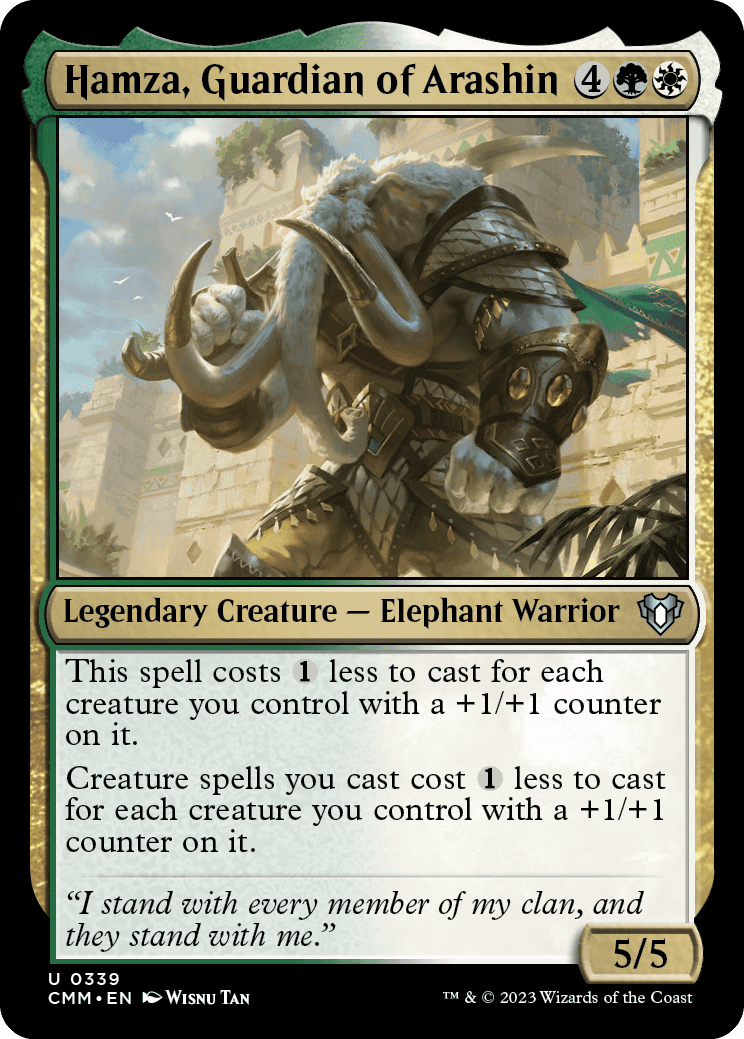
Hamza, Guardian of Arashin
{4}{G}{W}
Legendary Creature — Elephant Warrior
5/5
This spell costs {1} less to cast for each creature you control with a +1/+1 counter on it.
Creature spells you cast cost {1} less to cast for each creature you control with a +1/+1 counter on it.
- To determine the total cost of a spell, start with the mana cost or alternative cost you're paying, add any cost increases, then apply any cost reductions (such as that of Hamza, Guardian of Arashin). The total cost is locked in before any costs are paid. The mana value of the spell is determined only by its mana cost, no matter what the total cost to cast the spell was.
- Once you announce you're casting a creature spell, no player may take actions until the spell has been paid for. Notably, opponents can't try to change the number of creatures you control with +1/+1 counters.
- Hamza's first ability affects only generic mana costs. It can't reduce the total cost to cast the spell below {G}{W}.
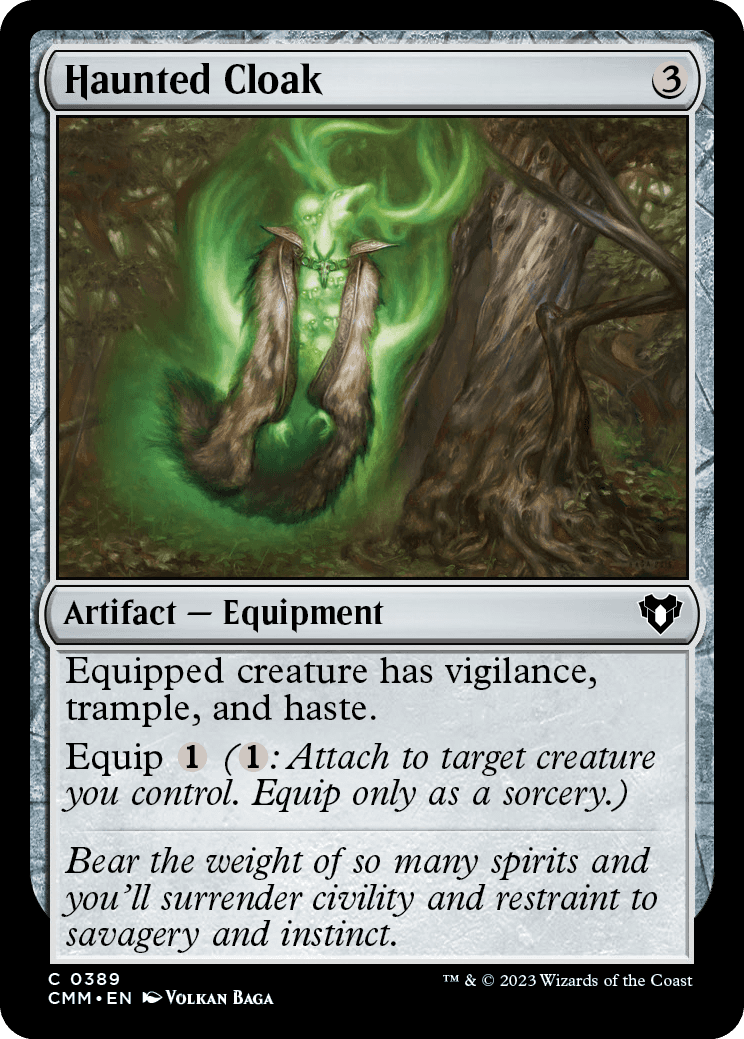
Haunted Cloak
{3}
Artifact — Equipment
Equipped creature has vigilance, trample, and haste.
Equip {1} ({1}: Attach to target creature you control. Equip only as a sorcery.)
- If a creature enters the battlefield under your control and gains haste, but then loses it before attacking, it won't be able to attack that turn. This means that you can't use one Haunted Cloak to allow two new creatures to attack in the same turn.
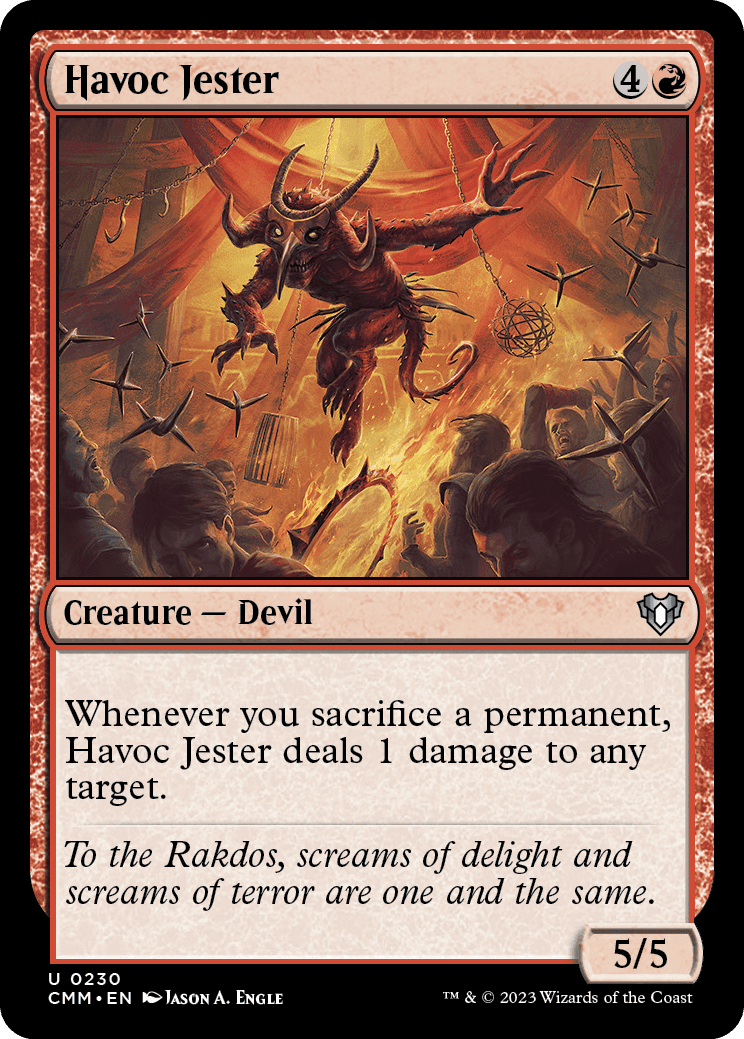
Havoc Jester
{4}{R}
Creature — Devil
5/5
Whenever you sacrifice a permanent, Havoc Jester deals 1 damage to any target.
- Havoc Jester's ability is a triggered ability, not an activated ability. It doesn't allow you to sacrifice a permanent whenever you want; rather, you need some other way of sacrificing permanents.
- If you sacrifice a permanent as part of casting a spell or activating an ability, Havoc Jester's ability will resolve before that spell or ability.
- Havoc Jester's ability triggers when you sacrifice it. If you sacrifice other permanents at the same time, it triggers for them as well.
- A legendary permanent that is put into a graveyard because of the "legend rule" isn't sacrificed.
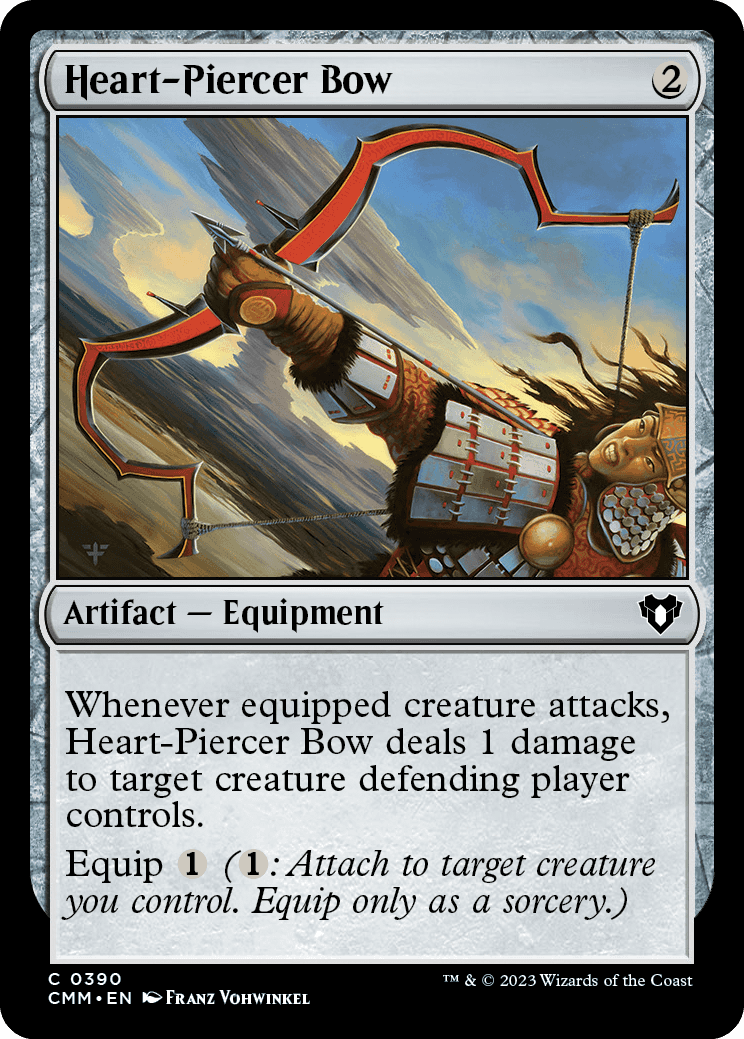
Heart-Piercer Bow
{2}
Artifact — Equipment
Whenever equipped creature attacks, Heart-Piercer Bow deals 1 damage to target creature defending player controls.
Equip {1} ({1}: Attach to target creature you control. Equip only as a sorcery.)
- Heart-Piercer Bow (not the equipped creature) is the source of the triggered ability and the source of the damage. This means that a creature with protection from green may be targeted even if Heart-Piercer Bow is equipped to a green creature, but a creature with protection from artifacts may not.
- If a creature is attacking a planeswalker, the controller of that planeswalker is the defending player. If a creature is attacking a battle, the protector of that battle is the defending player.
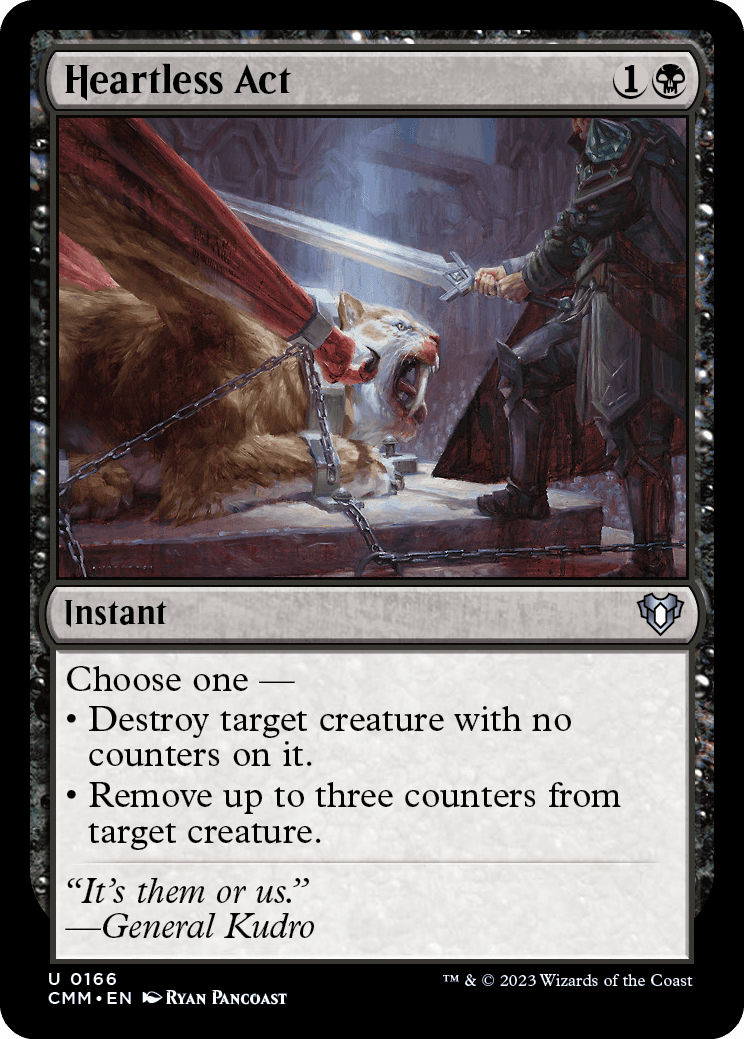
Heartless Act
{1}{B}
Instant
Choose one —
• Destroy target creature with no counters on it.
• Remove up to three counters from target creature.
- If you choose the second mode for Heartless Act, you choose which counters to remove from the creature, no matter who controls the creature. You may choose counters of different kinds.
- If you choose the first mode and the creature gains a counter in response, you can't remove counters from it instead; the spell just doesn't resolve. Similarly, if you choose the second mode and the creature loses its counters in response, you can't destroy it instead.
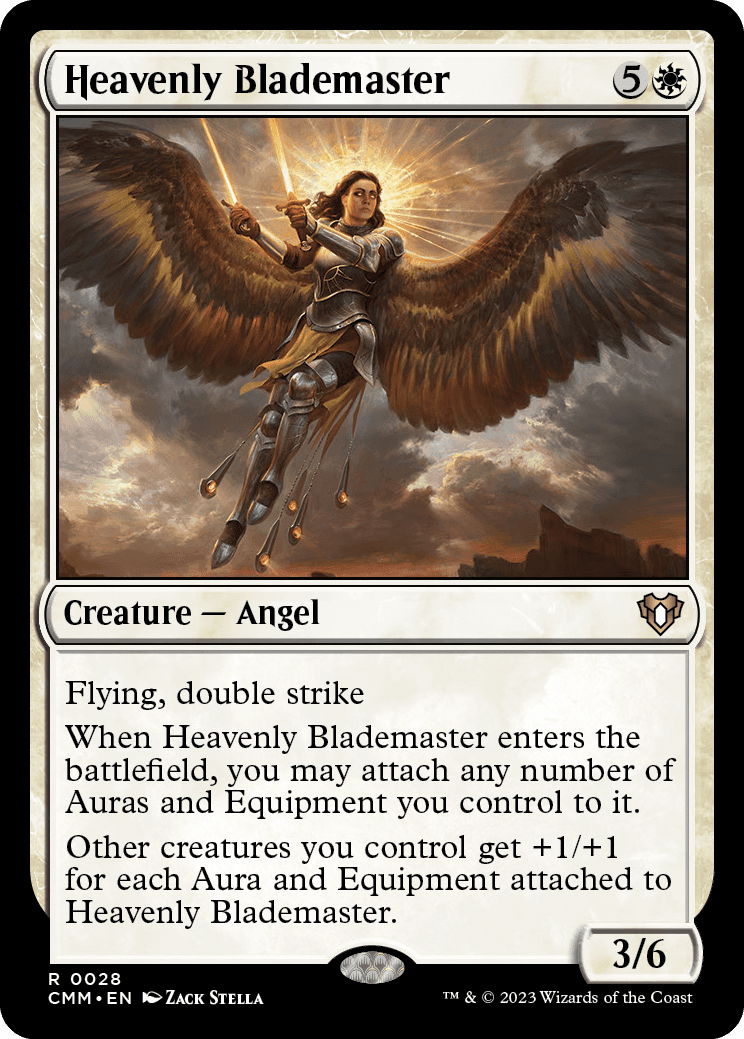
Heavenly Blademaster
{5}{W}
Creature — Angel
3/6
Flying, double strike
When Heavenly Blademaster enters the battlefield, you may attach any number of Auras and Equipment you control to it.
Other creatures you control get +1/+1 for each Aura and Equipment attached to Heavenly Blademaster.
- You don't move any Auras or Equipment until Heavenly Blademaster's triggered ability is resolving. If Heavenly Blademaster is no longer on the battlefield, the Auras and Equipment you intended to attach to it remain as they were.
- You can't try to attach an Aura or Equipment to Heavenly Blademaster if that Aura or Equipment can't legally be attached to it.
- Because damage remains marked on a creature until it's removed as the turn ends, nonlethal damage dealt to a creature you control may become lethal if Heavenly Blademaster leaves the battlefield during that turn or if an Aura or Equipment is removed from it.
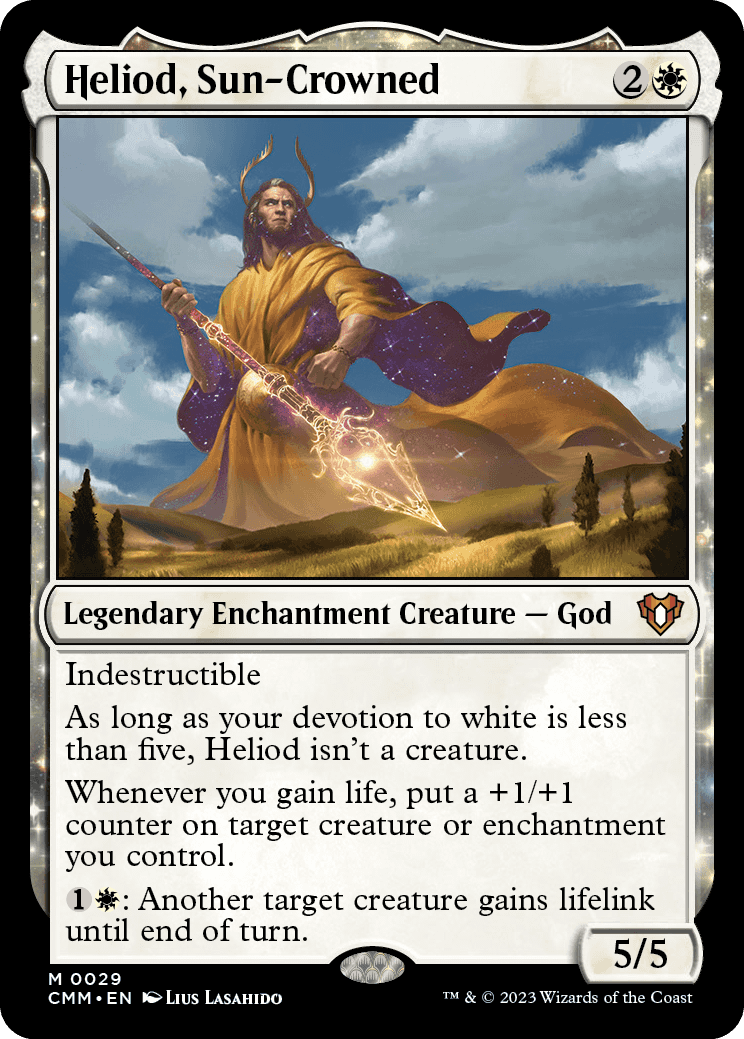
Heliod, Sun-Crowned
{2}{W}
Legendary Enchantment Creature — God
5/5
Indestructible
As long as your devotion to white is less than five, Heliod isn't a creature.
Whenever you gain life, put a +1/+1 counter on target creature or enchantment you control.
{1}{W}: Another target creature gains lifelink until end of turn.
- Heliod's triggered ability triggers just once for each life-gaining event, whether it's 1 life from Nadier's Nightblade or 3 life from Zacama, Primal Calamity. If you gain an amount of life "for each" of something or "equal to the number" of something, that life is gained as one event and Heliod's ability triggers only once.
- If a creature is dealt lethal damage at the same time that you gain life, it can't receive a counter from Heliod's ability in time to save it.
- Each creature with lifelink dealing combat damage causes a separate life-gaining event. For example, if two creatures you control with lifelink deal combat damage at the same time, Heliod's ability will trigger twice. However, if a single creature you control with lifelink deals combat damage to multiple creatures, players, planeswalkers, and/or battles at the same time (perhaps because it has trample or was blocked by more than one creature), the ability will trigger only once.
- Heliod can be the target of its own triggered ability.
- A noncreature enchantment with a +1/+1 counter on it will be unaffected by that counter until it becomes a creature, at which time it will get +1/+1 for that counter.
- Multiple instances of lifelink on the same creature are redundant.
- In a Two-Headed Giant game, life gained by your teammate won't cause the ability to trigger, even though it caused your team's life total to increase.
- Colorless and generic mana symbols ({C}, {0}, {1}, {2}, {X}, and so on) in mana costs of permanents you control don't count toward your devotion to any color.
- Mana symbols in the text boxes of permanents you control don't count toward your devotion to any color.
- Hybrid mana symbols, monocolored hybrid mana symbols, and Phyrexian mana symbols do count toward your devotion to their color(s).
- If an activated ability or triggered ability has an effect that depends on your devotion to a color, you count the number of mana symbols of that color among the mana costs of permanents you control as the ability resolves. The permanent with that ability will be counted if it's still on the battlefield at that time.
- If you put an Aura on an opponent's permanent, you still control the Aura, and mana symbols in its mana cost count towards your devotion.
- The type-changing ability that can make a God not be a creature functions only on the battlefield. It's always a creature card in other zones, regardless of your devotion to its color. It's always a creature spell while it's on the stack.
- As a God enters the battlefield, your devotion to its color will determine whether any replacement effects that affect creatures entering the battlefield apply to that God. Because replacement effects are considered before the God is on the battlefield, the mana symbols in its mana cost won't be counted when determining this.
- When a God enters the battlefield, your devotion to its color (including the mana symbols in the mana cost of the God itself) will determine if a creature entered the battlefield or not for abilities that trigger whenever a creature enters the battlefield.
- If a God stops being a creature, it loses the type creature and the creature type God. It continues to be a legendary enchantment.
- The abilities of Gods function as long as they're on the battlefield, regardless of whether they're creatures.
- If a God is attacking or blocking and it stops being a creature, it will be removed from combat. It won't rejoin combat if it resumes being a creature later during that combat.
- Counters put on a God remain on it while it's not a creature, even if they have no effect.
- If an effect causes a God to lose all abilities, its ability that causes it to stop being a creature still applies if appropriate.
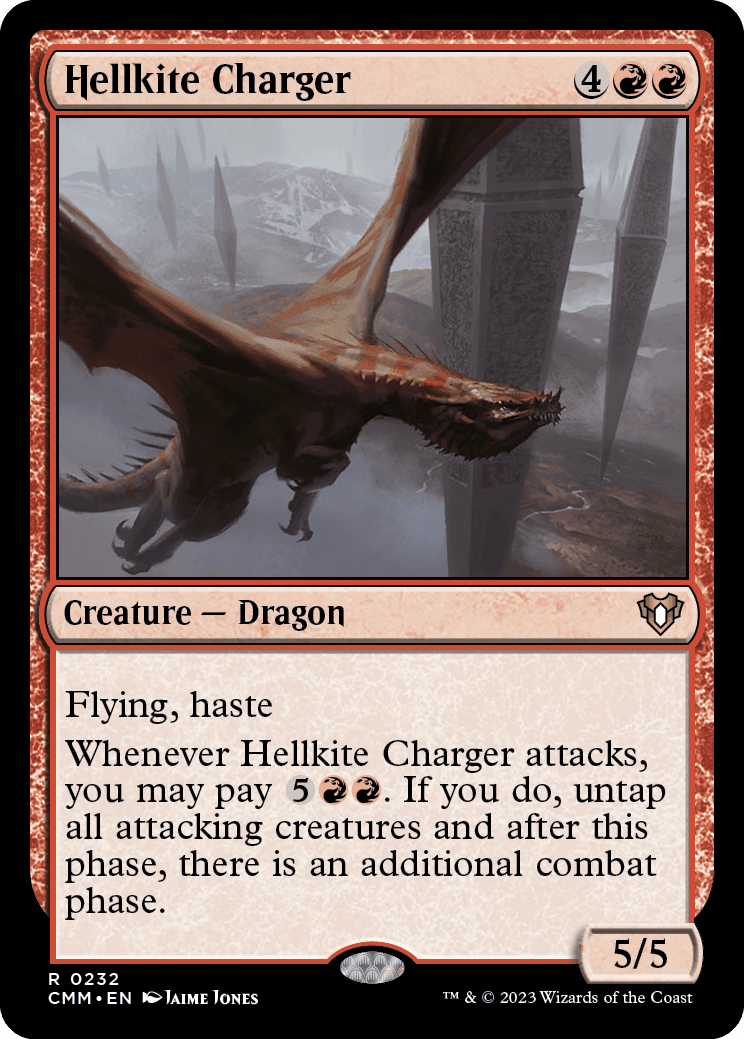
Hellkite Charger
{4}{R}{R}
Creature — Dragon
5/5
Flying, haste
Whenever Hellkite Charger attacks, you may pay {5}{R}{R}. If you do, untap all attacking creatures and after this phase, there is an additional combat phase.
- You decide whether to pay {5}{R}{R} as Hellkite Charger's ability resolves.
- If you pay {5}{R}{R}, the new combat phase immediately follows the current combat phase. There is no main phase in between.
- Hellkite Charger's ability may trigger multiple times in the same turn, since its own ability gives it multiple chances to attack. Each time it resolves, you may create an additional combat phase.
- If two Hellkite Chargers attack at the same time, both of their abilities trigger. If you pay {5}{R}{R} for each, two new combat phases will be created. However, all attacking creatures untap as those abilities resolve, not as the combat phases start. Any creature that attacks in the second combat phase will remain tapped during the third combat phase.
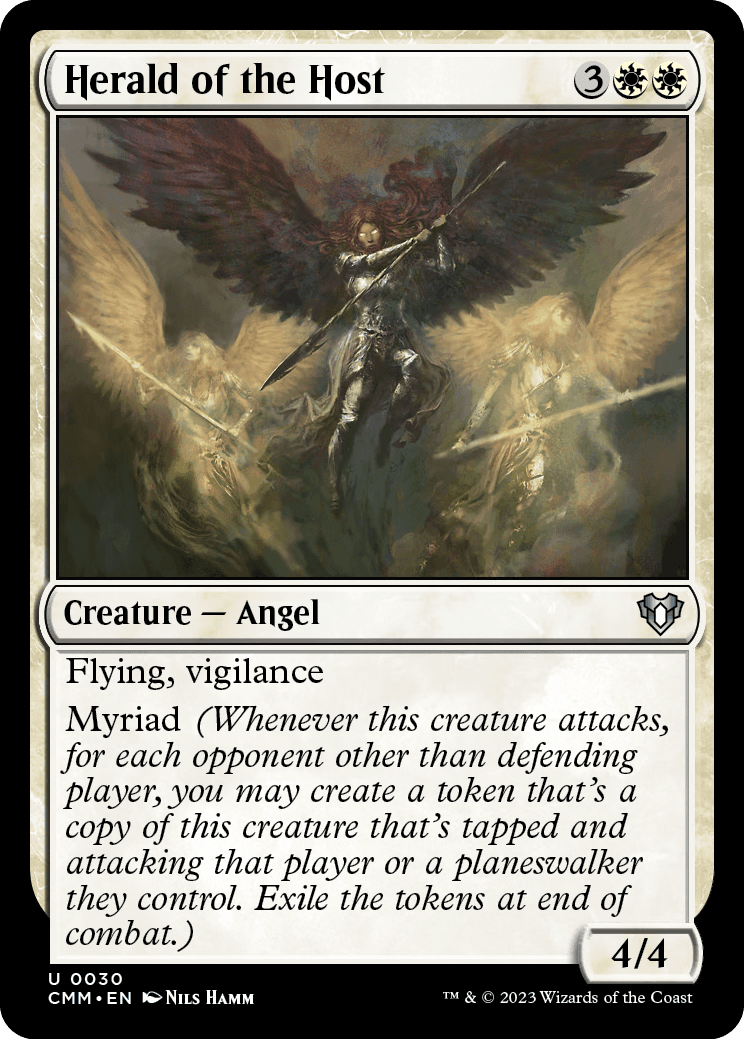
Herald of the Host
{3}{W}{W}
Creature — Angel
4/4
Flying, vigilance
Myriad (Whenever this creature attacks, for each opponent other than defending player, you may create a token that's a copy of this creature that's tapped and attacking that player or a planeswalker they control. Exile the tokens at end of combat.)
- The tokens created by the myriad ability enter the battlefield tapped even though they'll have vigilance.
- The term "defending player" in the myriad rules (or any other ability of an attacking creature) refers to the player the creature with myriad was attacking at the time it became an attacking creature this combat, the controller of the planeswalker the creature was attacking at the time it became an attacking creature this combat, or the protector of the battle this creature was attacking at the time it became an attacking creature this combat.
- If the defending player is your only opponent, no tokens are put onto the battlefield.
- You choose whether each token is attacking the player or a planeswalker they control as the token is created.
- Although the tokens enter the battlefield attacking, they were never declared as attackers. Abilities that trigger whenever a creature attacks won't trigger, including the myriad ability of the tokens. If there are any costs to have a creature attack, those costs won't apply to the tokens.
- The token creatures all enter the battlefield at the same time.
- Each token copies exactly what was printed on the original creature and nothing else. It doesn't copy whether that creature is tapped or untapped, whether it has any counters on it or Auras and Equipment attached to it, or any non-copy effects that have changed its power, toughness, types, color, and so on.
- Any enters-the-battlefield abilities of the copied creature will trigger when the token enters the battlefield. Any "as [this permanent] enters the battlefield" or "[this permanent] enters the battlefield with" abilities of the copied creature will also work.
- If myriad creates more than one token for any given player (due to an effect such as the one Doubling Season creates), you may choose separately for each token whether it's attacking the player or a planeswalker they control.
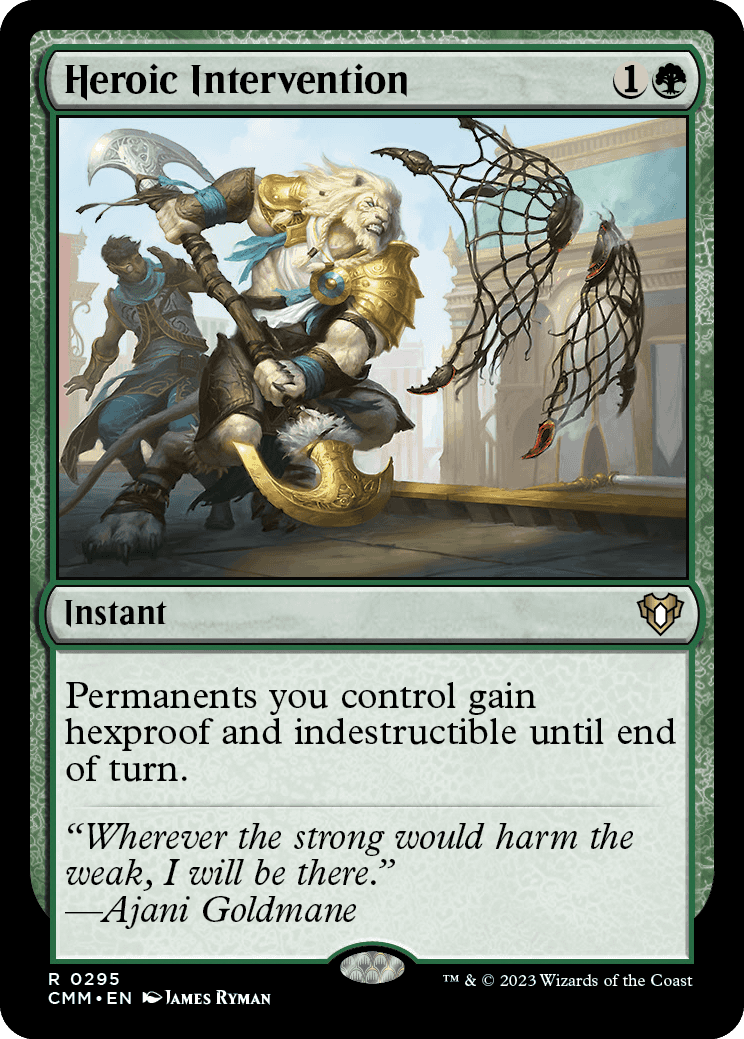
Heroic Intervention
{1}{G}
Instant
Permanents you control gain hexproof and indestructible until end of turn.
- The set of permanents affected by Heroic Intervention is determined as the spell resolves. Permanents you begin to control later in the turn won't gain hexproof and indestructible.
- A planeswalker with indestructible still loses loyalty counters as it's dealt damage and will still be put into its owner's graveyard if its loyalty reaches 0.
- A battle with indestructible still loses defense counters as it's dealt damage. If it's a Siege, it will still be exiled when the last defense counter is removed from it, and its controller may still cast it transformed without paying its mana cost.
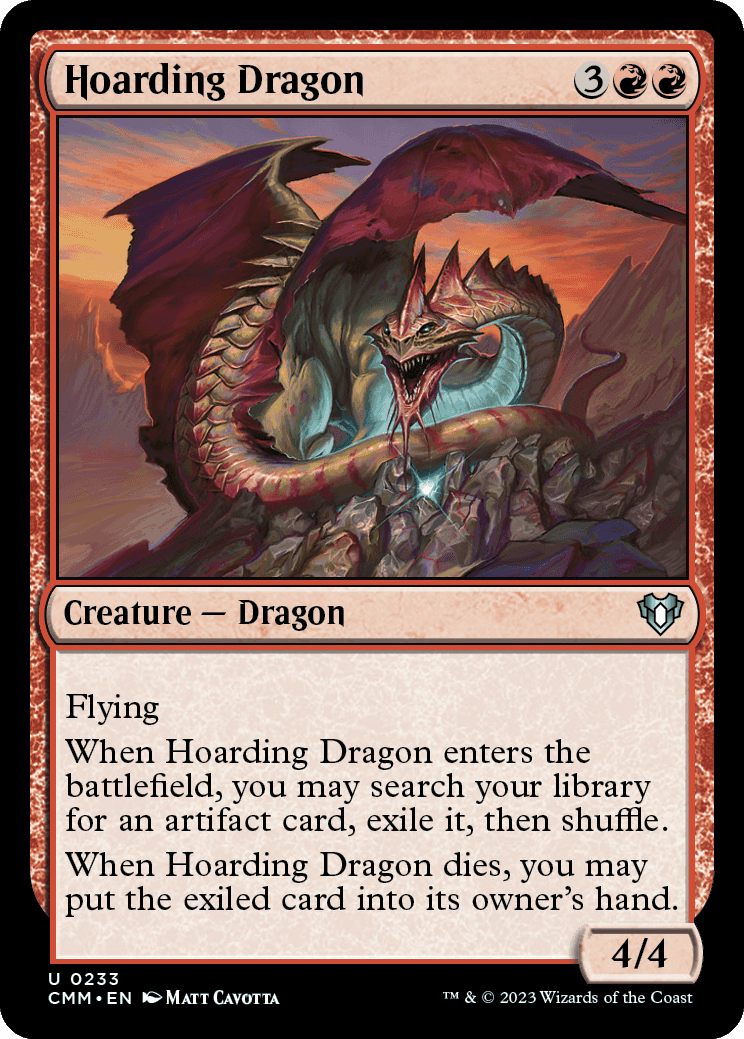
Hoarding Dragon
{3}{R}{R}
Creature — Dragon
4/4
Flying
When Hoarding Dragon enters the battlefield, you may search your library for an artifact card, exile it, then shuffle.
When Hoarding Dragon dies, you may put the exiled card into its owner's hand.
- The artifact card you find is exiled face up. All players can see what it is.
- Hoarding Dragon's two abilities are linked. The second ability refers only to the card exiled by that Hoarding Dragon's first ability. In other words, each Dragon has its own hoard.
- If Hoarding Dragon dies before its first ability resolves, its second ability will trigger and do nothing. Then its first ability will resolve. If you choose to exile an artifact card from your library, it will be exiled indefinitely.
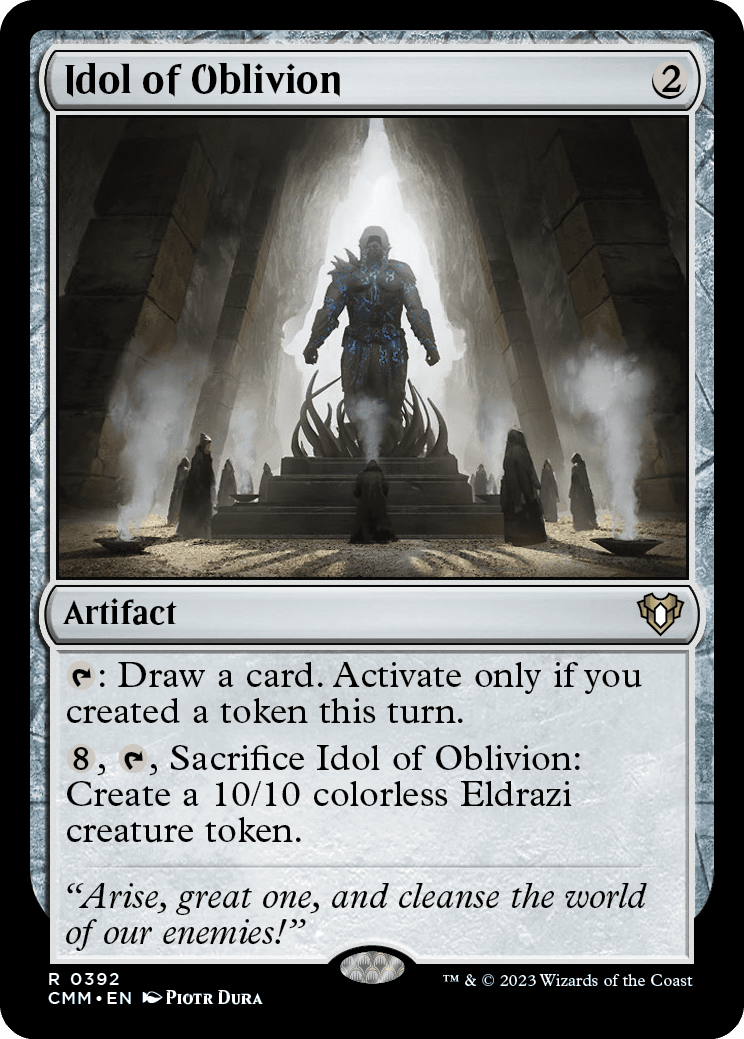
Idol of Oblivion
{2}
Artifact
{T}: Draw a card. Activate only if you created a token this turn.
{8}, {T}, Sacrifice Idol of Oblivion: Create a 10/10 colorless Eldrazi creature token.
- You can activate Idol of Oblivion's first ability even if the token you've created was created before Idol of Oblivion entered the battlefield or if the token has left the battlefield.
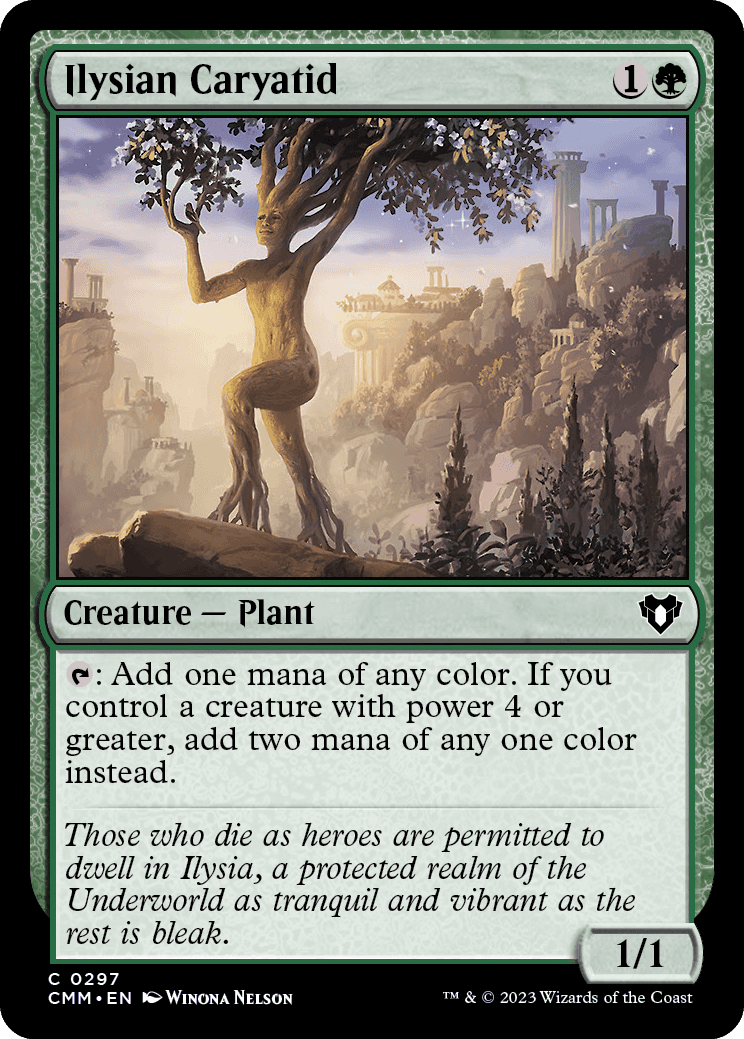
Ilysian Caryatid
{1}{G}
Creature — Plant
1/1
{T}: Add one mana of any color. If you control a creature with power 4 or greater, add two mana of any one color instead.
- Ilysian Caryatid's activated ability is a mana ability. It doesn't use the stack and can't be responded to.
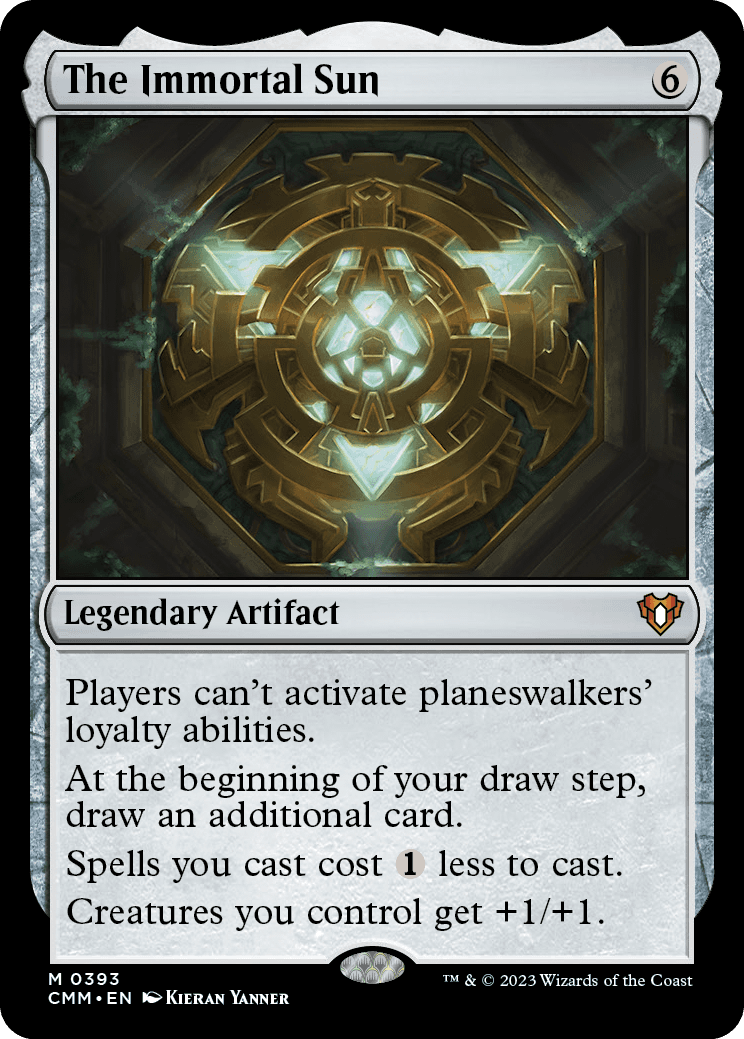
The Immortal Sun
{6}
Legendary Artifact
Players can't activate planeswalkers' loyalty abilities.
At the beginning of your draw step, draw an additional card.
Spells you cast cost {1} less to cast.
Creatures you control get +1/+1.
- To determine the total cost of a spell, start with the mana cost or alternative cost you're paying, add any cost increases, then apply any cost reductions. The mana value of the spell remains unchanged, no matter what the total cost to cast it was.
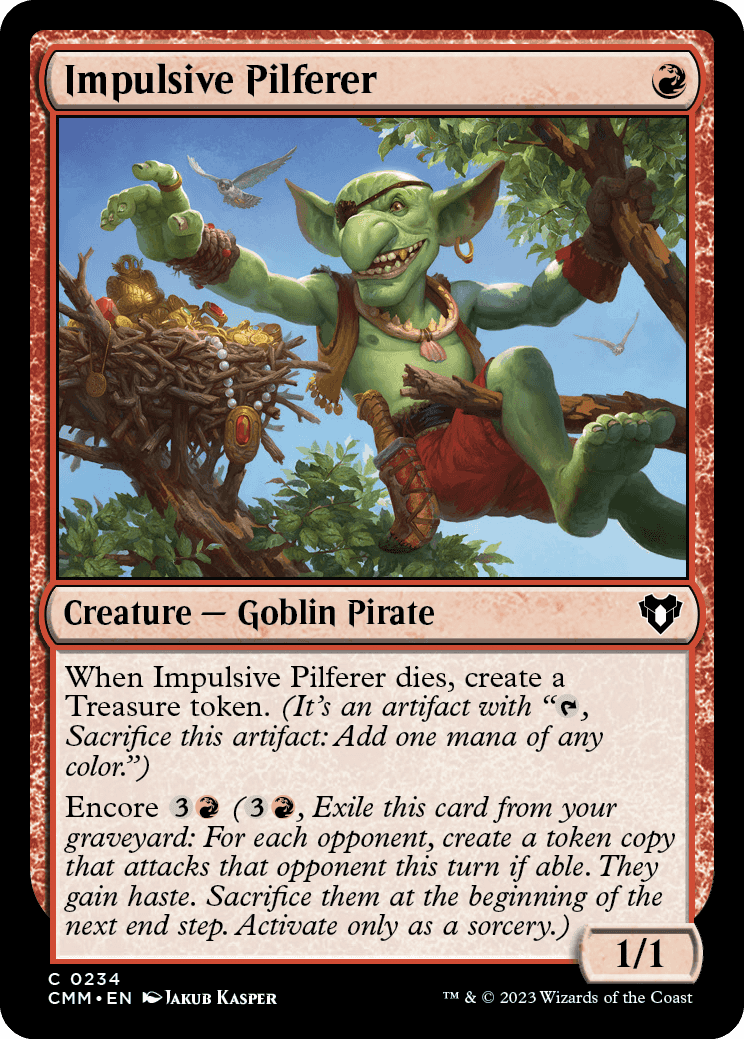
Impulsive Pilferer
{R}
Creature — Goblin Pirate
1/1
When Impulsive Pilferer dies, create a Treasure token. (It's an artifact with "{T}, Sacrifice this artifact: Add one mana of any color.")
Encore {3}{R} ({3}{R}, Exile this card from your graveyard: For each opponent, create a token copy that attacks that opponent this turn if able. They gain haste. Sacrifice them at the beginning of the next end step. Activate only as a sorcery.)
- Exiling the card with encore is a cost to activate the ability. Once you announce that you're activating it, no player may take actions until you've finished. They can't try to remove the card from your graveyard to stop you from paying the cost.
- Opponents who have left the game aren't counted when determining how many tokens to create.
- The tokens copy only what's on the original card. Effects that modified that creature when it was previously on the battlefield won't be copied.
- Each token must attack the appropriate player if able.
- If one of the tokens can't attack for any reason (such as being tapped), then it doesn't attack. If there's a cost associated with having it attack, you aren't forced to pay that cost, so it doesn't have to attack in that case either.
- If an effect stops a token from attacking a specific player, that token can attack any player, planeswalker, or battle, or not attack at all. If the effect stops the token from attacking a specific player unless a cost is paid, you don't have to pay that cost unless you want to attack that player.
- If one of the tokens somehow is under another player's control as the delayed triggered ability resolves, you can't sacrifice that token. It remains on the battlefield indefinitely, even if you regain control of it later.
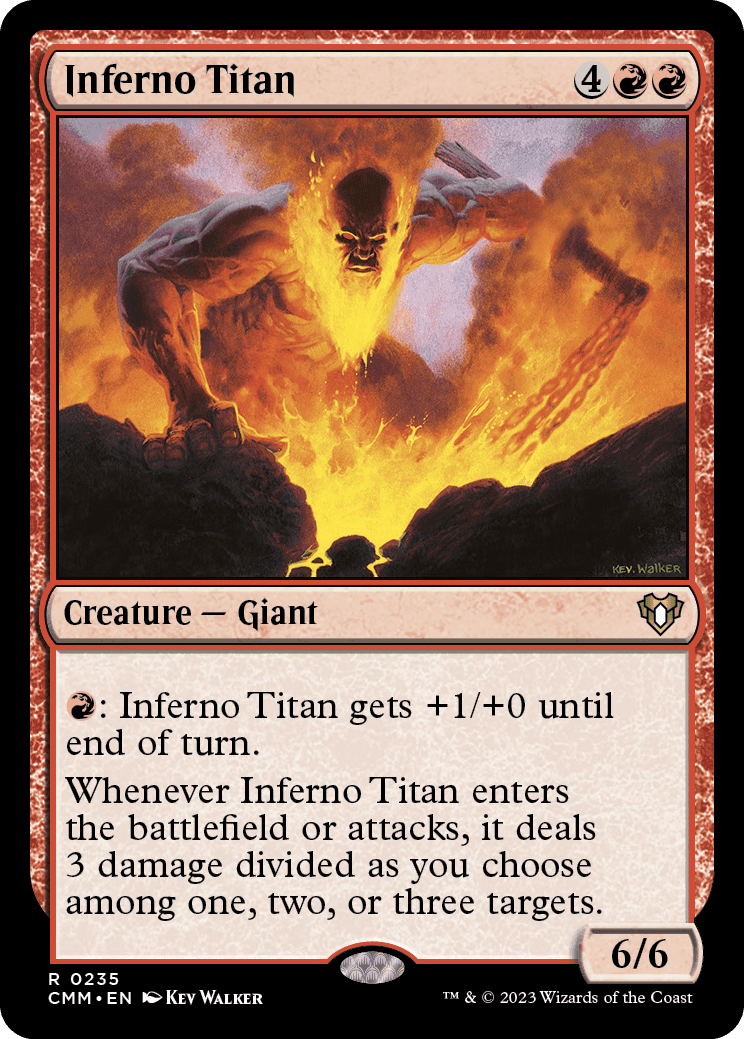
Inferno Titan
{4}{R}{R}
Creature — Giant
6/6
{R}: Inferno Titan gets +1/+0 until end of turn.
Whenever Inferno Titan enters the battlefield or attacks, it deals 3 damage divided as you choose among one, two, or three targets.
- You divide the damage as you put Inferno Titan's triggered ability on the stack, not as it resolves. Each target must be assigned at least 1 damage. (In other words, as you put the ability on the stack, you choose whether to have it deal 3 damage to a single target, 2 damage to one target and 1 damage to another target, or 1 damage to each of three targets.)
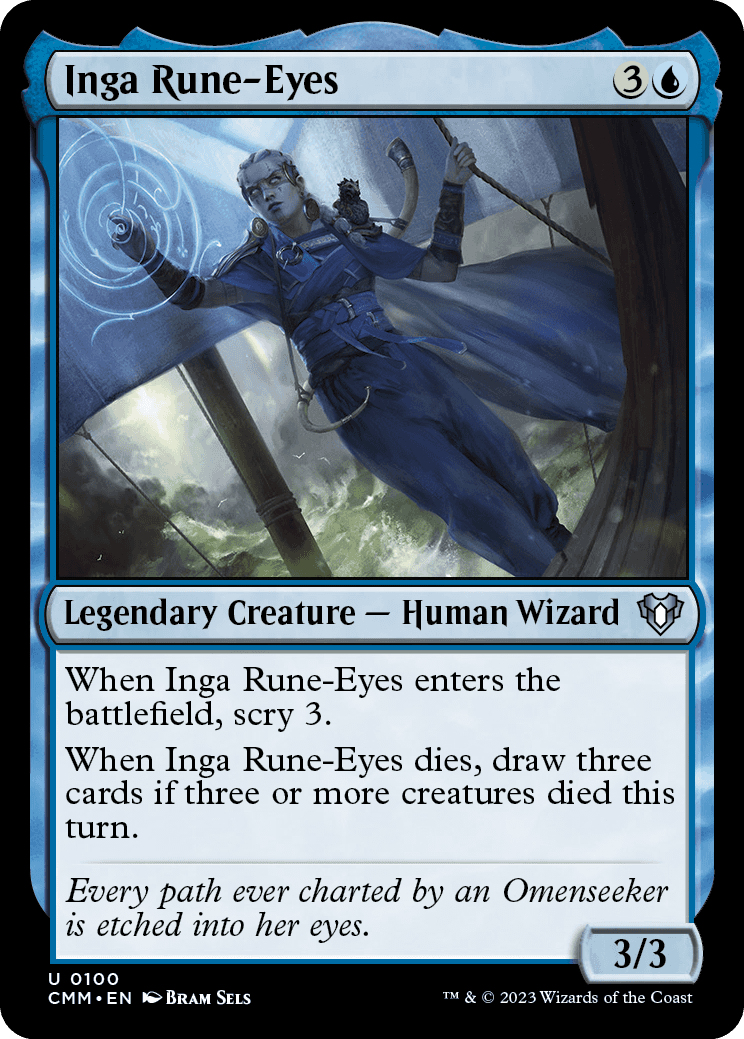
Inga Rune-Eyes
{3}{U}
Legendary Creature — Human Wizard
3/3
When Inga Rune-Eyes enters the battlefield, scry 3.
When Inga Rune-Eyes dies, draw three cards if three or more creatures died this turn.
- The number of creatures that have died that turn is checked as the last ability resolves. Inga Rune-Eyes will count, as will creatures that die at the same time as Inga Rune-Eyes and creatures that die while that ability is on the stack but has not yet resolved.
- The last ability will count any creature that died, no matter who controlled it.
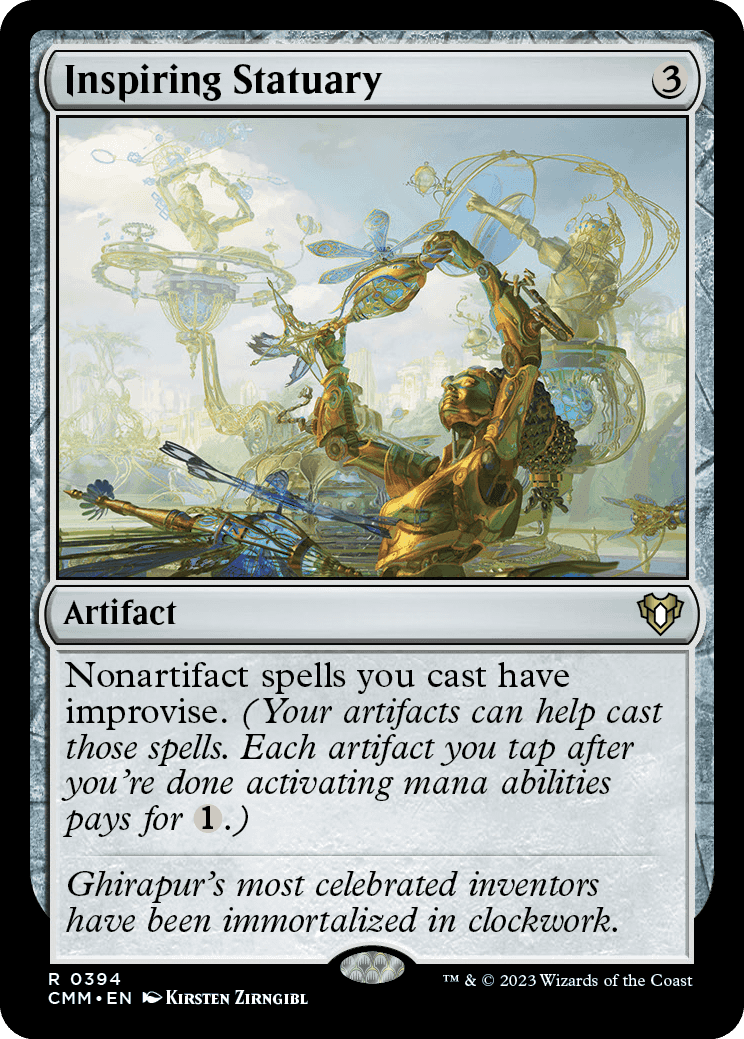
Inspiring Statuary
{3}
Artifact
Nonartifact spells you cast have improvise. (Your artifacts can help cast those spells. Each artifact you tap after you're done activating mana abilities pays for {1}.)
- Multiple instances of improvise are redundant.
- If you cast a nonartifact spell that requires you to sacrifice a permanent as an additional cost, you may tap that permanent (if it's an artifact) for the spell's improvise ability before you sacrifice it to pay that cost.
- Improvise doesn't change a spell's mana cost or mana value.
- When calculating a spell's total cost, include any alternative costs, additional costs, or anything else that increases or reduces the cost to cast the spell. Improvise applies after the total cost is calculated.
- Because improvise isn't an alternative cost, it can be used in conjunction with alternative costs.
- Improvise can't pay for {W}, {U}, {B}, {R}, {G}, or {C} mana symbols in a spell's total cost.
- Improvise can't be used to pay for anything other than the cost of casting the spell. For example, it can't be used during the resolution of an ability that says "Counter target spell unless its controller pays {3}."
- If an artifact you control has a mana ability with {T} in the cost, activating that ability while casting a spell with improvise will result in the artifact being tapped when you pay the spell's costs. You won't be able to tap it again for improvise. Similarly, if you sacrifice an artifact to activate a mana ability while casting a spell with improvise, that artifact won't be on the battlefield when you pay the spell's costs, so you won't be able to tap it for improvise.
- Tapping an artifact won't cause its abilities to stop applying unless those abilities say so.
- Equipment attached to a creature doesn't become tapped when that creature becomes tapped, and tapping that Equipment doesn't cause the creature to become tapped.
- When using improvise to cast a spell with {X} in its mana cost, first choose the value for X. That choice, plus any cost increases or decreases, will determine the spell's total cost. Then you can tap artifacts you control to help pay that cost. For example, if you cast Whir of Invention (a spell with improvise and mana cost {X}{U}{U}{U}) and choose X to be 3, the total cost is {3}{U}{U}{U}. If you tap two artifacts, you'll have to pay {1}{U}{U}{U}.
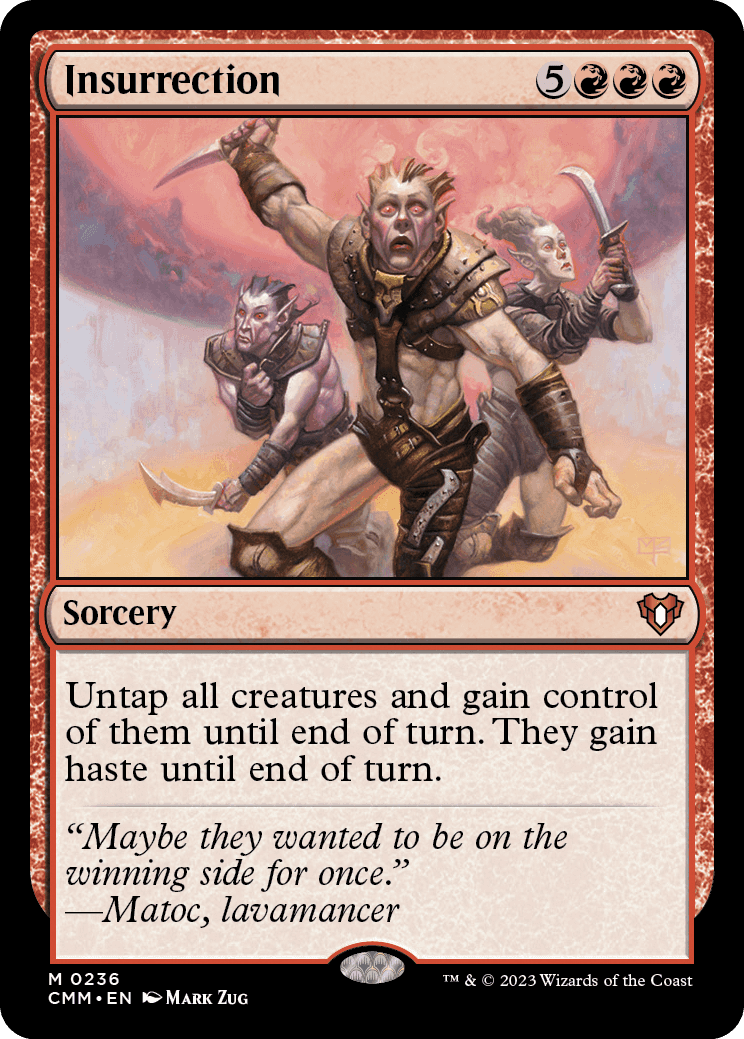
Insurrection
{5}{R}{R}{R}
Sorcery
Untap all creatures and gain control of them until end of turn. They gain haste until end of turn.
- You untap all creatures, control all creatures, and give all creatures haste.
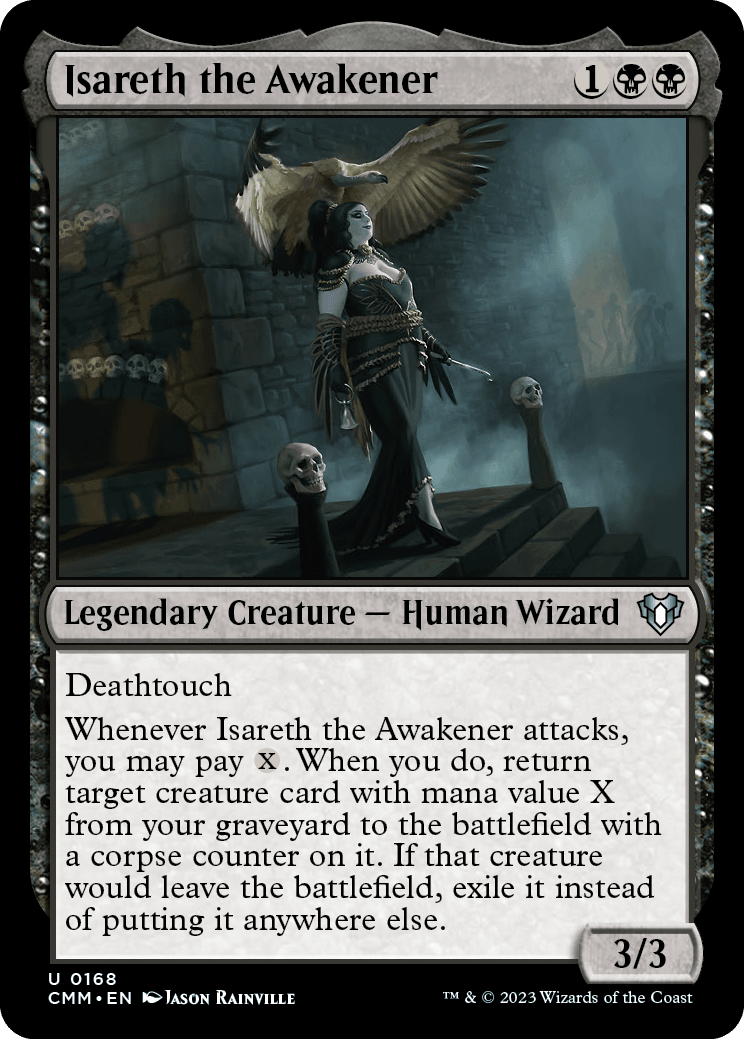
Isareth the Awakener
{1}{B}{B}
Legendary Creature — Human Wizard
3/3
Deathtouch
Whenever Isareth the Awakener attacks, you may pay {X}. When you do, return target creature card with mana value X from your graveyard to the battlefield with a corpse counter on it. If that creature would leave the battlefield, exile it instead of putting it anywhere else.
- Isareth's triggered ability goes on the stack without a target. While that ability is resolving, you may pay {X}. When you do, a second ability triggers and you pick a target creature card to return. This is different from abilities that say "If you do . . ." in that players may cast spells and activate abilities after mana is paid and the target creature card is chosen, but before that card is returned.
- Because all attacking creatures are chosen at once, a creature returned this way can't attack during the same combat as it returns, even if it has haste.
- If a card in your graveyard has {X} in its mana cost, X is considered to be 0.
- If you somehow remove a corpse counter from a creature Isareth has returned to the battlefield, the replacement effect that will exile it continues to apply. The counter is only to help remind you which creatures will be exiled if they would leave the battlefield.
- If Isareth leaves the battlefield, the replacement effect continues to apply. If one of the creatures it returned would leave the battlefield, it'll be exiled instead.
- Because to die means to be put into a graveyard from the battlefield, a creature that is exiled instead doesn't "die." Abilities that would trigger when it dies won't trigger.
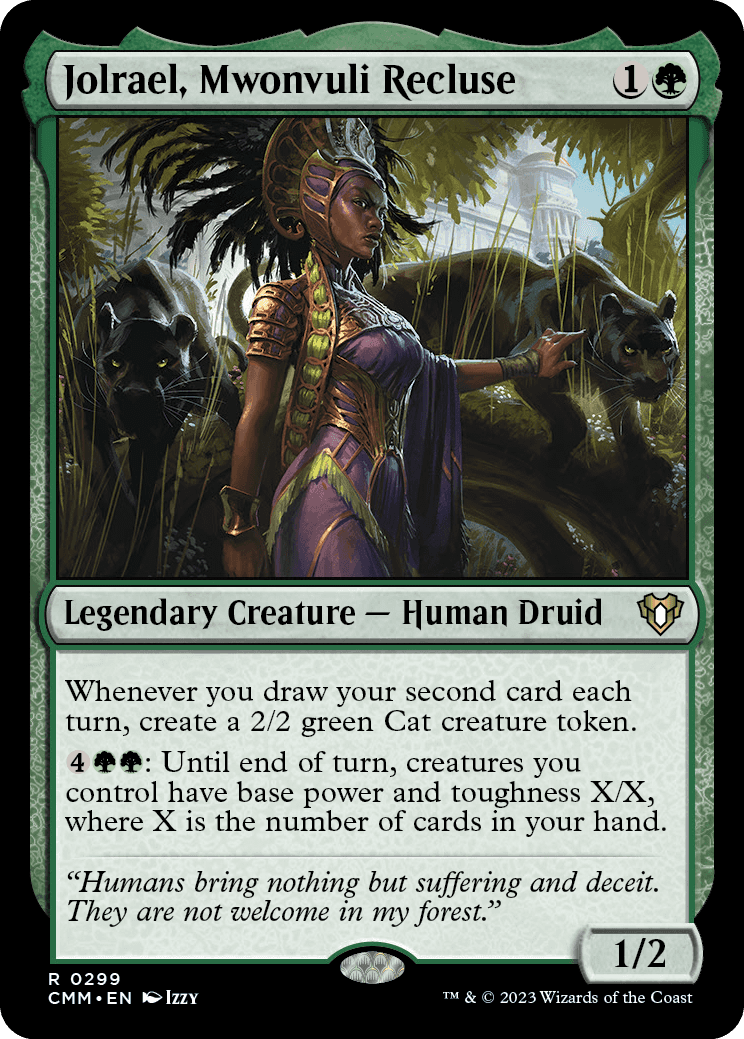
Jolrael, Mwonvuli Recluse
{1}{G}
Legendary Creature — Human Druid
1/2
Whenever you draw your second card each turn, create a 2/2 green Cat creature token.
{4}{G}{G}: Until end of turn, creatures you control have base power and toughness X/X, where X is the number of cards in your hand.
- The triggered ability can trigger only once each turn. It doesn't matter if Jolrael was on the battlefield when the first card was drawn: if it's not on the battlefield when the second card is drawn, the ability can't trigger at all that turn.
- Jolrael's last ability overwrites all previous effects that set the affected creatures' power and/or toughness to specific values. If other effects that set these characteristics to specific values start to apply after Jolrael's ability resolves, they will overwrite that part of the effect.
- Effects that modify an affected creature's power and/or toughness without setting them to specific values will apply no matter when those effects began. The same is true for counters that change the creature's power and/or toughness.
- The value of X is determined only as Jolrael's last ability resolves. Once that happens, the value of X won't change later in the turn even if the number of cards in your hand changes.
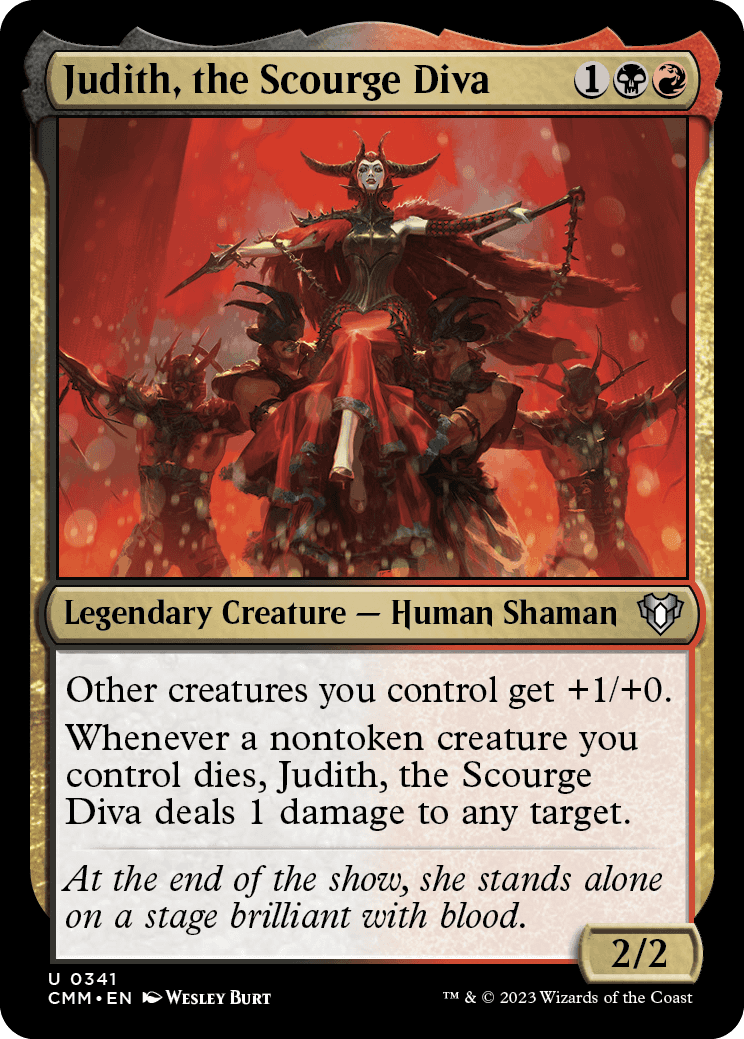
Judith, the Scourge Diva
{1}{B}{R}
Legendary Creature — Human Shaman
2/2
Other creatures you control get +1/+0.
Whenever a nontoken creature you control dies, Judith, the Scourge Diva deals 1 damage to any target.
- Judith's last ability triggers when Judith dies if it's not a token.
- If Judith dies at the same time as one or more other nontoken creatures you control, Judith's ability triggers for each of them.
- If your life total is brought to 0 or less at the same time that nontoken creatures you control are dealt lethal damage, you lose the game before Judith's triggered ability goes on the stack.
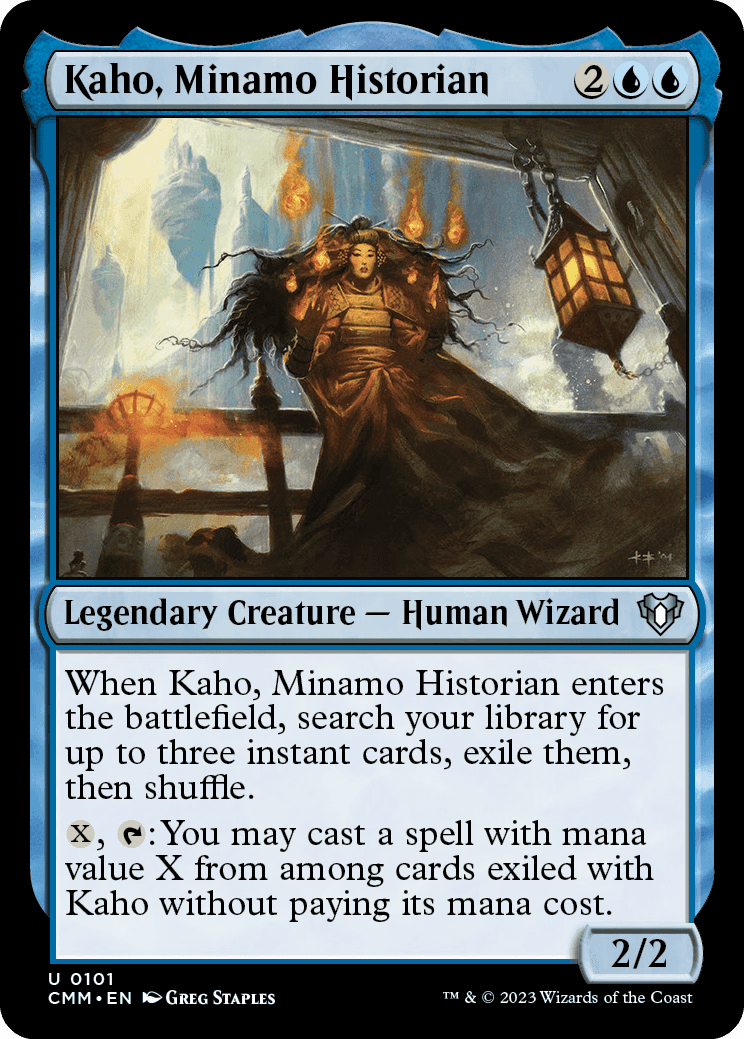
Kaho, Minamo Historian
{2}{U}{U}
Legendary Creature — Human Wizard
2/2
When Kaho, Minamo Historian enters the battlefield, search your library for up to three instant cards, exile them, then shuffle.
{X}, {T}: You may cast a spell with mana value X from among cards exiled with Kaho without paying its mana cost.
- If an effect takes a card Kaho exiled out of the exile zone, then you can't use Kaho's ability to cast that card.
- If another player gains control of Kaho, that player may cast any of the cards exiled with Kaho's ability.
- Kaho's activated ability refers only to cards exiled by its triggered ability. If another effect exiled the cards, you won't be able to use Kaho to cast those cards.
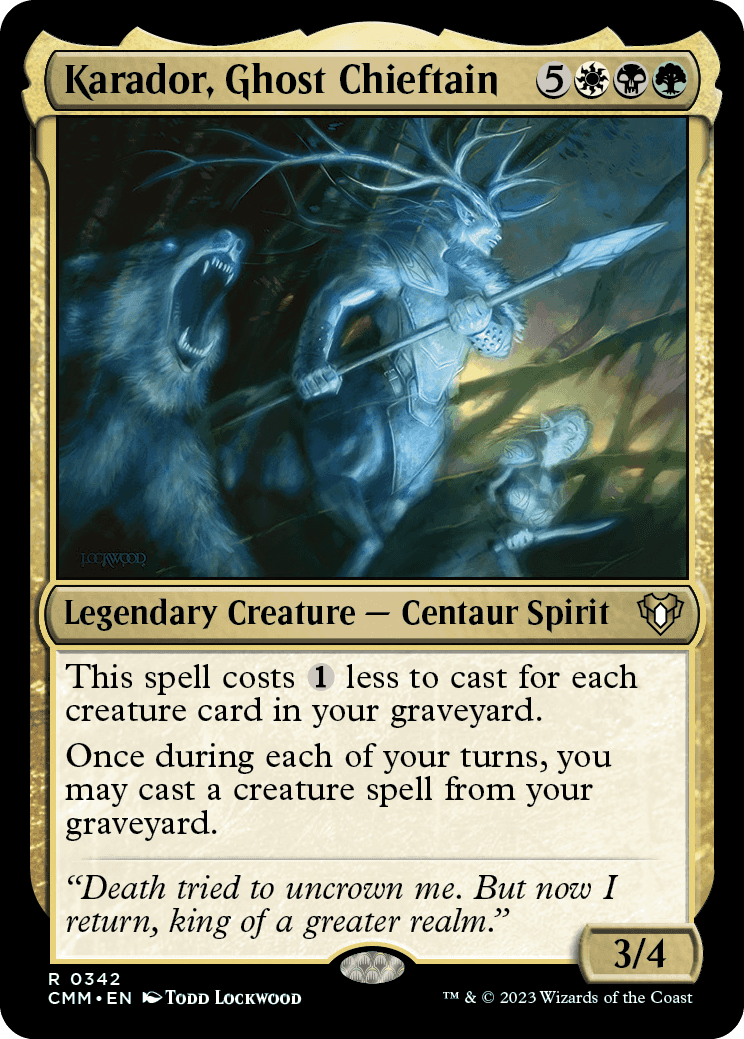
Karador, Ghost Chieftain
{5}{W}{B}{G}
Legendary Creature — Centaur Spirit
3/4
This spell costs {1} less to cast for each creature card in your graveyard.
Once during each of your turns, you may cast a creature spell from your graveyard.
- To determine the total cost of a spell, start with the mana cost or alternative cost you're paying, add any cost increases (such as the commander tax), then apply any cost reductions (such as that of Karador). The mana value of the spell is determined only by its mana cost, no matter what the total cost to cast the spell was.
- You must follow the normal timing permissions and restrictions of the spell you cast from your graveyard.
- You must pay the costs to cast that spell. If it has an alternative cost, you may cast it for that cost instead.
- Once you begin to cast the spell, losing control of Karador won't affect the spell. You can finish casting it as normal.
- If multiple effects allow you to play a card from your graveyard, you must announce which permission you're using as you begin to play the card.
- If you cast one creature spell from your graveyard and then have a new Karador come under your control in the same turn, you may cast another creature spell from your graveyard that turn.
- If a creature card is put into your graveyard during your main phase and the stack is empty, you have a chance to cast it before any player may attempt to remove that card from your graveyard.
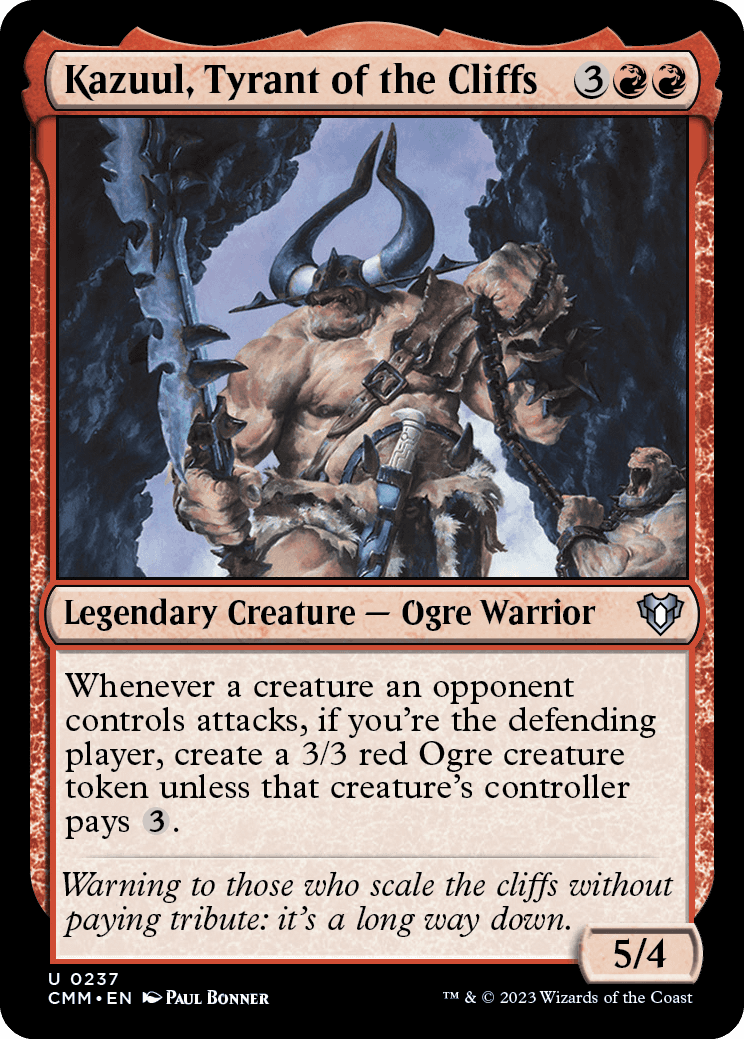
Kazuul, Tyrant of the Cliffs
{3}{R}{R}
Legendary Creature — Ogre Warrior
5/4
Whenever a creature an opponent controls attacks, if you're the defending player, create a 3/3 red Ogre creature token unless that creature's controller pays {3}.
- You're the defending player if a creature is attacking you, a planeswalker you control, or a battle you protect.
- If you're the defending player, Kazuul's ability triggers once for each creature that attacks, not just once per combat. The attacking player chooses whether to pay {3} or let you have an Ogre token each time one of those abilities resolves.
- As the ability resolves, you can't put the Ogre token onto the battlefield without explicitly giving the attacking player the option to pay {3}, even if the attacking player has forgotten about this ability.
- The ability triggers and resolves during the declare attackers step. If you put an Ogre token onto the battlefield as a result, you may block with it during that combat phase.
- If an attacking creature has a "Whenever this creature attacks" ability, that ability is put on the stack first, then Kazuul's ability is put on the stack. Although Kazuul's ability will resolve first, and potentially create an Ogre token, any target of the other ability will already have been chosen at this point, and thus the target could not have been the new Ogre token.
- In a multiplayer game, the ability checks whether you're the defending player for each individual attacking creature. For example, if one creature attacks you and two creatures attack another player, Kazuul's ability triggers just once.
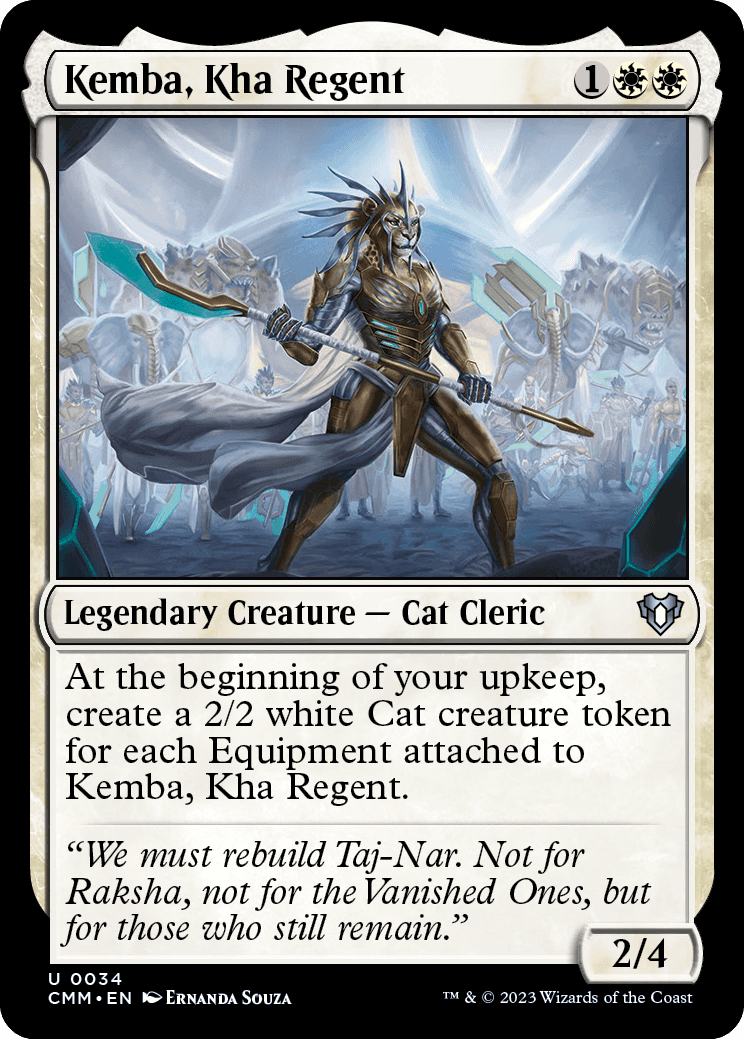
Kemba, Kha Regent
{1}{W}{W}
Legendary Creature — Cat Cleric
2/4
At the beginning of your upkeep, create a 2/2 white Cat creature token for each Equipment attached to Kemba, Kha Regent.
- The number of Equipment attached to Kemba is determined as the ability resolves. If Kemba is no longer on the battlefield at that time, its last existence on the battlefield is checked to determine the number of Equipment attached to it.
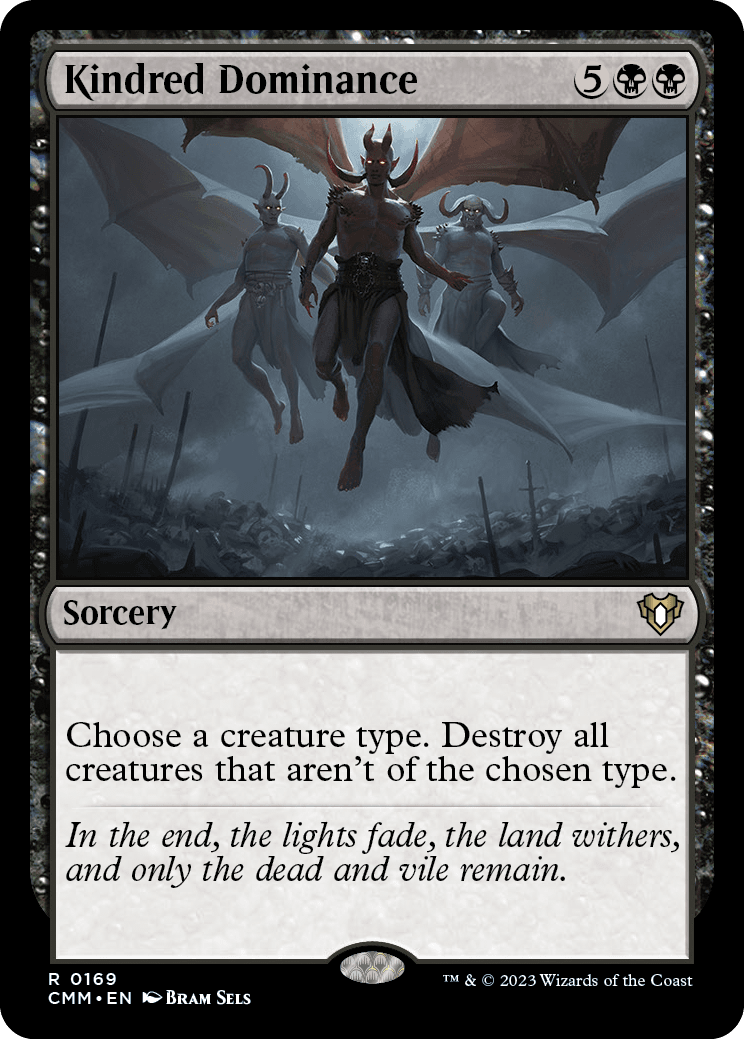
Kindred Dominance
{5}{B}{B}
Sorcery
Choose a creature type. Destroy all creatures that aren't of the chosen type.
- Once Kindred Dominance begins to resolve, no players may take other actions until it's done. Notably, players can't try to save their creatures after you've chosen a creature type.
- You must choose an existing creature type, such as Vampire or Cat. Card types such as "artifact" can't be chosen.
- You can't choose multiple creature types, such as "Cat Warrior." A Cat Warrior is both a Cat and a Warrior. It's affected by anything that affects either type and unaffected by things that affect non-Cat or non-Warrior creatures.
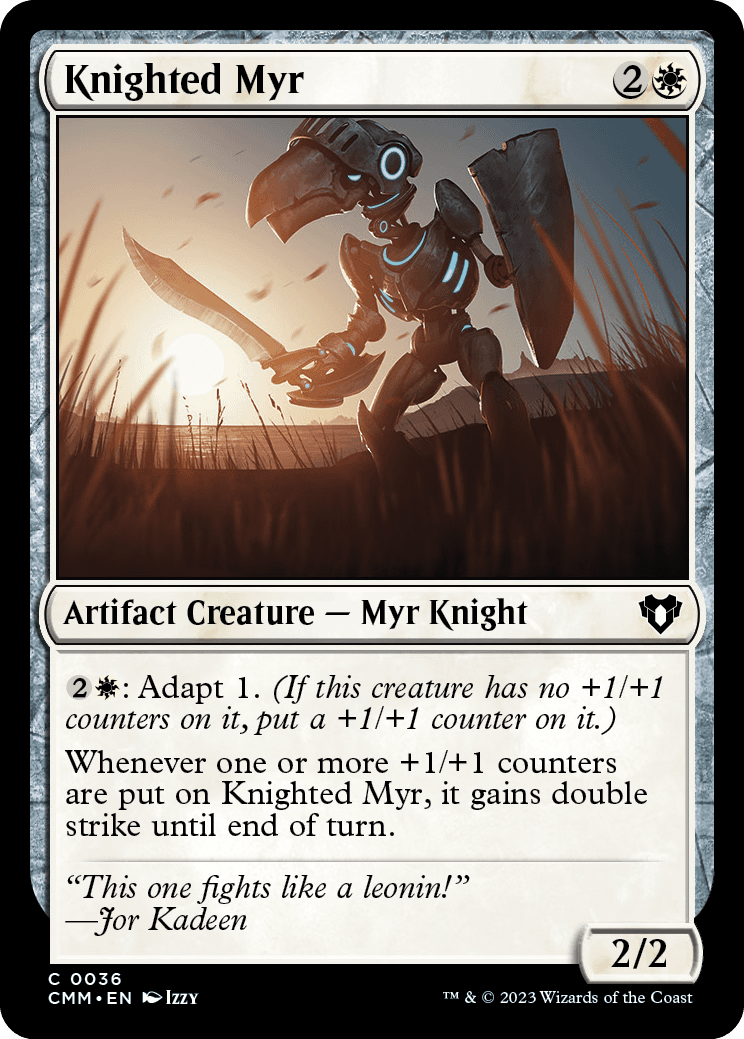
Knighted Myr
{2}{W}
Artifact Creature — Myr Knight
2/2
{2}{W}: Adapt 1. (If this creature has no +1/+1 counters on it, put a +1/+1 counter on it.)
Whenever one or more +1/+1 counters are put on Knighted Myr, it gains double strike until end of turn.
- You can always activate an ability that will cause a creature to adapt. As that ability resolves, if the creature has a +1/+1 counter on it for any reason, you simply won't put any +1/+1 counters on it.
- If a creature somehow loses all of its +1/+1 counters, it can adapt again and get more +1/+1 counters.
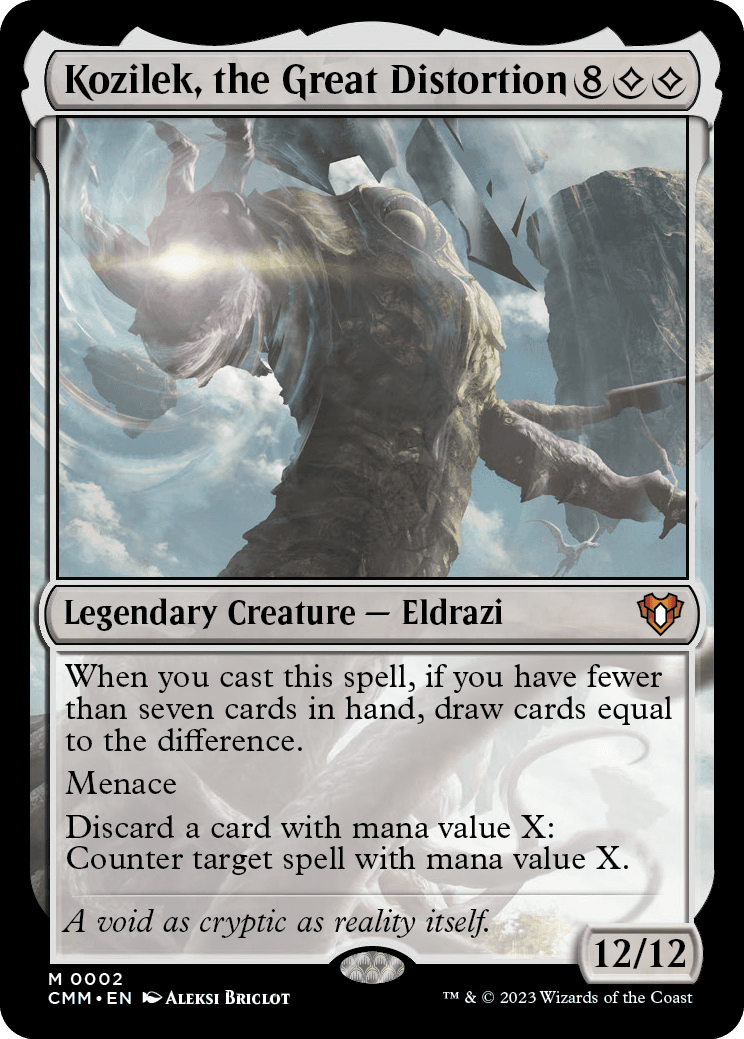
Kozilek, the Great Distortion
{8}{C}{C}
Legendary Creature — Eldrazi
12/12
When you cast this spell, if you have fewer than seven cards in hand, draw cards equal to the difference.
Menace
Discard a card with mana value X: Counter target spell with mana value X.
- Kozilek's triggered ability checks to see if you have fewer than seven cards in hand when you cast it. Kozilek is on the stack at this time and not in your hand. If you don't, the ability won't trigger at all. If the ability does trigger, it will check again as it tries to resolve. If you have seven or more cards in hand at that time, the ability won't do anything.
- To activate the last ability, there must be a legal target: a spell on the stack. That target will determine the value of X and the mana value of the card you discard. You can't activate the ability unless you can match the mana value of a spell on the stack to that of a card in your hand.
- The mana value of a spell doesn't change, even if it's been cast using an alternative cost (such as an evoke cost). For example, the mana value of a Spitebellows (a spell with mana cost {5}{R}) that's been cast for its awaken cost of {1}{R}{R} is 6.
- If there's an {X} in the mana cost of the card you discard, that X is 0. Any {X} in the mana cost of the target spell will have whatever value was determined for it as the spell was cast.
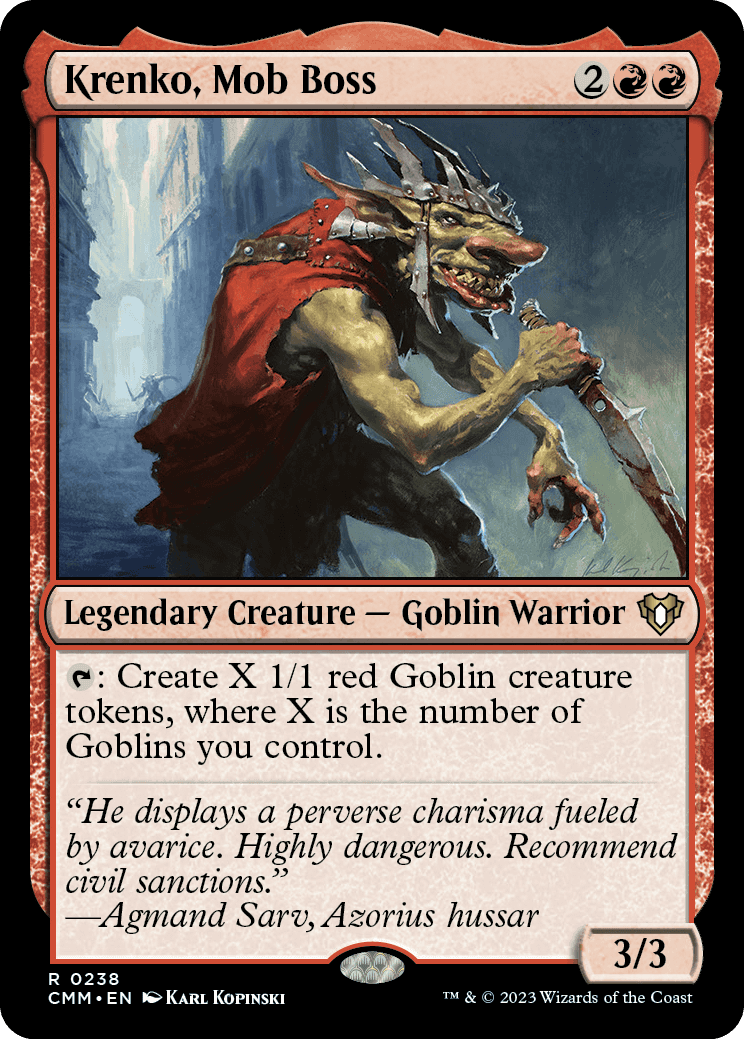
Krenko, Mob Boss
{2}{R}{R}
Legendary Creature — Goblin Warrior
3/3
{T}: Create X 1/1 red Goblin creature tokens, where X is the number of Goblins you control.
- The ability counts each Goblin you control, including Krenko itself, not just the tokens it creates.
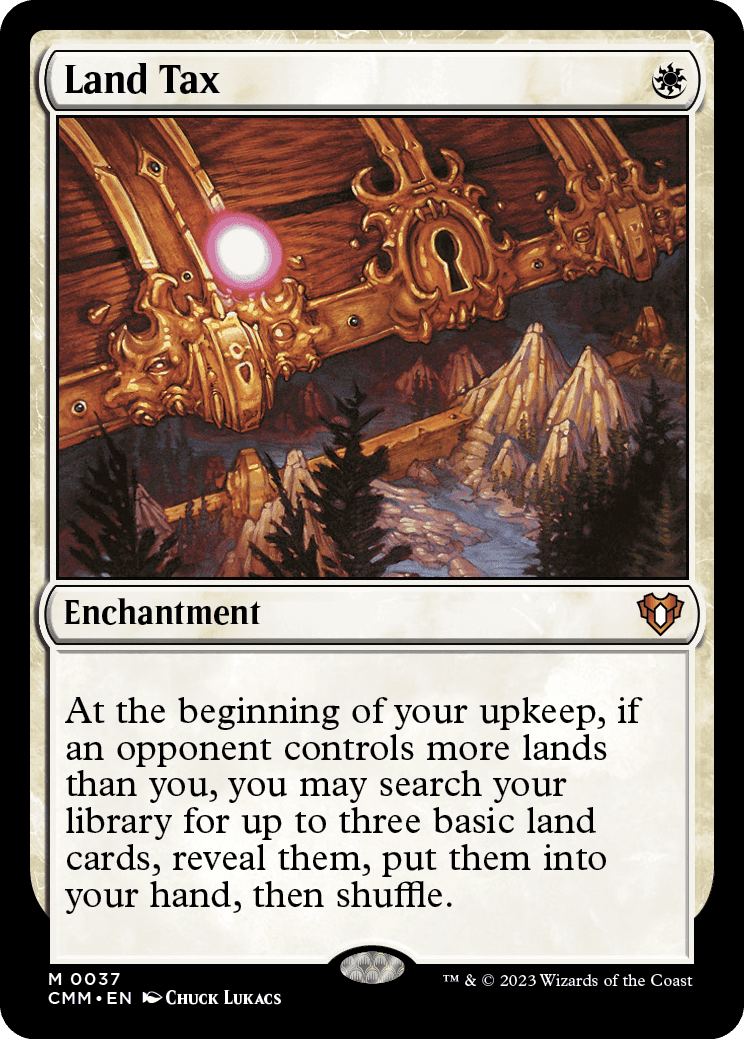
Land Tax
{W}
Enchantment
At the beginning of your upkeep, if an opponent controls more lands than you, you may search your library for up to three basic land cards, reveal them, put them into your hand, then shuffle.
- You can fetch any of the "Snow-Covered" lands, since they all also have the supertype basic.
- This ability has an "intervening 'if' clause." That means (1) the ability won't trigger at all unless any one of your opponents controls more lands than you, and (2) the ability will do nothing if you control at least as many lands as each of your opponents by the time it resolves.
- You shuffle your library if you search, even if you don't put any basic land cards into your hand.
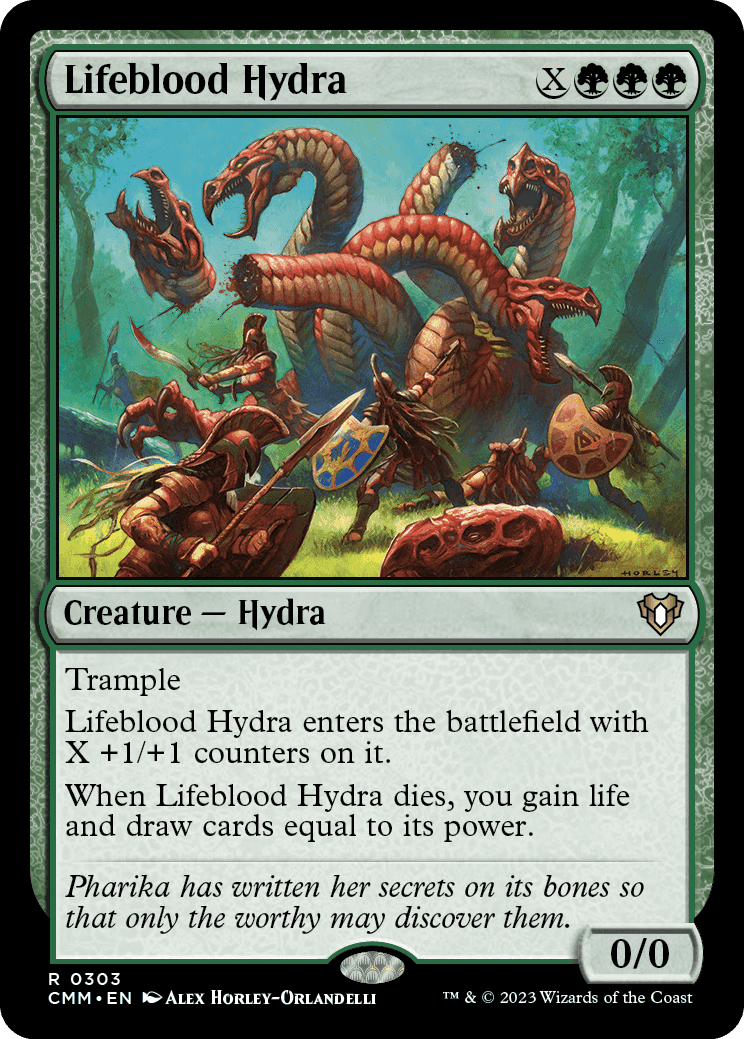
Lifeblood Hydra
{X}{G}{G}{G}
Creature — Hydra
0/0
Trample
Lifeblood Hydra enters the battlefield with X +1/+1 counters on it.
When Lifeblood Hydra dies, you gain life and draw cards equal to its power.
- Use Lifeblood Hydra's power when it died (including any +1/+1 counters it had) to determine how much life to gain and how many cards to draw.
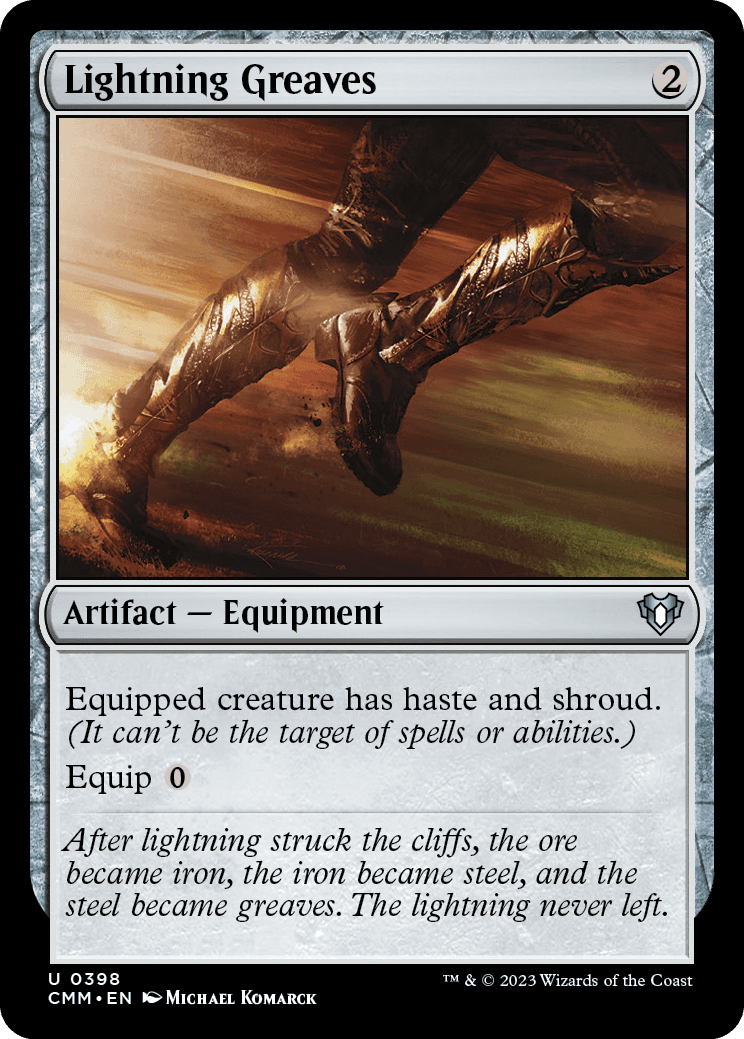
Lightning Greaves
{2}
Artifact — Equipment
Equipped creature has haste and shroud. (It can't be the target of spells or abilities.)
Equip {0}
- You can't simply unequip Equipment from a creature. If Lightning Greaves is attached to the only creature you control, you won't be able to attach other equipment to it (or target it with anything else) until you have another creature onto which you can move Lightning Greaves.
- If a creature enters the battlefield under your control and gains haste, but then loses it before attacking, it won't be able to attack that turn. This means that you can't use one Lightning Greaves to allow two new creatures to attack in the same turn.
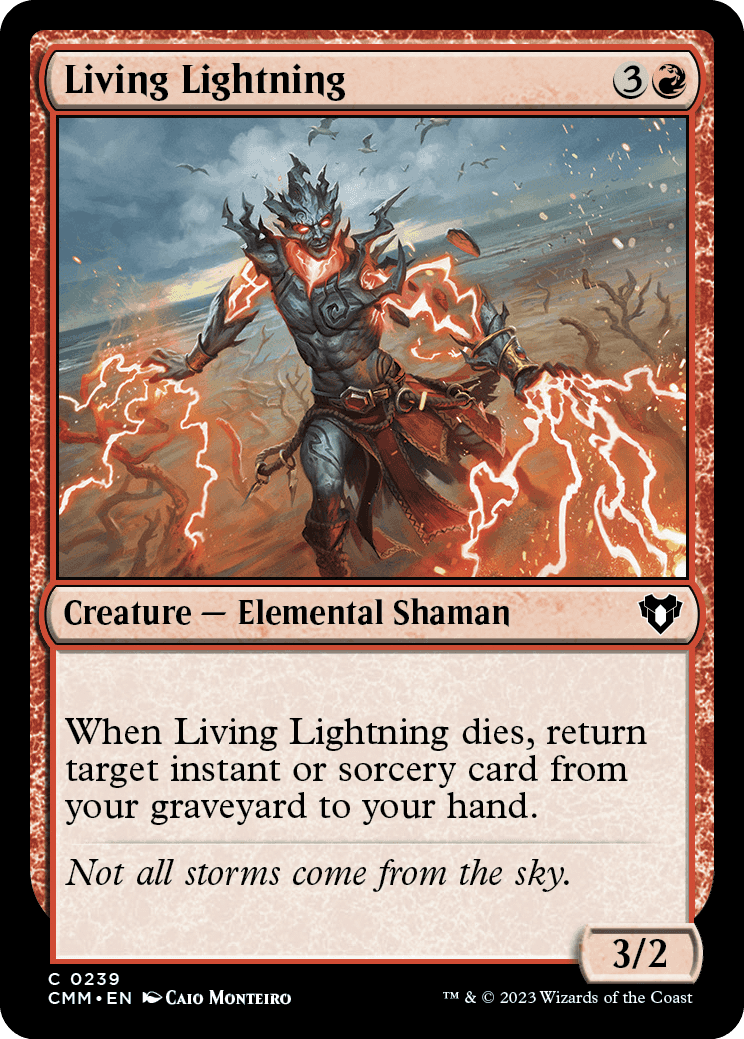
Living Lightning
{3}{R}
Creature — Elemental Shaman
3/2
When Living Lightning dies, return target instant or sorcery card from your graveyard to your hand.
- If an instant or sorcery spell you own causes Living Lightning to die, its ability can target that instant or sorcery card in your graveyard.
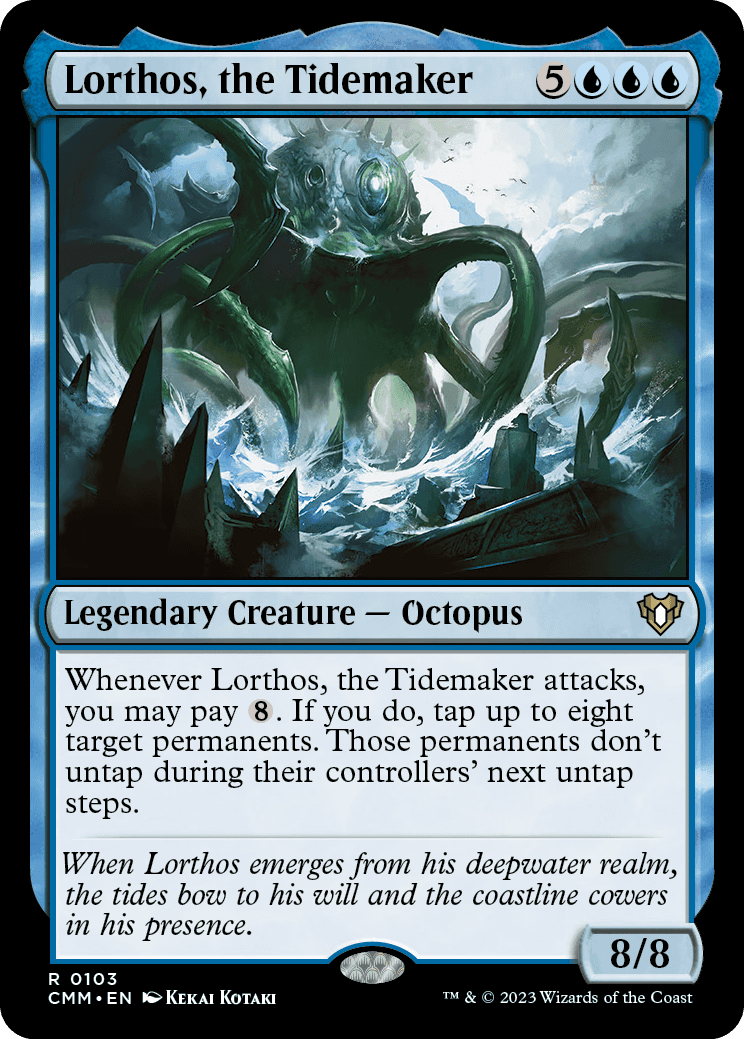
Lorthos, the Tidemaker
{5}{U}{U}{U}
Legendary Creature — Octopus
8/8
Whenever Lorthos, the Tidemaker attacks, you may pay {8}. If you do, tap up to eight target permanents. Those permanents don't untap during their controllers' next untap steps.
- You may target any eight (or fewer) permanents. It's okay if any of them are already tapped, and it's okay if any of them are controlled by someone other than the defending player.
- If a targeted permanent is untapped at the time its controller's next untap step begins, this ability has no effect on it. It won't apply at some later time when the targeted permanent is tapped.
- If an affected permanent changes controllers before its old controller's next untap step, this ability will prevent it from being untapped during its new controller's next untap step.
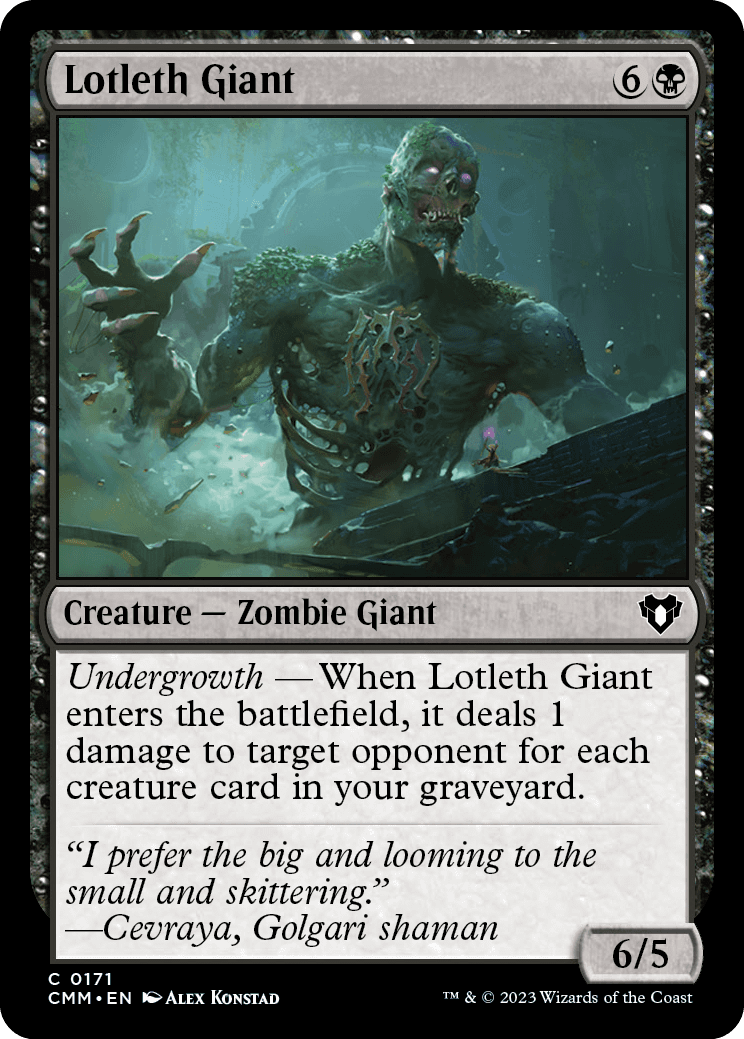
Lotleth Giant
{6}{B}
Creature — Zombie Giant
6/5
Undergrowth — When Lotleth Giant enters the battlefield, it deals 1 damage to target opponent for each creature card in your graveyard.
- Creature cards with other types, such as artifact creature cards, count for undergrowth abilities.
- Because tokens aren't cards, they never count for undergrowth abilities.
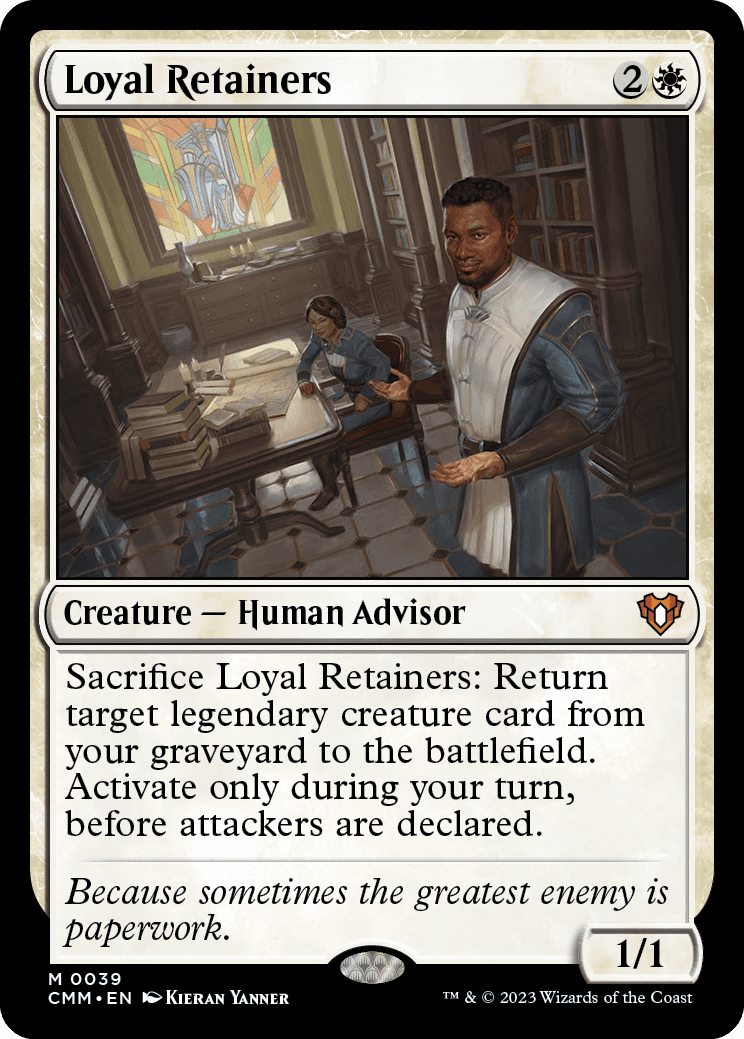
Loyal Retainers
{2}{W}
Creature — Human Advisor
1/1
Sacrifice Loyal Retainers: Return target legendary creature card from your graveyard to the battlefield. Activate only during your turn, before attackers are declared.
- If a turn has multiple combat phases, the ability can only be activated before the beginning of the declare attackers step of the first combat phase in that turn.
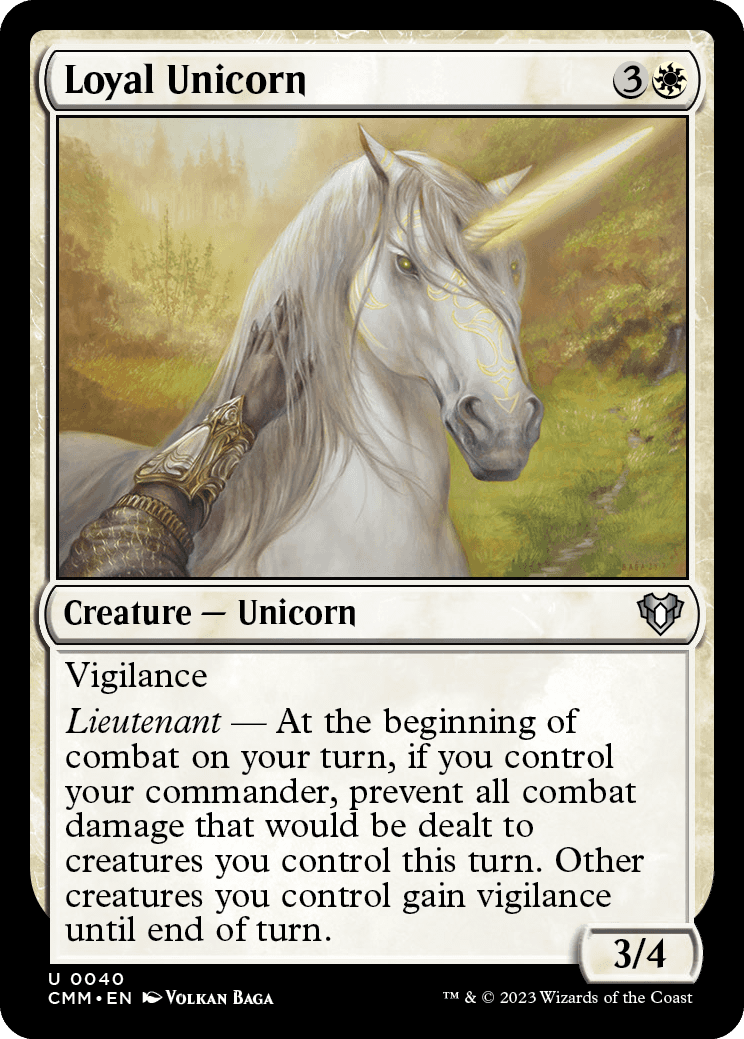
Loyal Unicorn
{3}{W}
Creature — Unicorn
3/4
Vigilance
Lieutenant — At the beginning of combat on your turn, if you control your commander, prevent all combat damage that would be dealt to creatures you control this turn. Other creatures you control gain vigilance until end of turn.
- Once Loyal Unicorn's lieutenant ability has resolved while you control your commander, its effects persist this turn even if you lose control of your commander or Loyal Unicorn.
- Loyal Unicorn's effect will prevent all combat damage that would be dealt to creatures you control, even if those creatures weren't on the battlefield or weren't creatures when the effect resolved.
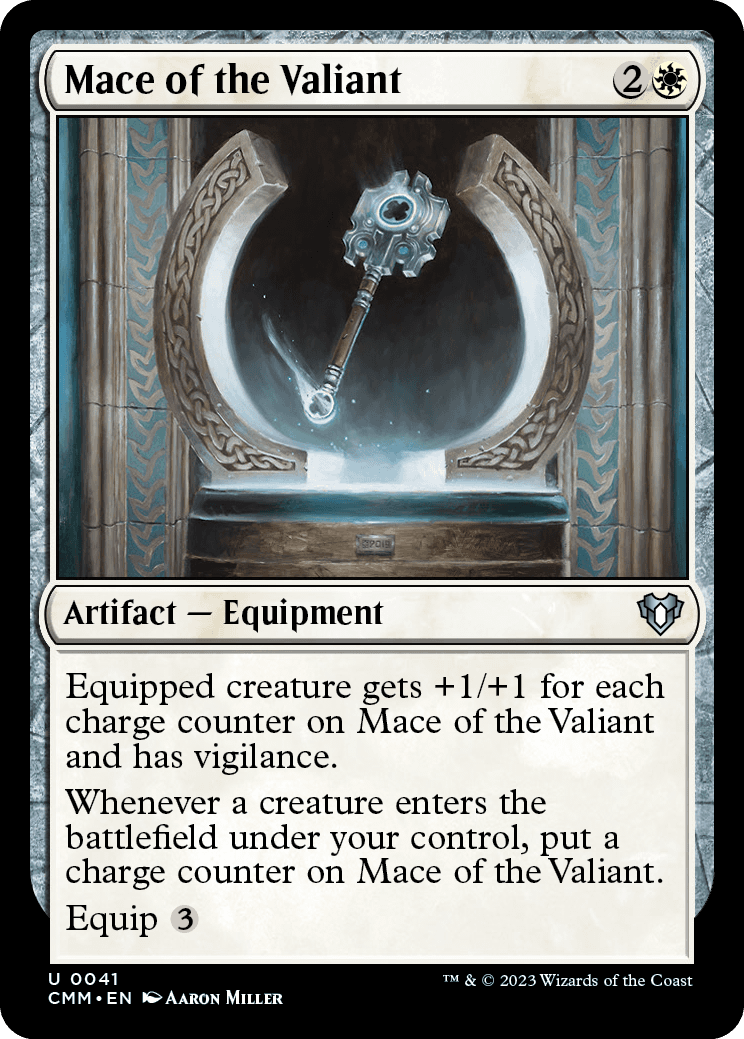
Mace of the Valiant
{2}{W}
Artifact — Equipment
Equipped creature gets +1/+1 for each charge counter on Mace of the Valiant and has vigilance.
Whenever a creature enters the battlefield under your control, put a charge counter on Mace of the Valiant.
Equip {3}
- The equipped creature has vigilance even if Mace of the Valiant has no charge counters on it.
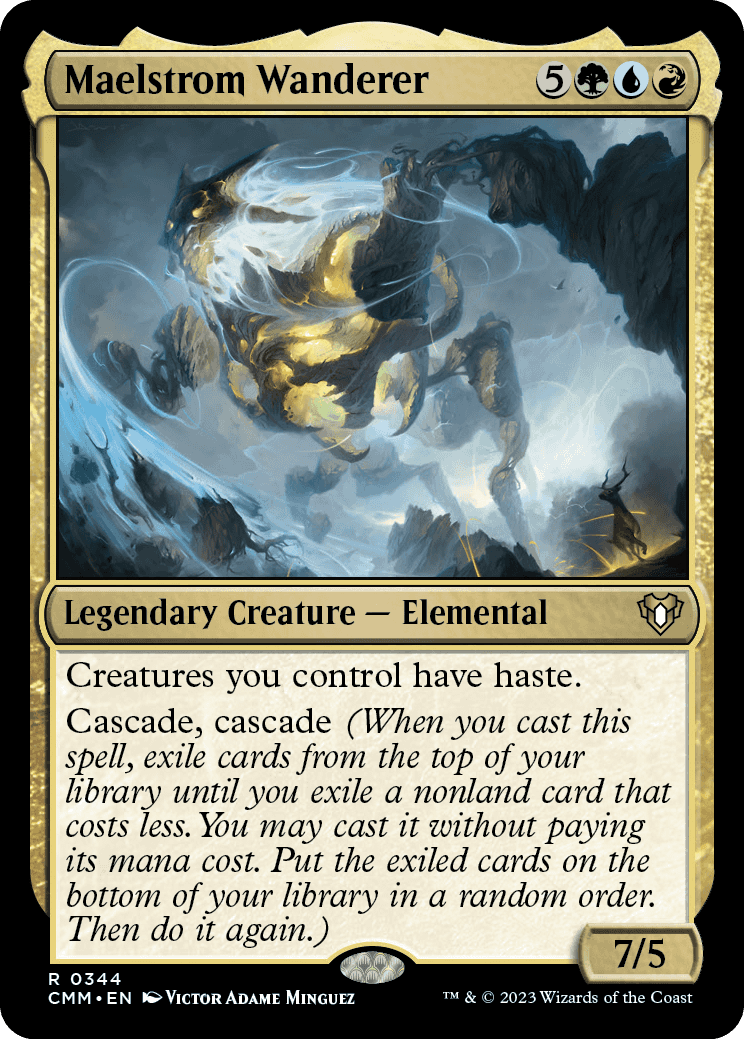
Maelstrom Wanderer
{5}{G}{U}{R}
Legendary Creature — Elemental
7/5
Creatures you control have haste.
Cascade, cascade (When you cast this spell, exile cards from the top of your library until you exile a nonland card that costs less. You may cast it without paying its mana cost. Put the exiled cards on the bottom of your library in a random order. Then do it again.)
- Maelstrom Wanderer gives itself haste.
- Each instance of cascade triggers and resolves separately. The spell you cast due to the first cascade ability will go on the stack on top of the second cascade ability. That spell will resolve before you exile cards for the second cascade ability.
- No matter what spell you cast with the first cascade trigger (or with any cascade triggers that result from casting that spell), the second cascade trigger will look for a spell with mana value less than Maelstrom Wanderer's mana value of 8.
- A spell's mana value is determined only by its mana cost. Ignore any alternative costs, additional costs, cost increases, or cost reductions.
- Cascade triggers when you cast the spell, meaning that it resolves before that spell. If you end up casting the exiled card, it will go on the stack above the spell with cascade.
- When the cascade ability resolves, you must exile cards. The only optional part of the ability is whether or not you cast the last card exiled.
- If a spell with cascade is countered, the cascade ability will still resolve normally.
- You exile the cards face up. All players will be able to see them.
- If you cast a card "without paying its mana cost," you can't choose to cast it for any alternative costs. You can, however, pay additional costs. If the card has any mandatory additional costs, you must pay those to cast the card.
- If the card has {X} in its mana cost, you must choose 0 as the value of X when casting it without paying its mana cost.
- Due to a 2021 rules change to cascade, not only do you stop exiling cards if you exile a nonland card with lesser mana value than the spell with cascade, but the resulting spell you cast must also have lesser mana value. Previously, in cases where a card's mana value differed from the resulting spell, such as with some modal double-faced cards or cards with an Adventure, you could cast a spell with a higher mana value than the exiled card.
- The mana value of a split card is determined by the combined mana value of its two halves. If cascade allows you to cast a split card, you may cast either half but not both halves.
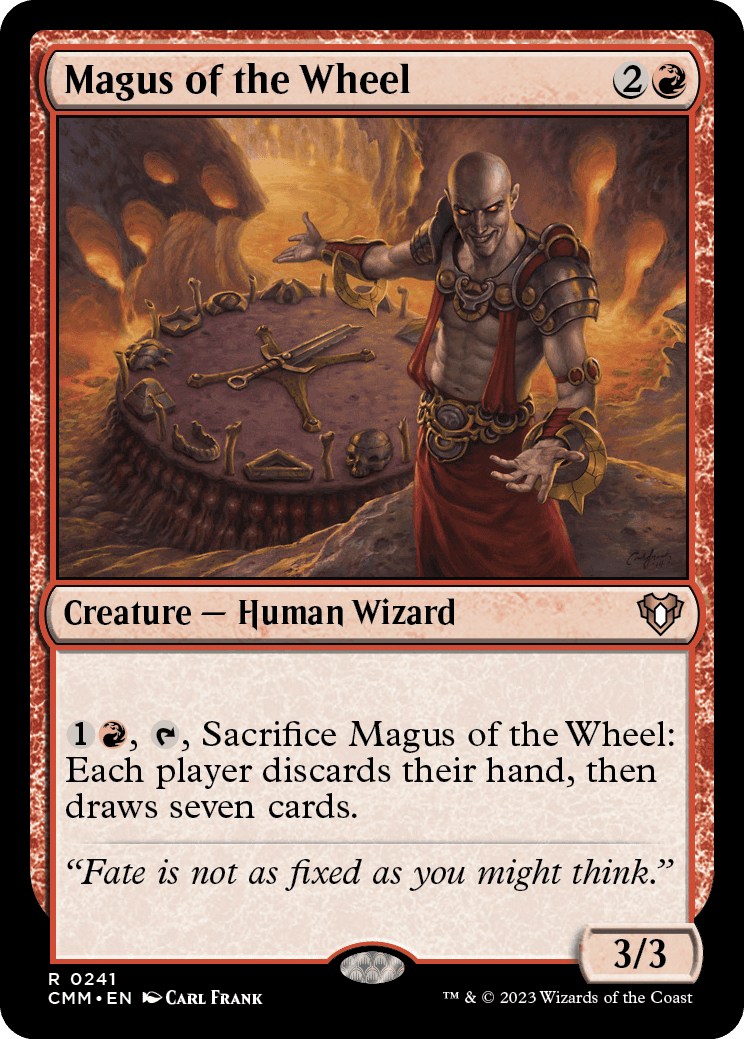
Magus of the Wheel
{2}{R}
Creature — Human Wizard
3/3
{1}{R}, {T}, Sacrifice Magus of the Wheel: Each player discards their hand, then draws seven cards.
- If each player has fewer than seven cards in their library as Magus of the Wheel's ability resolves, the game ends in a draw.
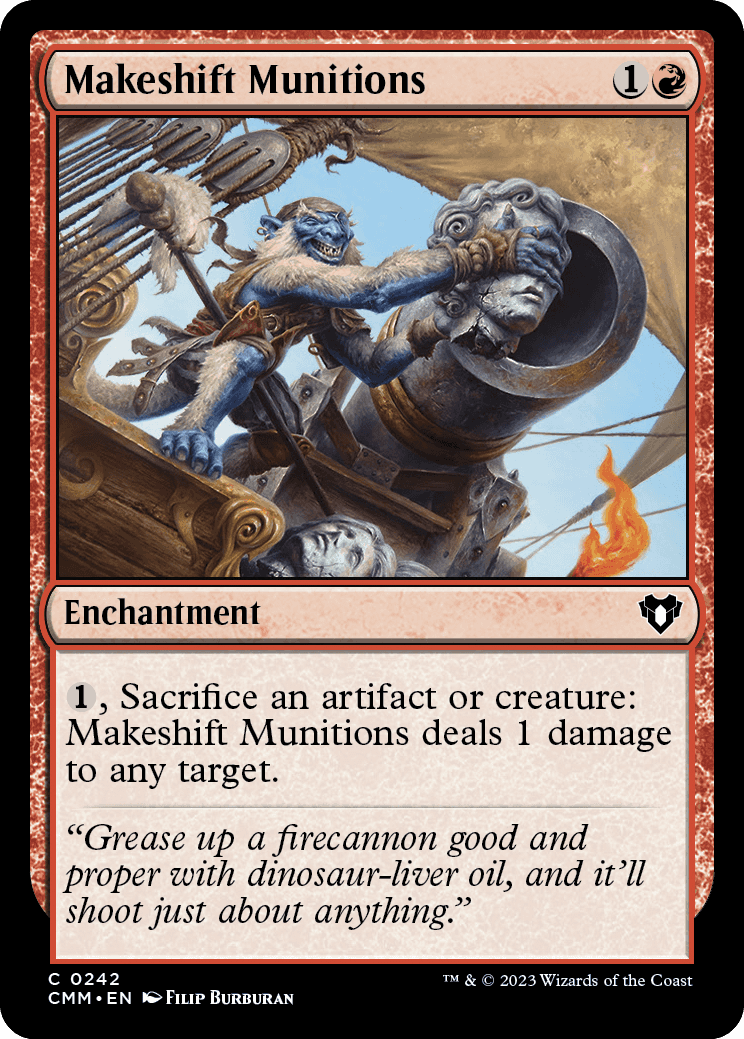
Makeshift Munitions
{1}{R}
Enchantment
{1}, Sacrifice an artifact or creature: Makeshift Munitions deals 1 damage to any target.
- If an artifact or creature has an ability allowing you to sacrifice it for mana, you can't sacrifice that permanent to generate mana and also to pay the sacrifice cost for the activated ability of Makeshift Munitions.
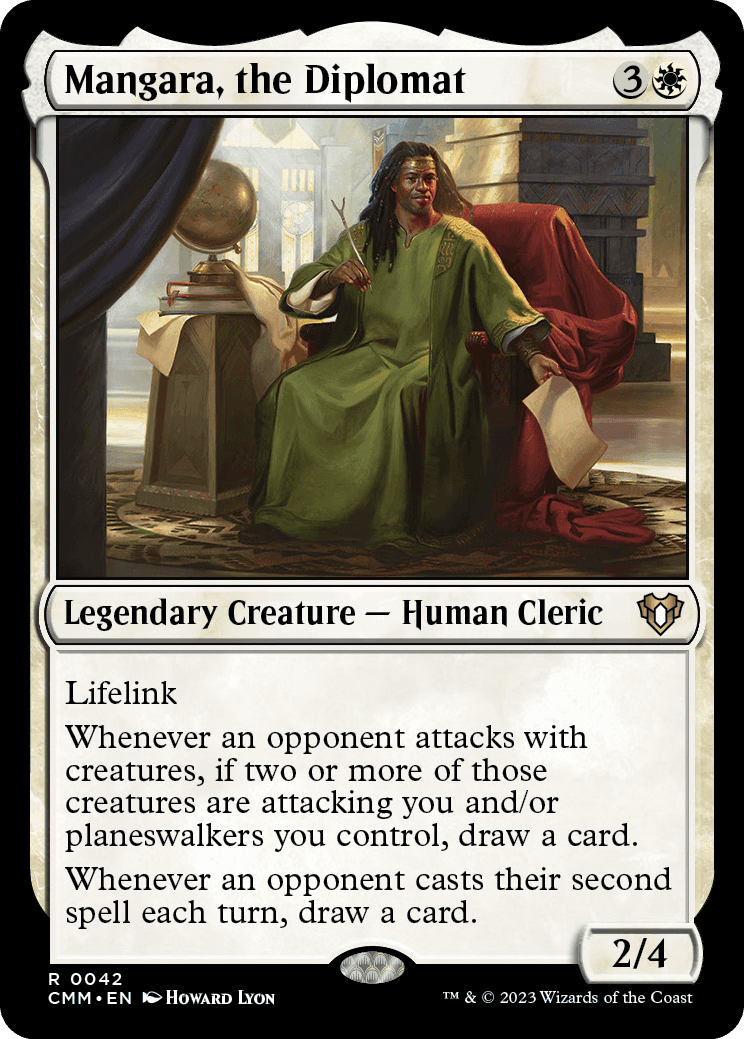
Mangara, the Diplomat
{3}{W}
Legendary Creature — Human Cleric
2/4
Lifelink
Whenever an opponent attacks with creatures, if two or more of those creatures are attacking you and/or planeswalkers you control, draw a card.
Whenever an opponent casts their second spell each turn, draw a card.
- If some of the attacking creatures leave the battlefield while Mangara's triggered ability is on the stack, use the player or planeswalker they were attacking before they left to determine whether you draw a card. On the other hand, if they're removed from combat without leaving the battlefield, use their current information to determine that they're not attacking you or a planeswalker you control anymore.
- If your opponent attacks you with one creature and your planeswalker with another, you draw a card.
- You draw just one card, no matter how many creatures are attacking you and your planeswalkers beyond the second.
- An ability that triggers when a player casts a spell resolves before the spell that caused it to trigger. It resolves even if that spell is countered.
- Players can cast spells and activate abilities after the triggered ability resolves but before the spell that caused it to trigger does.
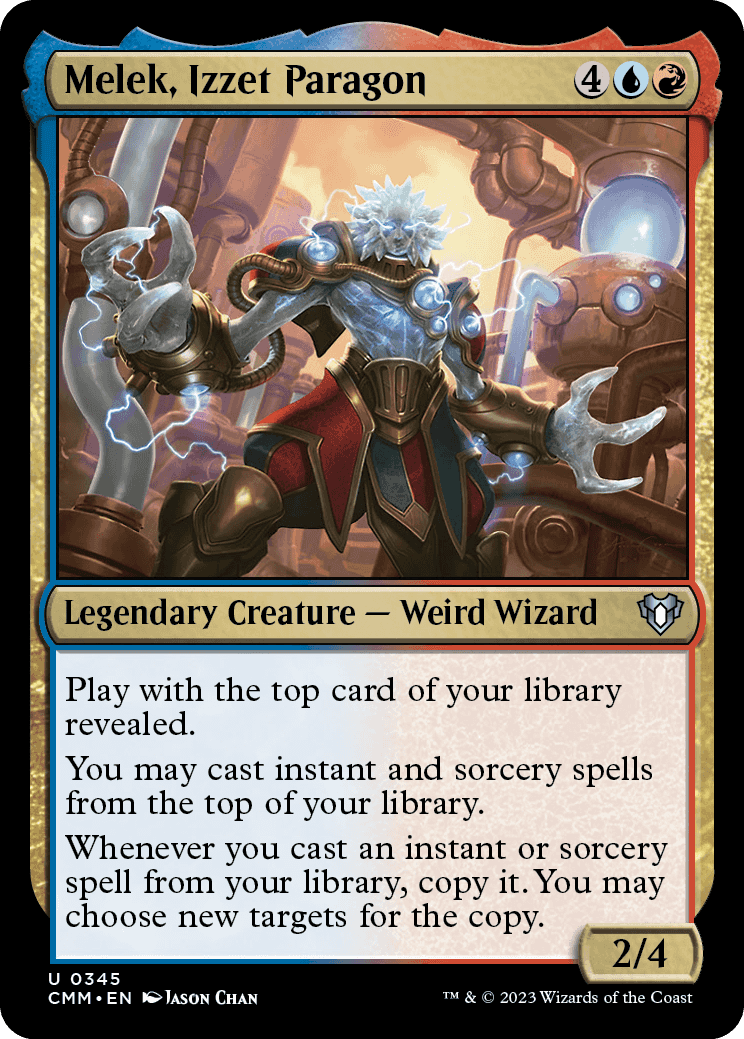
Melek, Izzet Paragon
{4}{U}{R}
Legendary Creature — Weird Wizard
2/4
Play with the top card of your library revealed.
You may cast instant and sorcery spells from the top of your library.
Whenever you cast an instant or sorcery spell from your library, copy it. You may choose new targets for the copy.
- Melek doesn't affect the timing rules associated with when you can cast the card. If it's a sorcery card, you can cast it only during your main phase when the stack is empty.
- You still pay all costs for that spell, including additional costs. You may also pay alternative costs, such as overload costs. Although you can't pay additional costs for the copy that's created, effects based on any additional costs that were paid for the original spell are copied as though those same costs were paid for the copy too. For example, if a player sacrifices a 3/3 creature to cast Fling, and you copy it, the copy of Fling will also deal 3 damage to its target.
- Melek's last ability will copy any instant or sorcery spell you cast from your library, not just one with targets.
- When the last ability resolves, it creates a copy of the spell. You control the copy. That copy is created on the stack, so it's not "cast." Abilities that trigger when a player casts a spell won't trigger. The copy will then resolve like a normal spell, after players get a chance to cast spells and activate abilities.
- The copy will have the same targets as the spell it's copying unless you choose new ones. You may change any number of the targets, including all of them or none of them. If, for one of the targets, you can't choose a new legal target, then it remains unchanged (even if the current target is illegal).
- If the spell being copied is modal (that is, it says "Choose one —" or the like), the copy will have the same mode. You can't choose a different one.
- If the spell being copied has an X whose value was determined as it was cast (like Debt to the Deathless has), the copy has the same value of X.
- Instant and sorcery cards with miracle allow a player to cast a card immediately upon drawing it. If you cast a spell this way, you're casting it from your hand, not your library. Melek's ability won't trigger.
- The top card of your library isn't in your hand, so you can't suspend it, cycle it, discard it, or activate any of its activated abilities.
- If the top card of your library changes while you're casting a spell, playing a land, or activating an ability, the new top card won't be revealed until you finish doing so.
- When playing with the top card of your library revealed, if an effect tells you to draw several cards, reveal each one before you draw it.
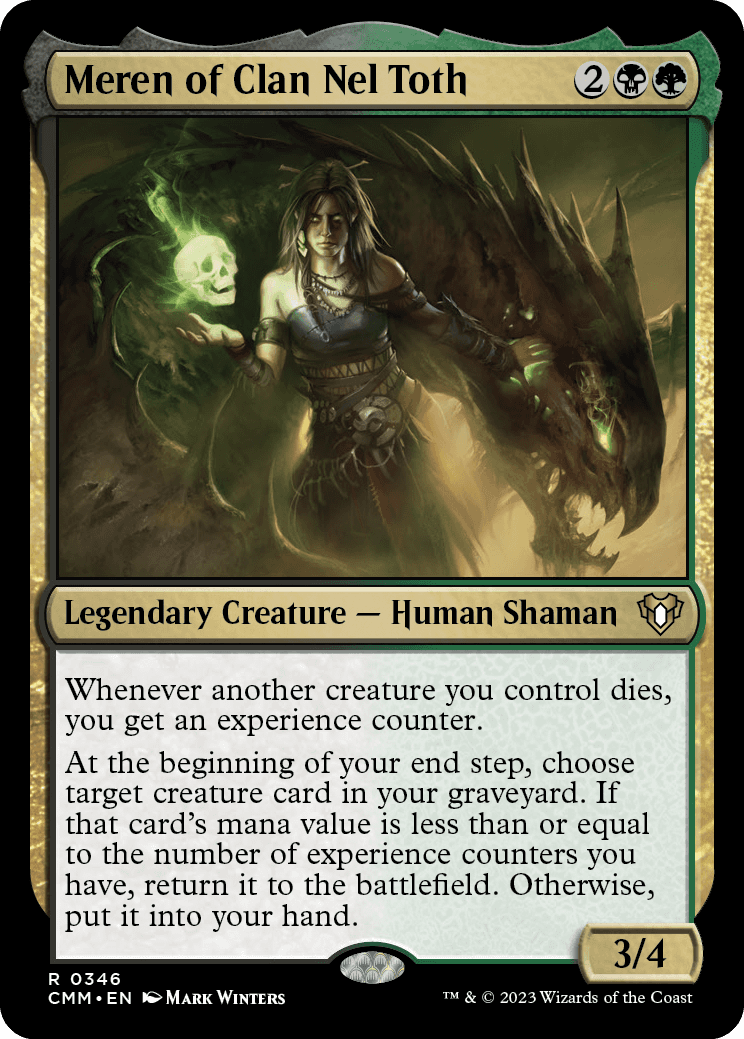
Meren of Clan Nel Toth
{2}{B}{G}
Legendary Creature — Human Shaman
¾
Whenever another creature you control dies, you get an experience counter.
At the beginning of your end step, choose target creature card in your graveyard. If that card's mana value is less than or equal to the number of experience counters you have, return it to the battlefield. Otherwise, put it into your hand.
- If Meren of Clan Nel Toth leaves the battlefield at the same time as other creatures you control die, its first ability will trigger for each of those creatures.
- You can't choose to put the creature card into your hand if its mana value is less than or equal to the number of experience counters you have as the ability resolves.
- If a creature card in your graveyard has {X} in its mana cost, X is 0.
- All experience counters are identical, no matter how you got them. For example, the last ability will count experience counters that you got from the first ability, from another ability, from proliferating, and so on.
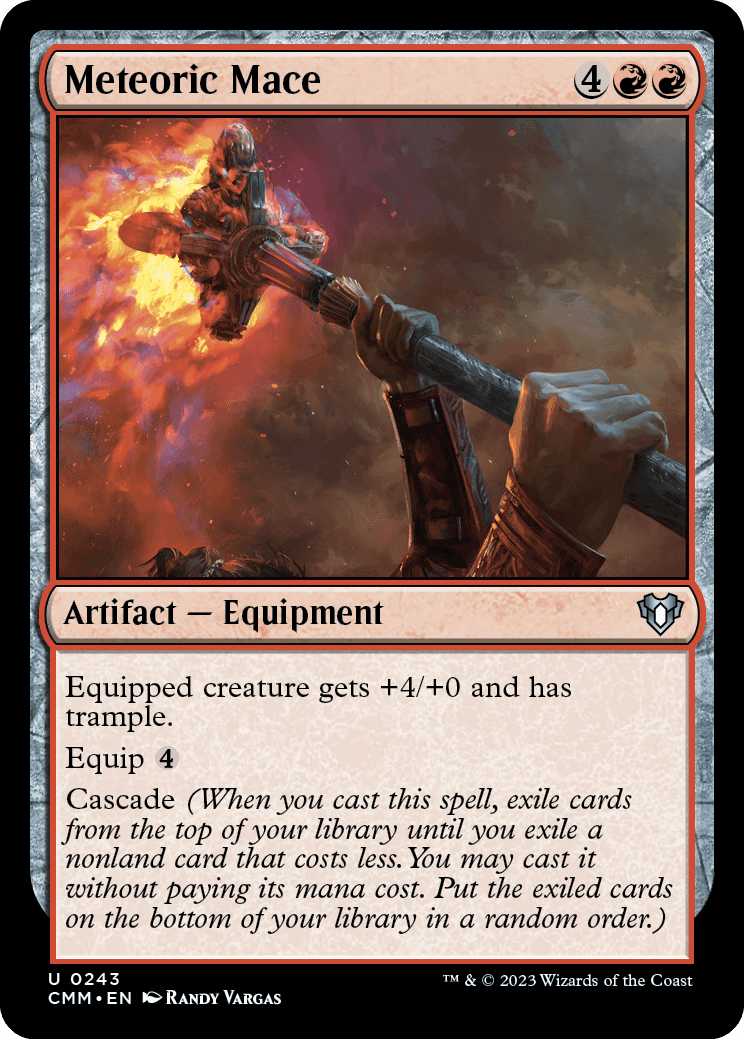
Meteoric Mace
{4}{R}{R}
Artifact — Equipment
Equipped creature gets +4/+0 and has trample.
Equip {4}
Cascade (When you cast this spell, exile cards from the top of your library until you exile a nonland card that costs less. You may cast it without paying its mana cost. Put the exiled cards on the bottom of your library in a random order.)
- A spell's mana value is determined only by its mana cost. Ignore any alternative costs, additional costs, cost increases, or cost reductions.
- Cascade triggers when you cast the spell, meaning that it resolves before that spell. If you end up casting the exiled card, it will go on the stack above the spell with cascade.
- When the cascade ability resolves, you must exile cards. The only optional part of the ability is whether or not you cast the last card exiled.
- If a spell with cascade is countered, the cascade ability will still resolve normally.
- You exile the cards face up. All players will be able to see them.
- If you cast a card "without paying its mana cost," you can't choose to cast it for any alternative costs. You can, however, pay additional costs. If the card has any mandatory additional costs, you must pay those to cast the card.
- If the card has {X} in its mana cost, you must choose 0 as the value of X when casting it without paying its mana cost.
- Due to a 2021 rules change to cascade, not only do you stop exiling cards if you exile a nonland card with lesser mana value than the spell with cascade, but the resulting spell you cast must also have lesser mana value. Previously, in cases where a card's mana value differed from the resulting spell, such as with some modal double-faced cards or cards with an Adventure, you could cast a spell with a higher mana value than the exiled card.
- The mana value of a split card is determined by the combined mana value of its two halves. If cascade allows you to cast a split card, you may cast either half but not both halves.
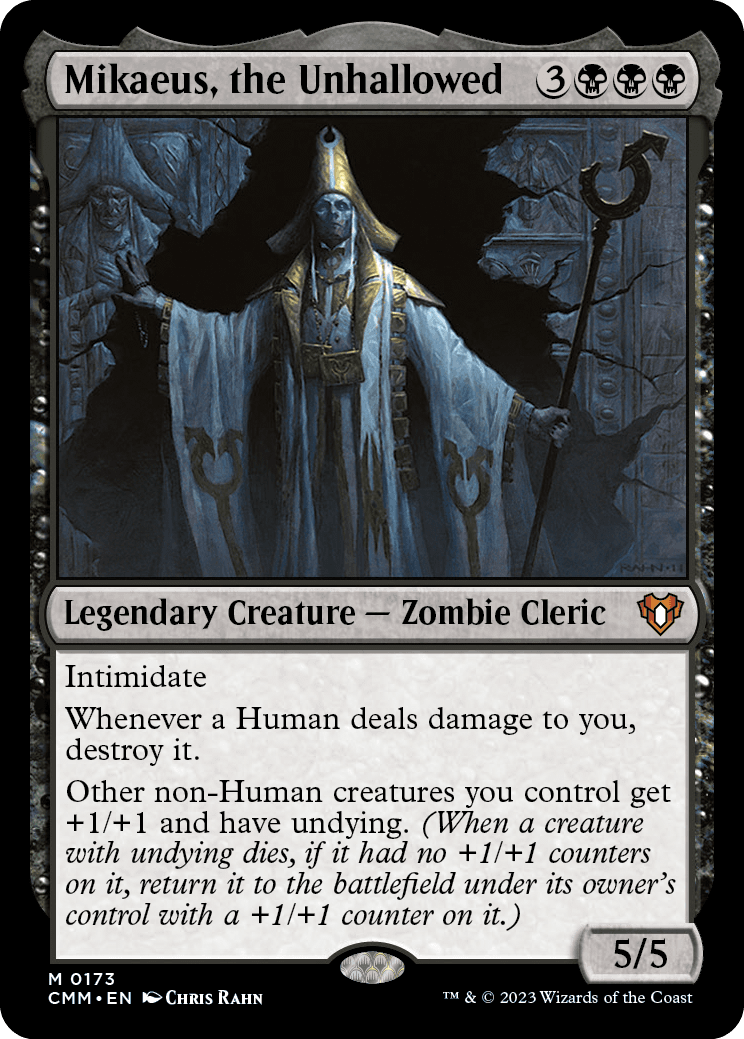
Mikaeus, the Unhallowed
{3}{B}{B}{B}
Legendary Creature — Zombie Cleric
5/5
Intimidate
Whenever a Human deals damage to you, destroy it.
Other non-Human creatures you control get +1/+1 and have undying. (When a creature with undying dies, if it had no +1/+1 counters on it, return it to the battlefield under its owner's control with a +1/+1 counter on it.)
- Any damage dealt to you by a Human will cause Mikaeus's ability to trigger, including noncombat damage dealt to you by a Human and damage dealt to you by a Human you control.
- If a Human deals damage to you at the same time that Mikaeus is dealt lethal damage, Mikaeus's triggered ability triggers. That Human will be destroyed even though Mikaeus has left the battlefield.
- If a non-Human creature you control without a +1/+1 counter dies at the same time as Mikaeus, that creature's undying ability granted by Mikaeus triggers and will return it to the battlefield.
- The +1/+1 bonus that Mikaeus gives to other non-Human creatures you control isn't a counter. It won't prevent undying from triggering.
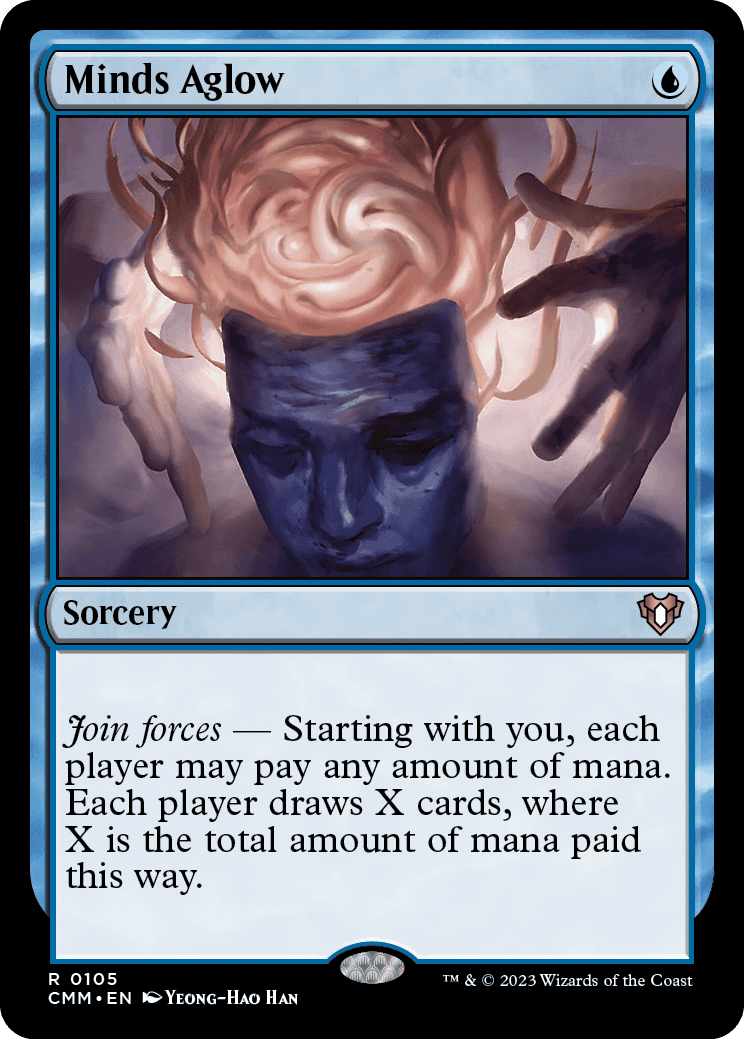
Minds Aglow
{U}
Sorcery
Join forces — Starting with you, each player may pay any amount of mana. Each player draws X cards, where X is the total amount of mana paid this way.
- The card-drawing part of the effect is not optional. A player can't choose to draw fewer than X cards.
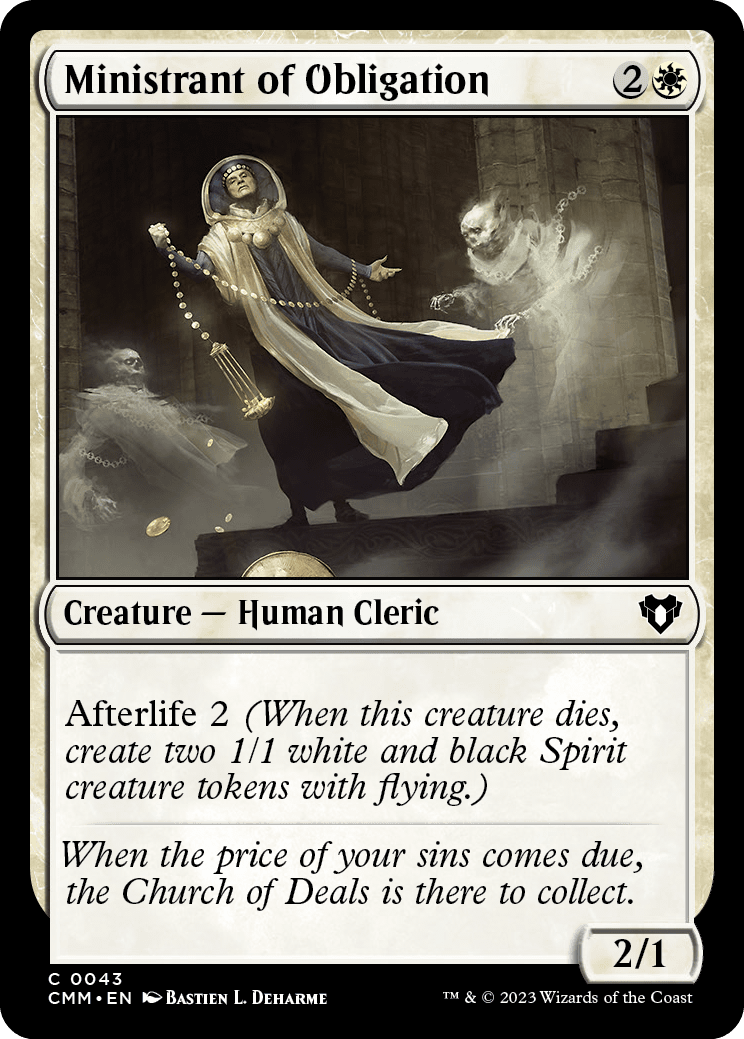
Ministrant of Obligation
{2}{W}
Creature — Human Cleric
2/1
Afterlife 2 (When this creature dies, create two 1/1 white and black Spirit creature tokens with flying.)
- Because blockers are chosen all at once, you can't block with a creature with afterlife, wait for it to die, then block with the resulting Spirit tokens.
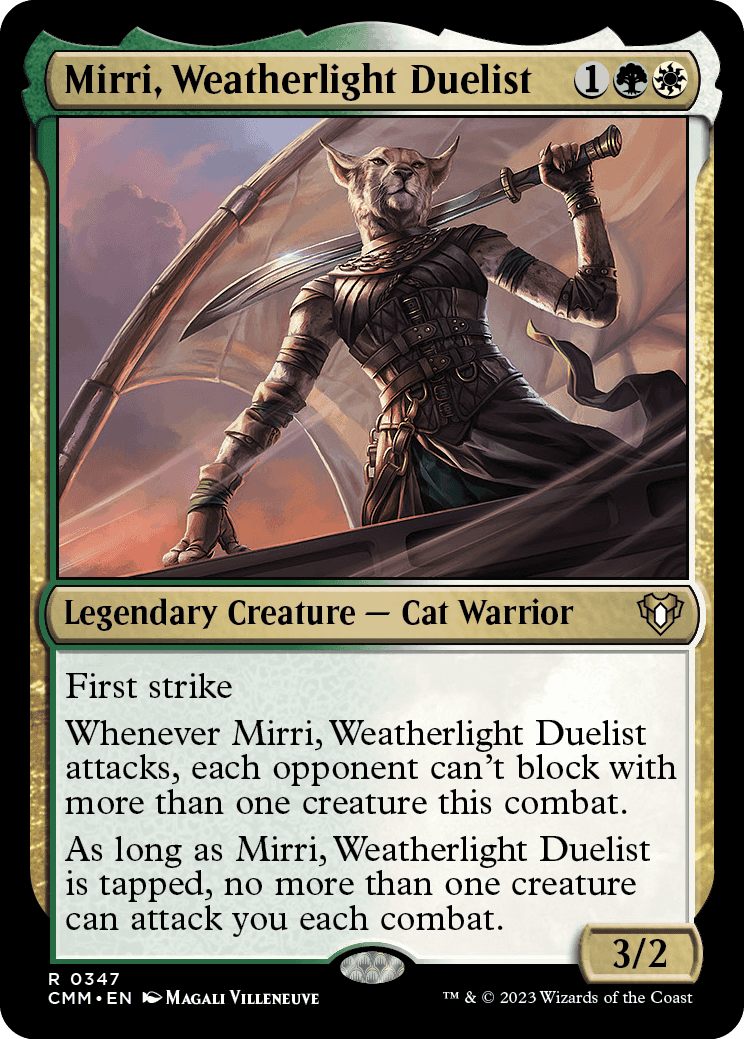
Mirri, Weatherlight Duelist
{1}{G}{W}
Legendary Creature — Cat Warrior
3/2
First strike
Whenever Mirri, Weatherlight Duelist attacks, each opponent can't block with more than one creature this combat.
As long as Mirri, Weatherlight Duelist is tapped, no more than one creature can attack you each combat.
- While Mirri is tapped, there's no restriction on how many creatures can attack planeswalkers you control or battles you protect.
- Tapping Mirri after creatures have attacked will not remove creatures from combat.
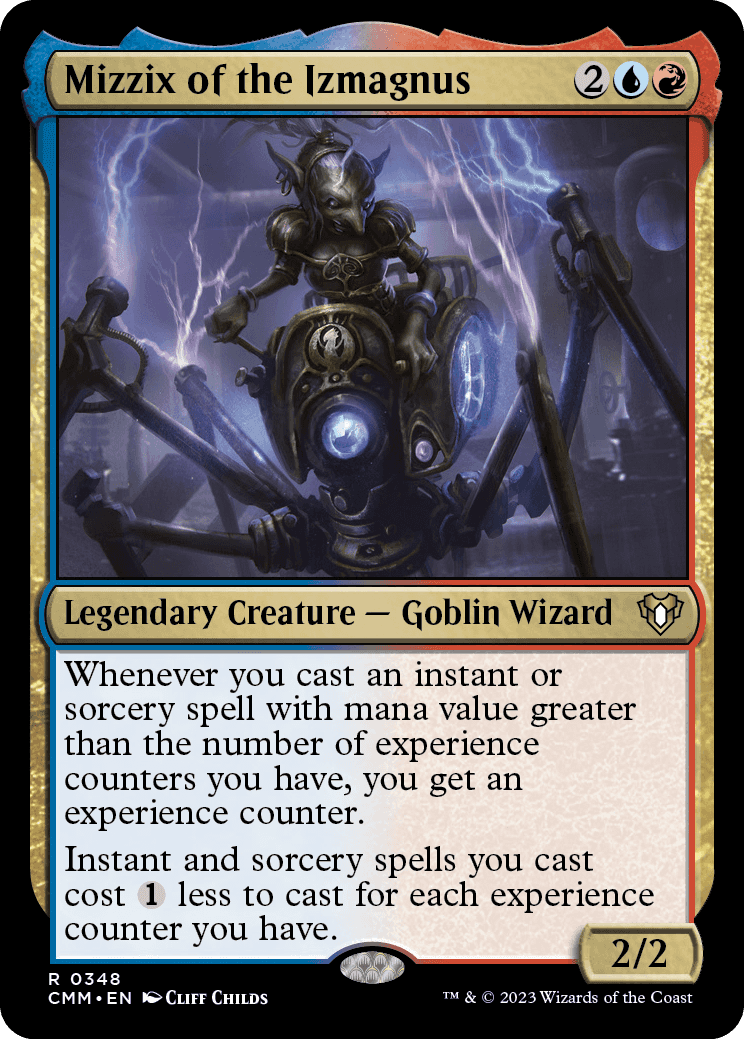
Mizzix of the Izmagnus
{2}{U}{R}
Legendary Creature — Goblin Wizard
2/2
Whenever you cast an instant or sorcery spell with mana value greater than the number of experience counters you have, you get an experience counter.
Instant and sorcery spells you cast cost {1} less to cast for each experience counter you have.
- You finish casting a spell, including paying its costs, before Mizzix's first ability triggers. The ability that gives you the experience counter will resolve before the spell that caused it to trigger.
- Mizzix's last ability doesn't change the mana cost or mana value of any spell. It changes only the total cost you pay.
- Mizzix's last ability can't reduce the amount of colored mana you pay for a spell. It reduces only the generic component of that cost.
- If there are additional costs to cast a spell, or if the cost to cast a spell is increased by an effect (such as the one created by Thalia, Guardian of Thraben's ability), apply those increases before applying cost reductions.
- The cost reduction can apply to alternative costs such as flashback costs.
- If an instant or sorcery spell you cast has {X} in its mana cost, you choose the value of X before calculating the spell's total cost. For example, if that spell's mana cost is {X}{R} and you have one experience counter, you could choose 5 as the value of X and pay {4}{R} to cast the spell.
- All experience counters are identical, no matter how you got them. For example, the last ability will count experience counters that you got from the first ability, from another ability, from proliferating, and so on.
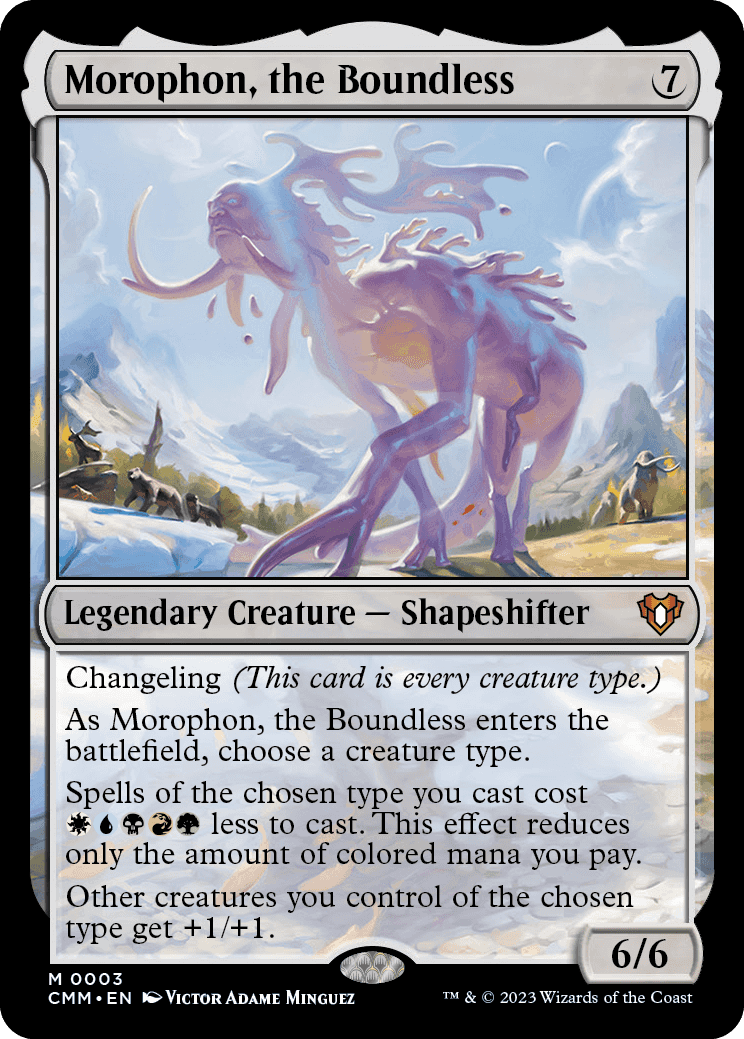
Morophon, the Boundless
{7}
Legendary Creature — Shapeshifter
6/6
Changeling (This card is every creature type.)
As Morophon, the Boundless enters the battlefield, choose a creature type.
Spells of the chosen type you cast cost {W}{U}{B}{R}{G} less to cast. This effect reduces only the amount of colored mana you pay.
Other creatures you control of the chosen type get +1/+1.
- You must choose an existing creature type, such as Sliver or Warrior. Card types such as artifact, and supertypes such as legendary or snow, can't be chosen.
- Morophon's effect reduces the total cost by up to one mana of each color. For example, if a spell of the chosen type costs {4}{R}{W}{W}, it will cost {4}{W} after applying Morophon's effect.
- If a spell has hybrid mana symbols in its mana cost, you choose which half you will be paying before determining the total cost. For example, if a spell of the chosen type costs {2}{(w/u)}{(w/u)}, you may choose for the cost to be {2}{W}{U} and then reduce it to {2}.
- Cost reduction effects are applied after other cost modifiers, so Morophon can reduce additional costs or alternative costs of spells of the chosen type.
- Because damage remains marked on a creature until the damage is removed as the turn ends, nonlethal damage dealt to other creatures you control of the chosen type may become lethal if Morophon leaves the battlefield during that turn.
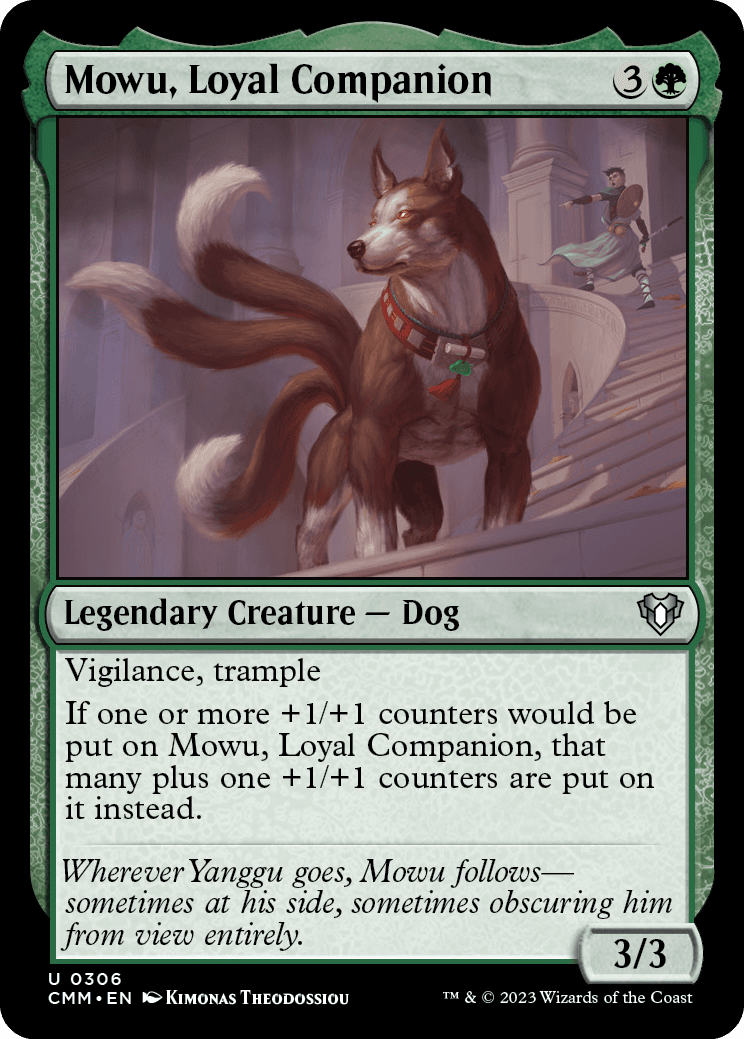
Mowu, Loyal Companion
{3}{G}
Legendary Creature — Dog
3/3
Vigilance, trample
If one or more +1/+1 counters would be put on Mowu, Loyal Companion, that many plus one +1/+1 counters are put on it instead.
- Because Mowu's replacement effect affects only Mowu, it will apply if Mowu somehow enters the battlefield with one or more +1/+1 counters on it and give Mowu an additional +1/+1 counter.
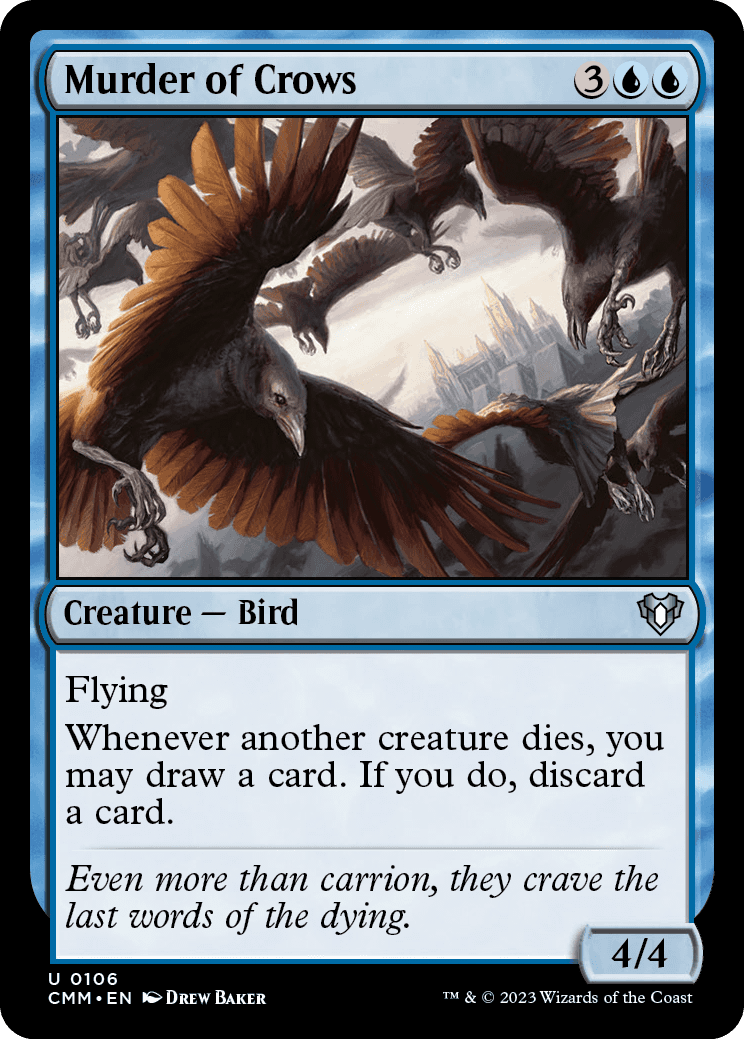
Murder of Crows
{3}{U}{U}
Creature — Bird
4/4
Flying
Whenever another creature dies, you may draw a card. If you do, discard a card.
- If another creature dies at the same time as Murder of Crows, its last ability triggers.
- You can't do anything in between drawing a card and discarding a card, including casting or cycling the card you drew.
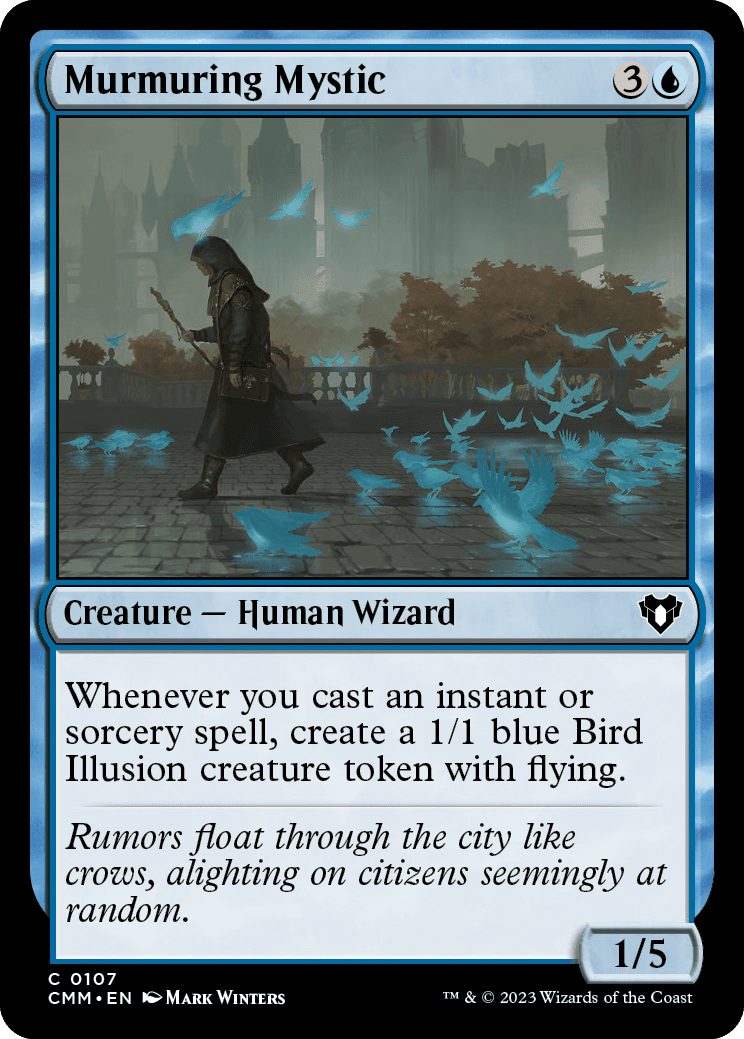
Murmuring Mystic
{3}{U}
Creature — Human Wizard
1/5
Whenever you cast an instant or sorcery spell, create a 1/1 blue Bird Illusion creature token with flying.
- Murmuring Mystic's triggered ability resolves before the spell that caused it to trigger. It resolves even if that spell is countered.
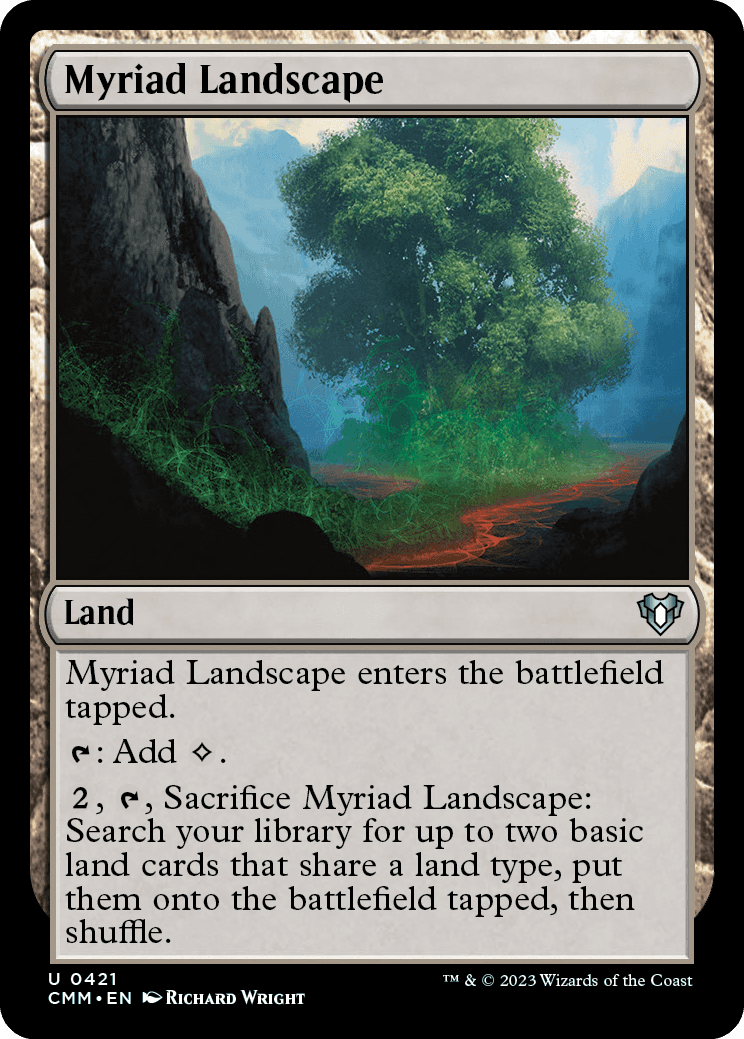
Myriad Landscape
Land
Myriad Landscape enters the battlefield tapped.
{T}: Add {C}.
{2}, {T}, Sacrifice Myriad Landscape: Search your library for up to two basic land cards that share a land type, put them onto the battlefield tapped, then shuffle.
- You can choose to find one basic land card with Myriad Landscape's last ability.
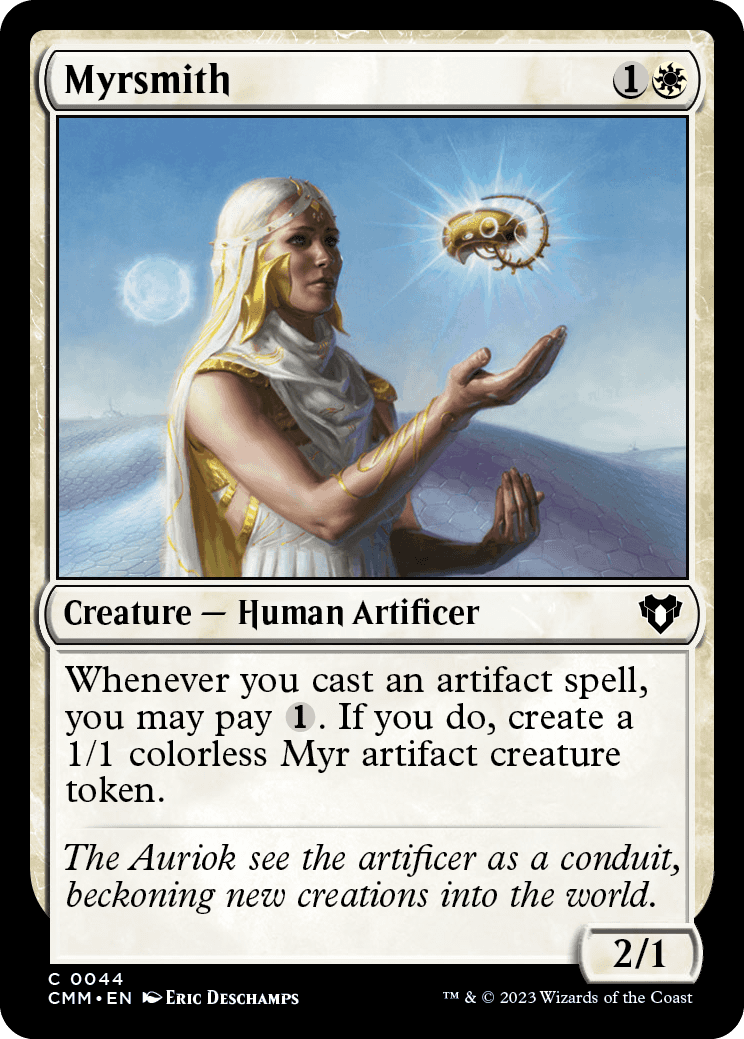
Myrsmith
{1}{W}
Creature — Human Artificer
2/1
Whenever you cast an artifact spell, you may pay {1}. If you do, create a 1/1 colorless Myr artifact creature token.
- An ability that triggers when a player casts a spell resolves before the spell that caused it to trigger. It resolves even if that spell is countered.
- While resolving Myrsmith's ability, you can't pay more than {1} to get more than one Myr.

Mystic Confluence
{3}{U}{U}
Instant
Choose three. You may choose the same mode more than once.
• Counter target spell unless its controller pays {3}.
• Return target creature to its owner's hand.
• Draw a card.
- If you choose the first and/or second modes but all of the targets become illegal before Mystic Confluence resolves, the spell won't resolve. If you also chose the last mode once or twice, you won't draw any cards. If at least one target is still legal, the spell will resolve but will have no effect on any illegal targets.
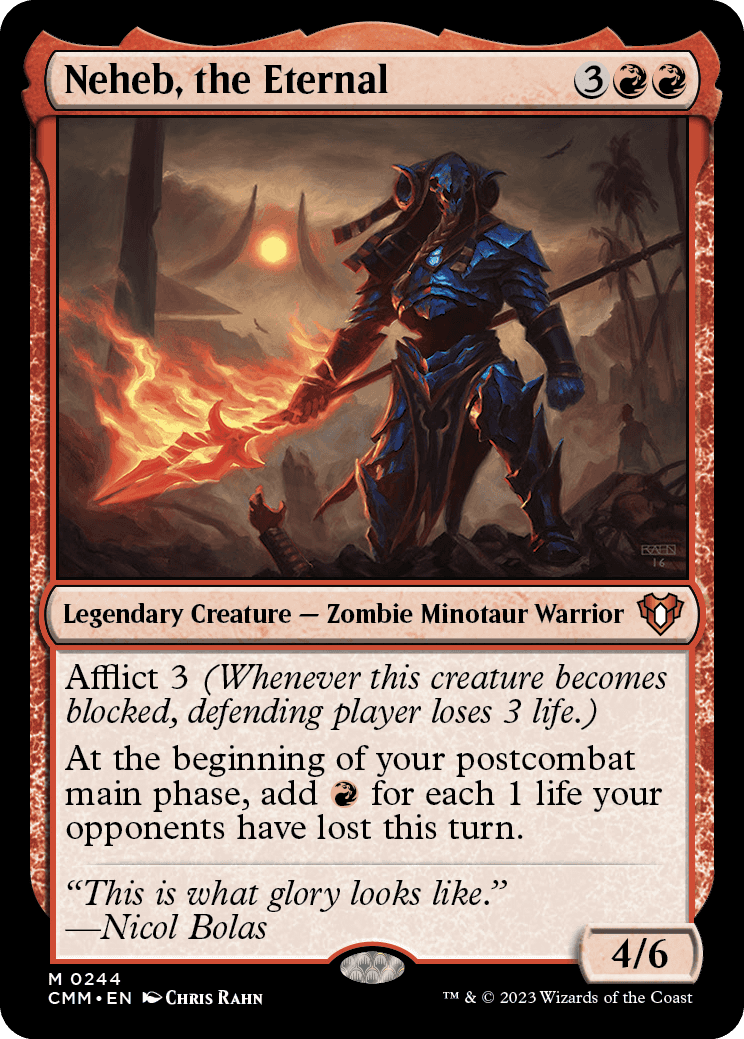
Neheb, the Eternal
{3}{R}{R}
Legendary Creature — Zombie Minotaur Warrior
4/6
Afflict 3 (Whenever this creature becomes blocked, defending player loses 3 life.)
At the beginning of your postcombat main phase, add {R} for each 1 life your opponents have lost this turn.
- Damage dealt to a player causes that player to lose that much life.
- Because it triggers at the beginning of a phase, Neheb's last ability isn't a mana ability. It uses the stack and can be countered by effects that interact with triggered abilities, such as that of Nimble Obstructionist.
- You get a postcombat main phase even if no creatures attacked during a turn. Neheb's last ability will trigger.
- If an opponent loses life but Neheb leaves the battlefield before your postcombat main phase begins, its last ability doesn't trigger.
- Neheb's ability checks only how much life opponents lost during the turn, not by how much their life total decreased compared to the start of the turn. For example, if an opponent lost 2 life and then gained 8 life before your postcombat main phase, you'll add {R}{R} to your mana pool.
- If an opponent loses life and subsequently loses the game before your postcombat main phase, Neheb's last ability counts that loss of life.
- If you somehow have more than two main phases in a turn, each main phase after your first one is a postcombat main phase, and Neheb's last ability triggers at the beginning of each of them.
- If multiple creatures block a creature with afflict, afflict triggers only once.
- Afflict causes the defending player to lose life; it's not damage or combat damage.
- If a creature is attacking a planeswalker, that planeswalker's controller is the defending player. If a creature is attacking a battle, that battle's protector is the defending player.
- Afflict resolves before combat damage is dealt. If this loss of life brings a player to 0 life or less, that player loses the game immediately. A blocking creature with lifelink won't deal combat damage in time to save that player.
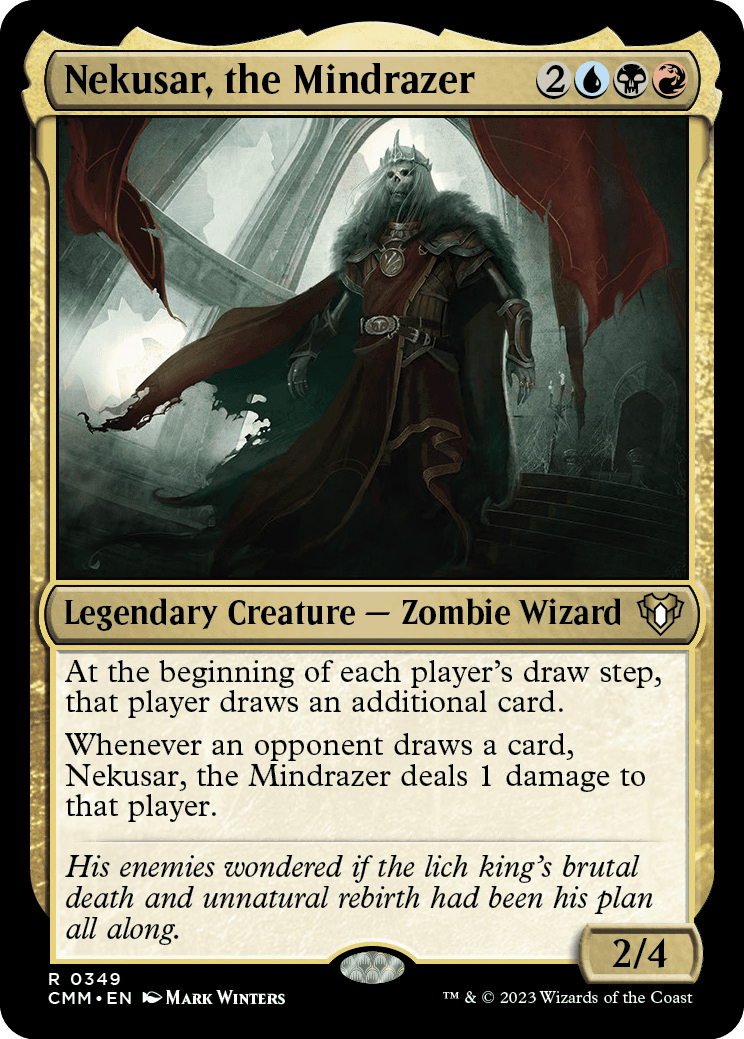
Nekusar, the Mindrazer
{2}{U}{B}{R}
Legendary Creature — Zombie Wizard
2/4
At the beginning of each player's draw step, that player draws an additional card.
Whenever an opponent draws a card, Nekusar, the Mindrazer deals 1 damage to that player.
- If a spell or ability causes you to put cards into your hand without specifically using the word "draw," it doesn't count as drawing cards and it doesn't cause Nekusar's second ability to trigger.
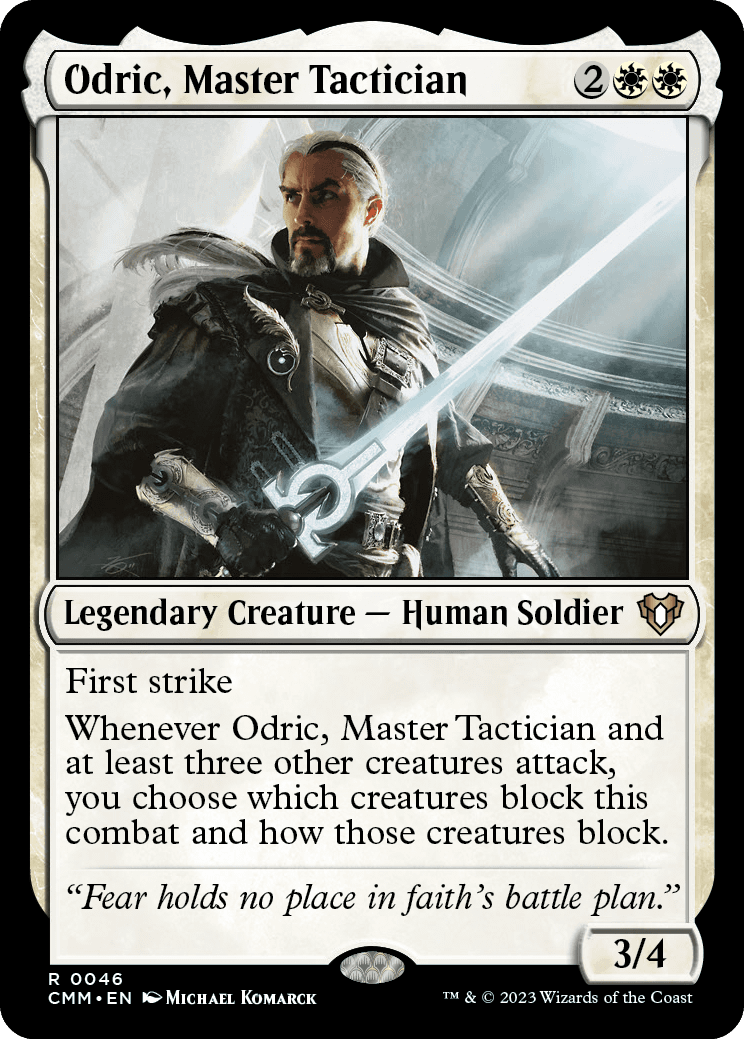
Odric, Master Tactician
{2}{W}{W}
Legendary Creature — Human Soldier
3/4
First strike
Whenever Odric, Master Tactician and at least three other creatures attack, you choose which creatures block this combat and how those creatures block.
- You can decide that a creature won't block.
- All blocking declarations must still be legal.
- If there's a cost associated with having a creature block and you choose for that creature to block, its controller can choose to pay that cost or not. If that player decides to not pay that cost, you must propose a new set of blocking creatures.
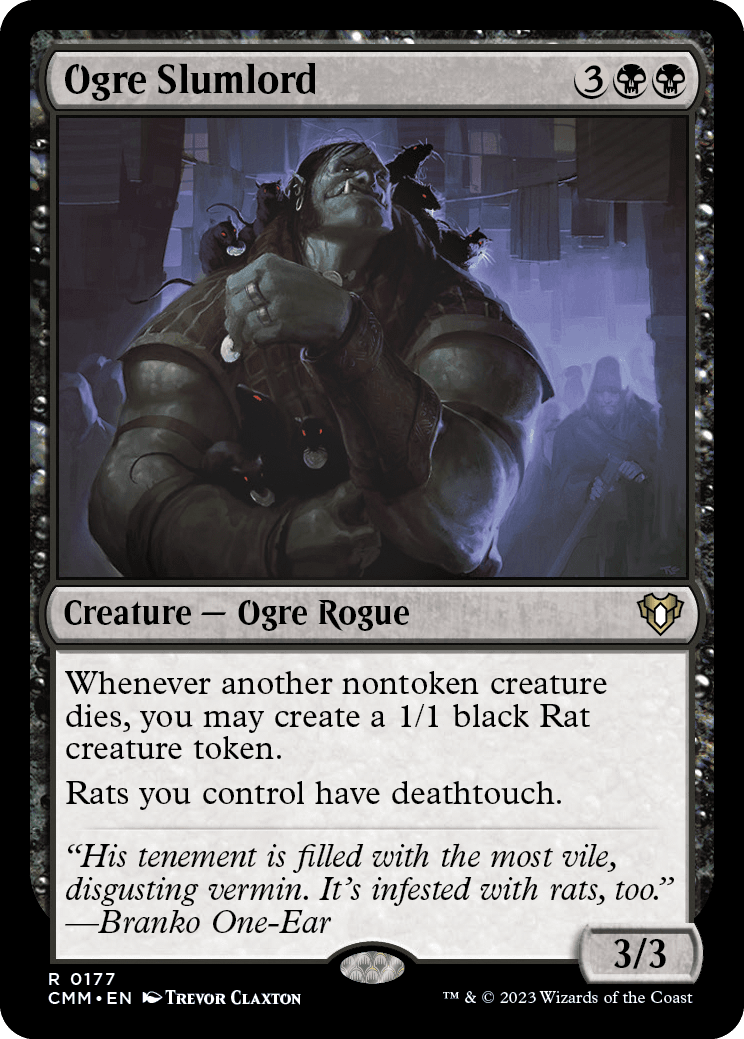
Ogre Slumlord
{3}{B}{B}
Creature — Ogre Rogue
3/3
Whenever another nontoken creature dies, you may create a 1/1 black Rat creature token.
Rats you control have deathtouch.
- All Rats you control have deathtouch while Ogre Slumlord is on the battlefield, not just the ones created by Ogre Slumlord.
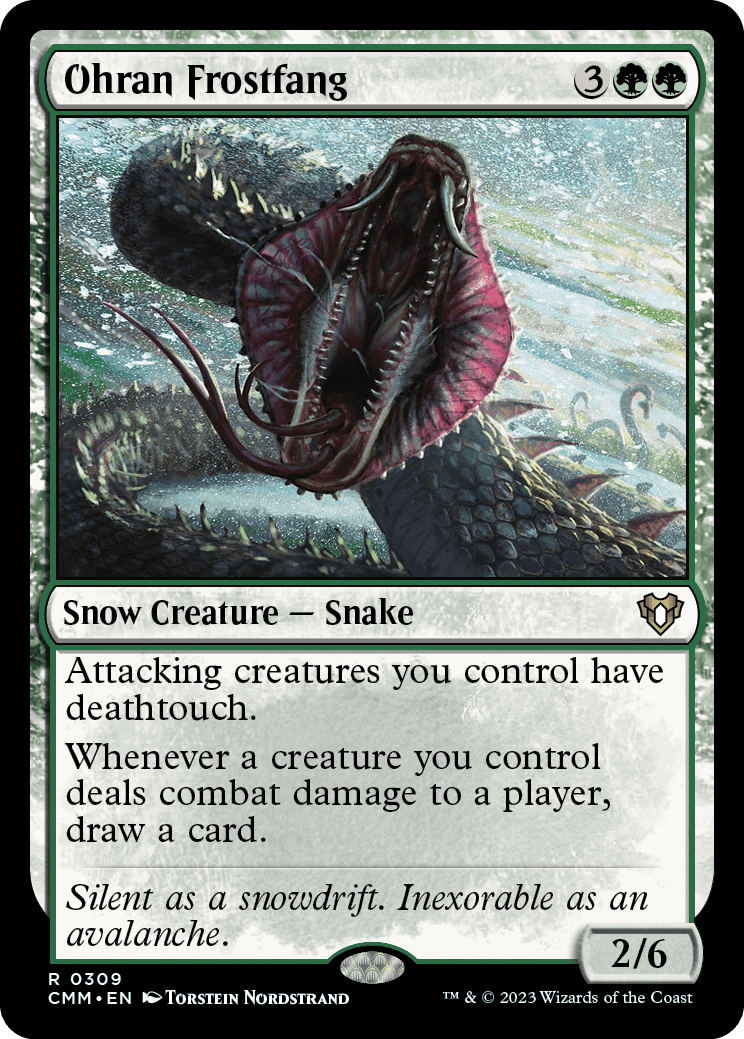
Ohran Frostfang
{3}{G}{G}
Snow Creature — Snake
2/6
Attacking creatures you control have deathtouch.
Whenever a creature you control deals combat damage to a player, draw a card.
- Snow is a supertype, not a card type. It has no rules meaning or function by itself, but other cards and abilities may refer to it.
- If one or more creatures you control deal combat damage to players at the same time that lethal damage is dealt to Ohran Frostfang, its ability triggers for each of those creatures.
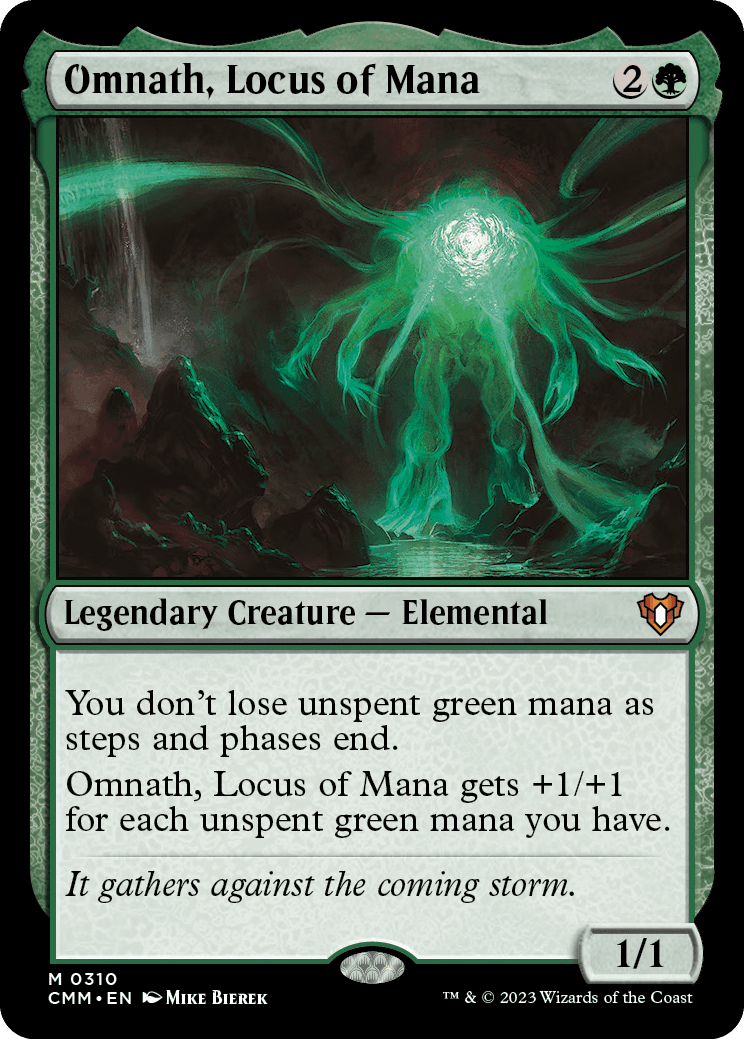
Omnath, Locus of Mana
{2}{G}
Legendary Creature — Elemental
1/1
You don't lose unspent green mana as steps and phases end.
Omnath, Locus of Mana gets +1/+1 for each unspent green mana you have.
- You can keep green mana in your mana pool indefinitely while Omnath is on the battlefield. That means if you add a green mana to your mana pool during one step or phase, you can spend it during a later step or phase, or even a later turn. Other types of mana will continue to empty from your mana pool as each step and phase ends.
- If a green mana you add to your mana pool has certain restrictions or riders associated with it (for example, if it was produced by Ancient Ziggurat), they'll apply to that mana no matter when you spend it.
- Once Omnath leaves the battlefield, you have until the end of the current step or phase to spend whatever green mana is in your mana pool before it too empties as normal. There is no penalty associated with this other than the loss of the mana.
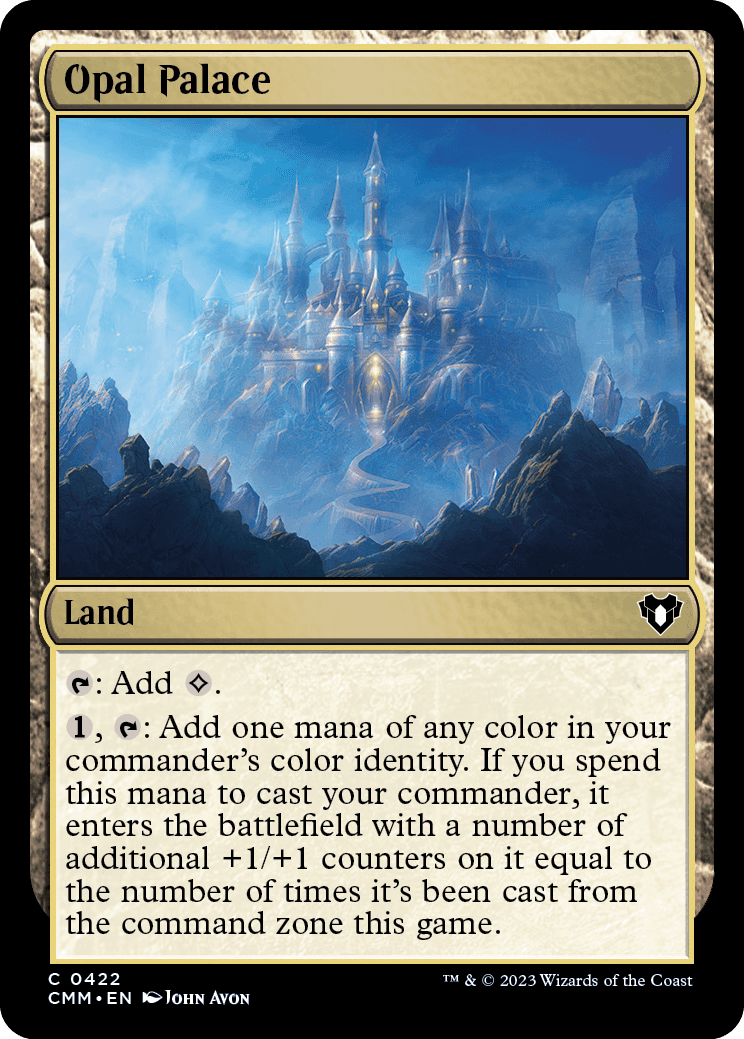
Opal Palace
Land
{T}: Add {C}.
{1}, {T}: Add one mana of any color in your commander's color identity. If you spend this mana to cast your commander, it enters the battlefield with a number of additional +1/+1 counters on it equal to the number of times it's been cast from the command zone this game.
- If you have two commanders, the last ability adds one mana of any color in their combined color identities.
- If your commander is a card that has no colors in its color identity, Opal Palace's last ability produces no mana. It doesn't produce {C}.
- If you don't have a commander, Opal Palace's last ability produces no mana.
- The "number of times it's been cast from the command zone" includes the most recent time. For example, the first time you cast your commander from the command zone in a game, if you spent mana from Opal Palace's last ability to do so, it will enter the battlefield with a +1/+1 counter.
- If Opal Palace's last ability produces two mana (most likely due to Mana Reflection) and you spend them to cast a commander, that commander enters with two counters for each time it's been cast from the command zone this game.
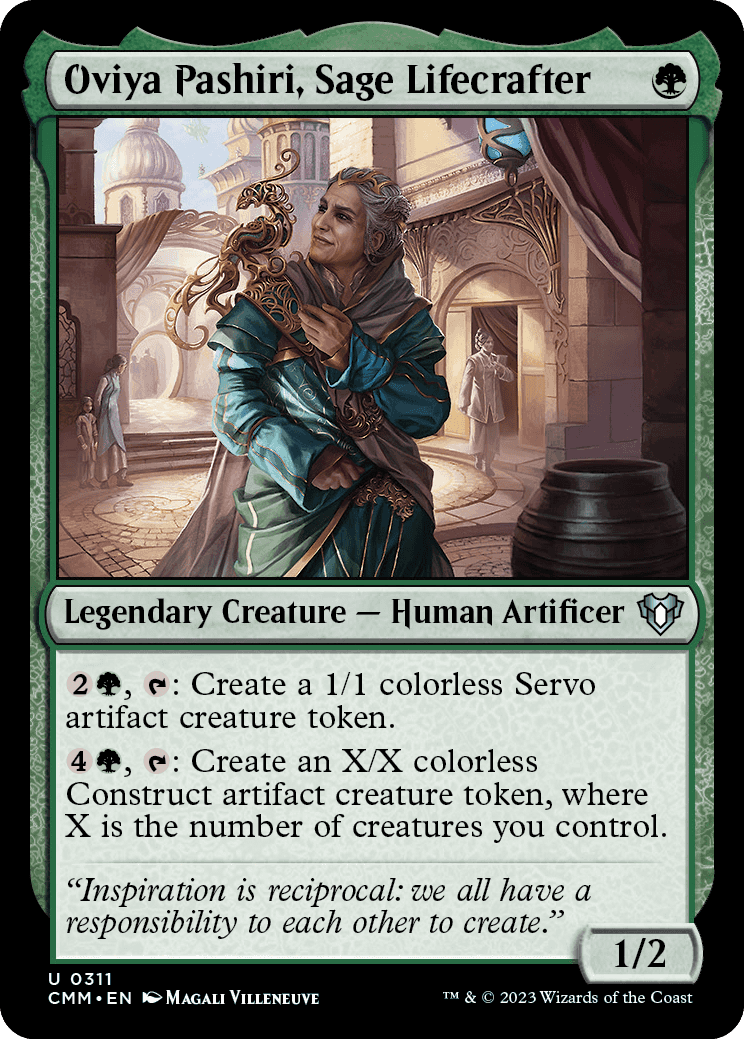
Oviya Pashiri, Sage Lifecrafter
{G}
Legendary Creature — Human Artificer
1/2
{2}{G}, {T}: Create a 1/1 colorless Servo artifact creature token.
{4}{G}, {T}: Create an X/X colorless Construct artifact creature token, where X is the number of creatures you control.
- The value of X is determined only as Oviya Pashiri's last ability resolves. The token's power and toughness won't change as the number of creatures you control changes.
- The Construct token you're creating doesn't count towards X for the ability that creates it.
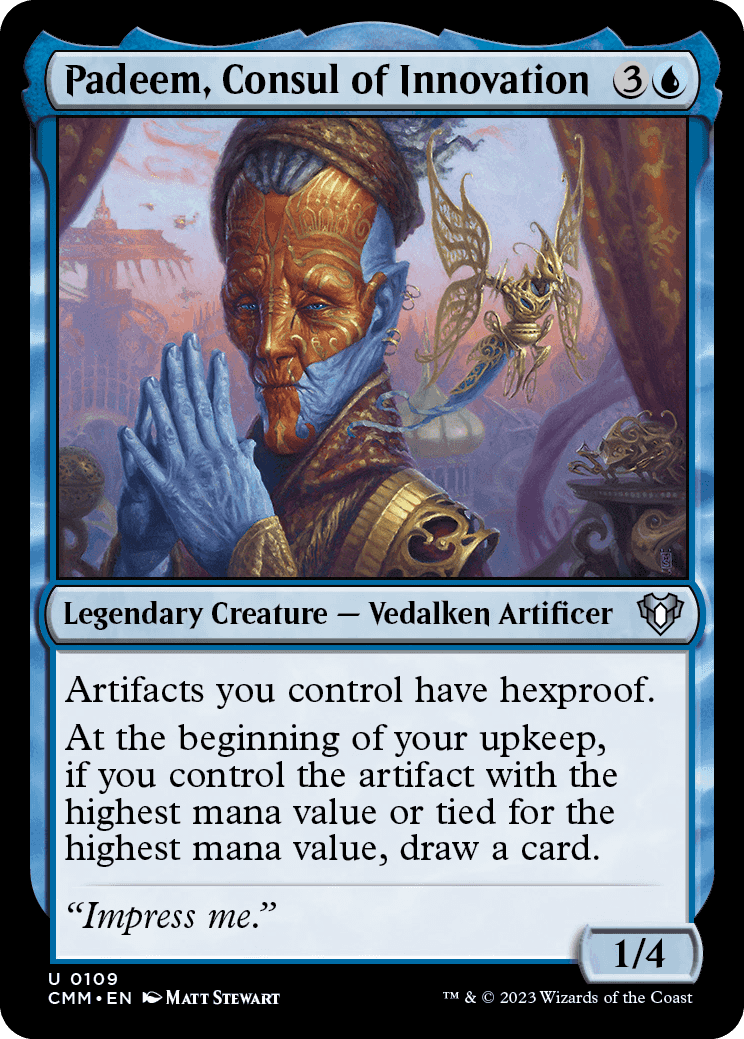
Padeem, Consul of Innovation
{3}{U}
Legendary Creature — Vedalken Artificer
1/4
Artifacts you control have hexproof.
At the beginning of your upkeep, if you control the artifact with the highest mana value or tied for the highest mana value, draw a card.
- The artifact you control has to have the highest mana value only among artifacts on the battlefield, not among all permanents on the battlefield.
- If an artifact has {X} in its mana cost, X is considered to be 0.
- If you don't control an artifact with the highest mana value as your upkeep begins, Padeem's second ability won't trigger. You can't cast an instant to destroy an opponent's artifact during your turn before your upkeep begins.
- If you no longer control an artifact with the highest mana value as Padeem's triggered ability resolves, you don't draw a card.
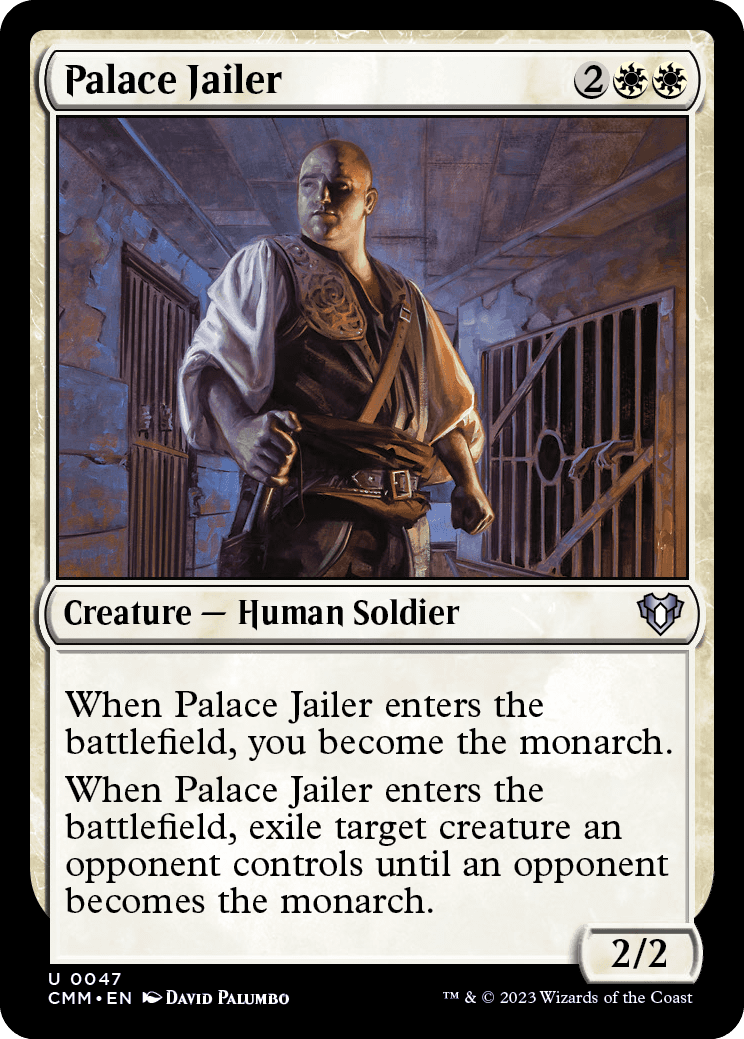
Palace Jailer
{2}{W}{W}
Creature — Human Soldier
2/2
When Palace Jailer enters the battlefield, you become the monarch.
When Palace Jailer enters the battlefield, exile target creature an opponent controls until an opponent becomes the monarch.
- If you're not the monarch as Palace Jailer's second ability resolves, the creature will be exiled until there's a new monarch and that player is one of your opponents. The creature won't immediately return just because an opponent is the monarch.
- Auras attached to the exiled creature will be put into their owners' graveyards. Equipment attached to the exiled creature will become unattached and remain on the battlefield. Counters on the exiled creature will cease to exist.
- If a creature token is exiled, it ceases to exist. It won't return to the battlefield.
- Palace Jailer leaving the battlefield won't cause the exiled creature to return. The game will continue to watch for the next time an opponent becomes the monarch.
- The opponent that controlled the exiled card doesn't have to be the same opponent that becomes the monarch in order to cause that card to return to the battlefield. Any opponent becoming the monarch will cause the card to return.
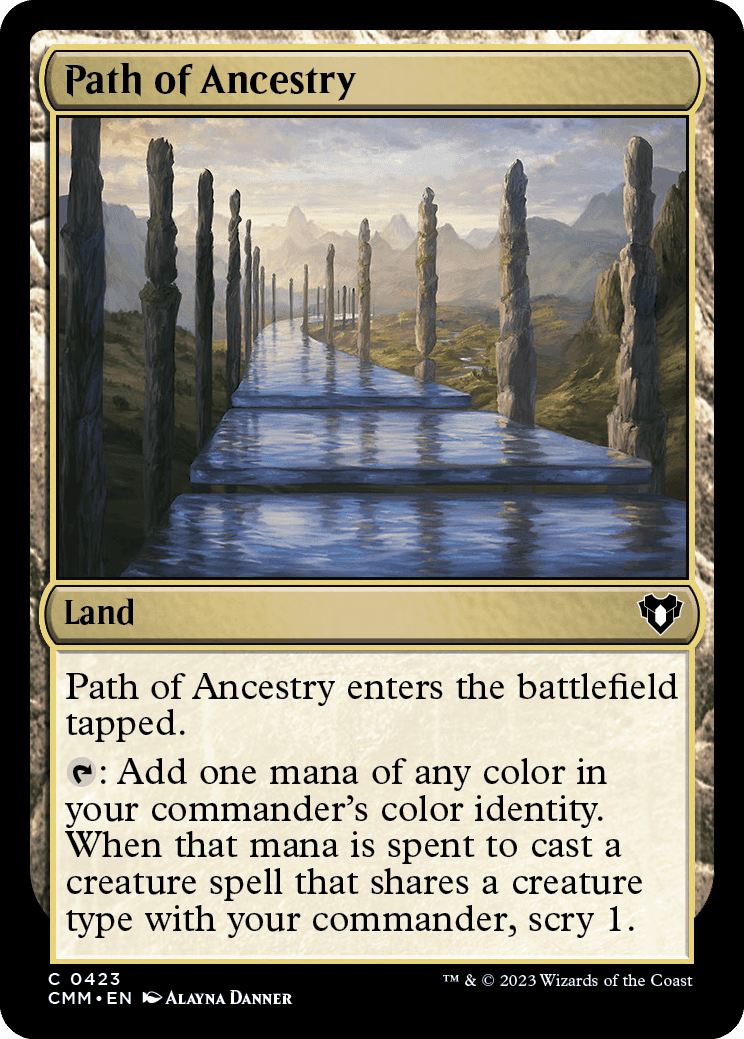
Path of Ancestry
Land
Path of Ancestry enters the battlefield tapped.
{T}: Add one mana of any color in your commander's color identity. When that mana is spent to cast a creature spell that shares a creature type with your commander, scry 1.
- If you have two commanders, the last ability adds one mana of any color in their combined color identities. When you spend that mana on a creature spell that shares a creature type with either of your commanders, you'll scry 1.
- Your commander's creature types are checked immediately after you cast a creature spell spending mana from Path of Ancestry's last ability. They aren't set before the game begins, and they may not be the same types your commander had when you activated that ability.
- If your commander is a card that has no colors in its color identity, Path of Ancestry's ability produces no mana. It doesn't produce {C}.
- If you don't have a commander, Path of Ancestry's ability produces no mana.
- If you cast your commander with mana from Path of Ancestry, and your commander hasn't somehow lost all of its creature types while on the stack, you'll scry 1.
- If your commander has no creature types, it can't share a creature type with any spell that you cast.
- If Path of Ancestry's last ability produces two mana (most likely due to Mana Reflection), spending those two mana to cast creature spells that share a creature type with your commander will cause two abilities to trigger. Each of those abilities will cause you to scry 1. You won't scry 2. This is true whether you spend the mana on one creature spell or two.
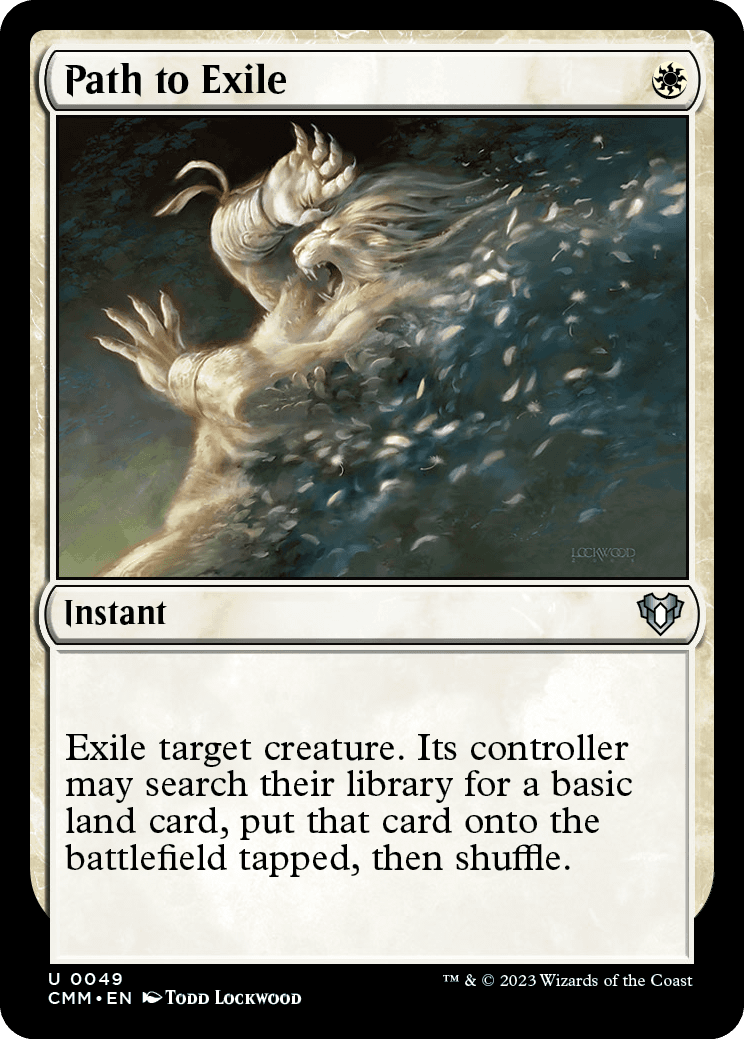
Path to Exile
{W}
Instant
Exile target creature. Its controller may search their library for a basic land card, put that card onto the battlefield tapped, then shuffle.
- If the target creature is an illegal target by the time Path to Exile tries to resolve, the spell won't resolve. The creature's controller won't search for a basic land card.
- The controller of the exiled creature isn't required to search their library for a basic land. If that player doesn't, the player won't shuffle their library.
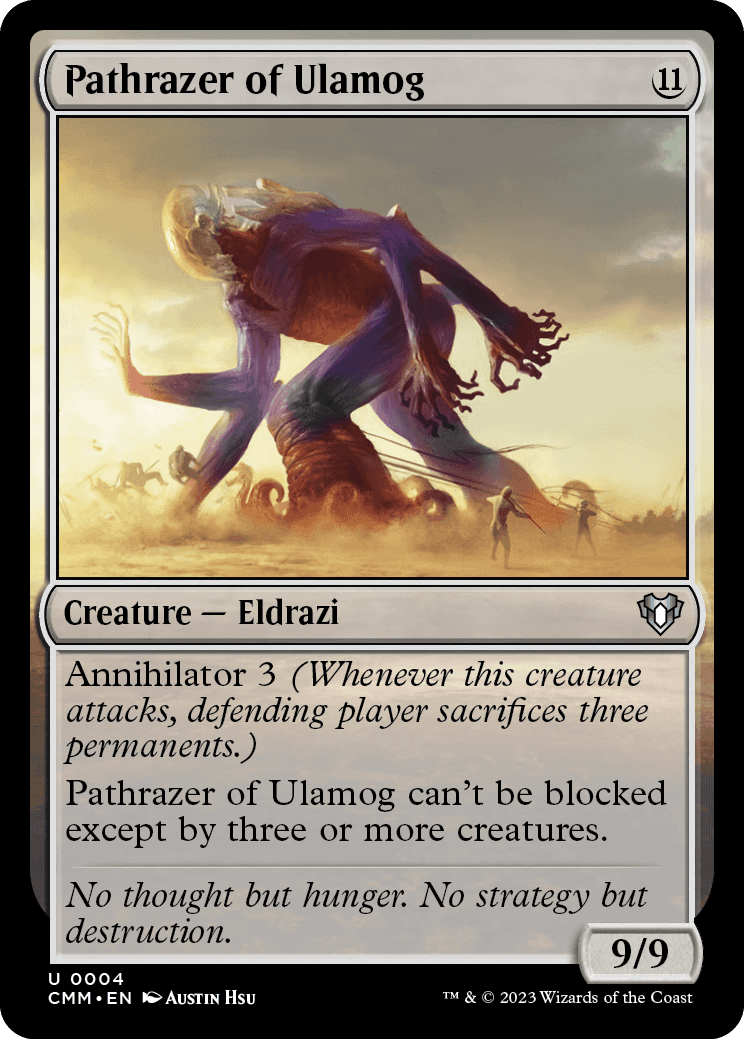
Pathrazer of Ulamog
{11}
Creature — Eldrazi
9/9
Annihilator 3 (Whenever this creature attacks, defending player sacrifices three permanents.)
Pathrazer of Ulamog can't be blocked except by three or more creatures.
- Annihilator abilities trigger and resolve during the declare attackers step. The defending player chooses and sacrifices the required number of permanents before they declare blockers. Any creatures sacrificed this way won't be able to block.
- If a creature with annihilator is attacking a planeswalker, and the defending player chooses to sacrifice that planeswalker, the attacking creature continues to attack. It may be blocked. If it isn't blocked, it simply won't deal combat damage to anything.
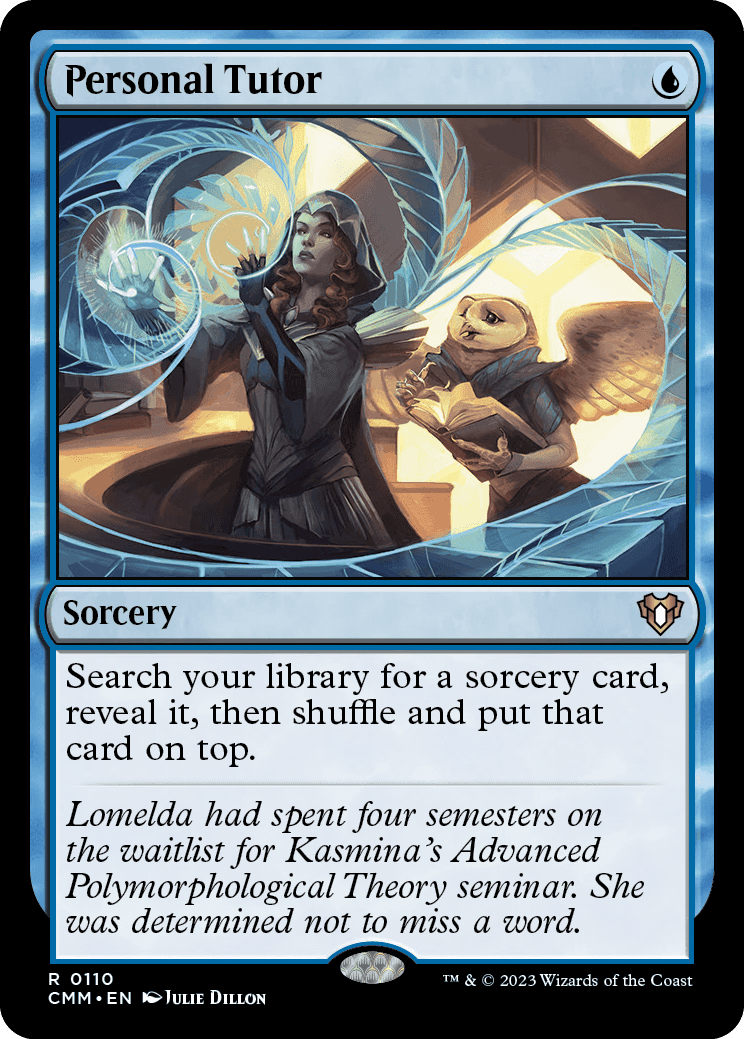
Personal Tutor
{U}
Sorcery
Search your library for a sorcery card, reveal it, then shuffle and put that card on top.
- Because the "search" requires you to find a card with certain characteristics, you don't have to find the card if you don't want to.
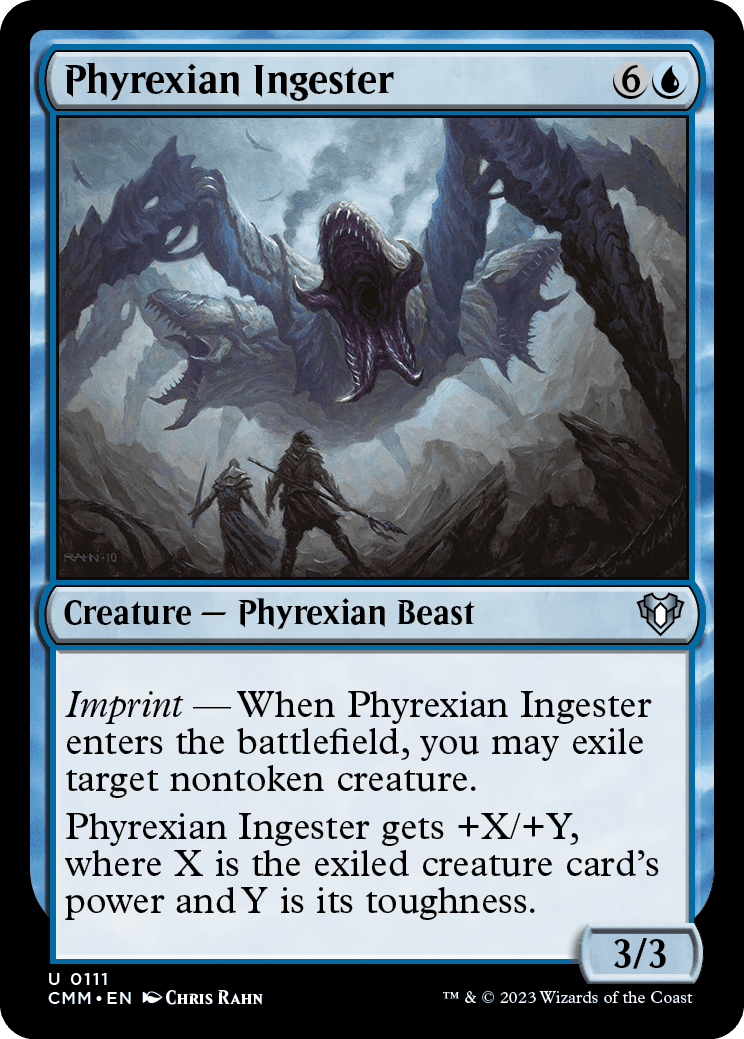
Phyrexian Ingester
{6}{U}
Creature — Phyrexian Beast
3/3
Imprint — When Phyrexian Ingester enters the battlefield, you may exile target nontoken creature.
Phyrexian Ingester gets +X/+Y, where X is the exiled creature card's power and Y is its toughness.
- Phyrexian Ingester will get bonuses based on the card's power and toughness in exile. Counters, Auras, and Equipment it had on it before it was exiled won't add to those numbers.
- Abilities that define a creature's power and toughness apply while that card is in exile, but abilities that add or subtract from it don't. For example, the ability of Filigree Attendant applies to determine Phyrexian Ingester's power and toughness, but the ability of Angelic Field Marshal doesn't. Phyrexian Ingester's power and toughness are constantly updated if the exiled card's power and/or toughness change.
- If the card in exile isn't a creature card (perhaps because it was a land that was temporarily a creature while on the battlefield), Phyrexian Ingester doesn't get a bonus.
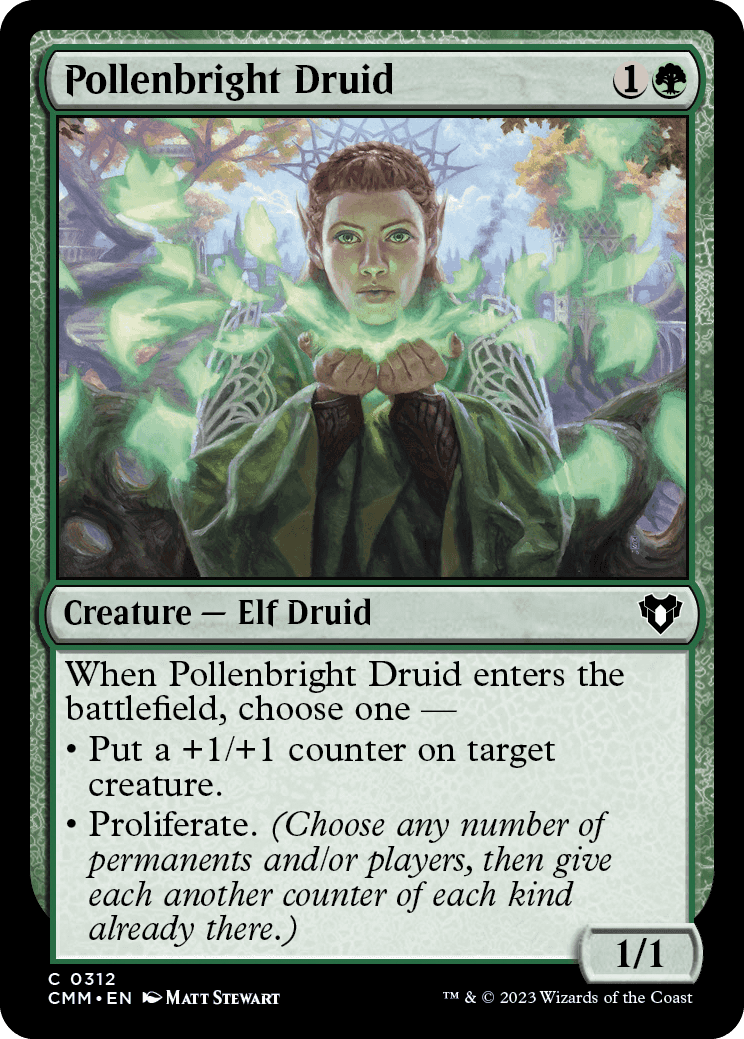
Pollenbright Druid
{1}{G}
Creature — Elf Druid
1/1
When Pollenbright Druid enters the battlefield, choose one —
• Put a +1/+1 counter on target creature.
• Proliferate. (Choose any number of permanents and/or players, then give each another counter of each kind already there.)
- You may choose Pollenbright Druid as the target of its own ability.
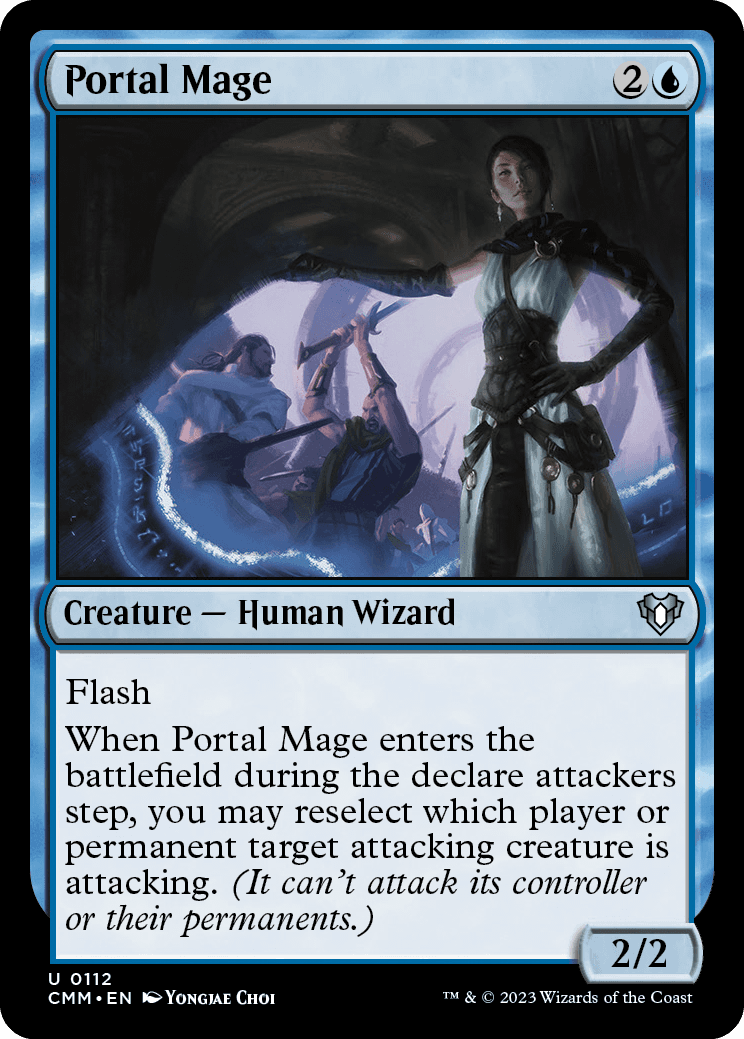
Portal Mage
{2}{U}
Creature — Human Wizard
2/2
Flash
When Portal Mage enters the battlefield during the declare attackers step, you may reselect which player or permanent target attacking creature is attacking. (It can't attack its controller or their permanents.)
- You may cast Portal Mage outside of a declare attackers step. If Portal Mage enters the battlefield outside of a declare attackers step, its ability simply doesn't trigger.
- Reselecting which player or permanent a creature is attacking ignores all requirements, restrictions, and costs associated with attacking.
- Reselecting which player or permanent a creature is attacking doesn't cause "whenever this creature attacks" abilities to trigger.
- If you reselect which player or permanent an attacking creature is attacking, that creature is still considered to have attacked the player or permanent as declared, but it is now attacking the new player or permanent.
- If an ability targets something controlled by the "defending player" of an attacking creature and the defending player for that creature changes before that ability resolves, the ability won't resolve because its target has become illegal.
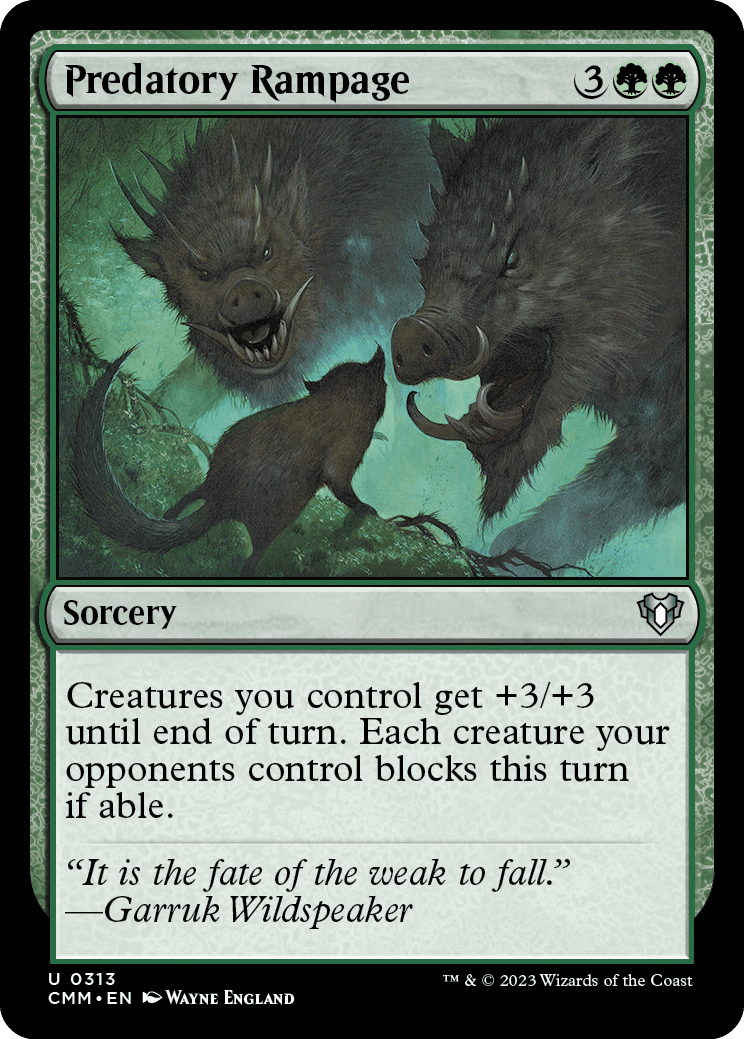
Predatory Rampage
{3}{G}{G}
Sorcery
Creatures you control get +3/+3 until end of turn. Each creature your opponents control blocks this turn if able.
- Only creatures you control when Predatory Rampage resolves will get +3/+3. Creatures that enter the battlefield or that you gain control of later in the turn are unaffected.
- Each creature your opponents control blocks if able, even if that creature wasn't on the battlefield or wasn't controlled by an opponent when Predatory Rampage resolved.
- Predatory Rampage doesn't force any creature to attack.
- Each creature controlled by an opponent blocks only if it's able to do so as the declare blockers step begins. If, at that time, the creature is tapped, is affected by a spell or ability that says it can't block, or no creatures are attacking that player, a planeswalker controlled by that player, or a battle that player protects, then it doesn't block. If there's a cost associated with having the creature block, the player isn't forced to pay that cost, so it doesn't block in that case either.
- Your opponent still chooses which attacking creature each creature they control blocks.
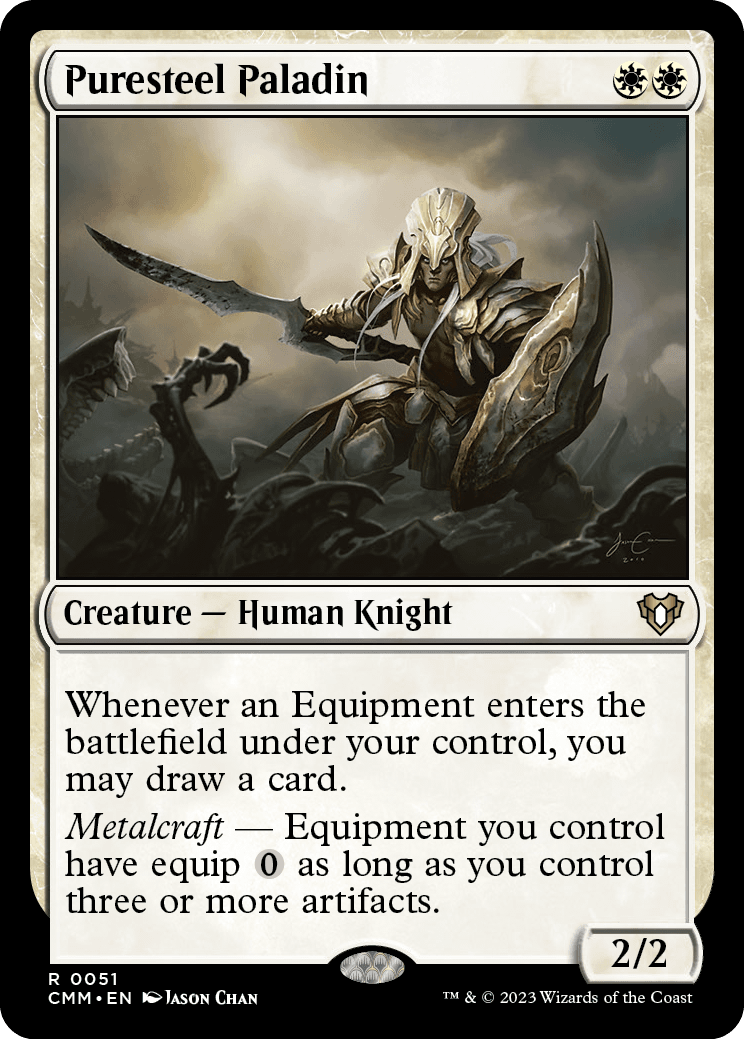
Puresteel Paladin
{W}{W}
Creature — Human Knight
2/2
Whenever an Equipment enters the battlefield under your control, you may draw a card.
Metalcraft — Equipment you control have equip {0} as long as you control three or more artifacts.
- You may still activate the Equipment's other equip abilities if you wish.
- Once the equip {0} ability is activated, causing Puresteel Paladin to leave the battlefield or causing its controller to control fewer than three artifacts won't stop the equip ability from resolving.
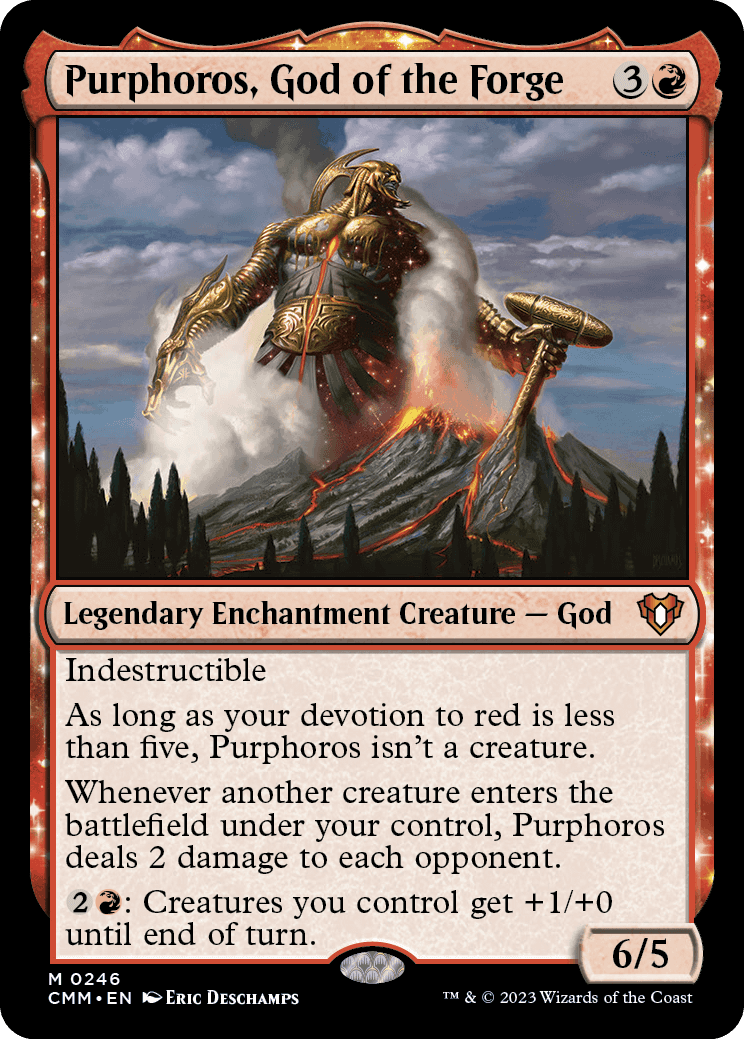
Purphoros, God of the Forge
{3}{R}
Legendary Enchantment Creature — God
6/5
Indestructible
As long as your devotion to red is less than five, Purphoros isn't a creature.
Whenever another creature enters the battlefield under your control, Purphoros deals 2 damage to each opponent.
{2}{R}: Creatures you control get +1/+0 until end of turn.
- Numeric mana symbols ({0}, {1}, and so on) in mana costs of permanents you control don't count toward your devotion to any color.
- Mana symbols in the text boxes of permanents you control don't count toward your devotion to any color.
- Hybrid mana symbols, monocolored hybrid mana symbols, and Phyrexian mana symbols do count toward your devotion to their color(s).
- If an activated ability or triggered ability has an effect that depends on your devotion to a color, you count the number of mana symbols of that color among the mana costs of permanents you control as the ability resolves. The permanent with that ability will be counted if it's still on the battlefield at that time.
- The type-changing ability that can make a God not be a creature functions only on the battlefield. It's always a creature card in other zones, regardless of your devotion to its color. It's always a creature spell while it's on the stack.
- As a God enters the battlefield, your devotion to its color will determine whether any replacement effects that affect creatures entering the battlefield apply to that God. Because replacement effects are considered before the God is on the battlefield, the mana symbols in its mana cost won't be counted when determining this.
- When a God enters the battlefield, your devotion to its color (including the mana symbols in the mana cost of the God itself) will determine if a creature entered the battlefield or not for abilities that trigger whenever a creature enters the battlefield.
- If a God stops being a creature, it loses the type creature and the creature type God. It continues to be a legendary enchantment.
- The abilities of Gods function as long as they're on the battlefield, regardless of whether they're creatures.
- If a God is attacking or blocking and it stops being a creature, it will be removed from combat. It won't rejoin combat if it resumes being a creature later during that combat.
- Counters put on a God remain on it while it's not a creature, even if they have no effect.
- If an effect causes a God to lose all abilities, its ability that causes it to stop being a creature still applies if appropriate.

Queen Marchesa
{1}{R}{W}{B}
Legendary Creature — Human Assassin
3/3
Deathtouch, haste
When Queen Marchesa enters the battlefield, you become the monarch.
At the beginning of your upkeep, if an opponent is the monarch, create a 1/1 black Assassin creature token with deathtouch and haste.
- The last ability of Queen Marchesa (long may she reign) checks to see if an opponent is the monarch as your upkeep begins. If no opponent is the monarch, Queen Marchesa's (long may she reign) ability won't trigger at all. Queen Marchesa's (long may she reign) ability will also check to see if an opponent is the monarch as it tries to resolve. If no opponent is the monarch at that time, Queen Marchesa's (long may she reign) ability will have no effect.
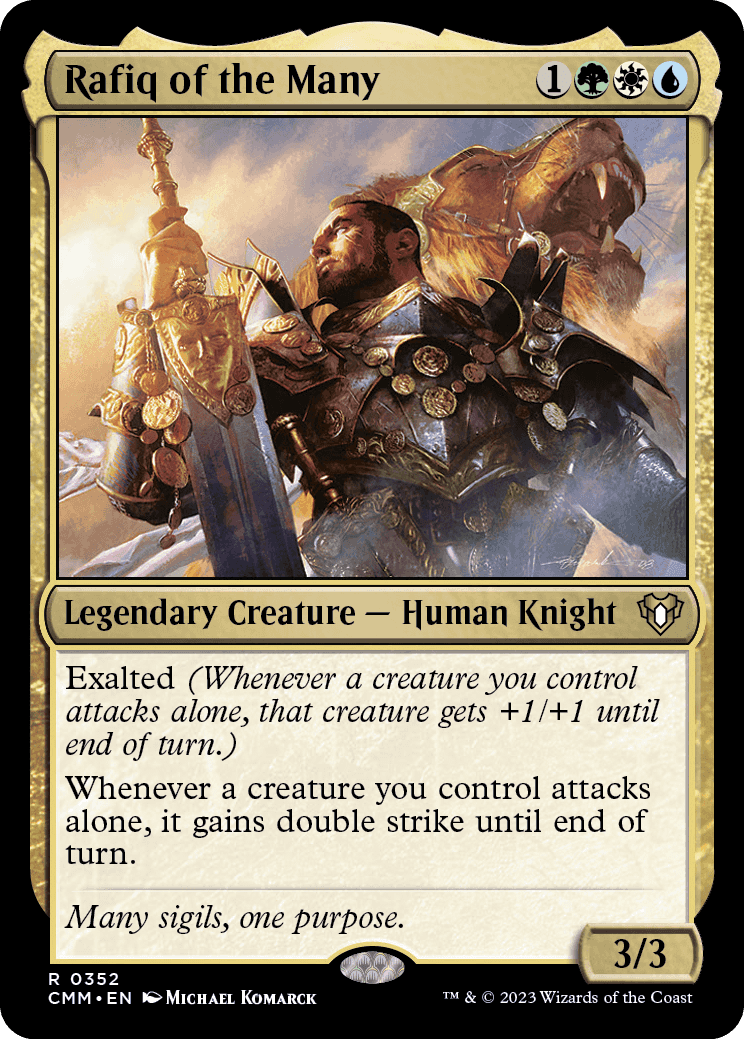
Rafiq of the Many
{1}{G}{W}{U}
Legendary Creature — Human Knight
3/3
Exalted (Whenever a creature you control attacks alone, that creature gets +1/+1 until end of turn.)
Whenever a creature you control attacks alone, it gains double strike until end of turn.
- If you declare exactly one creature as an attacker, each exalted ability on each permanent you control (including, perhaps, the attacking creature itself) will trigger. The bonuses are given to the attacking creature, not to the permanent with exalted. Ultimately, the attacking creature will wind up with +1/+1 for each of your exalted abilities.
- If you attack with multiple creatures, but then all but one are removed from combat, your exalted abilities won't trigger.
- Some effects put creatures onto the battlefield attacking. Since those creatures were never declared as attackers, they're ignored by exalted abilities. They won't cause exalted abilities to trigger. If any exalted abilities have already triggered (because exactly one creature was declared as an attacker), those abilities will resolve as normal even though there may now be multiple attackers.
- Exalted abilities will resolve before blockers are declared.
- Exalted bonuses last until end of turn. If an effect creates an additional combat phase during your turn, a creature that attacked alone during the first combat phase will still have its exalted bonuses in that new phase. If a creature attacks alone during the second combat phase, all your exalted abilities will trigger again.
- In a Two-Headed Giant game, a creature "attacks alone" if it's the only creature declared as an attacker by your entire team. If you control that attacking creature, your exalted abilities will trigger but your teammate's exalted abilities won't.
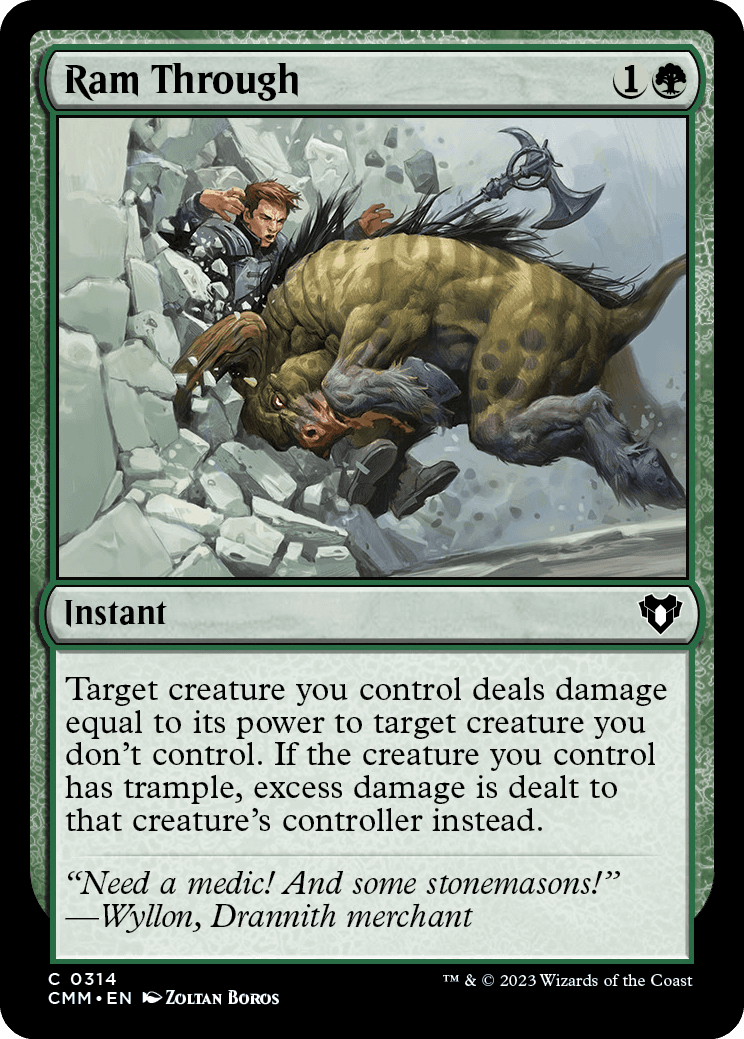
Ram Through
{1}{G}
Instant
Target creature you control deals damage equal to its power to target creature you don't control. If the creature you control has trample, excess damage is dealt to that creature's controller instead.
- If either creature is an illegal target as Ram Through tries to resolve, the creature you control won't deal damage to any creature or player.
- Excess damage caused by a spell or ability is similar to how combat damage from a creature with trample is handled. Start with the amount of damage being dealt to the creature and determine what is "lethal." This is the creature's toughness minus the amount of damage that it already has marked on it, but ignoring any replacement or prevention effects that will modify this damage. Also ignore whether the creature has an ability such as indestructible that will result in it not being destroyed by this damage.
- If the target creature you control has deathtouch, 1 damage from it is lethal.
- Once you've determined how much damage is excess, the creature you control simultaneously deals damage to the creature and to its controller. This damage may be modified by replacement or prevention effects.
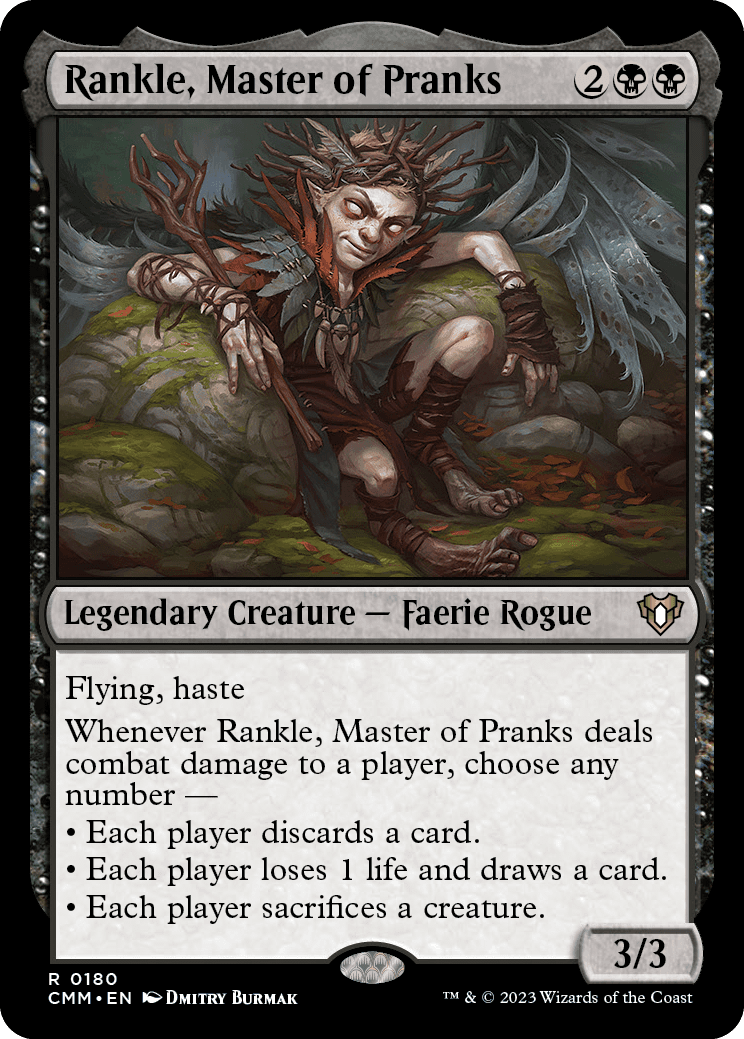
Rankle, Master of Pranks
{2}{B}{B}
Legendary Creature — Faerie Rogue
3/3
Flying, haste
Whenever Rankle, Master of Pranks deals combat damage to a player, choose any number —
• Each player discards a card.
• Each player loses 1 life and draws a card.
• Each player sacrifices a creature.
- If you really want, you can choose zero modes for Rankle's triggered ability, but carefully consider the hidden costs in not entertaining someone titled Master of Pranks.
- You can't choose a mode more than once.
- You can choose a mode even if some or all players will be unaffected.
- For each chosen mode, perform that mode in its entirety before continuing on to the next chosen mode in the order printed.
- As the first mode is performed, first the player whose turn it is chooses a card in hand without revealing it, then each other player in turn order does the same. Then all the chosen cards are discarded at the same time.
- As the third mode is performed, first the player whose turn it is chooses a creature they control, then each other player in turn order does the same, knowing the choices made before them. Then all the chosen creatures are sacrificed at the same time.
- In a Two-Headed Giant game, Rankle's second mode causes each team to lose 1 life twice.
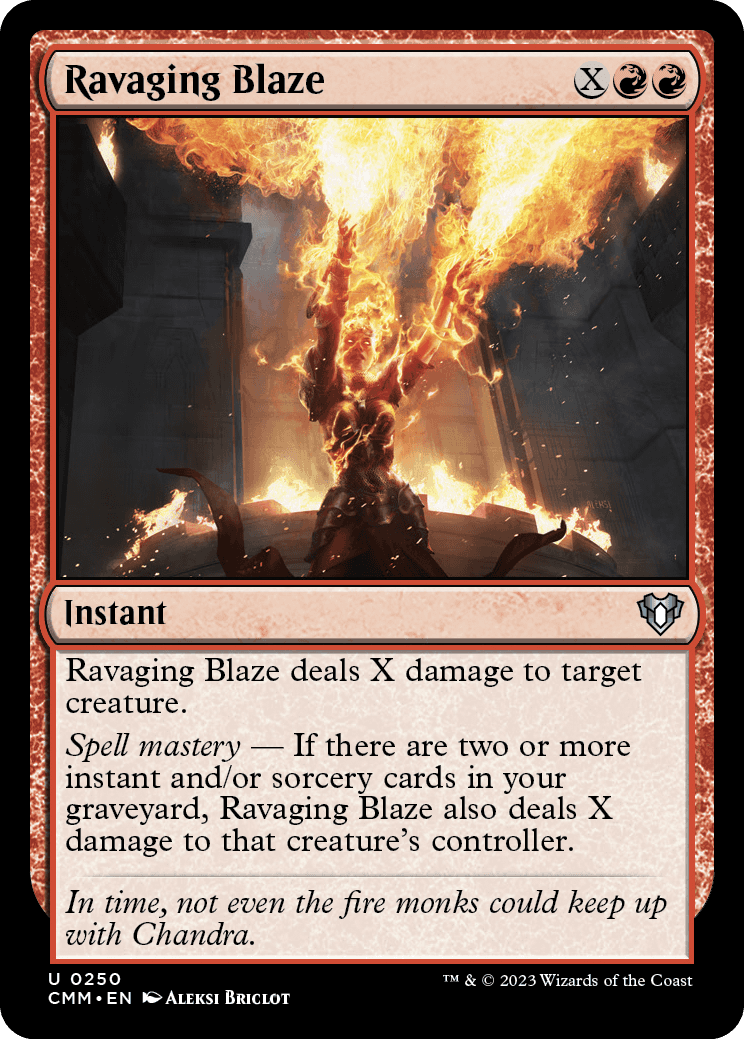
Ravaging Blaze
{X}{R}{R}
Instant
Ravaging Blaze deals X damage to target creature.
Spell mastery — If there are two or more instant and/or sorcery cards in your graveyard, Ravaging Blaze also deals X damage to that creature's controller.
- Ravaging Blaze targets only the creature. It doesn't target any player, even if the spell mastery ability applies.
- If the creature becomes an illegal target by the time Ravaging Blaze tries to resolve, Ravaging Blaze won't resolve and none of its effects will happen. No damage will be dealt to the creature or its controller.
- Check to see if there are two or more instant and/or sorcery cards in your graveyard as the spell resolves to determine whether the spell mastery ability applies. The spell itself won't count because it's still on the stack as you make this check.
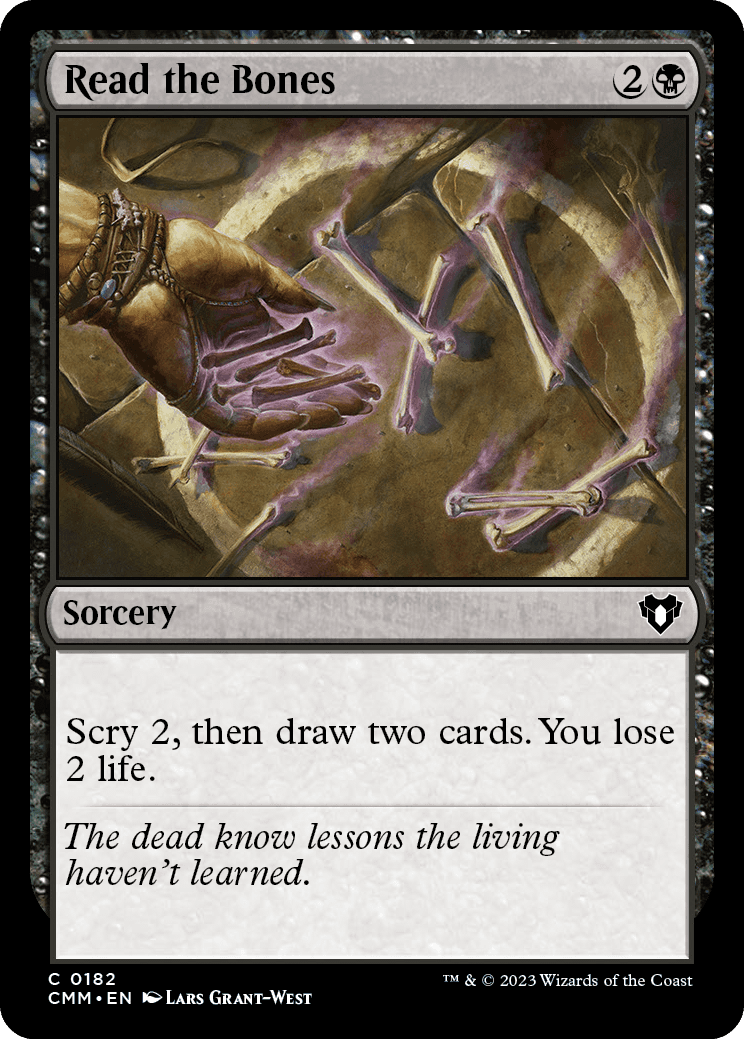
Read the Bones
{2}{B}
Sorcery
Scry 2, then draw two cards. You lose 2 life.
- The loss of life is part of the spell's effect. It's not an additional cost. If Read the Bones doesn't resolve, you won't lose life.
- When you scry, you may put all the cards you look at back on top of your library, you may put all of those cards on the bottom of your library, or you may put some of those cards on top and the rest of them on the bottom.
- You choose how to order cards returned to your library after scrying no matter where you put them.
- You perform the actions stated on a card in sequence. For some spells and abilities, that means you'll scry last. For others, that means you'll scry and then perform other actions.
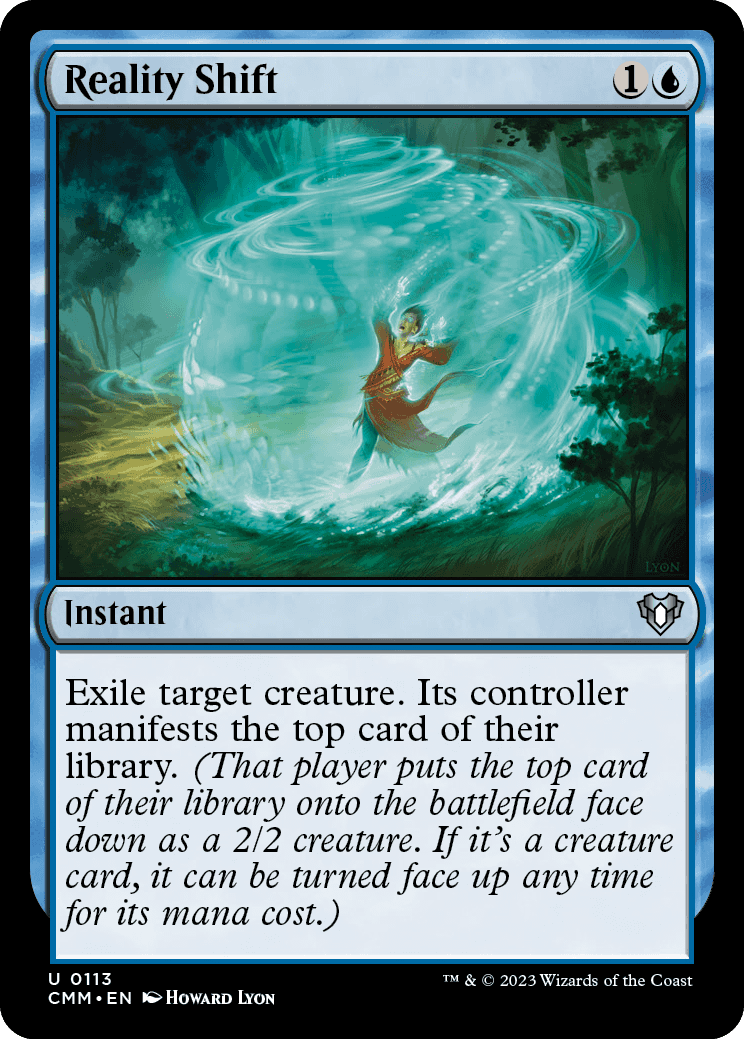
Reality Shift
{1}{U}
Instant
Exile target creature. Its controller manifests the top card of their library. (That player puts the top card of their library onto the battlefield face down as a 2/2 creature. If it's a creature card, it can be turned face up any time for its mana cost.)
- The face-down permanent is a 2/2 creature with no name, mana cost, creature types, or abilities. It's colorless and has a mana value of 0. Other effects that apply to the permanent can still grant or change any of these characteristics.
- Any time you have priority, you may turn a manifested creature face up by revealing that it's a creature card (ignoring any copy effects or type-changing effects that might be applying to it) and paying its mana cost. This is a special action. It doesn't use the stack and can't be responded to.
- If a manifested creature would have morph if it were face up, you may also turn it face up by paying its morph cost.
- Unlike a face-down creature that was cast using the morph ability, a manifested creature may still be turned face up after it loses its abilities if it's a creature card.
- Because the permanent is on the battlefield both before and after it's turned face up, turning a permanent face up doesn't cause any enters-the-battlefield abilities to trigger.
- Because face-down creatures don't have names, they can't have the same name as any other creature, even another face-down creature.
- A permanent that turns face up or face down changes characteristics but is otherwise the same permanent. Spells and abilities that were targeting that permanent, as well as Auras and Equipment that were attached to the permanent, aren't affected.
- Turning a permanent face up or face down doesn't change whether that permanent is tapped or untapped.
- You can look at a face-down permanent you control any time. You can't look at face-down permanents you don't control unless an effect allows you to or instructs you to.
- If a face-down permanent you control leaves the battlefield, you must reveal it. You must also reveal all face-down spells and permanents you control if you leave the game or if the game ends.
- You must ensure that your face-down spells and permanents can easily be differentiated from each other. You're not allowed to mix up the cards that represent them on the battlefield in order to confuse other players. The order they entered the battlefield should remain clear. Common methods for indicating this include using markers or dice, or simply placing them in order on the battlefield. You must also track how each became face down (manifested, cast face down using the morph ability, and so on).
- If something tries to turn a face-down instant or sorcery card on the battlefield face up, reveal that card to show all players it's an instant or sorcery card. The permanent remains on the battlefield face down. Abilities that trigger when a permanent turns face up won't trigger, because even though you revealed the card, it never turned face up.
- If a double-faced card is manifested, it will be put onto the battlefield face down. While face down, a transforming double-faced card can't transform or convert. If the front face of a face down double-faced card is a creature card, you can turn it face up by paying its mana cost. If you do, its front face will be up.
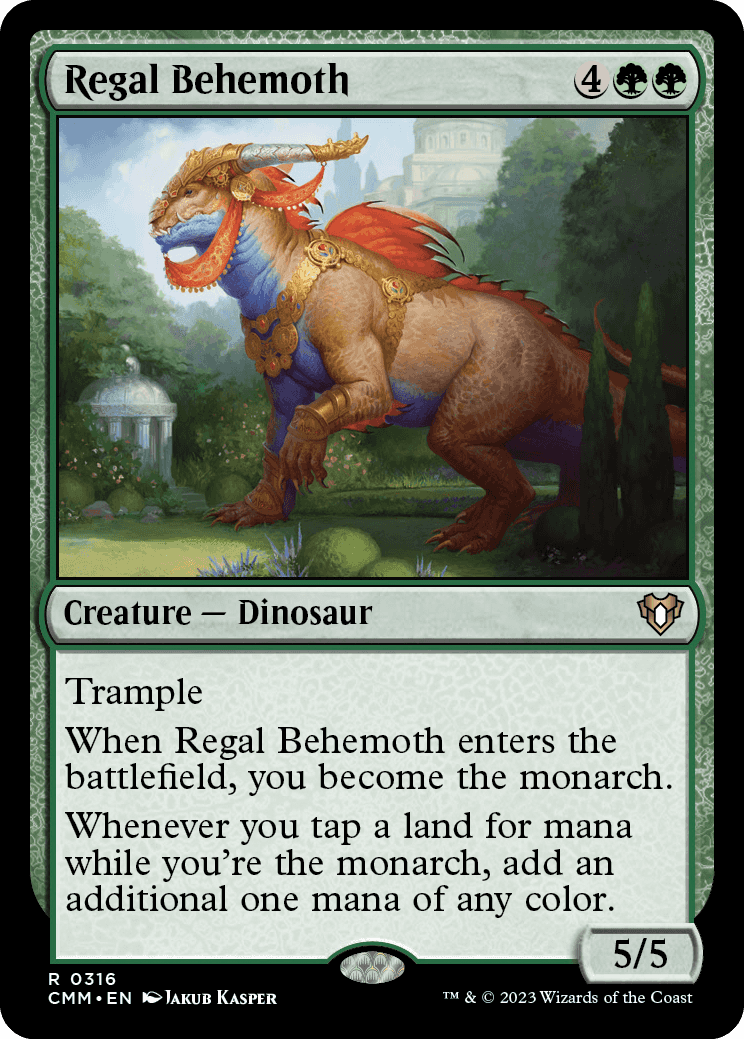
Regal Behemoth
{4}{G}{G}
Creature — Dinosaur
5/5
Trample
When Regal Behemoth enters the battlefield, you become the monarch.
Whenever you tap a land for mana while you're the monarch, add an additional one mana of any color.
- Regal Behemoth's last ability is a triggered mana ability. It doesn't use the stack and can't be responded to.
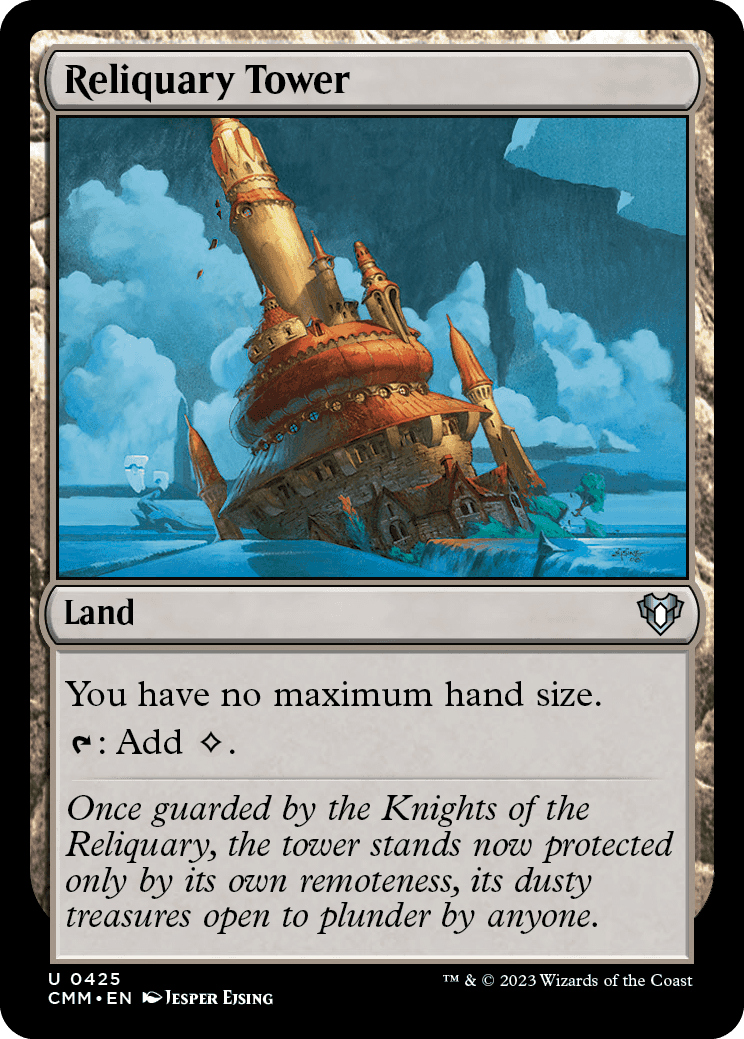
Reliquary Tower
Land
You have no maximum hand size.
{T}: Add {C}.
- If multiple effects modify your hand size, apply them in timestamp order. For example, if you put Null Profusion (an enchantment that says your maximum hand size is two) onto the battlefield and then put Reliquary Tower onto the battlefield, you'll have no maximum hand size. However, if those permanents enter the battlefield in the opposite order, your maximum hand size would be two.
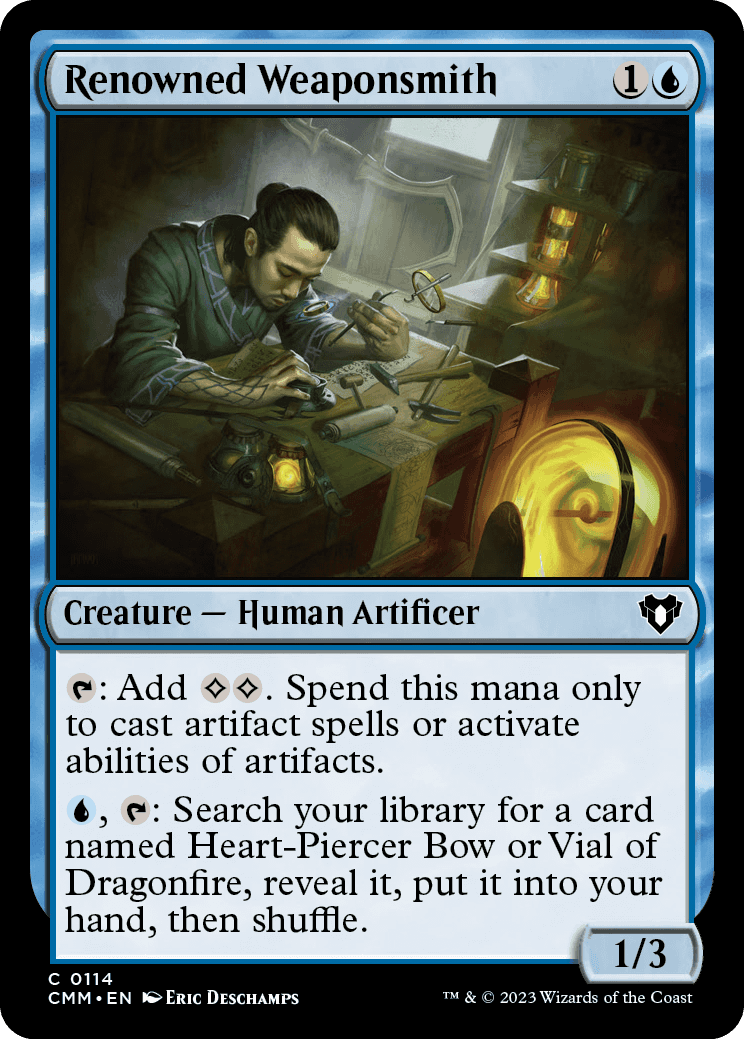
Renowned Weaponsmith
{1}{U}
Creature — Human Artificer
1/3
{T}: Add {C}{C}. Spend this mana only to cast artifact spells or activate abilities of artifacts.
{U}, {T}: Search your library for a card named Heart-Piercer Bow or Vial of Dragonfire, reveal it, put it into your hand, then shuffle.
- Activated abilities contain a colon. They're generally written "[Cost]: [Effect]." Some keyword abilities, such as equip, are activated abilities and will have colons in their reminder text. You can't spend mana added by this ability to pay costs of triggered abilities of artifacts such as the first ability of Dwarven Hammer.
- The mana generated by Renowned Weaponsmith's first ability can't be spent to activate abilities of artifact sources that aren't on the battlefield.
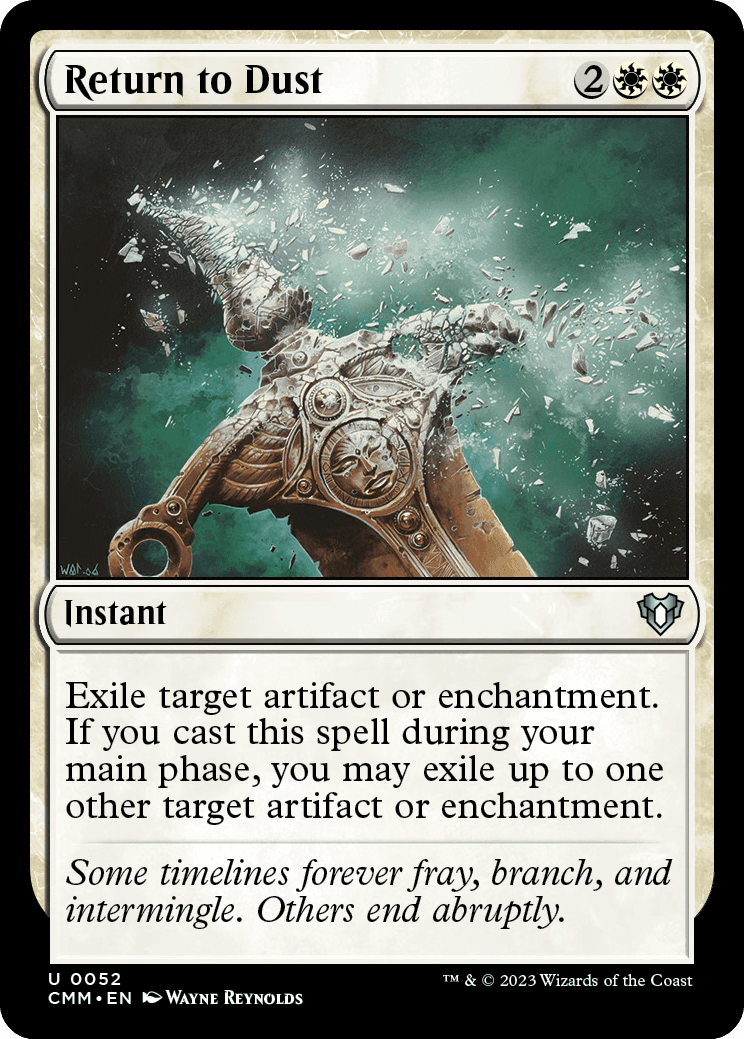
Return to Dust
{2}{W}{W}
Instant
Exile target artifact or enchantment. If you cast this spell during your main phase, you may exile up to one other target artifact or enchantment.
- Return to Dust can always target a second artifact or enchantment; it just won't exile it if it's not your main phase when you cast Return to Dust.
- If a spell or ability copies Return to Dust, the copy exiles only the first target artifact or enchantment. This is because the copy wasn't cast at all.
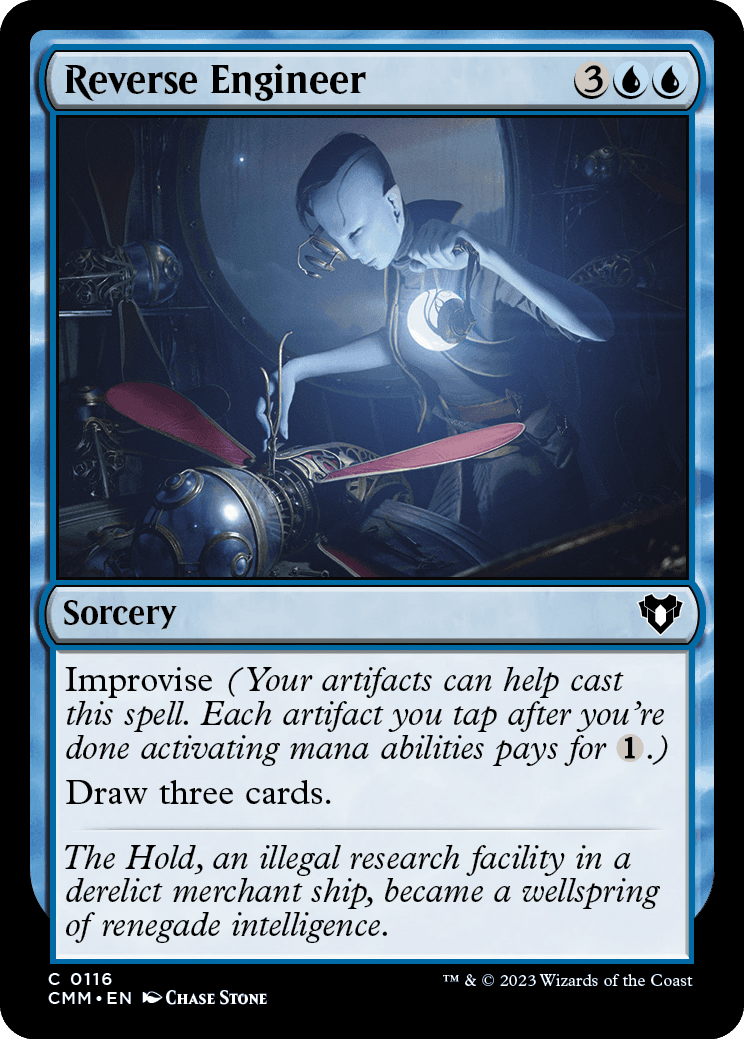
Reverse Engineer
{3}{U}{U}
Sorcery
Improvise (Your artifacts can help cast this spell. Each artifact you tap after you're done activating mana abilities pays for {1}.)
Draw three cards.
- Improvise doesn't change a spell's mana cost or mana value.
- When calculating a spell's total cost, include any alternative costs, additional costs, or anything else that increases or reduces the cost to cast the spell. Improvise applies after the total cost is calculated.
- Improvise can't pay for {W}, {U}, {B}, {R}, {G}, or {C} mana symbols in a spell's total cost.
- Improvise can't be used to pay for anything other than the cost of casting the spell. For example, it can't be used during the resolution of an ability that says "Counter target spell unless its controller pays {3}."
- If an artifact you control has a mana ability with {T} in the cost, activating that ability while casting a spell with improvise will result in the artifact being tapped when you pay the spell's costs. You won't be able to tap it again for improvise. Similarly, if you sacrifice an artifact to activate a mana ability while casting a spell with improvise, that artifact won't be on the battlefield when you pay the spell's costs, so you won't be able to tap it for improvise.
- Tapping an artifact won't cause its abilities to stop applying unless those abilities say so.
- Equipment attached to a creature doesn't become tapped when that creature becomes tapped, and tapping that Equipment doesn't cause the creature to become tapped.
- When using improvise to cast a spell with {X} in its mana cost, first choose the value for X. That choice, plus any cost increases or decreases, will determine the spell's total cost. Then you can tap artifacts you control to help pay that cost. For example, if you cast Saheeli's Directive and choose X to be 3, the total cost is {3}{R}{R}{R}. If you tap two artifacts, you'll have to pay {1}{R}{R}{R}.
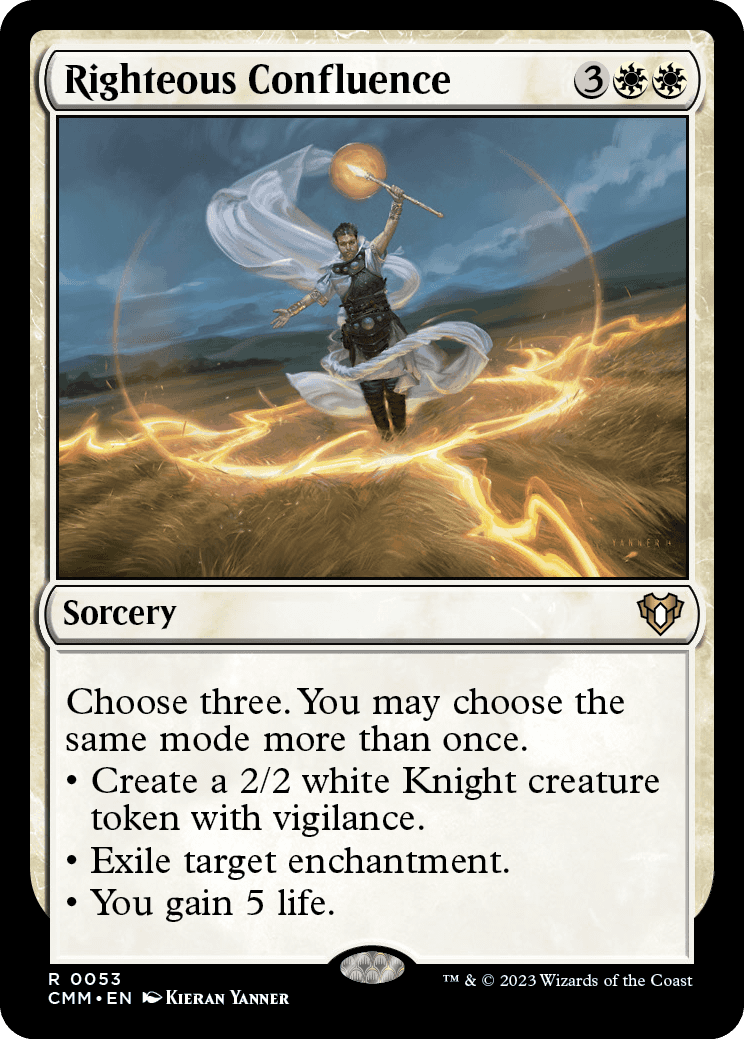
Righteous Confluence
{3}{W}{W}
Sorcery
Choose three. You may choose the same mode more than once.
• Create a 2/2 white Knight creature token with vigilance.
• Exile target enchantment.
• You gain 5 life.
- If the third mode is chosen multiple times, each of those modes represents a separate life-gaining event. For example, if the third mode is chosen three times, and you control Heliod, Sun-Crowned (a creature with the ability "Whenever you gain life, put a +1/+1 counter on target creature or enchantment you control."), Heliod's ability will trigger three times, for a total of three +1/+1 counters.
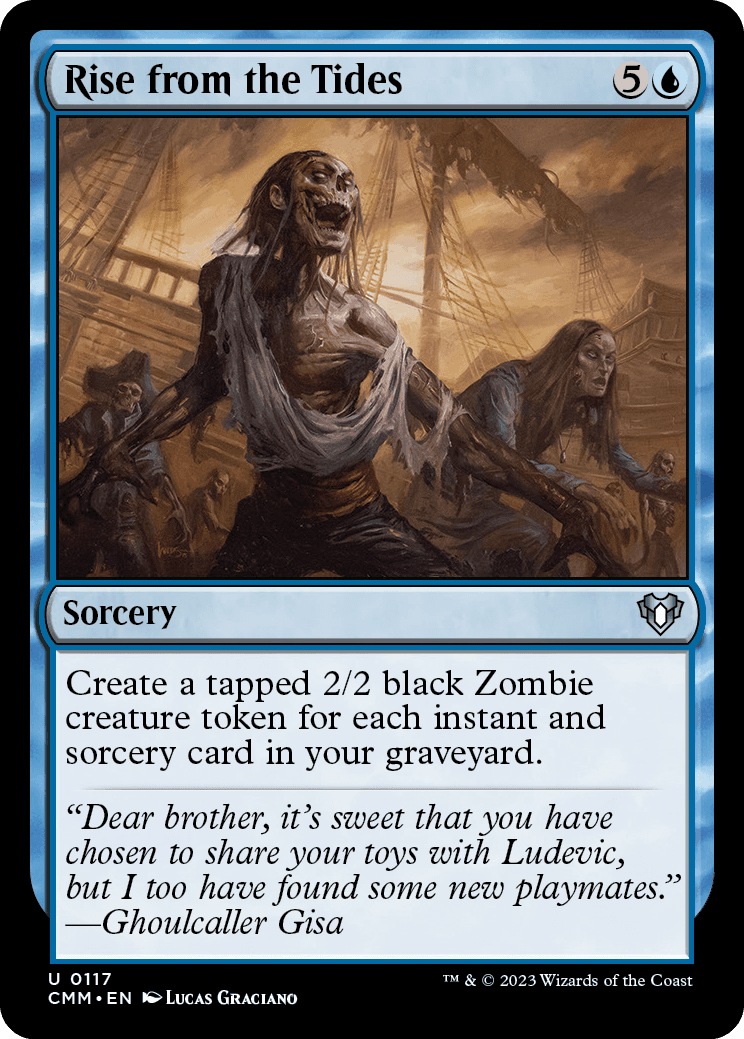
Rise from the Tides
{5}{U}
Sorcery
Create a tapped 2/2 black Zombie creature token for each instant and sorcery card in your graveyard.
- Rise from the Tides is still on the stack while you count the number of instant and sorcery cards in your graveyard. It doesn't count itself.
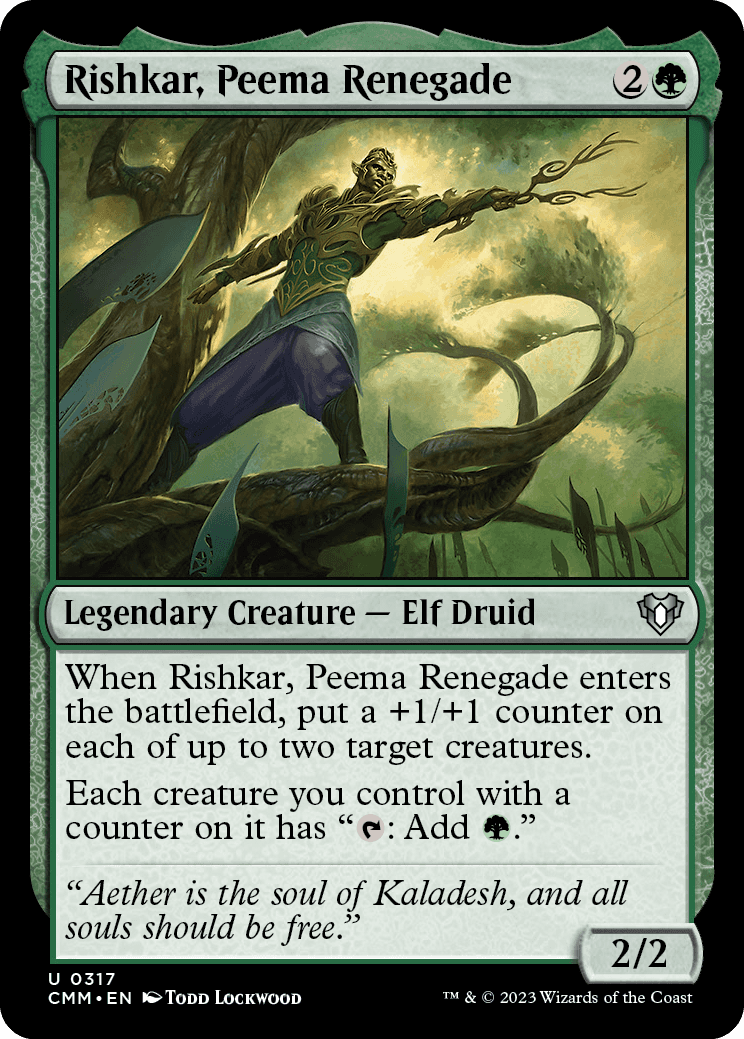
Rishkar, Peema Renegade
{2}{G}
Legendary Creature — Elf Druid
2/2
When Rishkar, Peema Renegade enters the battlefield, put a +1/+1 counter on each of up to two target creatures.
Each creature you control with a counter on it has "{T}: Add {G}."
- Rishkar can be a target of its own triggered ability.
- You can't target the same creature twice to have one recipient get two +1/+1 counters.
- Each creature you control has Rishkar's mana ability as long as that creature has any kind of counter on it. The effect isn't limited to those with +1/+1 counters.
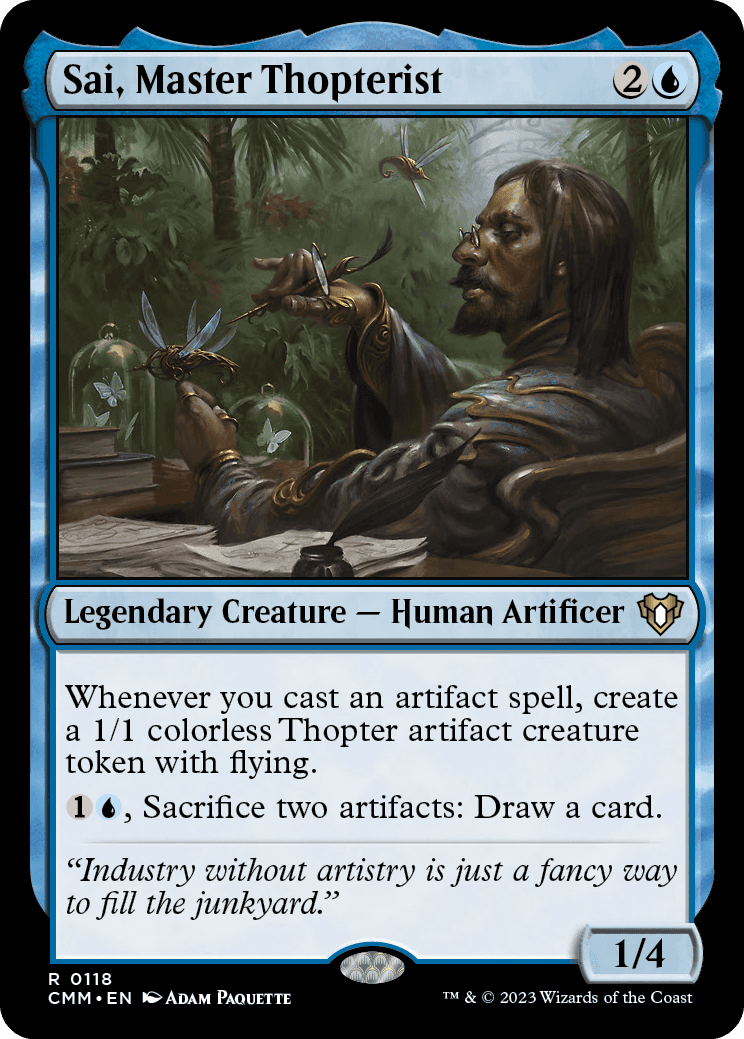
Sai, Master Thopterist
{2}{U}
Legendary Creature — Human Artificer
1/4
Whenever you cast an artifact spell, create a 1/1 colorless Thopter artifact creature token with flying.
{1}{U}, Sacrifice two artifacts: Draw a card.
- Sai's triggered ability resolves before the spell that caused it to trigger. It resolves even if that spell is countered.
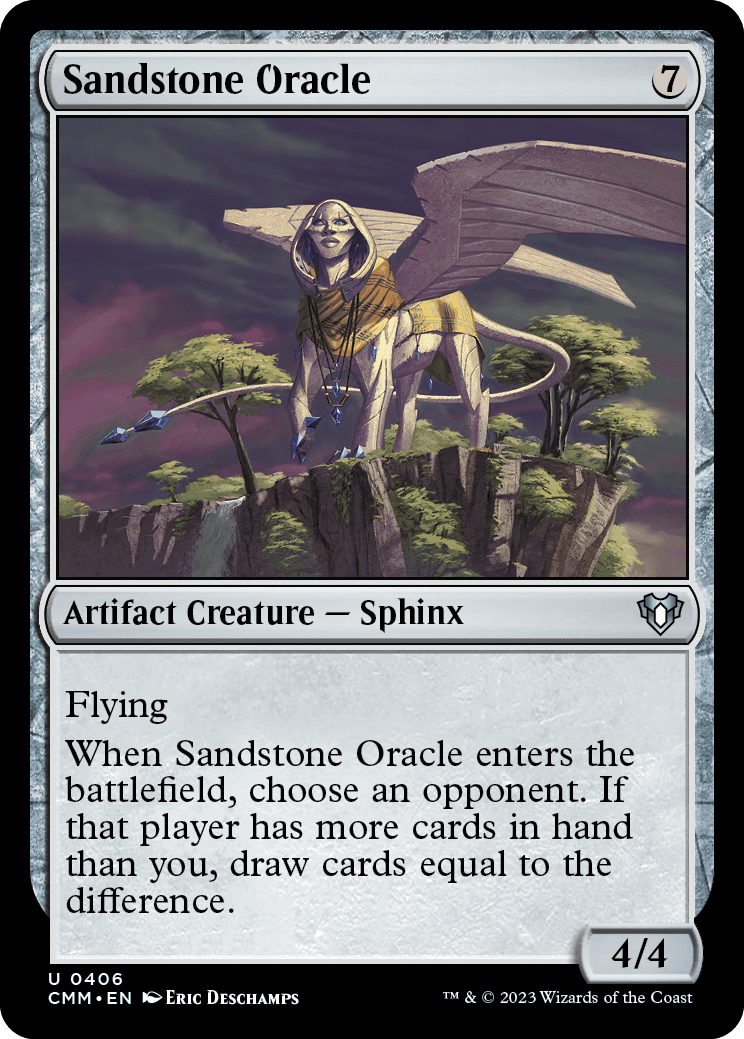
Sandstone Oracle
{7}
Artifact Creature — Sphinx
4/4
Flying
When Sandstone Oracle enters the battlefield, choose an opponent. If that player has more cards in hand than you, draw cards equal to the difference.
- You choose an opponent while Sandstone Oracle's ability is resolving. No player may take actions between the time you make this choice and the time you draw cards.
- To draw cards equal to the difference, first determine how many cards you'll draw, then draw that many cards, as modified by replacement effects. For example, if you have two cards in hand and the chosen opponent has five, Thought Reflection will cause you to draw six cards instead of three.
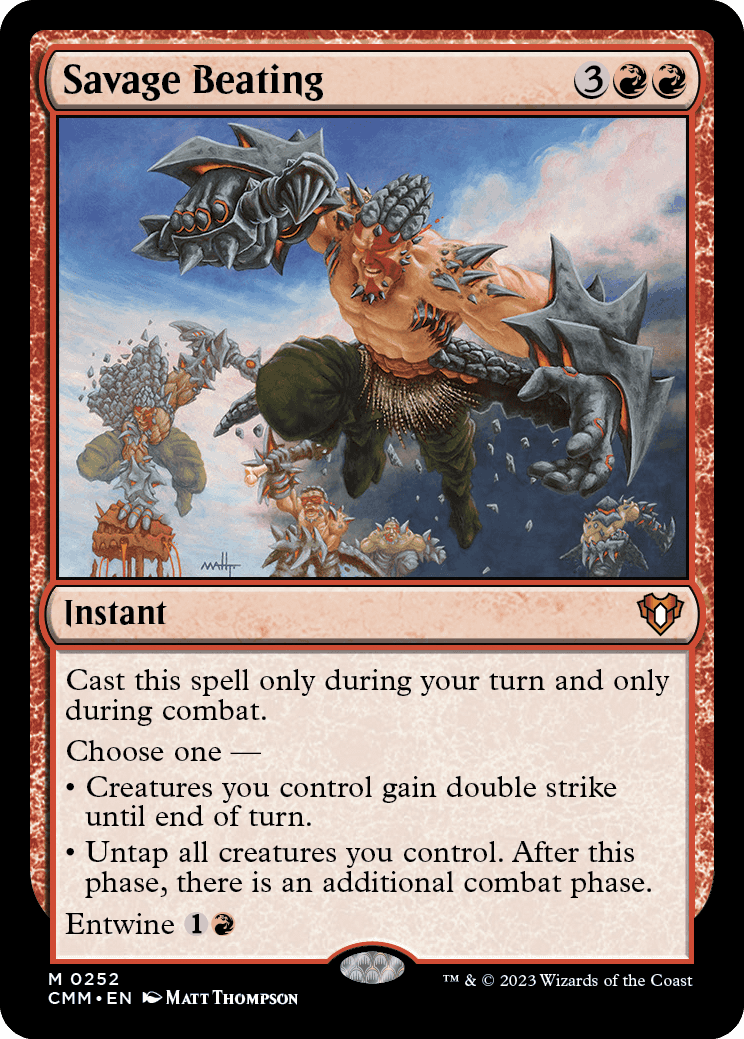
Savage Beating
{3}{R}{R}
Instant
Cast this spell only during your turn and only during combat.
Choose one —
• Creatures you control gain double strike until end of turn.
• Untap all creatures you control. After this phase, there is an additional combat phase.
Entwine {1}{R}
- The additional combat phase is directly after the combat phase in which Savage Beating is cast. There isn't a main phase between the two combat phases.
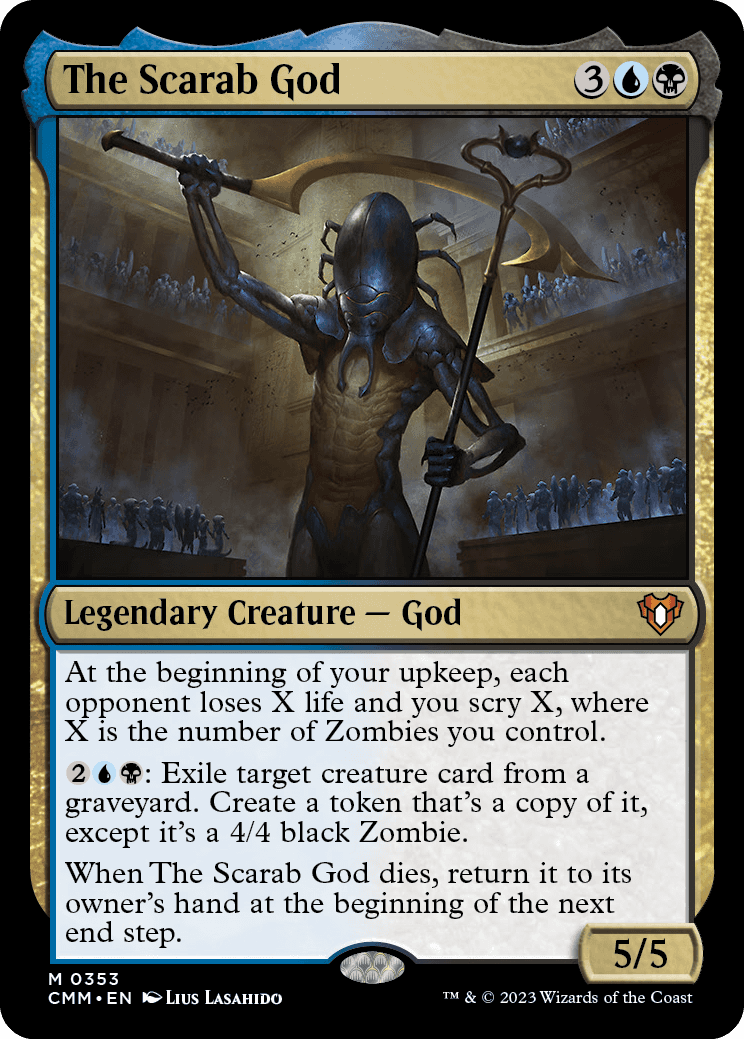
The Scarab God
{3}{U}{B}
Legendary Creature — God
5/5
At the beginning of your upkeep, each opponent loses X life and you scry X, where X is the number of Zombies you control.
{2}{U}{B}: Exile target creature card from a graveyard. Create a token that's a copy of it, except it's a 4/4 black Zombie.
When The Scarab God dies, return it to its owner's hand at the beginning of the next end step.
- If this creature dies but leaves your graveyard before the next end step, it will remain in its new zone.
- The "next end step" refers to the next end step that occurs, not the end step of the next turn. If this creature dies before a turn's end step (for example, during combat), it will be returned to its owner's hand at the beginning of that turn's end step.
- The number of Zombies you control is counted as The Scarab God's first ability resolves. Players can try to change that number in response to the ability (perhaps by activating its second ability).
- In a Two-Headed Giant game, The Scarab God's first ability causes the opposing team to lose life equal to twice the number of Zombies you control, although you scry only equal to the number of Zombies you control.
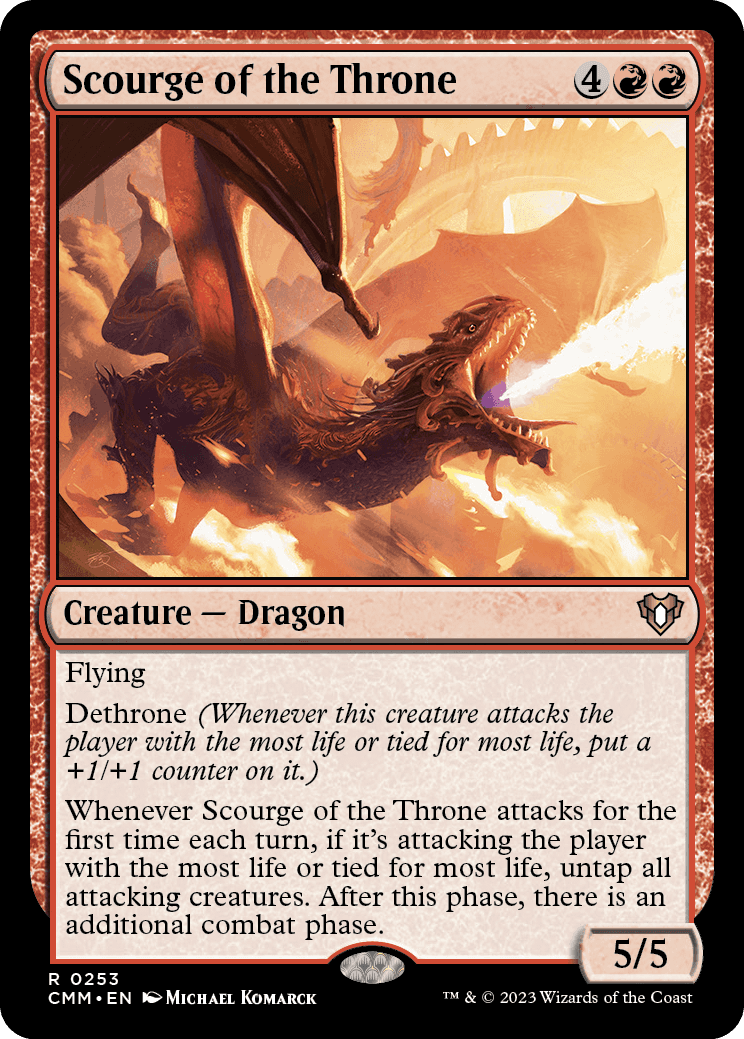
Scourge of the Throne
{4}{R}{R}
Creature — Dragon
5/5
Flying
Dethrone (Whenever this creature attacks the player with the most life or tied for most life, put a +1/+1 counter on it.)
Whenever Scourge of the Throne attacks for the first time each turn, if it's attacking the player with the most life or tied for most life, untap all attacking creatures. After this phase, there is an additional combat phase.
- Scourge of the Throne's ability has an intervening "if" clause. It must be attacking the player with the most life or tied with the most life both when it's declared as an attacker and as it starts to resolve for it to have any effect. If, at either time, the player isn't the one with the most life or tied for the most life, the ability will have no effect. Notably, this is different than how dethrone works. (Dethrone checks only once to see if the ability triggers.)
- Dethrone doesn't trigger if the creature attacks a planeswalker, even if its controller has the most life. The same is true if the creature attacks a battle, even if its protector has the most life.
- Once dethrone triggers, it doesn't matter what happens to the players' life totals before the ability resolves. You'll put a +1/+1 counter on the creature even if the defending player doesn't have the most life as the ability resolves.
- The +1/+1 counter is put on the creature before blockers are declared.
- In a Two-Headed Giant game, dethrone will trigger if the creature attacks either player on the team with the most life or tied for the most life.
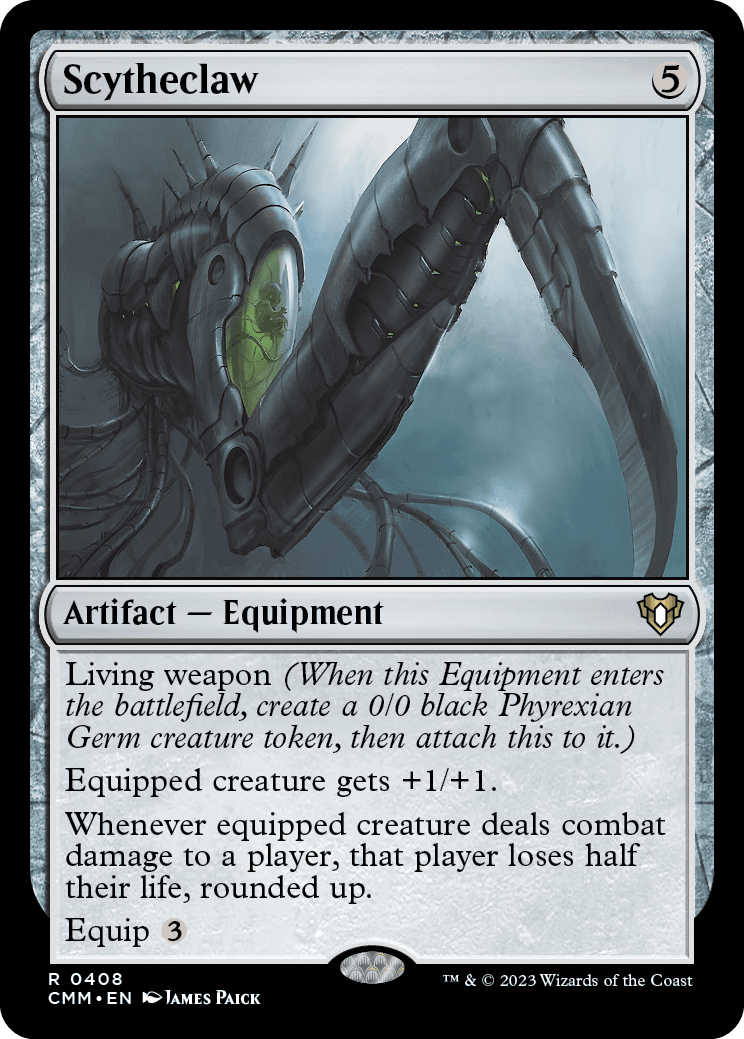
Scytheclaw
{5}
Artifact — Equipment
Living weapon (When this Equipment enters the battlefield, create a 0/0 black Phyrexian Germ creature token, then attach this to it.)
Equipped creature gets +1/+1.
Whenever equipped creature deals combat damage to a player, that player loses half their life, rounded up.
Equip {3}
- Scytheclaw's triggered ability triggers and resolves after combat damage is dealt. For example, if the Germ token deals 1 combat damage to a player with 10 life, combat damage will reduce that player's life total to 9. Then Scytheclaw's ability will cause the player to lose 5 life, leaving the player at 4.
- Like other Equipment, each Equipment with living weapon has an equip cost. You can pay this cost to attach an Equipment to another creature you control. Once the Germ token is no longer equipped, it will be put into your graveyard and subsequently cease to exist, unless another effect raises its toughness above 0.
- The Germ token enters the battlefield as a 0/0 creature and the Equipment becomes attached to it before state-based actions would cause the token to die. Abilities that trigger as the token enters the battlefield see that a 0/0 creature entered the battlefield.
- If the Germ token is destroyed, the Equipment remains on the battlefield as with any other Equipment.
- If the living weapon trigger causes two Germs to be created (due to an effect such as that of Doubling Season), the Equipment becomes attached to one of them. The other will be put into your graveyard and subsequently cease to exist, unless another effect raises its toughness above 0.
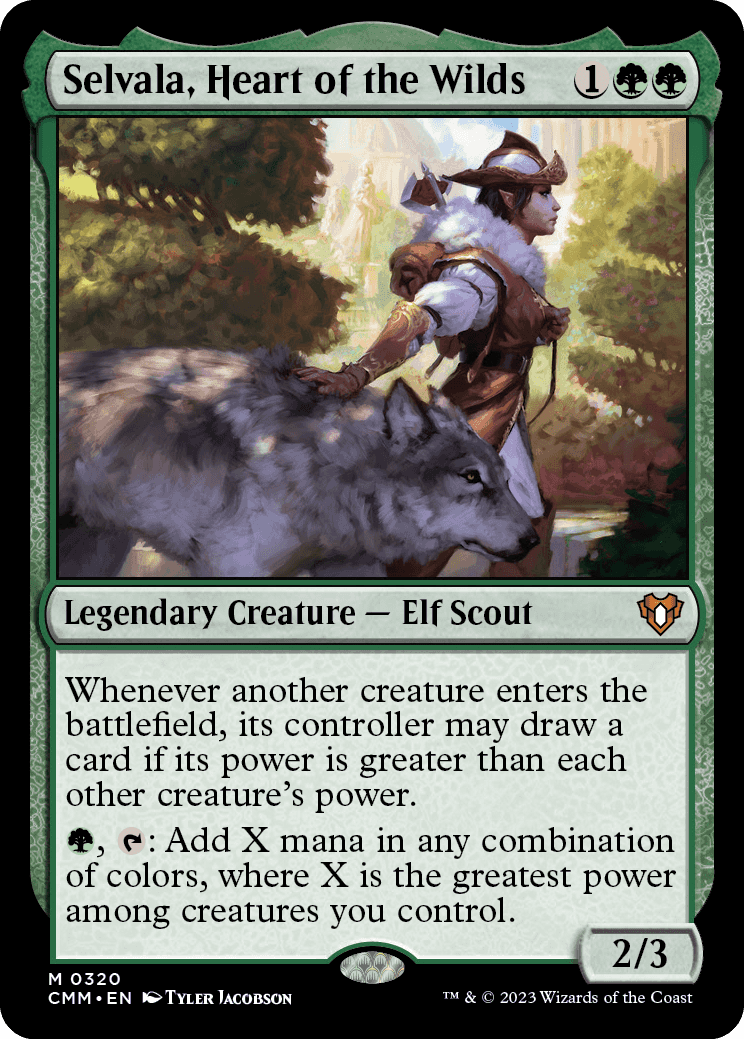
Selvala, Heart of the Wilds
{1}{G}{G}
Legendary Creature — Elf Scout
2/3
Whenever another creature enters the battlefield, its controller may draw a card if its power is greater than each other creature's power.
{G}, {T}: Add X mana in any combination of colors, where X is the greatest power among creatures you control.
- The new creature's power is compared to the power of each other creature on the battlefield as the first ability resolves. If another creature has the same or higher power than the new creature's power, no one may draw a card.
- If the new creature isn't on the battlefield as the first ability resolves, use its power when it left the battlefield to determine whether its controller may draw a card. Note that effects that reduced its power before it left the battlefield will apply.
- Selvala's last ability is a mana ability. It doesn't use the stack and can't be responded to. If the greatest power among creatures you control is 0 or less at that time, no mana is added.
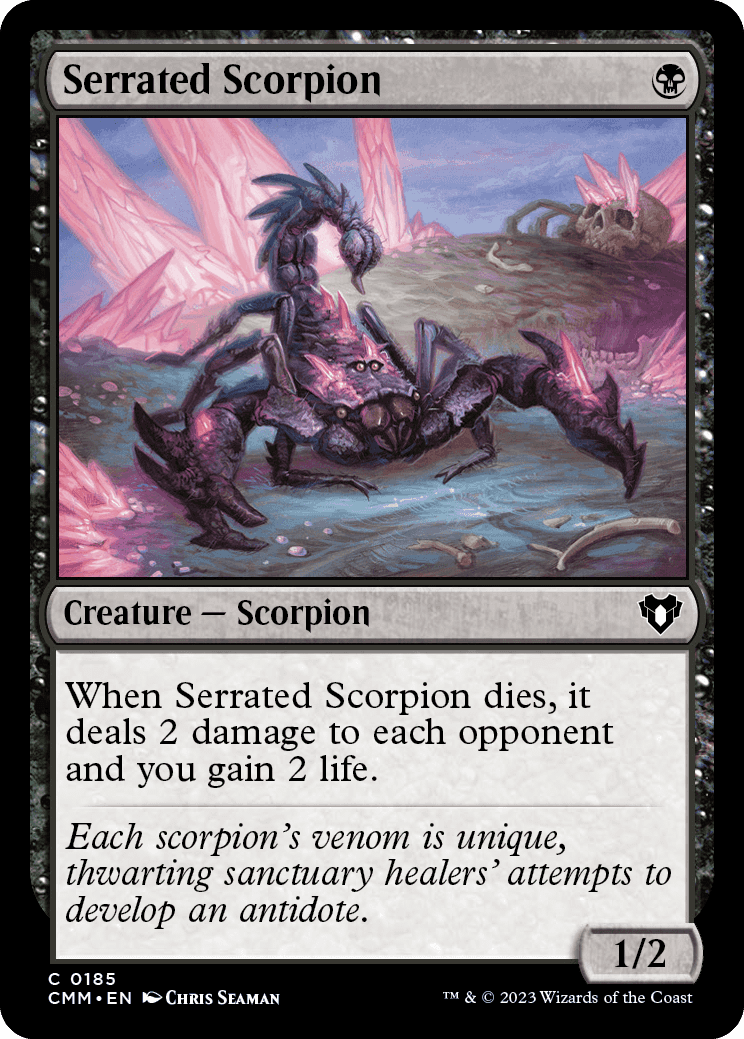
Serrated Scorpion
{B}
Creature — Scorpion
1/2
When Serrated Scorpion dies, it deals 2 damage to each opponent and you gain 2 life.
- In a Two-Headed Giant game, Serrated Scorpion's ability causes the opposing team to lose 4 life and you to gain 2 life.
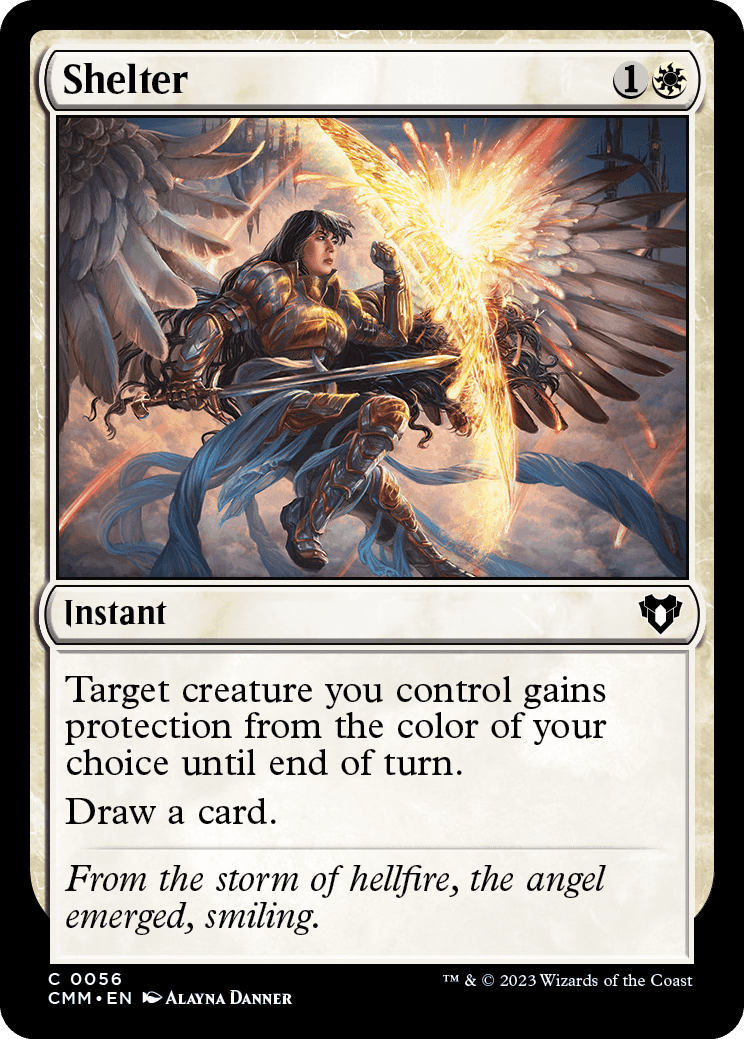
Shelter
{1}{W}
Instant
Target creature you control gains protection from the color of your choice until end of turn.
Draw a card.
- Protection from a color means that the target creature can't be blocked by creatures of that color, can't be the target of spells of that color or abilities from sources of that color, can't be enchanted or equipped by Auras or Equipment of that color, and all damage that sources of that color would deal to it is prevented. Nothing other than these events is prevented or illegal.
- A permanent gaining protection may cause a spell or ability on the stack to have an illegal target. As a spell or ability tries to resolve, if all its targets are illegal, that spell or ability doesn't resolve. None of its effects happen, including effects unrelated to the target. If at least one target is still legal, the spell or ability does as much as it can to the remaining legal targets, and its other effects still happen.
- You can't choose "artifact" or "colorless" as Shelter asks you to choose a color, since those are not colors.
- The legality of a spell's targets is checked only as that spell begins to resolve. If Shelter gives the targeted creature protection from white, you'll still draw a card.
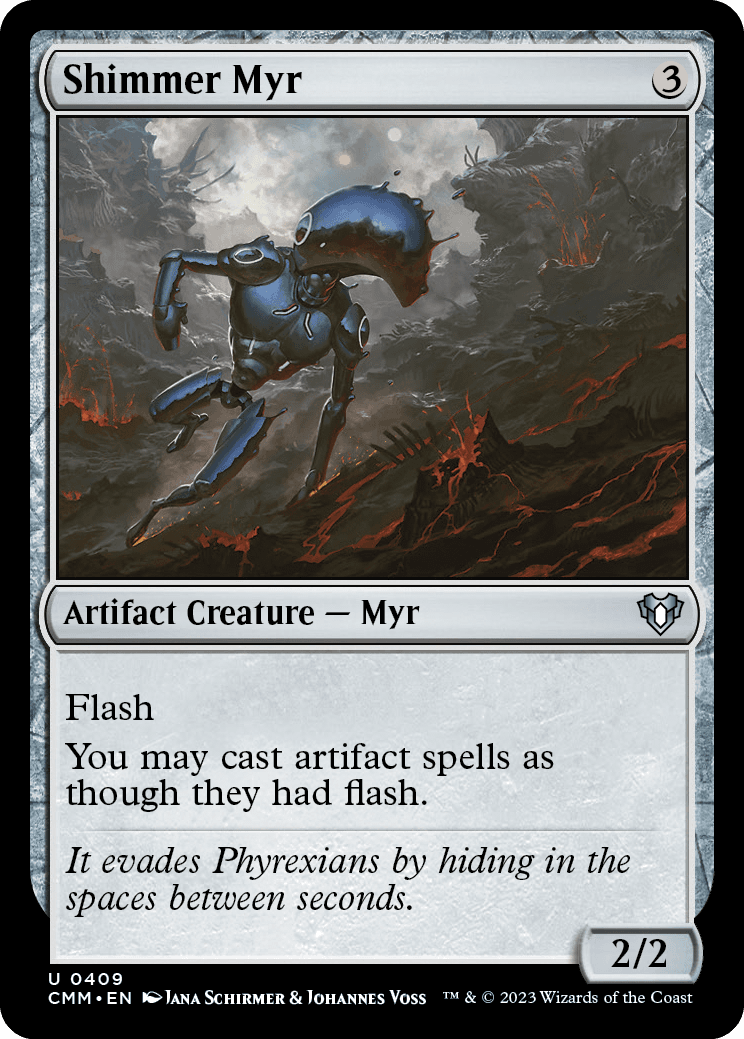
Shimmer Myr
{3}
Artifact Creature — Myr
2/2
Flash
You may cast artifact spells as though they had flash.
- Once you announce that you're casting a spell, players can't attempt to remove Shimmer Myr from the battlefield to make that casting illegal. Removing Shimmer My after you've cast a spell won't affect that spell.
- Shimmer Myr has no effect on artifact lands because they aren't cast as spells.
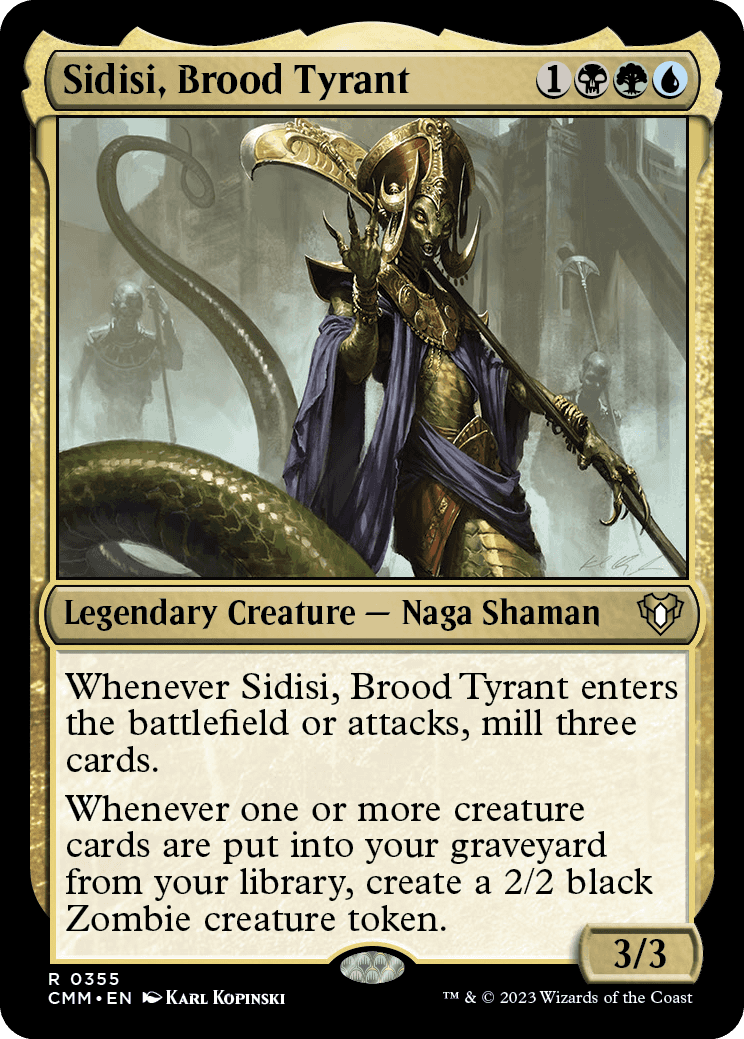
Sidisi, Brood Tyrant
{1}{B}{G}{U}
Legendary Creature — Naga Shaman
3/3
Whenever Sidisi, Brood Tyrant enters the battlefield or attacks, mill three cards.
Whenever one or more creature cards are put into your graveyard from your library, create a 2/2 black Zombie creature token.
- Sidisi's last ability triggers any time creature cards are put into your graveyard from anywhere in your library, not just from the top.
- Any instruction, including Sidisi's first ability, that tells you to put multiple cards from a library into a graveyard moves all the cards at the same time. For example, if Sidisi enters the battlefield and you put three creature cards into your graveyard, Sidisi's last ability will trigger once and you'll put one Zombie token onto the battlefield.
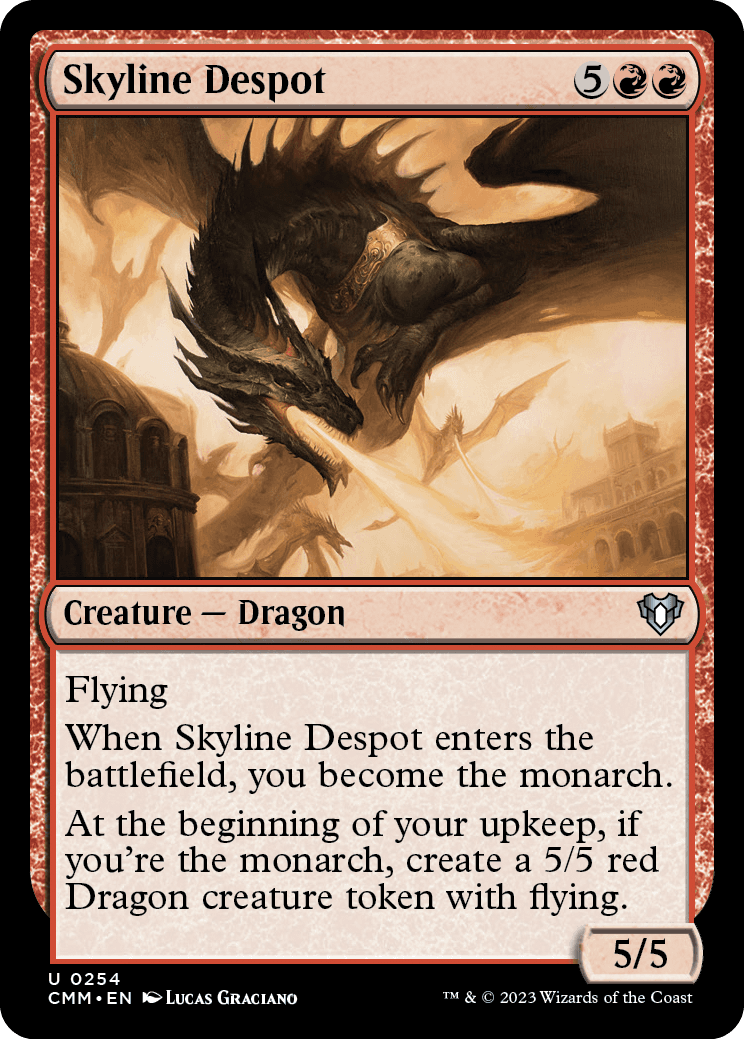
Skyline Despot
{5}{R}{R}
Creature — Dragon
5/5
Flying
When Skyline Despot enters the battlefield, you become the monarch.
At the beginning of your upkeep, if you're the monarch, create a 5/5 red Dragon creature token with flying.
- The last ability of Skyline Despot checks to see if you're the monarch as your upkeep begins. If you're not, the ability won't trigger at all. You won't be able to do anything that would make you the monarch during your upkeep in time to have that ability trigger. The ability will also check to see if you're the monarch as it tries to resolve. If you're not the monarch at that time, the ability will have no effect.
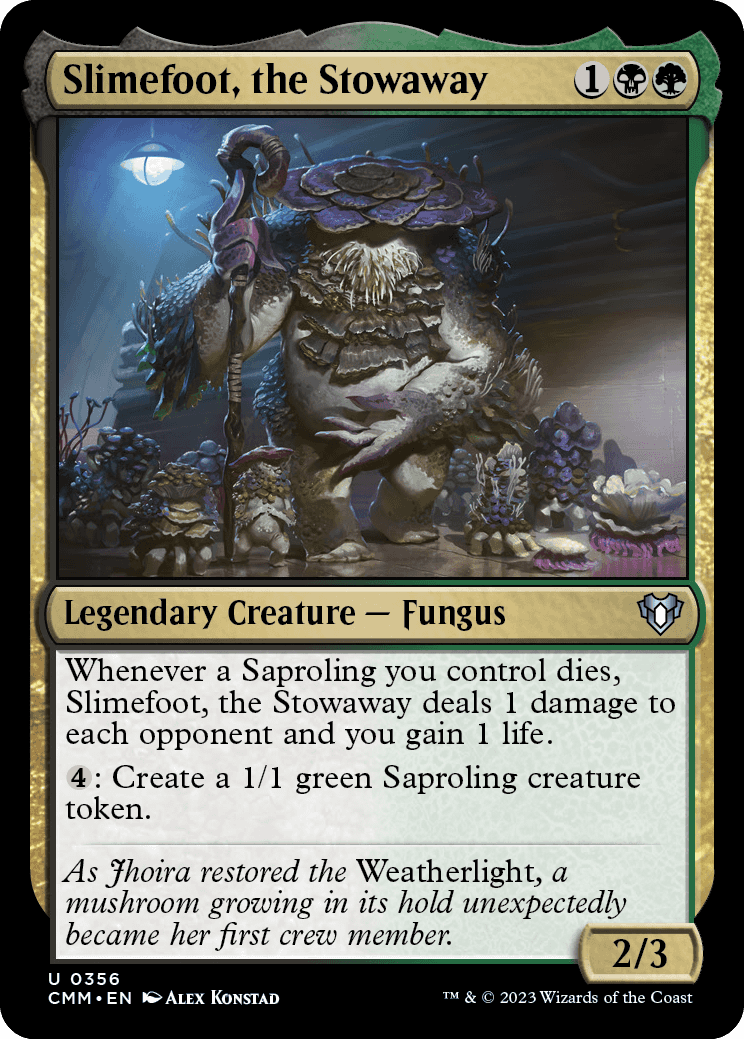
Slimefoot, the Stowaway
{1}{B}{G}
Legendary Creature — Fungus
2/3
Whenever a Saproling you control dies, Slimefoot, the Stowaway deals 1 damage to each opponent and you gain 1 life.
{4}: Create a 1/1 green Saproling creature token.
- If one or more Saprolings you control die at the same time as Slimefoot, Slimefoot's first ability will still trigger once for each Saproling that died.
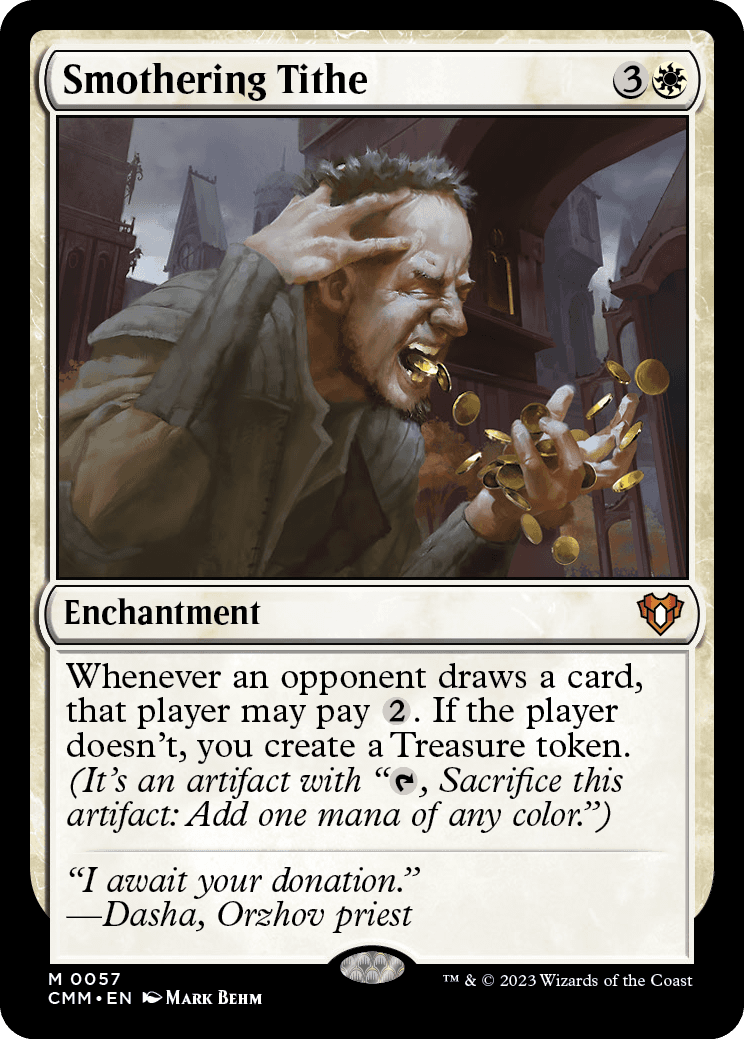
Smothering Tithe
{3}{W}
Enchantment
Whenever an opponent draws a card, that player may pay {2}. If the player doesn't, you create a Treasure token. (It's an artifact with "{T}, Sacrifice this artifact: Add one mana of any color.")
- If an opponent is instructed to draw multiple cards, that player draws all of them before deciding how many times to pay for Smothering Tithe's triggered ability.
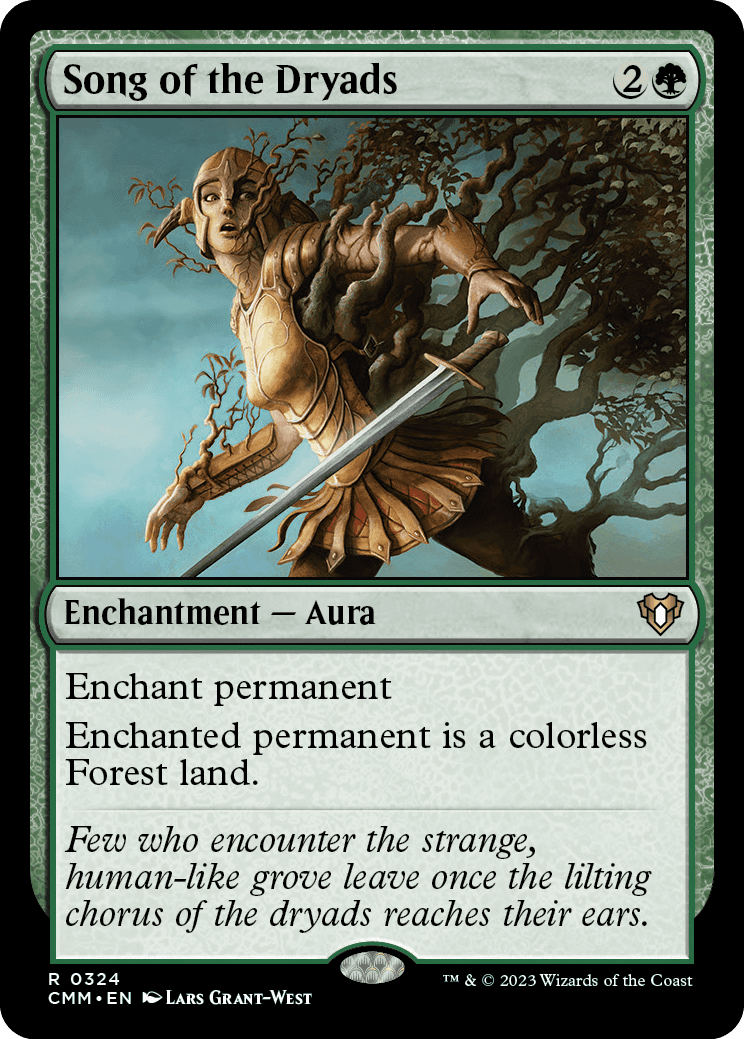
Song of the Dryads
{2}{G}
Enchantment — Aura
Enchant permanent
Enchanted permanent is a colorless Forest land.
- The enchanted permanent loses any card types, subtypes, and colors it previously had. It keeps any supertypes it had and its name remains unchanged. It gains "{T}: Add {G}" and loses all other abilities from its rules text. It will still have any abilities it gained from other effects.
- If the permanent was an Aura or an Equipment, it becomes unattached from whatever it was attached to.
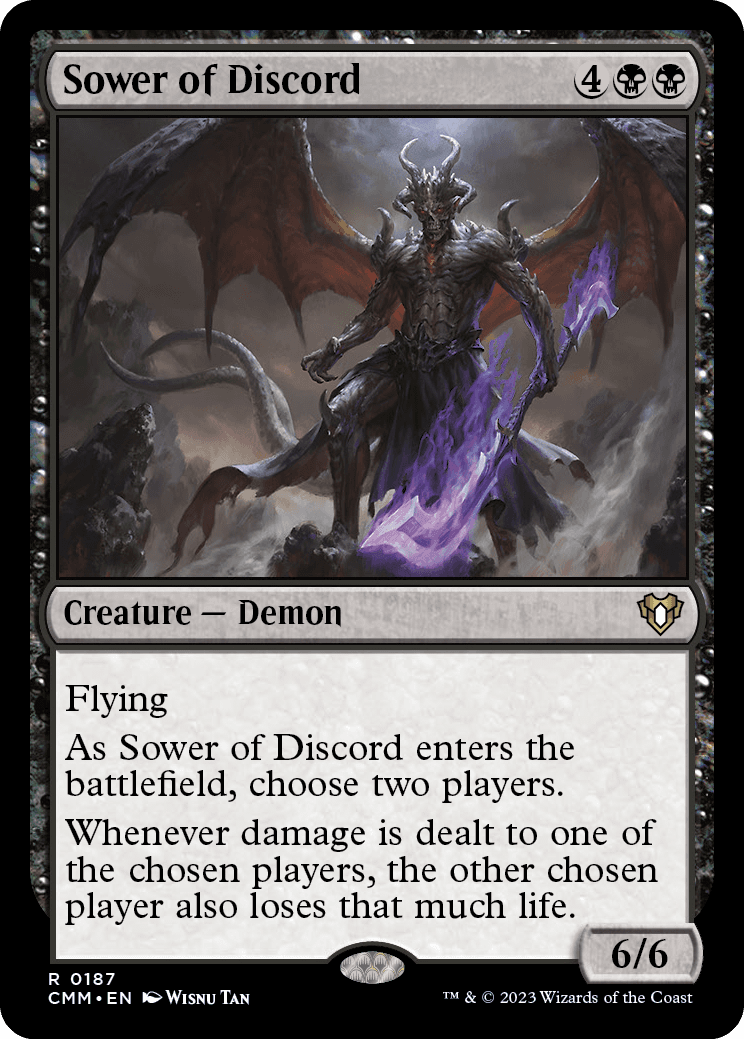
Sower of Discord
{4}{B}{B}
Creature — Demon
6/6
Flying
As Sower of Discord enters the battlefield, choose two players.
Whenever damage is dealt to one of the chosen players, the other chosen player also loses that much life.
- You must choose two different players. You can be one of those players.
- Sower of Discord's triggered ability causes the second player to lose life. This isn't damage and it's not caused by the source that dealt damage to the first player.
- If Sower of Discord is dealt lethal damage at the same time that one of the chosen players is dealt damage, its ability will cause the second player to lose life.
- If Sower of Discord's controller is dealt damage that causes them to lose the game at the same time that either of the chosen players is dealt damage, Sower of Discord's triggered ability won't resolve and the other chosen player won't lose life.
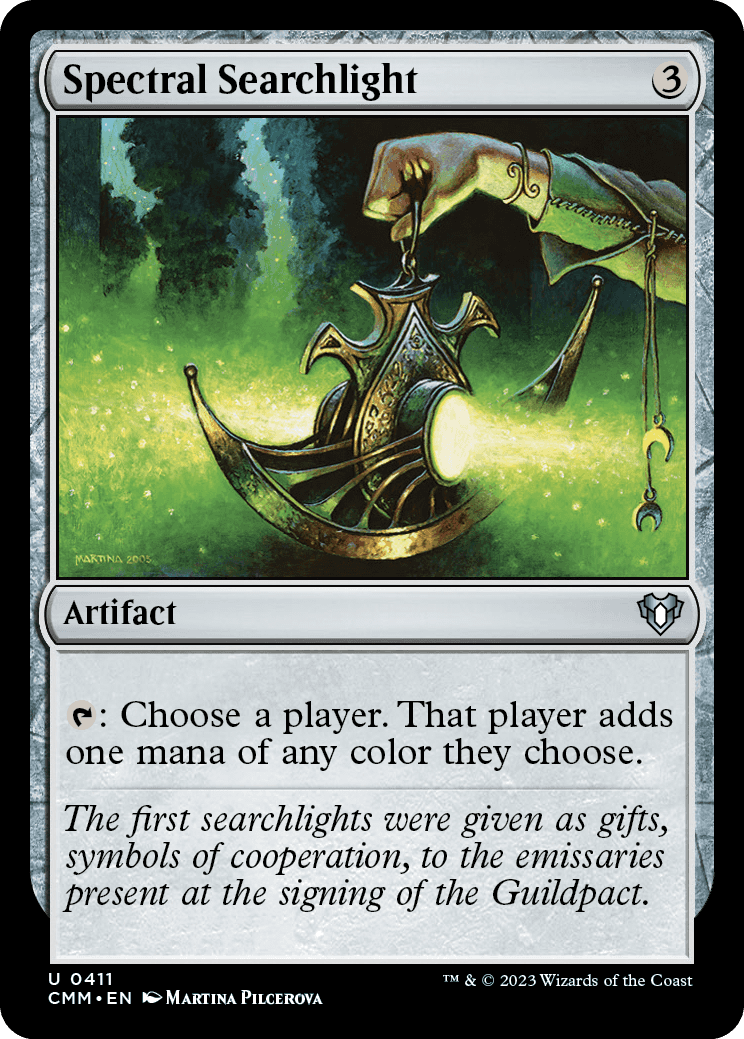
Spectral Searchlight
{3}
Artifact
{T}: Choose a player. That player adds one mana of any color they choose.
- You may choose yourself.
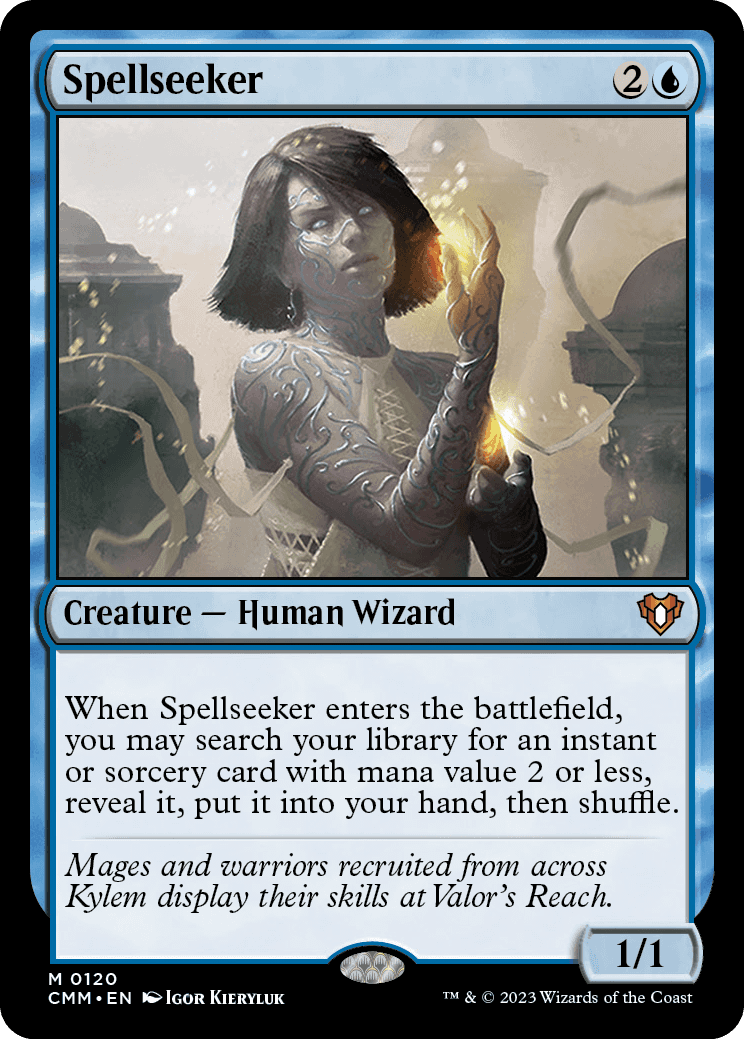
Spellseeker
{2}{U}
Creature — Human Wizard
1/1
When Spellseeker enters the battlefield, you may search your library for an instant or sorcery card with mana value 2 or less, reveal it, put it into your hand, then shuffle.
- If the mana cost of a card in your library includes {X}, X is considered to be 0.
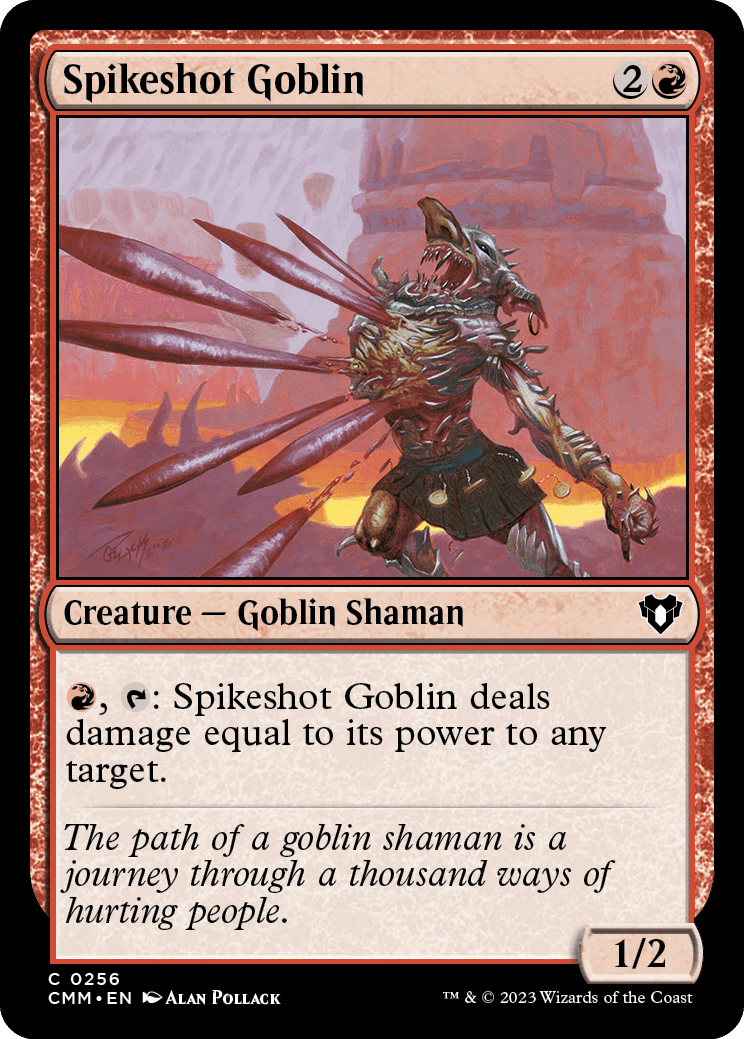
Spikeshot Goblin
{2}{R}
Creature — Goblin Shaman
1/2
{R}, {T}: Spikeshot Goblin deals damage equal to its power to any target.
- Spikeshot Goblin's power is determined as its ability resolves. If Spikeshot Goblin has left the battlefield, use its power as it last existed on the battlefield.
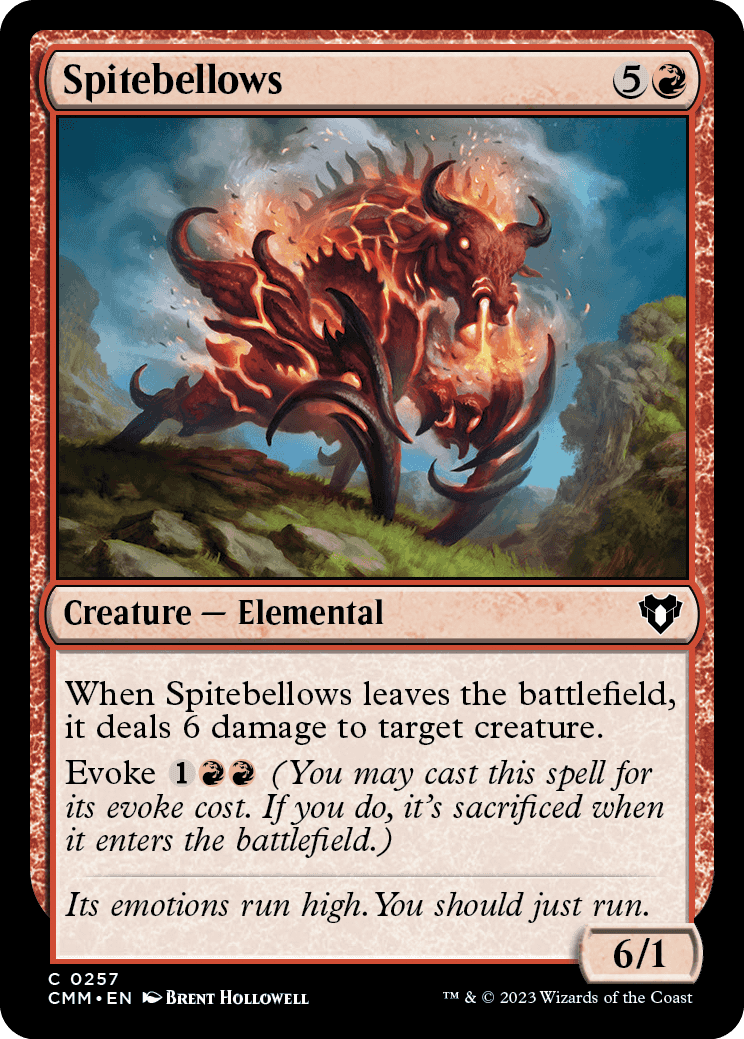
Spitebellows
{5}{R}
Creature — Elemental
6/1
When Spitebellows leaves the battlefield, it deals 6 damage to target creature.
Evoke {1}{R}{R} (You may cast this spell for its evoke cost. If you do, it's sacrificed when it enters the battlefield.)
- Evoke doesn't change the timing of when you can cast the creature that has it. If you could cast that creature spell only when you could cast a sorcery, the same is true for cast it with evoke.
- If a creature spell cast with evoke changes controllers before it enters the battlefield, it will still be sacrificed when it enters the battlefield. Similarly, if a creature cast with evoke changes controllers after it enters the battlefield but before its sacrifice ability resolves, it will still be sacrificed. In both cases, the controller of the creature at the time it left the battlefield will control its leaves-the-battlefield ability.
- When you cast a spell by paying its evoke cost, its mana cost doesn't change. You just pay the evoke cost instead.
- Effects that cause you to pay more or less to cast a spell will cause you to pay that much more or less while casting it for its evoke cost, too. That's because they affect the total cost of the spell, not its mana cost.
- Whether evoke's sacrifice ability triggers when the creature enters the battlefield depends on whether the spell's controller chose to pay the evoke cost, not whether they actually paid it (if it was reduced or otherwise altered by another ability, for example).
- If you're casting a spell "without paying its mana cost," you can't use its evoke ability.
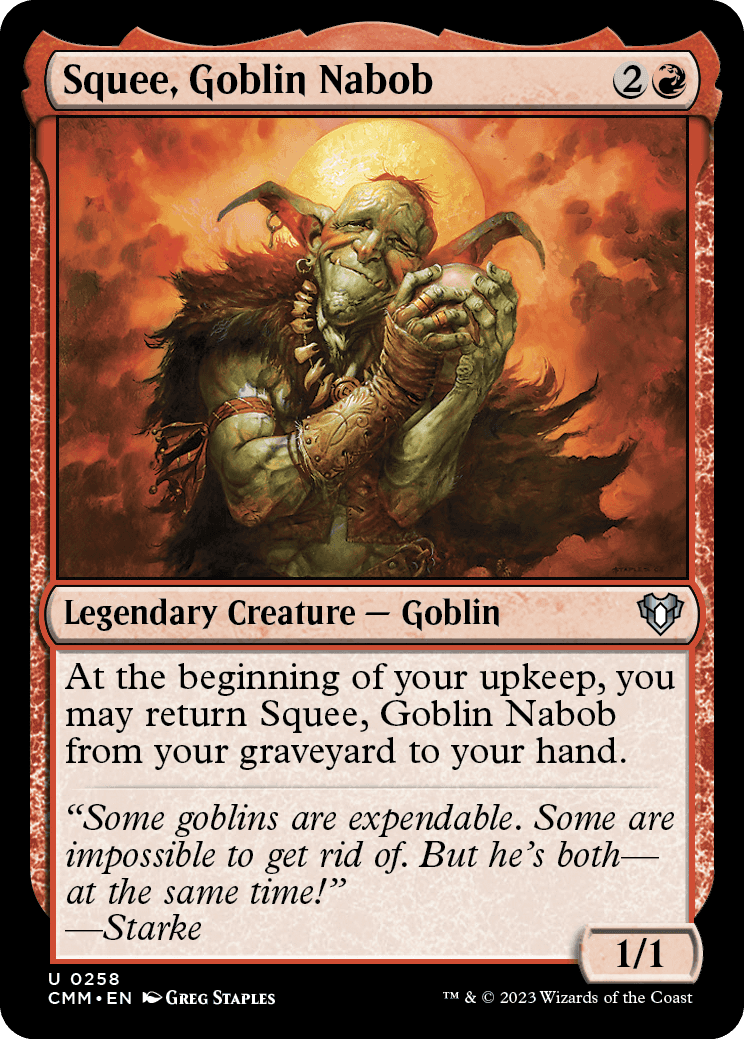
Squee, Goblin Nabob
{2}{R}
Legendary Creature — Goblin
1/1
At the beginning of your upkeep, you may return Squee, Goblin Nabob from your graveyard to your hand.
- If Squee isn't in your graveyard as your upkeep begins, its ability won't trigger. You can't take any actions during your turn before your upkeep begins.
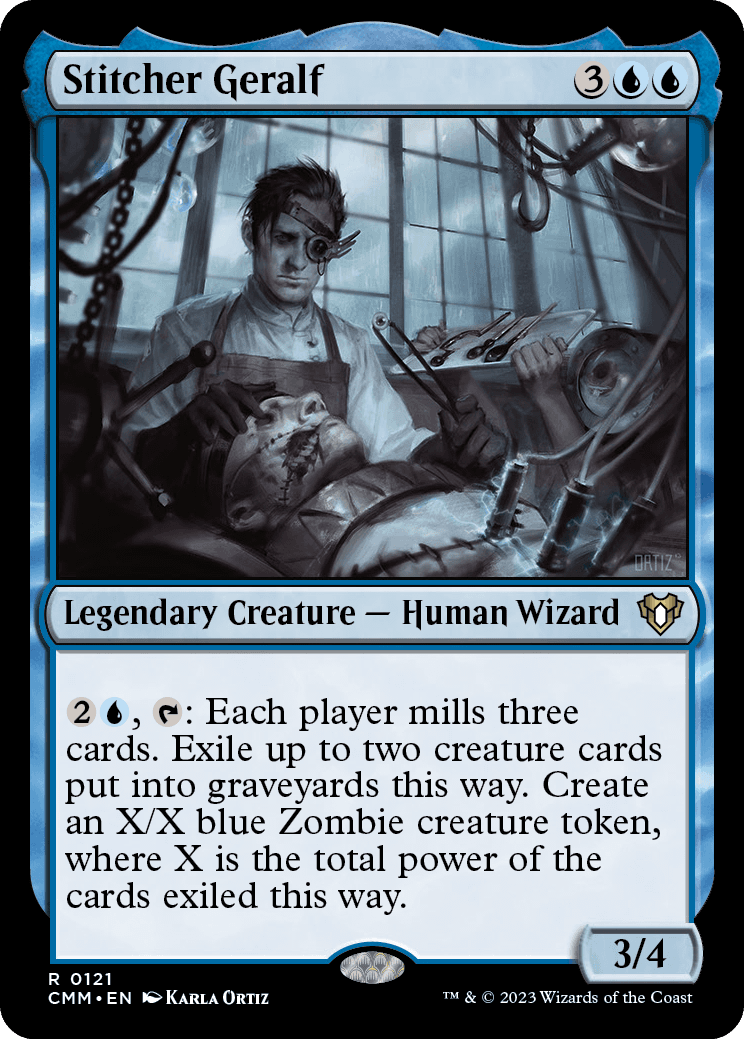
Stitcher Geralf
{3}{U}{U}
Legendary Creature — Human Wizard
3/4
{2}{U}, {T}: Each player mills three cards. Exile up to two creature cards put into graveyards this way. Create an X/X blue Zombie creature token, where X is the total power of the cards exiled this way.
- "Exiled this way" refers to the exile instruction that's part of the ability's effect. If the cards each player would put into their graveyard are exiled because of a replacement effect, those cards won't be in the graveyards to be exiled by the next part of the ability. In this case, the value of X will be 0. You'll put a 0/0 token onto the battlefield, then that token will die and subsequently cease to exist (unless something else raises its toughness above 0).
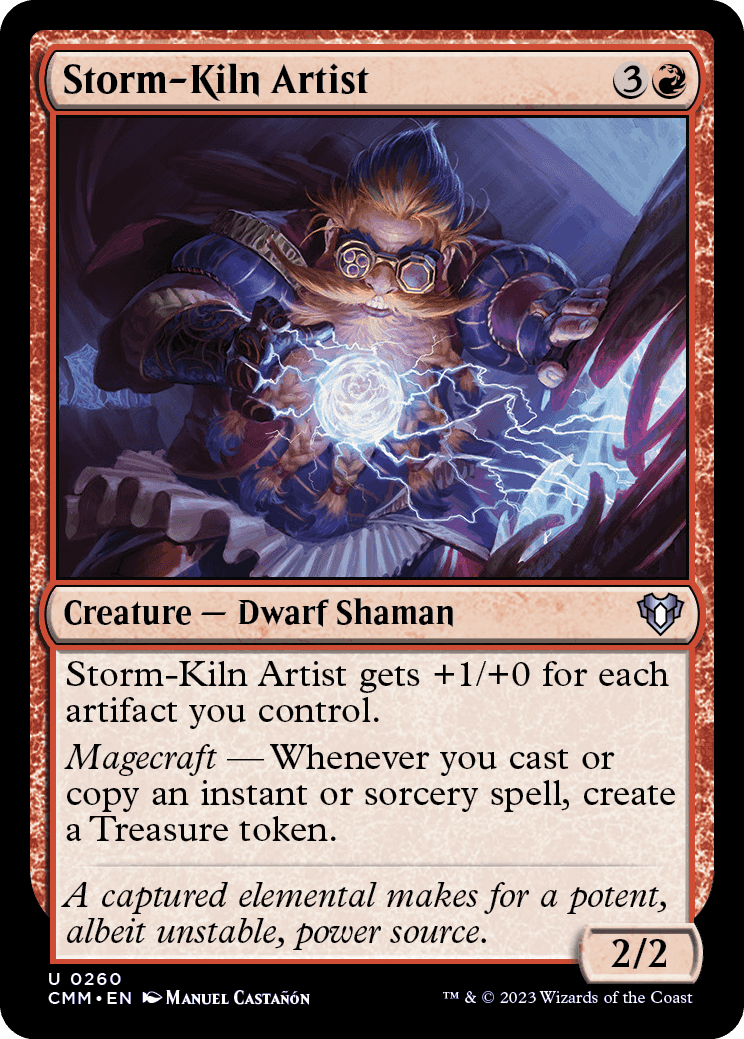
Storm-Kiln Artist
{3}{R}
Creature — Dwarf Shaman
2/2
Storm-Kiln Artist gets +1/+0 for each artifact you control.
Magecraft — Whenever you cast or copy an instant or sorcery spell, create a Treasure token.
- Each magecraft ability has a different effect, although they all have the same trigger condition, whenever you cast or copy an instant or sorcery spell.
- For example, if you control Storm-Kiln Artist and cast an instant or sorcery spell, Storm-Kiln Artist's magecraft ability will trigger and you will create a treasure token.
- If an effect creates a copy of an instant or sorcery spell, this will also cause the magecraft ability to trigger.
- If an effect creates multiple copies of an instant or sorcery spell, magecraft abilities trigger once for each copy created by the effect.
- Some effects instruct you to copy an instant or sorcery card in a zone other than the stack. These copies do not cause magecraft abilities to trigger. However, most effects that do this also allow you to cast the copy, and casting the copy will cause magecraft abilities to trigger.
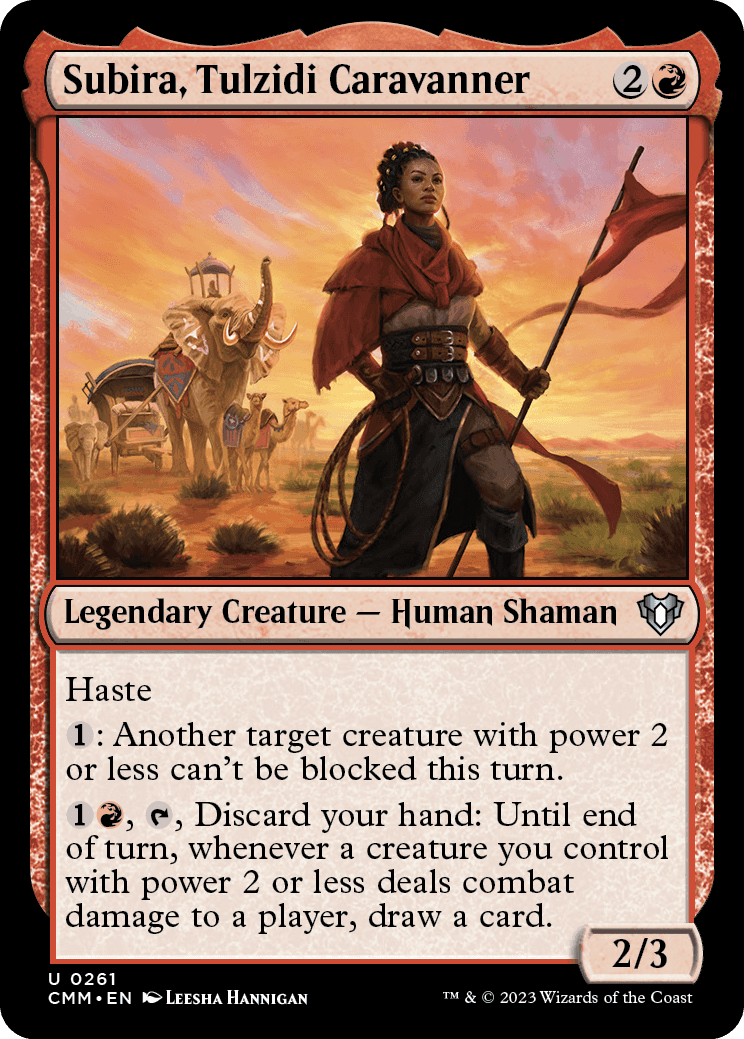
Subira, Tulzidi Caravanner
{2}{R}
Legendary Creature — Human Shaman
2/3
Haste
{1}: Another target creature with power 2 or less can't be blocked this turn.
{1}{R}, {T}, Discard your hand: Until end of turn, whenever a creature you control with power 2 or less deals combat damage to a player, draw a card.
- If the target creature's power is greater than 2 as the first activated ability tries to resolve, the ability doesn't resolve. However, if instead the creature's power is raised above 2 after the ability resolves, it still can't be blocked that turn.
- Once a creature with power 2 or less has been blocked, Subira's middle ability won't cause it to become unblocked.
- You can activate Subira's last ability if your hand is empty. You simply discard zero cards.
- Once Subira's last ability resolves, check to see if the delayed triggered ability should trigger based on the power of the creatures immediately after damage is dealt, not based on their power as the ability resolves.
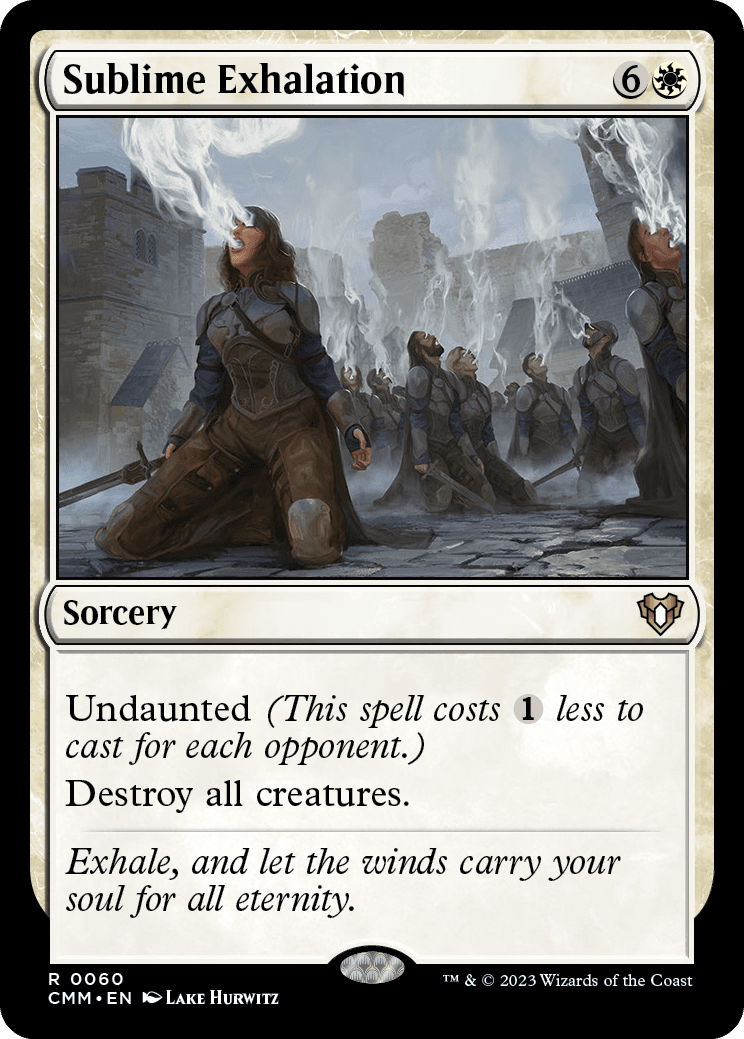
Sublime Exhalation
{6}{W}
Sorcery
Undaunted (This spell costs {1} less to cast for each opponent.)
Destroy all creatures.
- Causing an opponent to lose the game after you've announced that you're casting a spell with undaunted and determined its total cost won't cause you to have to pay more mana.
- Effects that reduce what you pay to cast a spell don't affect its mana value.
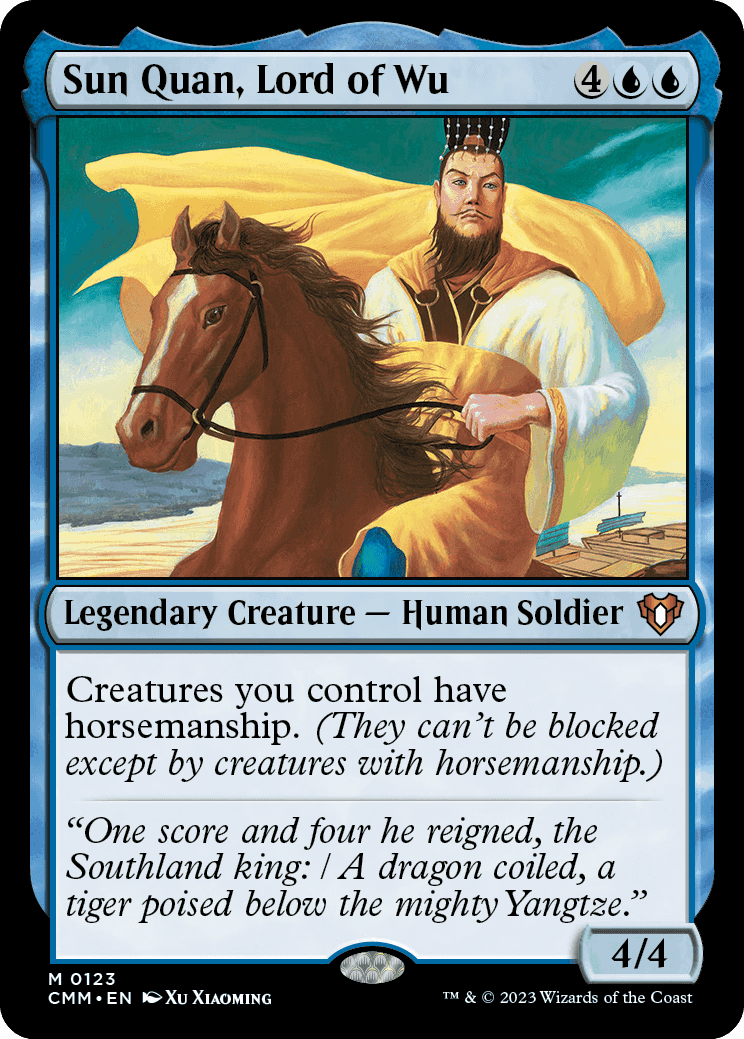
Sun Quan, Lord of Wu
{4}{U}{U}
Legendary Creature — Human Soldier
4/4
Creatures you control have horsemanship. (They can't be blocked except by creatures with horsemanship.)
- Despite the similarities between horsemanship and flying, horsemanship doesn't interact with flying or reach.
- Sun Quan's ability affects Sun Quan itself.
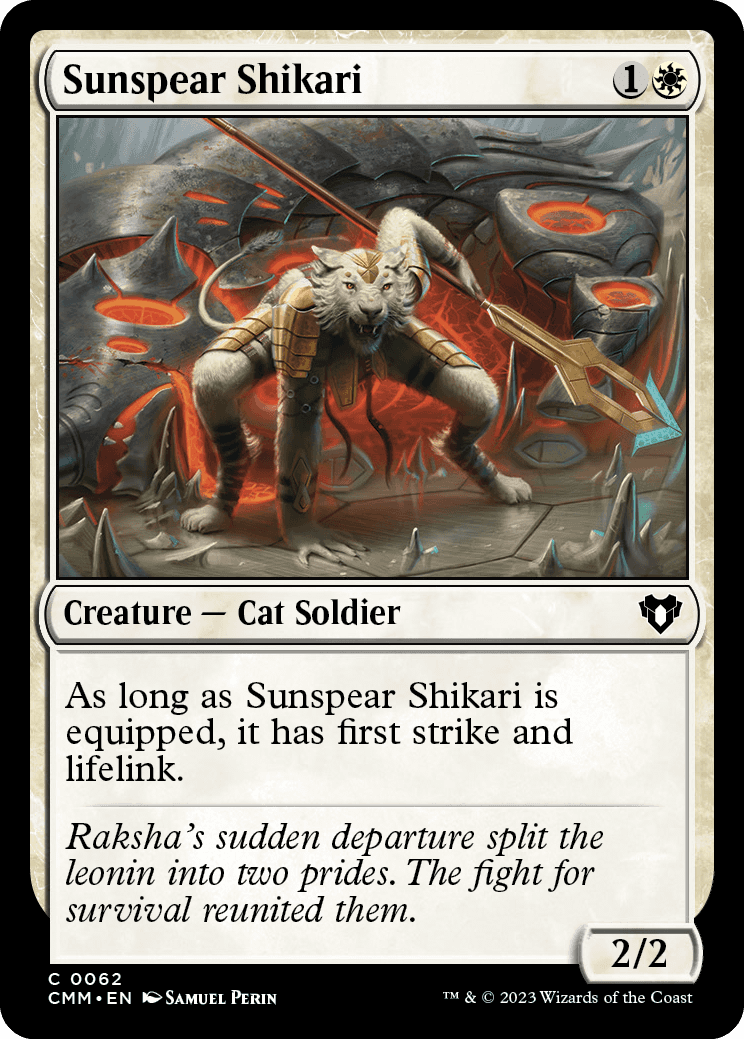
Sunspear Shikari
{1}{W}
Creature — Cat Soldier
2/2
As long as Sunspear Shikari is equipped, it has first strike and lifelink.
- If all Equipment attached to Sunspear Shikari somehow becomes unequipped after it deals combat damage in the first combat damage step, it won't assign combat damage in the second combat damage step.
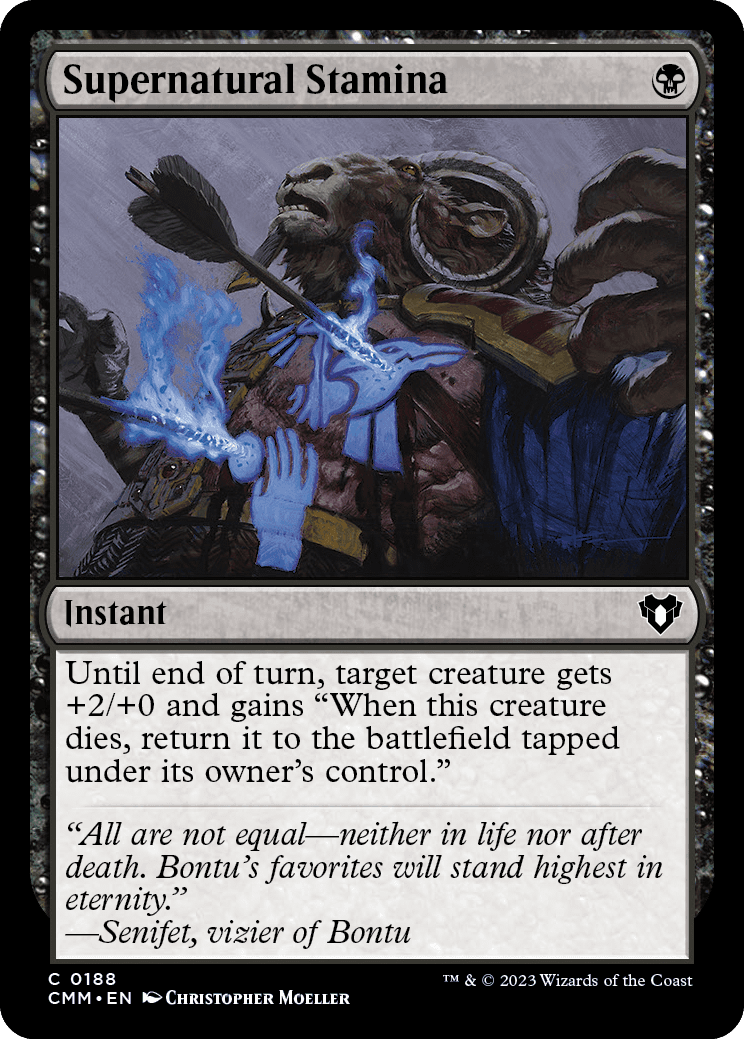
Supernatural Stamina
{B}
Instant
Until end of turn, target creature gets +2/+0 and gains "When this creature dies, return it to the battlefield tapped under its owner's control."
- Supernatural Stamina's effect works only once. If the targeted creature dies and is then returned to the battlefield, it's considered to be a new creature. If that new creature dies, it won't come back a second time.
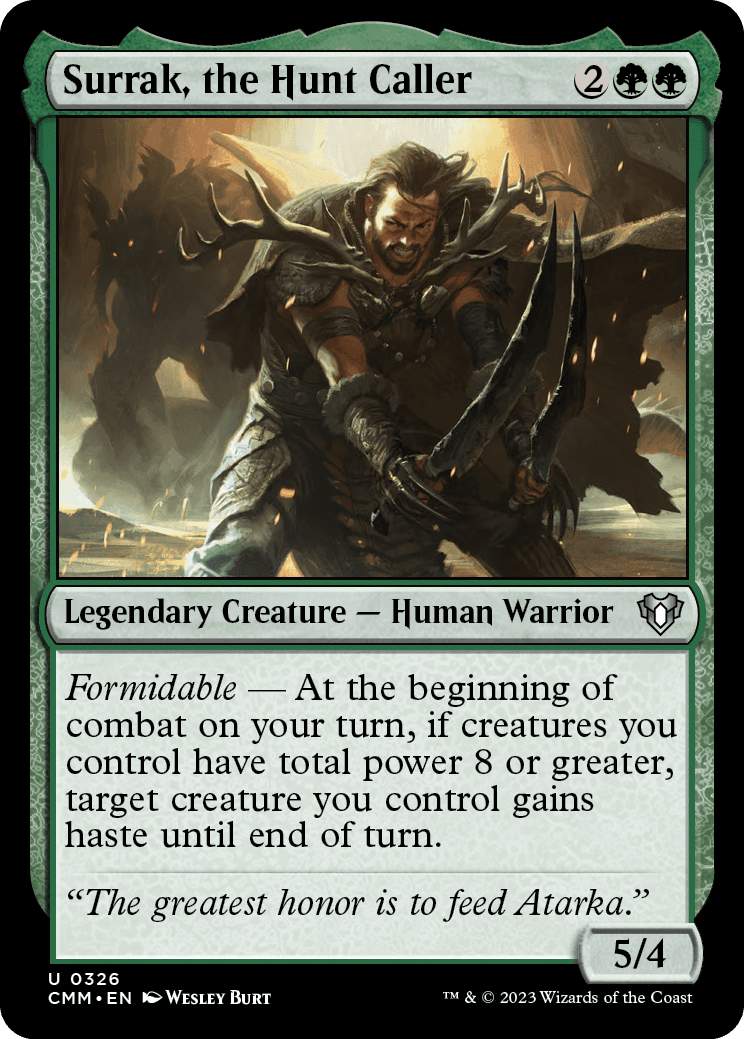
Surrak, the Hunt Caller
{2}{G}{G}
Legendary Creature — Human Warrior
5/4
Formidable — At the beginning of combat on your turn, if creatures you control have total power 8 or greater, target creature you control gains haste until end of turn.
- If you control a creature with power less than 0, use its actual power when calculating the total power of creatures you control. For example, if you control three creatures with powers 4, 5, and -2, the total power of creatures you control is 7.
- Some formidable abilities, like this one, are triggered abilities with an "intervening 'if'" clause. Such abilities check the total power of creatures you control twice: once at the appropriate time to see if the ability will trigger, and again as the ability tries to resolve. If, at that time, the total power of creatures you control is no longer 8 or greater, the ability will have no effect.
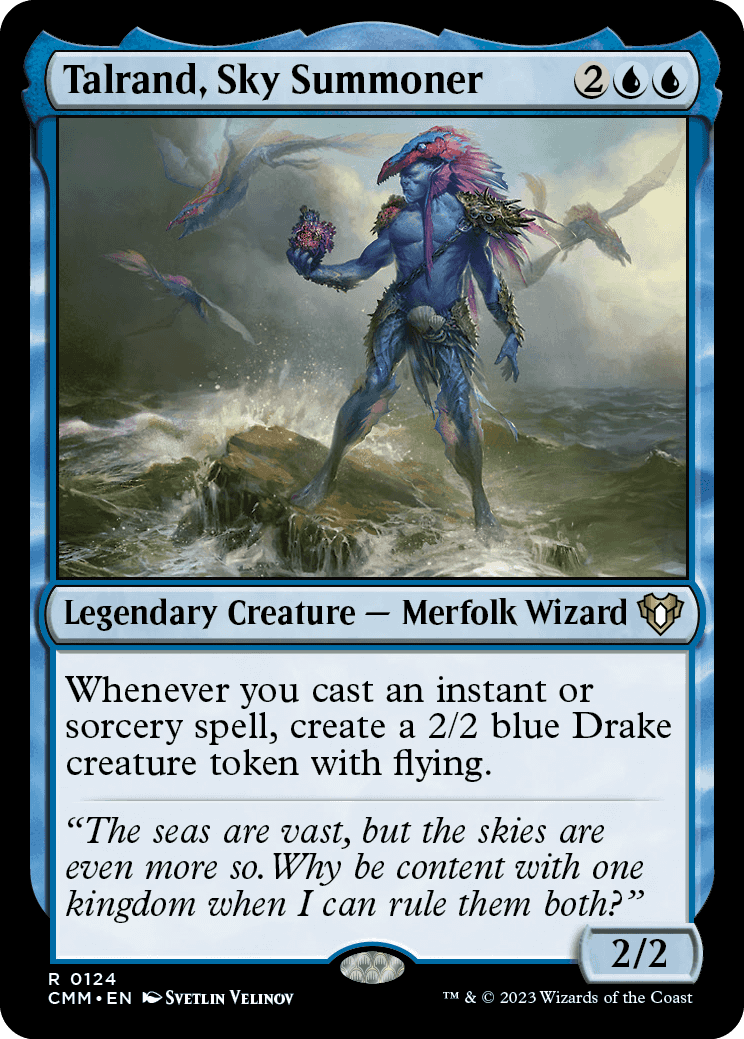
Talrand, Sky Summoner
{2}{U}{U}
Legendary Creature — Merfolk Wizard
2/2
Whenever you cast an instant or sorcery spell, create a 2/2 blue Drake creature token with flying.
- An ability that triggers when a player casts a spell resolves before the spell that caused it to trigger, but after targets have been chosen for that spell. It resolves even if that spell is countered.
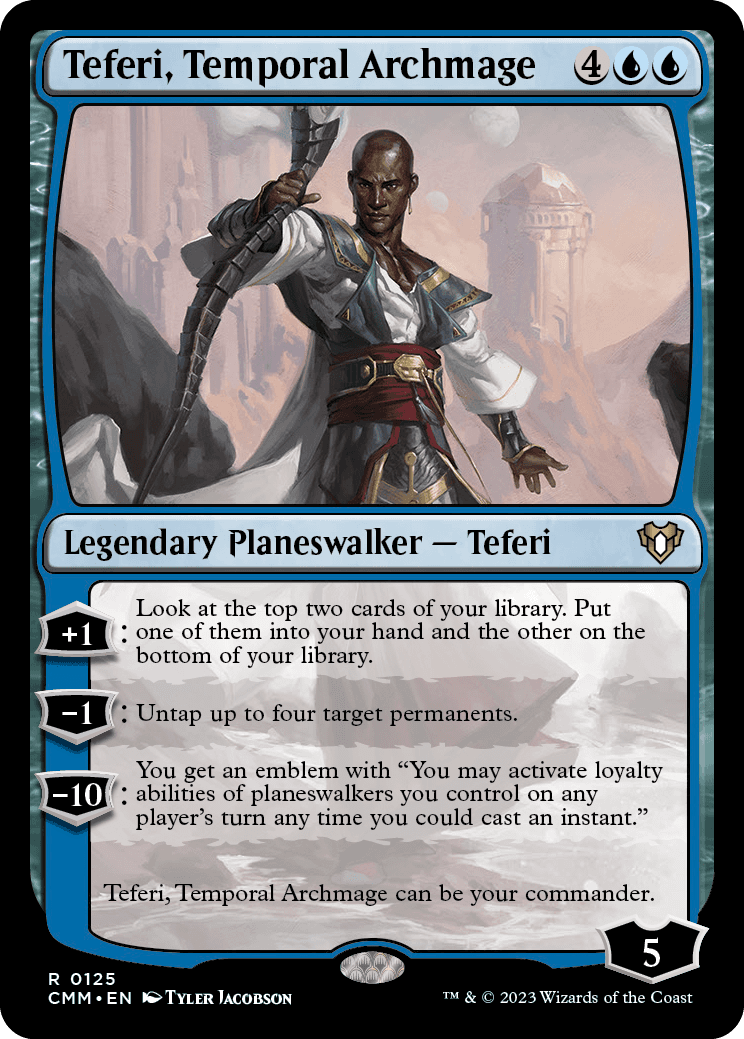
Teferi, Temporal Archmage
{4}{U}{U}
Legendary Planeswalker — Teferi
5
+1: Look at the top two cards of your library. Put one of them into your hand and the other on the bottom of your library.
−1: Untap up to four target permanents.
−10: You get an emblem with "You may activate loyalty abilities of planeswalkers you control on any player's turn any time you could cast an instant."
Teferi, Temporal Archmage can be your commander.
- If you control Teferi's emblem, the rule that says you can activate a loyalty ability only if none of that permanent's loyalty abilities have been activated that turn still applies. In other words, you could activate a planeswalker's loyalty ability once on your turn and once on each of your opponents' turns.
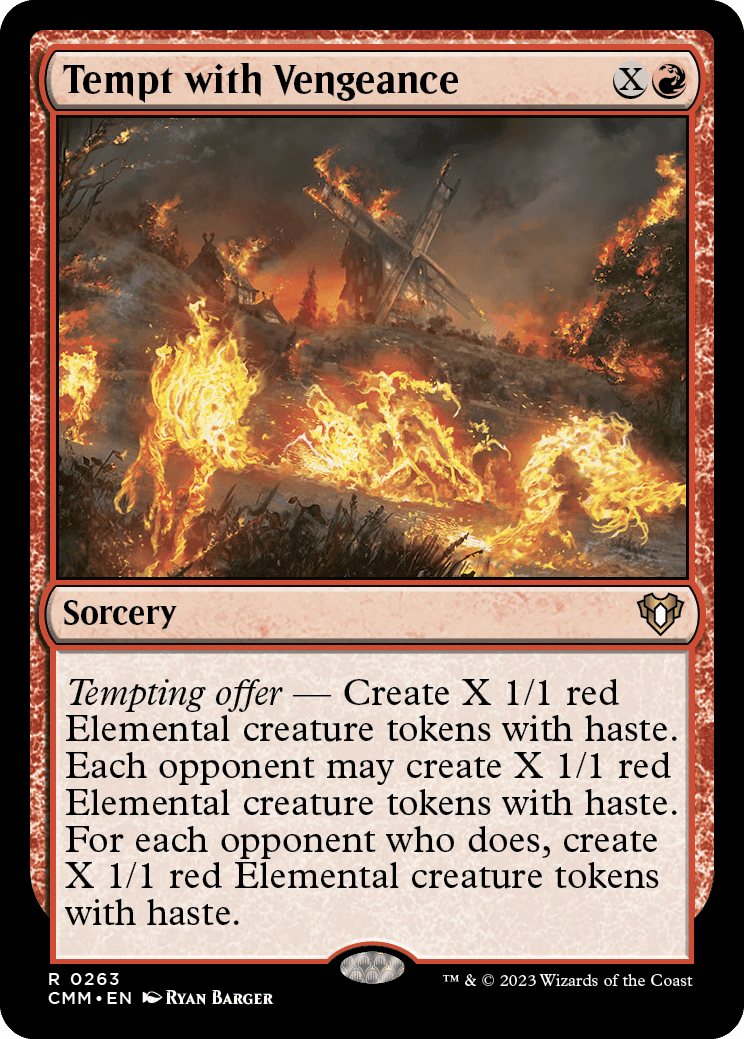
Tempt with Vengeance
{X}{R}
Sorcery
Tempting offer — Create X 1/1 red Elemental creature tokens with haste. Each opponent may create X 1/1 red Elemental creature tokens with haste. For each opponent who does, create X 1/1 red Elemental creature tokens with haste.
- Your opponents decide in turn order whether or not they accept the offer, starting with the opponent on your left. Each opponent will know the decisions of previous opponents in turn order when making their decision.
- After each opponent has decided, the effect happens simultaneously for each one who accepted the offer. Then the effect happens again for you a number of times equal to the number of opponents who accepted.
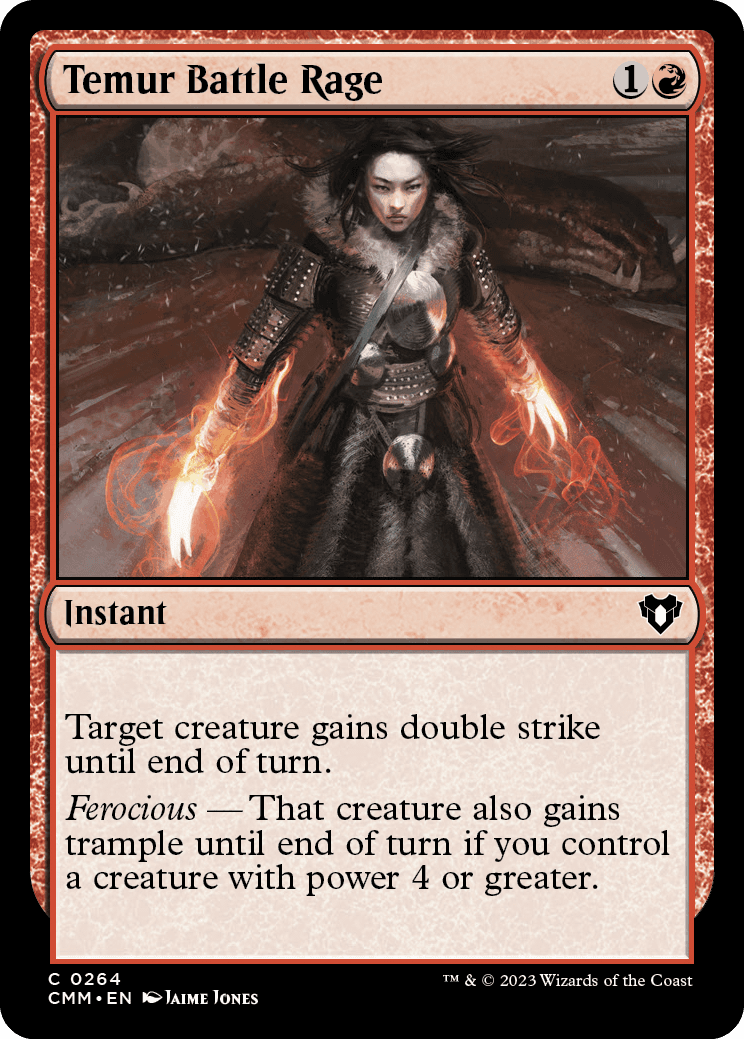
Temur Battle Rage
{1}{R}
Instant
Target creature gains double strike until end of turn.
Ferocious — That creature also gains trample until end of turn if you control a creature with power 4 or greater.
- Temur Battle Rage checks whether you control a creature with power 4 or greater as it resolves. If you do, the target creature has trample until end of turn even if you no longer control a creature with power 4 or greater later in the turn.
- If an attacking creature with double strike and trample destroys all of its blocking creatures with first-strike combat damage, all of its normal combat damage is assigned to the player, planeswalker, or battle that creature's attacking.
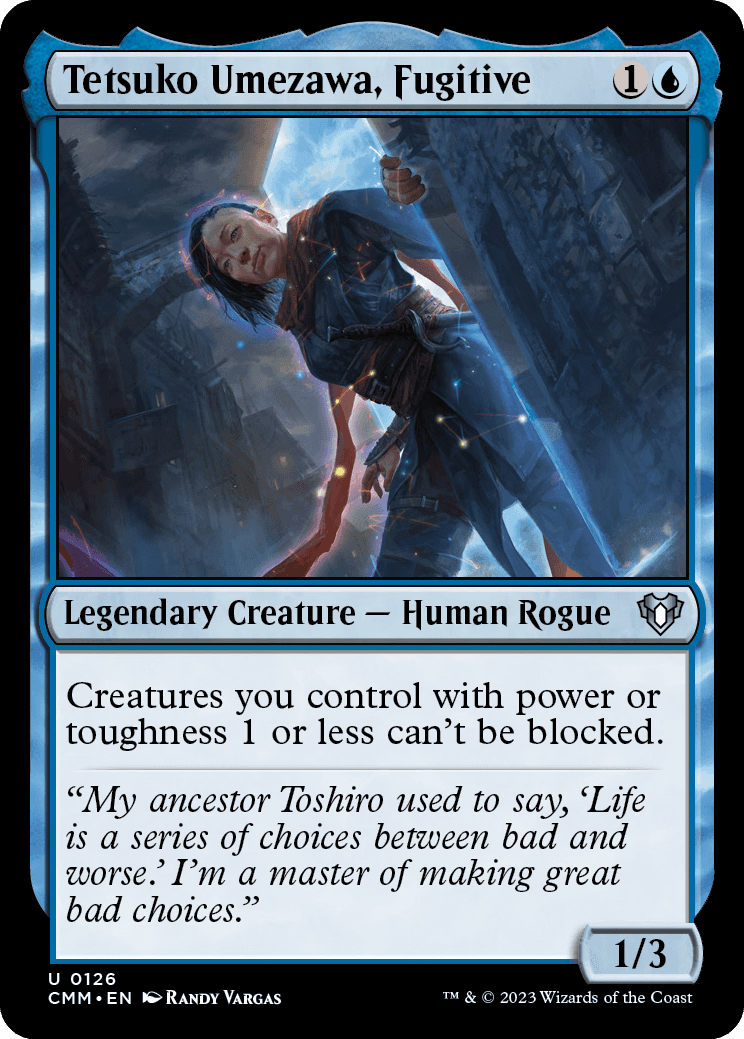
Tetsuko Umezawa, Fugitive
{1}{U}
Legendary Creature — Human Rogue
1/3
Creatures you control with power or toughness 1 or less can't be blocked.
- Once a creature you control has been blocked, changing its power to 1 or less won't cause it to become unblocked. Changing its toughness to 1 won't cause it to become unblocked, and changing its toughness to less than 1 will cause it to die.
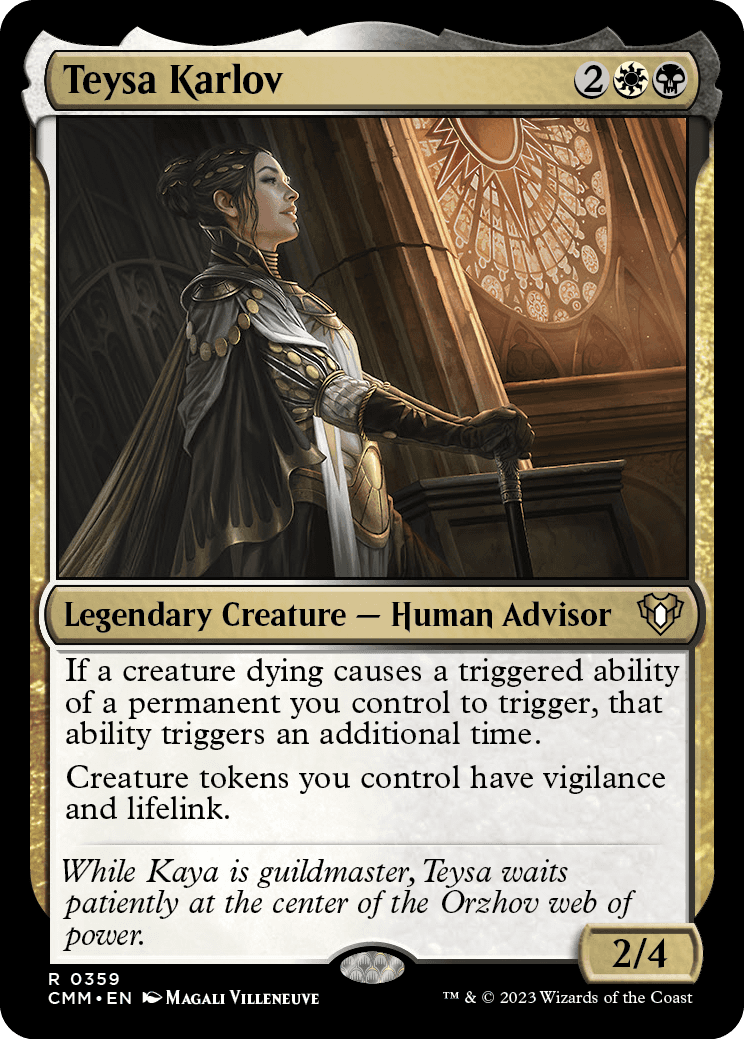
Teysa Karlov
{2}{W}{B}
Legendary Creature — Human Advisor
2/4
If a creature dying causes a triggered ability of a permanent you control to trigger, that ability triggers an additional time.
Creature tokens you control have vigilance and lifelink.
- Teysa affects a creature's own "when this creature dies" triggered abilities as well as other triggered abilities that trigger when that creature dies. Such triggered abilities start with "when" or "whenever."
- Teysa's effect doesn't copy the triggered ability; it just causes the ability to trigger twice. Any choices made as you put the ability onto the stack, such as modes and targets, are made separately for each instance of the ability. Any choices made on resolution, such as whether to pay a cost for that triggered ability, are also made separately.
- The trigger event doesn't have to specifically refer to "creatures." In these cases, the trigger event may also refer to something being "put into a graveyard from the battlefield." For example, an ability that triggers "whenever an artifact is put into a graveyard from the battlefield" would trigger twice if an artifact creature dies while Teysa Karlov is on the battlefield.
- An ability that triggers when a creature "leaves the battlefield" will trigger twice if that creature leaves the battlefield by dying.
- An ability that triggers on an event that causes a creature to die doesn't trigger twice. For example, an ability that triggers "whenever you sacrifice a creature" triggers only once.
- Look at each creature as it exists on the battlefield, taking into account continuous effects, to determine whether any triggered abilities will trigger multiple times. For example, if a land that has become a creature dies, an ability that triggers when it dies triggers twice.
- If a creature dying at the same time that another permanent you control leaves the battlefield causes a triggered ability of that permanent to trigger, that ability triggers an additional time.
- If a creature dying at the same time as Teysa (including Teysa itself dying) causes a triggered ability of a permanent you control to trigger, that ability triggers an additional time.
- If you somehow control two Teysas, a creature dying causes abilities to trigger three times, not four. A third Teysa causes abilities to trigger four times, a fourth causes abilities to trigger five times, and so on. This also means that if you control Teysa and cast a second one, an ability that triggers when it dies due to the "legend rule" triggers three times.
- An ability of a permanent that triggers when a card is put into a graveyard "from anywhere" triggers twice only if Teysa and that permanent are both still on the battlefield immediately after the creature has died.
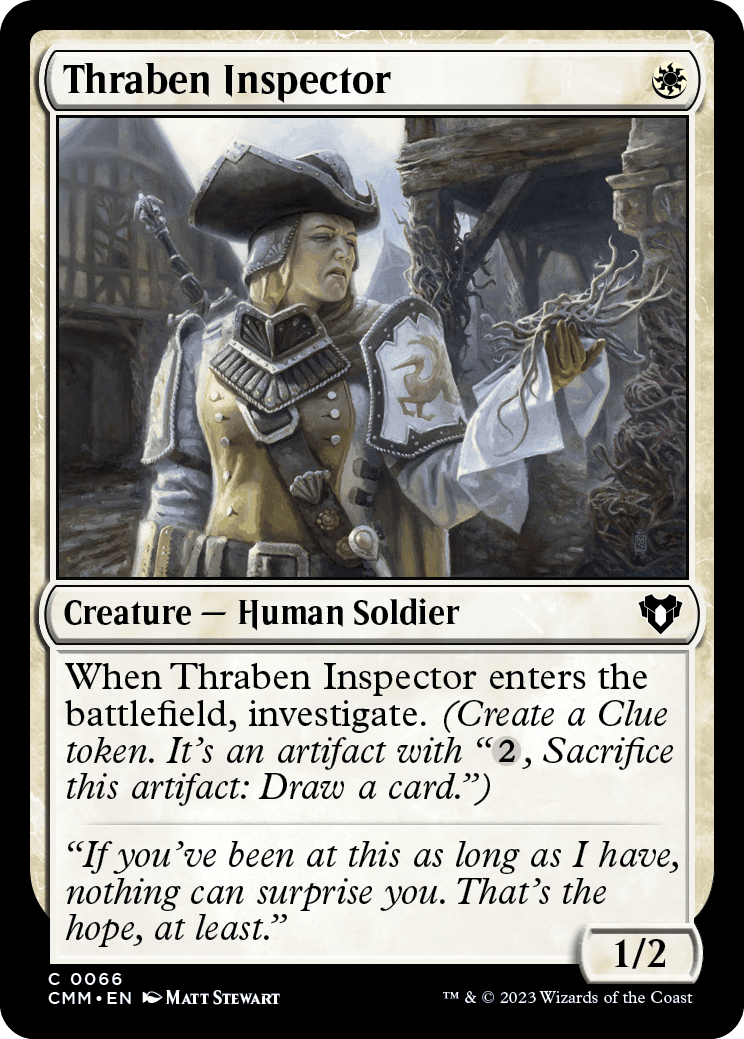
Thraben Inspector
{W}
Creature — Human Soldier
1/2
When Thraben Inspector enters the battlefield, investigate. (Create a Clue token. It's an artifact with "{2}, Sacrifice this artifact: Draw a card.")
- The token is named Clue Token and has the artifact subtype Clue. Clue isn't a creature type.
- The tokens are normal artifacts. For example, they can be sacrificed to cast Angelic Purge or targeted by Root Out.
- If you sacrifice a Clue for another card's cost or effect, such as that of Angelic Purge or Tamiyo's Journal, you can't also pay {2} and sacrifice it to draw a card.
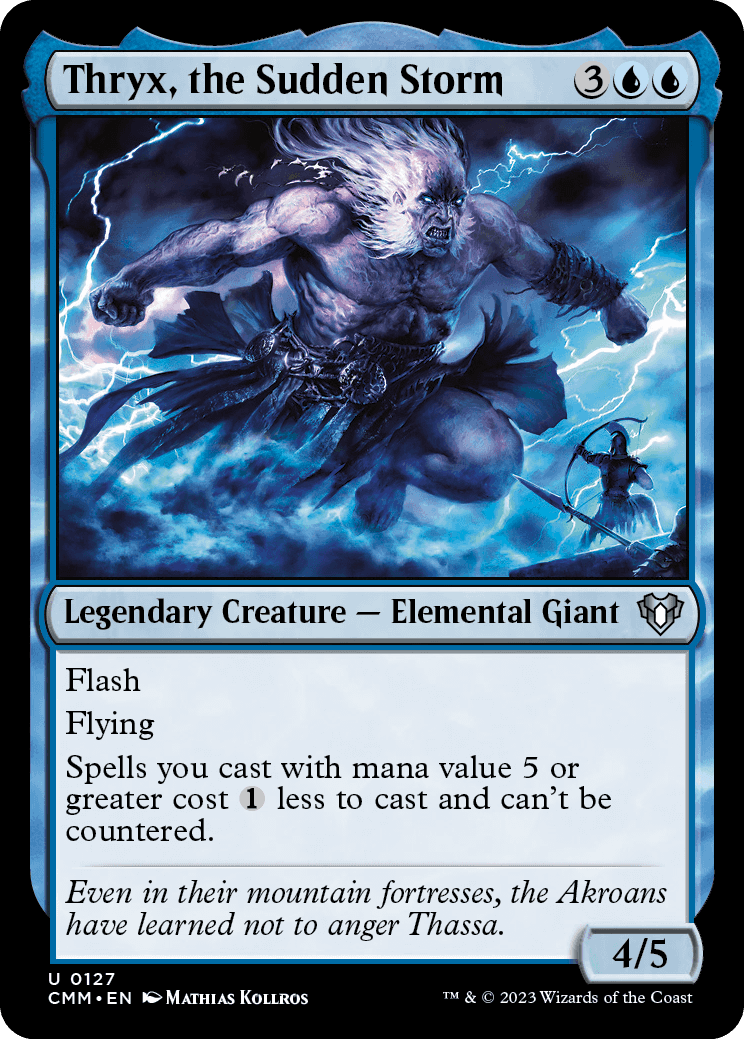
Thryx, the Sudden Storm
{3}{U}{U}
Legendary Creature — Elemental Giant
4/5
Flash
Flying
Spells you cast with mana value 5 or greater cost {1} less to cast and can't be countered.
- To determine the total cost of a spell, start with the mana cost or alternative cost you're paying, add any cost increases, then apply any cost reductions (such as that of Thryx). The mana value of the spell remains unchanged, no matter what the total cost to cast it was.
- For spells with {X} in their mana costs, use the value chosen for X to determine the spell's mana value.
- Thryx's last ability doesn't apply to itself while it's a spell.
- A spell or ability that counters spells can still target spells you control with mana value 5 or greater. When that spell or ability resolves, your spell won't be countered, but any additional effects of the countering spell or ability will still happen.
- If Thryx enters the battlefield while a spell with mana value 5 or greater that you cast is on the stack, that spell can't be countered, even though you don't get the {1} discount.
- Players can't attempt to remove Thryx to raise the cost of a spell you wish to cast, but they can remove it to allow their spells and abilities to counter your spells.
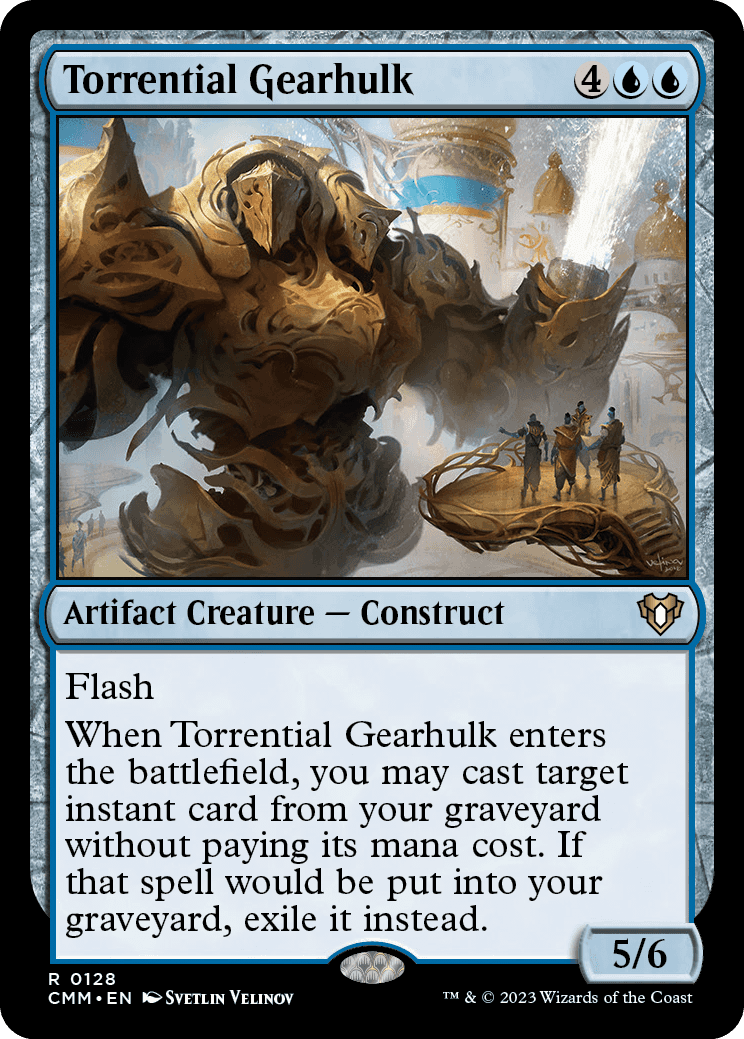
Torrential Gearhulk
{4}{U}{U}
Artifact Creature — Construct
5/6
Flash
When Torrential Gearhulk enters the battlefield, you may cast target instant card from your graveyard without paying its mana cost. If that spell would be put into your graveyard, exile it instead.
- If you cast the card, you do so as part of the resolution of Torrential Gearhulk's triggered ability. You can't wait to cast it later in the turn. Timing restrictions (such as "Cast [this card] only during combat") still apply.
- If you cast a card "without paying its mana cost," you can't choose to cast it for any alternative costs, such as emerge costs. You can, however, pay additional costs. If the card has any mandatory additional costs, such as that of Incendiary Sabotage, you must pay those to cast the card.
- If the card has {X} in its mana cost, you must choose 0 as the value of X when casting it without paying its mana cost.
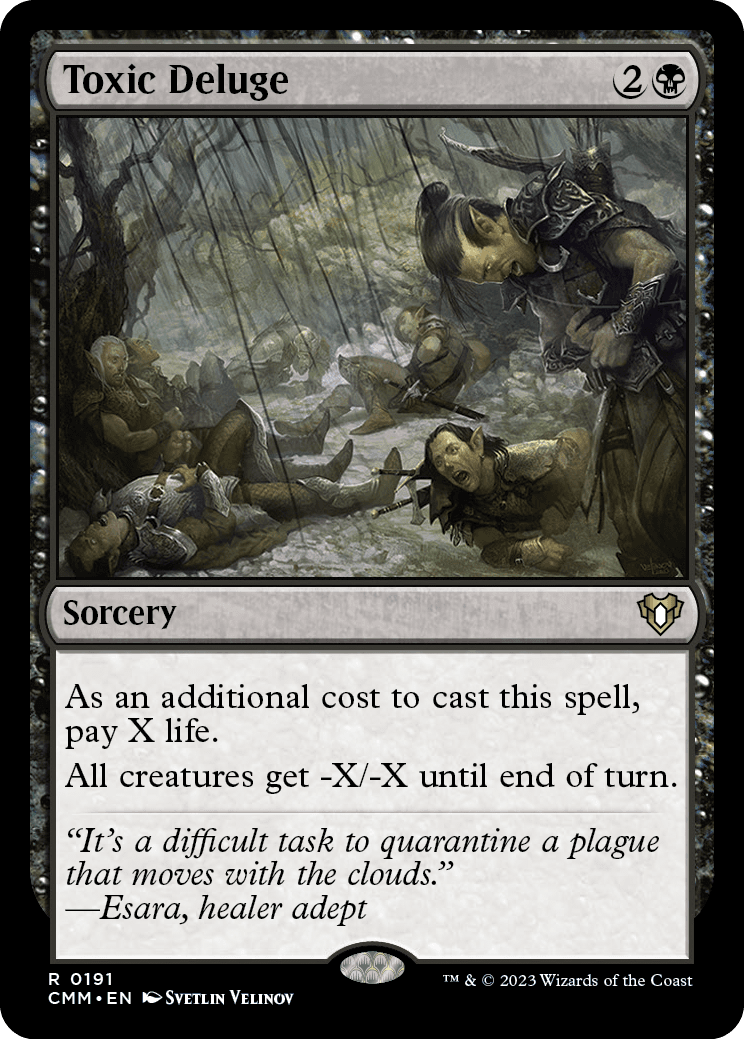
Toxic Deluge
{2}{B}
Sorcery
As an additional cost to cast this spell, pay X life.
All creatures get -X/-X until end of turn.
- If you cast Toxic Deluge without paying its mana cost, you'll still choose a value for X and pay X life. This is because it doesn't have {X} in its mana cost.
- All creatures on the battlefield when Toxic Deluge resolves are affected. Ones that enter the battlefield or become creatures later in the turn are not.
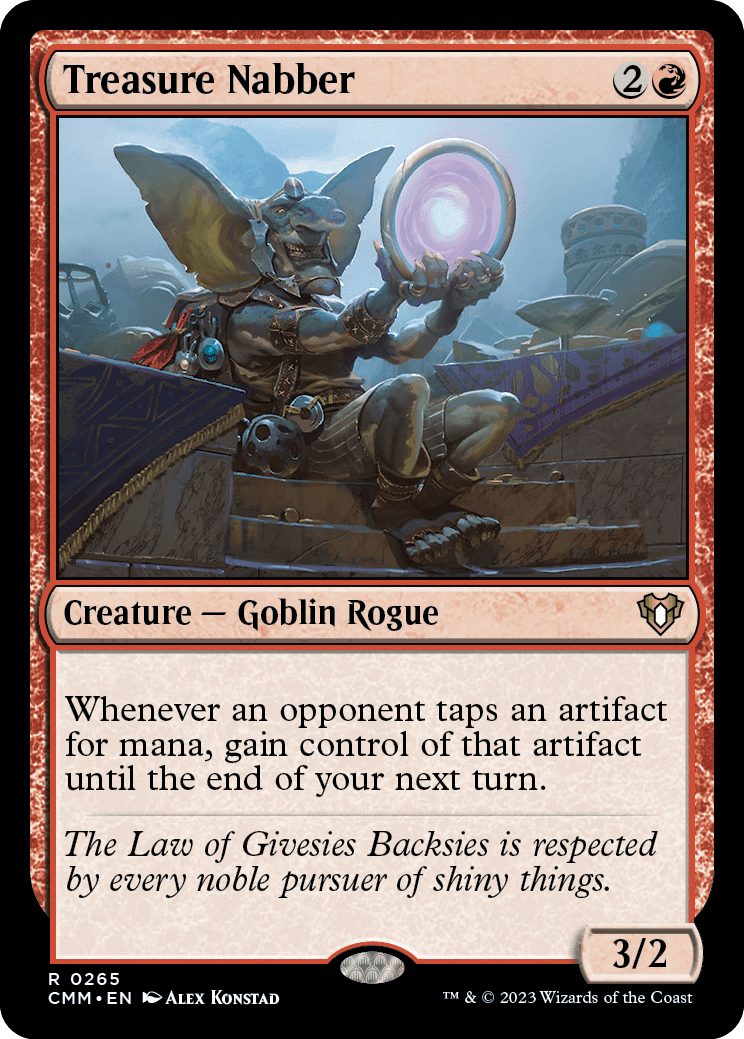
Treasure Nabber
{2}{R}
Creature — Goblin Rogue
3/2
Whenever an opponent taps an artifact for mana, gain control of that artifact until the end of your next turn.
- An artifact is "tapped for mana" when a player activates a mana ability of an artifact that includes {T} (the tap symbol). Notably, tapping an artifact to pay for a spell with the improvise keyword is not tapping that artifact for mana.
- If the artifact leaves the battlefield, Treasure Nabber doesn't nab it from the zone it moved to.
- The artifact remains tapped when you gain control of it.
- If an opponent taps an artifact for mana during your turn, you'll gain control of it and keep control of it until the end of your next turn.
- If you control multiple Treasure Nabbers, their effects all expire at the same time. You won't keep an artifact for any longer.
- If multiple players each control Treasure Nabbers, an artifact tapped for mana will make quite a journey. For example, if player A taps an artifact for mana during their turn, and players B and C are the next players in turn order who control Treasure Nabbers, C's ability resolves before B and C gains control of the artifact. Then B gains control of the artifact. B keeps it during their turn, and then C regains control of the artifact once B's effect expires, then A will have it back after C's expires. However, if B or C taps the artifact for mana, one of them will take it from the other. You may need to pay very careful attention to which effects are still in effect, which have expired, and who owns what.
- In a multiplayer game, if a player leaves the game, all cards that player owns leave as well. If that player controls any nabbed treasures, the effect giving that player control of those artifacts ends.
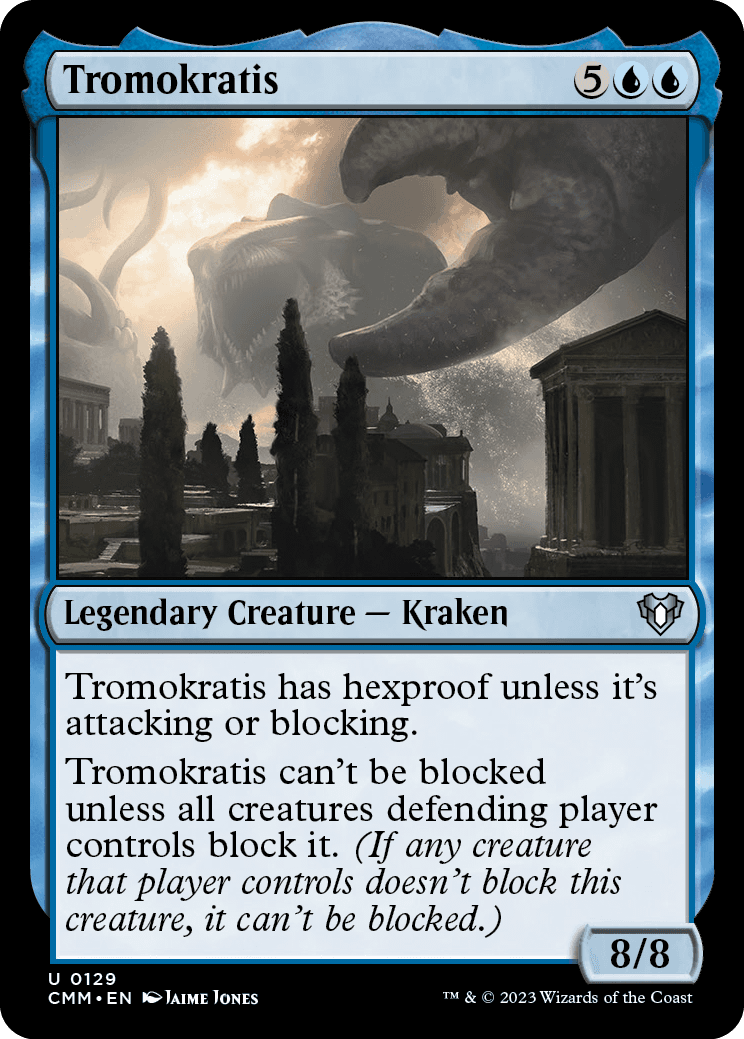
Tromokratis
{5}{U}{U}
Legendary Creature — Kraken
8/8
Tromokratis has hexproof unless it's attacking or blocking.
Tromokratis can't be blocked unless all creatures defending player controls block it. (If any creature that player controls doesn't block this creature, it can't be blocked.)
- The defending player may block Tromokratis with each creature they control. If that player can't, perhaps because one of those creatures is tapped, or chooses not to, Tromokratis can't be blocked.
- Tromokratis (like all attacking and blocking creatures) remains an attacking or blocking creature until the end of combat step is over. Notably, it will still be an attacking or blocking creature during the combat damage step, so any abilities an opponent controls that trigger when a creature dies as a result of combat damage could target Tromokratis.
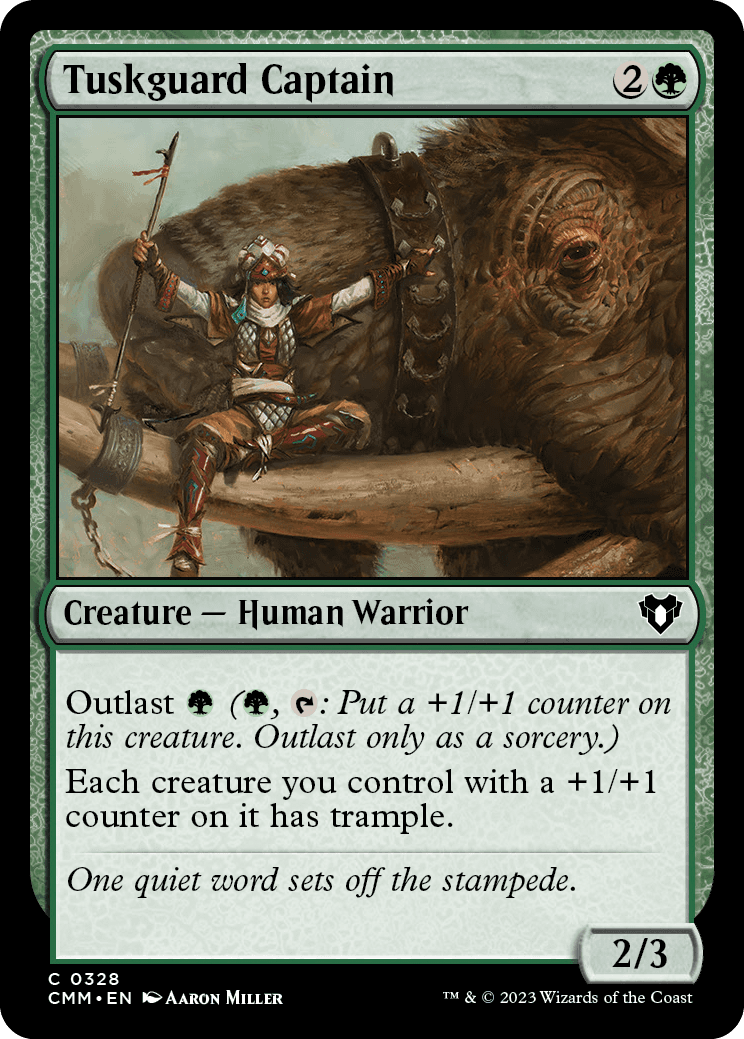
Tuskguard Captain
{2}{G}
Creature — Human Warrior
2/3
Outlast {G} ({G}, {T}: Put a +1/+1 counter on this creature. Outlast only as a sorcery.)
Each creature you control with a +1/+1 counter on it has trample.
- The cost to activate a creature's outlast ability includes the tap symbol ({T}). A creature's outlast ability can't be activated unless that creature has been under your control continuously since the beginning of your turn.
- Several creatures with outlast also grant an ability to creatures you control with +1/+1 counters on them, including themselves. These counters could come from an outlast ability, but any +1/+1 counter on the creature will count.
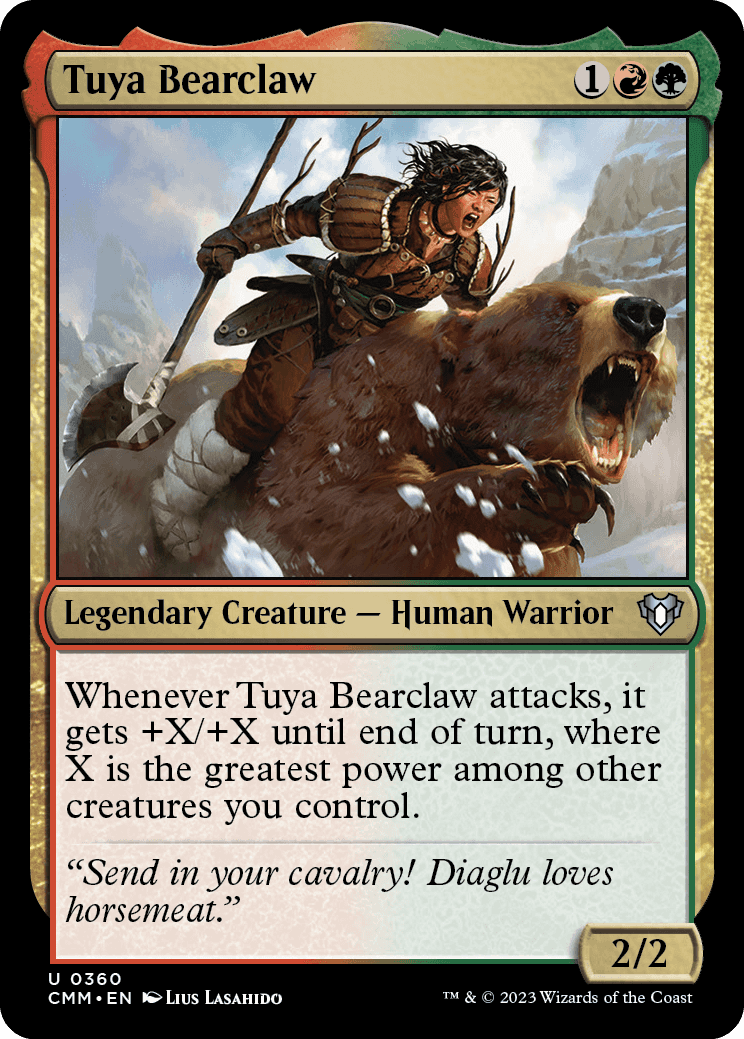
Tuya Bearclaw
{1}{R}{G}
Legendary Creature — Human Warrior
2/2
Whenever Tuya Bearclaw attacks, it gets +X/+X until end of turn, where X is the greatest power among other creatures you control.
- The value of X is calculated as Tuya Bearclaw's ability resolves. If you control no other creatures at that time or if the greatest power among other creatures you control is 0 or less, X will be 0.
- Once the ability resolves and the bonus is applied, that bonus won't change, even if the greatest power among other creatures you control does.
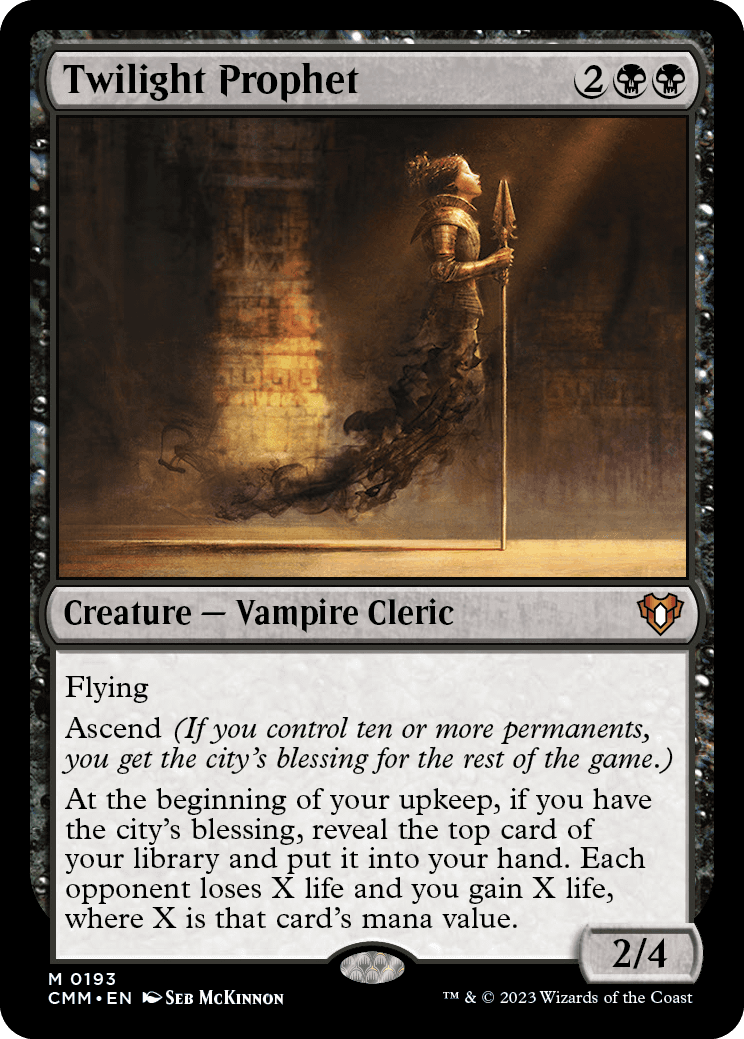
Twilight Prophet
{2}{B}{B}
Creature — Vampire Cleric
2/4
Flying
Ascend (If you control ten or more permanents, you get the city's blessing for the rest of the game.)
At the beginning of your upkeep, if you have the city's blessing, reveal the top card of your library and put it into your hand. Each opponent loses X life and you gain X life, where X is that card's mana value.
- If the mana cost of the revealed card includes {X}, X is considered to be 0.
- If the revealed card doesn't have a mana cost (because it's a land card, for example), its mana value is 0.
- The mana value of a split card, such as cards with aftermath from the Amonkhet block, is based on the combined mana value of its two halves.
- In a Two-Headed Giant game, Twilight Prophet's last ability causes the opposing team to lose twice X life and you gain X life.
- Once you have the city's blessing, you have it for the rest of the game, even if you lose control of some or all of your permanents. The city's blessing isn't a permanent itself and can't be removed by any effect.
- A permanent is any object on the battlefield, including tokens and lands. Spells and emblems aren't permanents.
- If you cast a spell with ascend, you don't get the city's blessing until it resolves. Players may respond to that spell by trying to change whether you get the city's blessing.
- If you control ten permanents but don't control a permanent or resolving spell with ascend, you don't get the city's blessing.
- If your tenth permanent enters the battlefield and then a permanent leaves the battlefield immediately afterwards (most likely due to the "Legend Rule" or due to being a creature with 0 toughness), you get the city's blessing before it leaves the battlefield.
- Ascend on a permanent isn't a triggered ability and doesn't use the stack. Players can respond to a spell that will give you your tenth permanent, but they can't respond to getting the city's blessing once you control that tenth permanent. This means that if your tenth permanent is a land you play, players can't respond before you get the city's blessing.
- Some cards have triggered abilities with an intervening "if" clause that checks whether you have the city's blessing. These are worded "[Trigger condition], if you have the city's blessing, [effect]." You must already have the city's blessing in order for these abilities to trigger; otherwise they do nothing. In other words, there's no way to have the ability trigger if you don't have the city's blessing, even if you intend to get it in response to the triggered ability.
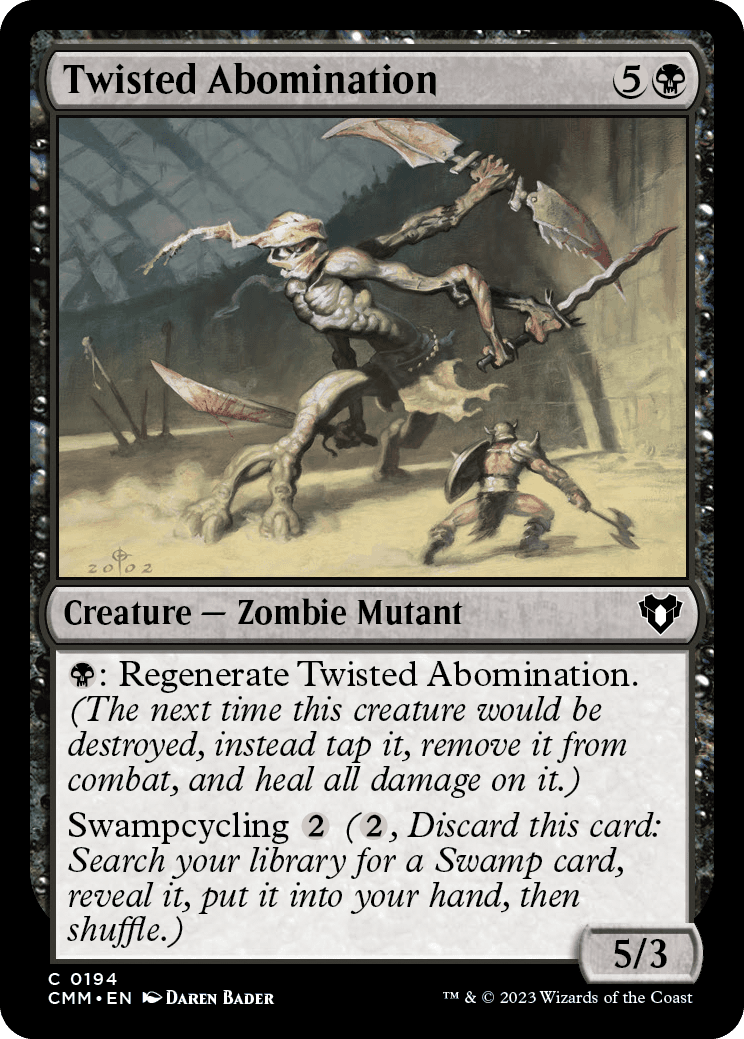
Twisted Abomination
{5}{B}
Creature — Zombie Mutant
5/3
{B}: Regenerate Twisted Abomination. (The next time this creature would be destroyed, instead tap it, remove it from combat, and heal all damage on it.)
Swampcycling {2} ({2}, Discard this card: Search your library for a Swamp card, reveal it, put it into your hand, then shuffle.)
- Unlike the normal cycling ability, Swampcycling doesn't allow you to draw a card. Instead, it lets you search your library for a Swamp card. After you find a Swamp card in your library, you reveal it, put it into your hand, then shuffle your library.
- Swampcycling is a form of cycling. Any ability that triggers on a card being cycled also triggers on Swampcycling this card. Any ability that stops a cycling ability from being activated also stops Swampcycling from being activated.
- Swampcycling is an activated ability. Effects that interact with activated abilities (such as Stifle or Rings of Brighthearth) will interact with Swampcycling. Effects that interact with spells (such as Remove Soul or Faerie Tauntings) will not.
- You can choose to find any card with the Swamp land type, including nonbasic lands. You can also choose not to find a card, even if there is a Swamp card in your library.
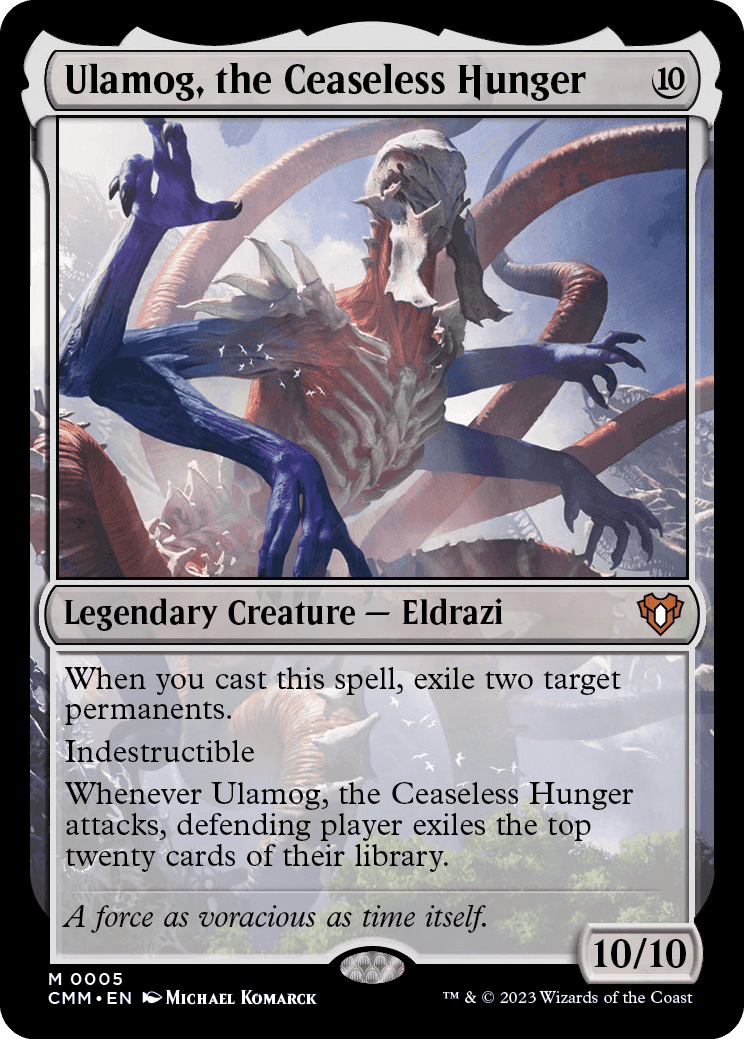
Ulamog, the Ceaseless Hunger
{10}
Legendary Creature — Eldrazi
10/10
When you cast this spell, exile two target permanents.
Indestructible
Whenever Ulamog, the Ceaseless Hunger attacks, defending player exiles the top twenty cards of their library.
- Ulamog's first ability resolves independently of Ulamog once they've both been put on the stack. If Ulamog is countered, that triggered ability will still resolve. That triggered ability will always resolve before Ulamog does.
- Cards exiled by Ulamog's first and third abilities are exiled face up.
- If the player has less than twenty cards in their library, exile all of them. That player won't lose the game until they have to draw a card from an empty library.
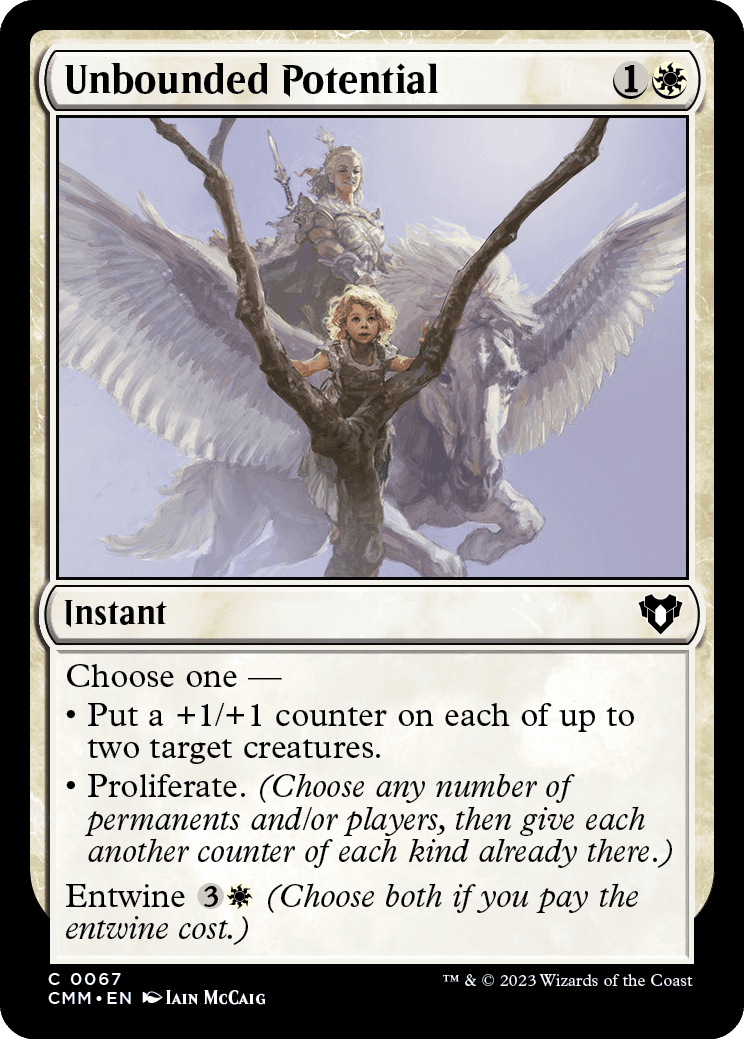
Unbounded Potential
{1}{W}
Instant
Choose one —
• Put a +1/+1 counter on each of up to two target creatures.
• Proliferate. (Choose any number of permanents and/or players, then give each another counter of each kind already there.)
Entwine {3}{W} (Choose both if you pay the entwine cost.)
- If you cast this spell by paying its entwine cost, you will be able to proliferate the counters that you placed with the first mode.
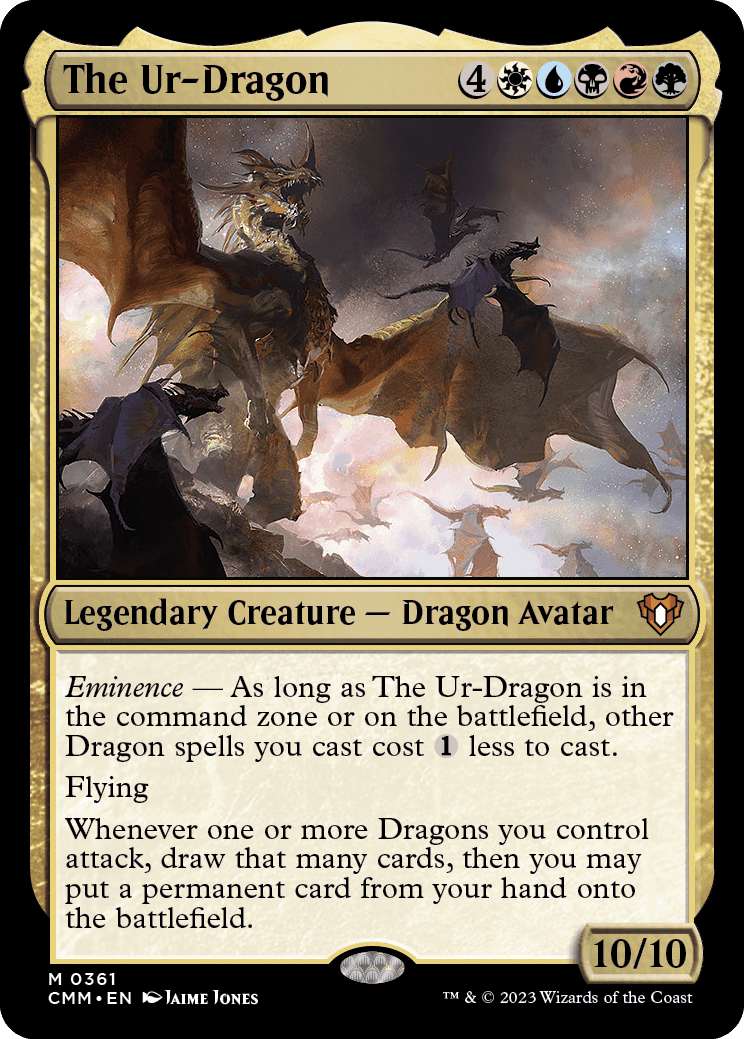
The Ur-Dragon
{4}{W}{U}{B}{R}{G}
Legendary Creature — Dragon Avatar
10/10
Eminence — As long as The Ur-Dragon is in the command zone or on the battlefield, other Dragon spells you cast cost {1} less to cast.
Flying
Whenever one or more Dragons you control attack, draw that many cards, then you may put a permanent card from your hand onto the battlefield.
- You draw one card for each Dragon you controlled that attacked, even if some of them left the battlefield before The Ur-Dragon's triggered ability resolves.
- You may only put one permanent card from your hand onto the battlefield, no matter how many Dragons you attacked with or how many players they attacked.
- If a Dragon you control enters the battlefield attacking, it won't cause The Ur-Dragon's last ability to trigger.
- The Ur-Dragon's triggered ability resolves after all attackers have been chosen. You can't attack with some Dragons, put a creature card with haste onto the battlefield, and then attack with that creature. Similarly, any "whenever a creature attacks" abilities of the permanent card you put onto the battlefield won't trigger.
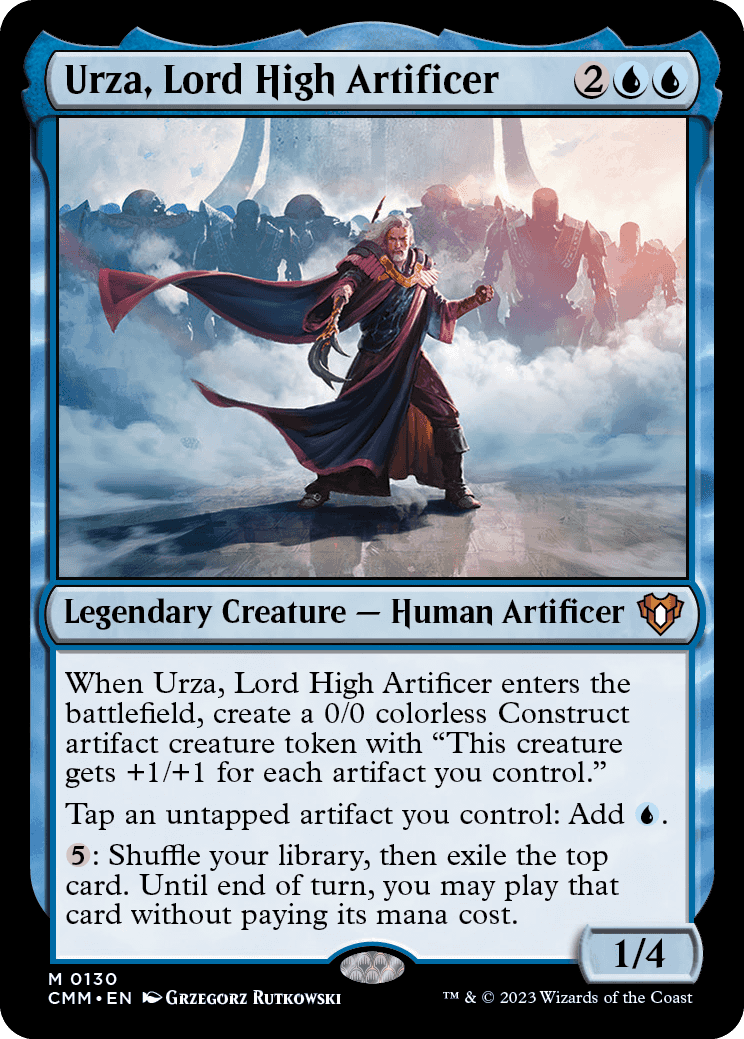
Urza, Lord High Artificer
{2}{U}{U}
Legendary Creature — Human Artificer
1/4
When Urza, Lord High Artificer enters the battlefield, create a 0/0 colorless Construct artifact creature token with "This creature gets +1/+1 for each artifact you control."
Tap an untapped artifact you control: Add {U}.
{5}: Shuffle your library, then exile the top card. Until end of turn, you may play that card without paying its mana cost.
- The token created by Urza's first ability will count itself, so it'll be at least 1/1.
- You can tap any untapped artifact you control to pay the cost of the mana ability, including an artifact creature you haven't controlled continuously since the beginning of your most recent turn. Tapping an Equipment this way won't affect its abilities or the equipped creature.
- If you don't play the card exiled with Urza's last ability, it remains in exile.
- Urza's last ability doesn't change when you can play the exiled card. For example, if you exile a sorcery card, you can cast it only during your main phase when the stack is empty. If you exile a land card, you can play it only during your main phase and only if you have an available land play remaining.
- If a spell has {X} in its mana cost, you must choose 0 as the value of X when casting it without paying its mana cost.
- If you cast a card "without paying its mana cost," you can't choose to cast it for any alternative costs. You can, however, pay additional costs. If the card has any mandatory additional costs, you must pay those to cast the card.
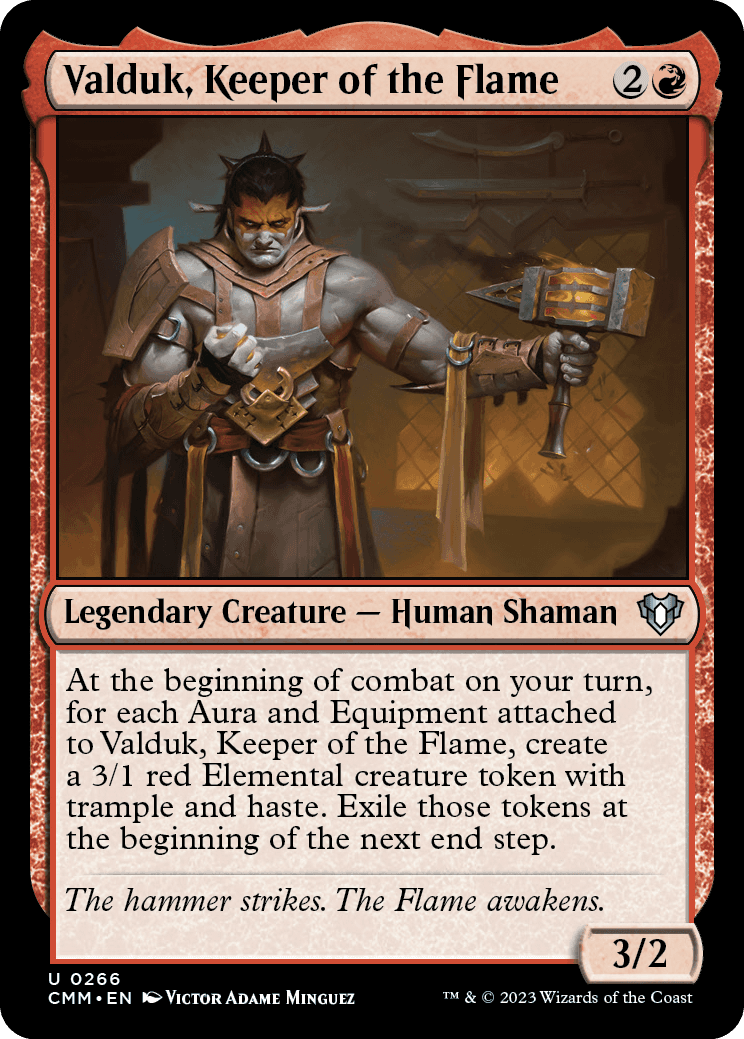
Valduk, Keeper of the Flame
{2}{R}
Legendary Creature — Human Shaman
3/2
At the beginning of combat on your turn, for each Aura and Equipment attached to Valduk, Keeper of the Flame, create a 3/1 red Elemental creature token with trample and haste. Exile those tokens at the beginning of the next end step.
- Valduk counts all Auras and Equipment attached to it, not only Auras and Equipment you control.
- If Valduk leaves the battlefield after its ability has triggered but before it resolves, use the number of Auras and Equipment that were last attached to it before it left the battlefield to determine how many tokens to create.
- If Valduk leaves the battlefield after its ability has resolved, the tokens are still exiled at the beginning of the next end step.
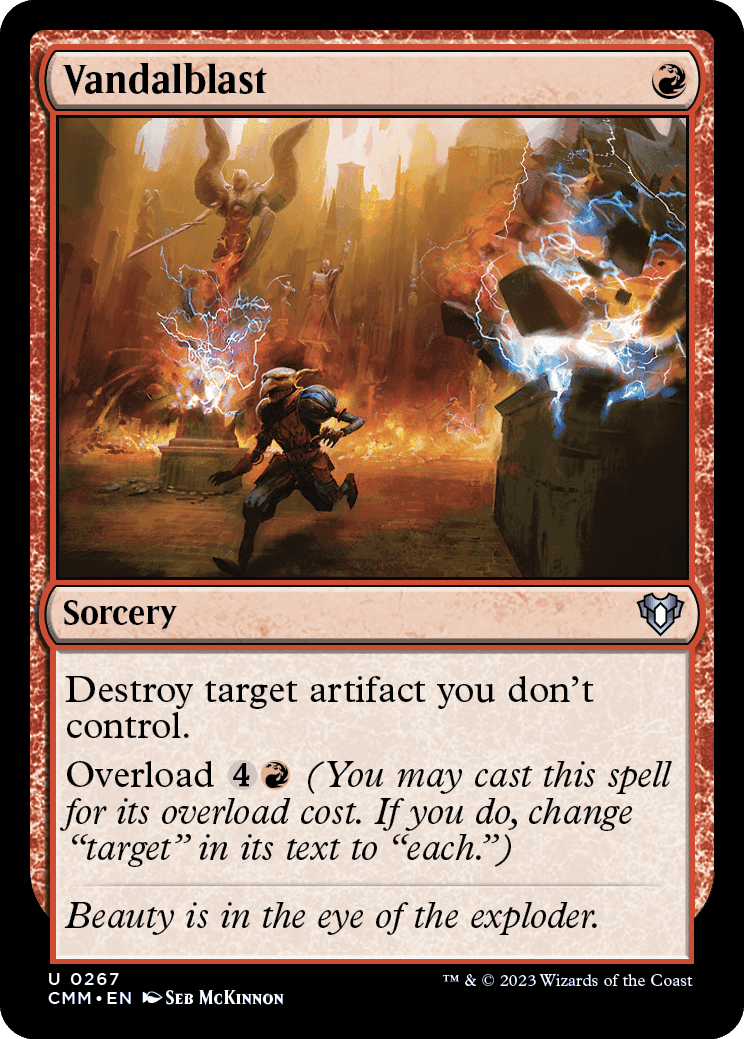
Vandalblast
{R}
Sorcery
Destroy target artifact you don't control.
Overload {4}{R} (You may cast this spell for its overload cost. If you do, change "target" in its text to "each.")
- If you don't pay the overload cost of a spell, that spell will have a single target. If you pay the overload cost, the spell won't have any targets.
- Because a spell with overload doesn't target when its overload cost is paid, it may affect permanents with hexproof or with protection from the appropriate color.
- Note that if the spell with overload is dealing damage, protection from that spell's color will still prevent that damage.
- Overload doesn't change when you can cast the spell.
- Casting a spell with overload doesn't change that spell's mana cost. You just pay the overload cost instead.
- Effects that cause you to pay more or less for a spell will cause you to pay that much more or less while casting it for its overload cost, too.
- If you are instructed to cast a spell with overload "without paying its mana cost," you can't choose to pay its overload cost instead.
- To determine the total cost of a spell, start with the mana cost or alternative cost you're paying (such as an overload cost), add any cost increases, then apply any cost reductions. The mana value of the spell is determined by only its mana cost, no matter what the total cost to cast that spell was.
- If you are instructed to cast a spell with overload "without paying its mana cost," you can't choose to pay its overload cost instead.
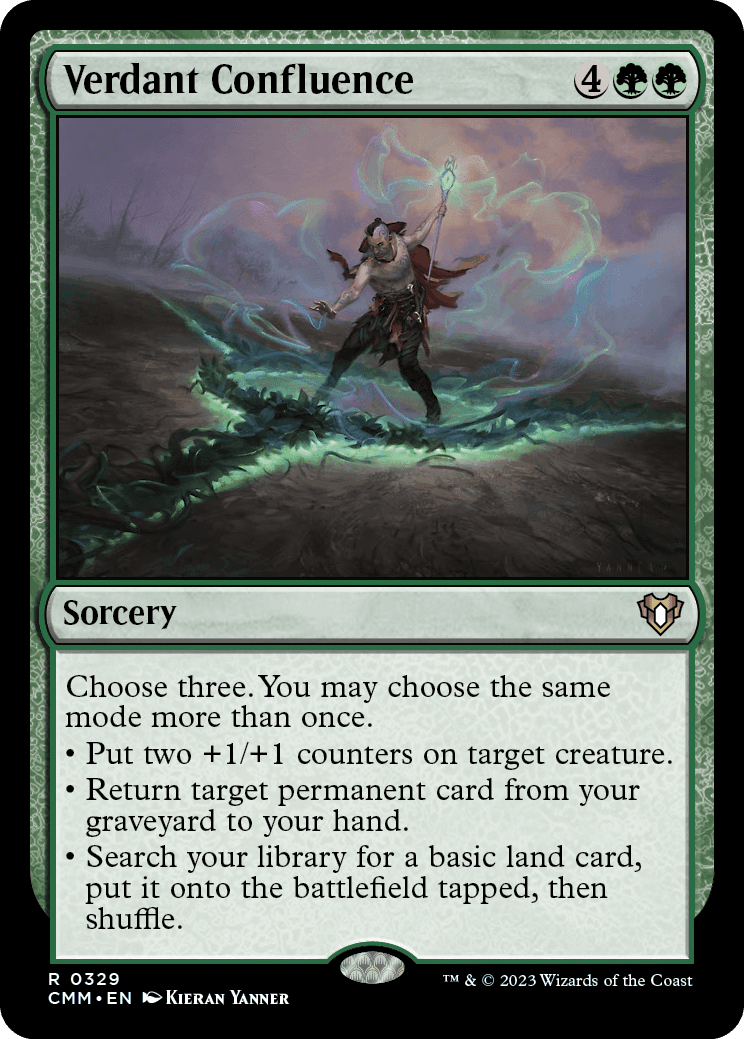
Verdant Confluence
{4}{G}{G}
Sorcery
Choose three. You may choose the same mode more than once.
• Put two +1/+1 counters on target creature.
• Return target permanent card from your graveyard to your hand.
• Search your library for a basic land card, put it onto the battlefield tapped, then shuffle.
- A permanent card is an artifact, battle, creature, enchantment, land, or planeswalker card.
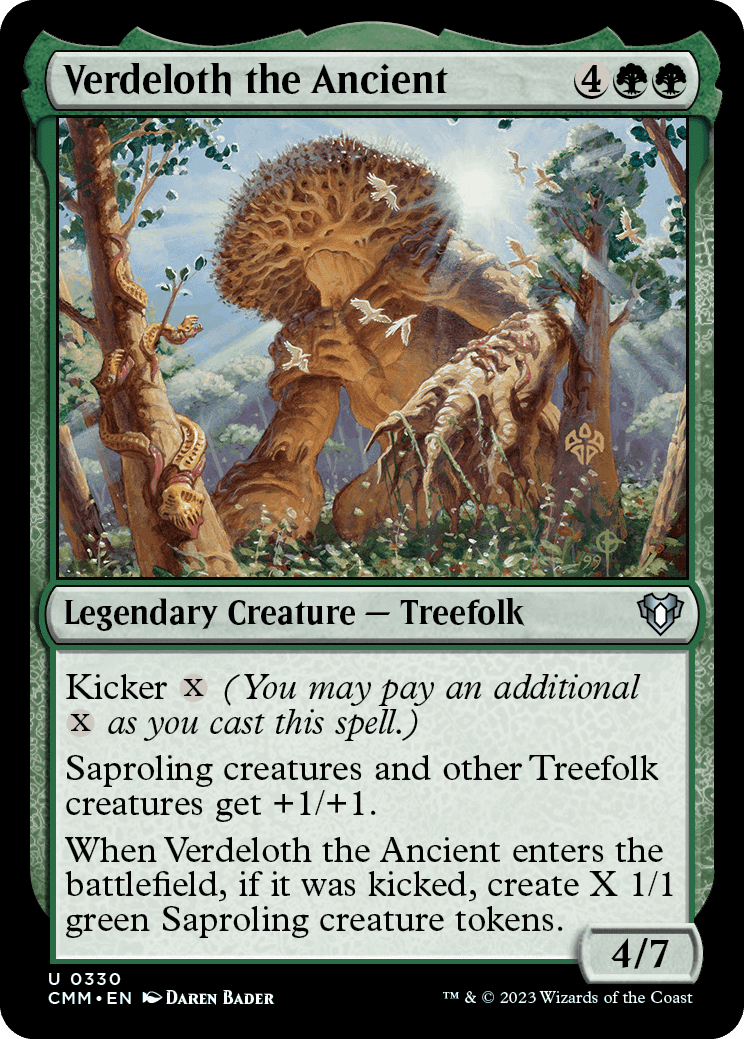
Verdeloth the Ancient
{4}{G}{G}
Legendary Creature — Treefolk
4/7
Kicker {X} (You may pay an additional {X} as you cast this spell.)
Saproling creatures and other Treefolk creatures get +1/+1.
When Verdeloth the Ancient enters the battlefield, if it was kicked, create X 1/1 green Saproling creature tokens.
- Verdeloth won't give himself +1/+1 unless he somehow becomes a Saproling.
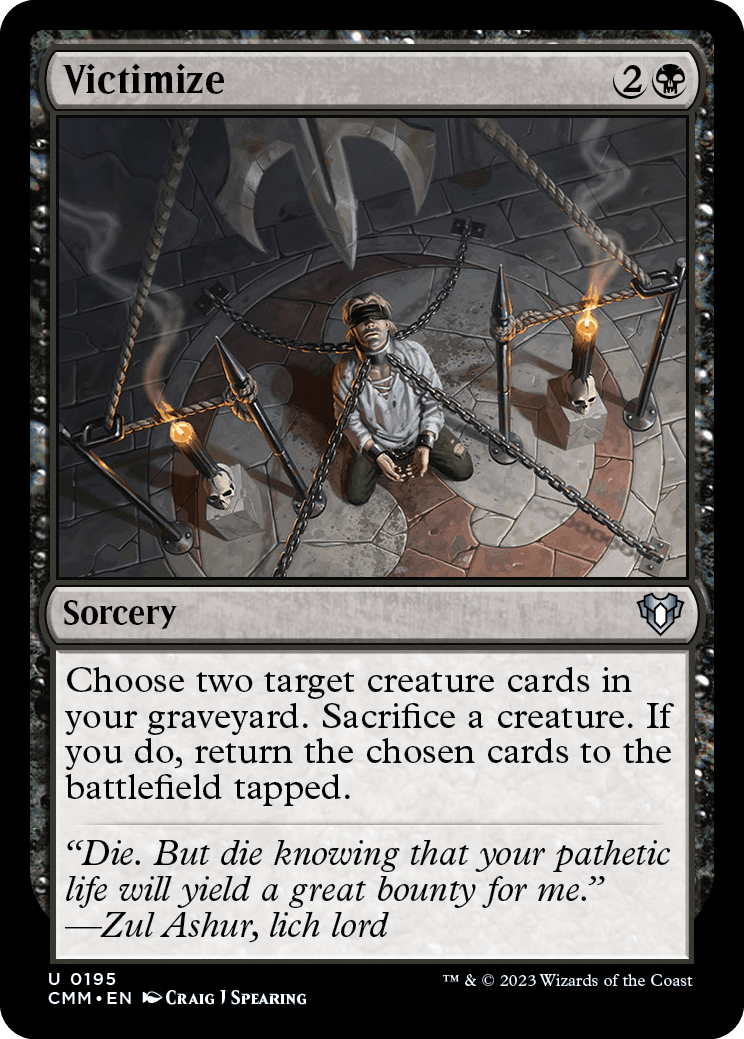
Victimize
{2}{B}
Sorcery
Choose two target creature cards in your graveyard. Sacrifice a creature. If you do, return the chosen cards to the battlefield tapped.
- You must choose two targets. You can't cast Victimize targeting only one creature card.
- If one of the targeted creature cards is an illegal target (for instance, because it has left your graveyard before Victimize resolves), you'll still sacrifice a creature and put the other card onto the battlefield. If both are illegal targets, Victimize won't resolve. You won't sacrifice a creature.
- The creature you sacrifice isn't chosen until Victimize resolves. You can't return the creature you sacrifice because it will still be on the battlefield at the time targets are chosen.
- As Victimize resolves, you must sacrifice a creature if able. You can't change your mind and choose not to sacrifice anything.
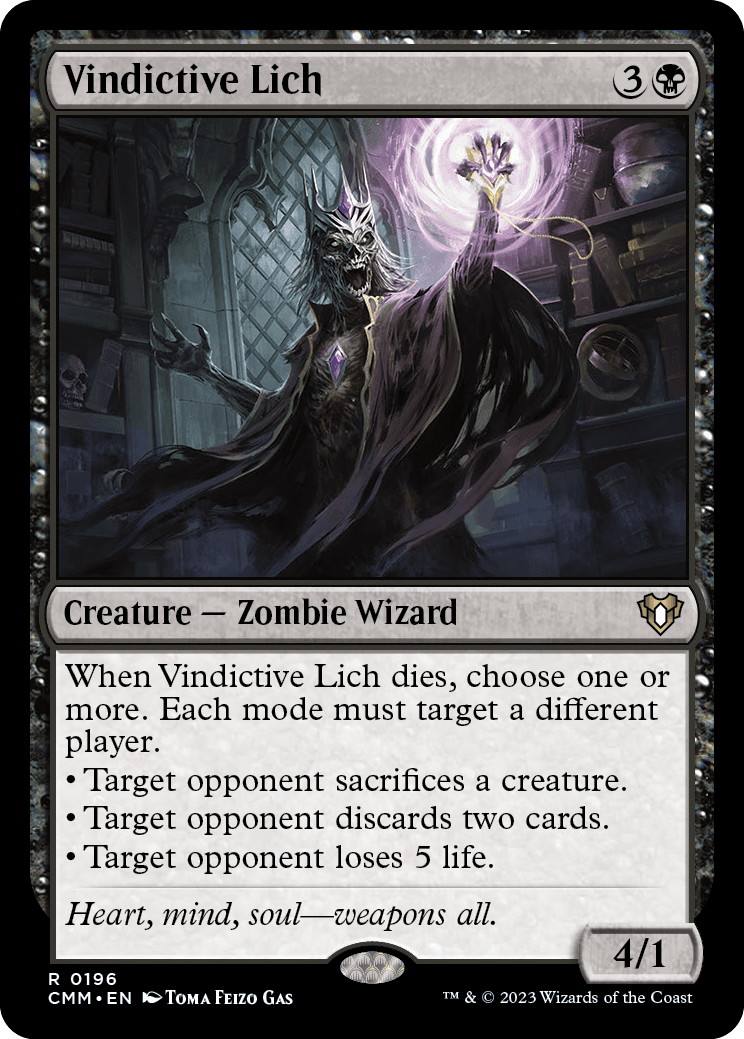
Vindictive Lich
{3}{B}
Creature — Zombie Wizard
4/1
When Vindictive Lich dies, choose one or more. Each mode must target a different player.
• Target opponent sacrifices a creature.
• Target opponent discards two cards.
• Target opponent loses 5 life.
- You can't choose more modes for Vindictive Lich's triggered ability than you have opponents, but you need to choose at least one target if you can.
- You don't have to choose a mode for each opponent. For example, you could make one opponent lose 5 life and spare each other opponent. They might not repay your kindness.
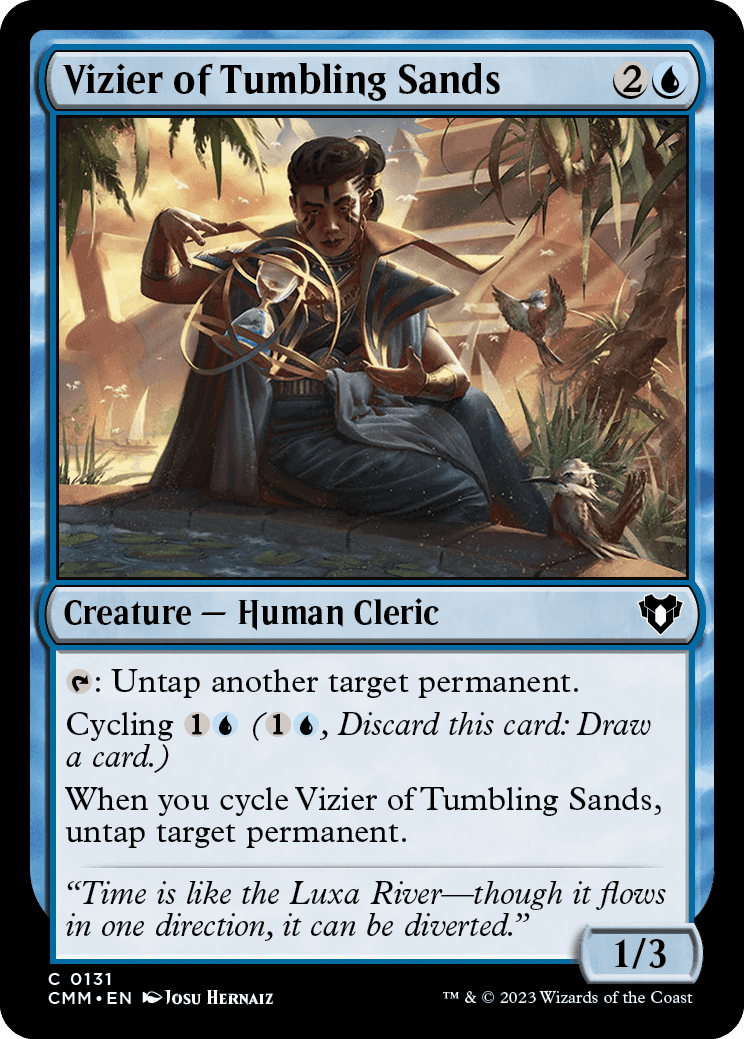
Vizier of Tumbling Sands
{2}{U}
Creature — Human Cleric
1/3
{T}: Untap another target permanent.
Cycling {1}{U} ({1}{U}, Discard this card: Draw a card.)
When you cycle Vizier of Tumbling Sands, untap target permanent.
- When you cycle this card, first the cycling ability goes on the stack, then the triggered ability goes on the stack on top of it. The triggered ability will resolve before you draw a card from the cycling ability.
- The cycling ability and the triggered ability are separate. If the triggered ability doesn't resolve (because, for example, it has been countered, or all of its targets have become illegal), the cycling ability will still resolve, and you'll draw a card.
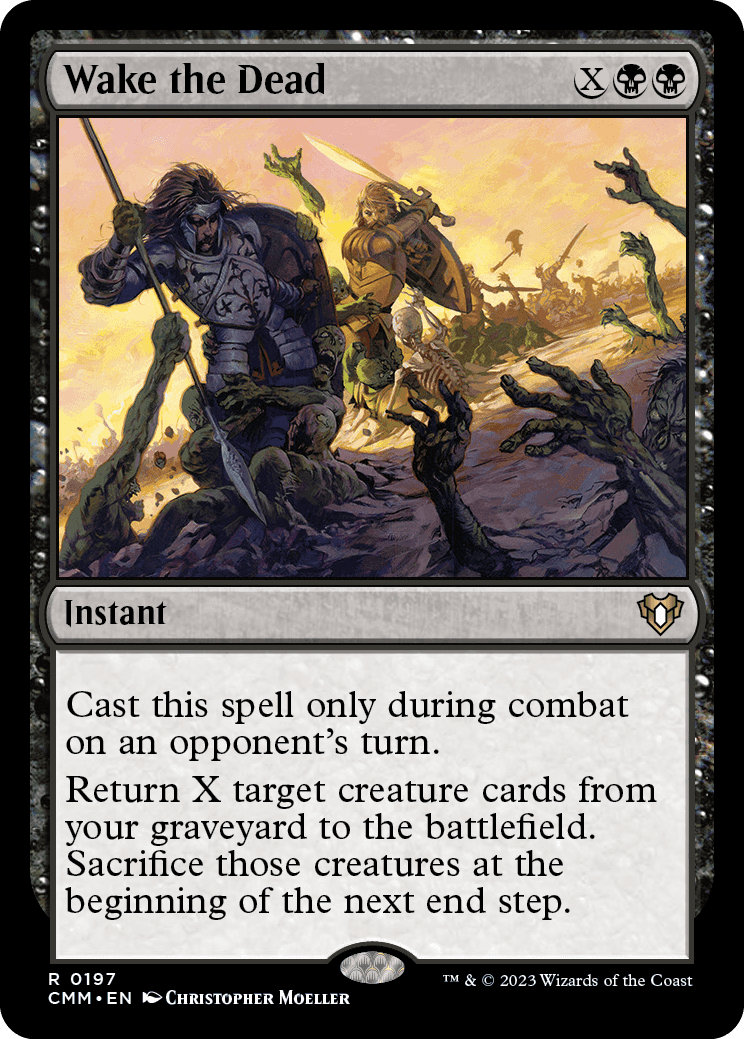
Wake the Dead
{X}{B}{B}
Instant
Cast this spell only during combat on an opponent's turn.
Return X target creature cards from your graveyard to the battlefield. Sacrifice those creatures at the beginning of the next end step.
- The delayed triggered ability that makes you sacrifice the creatures will trigger only once. If you don't sacrifice one or more of those creatures at that time (perhaps because another player gained control of them), the ability won't try to make you sacrifice them on future turns.
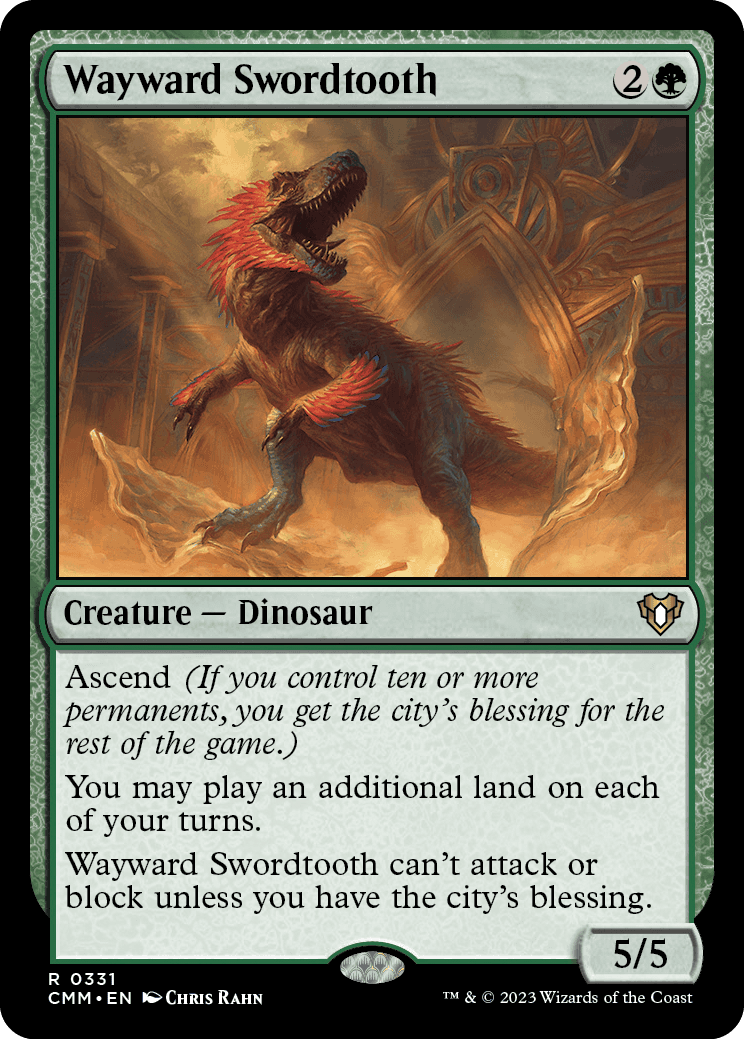
Wayward Swordtooth
{2}{G}
Creature — Dinosaur
5/5
Ascend (If you control ten or more permanents, you get the city's blessing for the rest of the game.)
You may play an additional land on each of your turns.
Wayward Swordtooth can't attack or block unless you have the city's blessing.
- Wayward Swordtooth's middle ability is cumulative if you control more than one. It's also cumulative with other effects that let you play additional lands, such as the one from Enter the Unknown.
- Once you have the city's blessing, you have it for the rest of the game, even if you lose control of some or all of your permanents. The city's blessing isn't a permanent itself and can't be removed by any effect.
- A permanent is any object on the battlefield, including tokens and lands. Spells and emblems aren't permanents.
- If you cast a spell with ascend, you don't get the city's blessing until it resolves. Players may respond to that spell by trying to change whether you get the city's blessing.
- If you control ten permanents but don't control a permanent or resolving spell with ascend, you don't get the city's blessing.
- If your tenth permanent enters the battlefield and then a permanent leaves the battlefield immediately afterwards (most likely due to the "Legend Rule" or due to being a creature with 0 toughness), you get the city's blessing before it leaves the battlefield.
- Ascend on a permanent isn't a triggered ability and doesn't use the stack. Players can respond to a spell that will give you your tenth permanent, but they can't respond to getting the city's blessing once you control that tenth permanent. This means that if your tenth permanent is a land you play, players can't respond before you get the city's blessing.
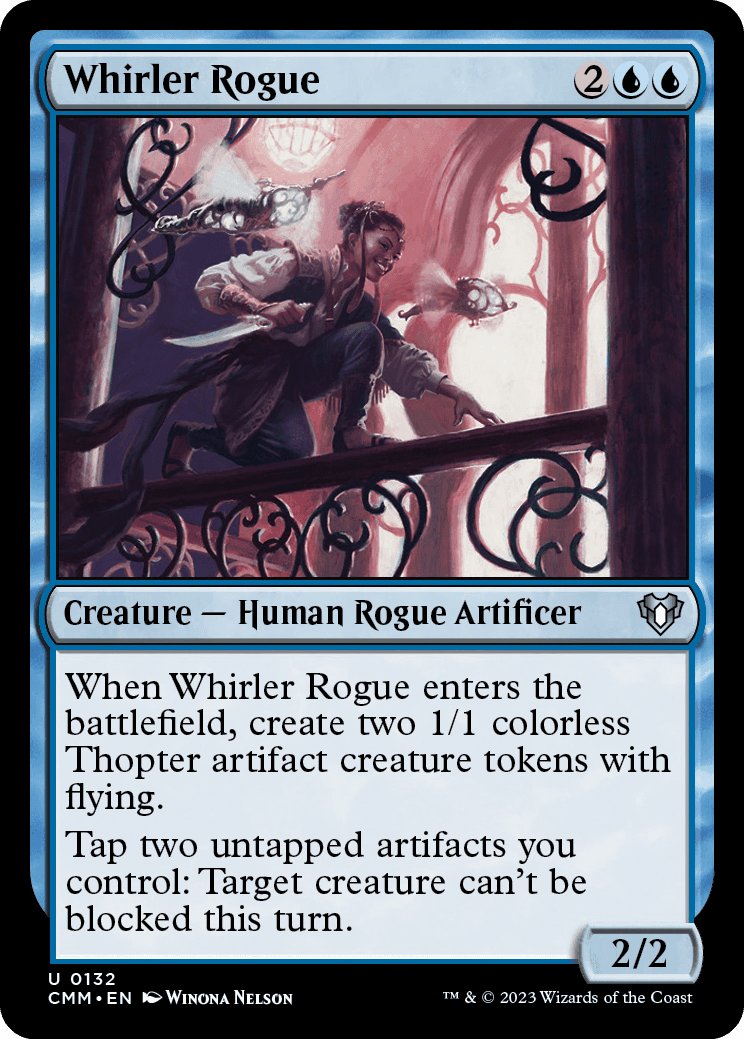
Whirler Rogue
{2}{U}{U}
Creature — Human Rogue Artificer
2/2
When Whirler Rogue enters the battlefield, create two 1/1 colorless Thopter artifact creature tokens with flying.
Tap two untapped artifacts you control: Target creature can't be blocked this turn.
- You may tap any two untapped artifacts you control, including artifact creatures that haven't been under your control continuously since the beginning of your most recent turn.
- Activating the second ability of Whirler Rogue after a creature has become blocked won't cause it to become unblocked.
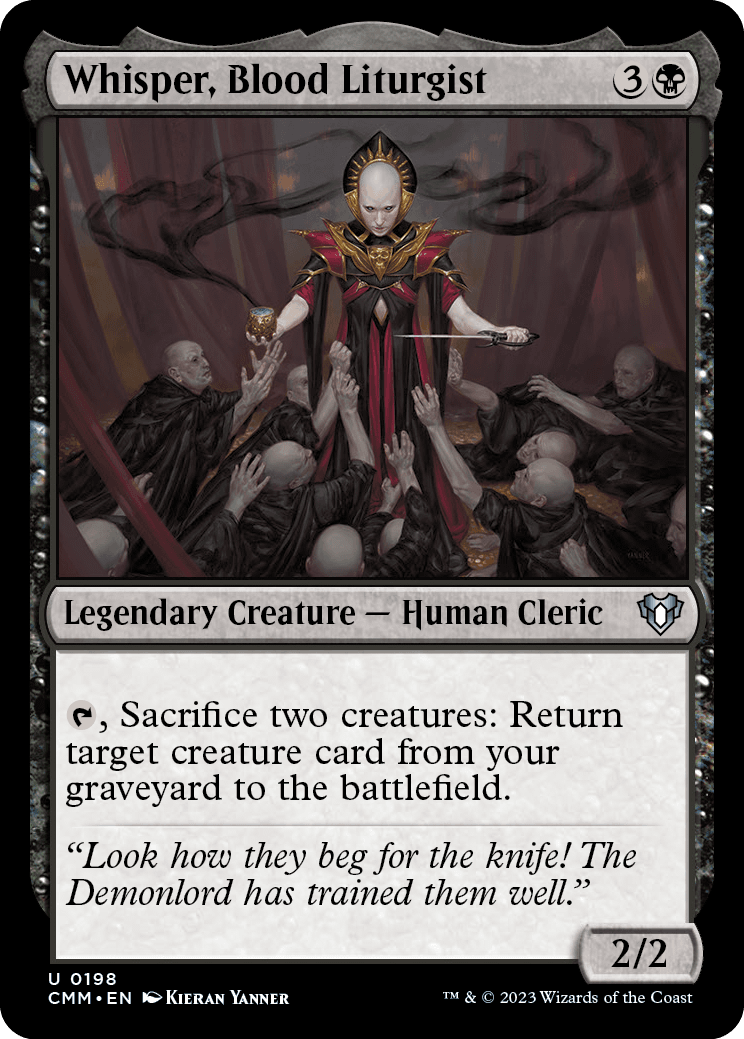
Whisper, Blood Liturgist
{3}{B}
Legendary Creature — Human Cleric
2/2
{T}, Sacrifice two creatures: Return target creature card from your graveyard to the battlefield.
- Whisper can be one of the creatures sacrificed to activate its ability.
- Neither sacrificed creature can be the target of Whisper's ability.
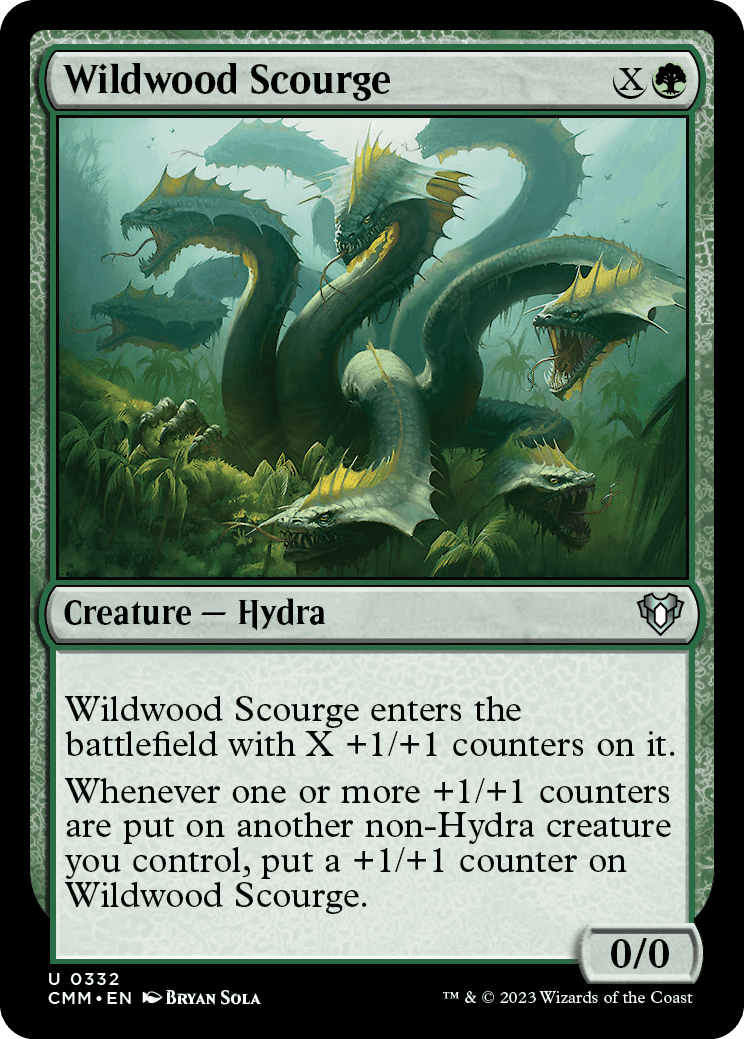
Wildwood Scourge
{X}{G}
Creature — Hydra
0/0
Wildwood Scourge enters the battlefield with X +1/+1 counters on it.
Whenever one or more +1/+1 counters are put on another non-Hydra creature you control, put a +1/+1 counter on Wildwood Scourge.
- Abilities that trigger when counters are put on a creature trigger when a creature enters the battlefield with counters and when a player puts counters on a creature.
- Wildwood Scourge gets just one +1/+1 counter, no matter how many counters were put on the non-Hydra creature.
- If you have two non-Hydra creatures with Wildwood Scourge's ability (perhaps because they were mutated using the Ikoria: Lair of Behemoths mutate ability), putting a +1/+1 counter on any non-Hydra creature you control will cause the two abilities to trigger each other indefinitely. If no player takes an action to break this loop, the game ends in a draw.
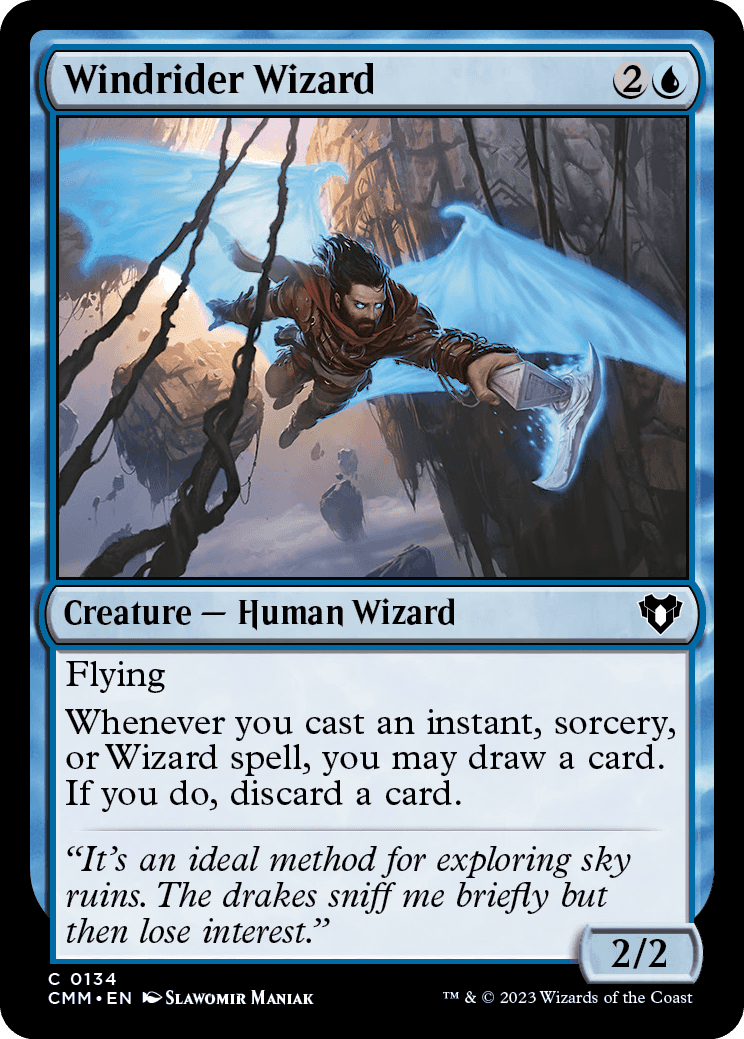
Windrider Wizard
{2}{U}
Creature — Human Wizard
2/2
Flying
Whenever you cast an instant, sorcery, or Wizard spell, you may draw a card. If you do, discard a card.
- You draw a card and discard a card while Windrider Wizard's last ability is resolving. No player may take actions between those events, and nothing can happen.
- An ability that triggers when a player casts a spell resolves before the spell that caused it to trigger, but after targets have been chosen for that spell (if it has any targets). The ability resolves even if that spell is countered.
- A Wizard spell is one with the creature type Wizard. Spells that are Wizard-themed (such as Relic Amulet) aren't Wizard spells.
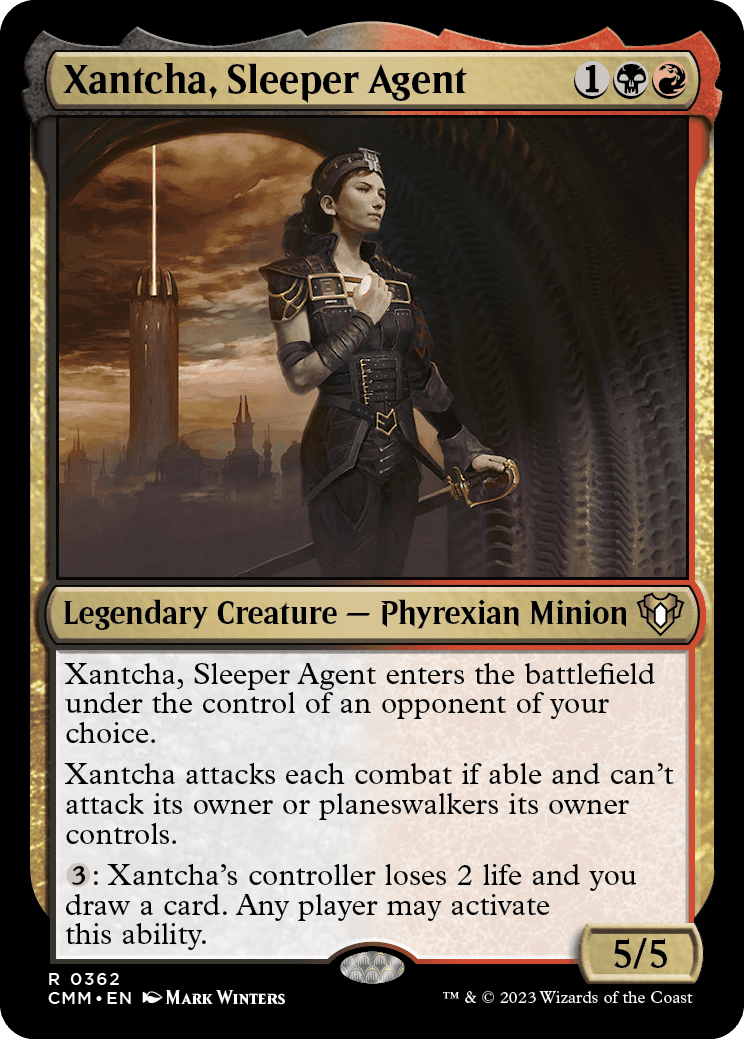
Xantcha, Sleeper Agent
{1}{B}{R}
Legendary Creature — Phyrexian Minion
5/5
Xantcha, Sleeper Agent enters the battlefield under the control of an opponent of your choice.
Xantcha attacks each combat if able and can't attack its owner or planeswalkers its owner controls.
{3}: Xantcha's controller loses 2 life and you draw a card. Any player may activate this ability.
- Xantcha's first ability is a replacement effect that modifies how it enters the battlefield, not a triggered ability. Players can't take actions (such as activating its last ability) while Xantcha's on the battlefield before it's controlled by another player.
- If Xantcha can't attack for any reason (such as being tapped or having come under that player's control that turn), then it doesn't attack. If there's a cost associated with having it attack, the player isn't forced to pay that cost, so it doesn't have to attack in that case either.
- The player who draws a card when Xantcha's last ability resolves is the player who activated the ability.
- Xantcha's controller may activate its last ability. In this case, the same player loses 2 life and draws a card.
- If a player creates a token that's a copy of Xantcha, the player who creates the token is its owner, not the player under whose control it enters the battlefield.
- In a multiplayer game, if Xantcha's owner leaves the game, Xantcha leaves the game with them. If Xantcha's controller leaves the game, Xantcha is exiled. This is a change from previous rulings due to Xantcha's updated wording.
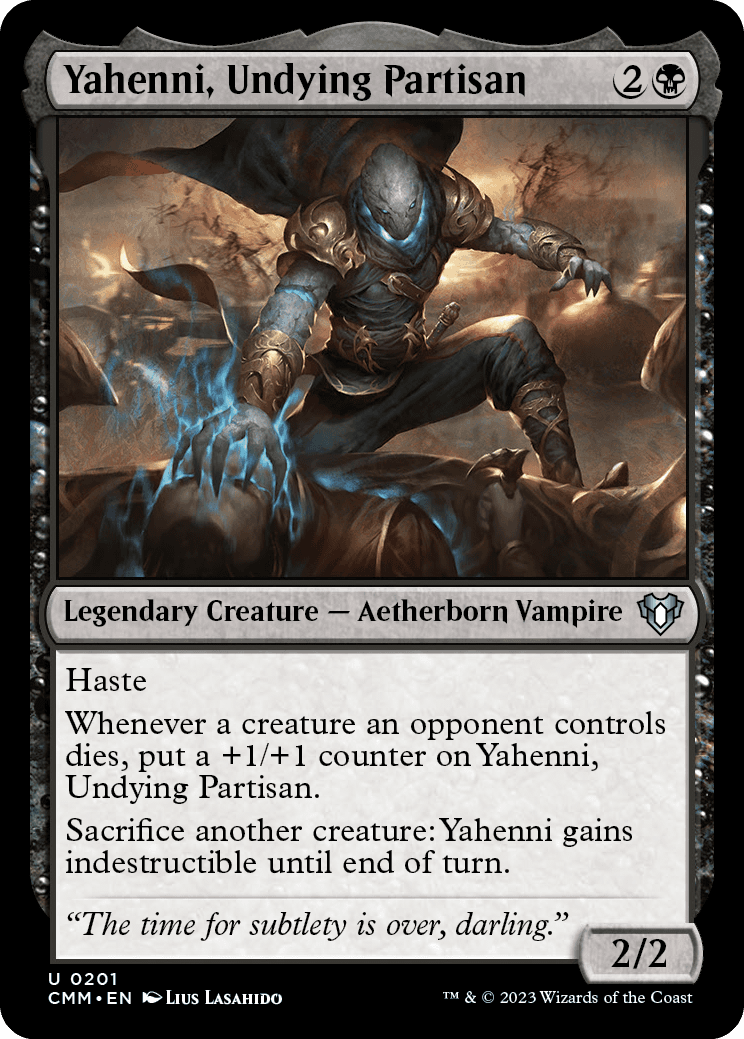
Yahenni, Undying Partisan
{2}{B}
Legendary Creature — Aetherborn Vampire
2/2
Haste
Whenever a creature an opponent controls dies, put a +1/+1 counter on Yahenni, Undying Partisan.
Sacrifice another creature: Yahenni gains indestructible until end of turn.
- If Yahenni and a creature an opponent controls die simultaneously (perhaps because they fought or were in combat together), Yahenni won't be on the battlefield as its triggered ability resolves. It can't be saved by the +1/+1 counter that would have been put on it.
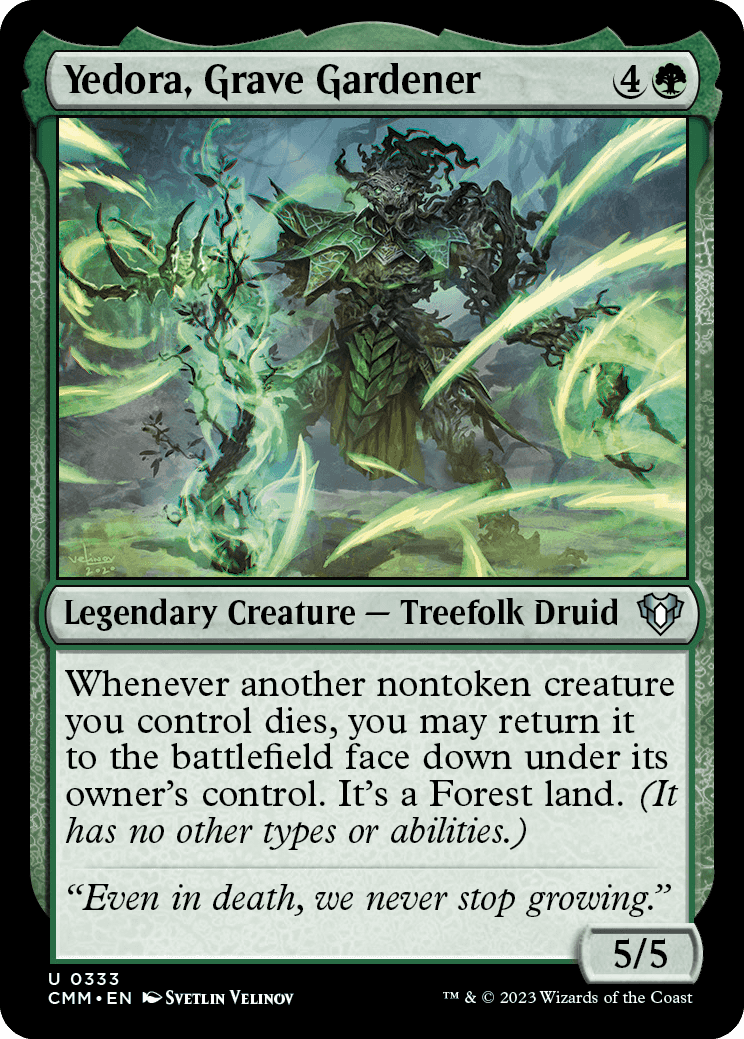
Yedora, Grave Gardener
{4}{G}
Legendary Creature — Treefolk Druid
5/5
Whenever another nontoken creature you control dies, you may return it to the battlefield face down under its owner's control. It's a Forest land. (It has no other types or abilities.)
- The face-down card has no name or colors. Its only type is land, its only subtype is Forest, and its only ability is "{T}: Add {G}."
- If the face-down card has morph, you can pay its morph cost to turn it face up.
- If one of these Forests is turned face up, the effect making it a Forest land will expire. The face-up permanent will again have its printed name, type line, mana cost, abilities, and so on.
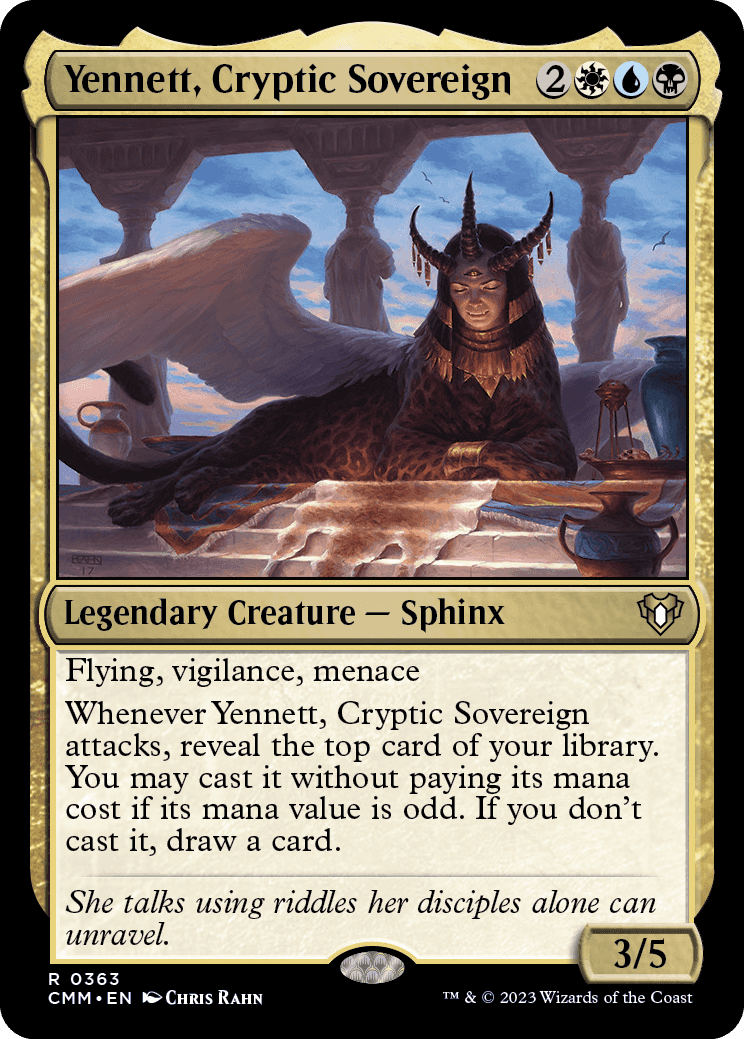
Yennett, Cryptic Sovereign
{2}{W}{U}{B}
Legendary Creature — Sphinx
3/5
Flying, vigilance, menace
Whenever Yennett, Cryptic Sovereign attacks, reveal the top card of your library. You may cast it without paying its mana cost if its mana value is odd. If you don't cast it, draw a card.
- If the revealed card doesn't have an odd mana value or if that card does but you choose not to cast it, you draw a card. Keep in mind that revealing a card doesn't cause it to change zones. This means that the card you draw will be the card you revealed.
- If you cast a card "without paying its mana cost," you can't choose to cast it for any alternative costs, such as evoke costs. You can, however, pay additional costs. If the card has any mandatory additional costs, such as that of Tormenting Voice, those must be paid to cast it.
- If a spell has {X} in its mana cost, you must choose 0 as the value of X if you cast it without paying its mana cost.
- If you wish to cast the revealed card without paying its mana cost, you must cast it while Yennett's triggered ability is resolving; you can't cast for free it later in the turn.
- Because all attackers are chosen at once, a spell cast this way can't affect which creatures you can attack with, but it can affect which creatures will be able to block.
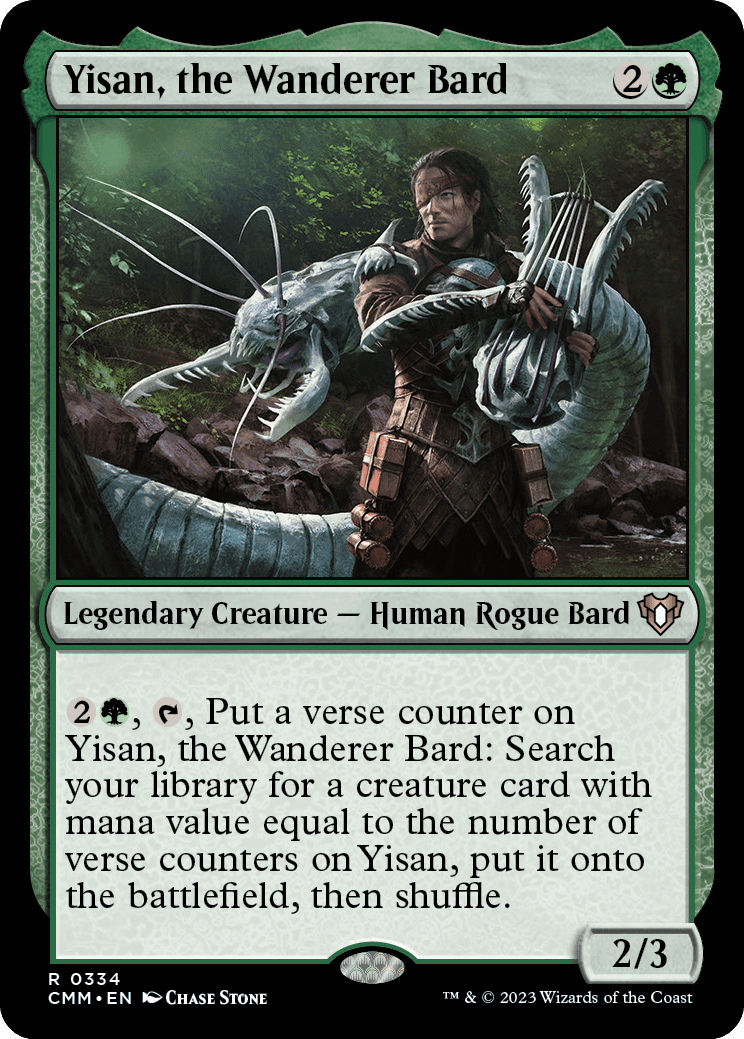
Yisan, the Wanderer Bard
{2}{G}
Legendary Creature — Human Rogue Bard
2/3
{2}{G}, {T}, Put a verse counter on Yisan, the Wanderer Bard: Search your library for a creature card with mana value equal to the number of verse counters on Yisan, put it onto the battlefield, then shuffle.
- If Yisan isn't on the battlefield when its ability resolves, use the number of verse counters on it when it left the battlefield to determine which creature cards may be put onto the battlefield. This number will include the counter you put on Yisan to activate the ability.
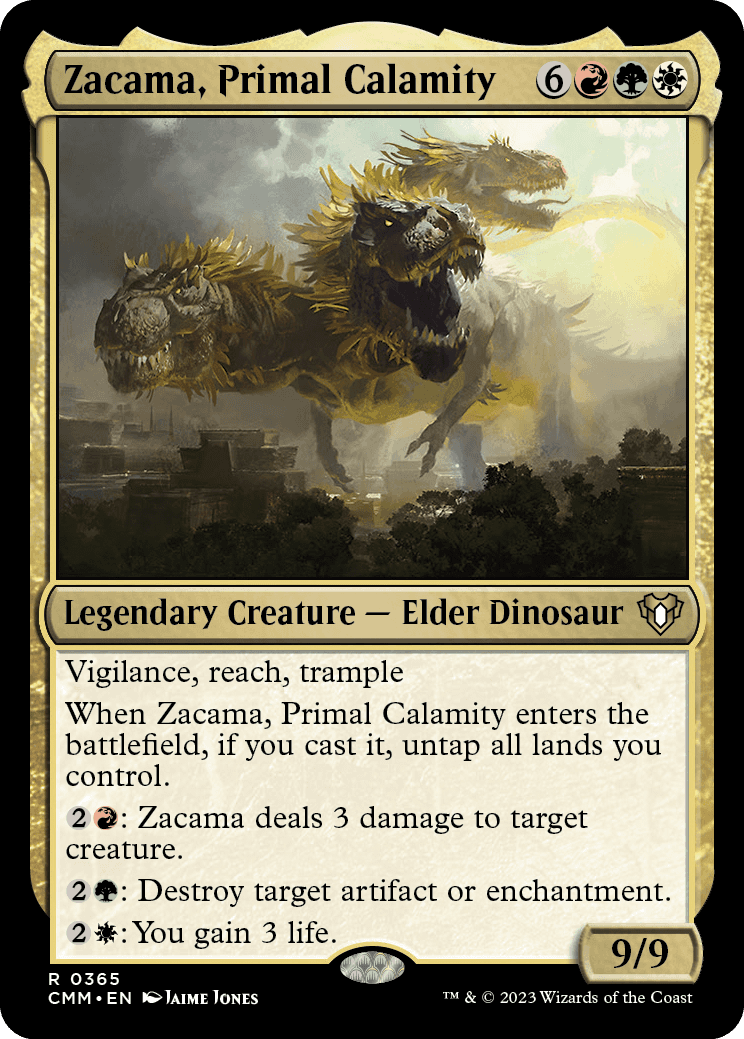
Zacama, Primal Calamity
{6}{R}{G}{W}
Legendary Creature — Elder Dinosaur
9/9
Vigilance, reach, trample
When Zacama, Primal Calamity enters the battlefield, if you cast it, untap all lands you control.
{2}{R}: Zacama deals 3 damage to target creature.
{2}{G}: Destroy target artifact or enchantment.
{2}{W}: You gain 3 life.
- Zacama's triggered ability triggers if you cast it from any zone. It doesn't trigger if you put Zacama onto the battlefield without casting it.
- Zacama's damage-dealing ability can be activated during combat, perhaps targeting a creature blocking it. If all creatures blocking Zacama are destroyed, its combat damage is assigned to the player, planeswalker, or battle it's attacking because of trample. If the blocking creatures are dealt nonlethal damage, that damage is considered when assigning trample damage.
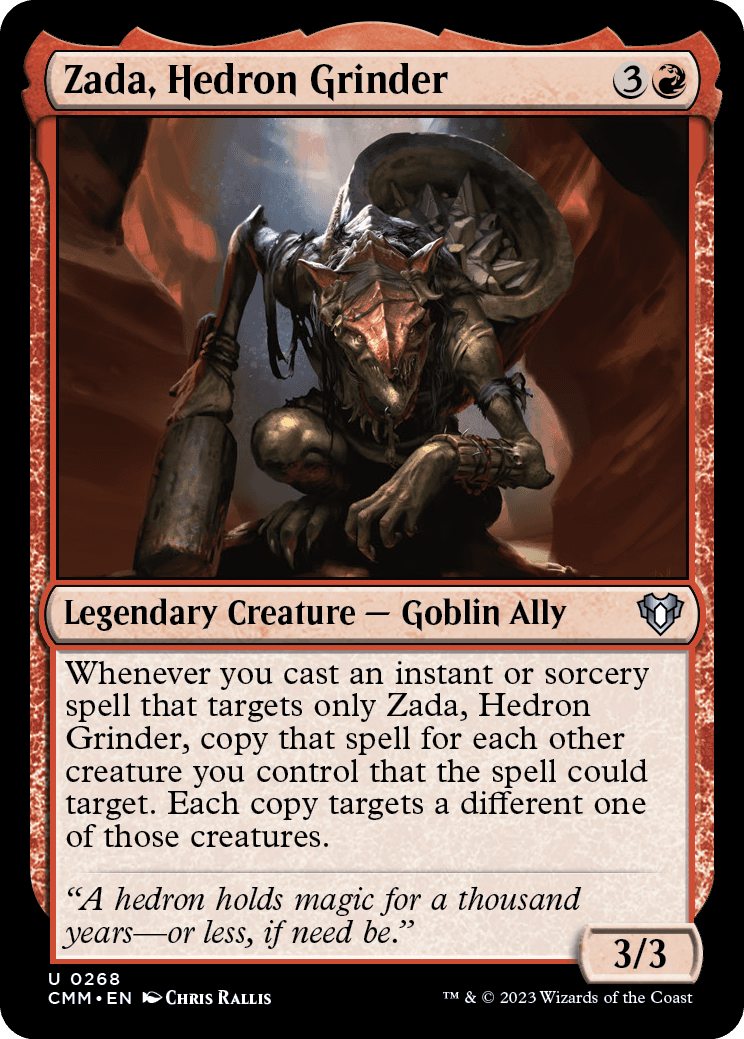
Zada, Hedron Grinder
{3}{R}
Legendary Creature — Goblin Ally
3/3
Whenever you cast an instant or sorcery spell that targets only Zada, Hedron Grinder, copy that spell for each other creature you control that the spell could target. Each copy targets a different one of those creatures.
- Zada's ability triggers whenever you cast an instant or sorcery spell that targets only Zada and no other object or player.
- If you cast an instant or sorcery spell that has multiple targets, but it's targeting only Zada with all of them, Zada's ability will trigger. The copies will similarly each be targeting only one of your other creatures. You can't change any of the copy's targets to other creatures.
- Any creature you control that couldn't be targeted by the original spell (due to shroud, protection abilities, targeting restrictions, or any other reason) is just ignored by Zada's ability.
- You control all the copies. You choose the order the copies are put onto the stack. The original spell will be on the stack beneath those copies and will resolve last.
- The copies that the ability creates are created on the stack, so they're not cast. Abilities that trigger when a player casts a spell (like Zada's ability itself) won't trigger.
- If the spell that's copied is modal (that is, it says "Choose one —" or the like), the copies will have the same mode. You can't choose a different one.
- If the spell that's copied has an X whose value was determined as it was cast (like Rolling Thunder does), the copies have the same value of X.
- The controller of a copy can't choose to pay any alternative or additional costs for the copy. However, effects based on any alternative or additional costs that were paid for the original spell are copied as though those same costs were paid for the copy.
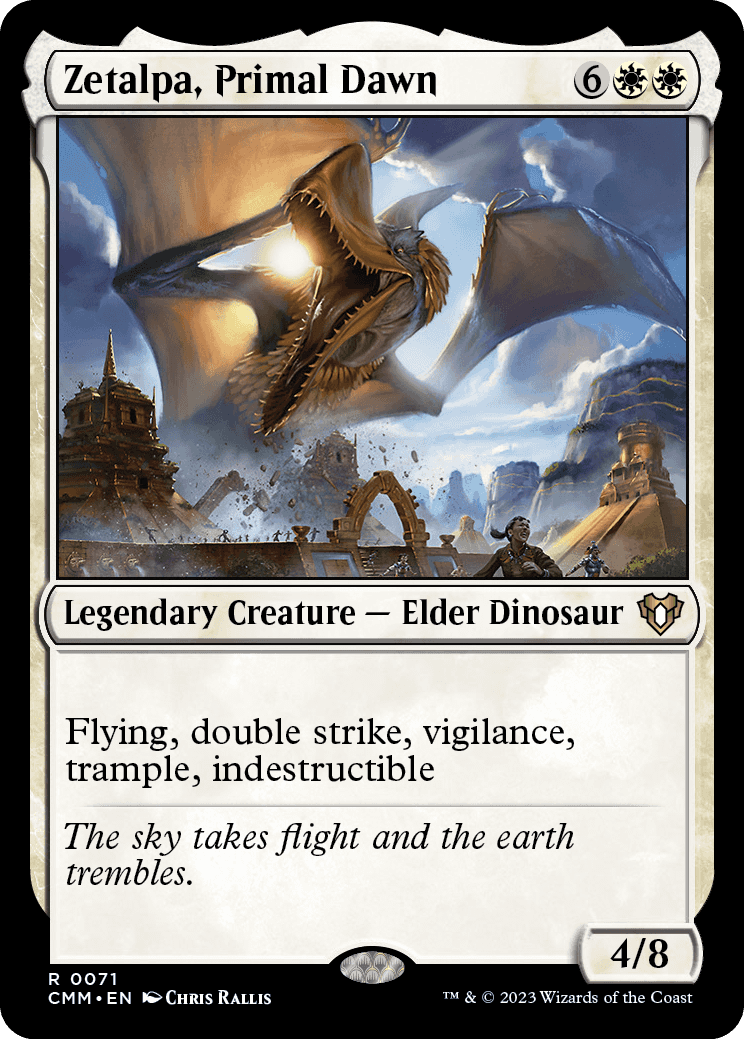
Zetalpa, Primal Dawn
{6}{W}{W}
Legendary Creature — Elder Dinosaur
4/8
Flying, double strike, vigilance, trample, indestructible
- If an attacking creature with double strike and trample destroys all of its blocking creatures with first-strike combat damage, all of its normal combat damage is assigned to the player, planeswalker, or battle that creature's attacking.
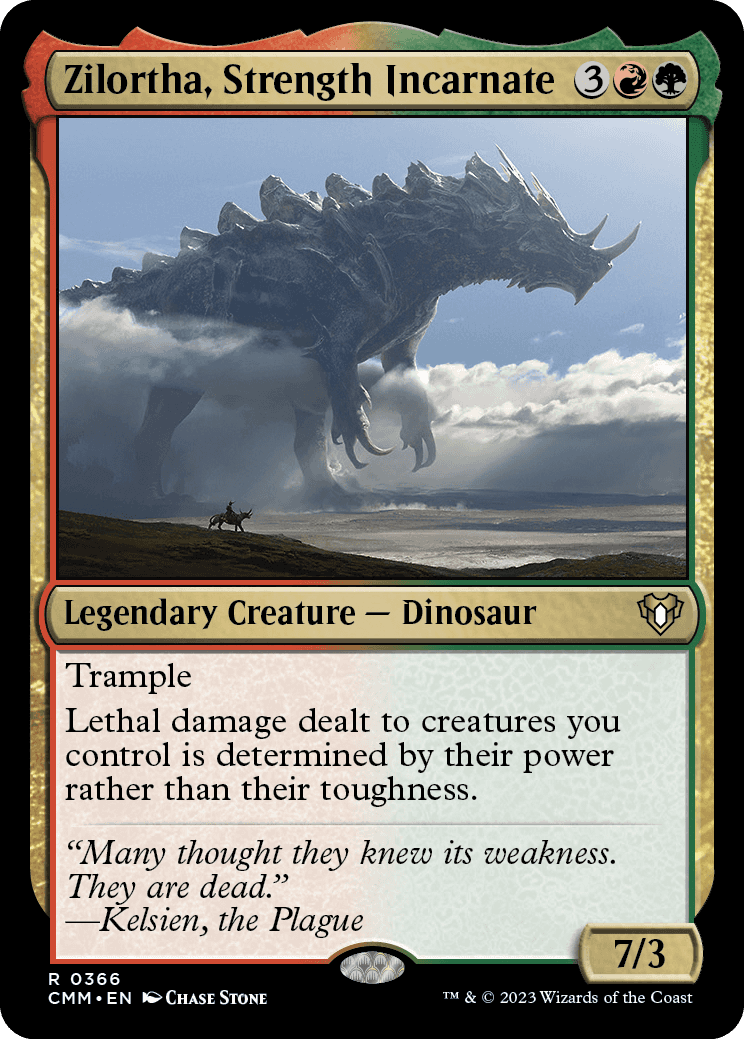
Zilortha, Strength Incarnate
{3}{R}{G}
Legendary Creature — Dinosaur
7/3
Trample
Lethal damage dealt to creatures you control is determined by their power rather than their toughness.
- Any time the game is checking whether damage is lethal or if a creature should be destroyed for having lethal damage marked on it, use the power of your creatures rather than their toughness to check the damage against. This includes being assigned trample damage, damage from Flame Spill, and so on.
- A creature with 0 power isn't destroyed unless it has at least 1 damage marked on it.
- A creature with 0 toughness is put into its owner's graveyard. This state-based action isn't a consequence of damage, so Zilortha doesn't affect it.
- Because damage remains marked on a creature until the damage is removed as the turn ends, nonlethal damage dealt to a creature you control may become lethal if Zilortha enters or leaves the battlefield during that turn.
COMMANDER MASTERS COMMANDER CARD-SPECIFIC NOTES
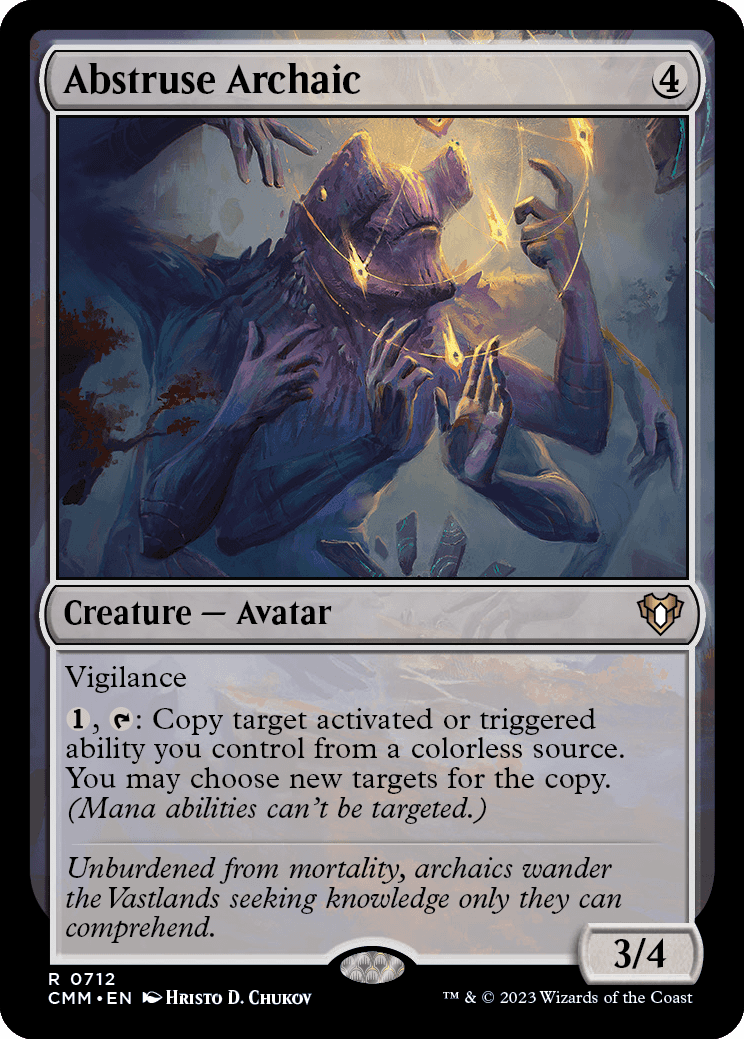
Abstruse Archaic
{4}
Creature — Avatar
3/4
Vigilance
{1}, {T}: Copy target activated or triggered ability you control from a colorless source. You may choose new targets for the copy. (Mana abilities can't be targeted.)
- Activated abilities contain a colon. They're generally written "[Cost]: [Effect]." Some keyword abilities (such as equip) are activated abilities and will have colons in their reminder text. An activated mana ability is one that produces mana as it resolves, not one that costs mana to activate.
- Triggered abilities use the word "when," "whenever," or "at." They're often written as "[Trigger condition], [effect]." Some keyword abilities are triggered abilities and will have "when," "whenever," or "at the beginning of" in their reminder text.
- Abstruse Archaic's ability targets an ability that is on the stack and creates another instance of that ability on the stack. It doesn't cause any object to gain an ability.
- The source of the copy is the same as the source of the original ability.
- If the ability is modal (that is, if it says, "Choose one —" or similar), the mode is copied and can't be changed.
- If the ability divides damage or distributes counters among a number of targets, the division and number of targets can't be changed. If you choose new targets, you must choose the same number of targets.
- If the activated ability's cost contains a choice, such as a creature to sacrifice or a number of counters to remove, the copy uses that same information. You can't pay the cost again, even if you want to.
- Any choices made when the ability resolves won't have been made yet when it's copied. Any such choices will be made separately when the copy resolves. If a triggered ability asks you to pay a cost, you pay that cost for the copy separately.
- If an ability is linked to a second ability, copies of that ability are also linked to that second ability. If the second ability refers to "the exiled card," it refers to all cards exiled by the ability and the copy. For example, if Tidehollow Sculler's enters-the-battlefield ability is copied and two cards are exiled, they both return when Tidehollow Sculler leaves the battlefield.
- In some cases involving linked abilities, an ability requires information about "the exiled card." When this happens, the ability gets multiple answers. If these answers are being used to determine the value of a variable, the sum is used. If an ability attempts to create a token that is a copy of "the exiled card," it creates a token for each card exiled this way that is a copy of that card.
- Abstruse Archaic's ability can copy activated and triggered abilities of dungeons, emblems, planes, and phenomenons. It can't copy the Planechase-specific "planeswalking ability" or the triggered abilities associated with the monarch or initiative designations, as those abilities have no source.
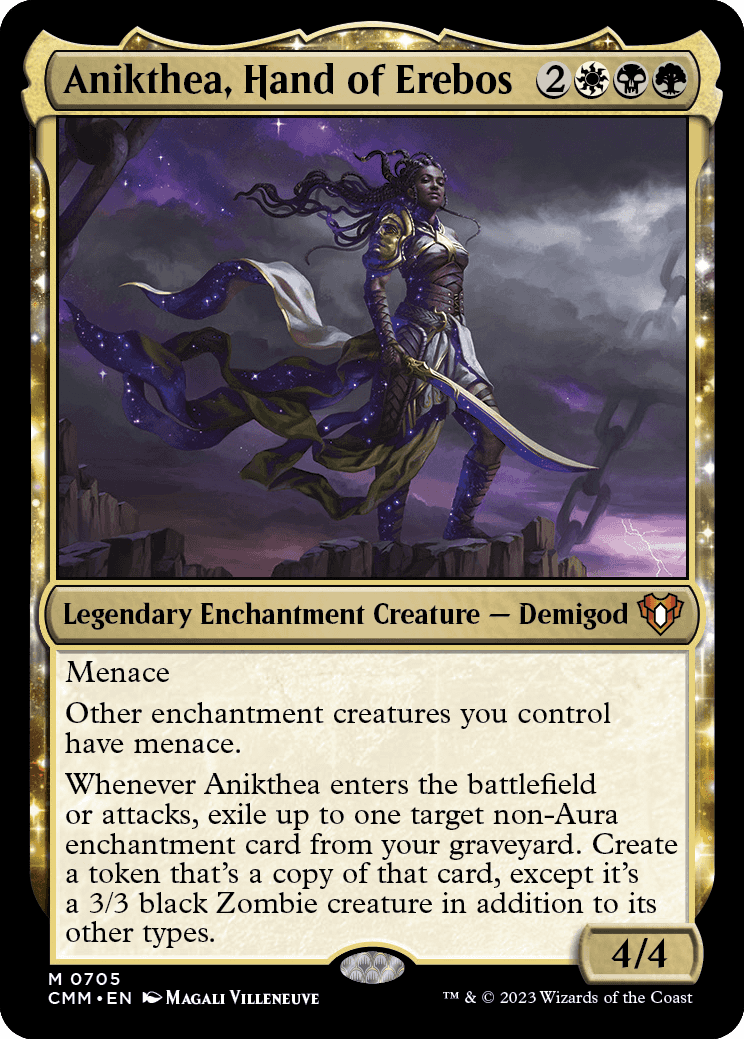
Anikthea, Hand of Erebos
{2}{W}{B}{G}
Legendary Enchantment Creature — Demigod
4/4
Menace
Other enchantment creatures you control have menace.
Whenever Anikthea enters the battlefield or attacks, exile up to one target non-Aura enchantment card from your graveyard. Create a token that's a copy of that card, except it's a 3/3 black Zombie creature in addition to its other types.
- Except for the listed exceptions, the token copies exactly what was printed on the original card and nothing else. It doesn't copy any information about the object the card was before it was put into your graveyard.
- The token is a Zombie creature in addition to its other types and is black instead of its other colors. Its base power and toughness are 3/3. These are copiable values of the tokens that other effects may copy.
- If the copied card has {X} in its mana cost, X is 0.
- If a card copied by the token had any "when [this permanent] enters the battlefield" abilities, the token also has those abilities and will trigger them when it's created. Similarly, any "as [this permanent] enters the battlefield" or "[this permanent] enters the battlefield with" abilities that the token has copied will also work.
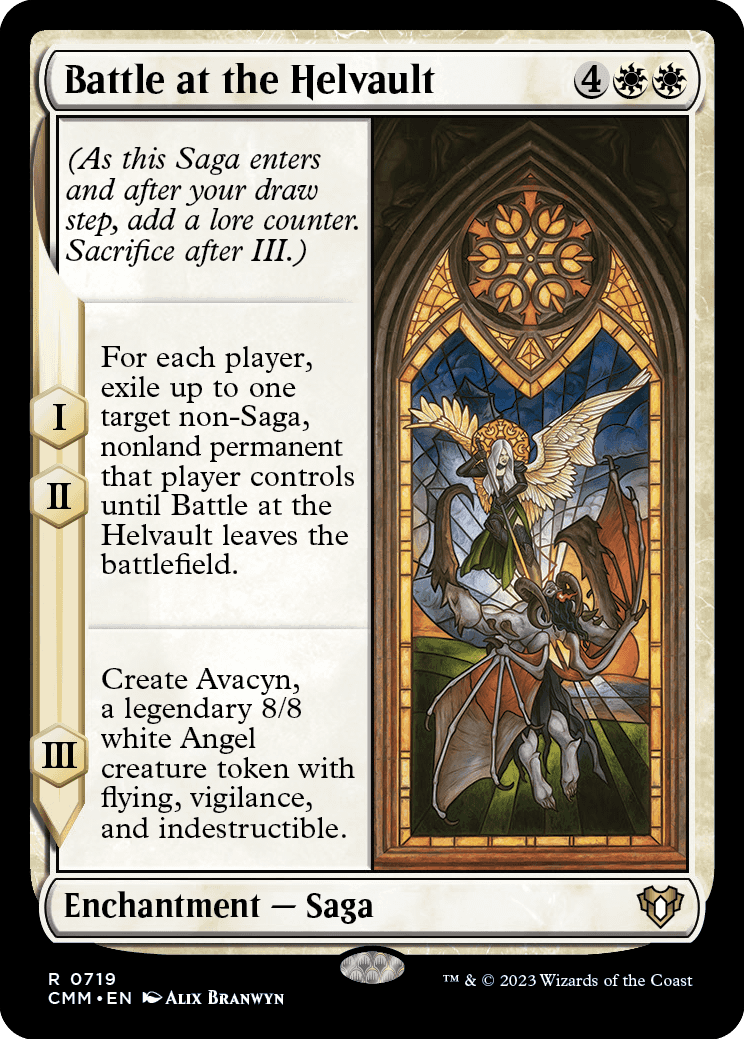
Battle at the Helvault
{4}{W}{W}
Enchantment — Saga
(As this Saga enters and after your draw step, add a lore counter. Sacrifice after III.)
I, II — For each player, exile up to one target non-Saga, nonland permanent that player controls until Battle at the Helvault leaves the battlefield.
III — Create Avacyn, a legendary 8/8 white Angel creature token with flying, vigilance, and indestructible.
- If Battle at the Helvault leaves the battlefield before its first or second chapter ability resolves, the target permanents won't be exiled.
- Auras attached to the exiled permanents will be put into their owners' graveyards. Any Equipment will become unattached and remain on the battlefield. Any counters on the exiled permanents will cease to exist. When the cards return to the battlefield, they will be new objects with no connection to the cards that were exiled.
- If a token is exiled this way, it will cease to exist and won't return to the battlefield.
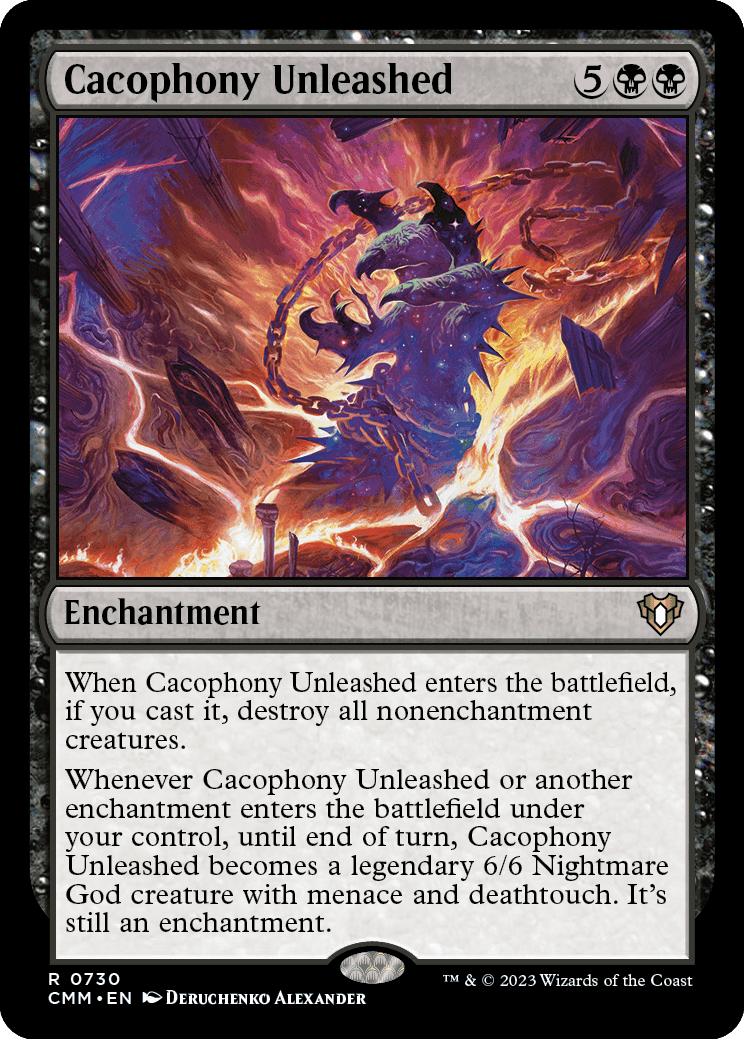
Cacophony Unleashed
{5}{B}{B}
Enchantment
When Cacophony Unleashed enters the battlefield, if you cast it, destroy all nonenchantment creatures.
Whenever Cacophony Unleashed or another enchantment enters the battlefield under your control, until end of turn, Cacophony Unleashed becomes a legendary 6/6 Nightmare God creature with menace and deathtouch. It's still an enchantment.
- A noncreature permanent that turns into a creature can attack, and its {T} abilities can be activated, only if its controller has continuously controlled that permanent since the beginning of their most recent turn. It doesn't matter how long the permanent has been a creature.
- You can't cast an Aura with "enchant creature" targeting Cacophony Unleashed unless it's already a creature before you cast that Aura. When Cacophony Unleashed stops being a creature, any such auras will be put into their owners' graveyards.
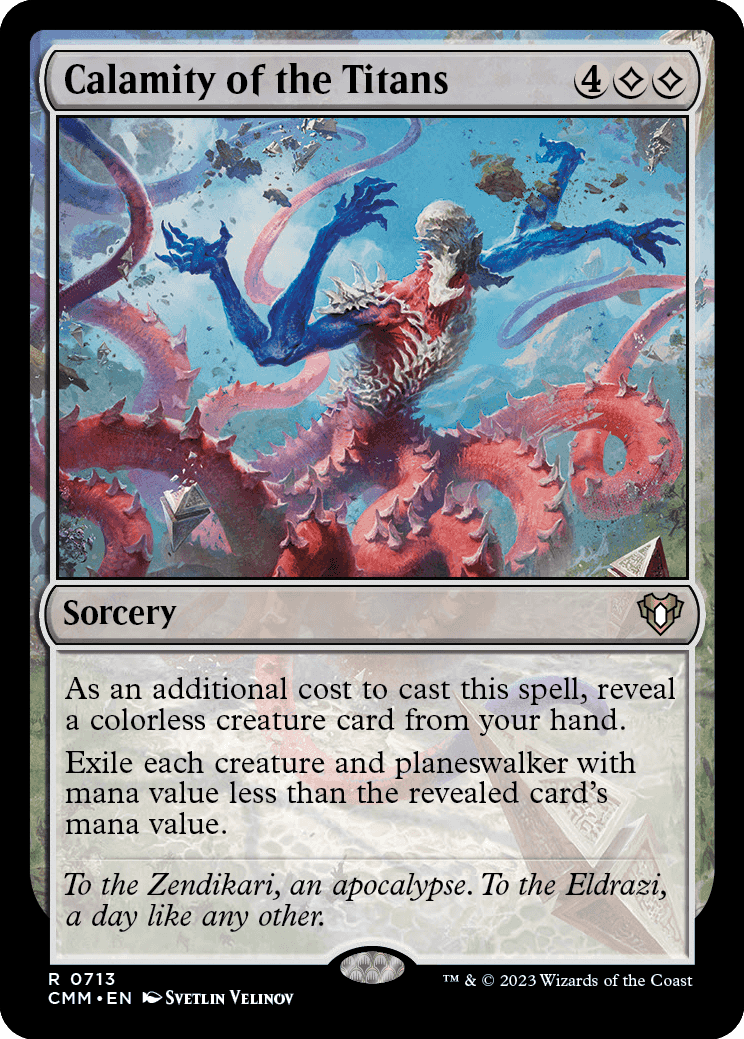
Calamity of the Titans
{4}{C}{C}
Sorcery
As an additional cost to cast this spell, reveal a colorless creature card from your hand.
Exile each creature and planeswalker with mana value less than the revealed card's mana value.
- The colorless creature card stays revealed until Calamity of the Titans leaves the stack.
- The colorless creature card you reveal doesn't have to still be in your hand as Calamity of the Titans resolves. If it's not, use its mana value as it last existed in your hand.
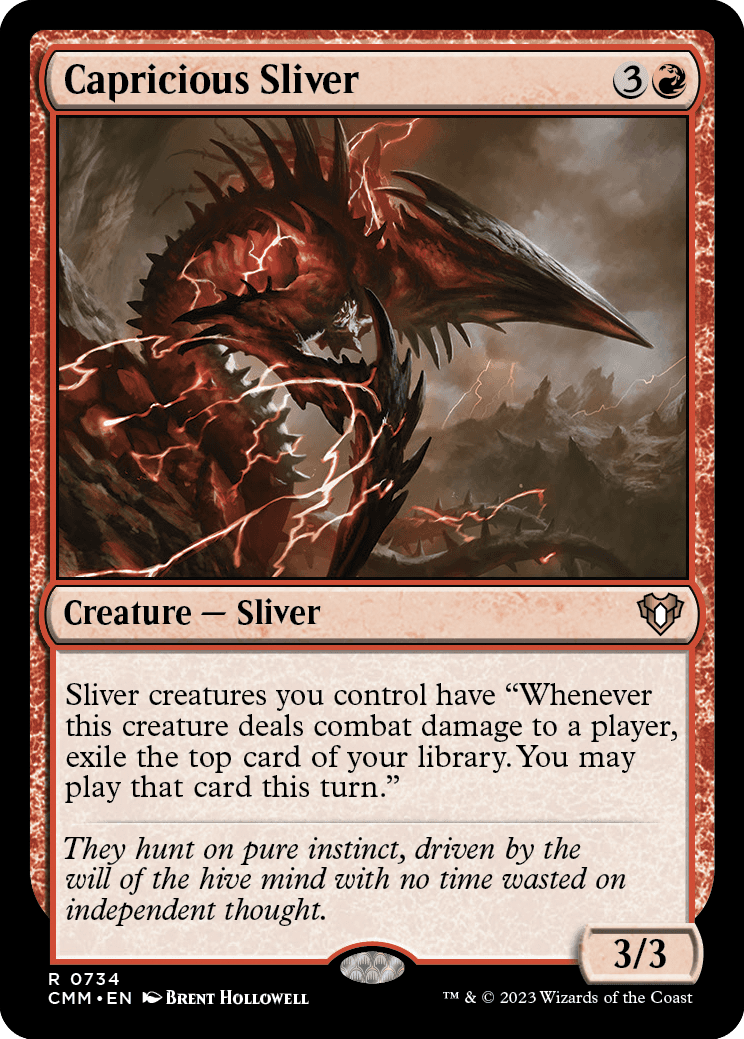
Capricious Sliver
{3}{R}
Creature — Sliver
3/3
Sliver creatures you control have "Whenever this creature deals combat damage to a player, exile the top card of your library. You may play that card this turn."
- You must pay all costs and follow all normal timing rules for cards played this way. For example, you may only play a land from exile this way during your main phase while the stack is empty, and only if you haven't played a land yet this turn.
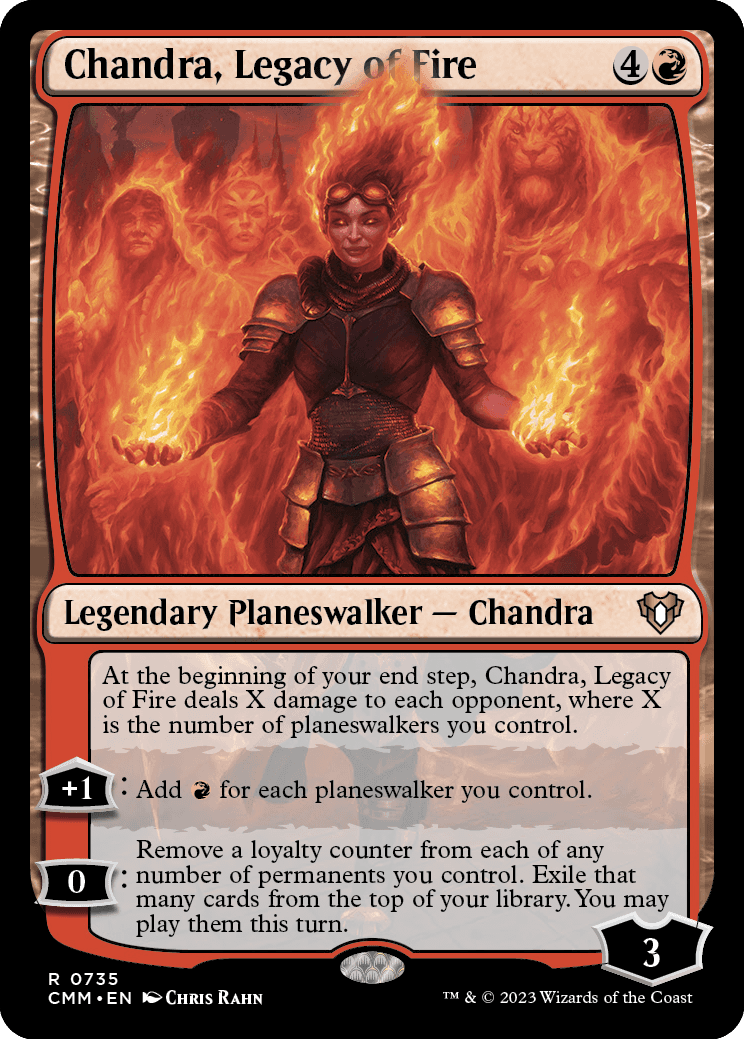
Chandra, Legacy of Fire
{4}{R}
Legendary Planeswalker — Chandra
3
At the beginning of your end step, Chandra, Legacy of Fire deals X damage to each opponent, where X is the number of planeswalkers you control.
+1: Add {R} for each planeswalker you control.
0: Remove a loyalty counter from each of any number of permanents you control. Exile that many cards from the top of your library. You may play them this turn.
- You must pay all costs and follow all normal timing rules for cards played with Chandra, Legacy of Fire's last ability. For example, you may only play a land from exile this way during your main phase while the stack is empty, and only if you haven't played a land yet this turn.
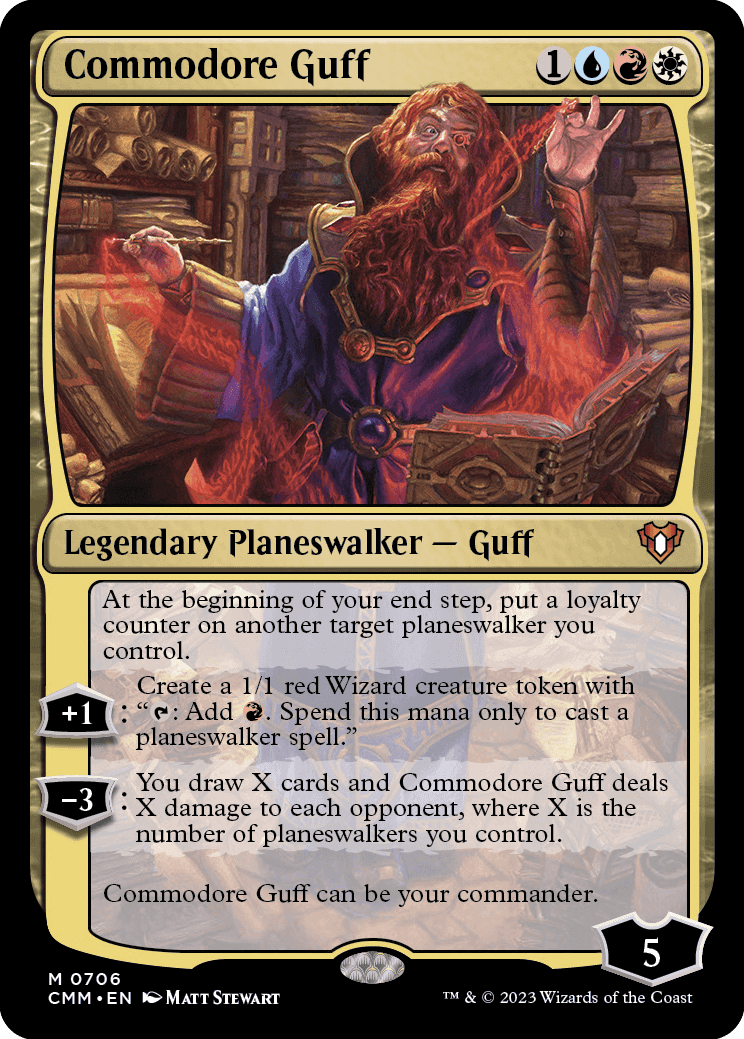
Commodore Guff
{1}{U}{R}{W}
Legendary Planeswalker — Guff
5
At the beginning of your end step, put a loyalty counter on another target planeswalker you control.
+1: Create a 1/1 red Wizard creature token with "{T}: Add {R}. Spend this mana only to cast a planeswalker spell."
−3: You draw X cards and Commodore Guff deals X damage to each opponent, where X is the number of planeswalkers you control.
Commodore Guff can be your commander.
- The value of X is determined as Commodore Guff's third ability resolves.
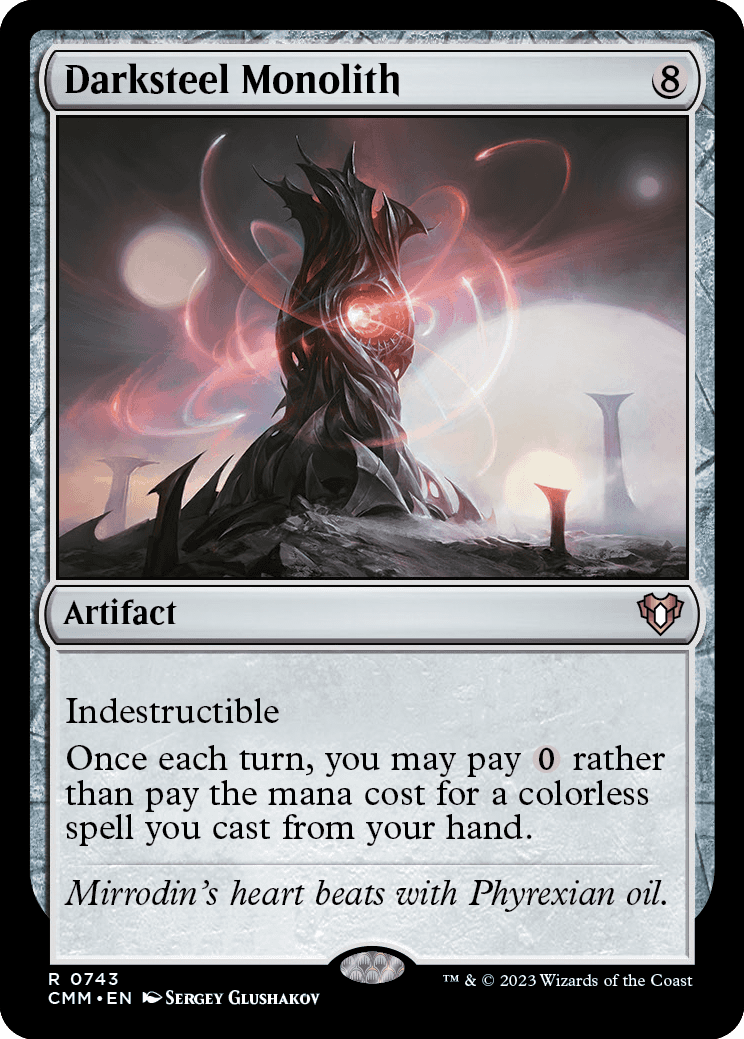
Darksteel Monolith
{8}
Artifact
Indestructible
Once each turn, you may pay {0} rather than pay the mana cost for a colorless spell you cast from your hand.
- You must still follow any relevant timing rules for the colorless spell you cast from your hand.
- If you cast a card for an alternative cost of {0}, you can't pay any other alternative costs. You can, however, pay additional costs like kicker. If the card has any mandatory additional costs, you must pay those.
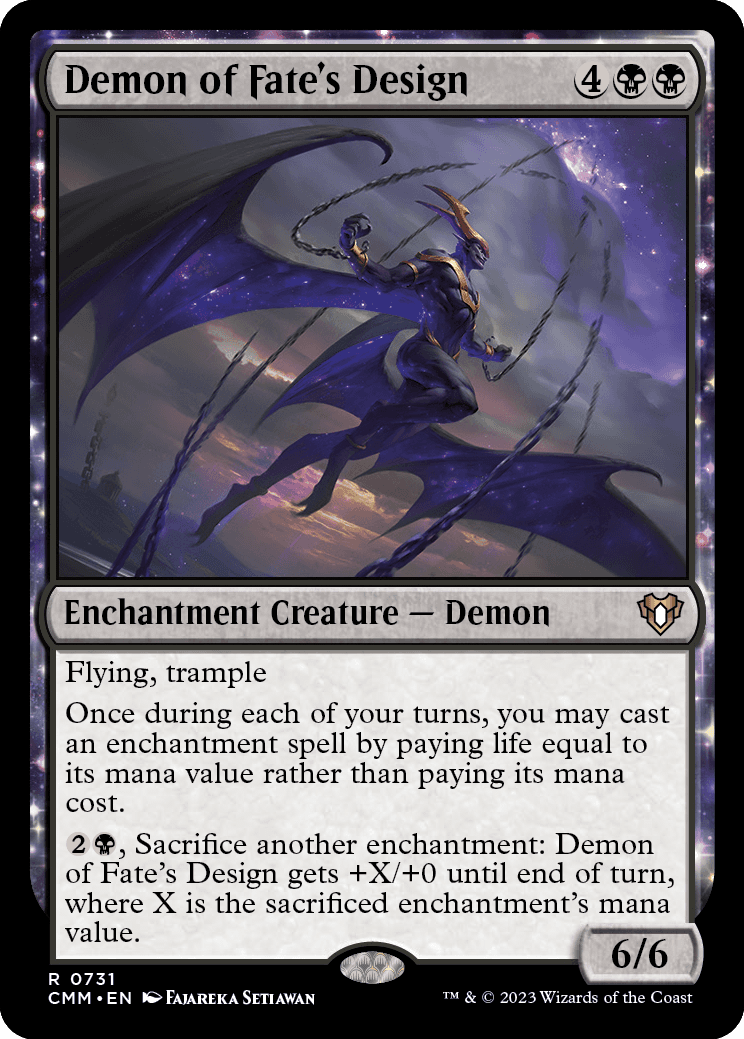
Demon of Fate's Design
{4}{B}{B}
Enchantment Creature — Demon
6/6
Flying, trample
Once during each of your turns, you may cast an enchantment spell by paying life equal to its mana value rather than paying its mana cost.
{2}{B}, Sacrifice another enchantment: Demon of Fate's Design gets +X/+0 until end of turn, where X is the sacrificed enchantment's mana value.
- If you cast a spell for another cost "rather than paying its mana cost," you can't choose to cast it for any alternative costs. You can, however, pay additional costs. If the card has any mandatory additional costs, those must be paid to cast the card.
- If you cast a spell with {X} in its mana cost this way, the only legal choice for X is 0.
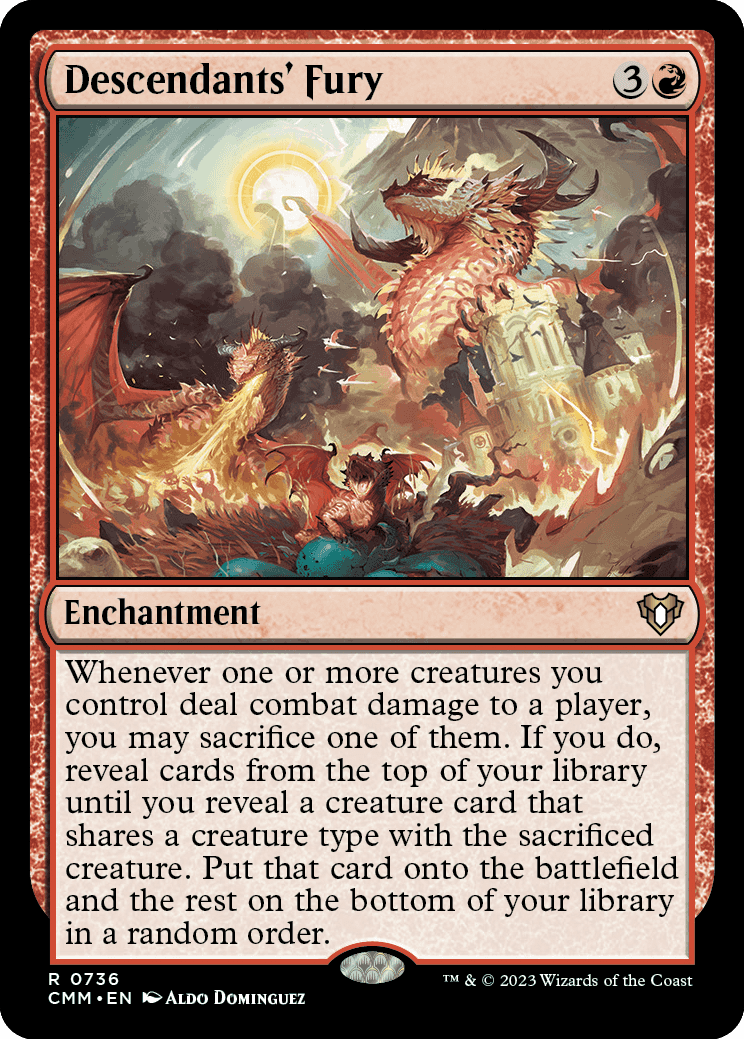
Descendants' Fury
{3}{R}
Enchantment
Whenever one or more creatures you control deal combat damage to a player, you may sacrifice one of them. If you do, reveal cards from the top of your library until you reveal a creature card that shares a creature type with the sacrificed creature. Put that card onto the battlefield and the rest on the bottom of your library in a random order.
- If you don't reveal a creature card that shares a creature type with the creature you sacrificed, you'll just reveal and randomize your library.
- If the sacrificed creature has no creature type, no card can share a creature type with it.
- You'll reveal cards until you find one that shares at least one creature type with the creature you sacrificed. For example, if you sacrificed a Cat Wizard, you'll stop if you reveal a Human Wizard or Cat Soldier.
- Compare the revealed cards to the creature as it last existed before it was sacrificed, not to the creature card as it exists in its owner's graveyard, to determine which card from your library you put onto the battlefield.
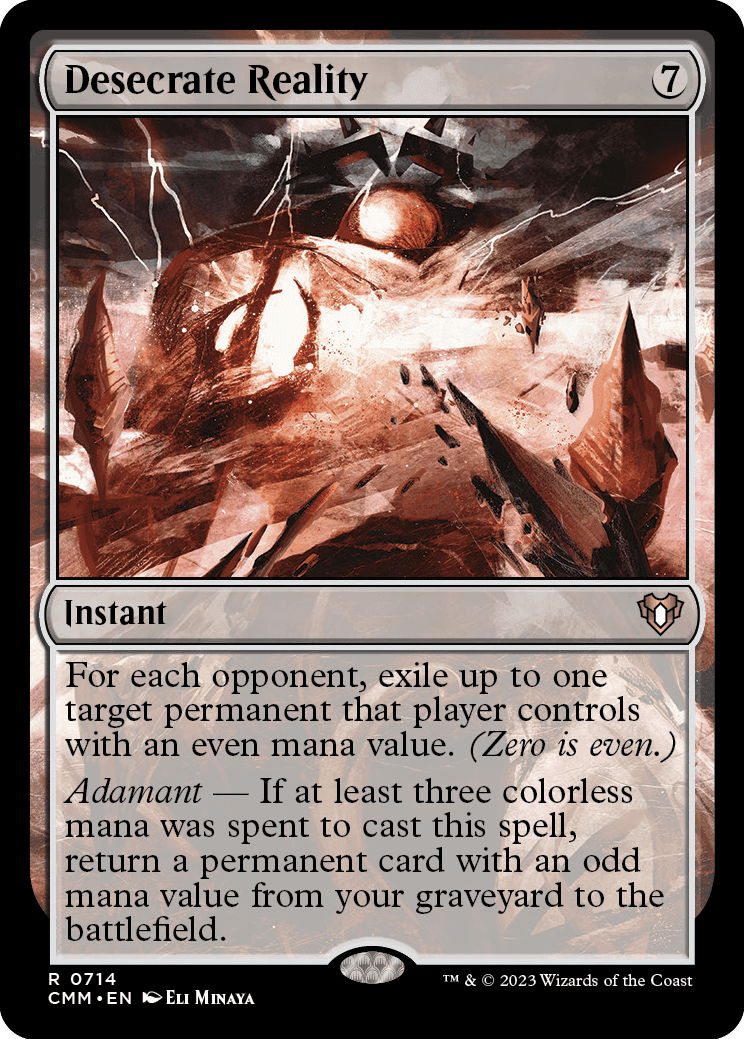
Desecrate Reality
{7}
Instant
For each opponent, exile up to one target permanent that player controls with an even mana value. (Zero is even.)
Adamant — If at least three colorless mana was spent to cast this spell, return a permanent card with an odd mana value from your graveyard to the battlefield.
- Cards with no mana cost, like land cards, have a mana value of zero.
- If a card has {X} in its mana cost, X is zero when it's in any zone but the stack.
- If an effect allows you to cast a spell without paying its mana cost, you can't choose to cast it and pay unless another rule or effect allows you to cast that spell for a cost. Similarly, you can't waive a cost reduction unless that effect says you may.
- Adamant effects check what mana was actually spent to cast a spell. If an effect allows you to spend mana "as though it were mana" of any color or type, that allows you to spend mana you couldn't otherwise spend, but it doesn't change what mana you spent to cast the spell.
- If you copy a spell that has an adamant ability, no mana was spent to cast the copy at all, so that ability won't apply.
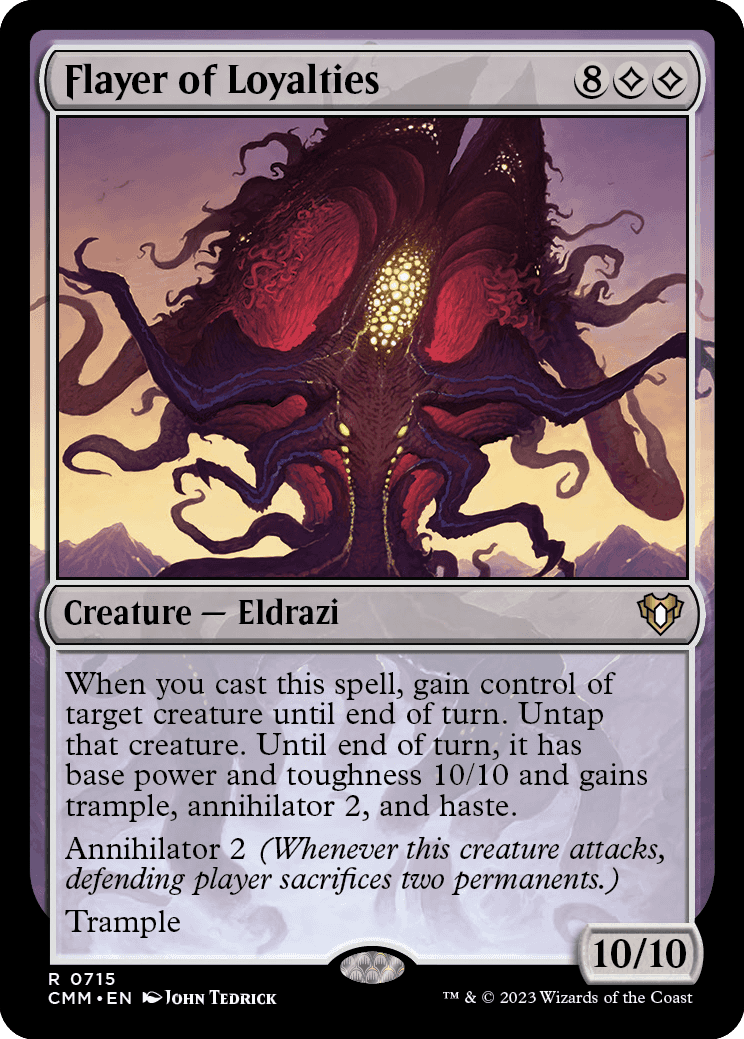
Flayer of Loyalties
{8}{C}{C}
Creature — Eldrazi
10/10
When you cast this spell, gain control of target creature until end of turn. Untap that creature. Until end of turn, it has base power and toughness 10/10 and gains trample, annihilator 2, and haste.
Annihilator 2 (Whenever this creature attacks, defending player sacrifices two permanents.)
Trample
- Annihilator abilities trigger and resolve during the declare attackers step. The defending player chooses and sacrifices the required number of permanents before they declare blockers. Any creatures sacrificed this way won't be able to block.
- If a creature with annihilator is attacking a planeswalker, and the defending player chooses to sacrifice that planeswalker, the attacking creature continues to attack. It may be blocked. If it isn't blocked, it simply won't deal combat damage to anything.
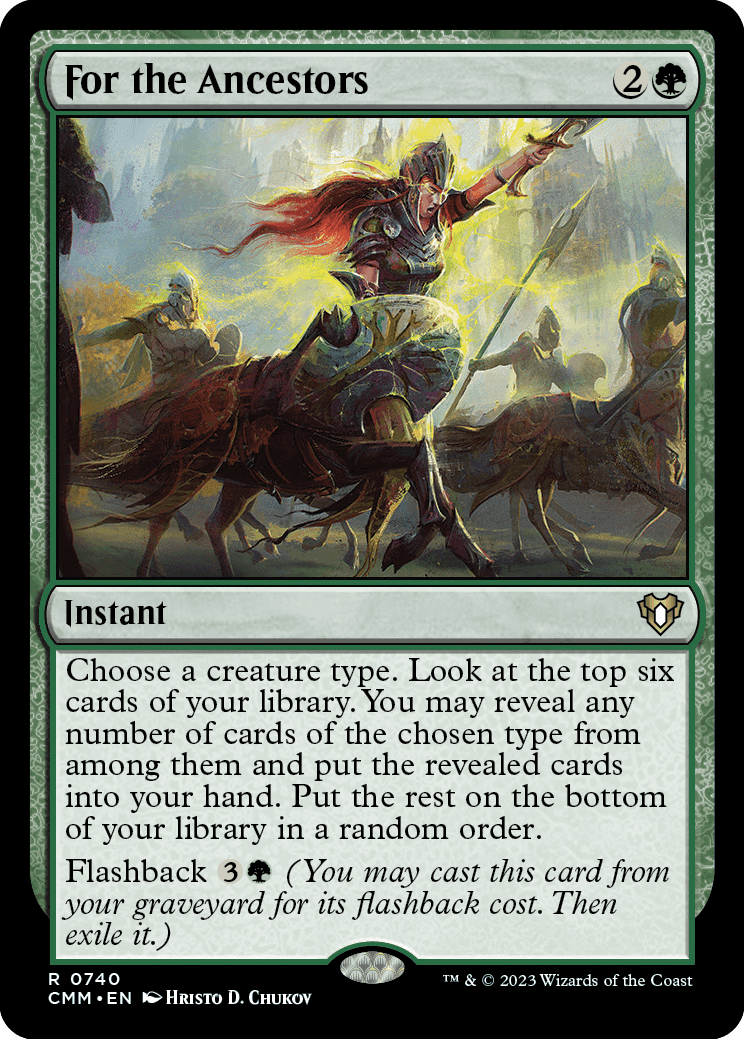
For the Ancestors
{2}{G}
Instant
Choose a creature type. Look at the top six cards of your library. You may reveal any number of cards of the chosen type from among them and put the revealed cards into your hand. Put the rest on the bottom of your library in a random order.
Flashback {3}{G} (You may cast this card from your graveyard for its flashback cost. Then exile it.)
- "Flashback [cost]" means "You may cast this card from your graveyard by paying [cost] rather than paying its mana cost" and "If the flashback cost was paid, exile this card instead of putting it anywhere else any time it would leave the stack."
- You must still follow any timing restrictions and permissions, including those based on the card's type. For instance, you can cast a sorcery using flashback only when you could normally cast a sorcery.
- To determine the total cost of a spell, start with the mana cost or alternative cost (such as a flashback cost) you're paying, add any cost increases, then apply any cost reductions. The mana value of the spell is determined only by its mana cost, no matter what the total cost to cast the spell was.
- A spell cast using flashback will always be exiled afterward, whether it resolves, is countered, or leaves the stack in some other way.
- You can cast a spell using flashback even if it was somehow put into your graveyard without having been cast.
- If a card with flashback is put into your graveyard during your turn, you can cast it if it's legal to do so before any other player can take any actions.
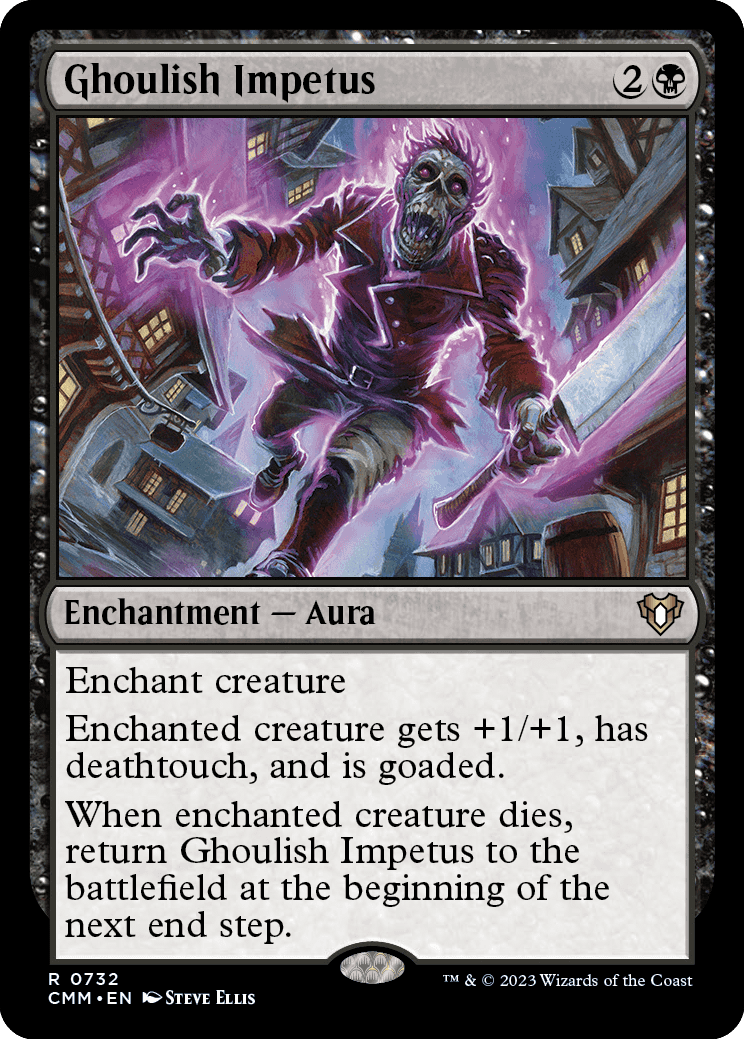
Ghoulish Impetus
{2}{B}
Enchantment — Aura
Enchant creature
Enchanted creature gets +1/+1, has deathtouch, and is goaded.
When enchanted creature dies, return Ghoulish Impetus to the battlefield at the beginning of the next end step.
- If, during a player's declare attackers step, a creature that player controls that's been goaded is tapped, is affected by a spell or ability that says it can't attack, or hasn't been under that player's control continuously since the turn began (and doesn't have haste), then it doesn't attack. If there's a cost associated with having a creature attack a player, its controller isn't forced to pay that cost, so it doesn't have to attack that player.
- If the creature doesn't meet any of the above exceptions and can attack, it must attack a player other than the controller of the spell or ability that goaded it if able. If the creature can't attack any of those players but could otherwise attack, it must attack a planeswalker an opponent controls, a battle an opponent protects, or a player who goaded it.
- Being goaded isn't an ability the creature has. Once it's been goaded, it must attack as detailed above even if it loses all abilities.
- Attacking with a goaded creature doesn't cause it to stop being goaded. If a creature you control has been goaded by multiple opponents, it must attack one of your opponents that hasn't goaded it, as that fulfills the maximum number of goad requirements. If a creature you control has been goaded by each of your opponents, the creature must attack an opponent (rather than a planeswalker or battle), but you choose which opponent it attacks.
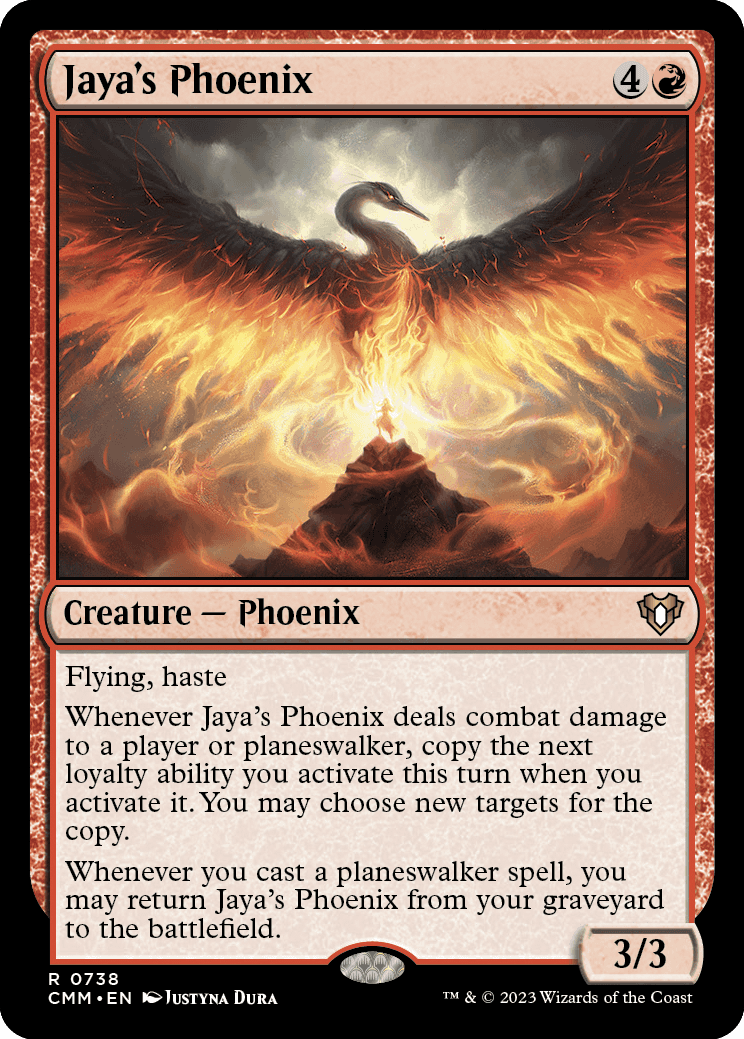
Jaya's Phoenix
{4}{R}
Creature — Phoenix
3/3
Flying, haste
Whenever Jaya's Phoenix deals combat damage to a player or planeswalker, copy the next loyalty ability you activate this turn when you activate it. You may choose new targets for the copy.
Whenever you cast a planeswalker spell, you may return Jaya's Phoenix from your graveyard to the battlefield.
- Copying a loyalty ability doesn't add or remove loyalty counters from any object.
- If the loyalty ability has -X in its cost, the copy uses the same value of X.
- The copy of the loyalty ability resolves before the loyalty ability it's copying. It resolves even if that loyalty ability is countered.
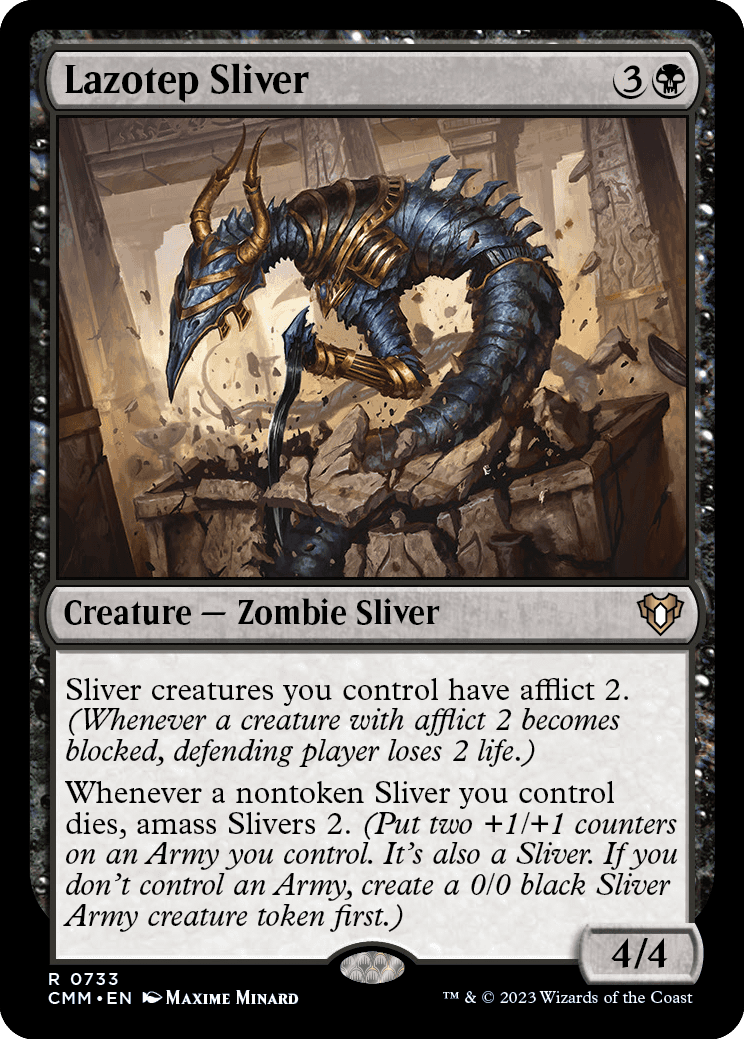
Lazotep Sliver
{3}{B}
Creature — Zombie Sliver
4/4
Sliver creatures you control have afflict 2. (Whenever a creature with afflict 2 becomes blocked, defending player loses 2 life.)
Whenever a nontoken Sliver you control dies, amass Slivers 2. (Put two +1/+1 counters on an Army you control. It's also a Sliver. If you don't control an Army, create a 0/0 black Sliver Army creature token first.)
- If a creature has multiple instances of afflict, each triggers separately.
- If multiple creatures block a creature with afflict, afflict triggers only once.
- Afflict causes the defending player to lose life; it's not damage or combat damage.
- If a creature is attacking a planeswalker, that planeswalker's controller is the defending player. If a creature is attacking a battle, that battle's protector is the defending player.
- Afflict resolves before combat damage is dealt. If this loss of life brings a player to 0 life or less, that player loses the game immediately. A blocking creature with lifelink won't deal combat damage in time to save that player.
- To amass Slivers 2, if you don't control an Army creature, create a 0/0 black Sliver Army creature token. Then you choose an Army creature you control and put 2 +1/+1 counters on it. If that Army isn't already a Sliver, it becomes a Sliver in addition to its other types.
- In the rare case that you control multiple Army creatures (perhaps because you played a creature with changeling) while you amass Slivers, you choose which of your Army creatures to put the +1/+1 counters on. If that creature isn't a Sliver, it becomes a Sliver in addition to its other types.
- If you don't control an Army, the Sliver Army token you create enters the battlefield as a 0/0 creature before receiving counters. Any abilities that trigger when a creature with a certain power enters the battlefield, such as that of Mentor of the Meek, will see the token enter as a 0/0 creature before it gets +1/+1 counters.
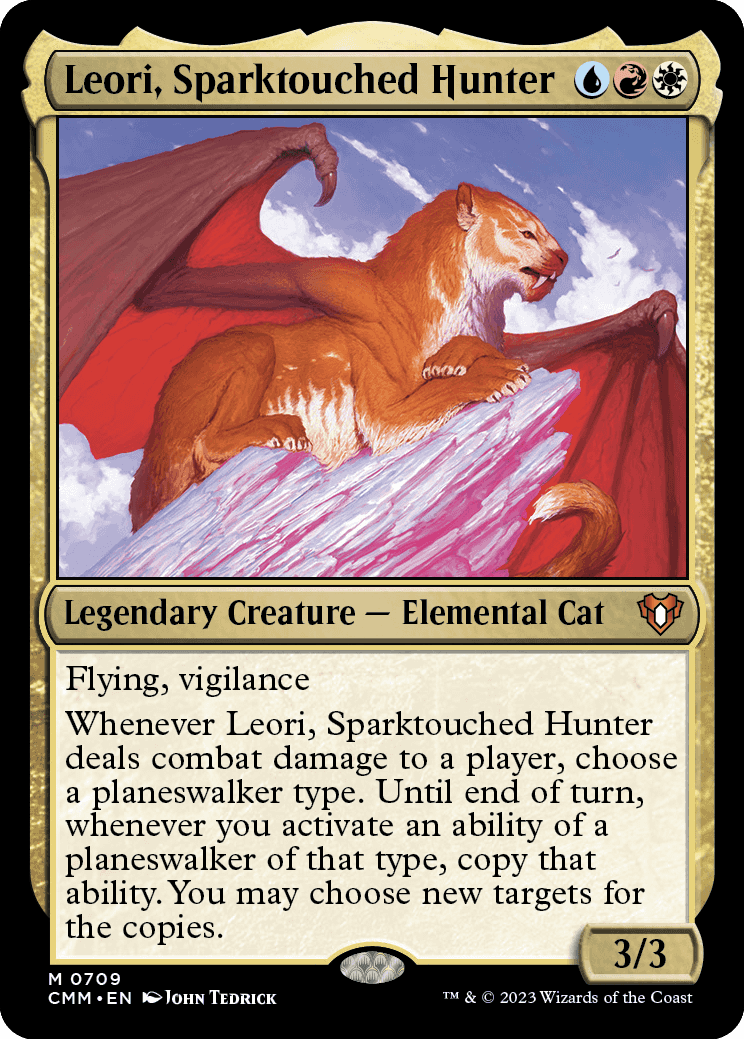
Leori, Sparktouched Hunter
{U}{R}{W}
Legendary Creature — Elemental Cat
3/3
Flying, vigilance
Whenever Leori, Sparktouched Hunter deals combat damage to a player, choose a planeswalker type. Until end of turn, whenever you activate an ability of a planeswalker of that type, copy that ability. You may choose new targets for the copies.
- You must choose an existing planeswalker type, such as Chandra or Guff.
- Copying a loyalty ability doesn't add or remove loyalty counters from any object.
- If the loyalty ability has -X in its cost, the copy uses the same value of X.
- The delayed triggered ability created by Leori's last ability, as well as the copy it creates, resolve before the ability that caused it to trigger. They resolve even if that ability is countered.
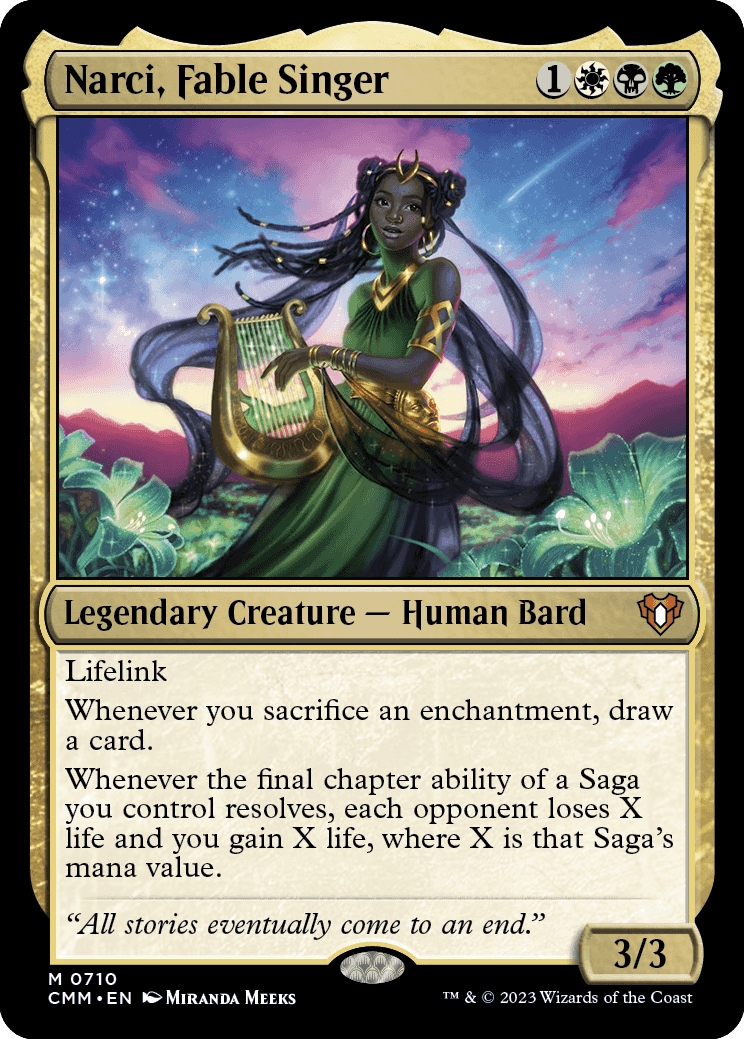
Narci, Fable Singer
{1}{W}{B}{G}
Legendary Creature — Human Bard
3/3
Lifelink
Whenever you sacrifice an enchantment, draw a card.
Whenever the final chapter ability of a Saga you control resolves, each opponent loses X life and you gain X life, where X is that Saga's mana value.
- The final chapter ability of a Saga is the ability with the greatest chapter number among chapter abilities that Saga has.
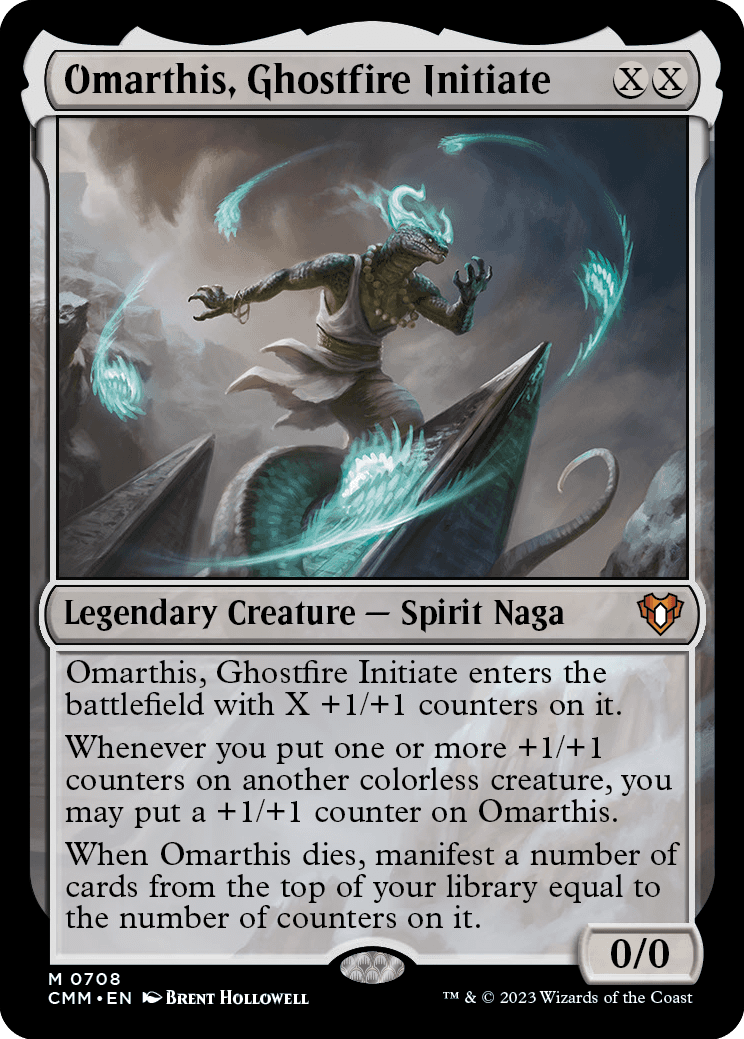
Omarthis, Ghostfire Initiate
{X}{X}
Legendary Creature — Spirit Naga
0/0
Omarthis, Ghostfire Initiate enters the battlefield with X +1/+1 counters on it.
Whenever you put one or more +1/+1 counters on another colorless creature, you may put a +1/+1 counter on Omarthis.
When Omarthis dies, manifest a number of cards from the top of your library equal to the number of counters on it.
- Omarthis, Ghostfire Initiate's second ability will trigger any time you put one or more counters on another colorless creature. This might be due to a spell or ability resolving or a colorless creature you control entering the battlefield with counters.
- If Omarthis, Ghostfire Initiate's last ability causes its controller to manifest multiple cards, those cards are manifested one at a time.
- The face-down permanent is a 2/2 creature with no name, mana cost, creature types, or abilities. It's colorless and has a mana value of 0. Other effects that apply to the permanent can still grant or change any of these characteristics.
- Any time you have priority, you may turn a manifested creature face up by revealing that it's a creature card (ignoring any copy effects or type-changing effects that might be applying to it) and paying its mana cost. This is a special action. It doesn't use the stack and can't be responded to.
- If a manifested creature would have morph if it were face up, you may also turn it face up by paying its morph cost.
- Unlike a face-down creature that was cast using the morph ability, a manifested creature may still be turned face up after it loses its abilities if it's a creature card.
- Because the permanent is on the battlefield both before and after it's turned face up, turning a permanent face up doesn't cause any enters-the-battlefield abilities to trigger.
- Because face-down creatures don't have names, they can't have the same name as any other creature, even another face-down creature.
- A permanent that turns face up or face down changes characteristics but is otherwise the same permanent. Spells and abilities that were targeting that permanent, as well as Auras and Equipment that were attached to the permanent, aren't affected.
- Turning a permanent face up or face down doesn't change whether that permanent is tapped or untapped.
- You can look at a face-down permanent you control any time. You can't look at face-down permanents you don't control unless an effect allows you to or instructs you to.
- If a face-down permanent you control leaves the battlefield, you must reveal it. You must also reveal all face-down spells and permanents you control if you leave the game or if the game ends.
- You must ensure that your face-down spells and permanents can easily be differentiated from each other. You're not allowed to mix up the cards that represent them on the battlefield to confuse other players. The order they entered the battlefield should remain clear. Common methods for indicating this include using markers or dice, or simply placing them in order on the battlefield. You must also track how each became face down (manifested, cast face down using the morph ability, and so on).
- If something tries to turn a face-down instant or sorcery card on the battlefield face up, reveal that card to show all players it's an instant or sorcery card. The permanent remains on the battlefield face down. Abilities that trigger when a permanent turns face up won't trigger, because even though you revealed the card, it never turned face up.
- If a double-faced card is manifested, it will be put onto the battlefield face down. While face down, a transforming double-faced card can't transform or convert. If the front face of a face down double-faced card is a creature card, you can turn it face up by paying its mana cost. If you do, its front face will be up.
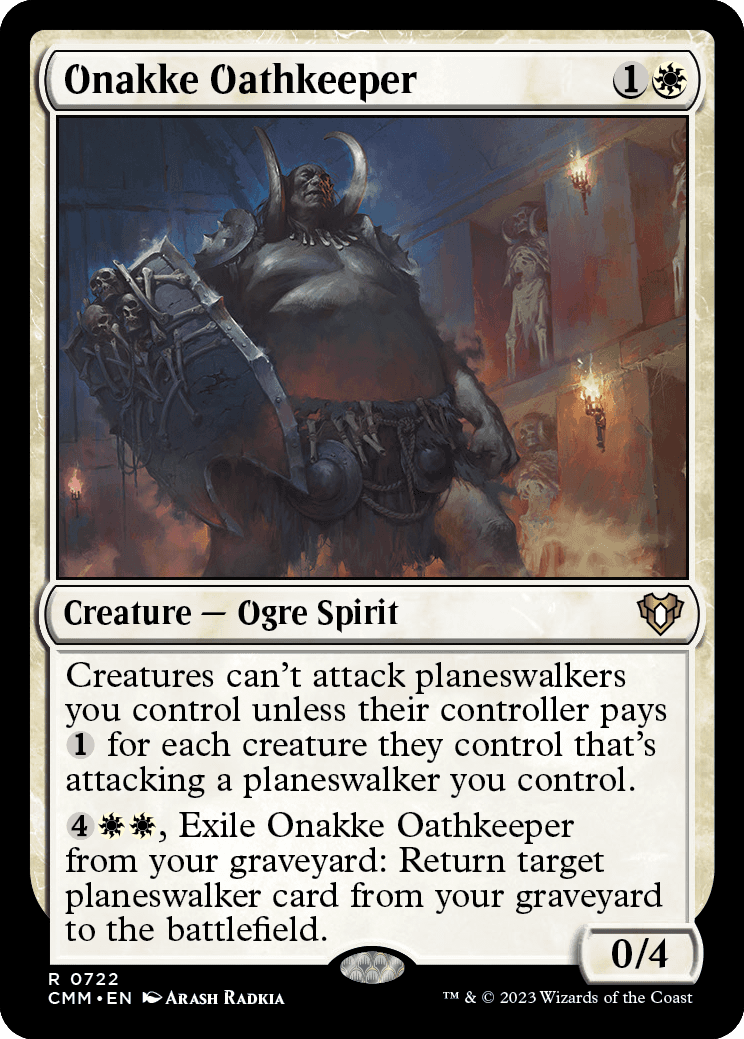
Onakke Oathkeeper
{1}{W}
Creature — Ogre Spirit
0/4
Creatures can't attack planeswalkers you control unless their controller pays {1} for each creature they control that's attacking a planeswalker you control.
{4}{W}{W}, Exile Onakke Oathkeeper from your graveyard: Return target planeswalker card from your graveyard to the battlefield.
- In a Two-Headed Giant game, creatures can attack planeswalkers your teammate controls without requiring a mana payment.
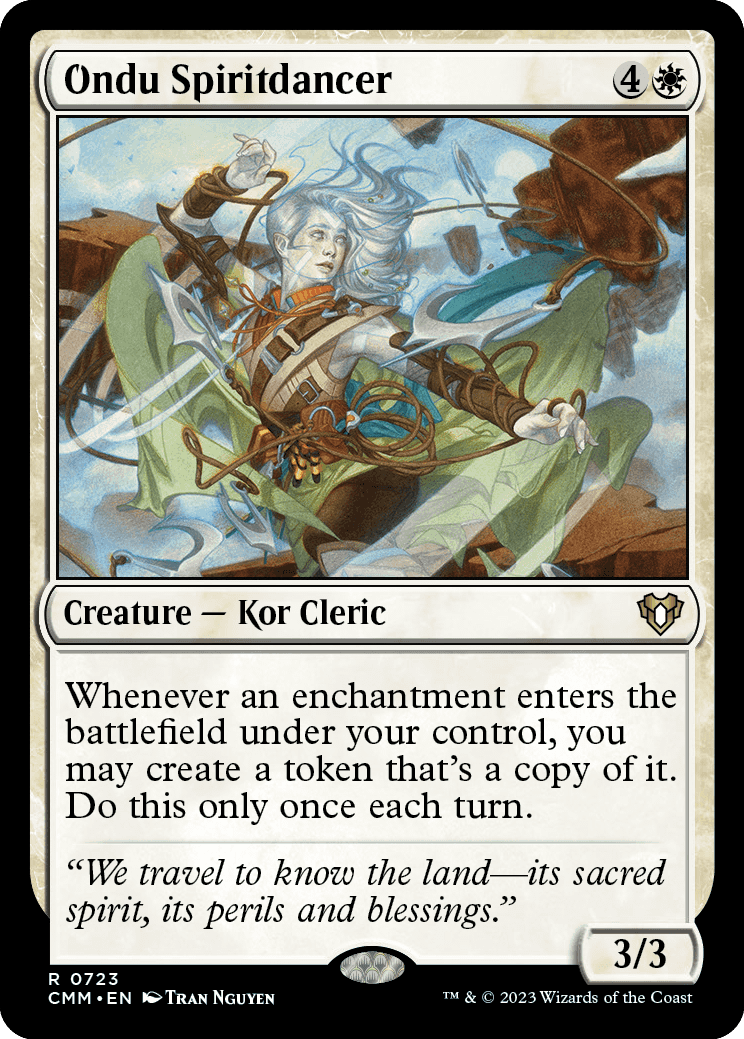
Ondu Spiritdancer
{4}{W}
Creature — Kor Cleric
3/3
Whenever an enchantment enters the battlefield under your control, you may create a token that's a copy of it. Do this only once each turn.
- Once you choose to create a token copy of an enchantment during the resolution of Ondu Spiritdancer's ability, that ability won't trigger again that turn, no matter how many more enchantments enter the battlefield under your control.
- If multiple instances of the ability are on the stack (perhaps because multiple enchantments entered the battlefield under your control at the same time), you will be able to create a token copy of an enchantment for only one of those instances. Once you do that, other instances will do nothing as they resolve.
- If an Aura is put onto the battlefield without being cast, such as by being created as a token, the Aura's controller-to-be chooses what it will enchant as it enters the battlefield. An Aura put onto the battlefield this way doesn't target anything (so it could be attached to an opponent's permanent with hexproof, for example), but the Aura's enchant ability restricts what it can be attached to. If an Aura token can't legally be attached to anything, it isn't created.
- Each token copies exactly what was printed on the original enchantment and nothing else (unless that enchantment is copying something else or is a token; see below). It doesn't copy whether that enchantment is tapped or untapped, whether it has any counters on it or Auras and Equipment attached to it, or any non-copy effects that have changed its power, toughness, types, color, or so on.
- If the copied enchantment has {X} in its mana cost, X is 0.
- If the copied enchantment is a token, the token that's created copies the original characteristics of that token as stated by the effect that created the token.
- If the copied enchantment is copying something else, then the token enters the battlefield as whatever that enchantment copied.
- Any enters-the-battlefield abilities of the copied enchantment will trigger when the token enters the battlefield. Any "as [this enchantment] enters the battlefield" or "[this enchantment] enters the battlefield with" abilities of the enchantment will also work.
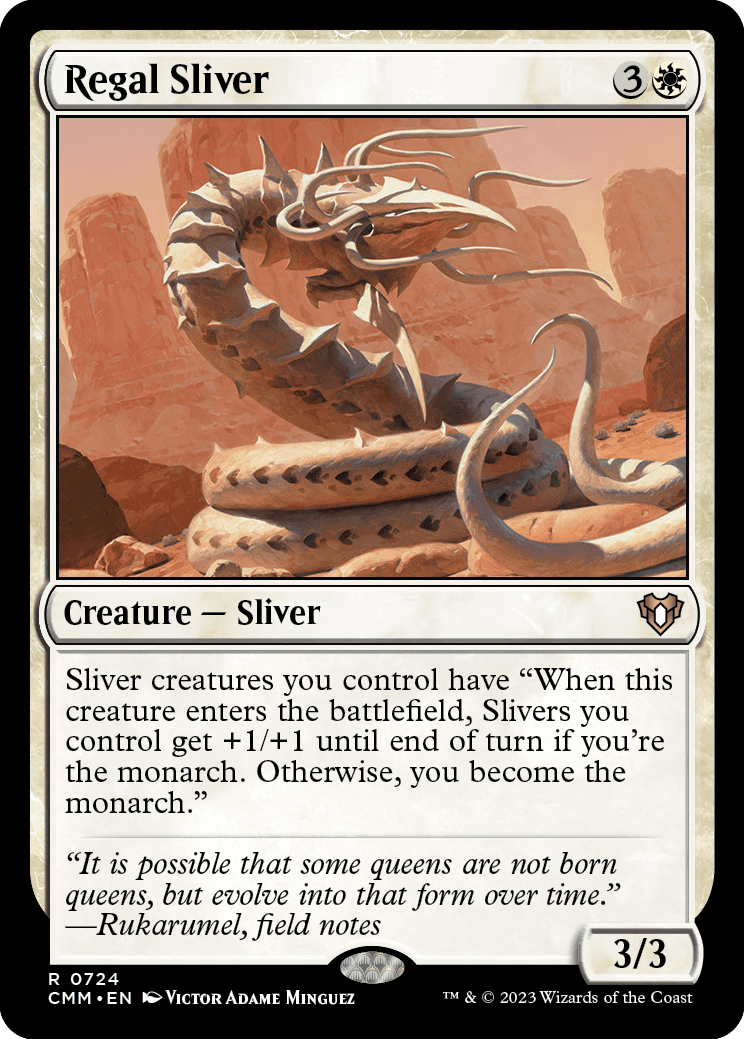
Regal Sliver
{3}{W}
Creature — Sliver
3/3
Sliver creatures you control have "When this creature enters the battlefield, Slivers you control get +1/+1 until end of turn if you're the monarch. Otherwise, you become the monarch."
- The game starts with no monarch. Once an effect makes one player the monarch, the game will have exactly one monarch from that point forward. As a player becomes the monarch, the current monarch (if any) ceases being the monarch.
- There are two inherent triggered abilities associated with being the monarch. These triggered abilities have no source and are controlled by the player who was the monarch at the time the abilities triggered. The full texts of these abilities are "At the beginning of the monarch's end step, that player draws a card" and "Whenever a creature deals combat damage to the monarch, its controller becomes the monarch."
- If the triggered ability that causes the monarch to draw a card goes on the stack and a different player becomes the monarch before that ability resolves, the first player will still draw the card.
- If the monarch leaves the game during another player's turn, that player becomes the monarch. If the monarch leaves the game during their turn, the next player in turn order becomes the monarch.
- If combat damage dealt to the monarch causes that player to lose the game, the triggered ability that causes the controller of the attacking creature to become the monarch doesn't resolve. In most cases, the controller of the attacking creature will still become the monarch as it is likely their turn.
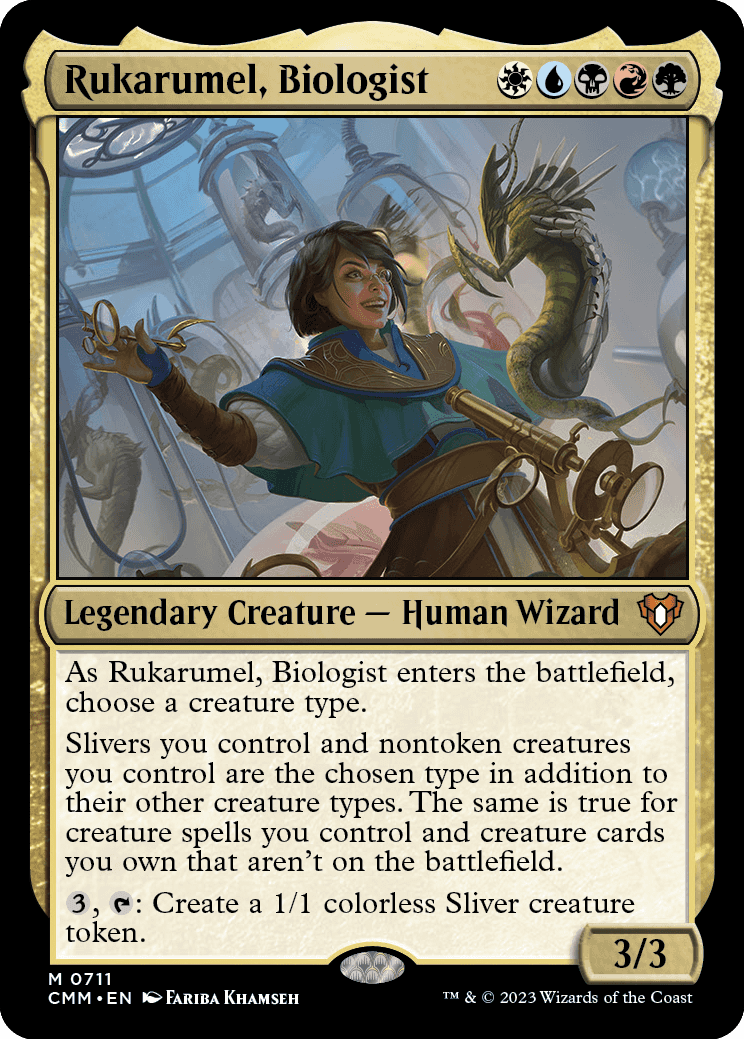
Rukarumel, Biologist
{W}{U}{B}{R}{G}
Legendary Creature — Human Wizard
3/3
As Rukarumel, Biologist enters the battlefield, choose a creature type.
Slivers you control and nontoken creatures you control are the chosen type in addition to their other creature types. The same is true for creature spells you control and creature cards you own that aren't on the battlefield.
{3}, {T}: Create a 1/1 colorless Sliver creature token.
- To choose a creature type, you must choose an existing creature type, such as Vampire or Knight. You can't choose multiple creature types, such as "Vampire Knight." Card types such as artifact can't be chosen, nor can subtypes that aren't creature types, such as Jace, Vehicle, or Treasure.
- Replacement effects that modify creatures of a certain type as they enter will apply after you apply this effect. For example, if Warrior is the chosen creature type and you control Bramblewood Paragon, a Runeclaw Bear would enter the battlefield with an additional +1/+1 counter.
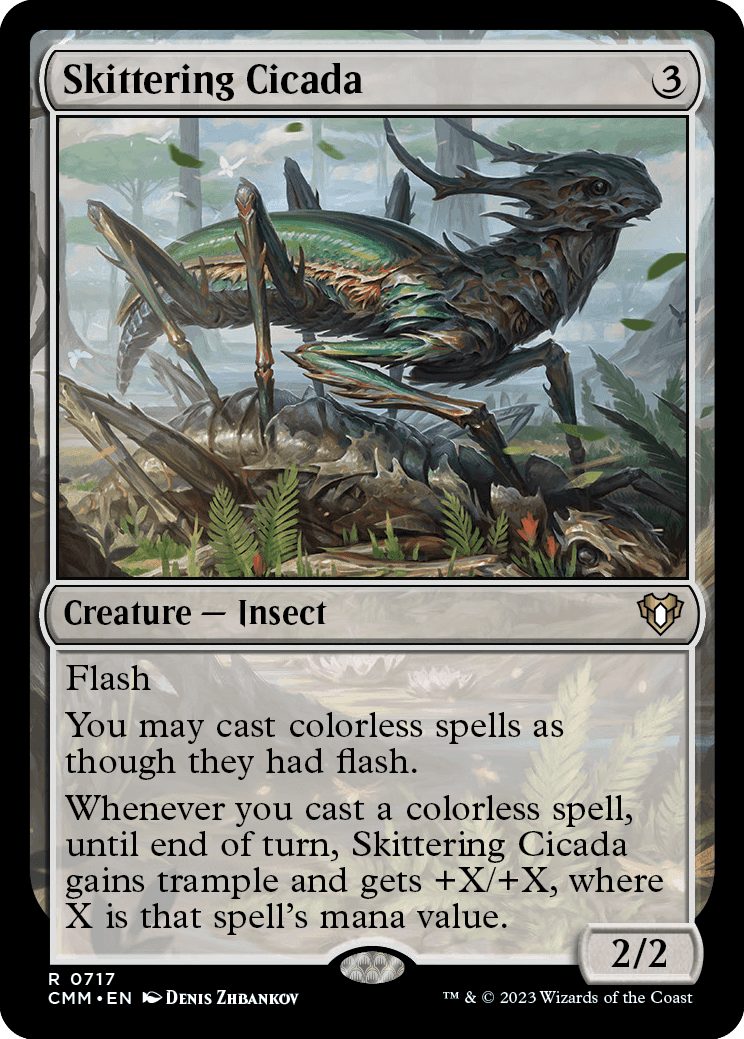
Skittering Cicada
{3}
Creature — Insect
2/2
Flash
You may cast colorless spells as though they had flash.
Whenever you cast a colorless spell, until end of turn, Skittering Cicada gains trample and gets +X/+X, where X is that spell's mana value.
- Skittering Cicada's second ability applies only to casting spells. It does not, for example, change when you may activate abilities that can be activated "only as a sorcery."
- Skittering Cicada's last ability resolves before the spell that caused it to trigger. It resolves even if that spell is countered.
- If the colorless spell has {X} in its mana cost, use the value chosen for X when calculating that spell's mana value.
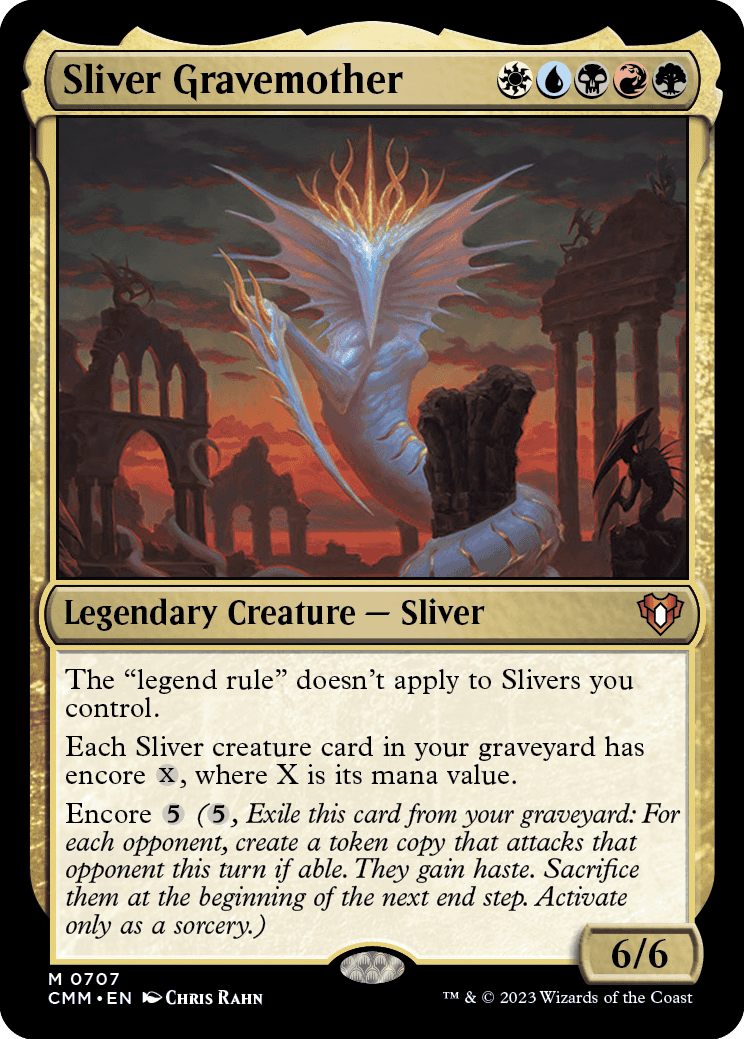
Sliver Gravemother
{W}{U}{B}{R}{G}
Legendary Creature — Sliver
6/6
The "legend rule" doesn't apply to Slivers you control.
Each Sliver creature card in your graveyard has encore {X}, where X is its mana value.
Encore {5} ({5}, Exile this card from your graveyard: For each opponent, create a token copy that attacks that opponent this turn if able. They gain haste. Sacrifice them at the beginning of the next end step. Activate only as a sorcery.)
- The "legend rule" is the rule that states that if a player controls two or more legendary permanents with the same name, that player chooses one of them, and the rest are put into their owners' graveyards.
- While the "legend rule" doesn't apply to Slivers you control, you can control any number of legendary Slivers with the same name and none of them will be put into the graveyard.
- If you control more than one legendary Sliver with the same name and the "legend rule" begins applying to them again (perhaps because Sliver Gravemother leaves the battlefield) you'll immediately have to comply with the rule and put all but one of those Slivers into the graveyard.
- Exiling the card with encore is a cost to activate the ability. Once you announce that you're activating it, no player may take actions until you've finished. They can't try to remove the card from your graveyard to stop you from paying the cost.
- Opponents who have left the game aren't counted when determining how many tokens to create.
- The tokens copy only what's on the original card. Effects that modified that creature when it was previously on the battlefield won't be copied.
- Each token must attack the appropriate player if able.
- If one of the tokens can't attack for any reason (such as being tapped), then it doesn't attack. If there's a cost associated with having it attack, you aren't forced to pay that cost, so it doesn't have to attack in that case either.
- If an effect stops a token from attacking a specific player, that token can attack any player, planeswalker, or battle, or not attack at all. If the effect stops the token from attacking a specific player unless a cost is paid, you don't have to pay that cost unless you want to attack that player.
- If one of the tokens somehow is under another player's control as the delayed triggered ability resolves, you can't sacrifice that token. It remains on the battlefield indefinitely, even if you regain control of it later.
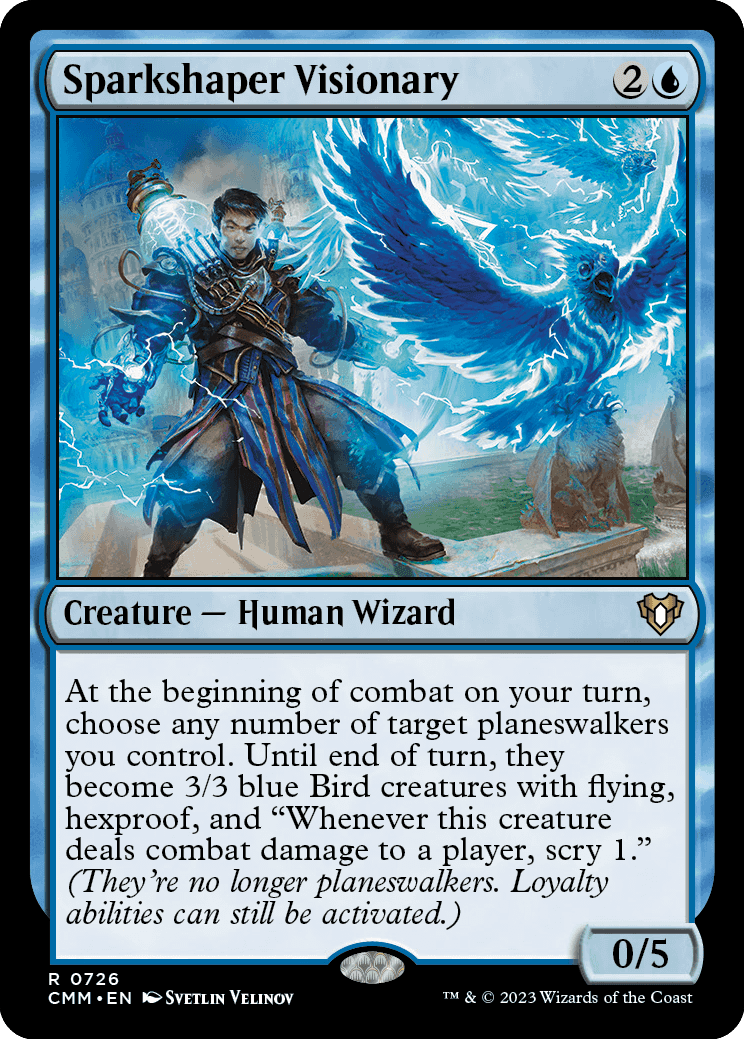
Sparkshaper Visionary
{2}{U}
Creature — Human Wizard
0/5
At the beginning of combat on your turn, choose any number of target planeswalkers you control. Until end of turn, they become 3/3 blue Bird creatures with flying, hexproof, and "Whenever this creature deals combat damage to a player, scry 1." (They're no longer planeswalkers. Loyalty abilities can still be activated.)
- A planeswalker that becomes a creature due to Sparkshaper Visionary's ability can't attack unless you've controlled it continuously since your turn began.
- Once Sparkshaper Visionary's ability has resolved, each of the chosen planeswalkers are no longer planeswalkers for the rest of the turn. They don't lose any loyalty counters or abilities, and you can still activate their loyalty abilities if you haven't done so yet this turn. They don't lose loyalty if they're dealt damage while they're not planeswalkers.
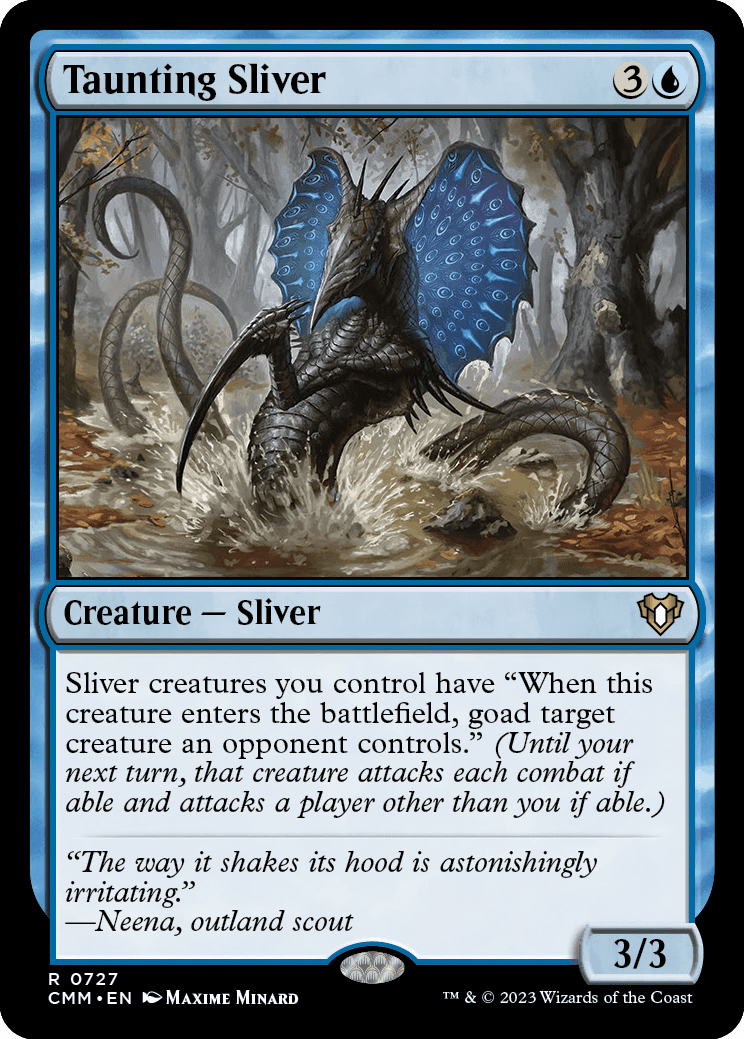
Taunting Sliver
{3}{U}
Creature — Sliver
3/3
Sliver creatures you control have "When this creature enters the battlefield, goad target creature an opponent controls." (Until your next turn, that creature attacks each combat if able and attacks a player other than you if able.)
- If, during a player's declare attackers step, a creature that player controls that's been goaded is tapped, is affected by a spell or ability that says it can't attack, or hasn't been under that player's control continuously since the turn began (and doesn't have haste), then it doesn't attack. If there's a cost associated with having a creature attack a player, its controller isn't forced to pay that cost, so it doesn't have to attack that player.
- If the creature doesn't meet any of the above exceptions and can attack, it must attack a player other than the controller of the spell or ability that goaded it if able. If the creature can't attack any of those players but could otherwise attack, it must attack a planeswalker an opponent controls, a battle an opponent protects, or a player who goaded it.
- Being goaded isn't an ability the creature has. Once it's been goaded, it must attack as detailed above even if it loses all abilities.
- Attacking with a goaded creature doesn't cause it to stop being goaded. If there is an additional combat phase that turn, or if another player gains control of it before it stops being goaded, it must attack again if able.
- If a creature you control has been goaded by multiple opponents, it must attack one of your opponents that hasn't goaded it, as that fulfills the maximum number of goad requirements. If a creature you control has been goaded by each of your opponents, the creature must attack an opponent (rather than a planeswalker or battle), but you choose which opponent it attacks.
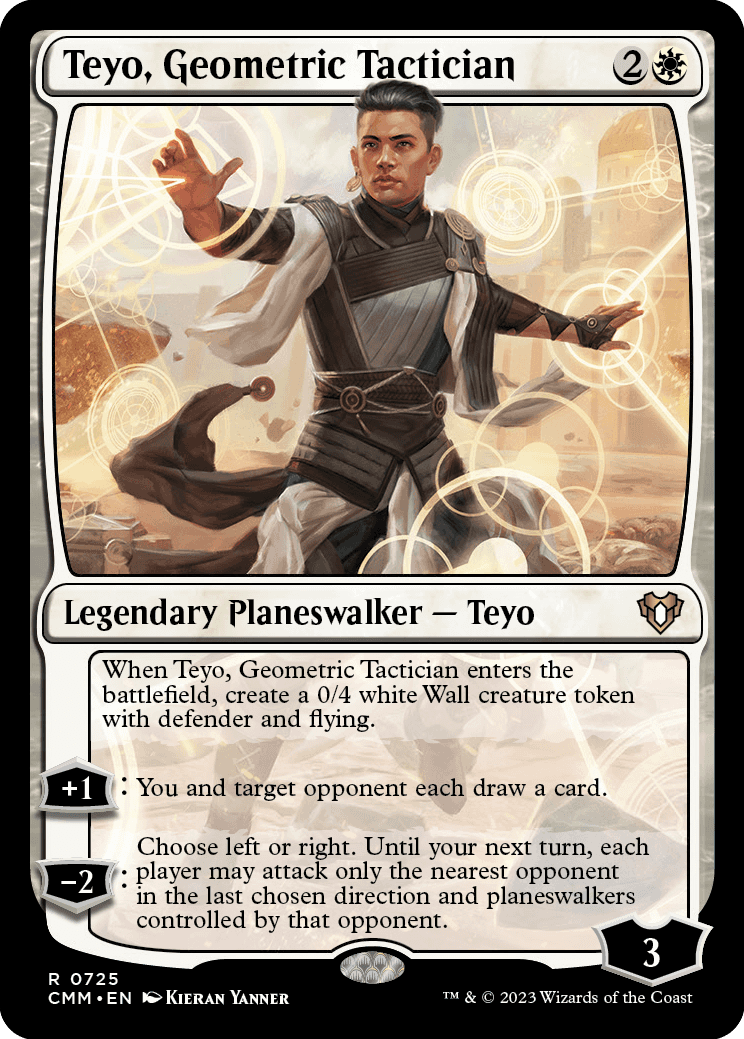
Teyo, Geometric Tactician
{2}{W}
Legendary Planeswalker — Teyo
3
When Teyo, Geometric Tactician enters the battlefield, create a 0/4 white Wall creature token with defender and flying.
+1: You and target opponent each draw a card.
−2: Choose left or right. Until your next turn, each player may attack only the nearest opponent in the last chosen direction and planeswalkers controlled by that opponent.
- Teyo, Geometric Tactician's last ability affects only what players and planeswalkers each player may attack. It doesn't affect what players may be targeted by spells or abilities or other interactions.
- Teyo, Geometric Tactician's last ability doesn't affect creatures that enter the battlefield attacking.
- If Teyo, Geometric Tactician's last ability and another similar effect disagree on which direction three or more players may attack, players can't attack at all.
- In a multiplayer game, players may use any mutually agreeable method to determine seating order after they've chosen decks but before the game begins. If players can't agree, they should be seated randomly.
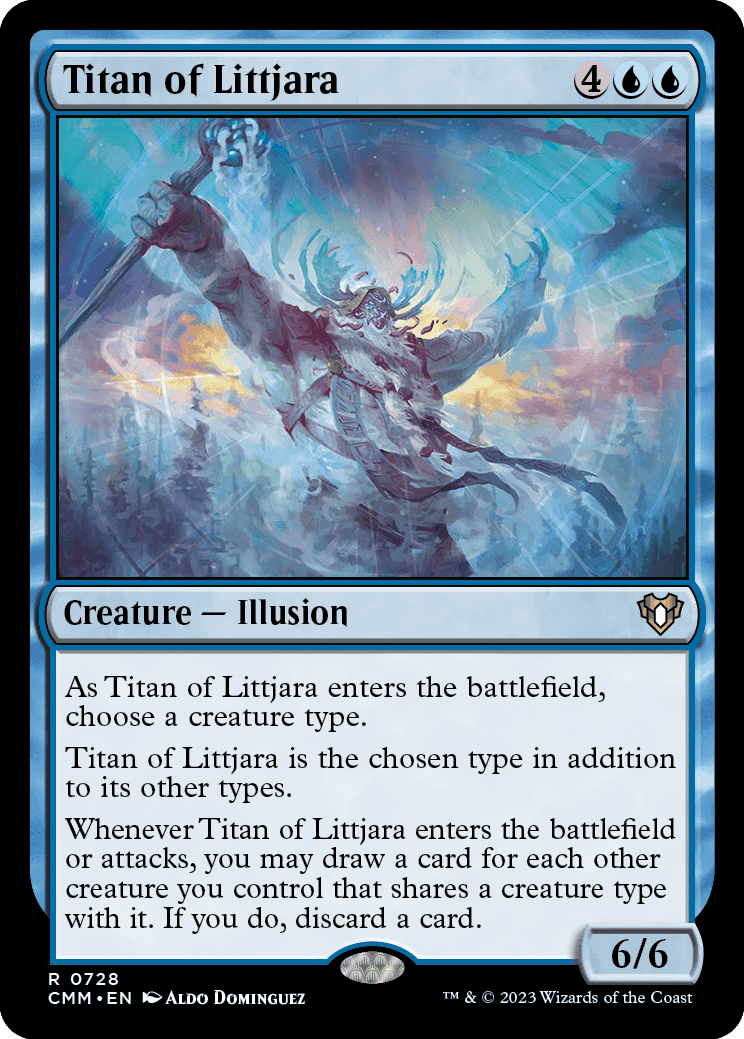
Titan of Littjara
{4}{U}{U}
Creature — Illusion
6/6
As Titan of Littjara enters the battlefield, choose a creature type.
Titan of Littjara is the chosen type in addition to its other types.
Whenever Titan of Littjara enters the battlefield or attacks, you may draw a card for each other creature you control that shares a creature type with it. If you do, discard a card.
- The choice of creature type is made as Titan of Littjara enters the battlefield. Players can't respond to this choice. Titan of Littjara's second ability starts applying immediately.
- To choose a creature type, you must choose an existing creature type, such as Vampire or Knight. You can't choose multiple creature types, such as "Vampire Knight." Card types such as artifact can't be chosen, nor can subtypes that aren't creature types, such as Jace, Vehicle, or Treasure.
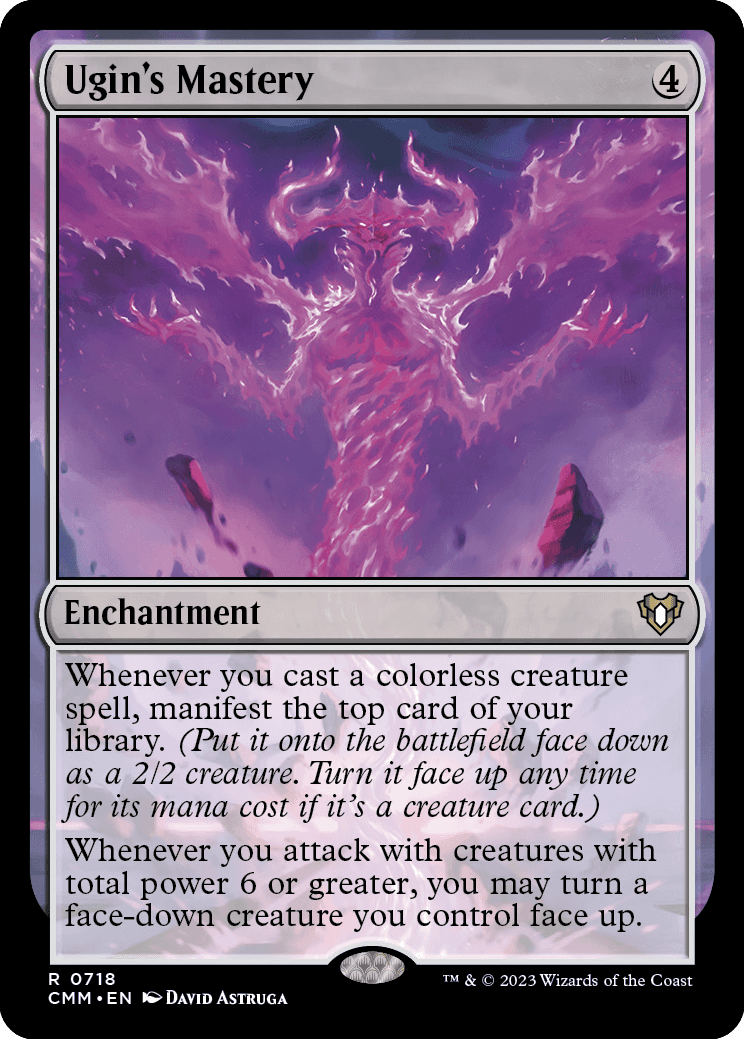
Ugin's Mastery
{4}
Enchantment
Whenever you cast a colorless creature spell, manifest the top card of your library. (Put it onto the battlefield face down as a 2/2 creature. Turn it face up any time for its mana cost if it's a creature card.)
Whenever you attack with creatures with total power 6 or greater, you may turn a face-down creature you control face up.
- The face-down permanent is a 2/2 creature with no name, mana cost, creature types, or abilities. It's colorless and has a mana value of 0. Other effects that apply to the permanent can still grant or change any of these characteristics.
- Any time you have priority, you may turn a manifested creature face up by revealing that it's a creature card (ignoring any copy effects or type-changing effects that might be applying to it) and paying its mana cost. This is a special action. It doesn't use the stack and can't be responded to.
- If a manifested creature would have morph if it were face up, you may also turn it face up by paying its morph cost.
- Unlike a face-down creature that was cast using the morph ability, a manifested creature may still be turned face up after it loses its abilities if it's a creature card.
- Because the permanent is on the battlefield both before and after it's turned face up, turning a permanent face up doesn't cause any enters-the-battlefield abilities to trigger.
- Because face-down creatures don't have names, they can't have the same name as any other creature, even another face-down creature.
- A permanent that turns face up or face down changes characteristics but is otherwise the same permanent. Spells and abilities that were targeting that permanent, as well as Auras and Equipment that were attached to the permanent, aren't affected.
- Turning a permanent face up or face down doesn't change whether that permanent is tapped or untapped.
- You can look at a face-down permanent you control any time. You can't look at face-down permanents you don't control unless an effect allows you to or instructs you to.
- If a face-down permanent you control leaves the battlefield, you must reveal it. You must also reveal all face-down spells and permanents you control if you leave the game or if the game ends.
- You must ensure that your face-down spells and permanents can easily be differentiated from each other. You're not allowed to mix up the cards that represent them on the battlefield to confuse other players. The order they entered the battlefield should remain clear. Common methods for indicating this include using markers or dice, or simply placing them in order on the battlefield. You must also track how each became face down (manifested, cast face down using the morph ability, and so on).
- If something tries to turn a face-down instant or sorcery card on the battlefield face up, reveal that card to show all players it's an instant or sorcery card. The permanent remains on the battlefield face down. Abilities that trigger when a permanent turns face up won't trigger, because even though you revealed the card, it never turned face up.
- If a double-faced card is manifested, it will be put onto the battlefield face down. While face down, a transforming double-faced card can't transform or convert. If the front face of a face down double-faced card is a creature card, you can turn it face up by paying its mana cost. If you do, its front face will be up.
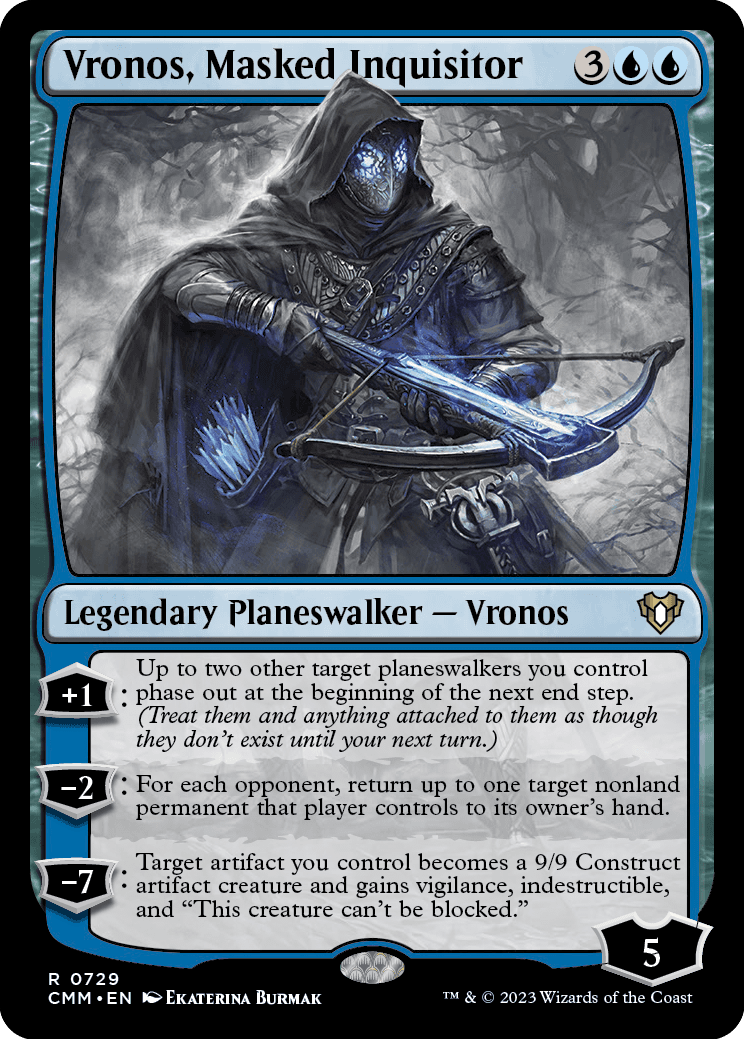
Vronos, Masked Inquisitor
{3}{U}{U}
Legendary Planeswalker — Vronos
5
+1: Up to two other target planeswalkers you control phase out at the beginning of the next end step. (Treat them and anything attached to them as though they don't exist until your next turn.)
−2: For each opponent, return up to one target nonland permanent that player controls to its owner's hand.
−7: Target artifact you control becomes a 9/9 Construct artifact creature and gains vigilance, indestructible, and "This creature can't be blocked."
- Phased-out permanents are treated as though they don't exist. They can't be the target of spells or abilities, their static abilities have no effect on the game, their triggered abilities can't trigger, they can't attack or block, and so on.
- Permanents phase back in during their controller's untap step, immediately before that player untaps their permanents. Creatures that phase in this way are able to attack and pay a cost of {T} during that turn. If a permanent had counters on it when it phased out, it will have those counters when it phases back in.
- Phasing out doesn't cause any "leaves the battlefield" abilities to trigger. Similarly, phasing in won't cause any "enters the battlefield" abilities to trigger.
- Any continuous effects with a "for as long as" duration, such as that of Extraction Specialist, ignore phased-out objects. If ignoring those objects causes the effect's conditions to no longer be met, the duration will expire.
- Choices made for permanents as they entered the battlefield are remembered when they phase in.
- Vronos, Masked Inquisitor's last ability causes the target artifact to lose any other creature types it has. It retains any other types, subtypes, and supertypes.
- Vronos, Masked Inquisitor's last ability doesn't remove any abilities the target artifact has.
- If the artifact affected by Vronos, Masked Inquisitor's last ability is attached to another permanent, it becomes unattached. If an Equipment without reconfigure becomes an artifact creature, it can't be attached to another creature.
- If the artifact affected by Vronos, Masked Inquisitor's last ability was already a creature, its base power and toughness will become 9/9. This overwrites any previous effects that set its base power and/or toughness to specific values. Any power- or toughness-setting effects that start to apply after Vronos, Masked Inquisitor's last ability resolves will overwrite this effect.
- Effects that modify a creature's power and/or toughness, such as the one created by Giant Growth or a +1/+1 counter, will apply to the creature no matter when they started to take effect.
- The resulting artifact creature will be able to attack on your turn if it's been under your control continuously since the turn began. It doesn't matter how long it's been a creature, just how long it's been on the battlefield.
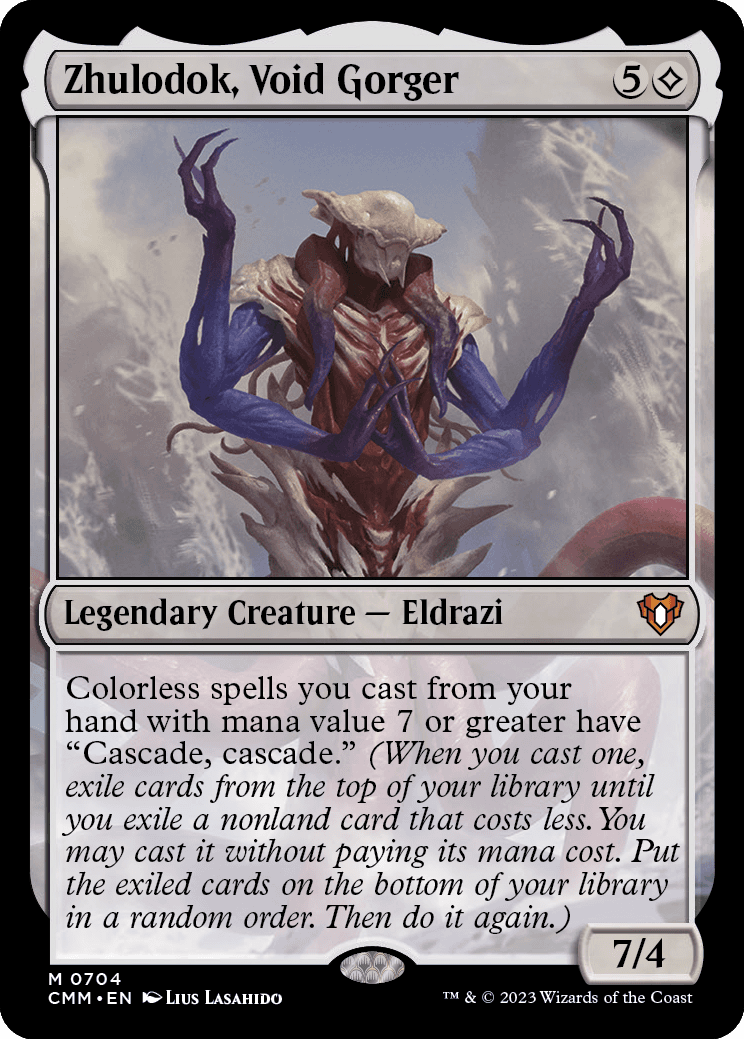
Zhulodok, Void Gorger
{5}{C}
Legendary Creature — Eldrazi
7/4
Colorless spells you cast from your hand with mana value 7 or greater have "Cascade, cascade." (When you cast one, exile cards from the top of your library until you exile a nonland card that costs less. You may cast it without paying its mana cost. Put the exiled cards on the bottom of your library in a random order. Then do it again.)
- Once you announce that you're casting a spell, players can't take action until you've finished casting it. Causing Zhulodok, Void Gorger to leave the battlefield after you've cast a colorless spell from your hand with mana value 7 or greater won't stop that spell's cascade abilities from resolving.
- Each instance of cascade triggers and resolves separately. The spell you cast due to the first cascade ability will go on the stack on top of the second cascade ability. That spell will resolve before you exile cards for the second cascade ability.
- A spell's mana value is determined only by its mana cost. Ignore any alternative costs, additional costs, cost increases, or cost reductions.
- Cascade triggers when you cast the spell, meaning that it resolves before that spell. If you end up casting the exiled card, it will go on the stack above the spell with cascade.
- When the cascade ability resolves, you must exile cards. The only optional part of the ability is whether or not you cast the last card exiled.
- If a spell with cascade is countered, the cascade ability will still resolve normally.
- You exile the cards face up. All players will be able to see them.
- If you cast a card "without paying its mana cost," you can't choose to cast it for any alternative costs. You can, however, pay additional costs. If the card has any mandatory additional costs, you must pay those to cast the card.
- If the card has {X} in its mana cost, you must choose 0 as the value of X when casting it without paying its mana cost.
- Due to a 2021 rules change to cascade, not only do you stop exiling cards if you exile a nonland card with lesser mana value than the spell with cascade, but the resulting spell you cast must also have lesser mana value. Previously, in cases where a card's mana value differed from the resulting spell, such as with some modal double-faced cards or cards with an Adventure, you could cast a spell with a higher mana value than the exiled card.
- The mana value of a split card is determined by the combined mana value of its two halves. If cascade allows you to cast a split card, you may cast either half but not both halves.
©2023 Wizards of the Coast LLC Wizards of the Coast, Magic: The Gathering, their logos, Magic, and the WUBRGCT symbols are property of Wizards in the USA and other countries. U.S. Pat. No. RE 37,957.
